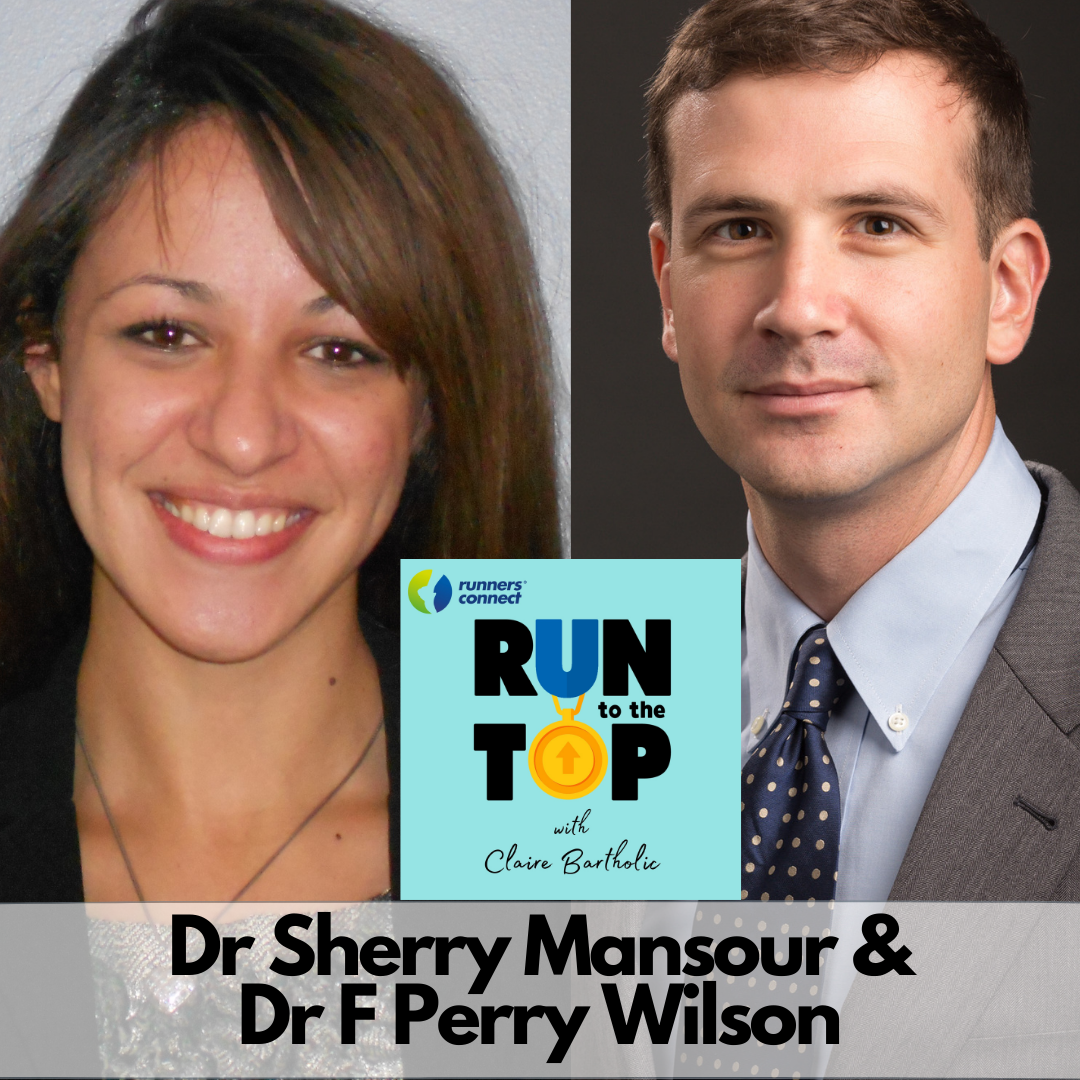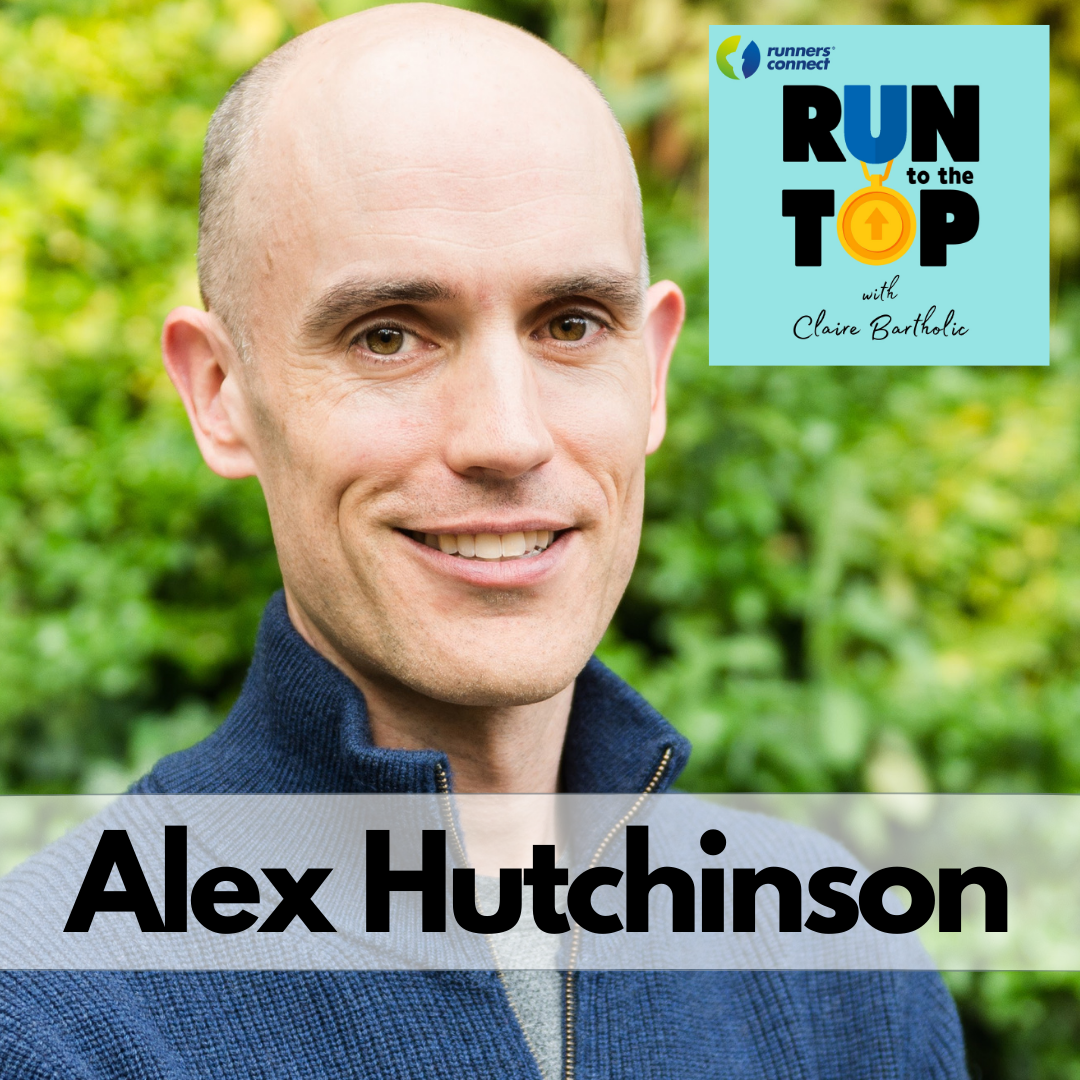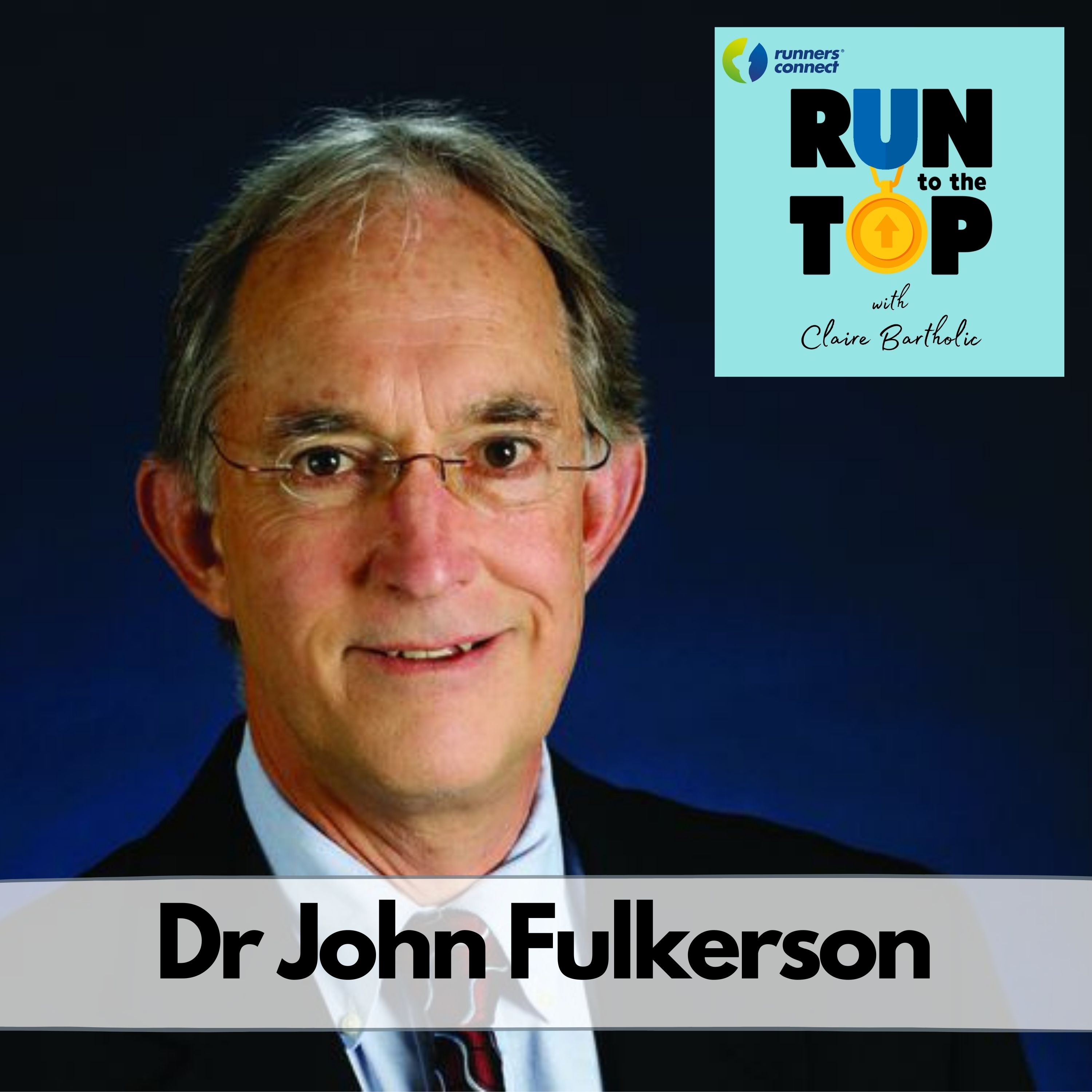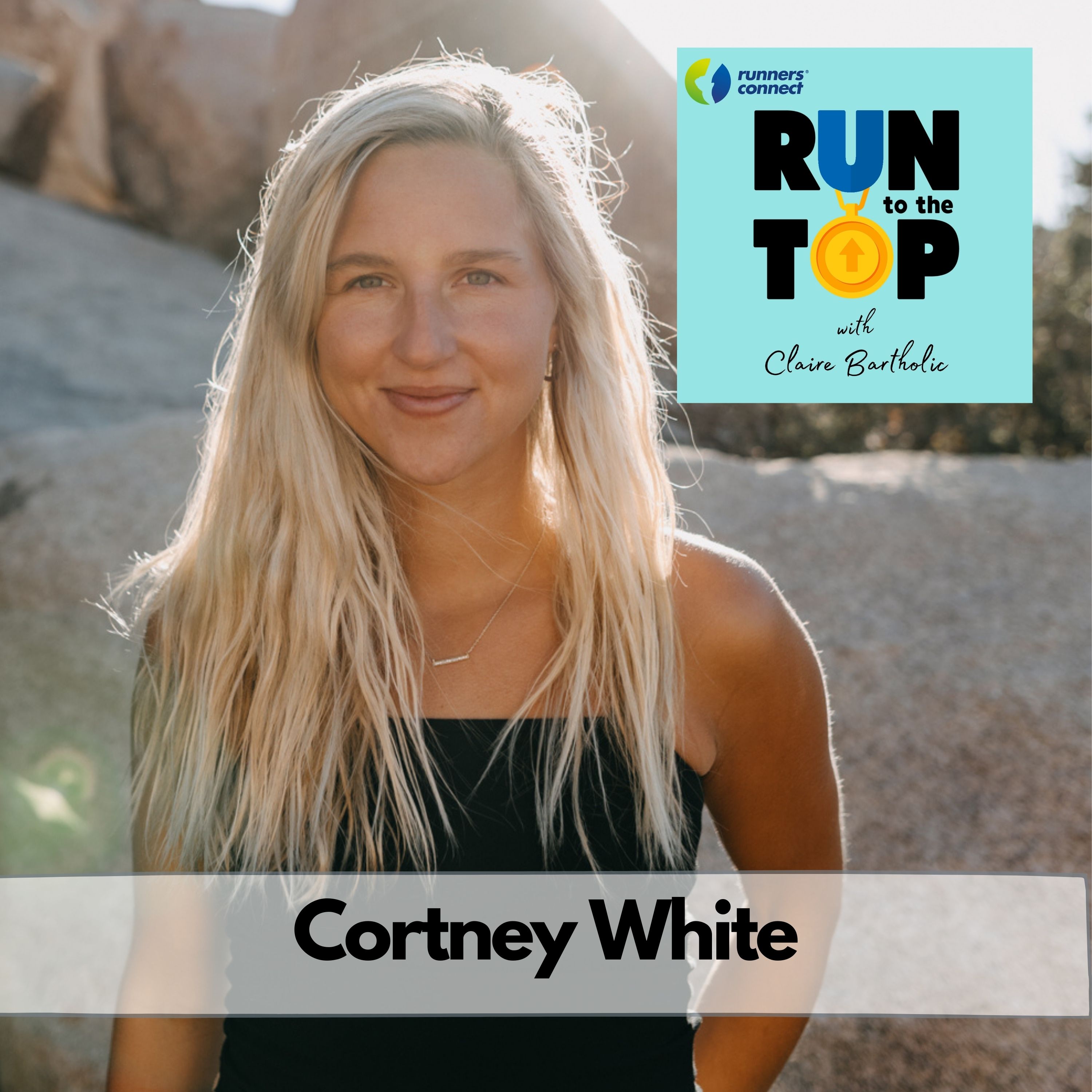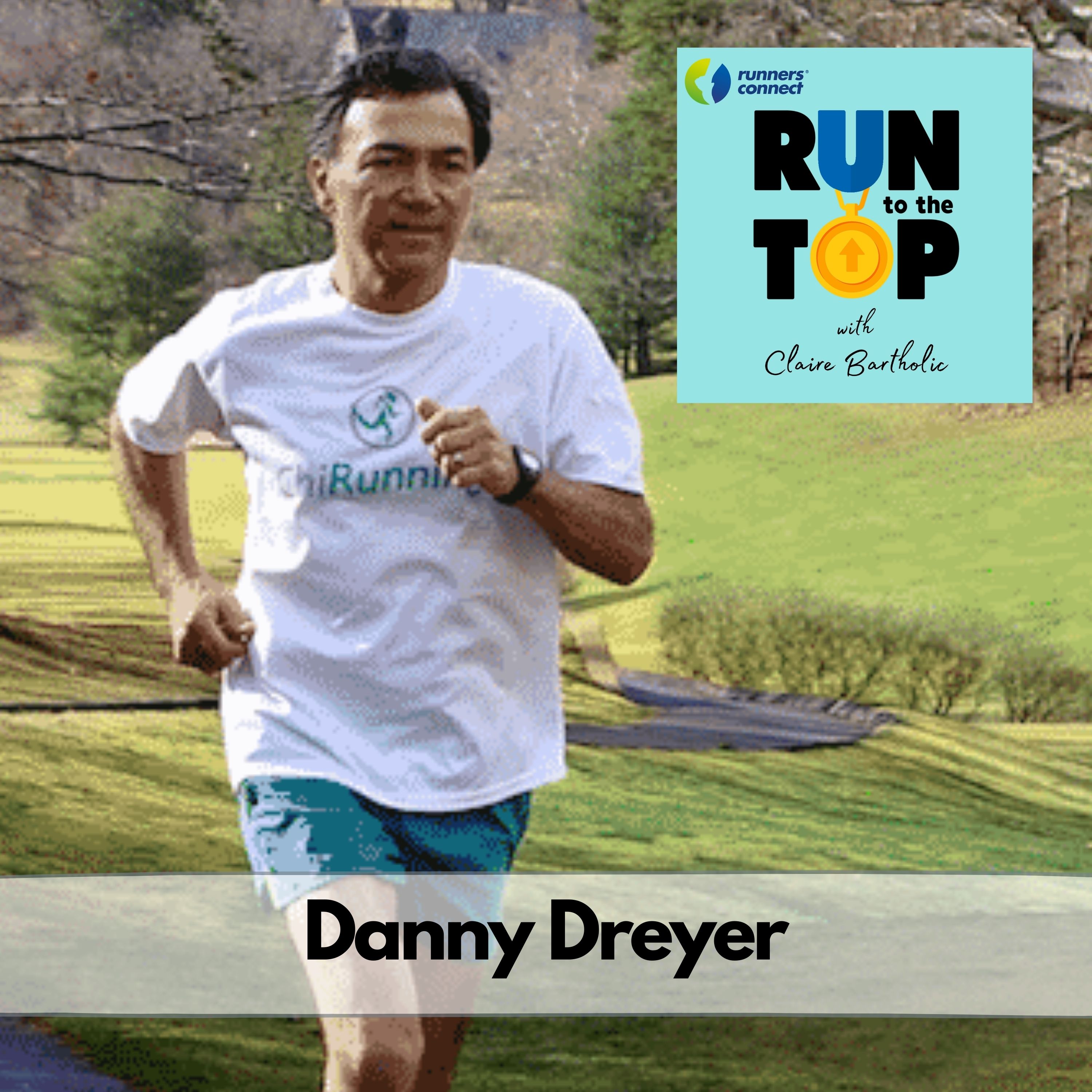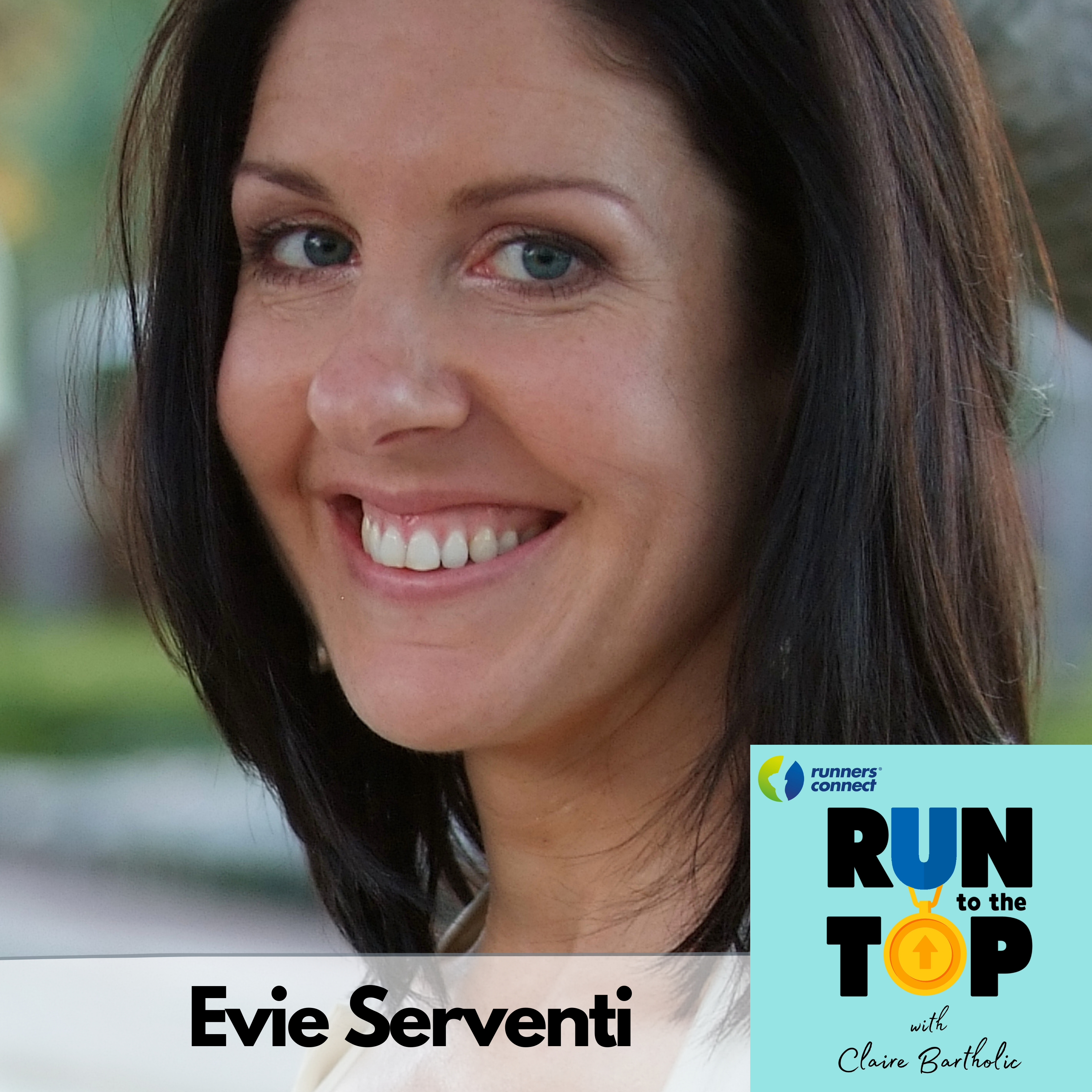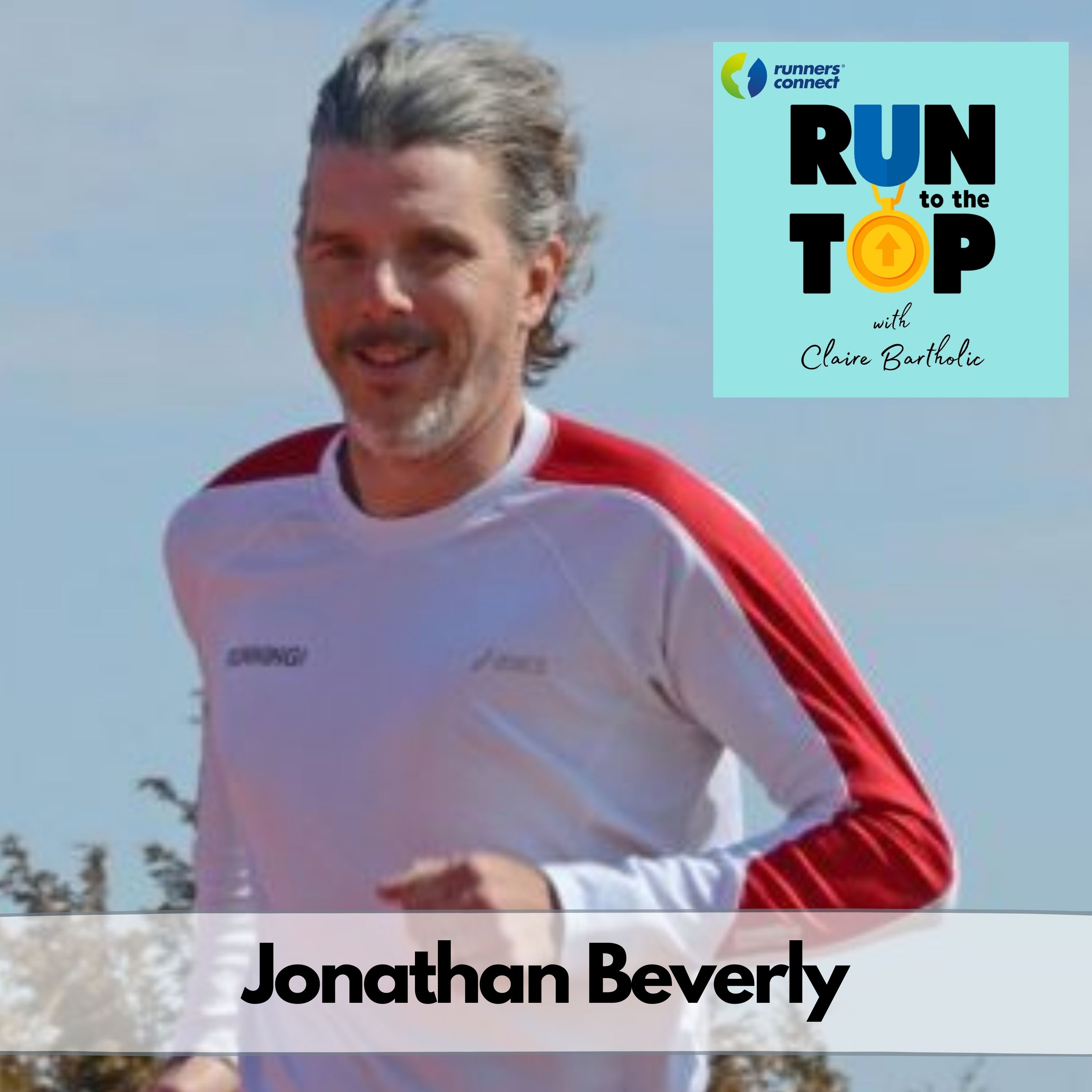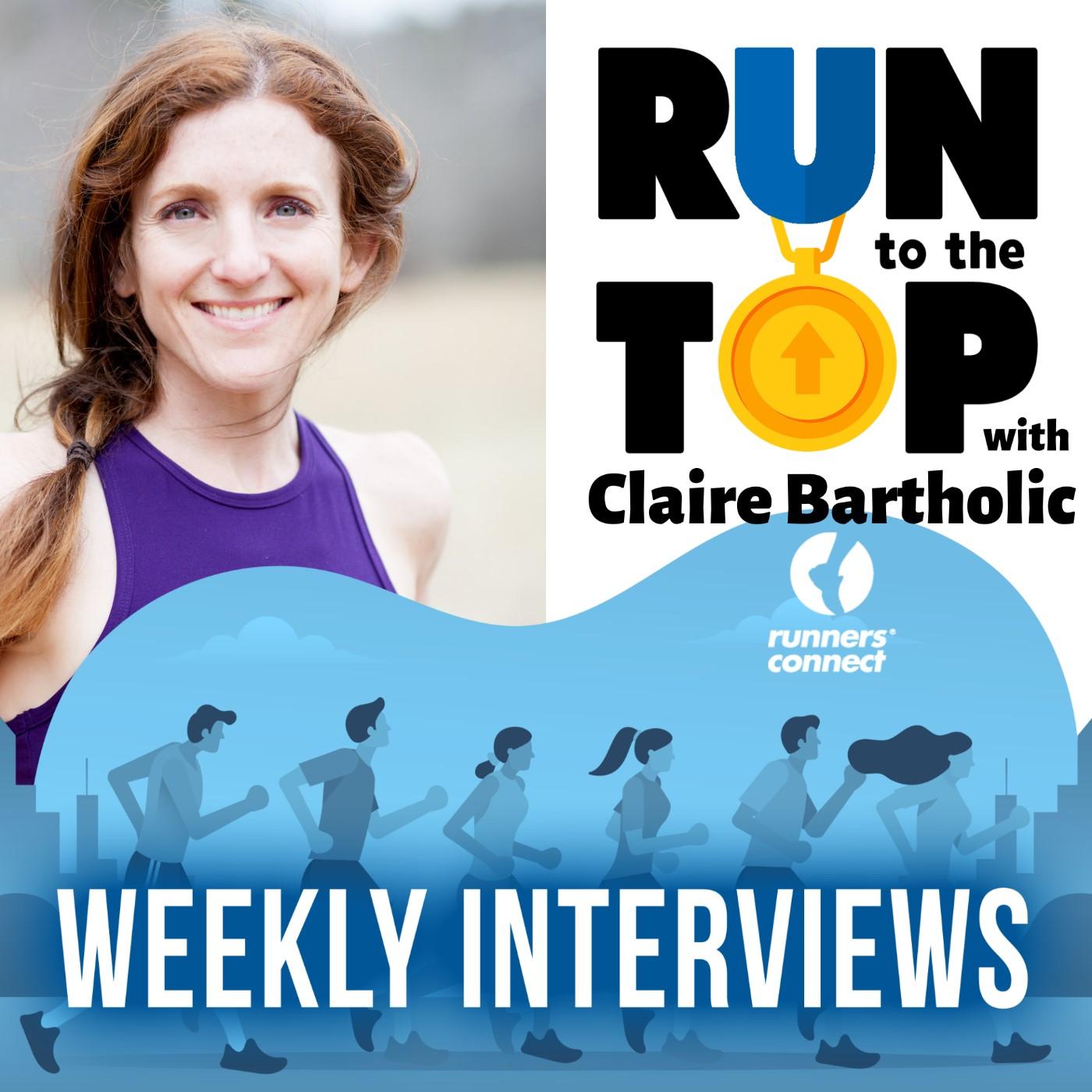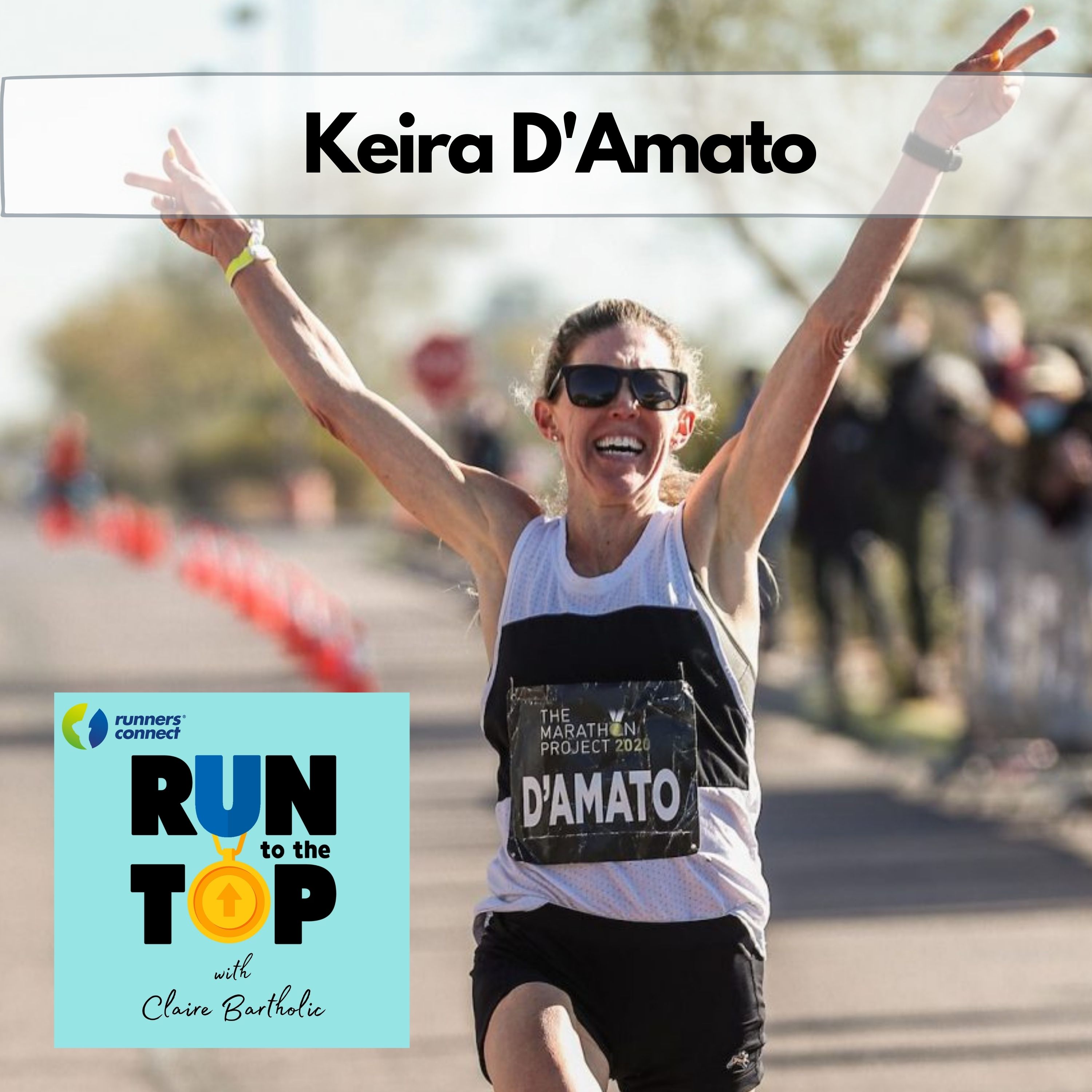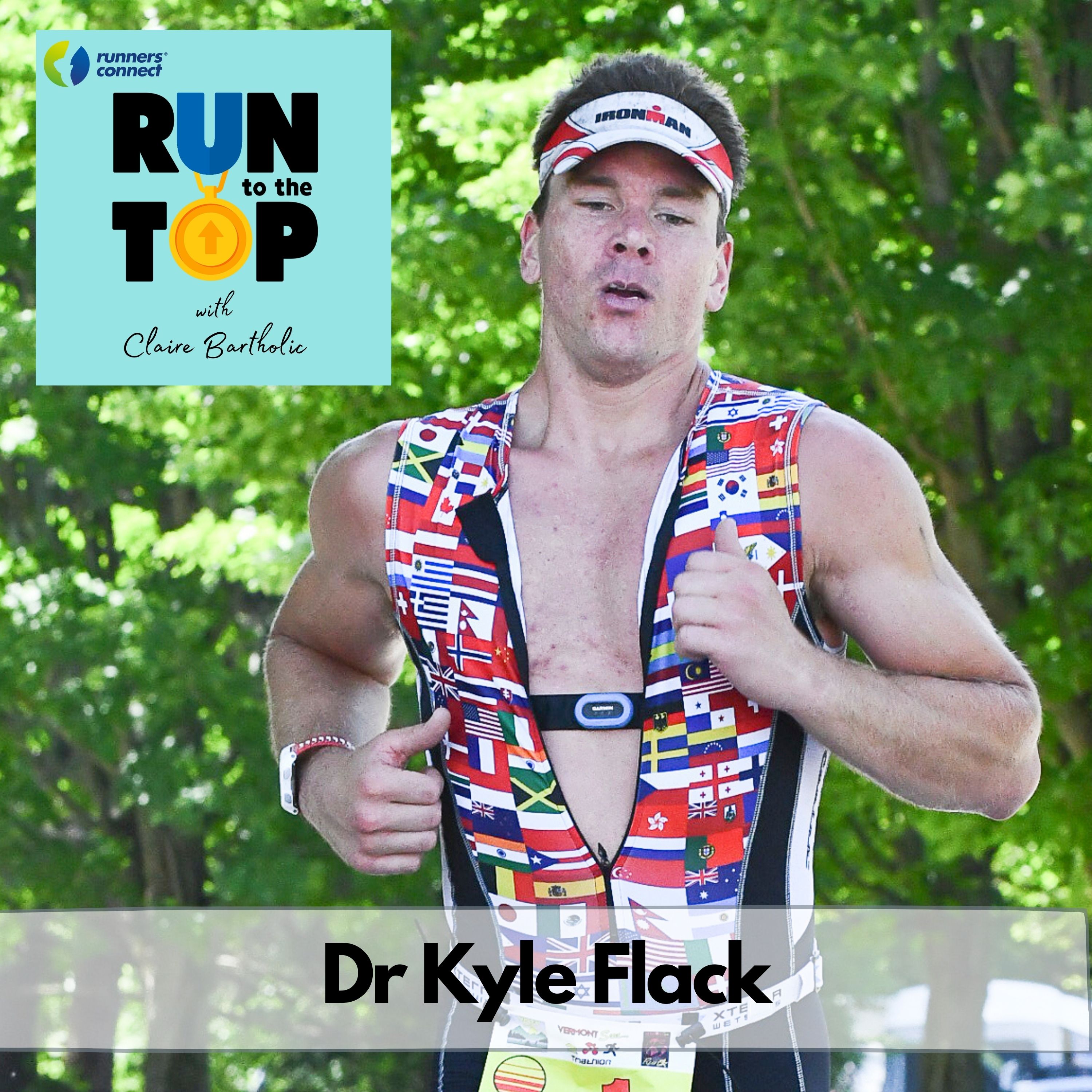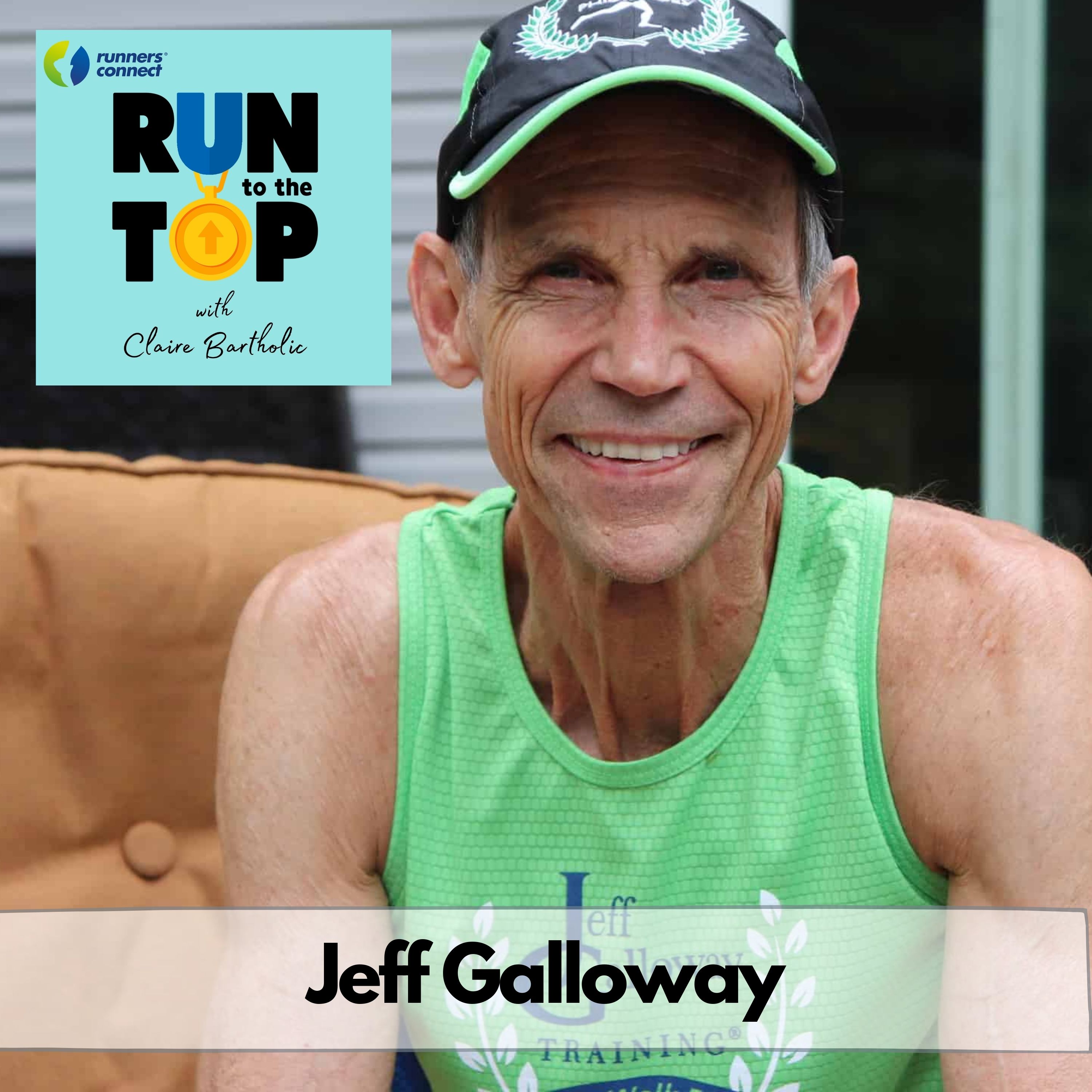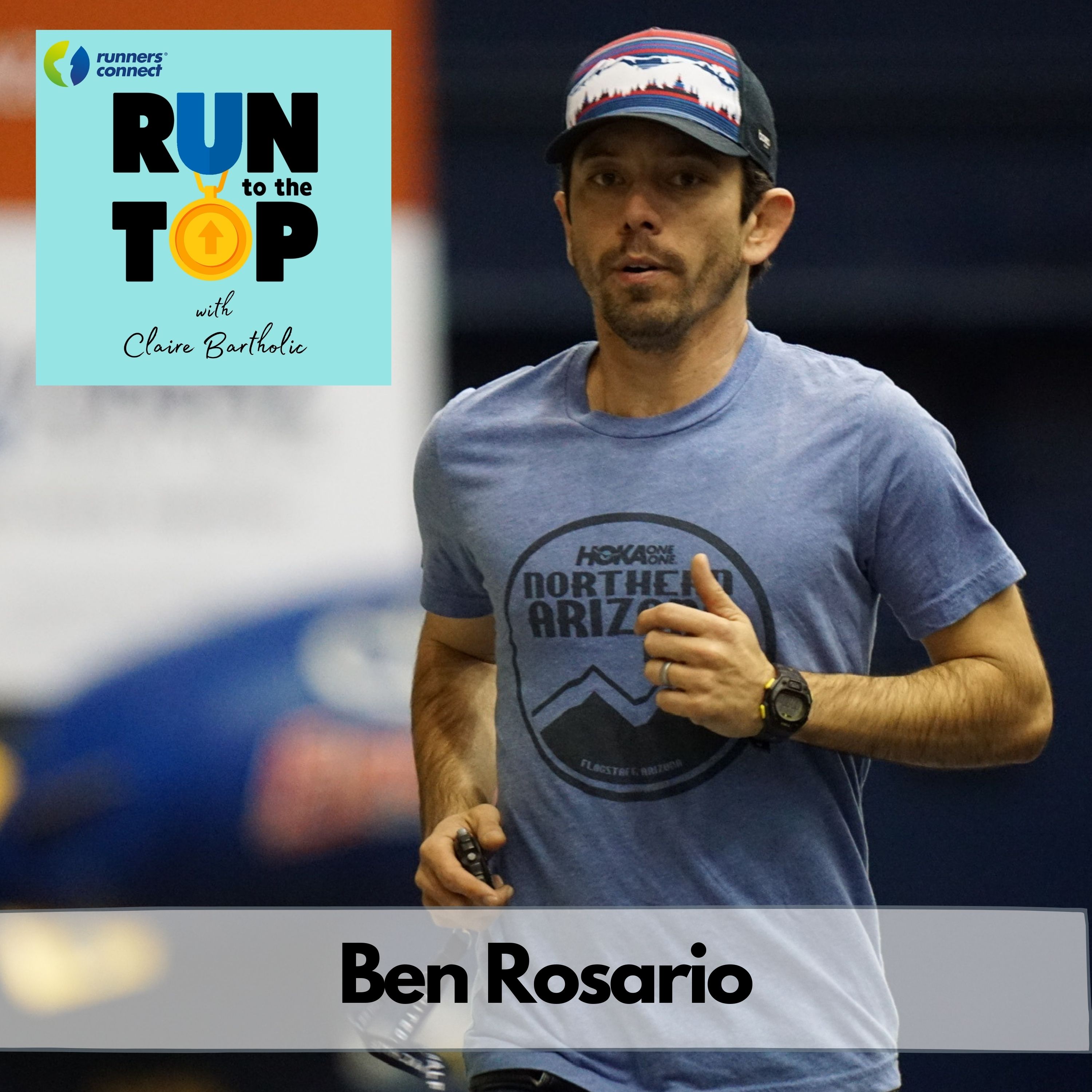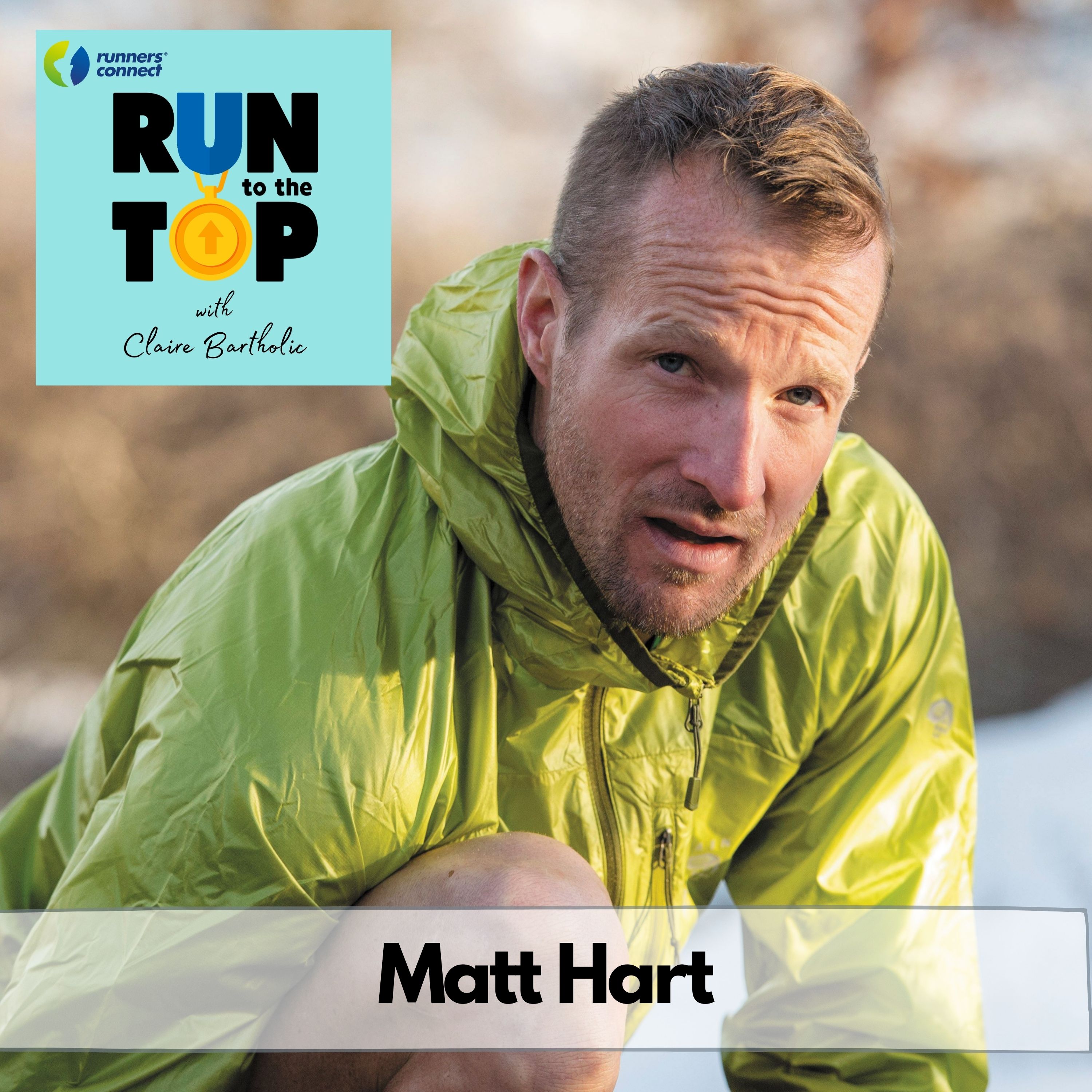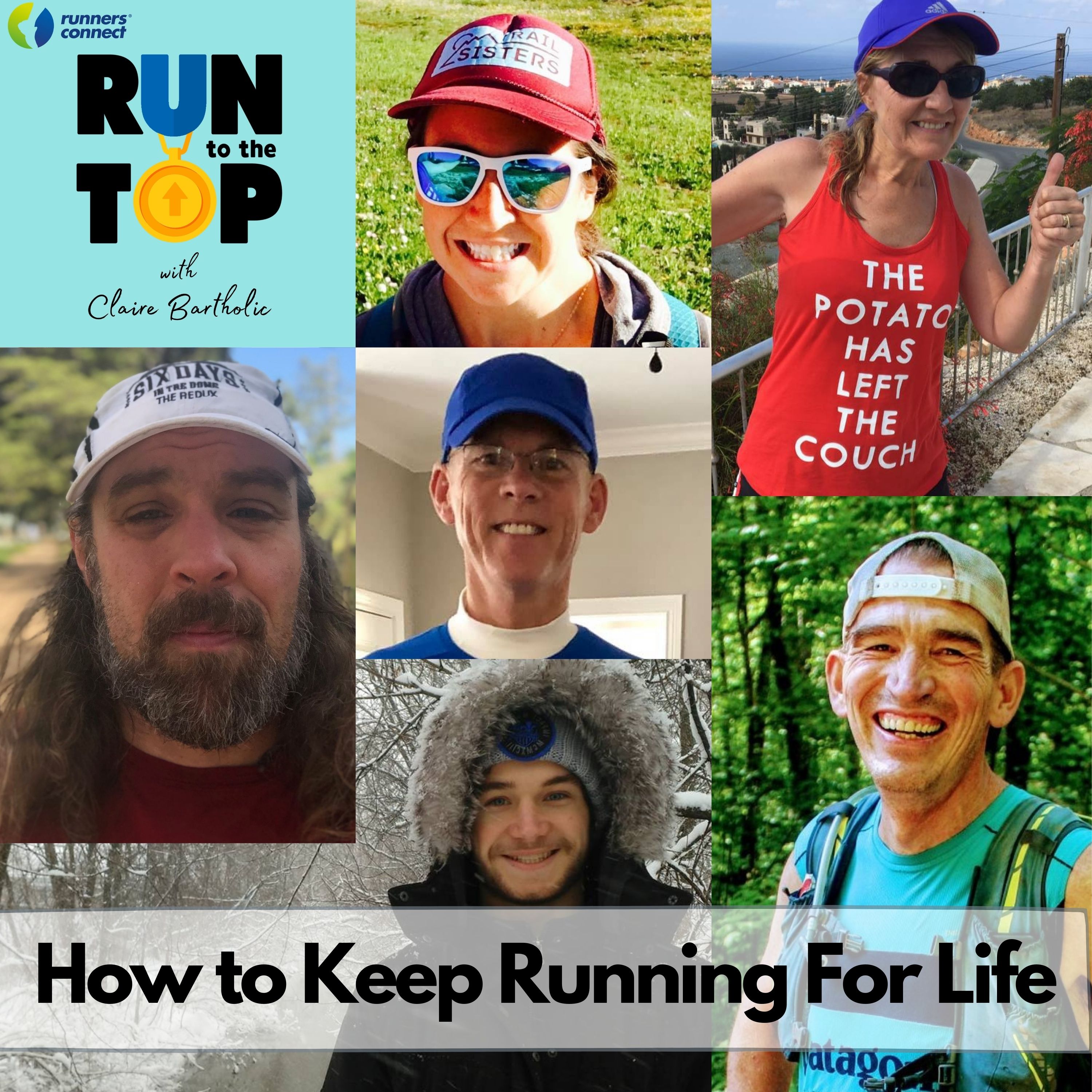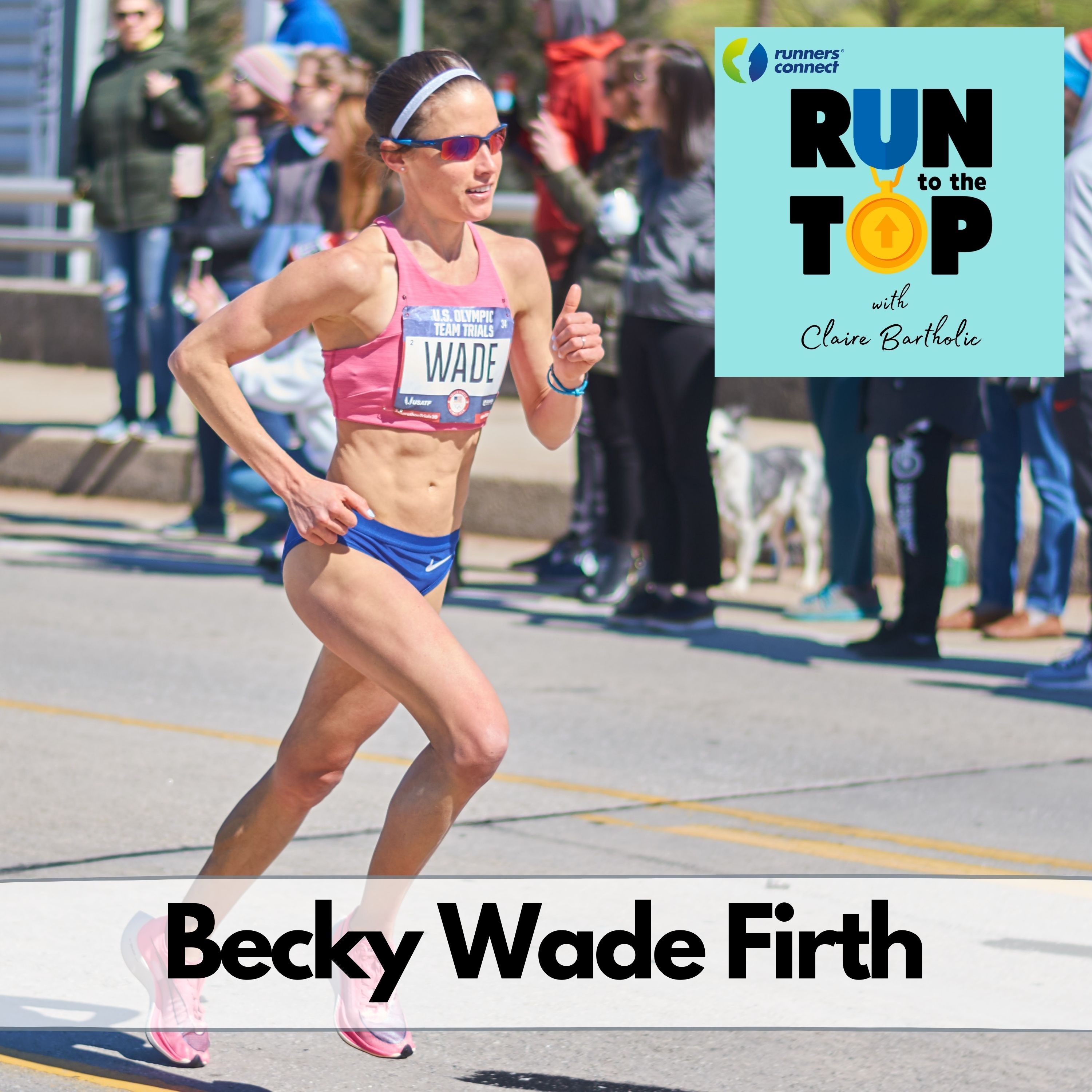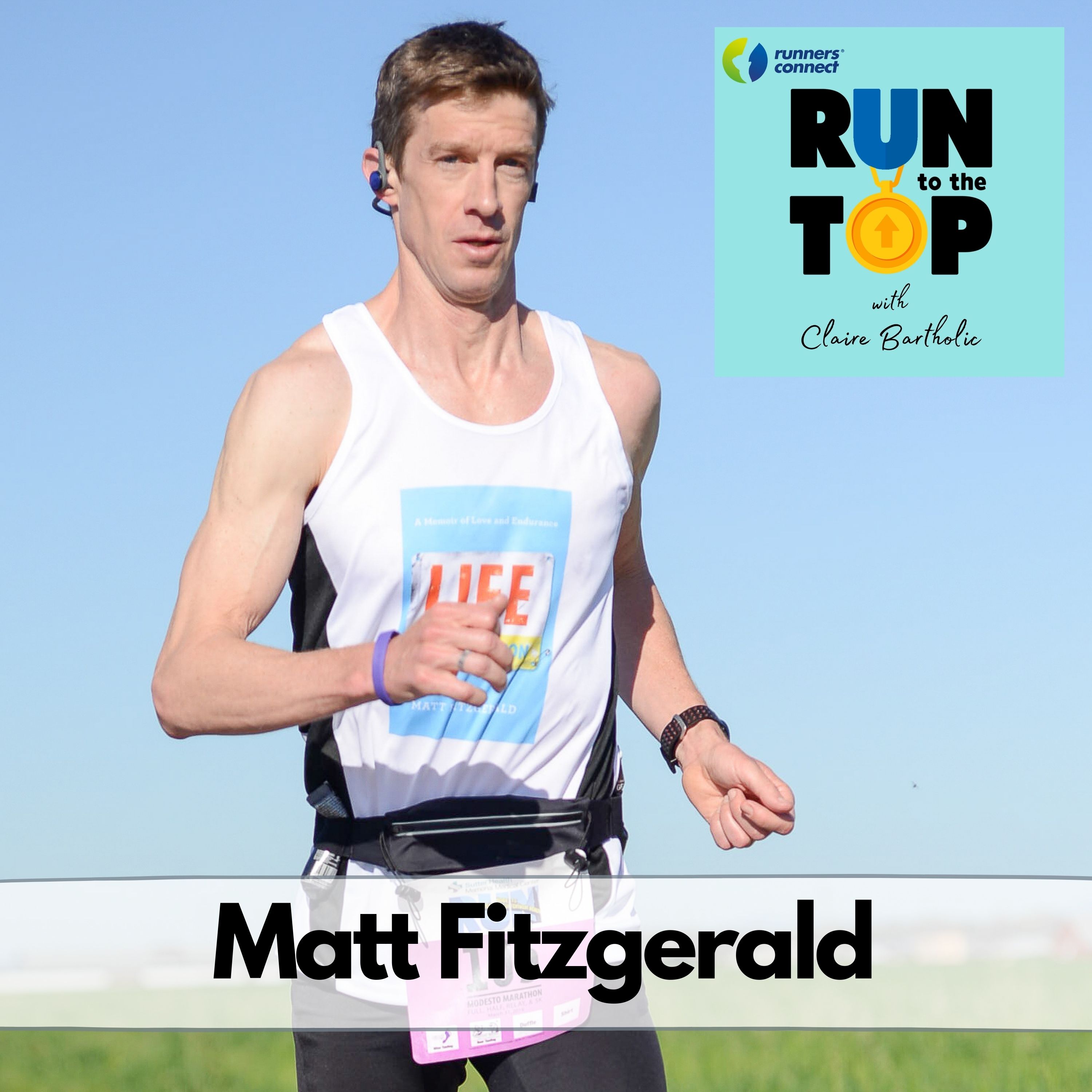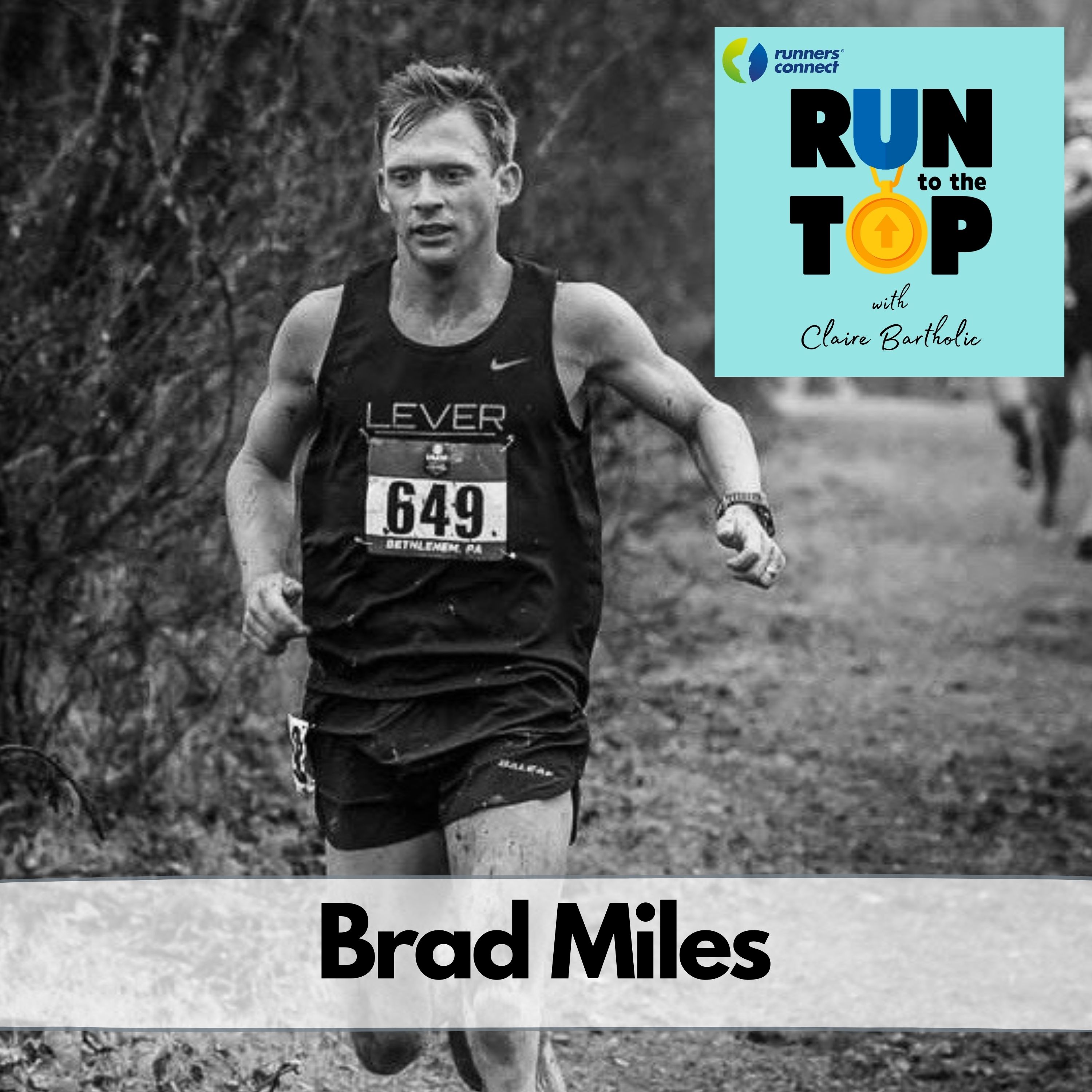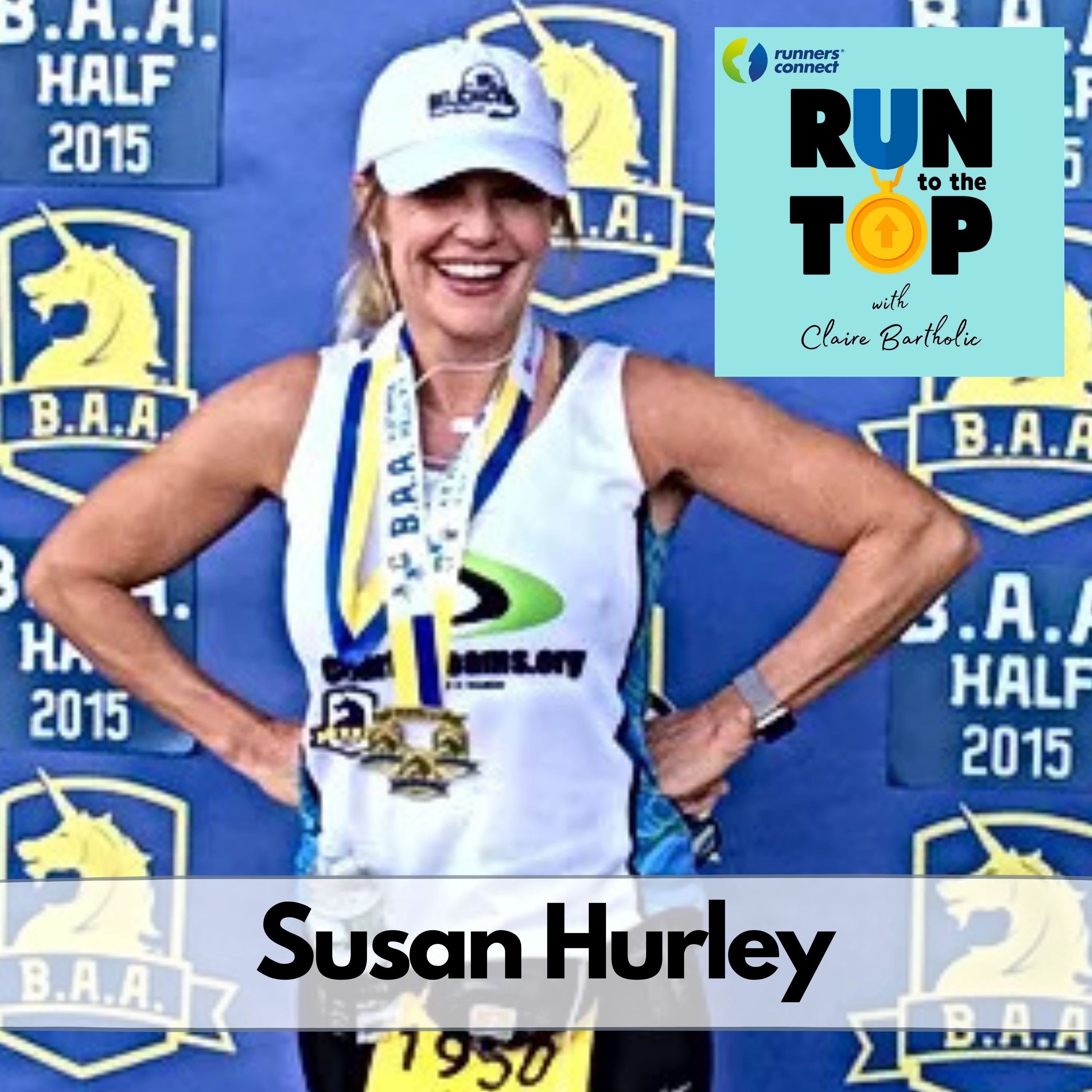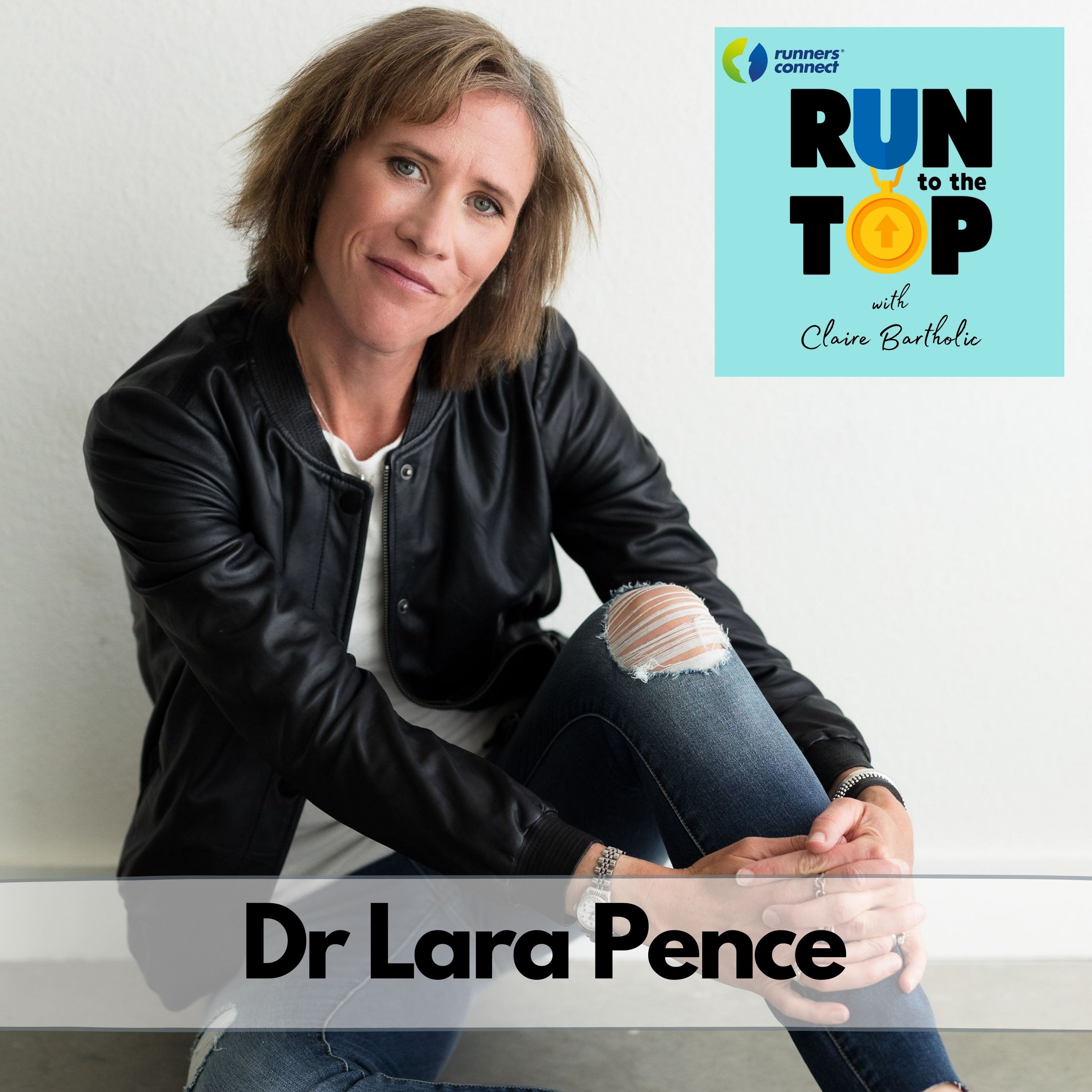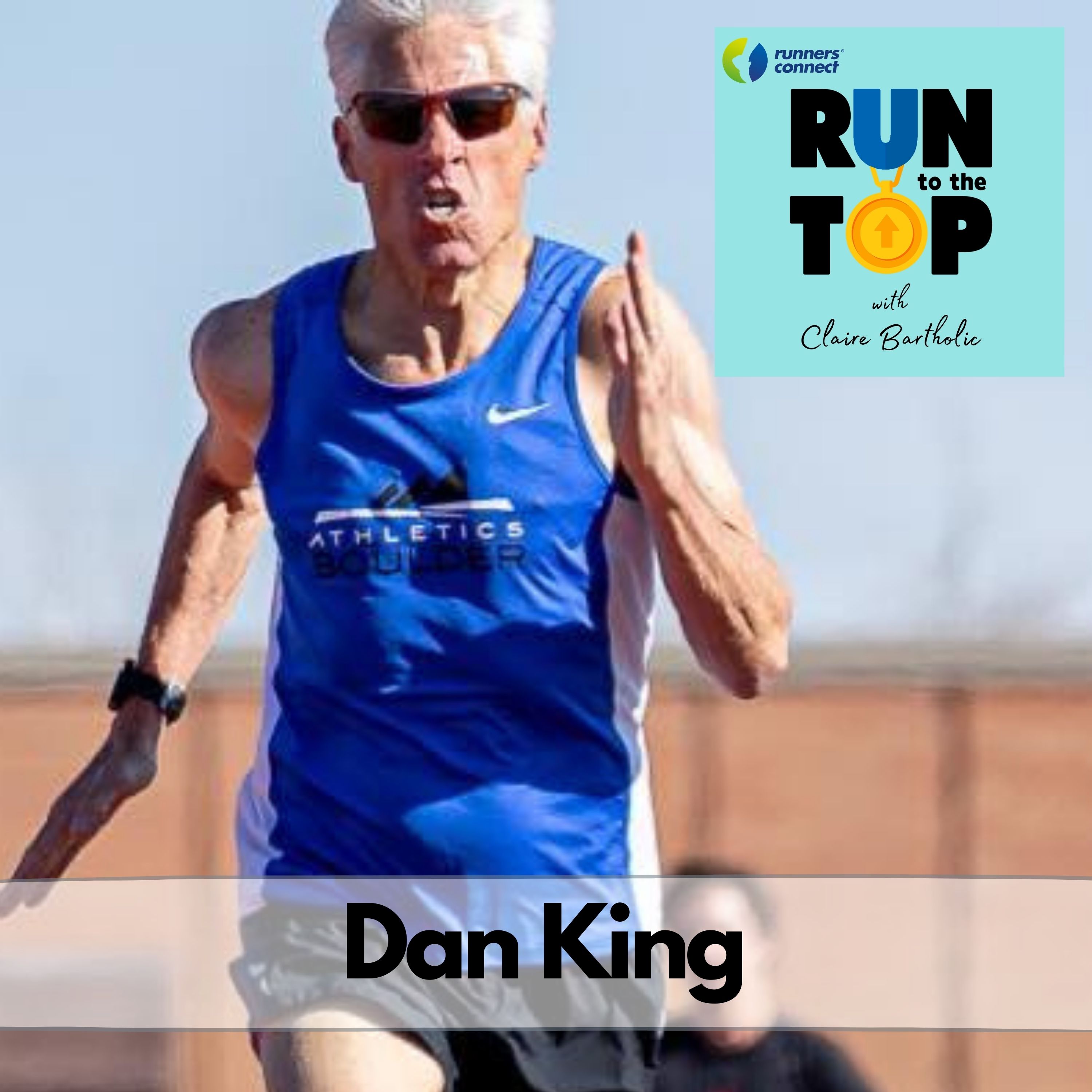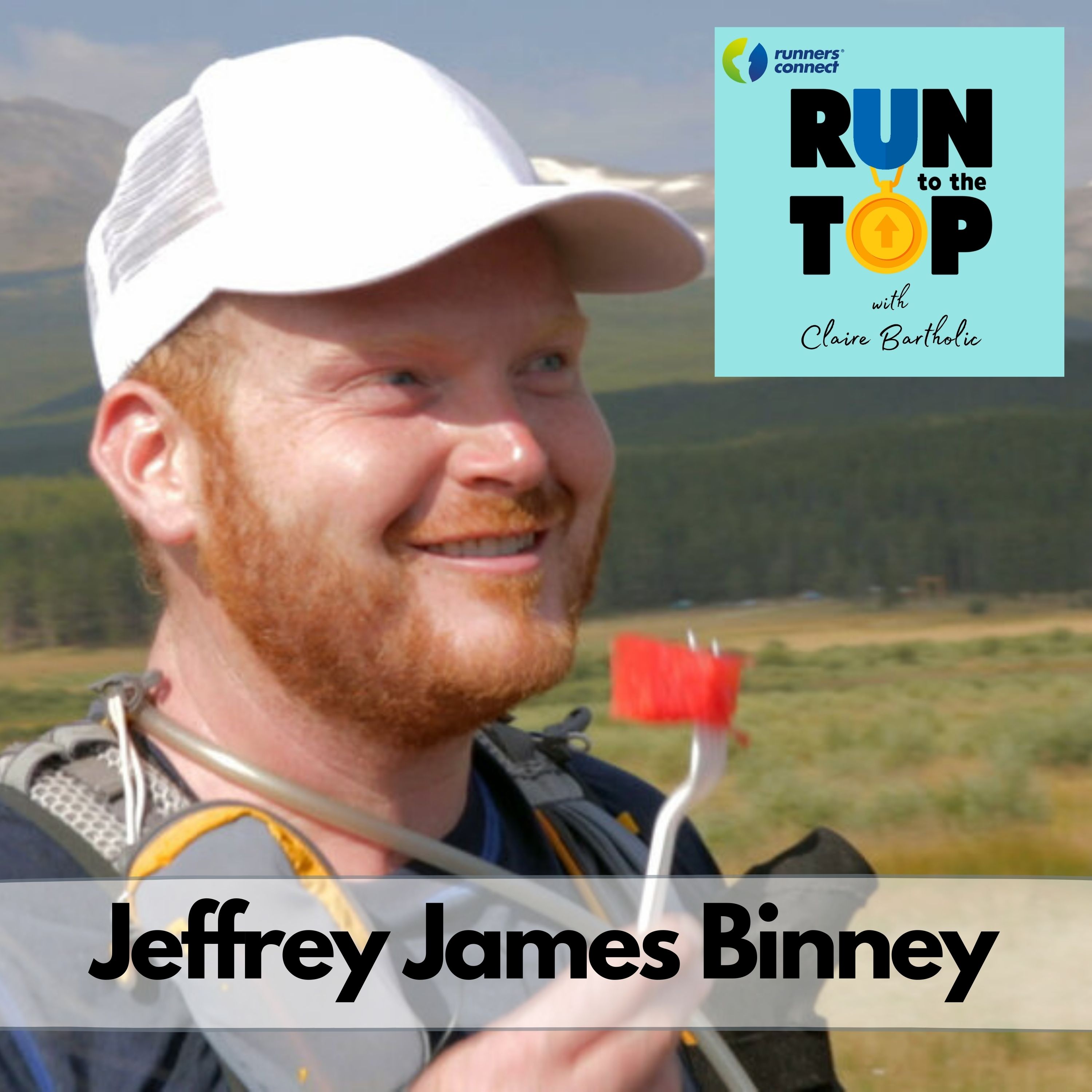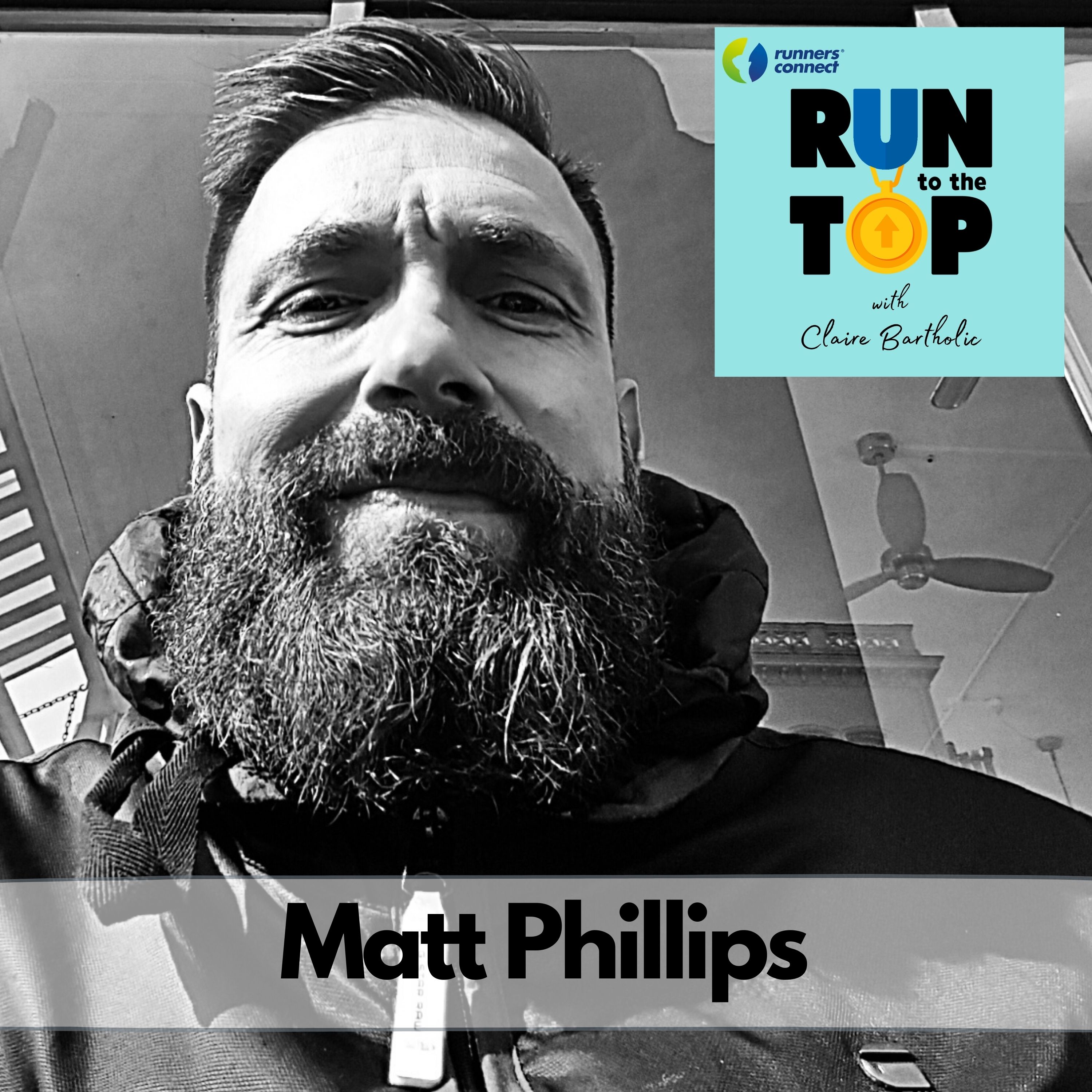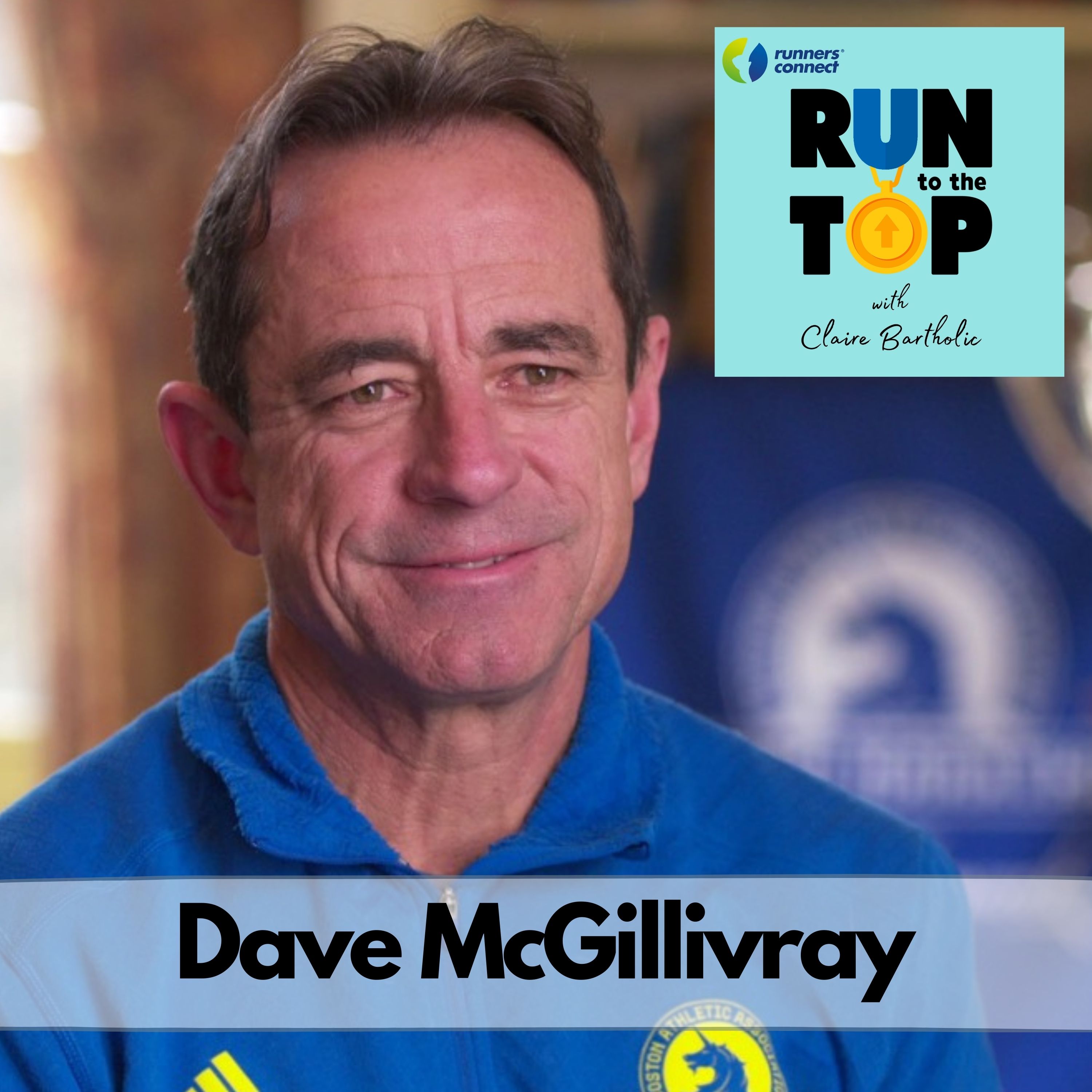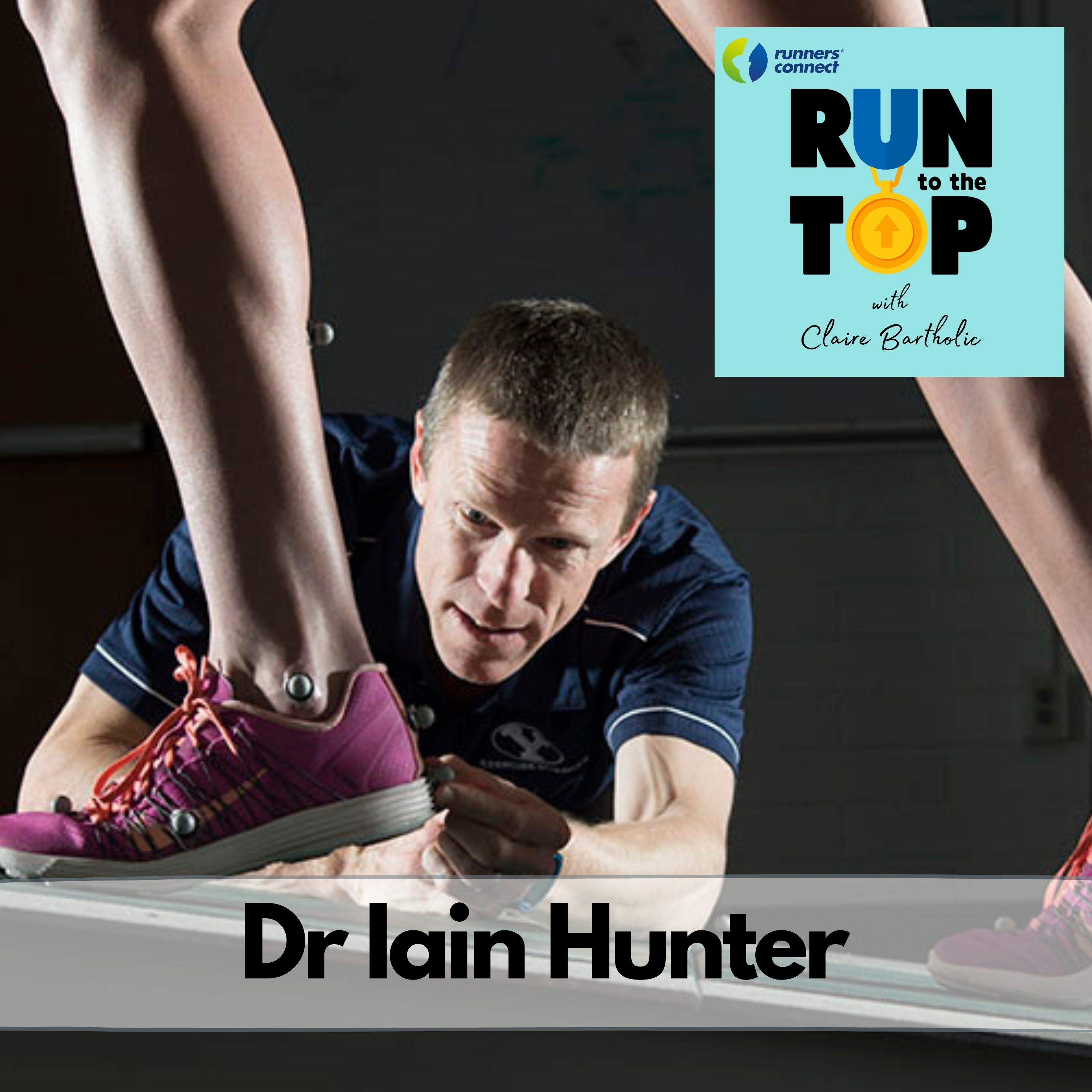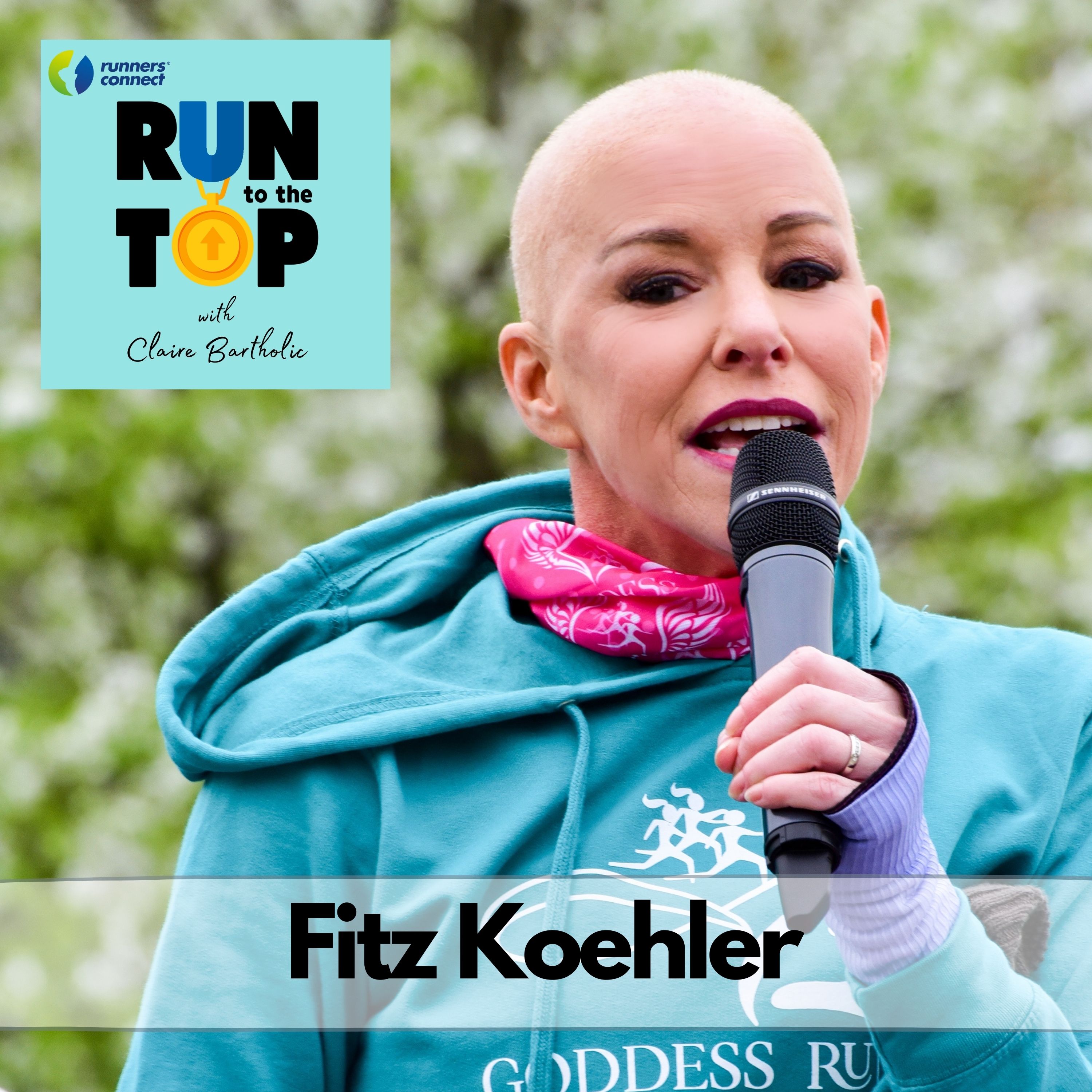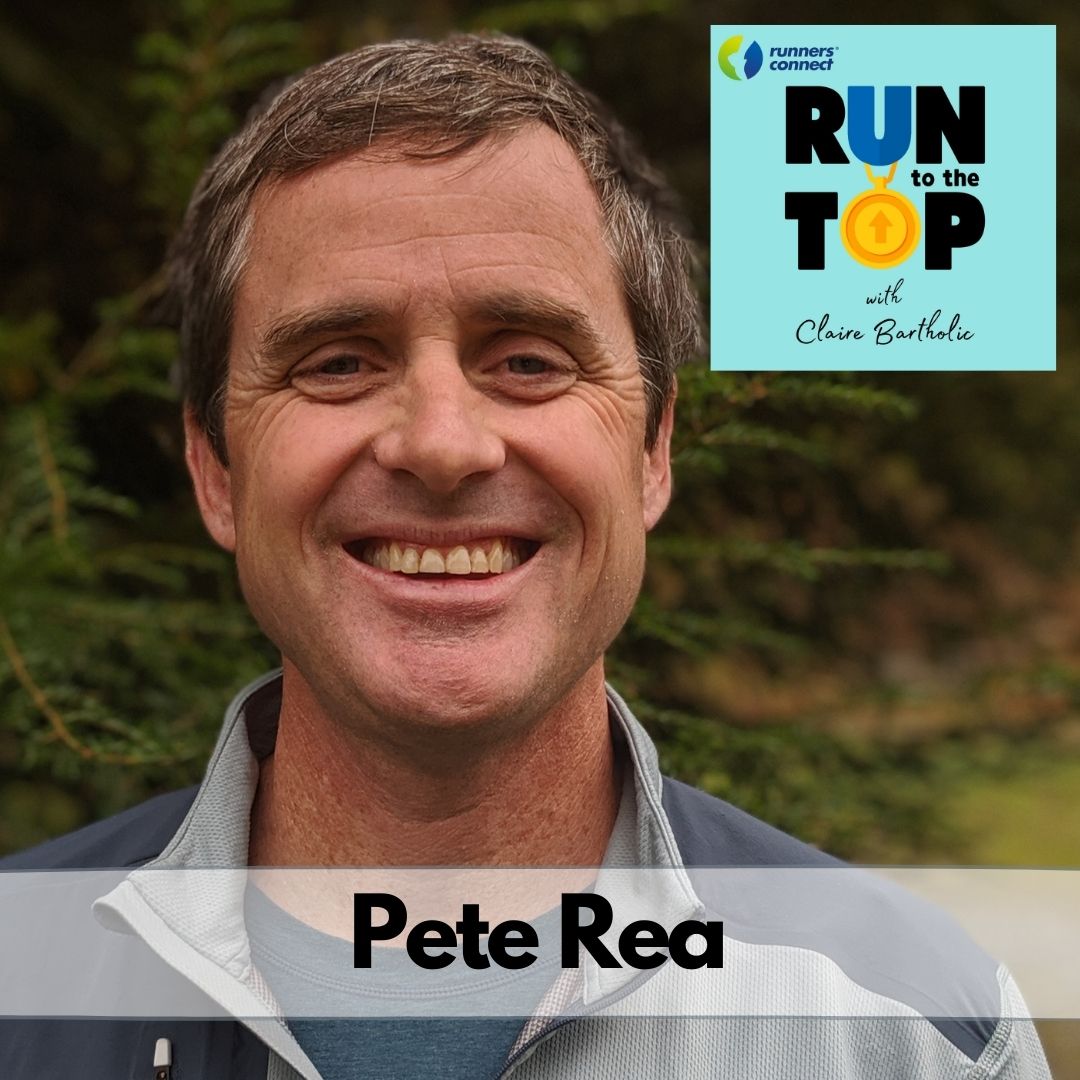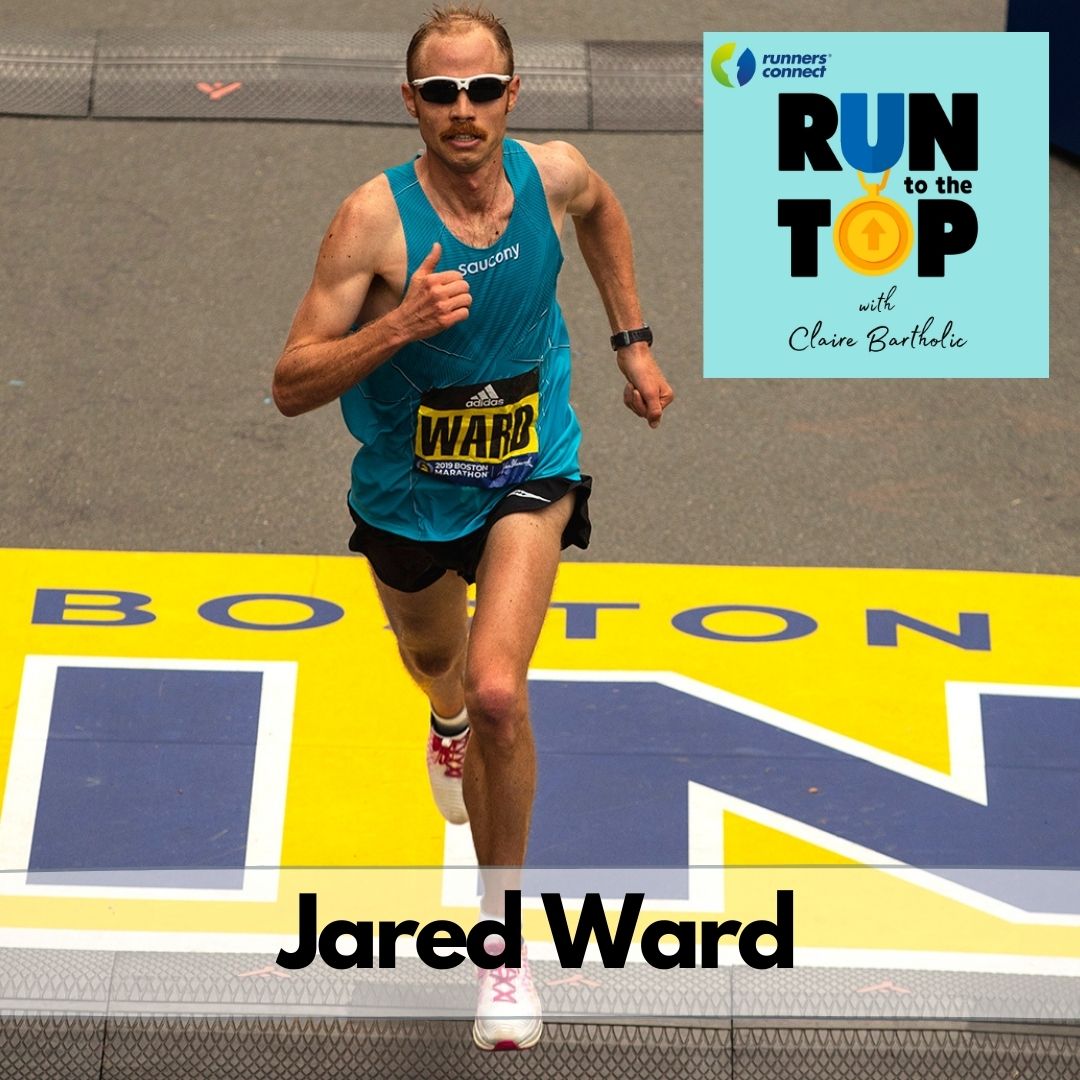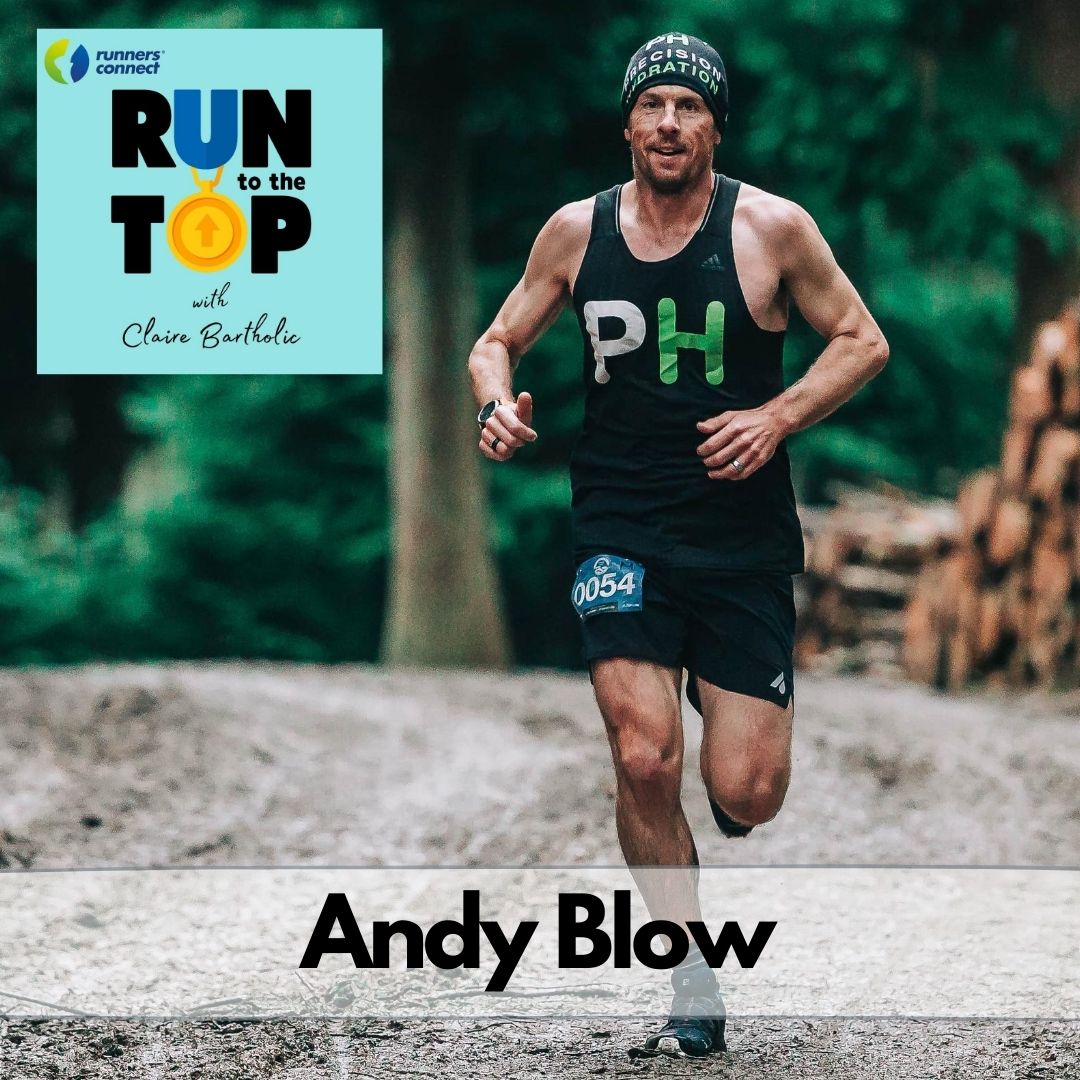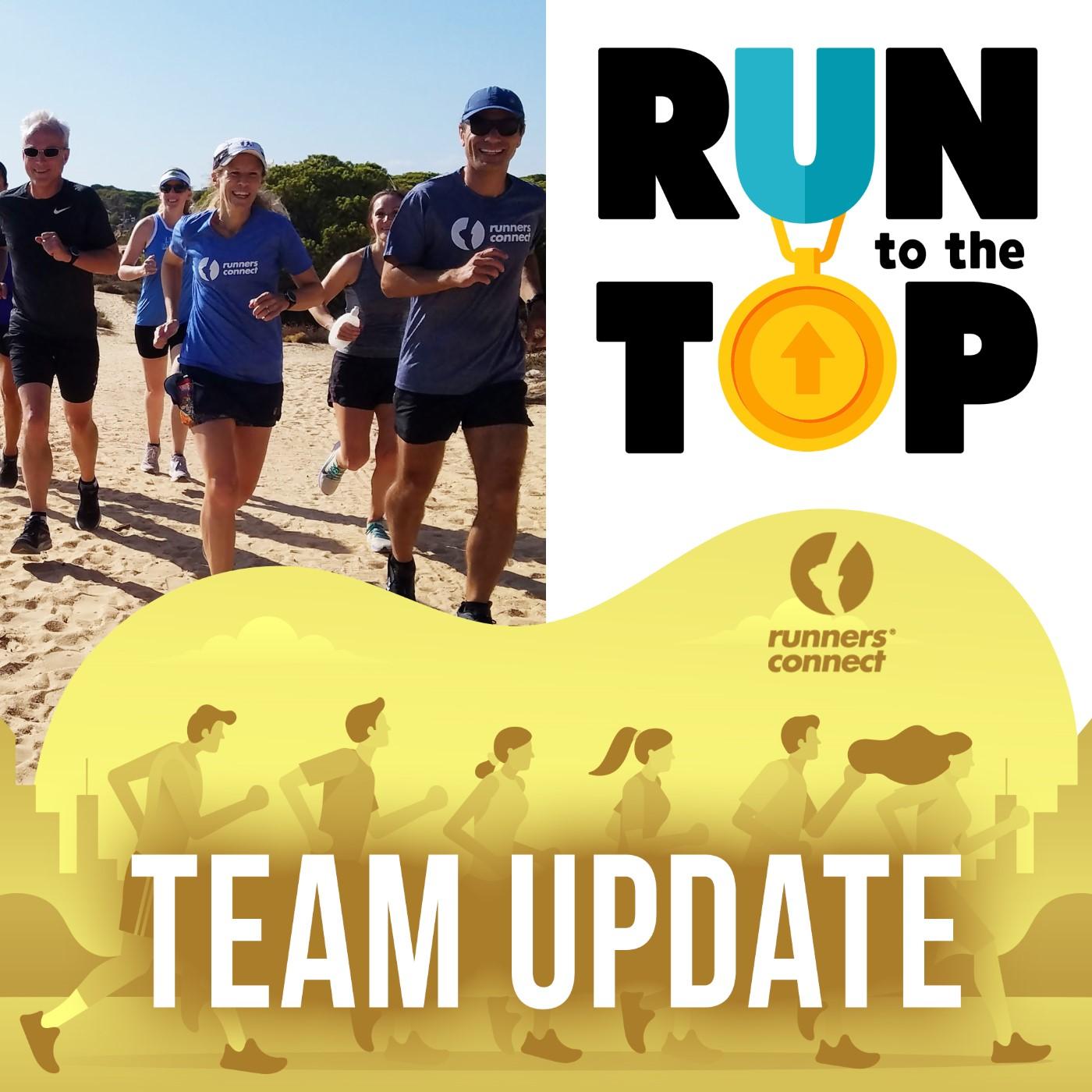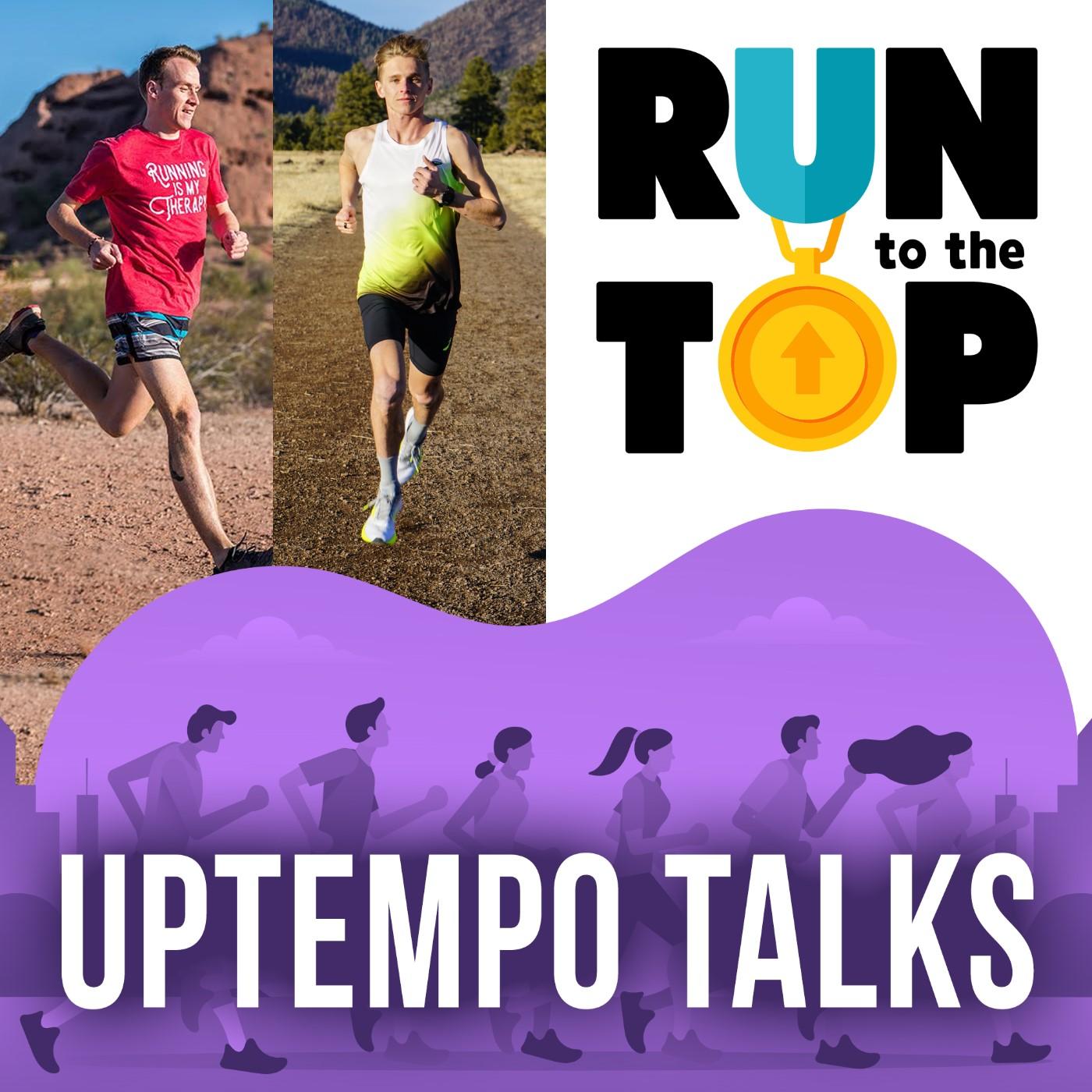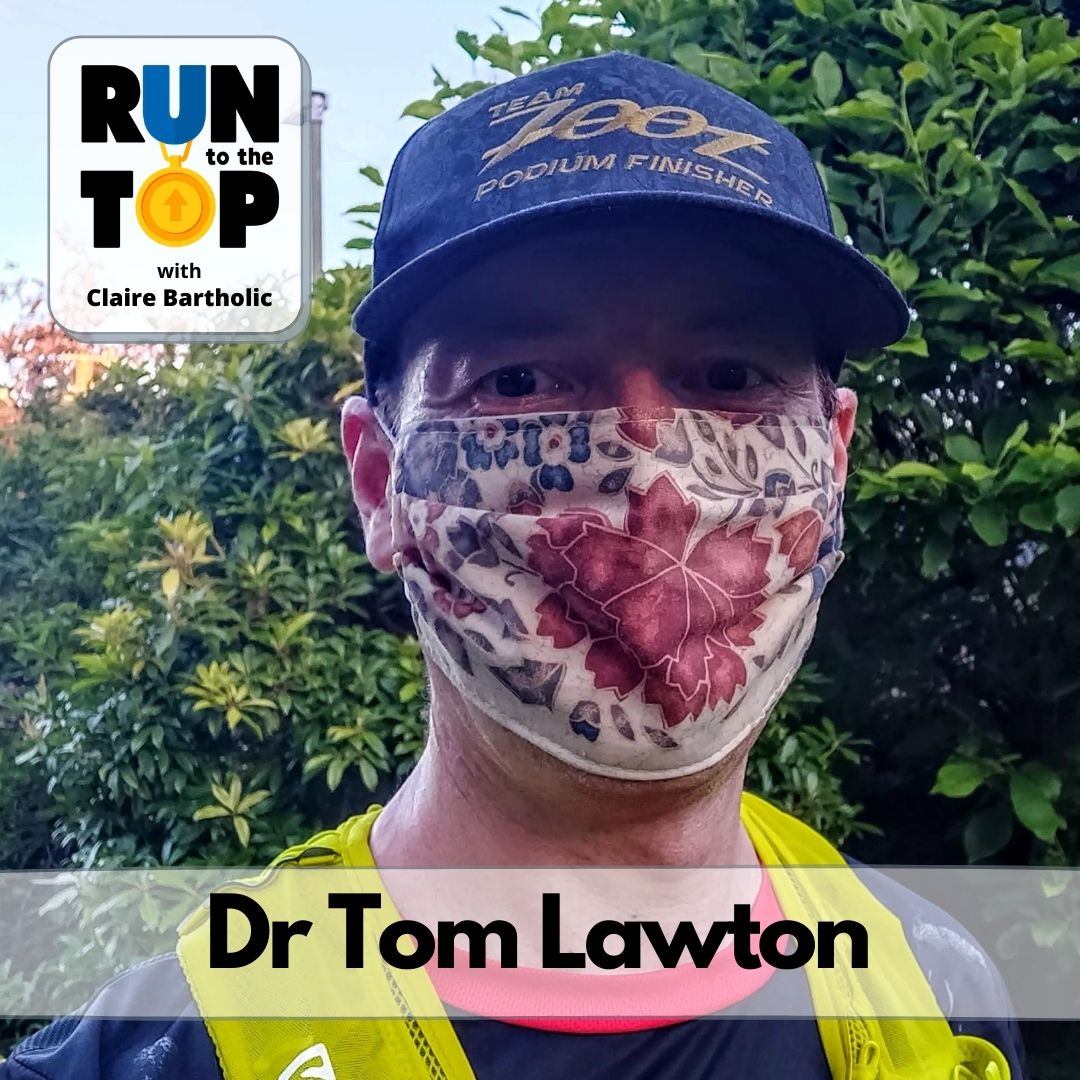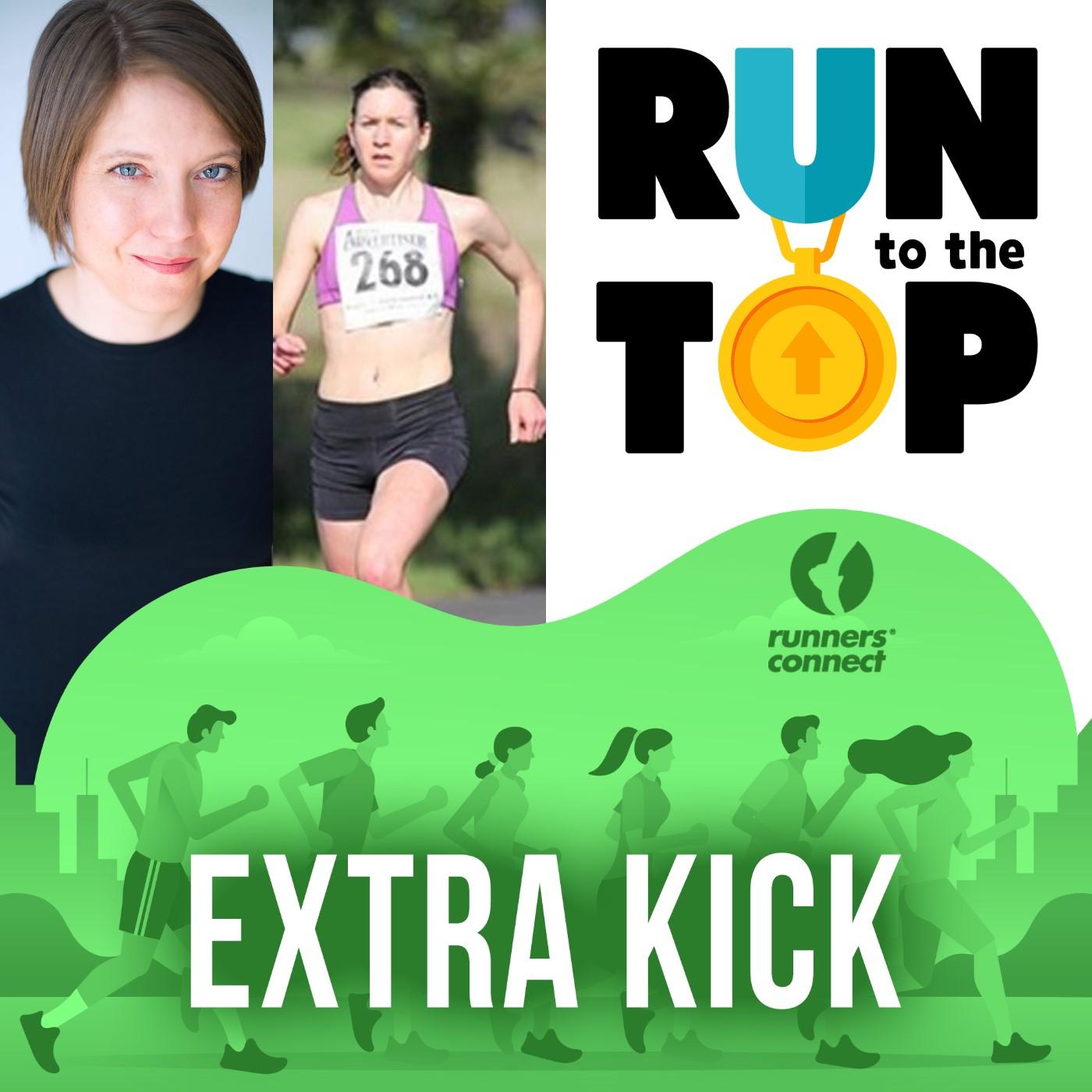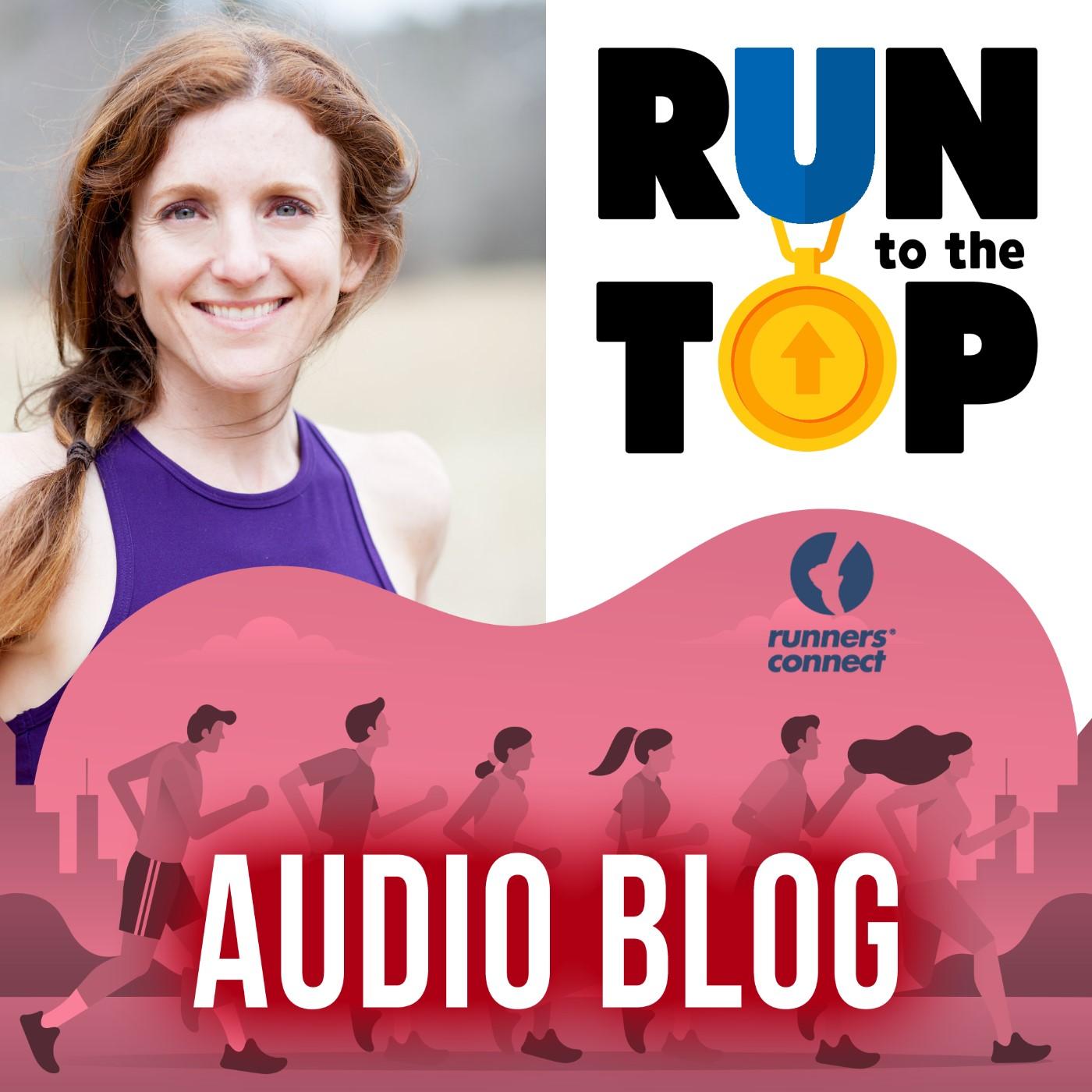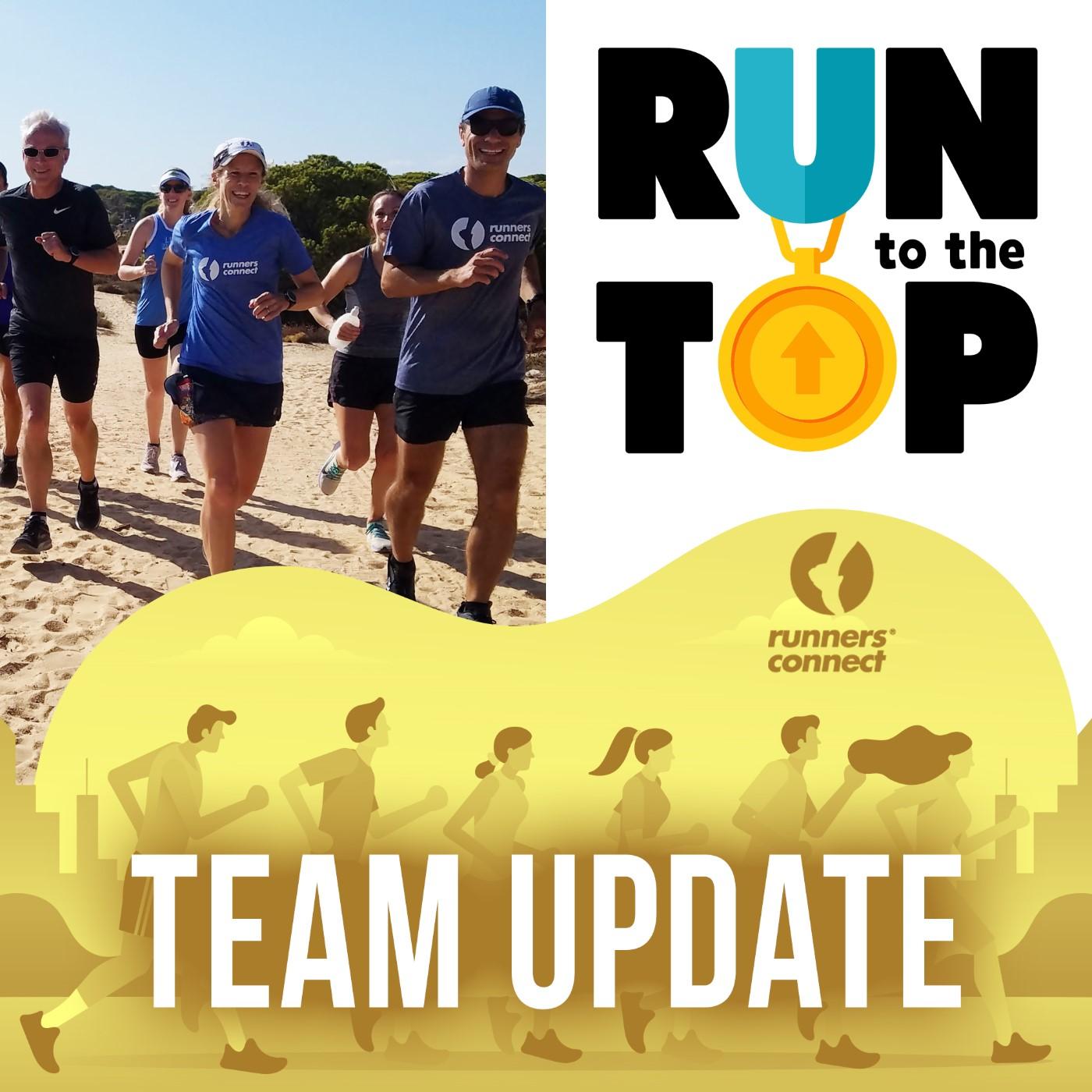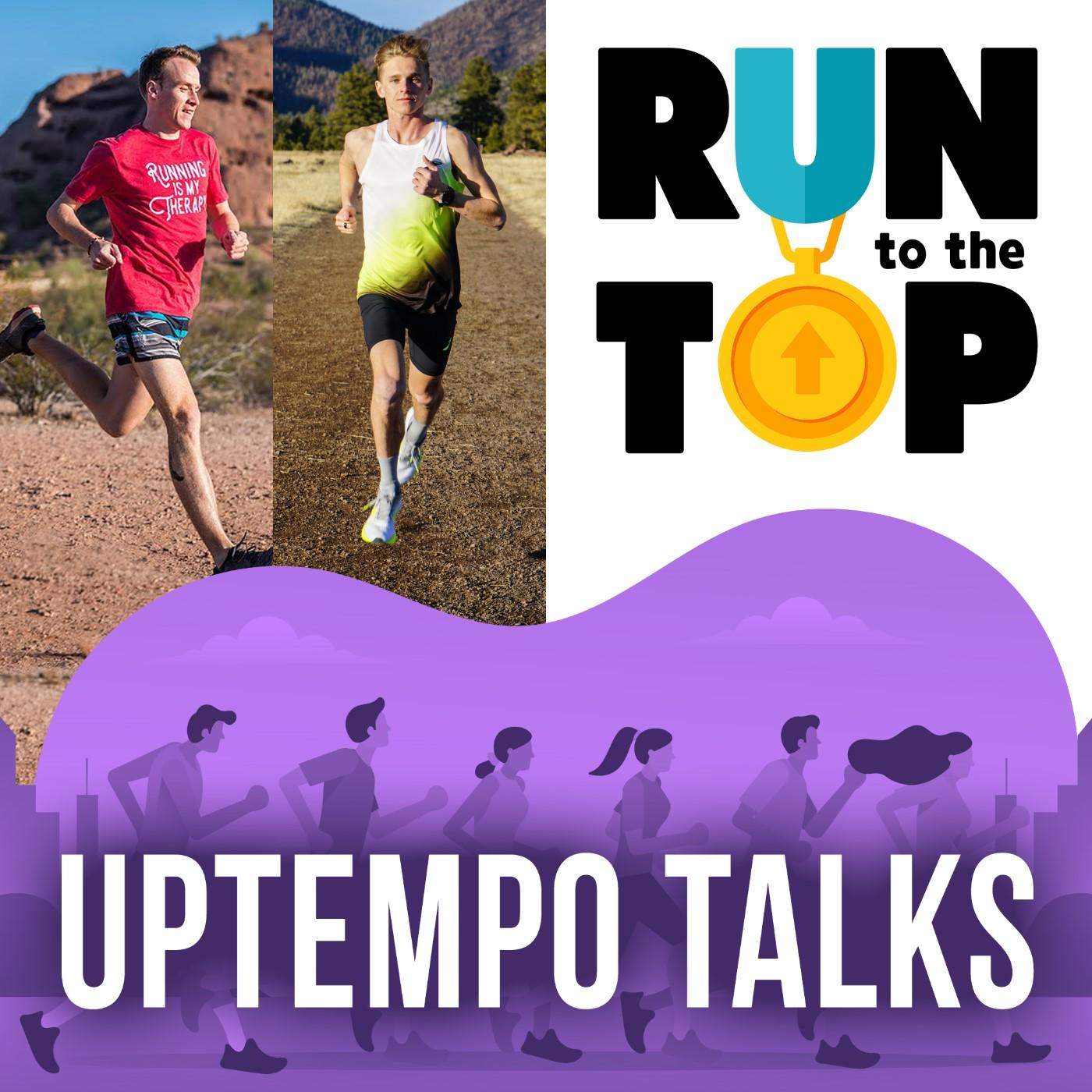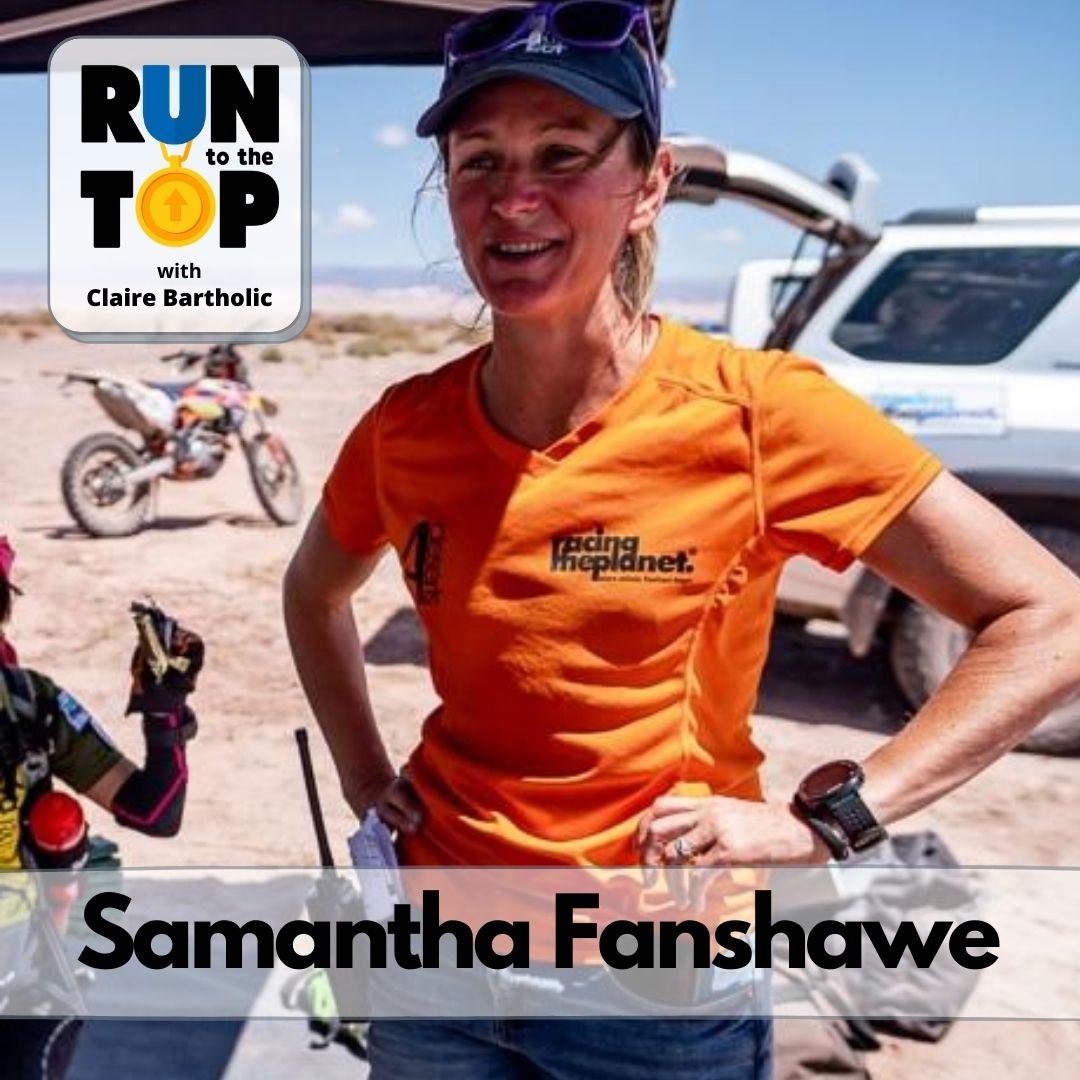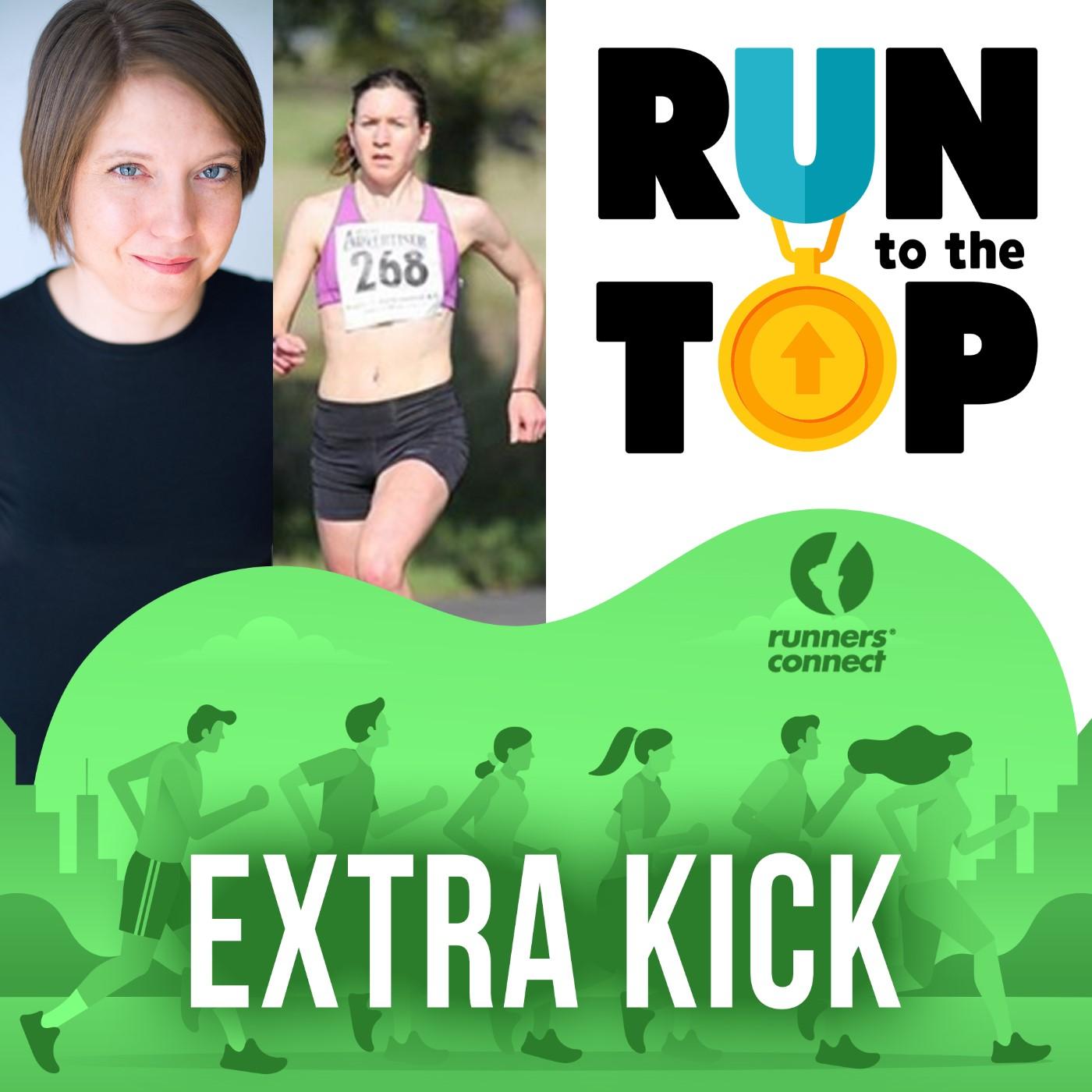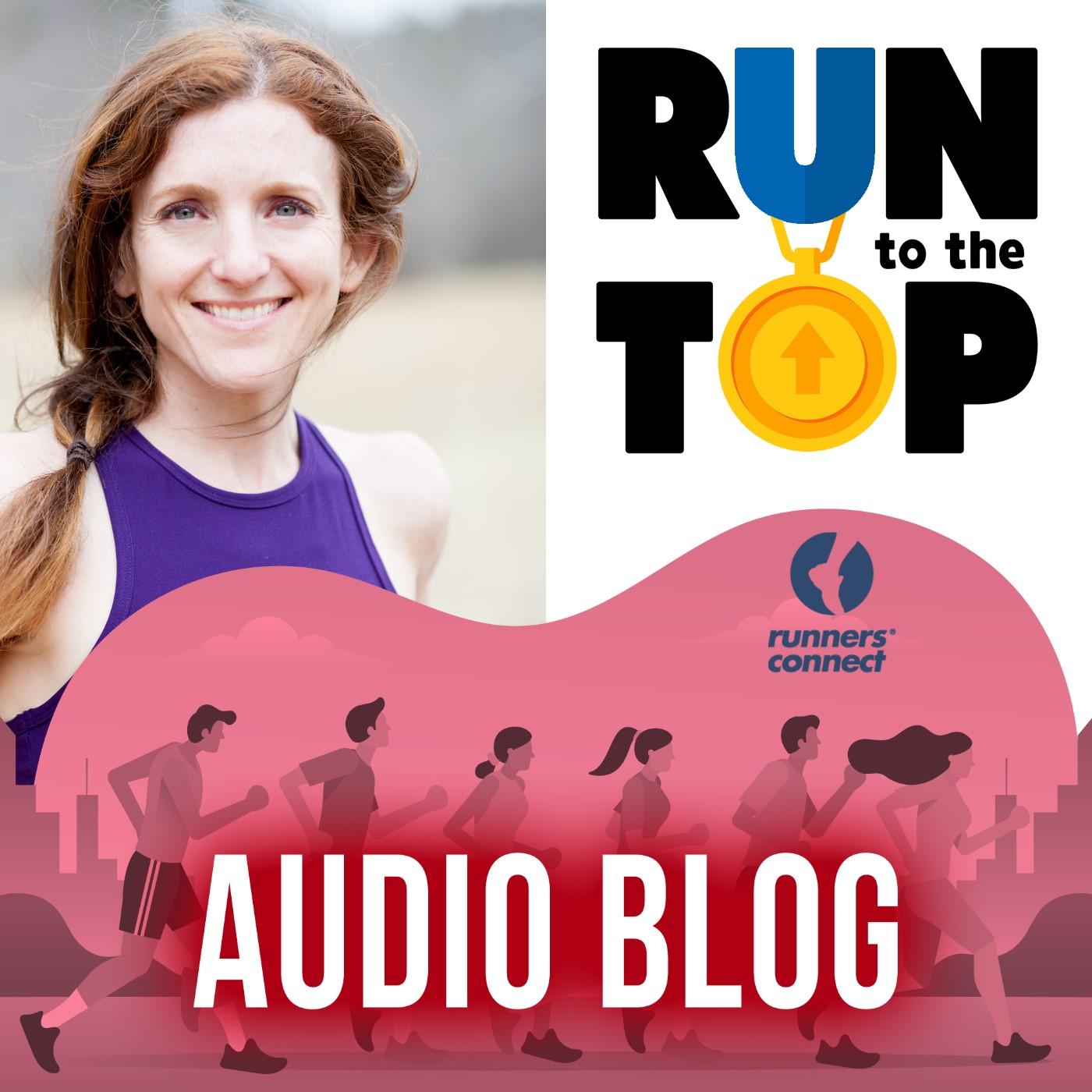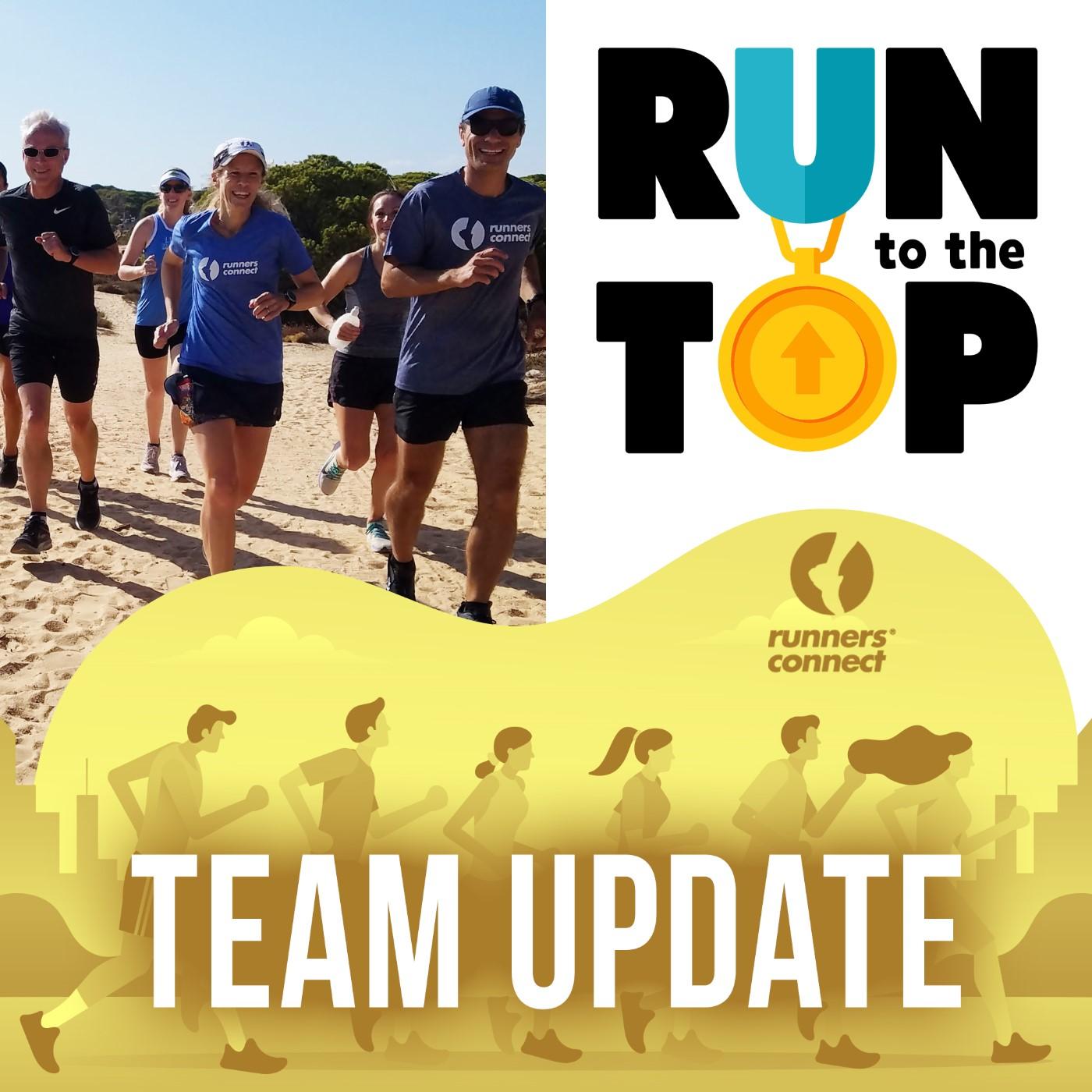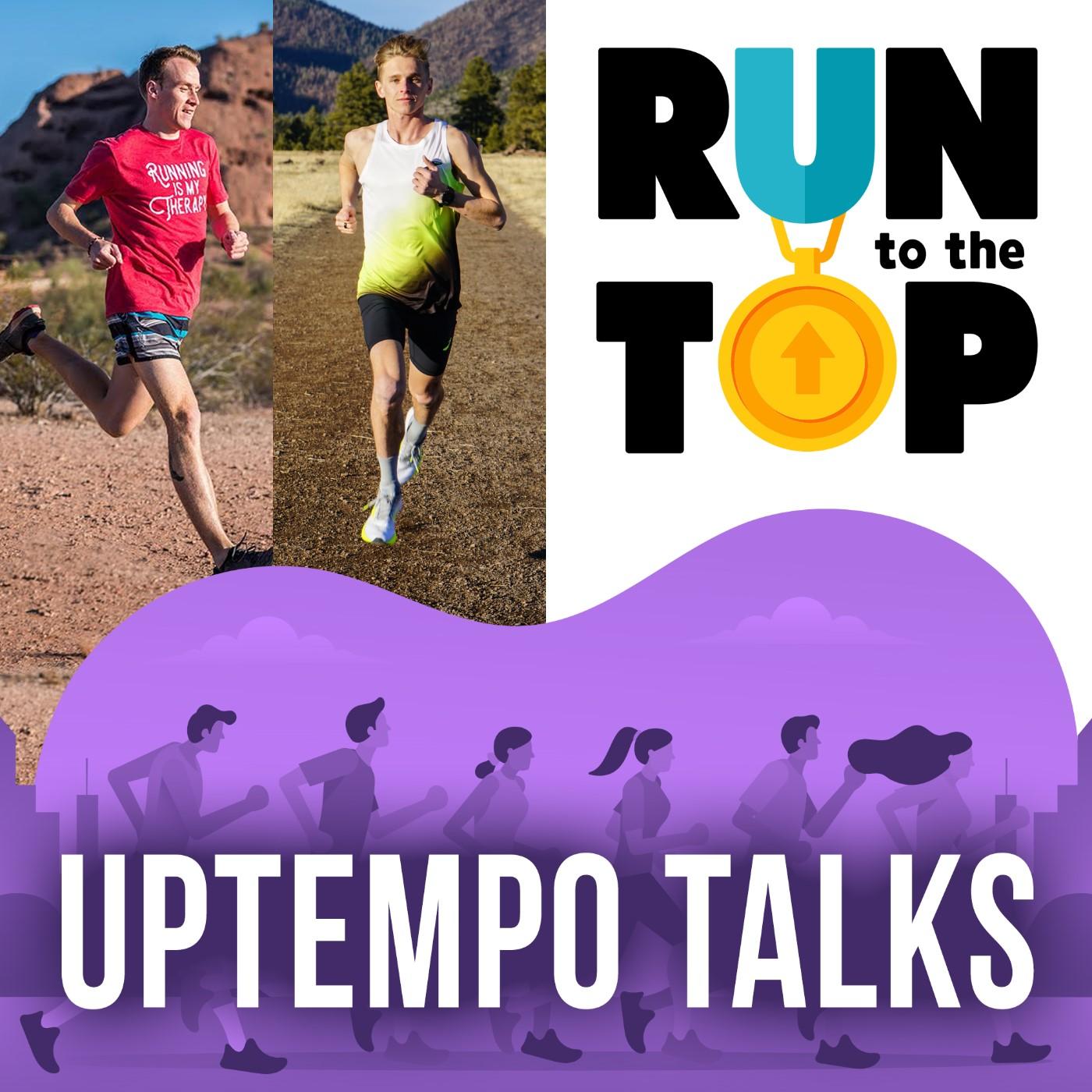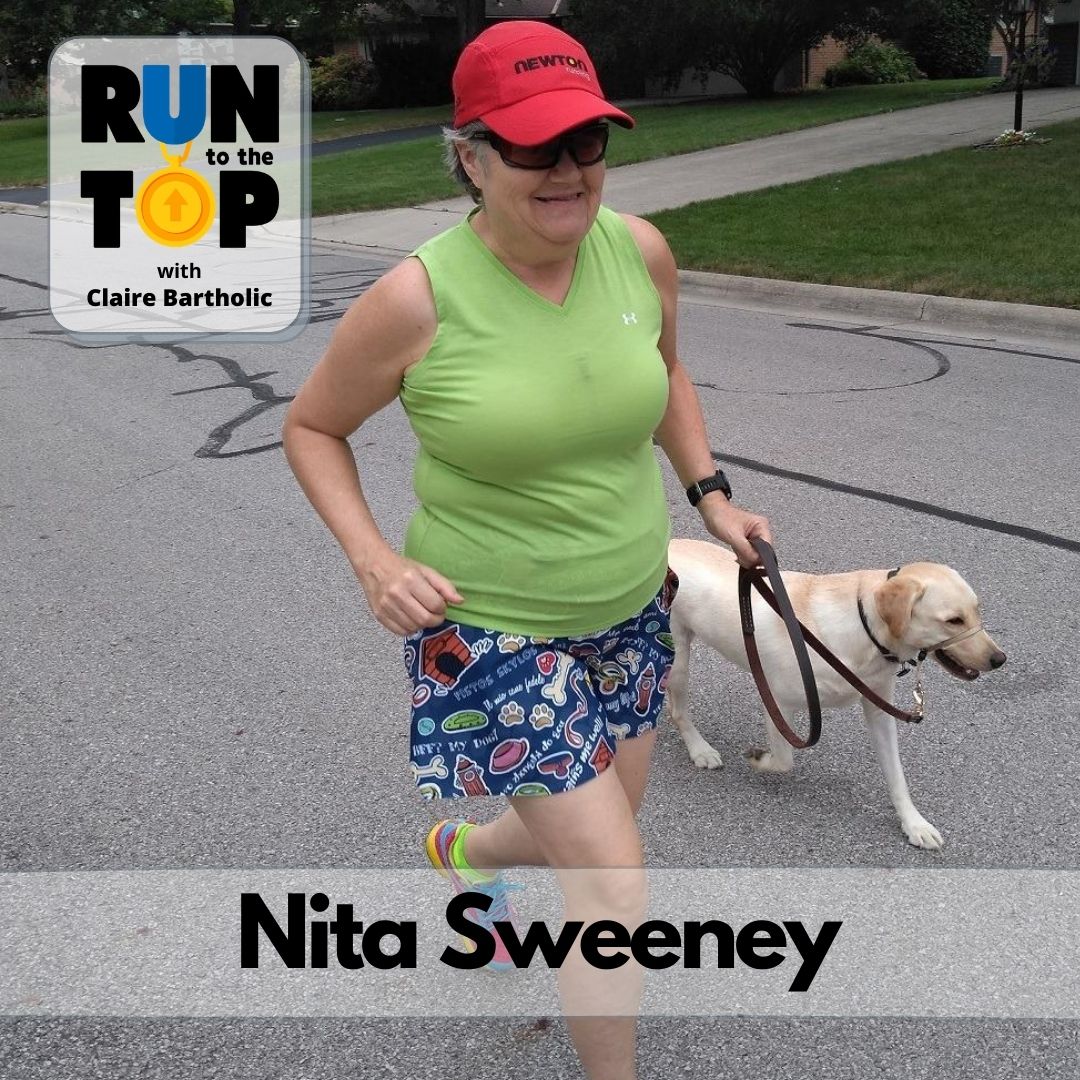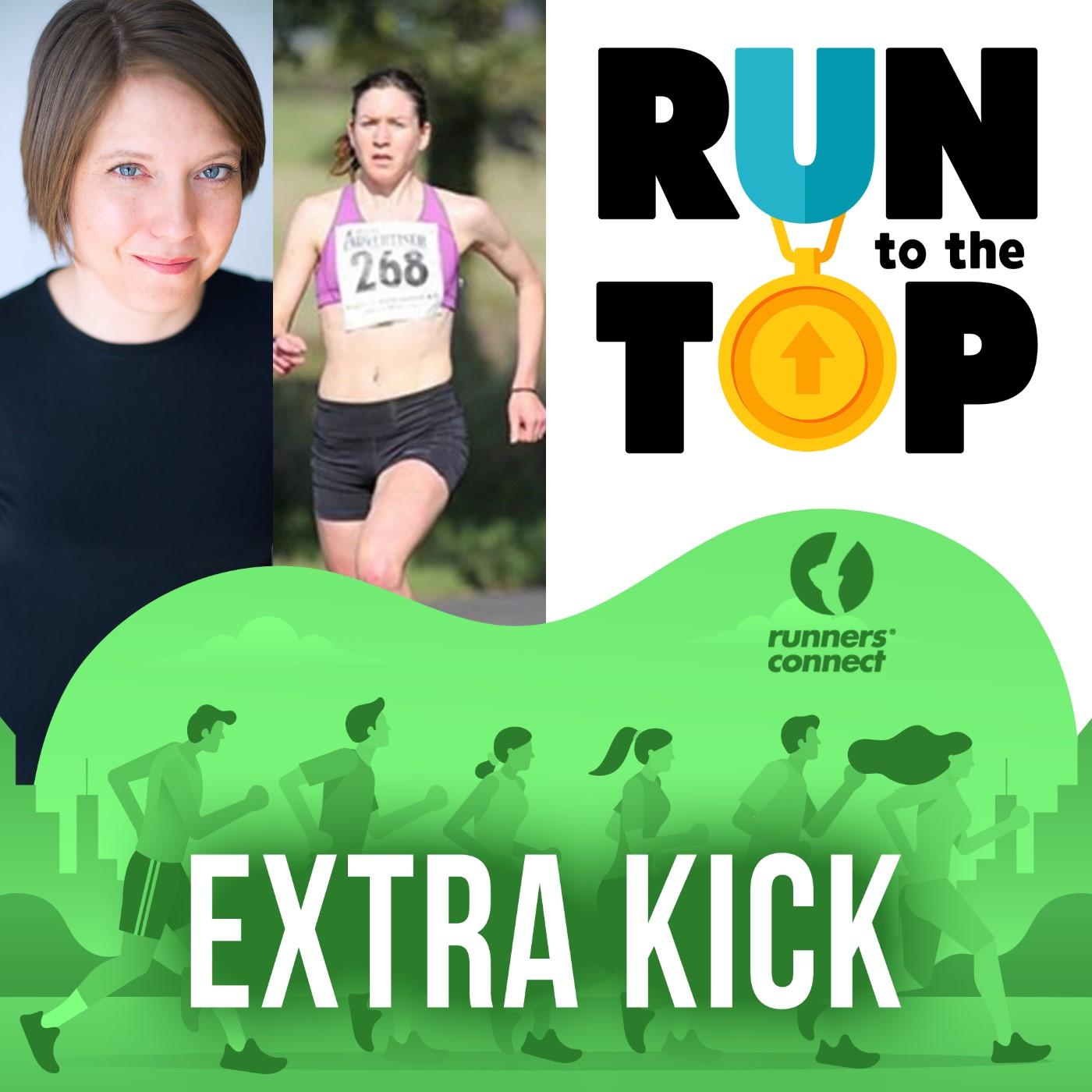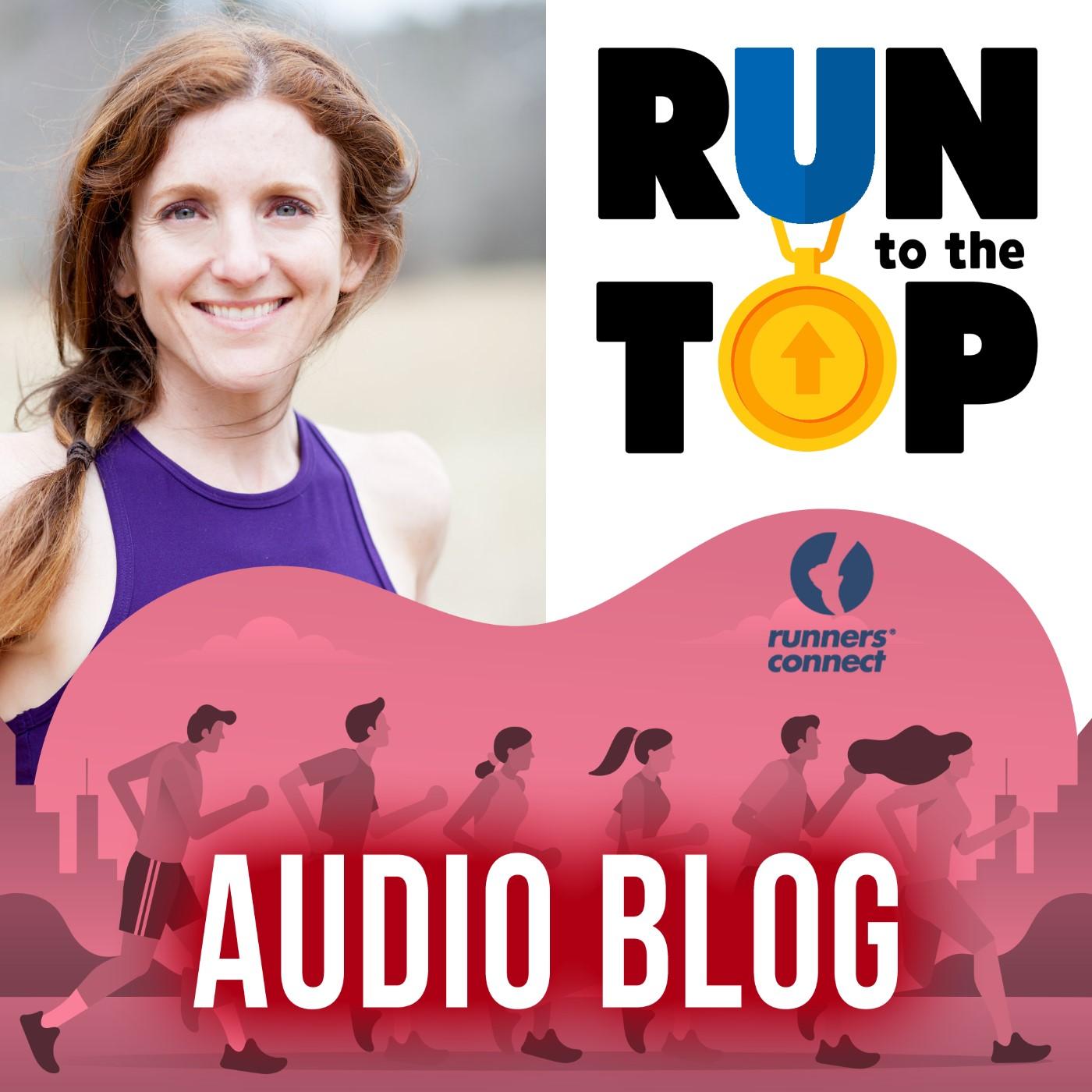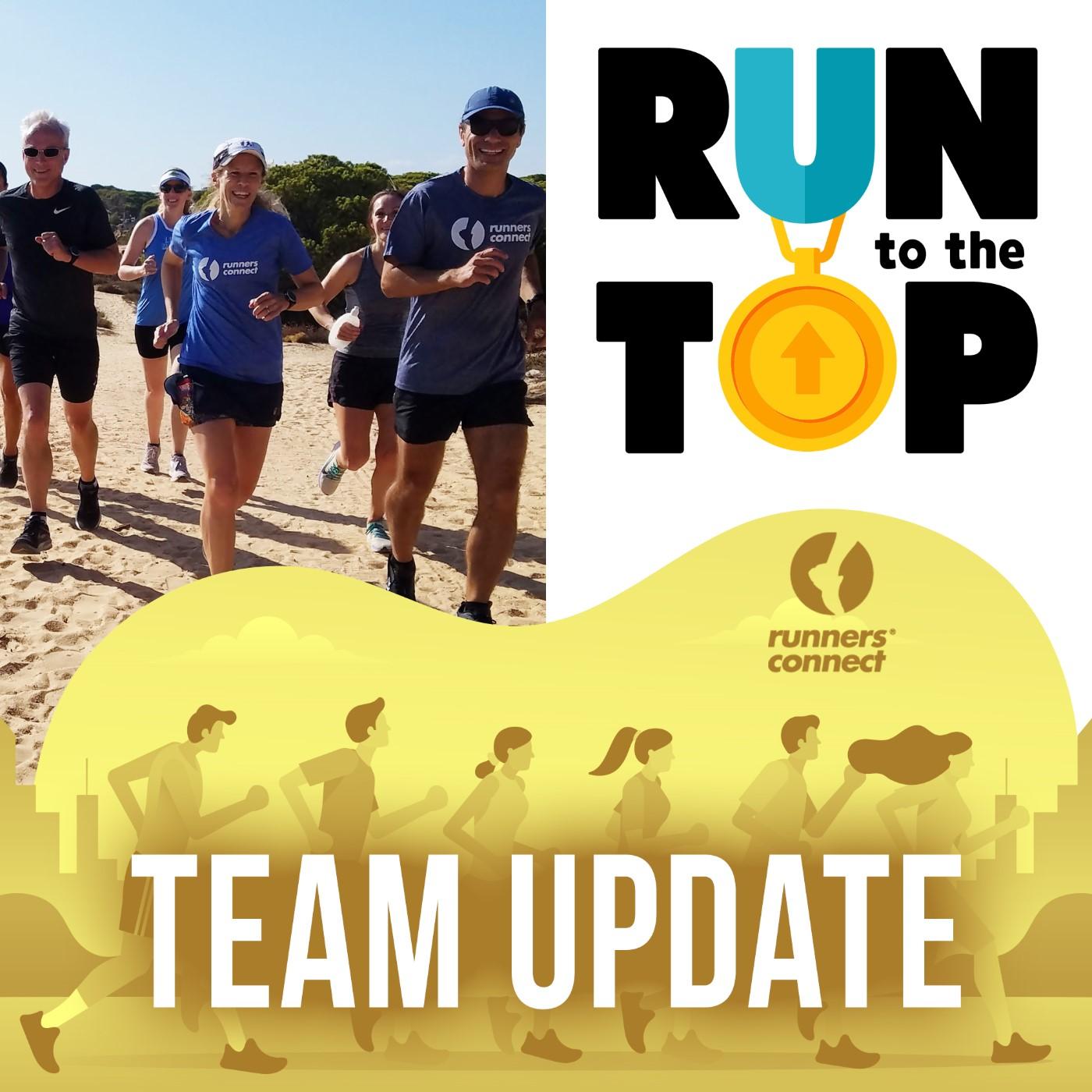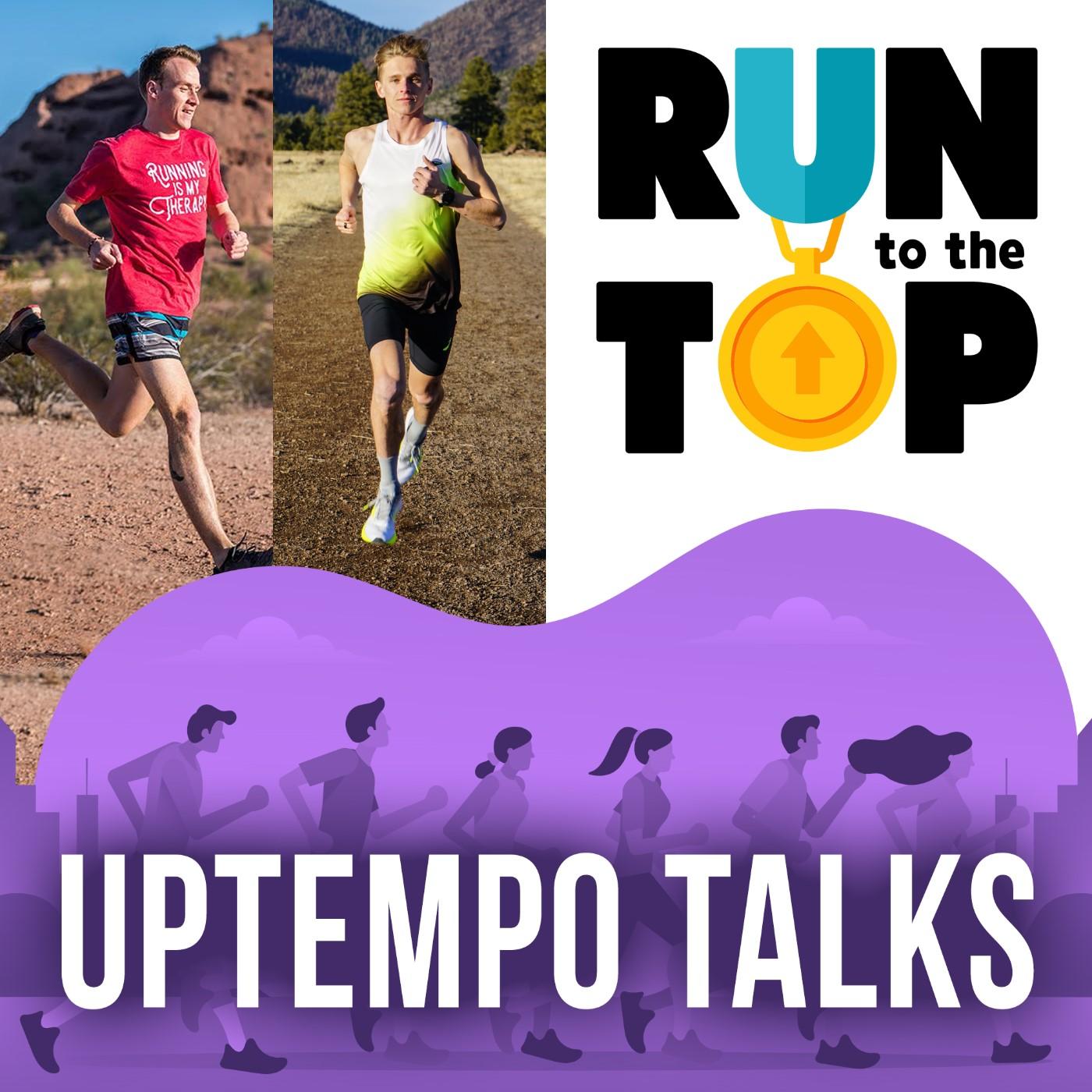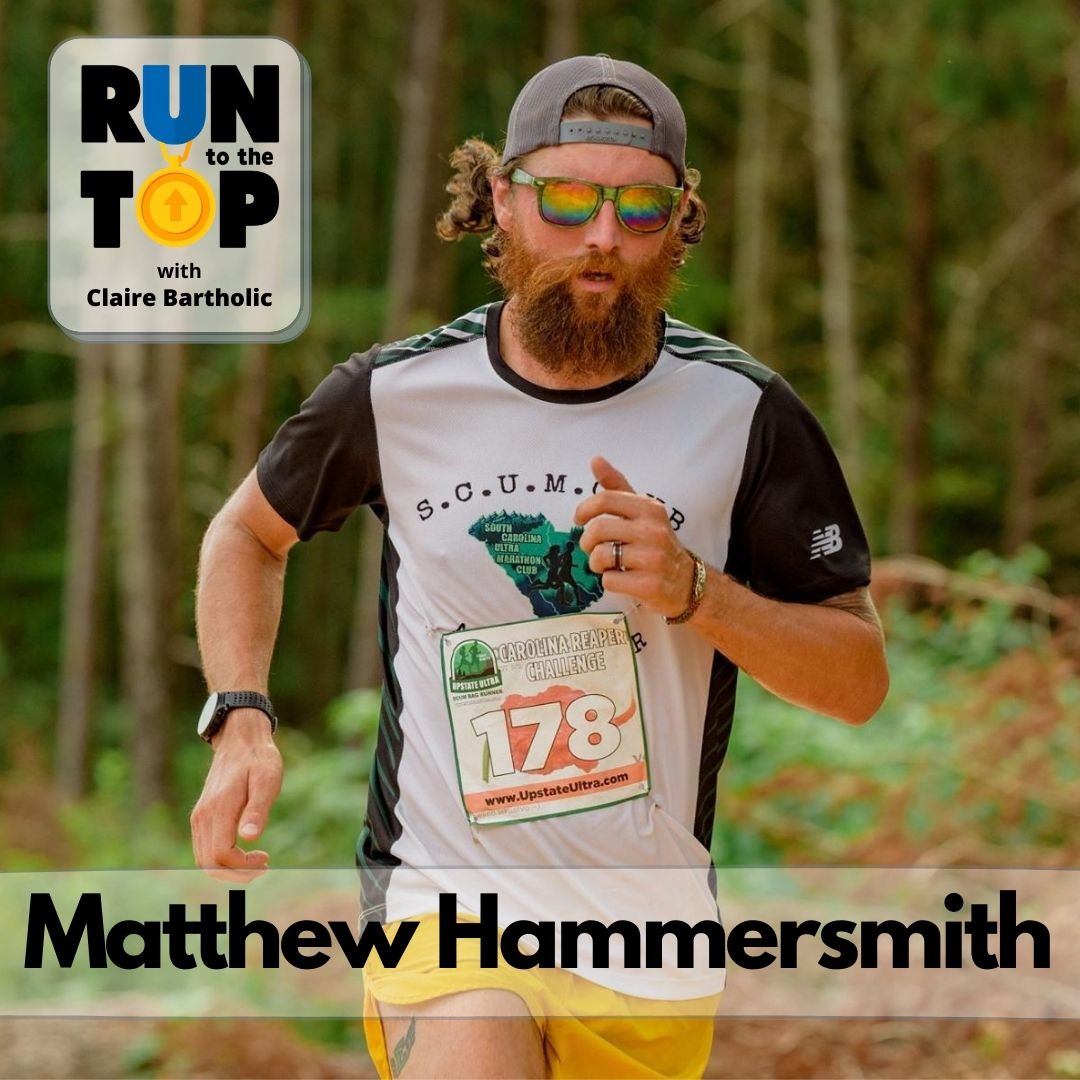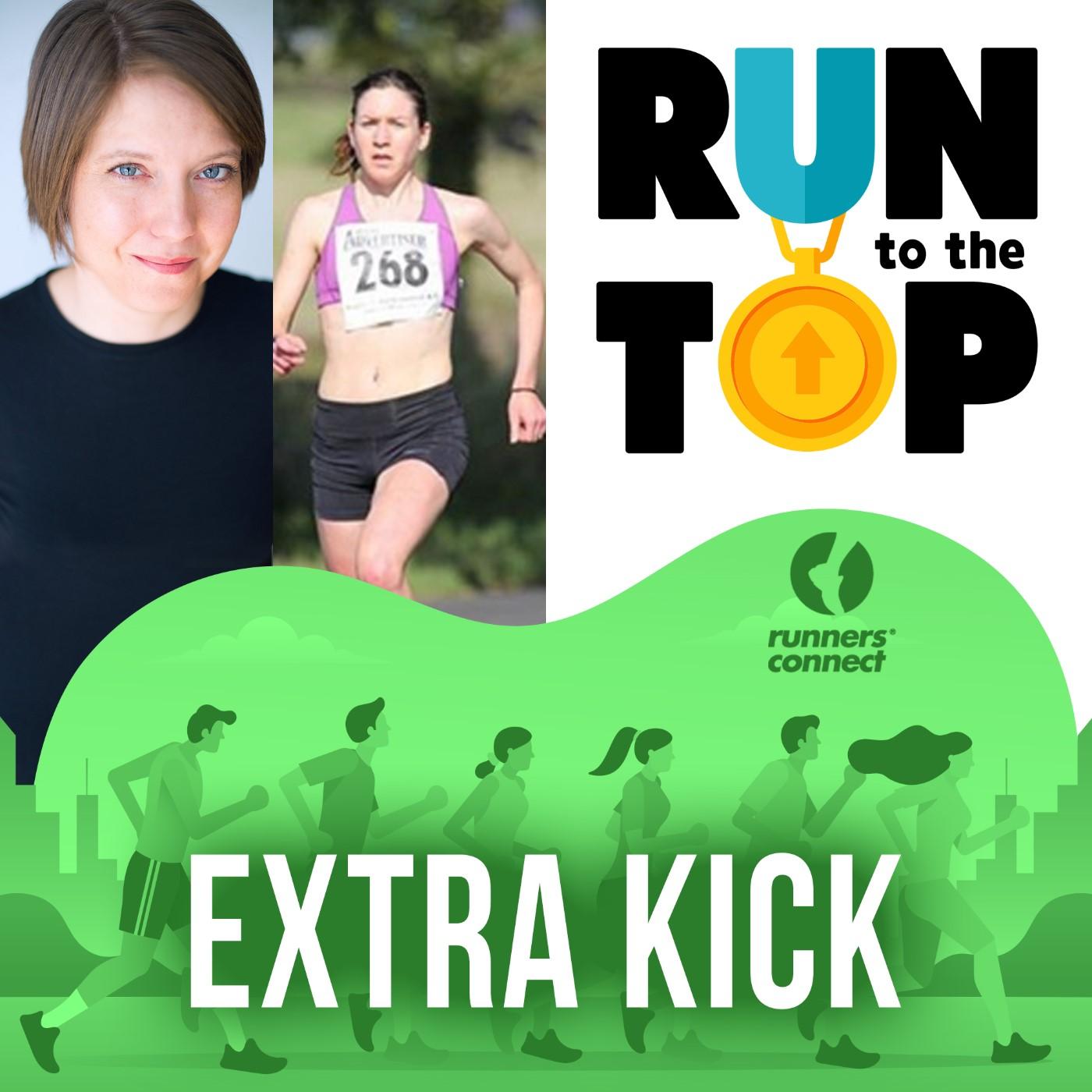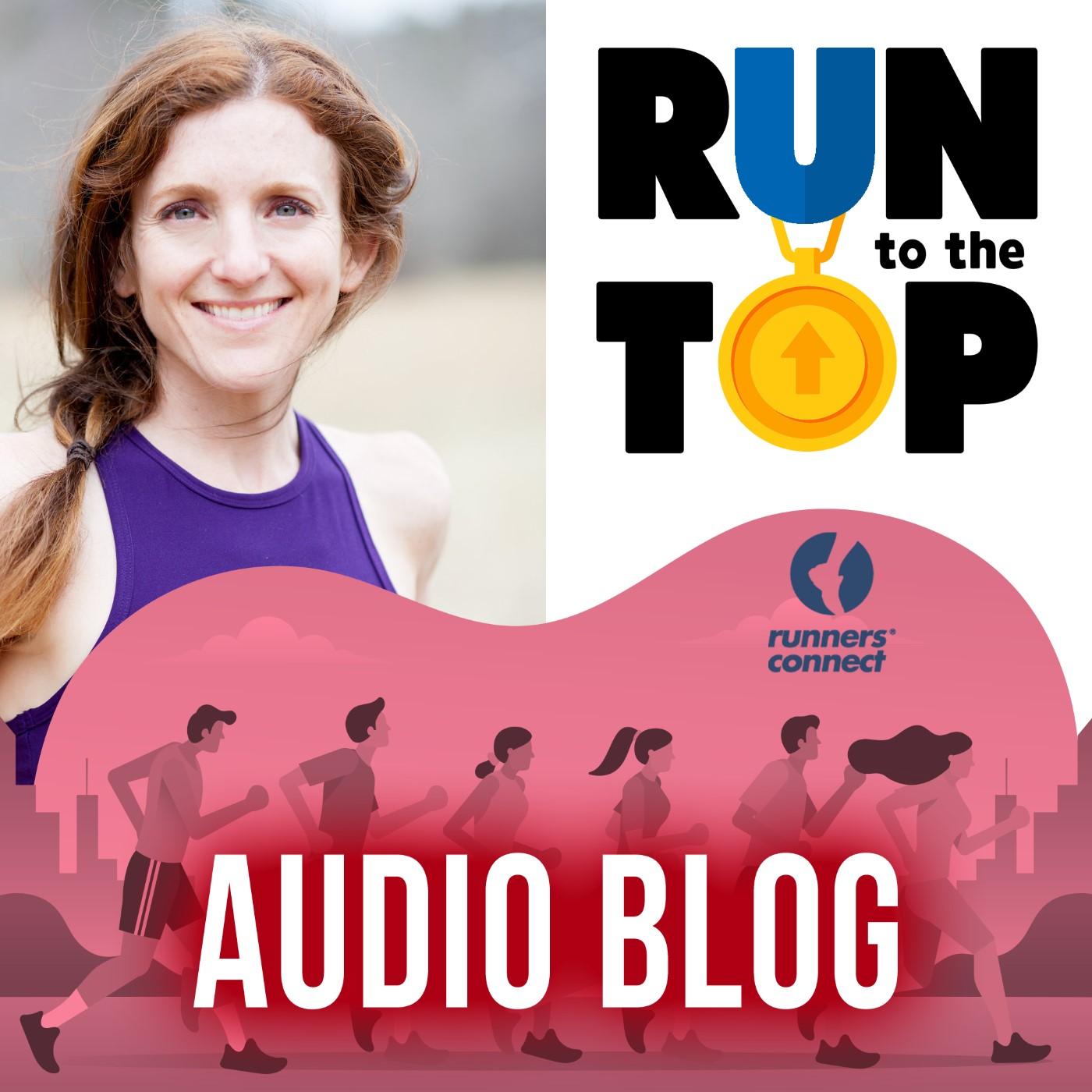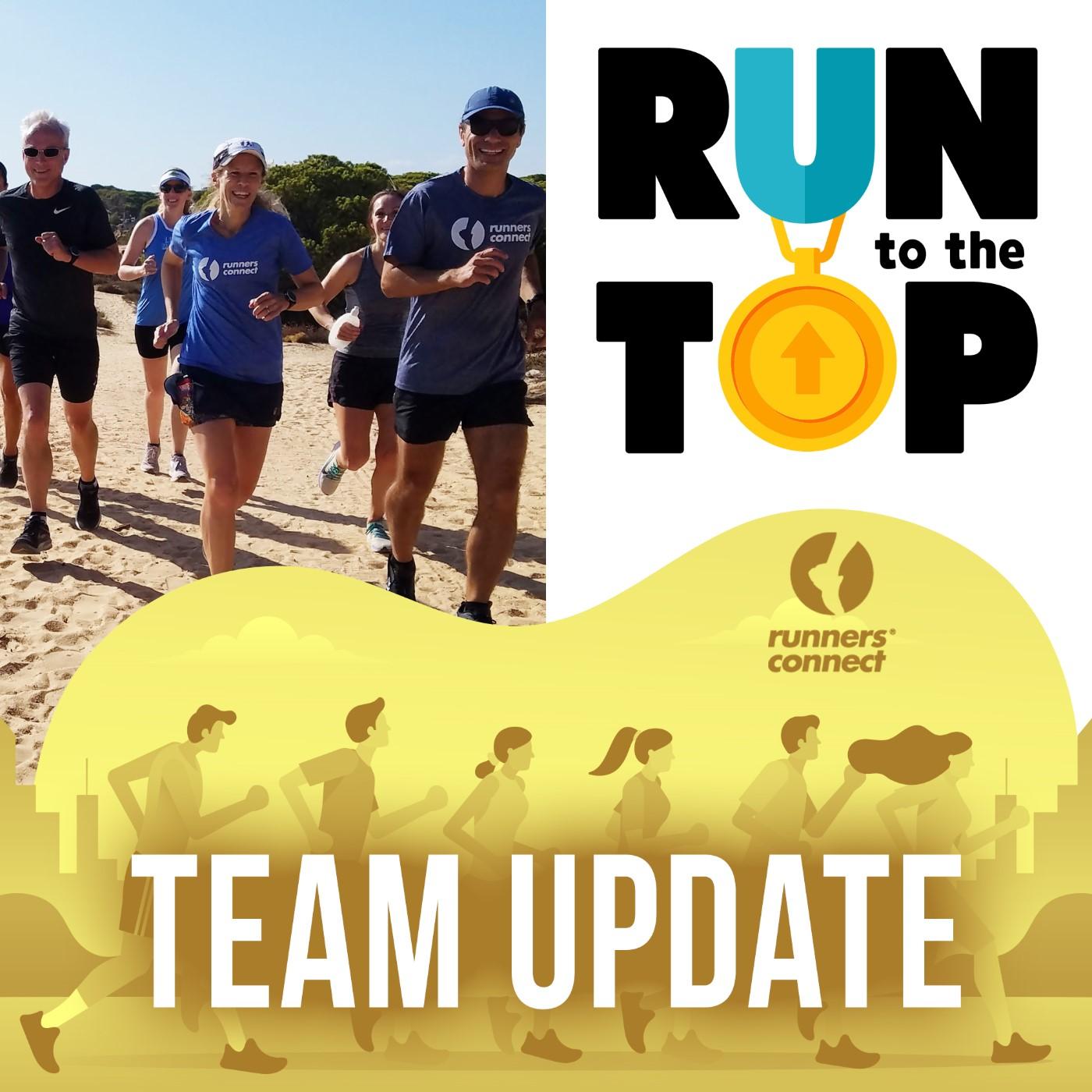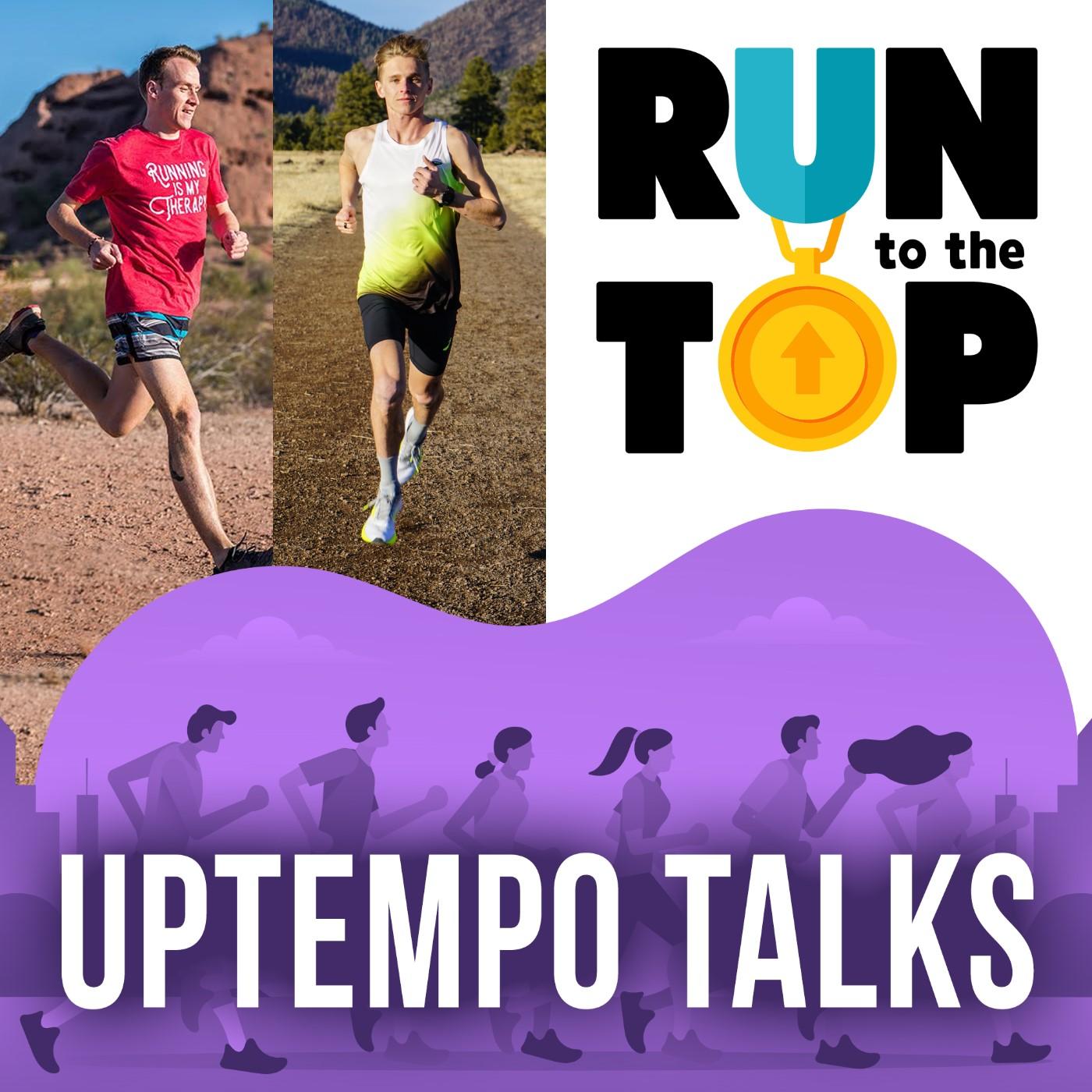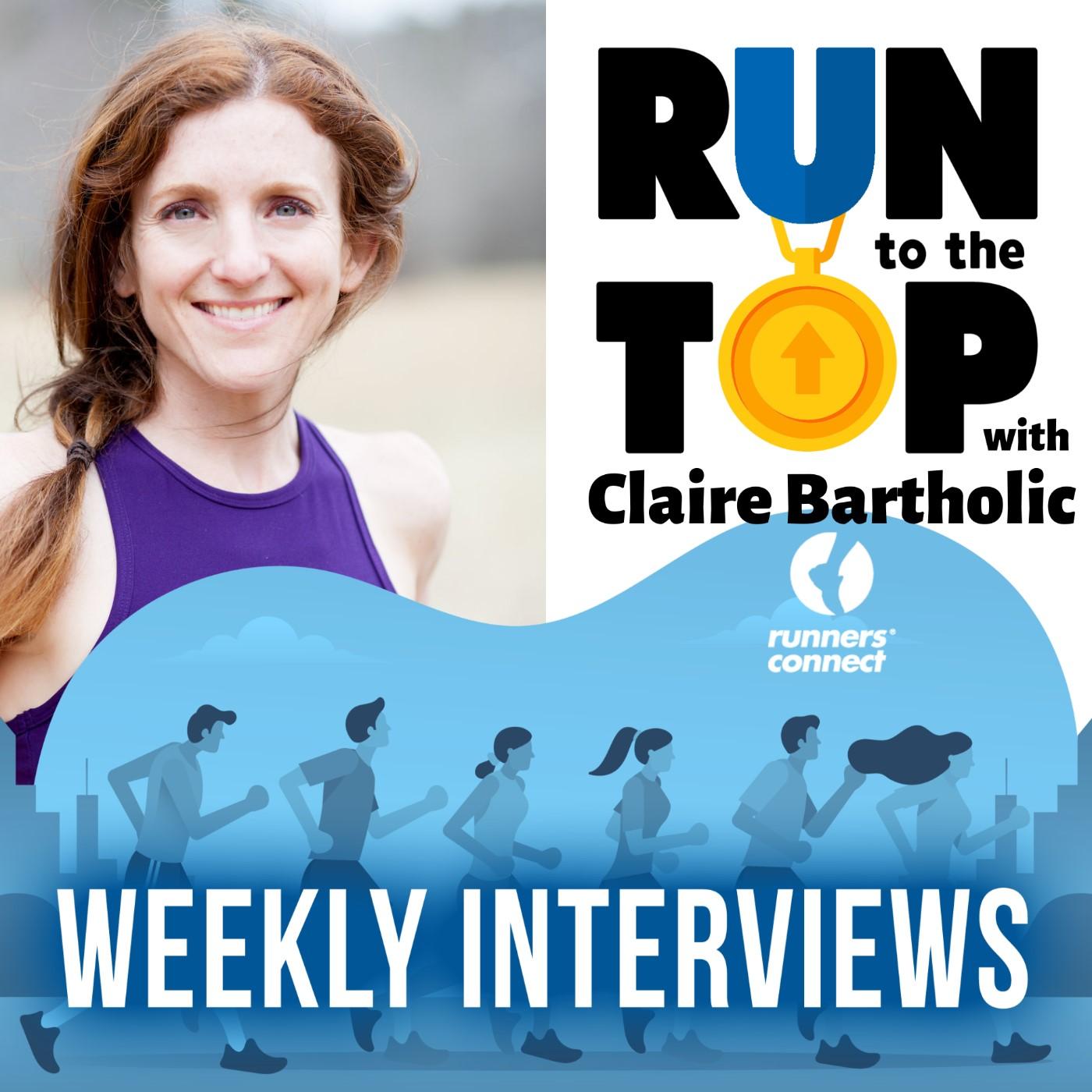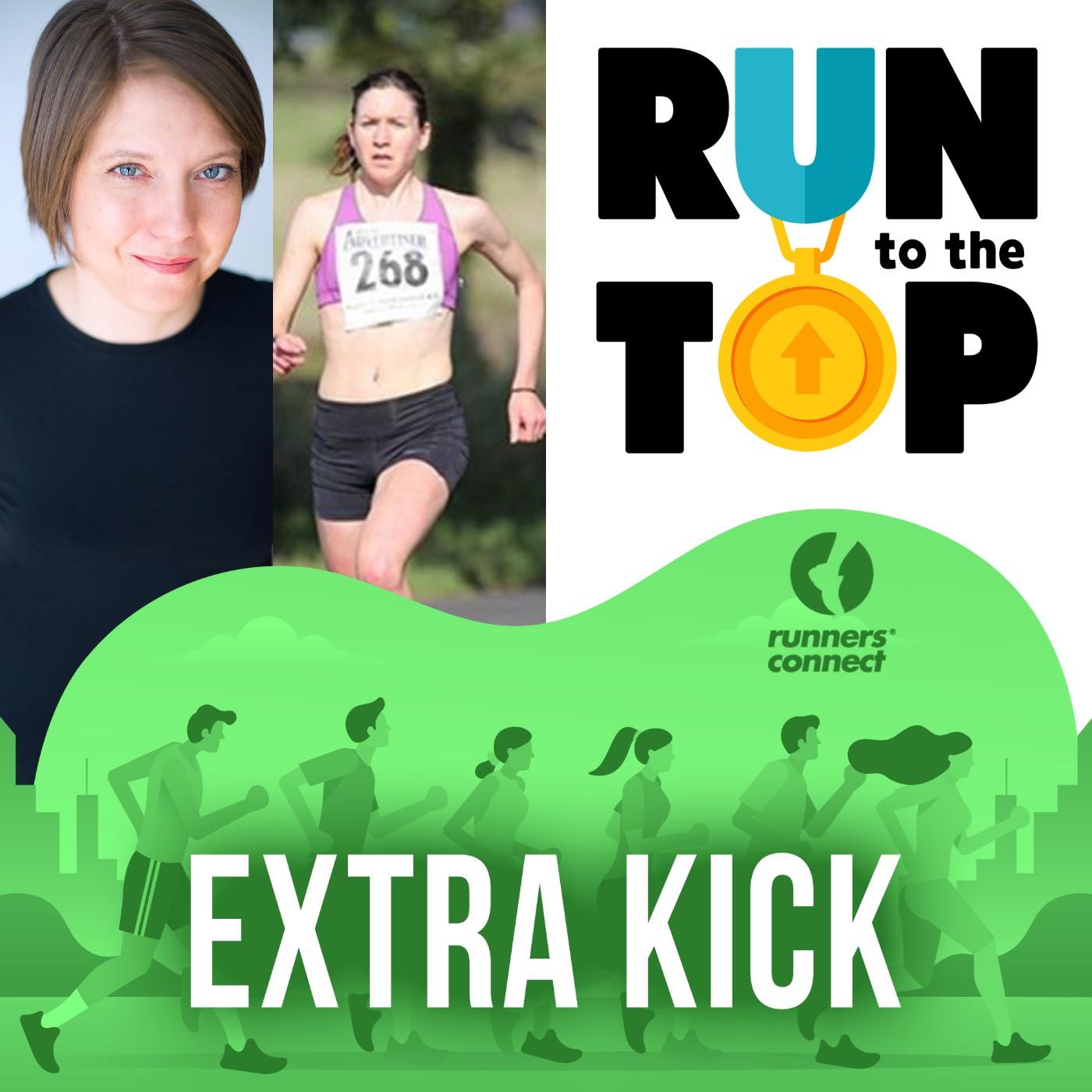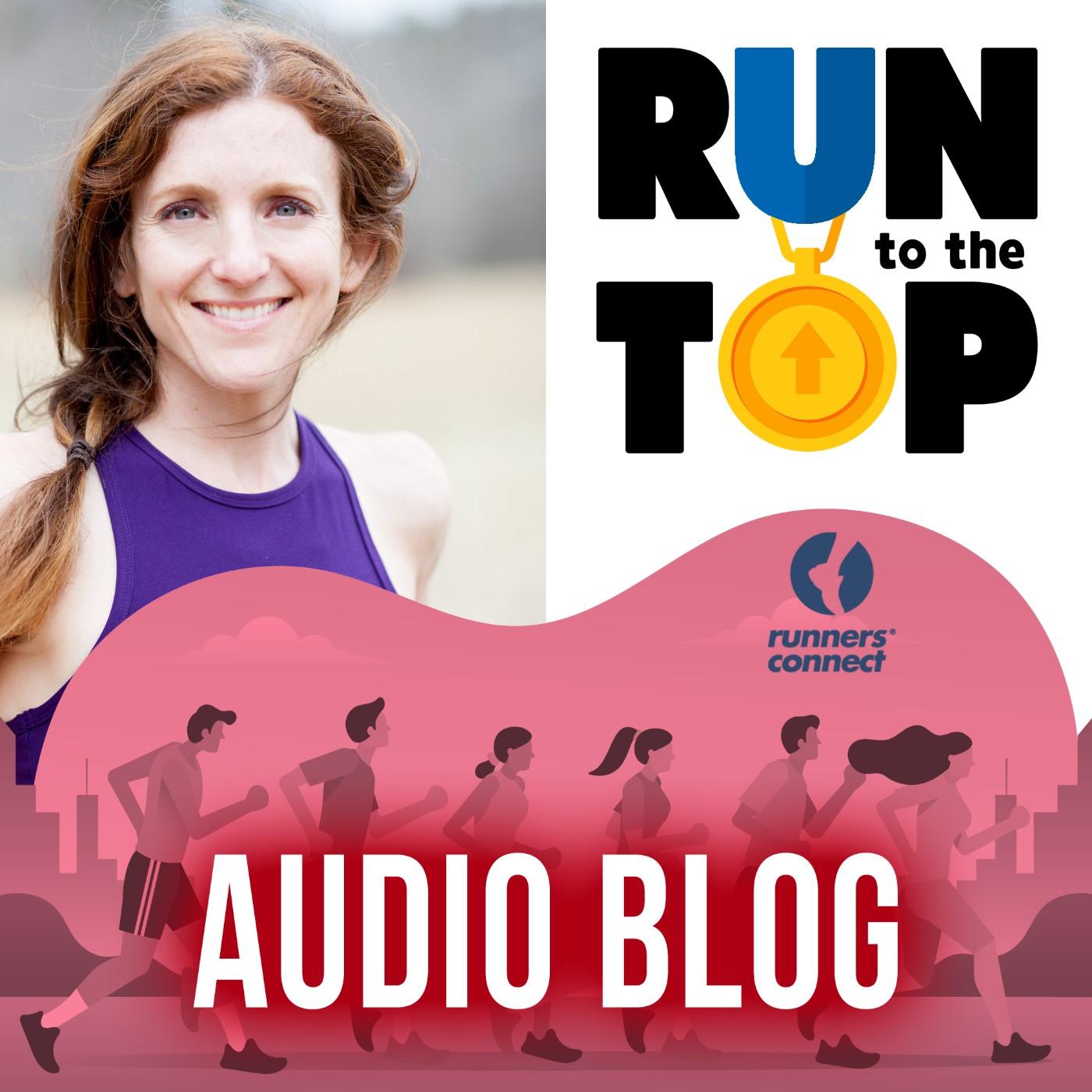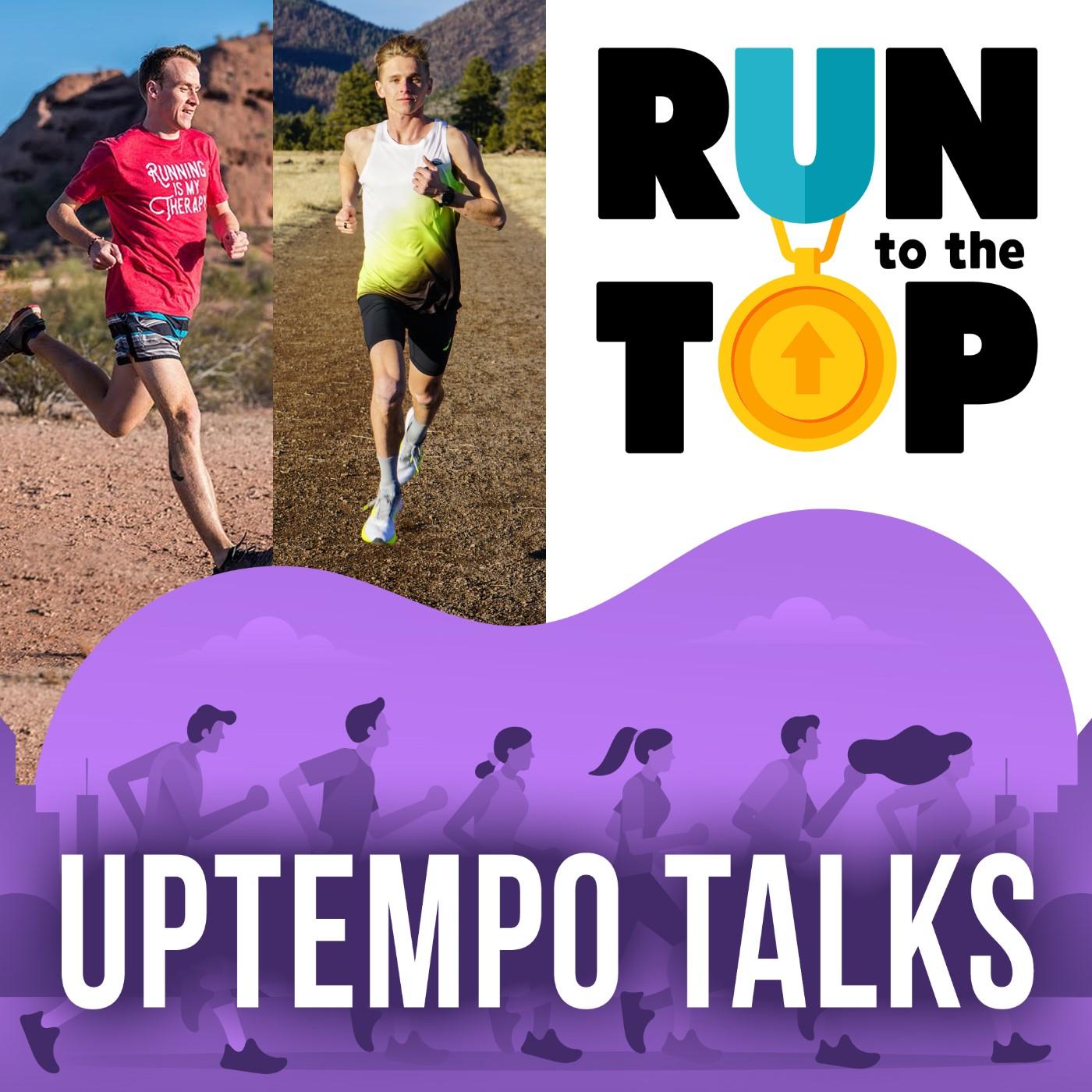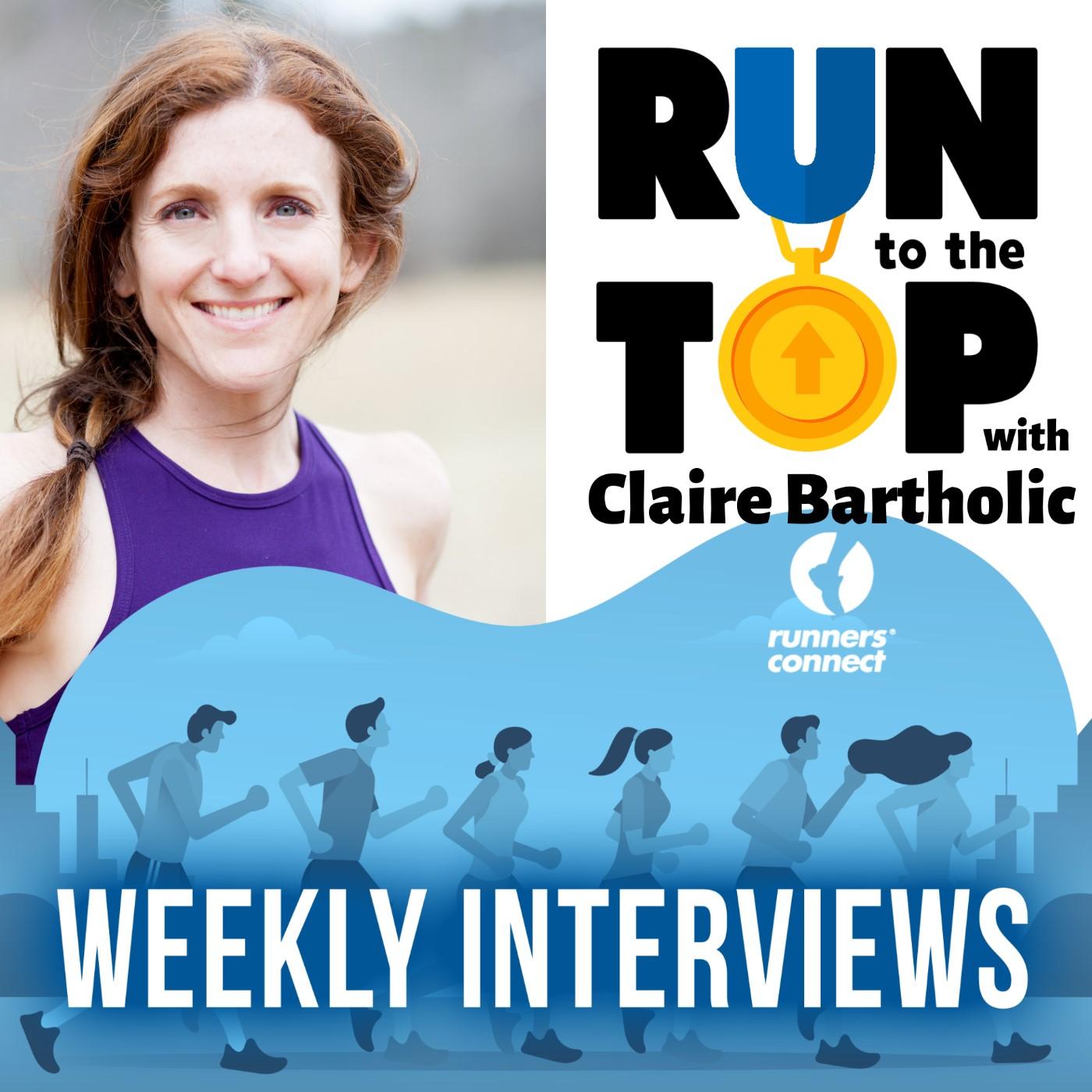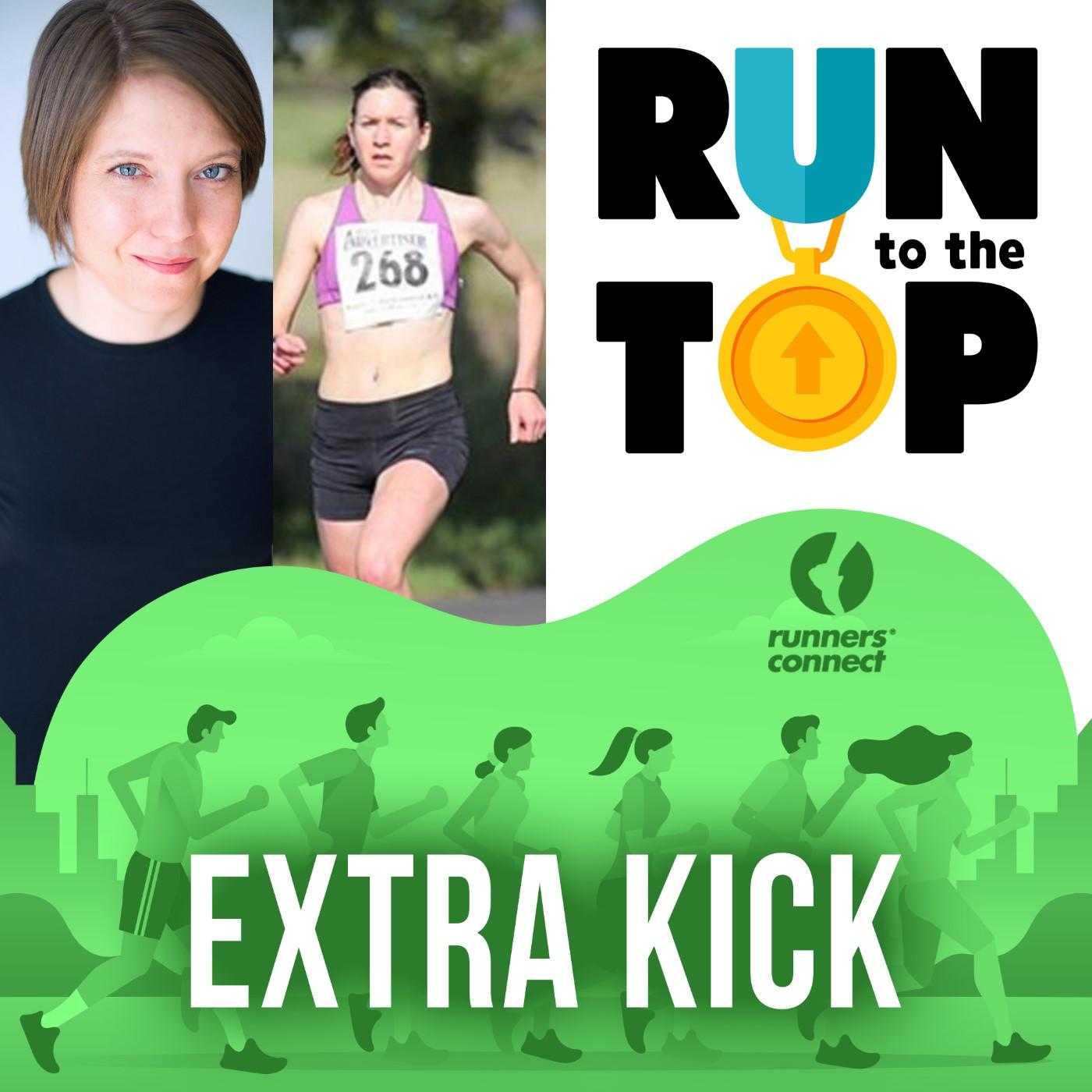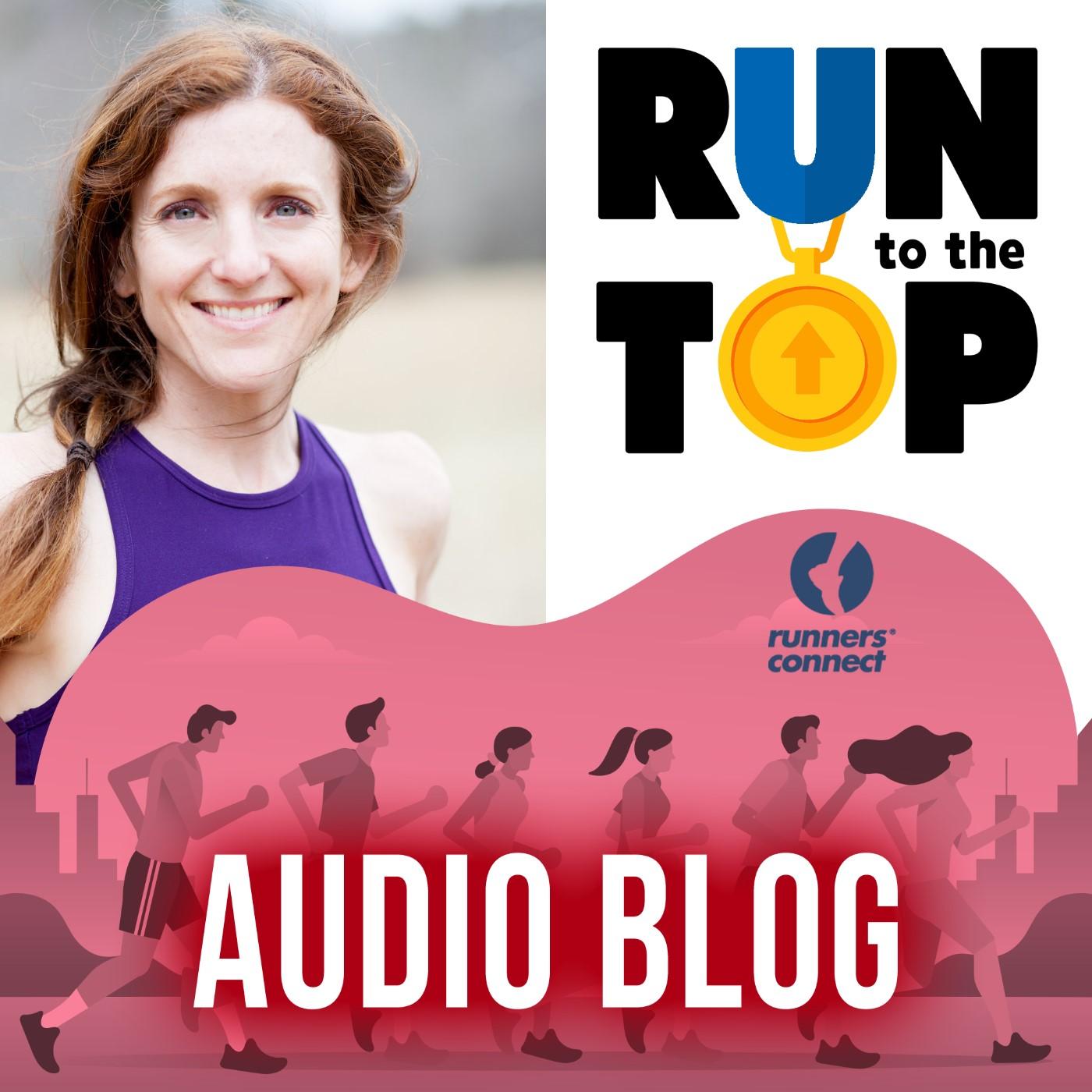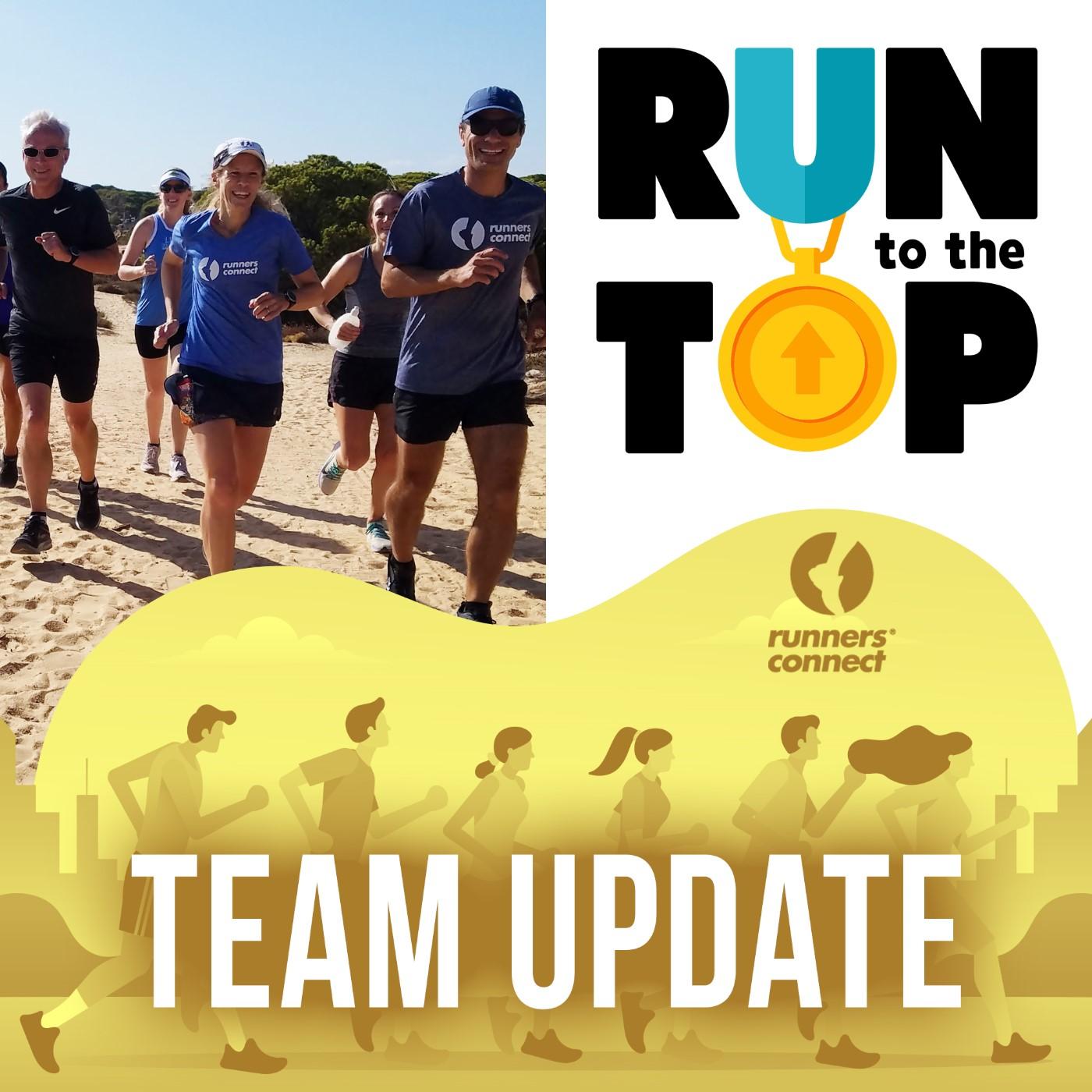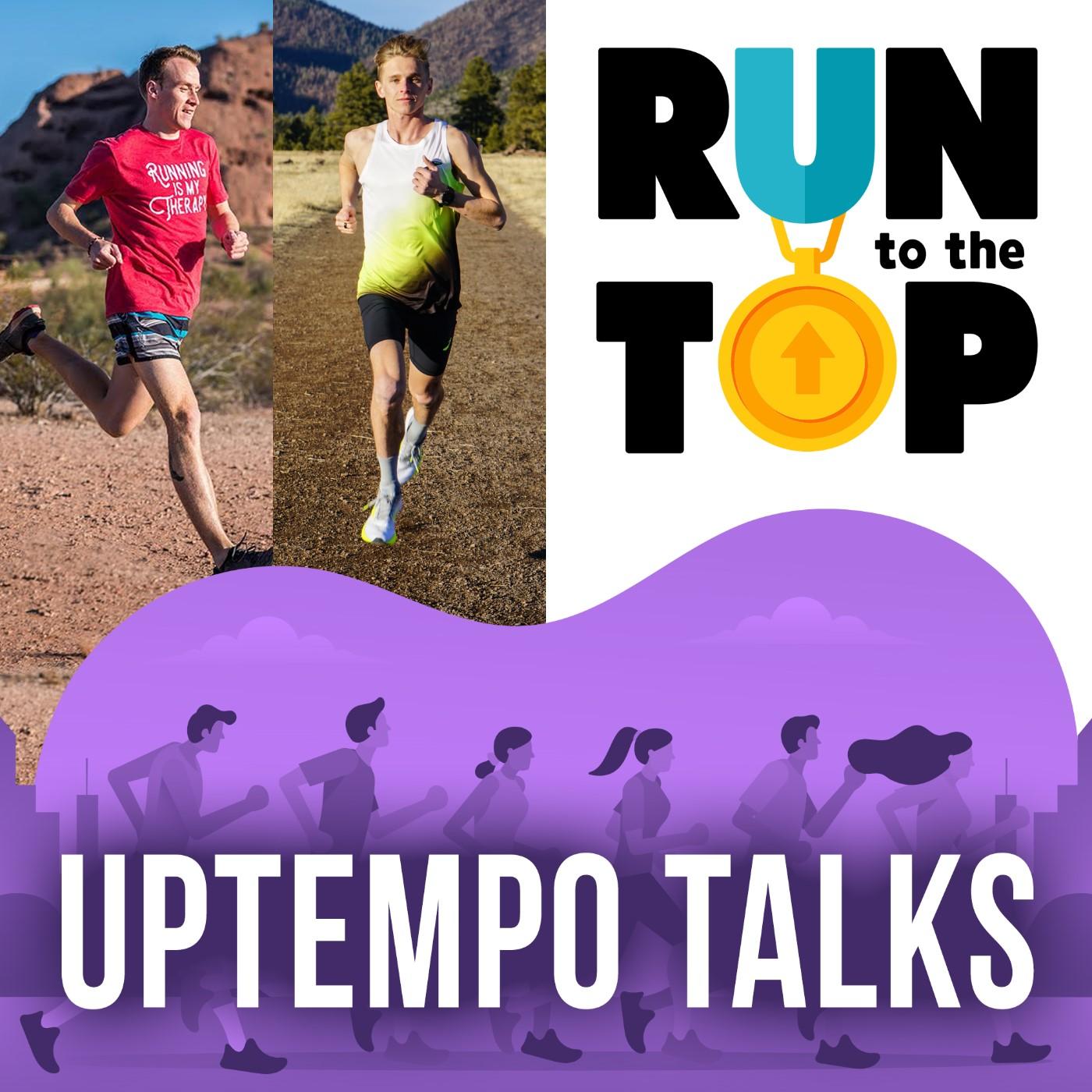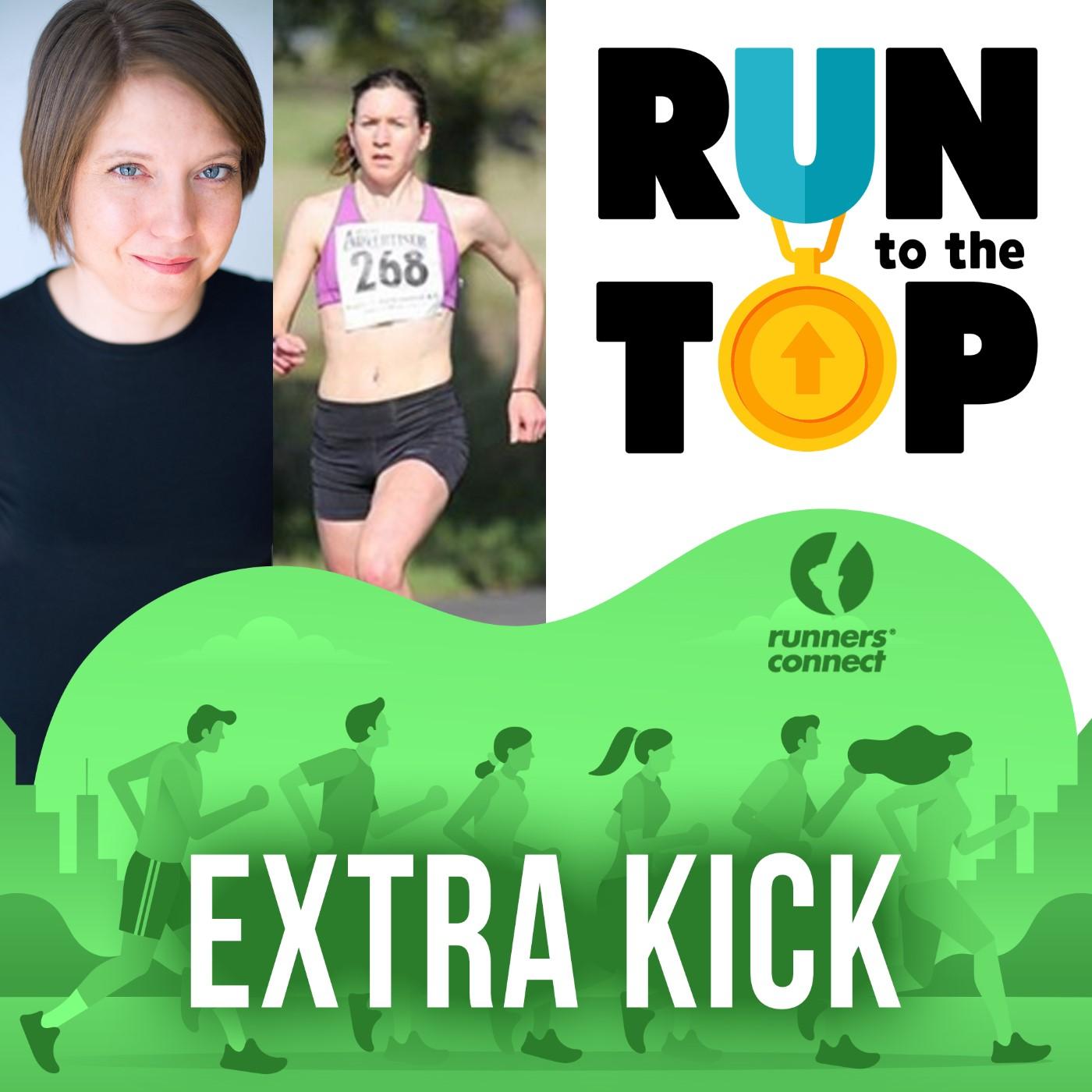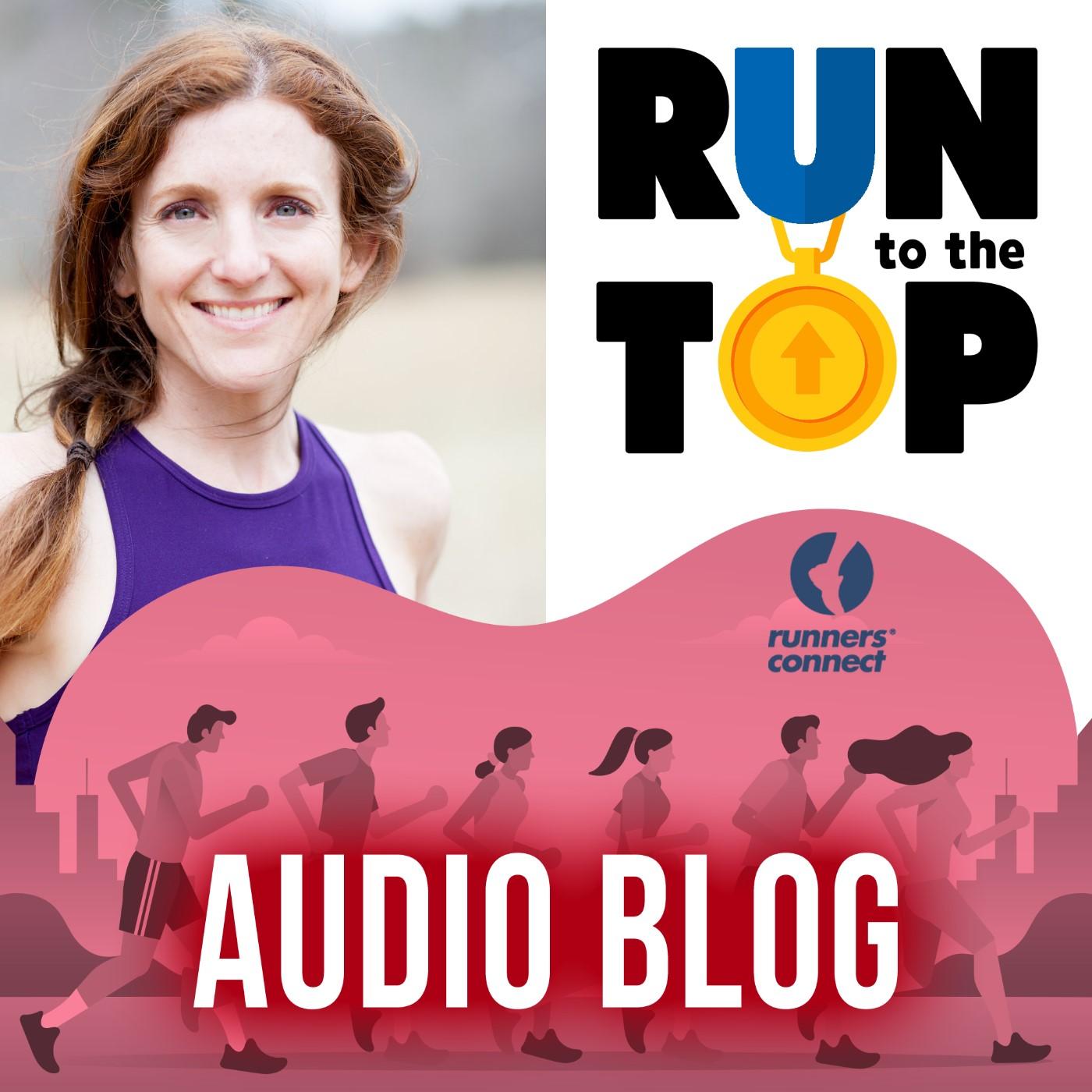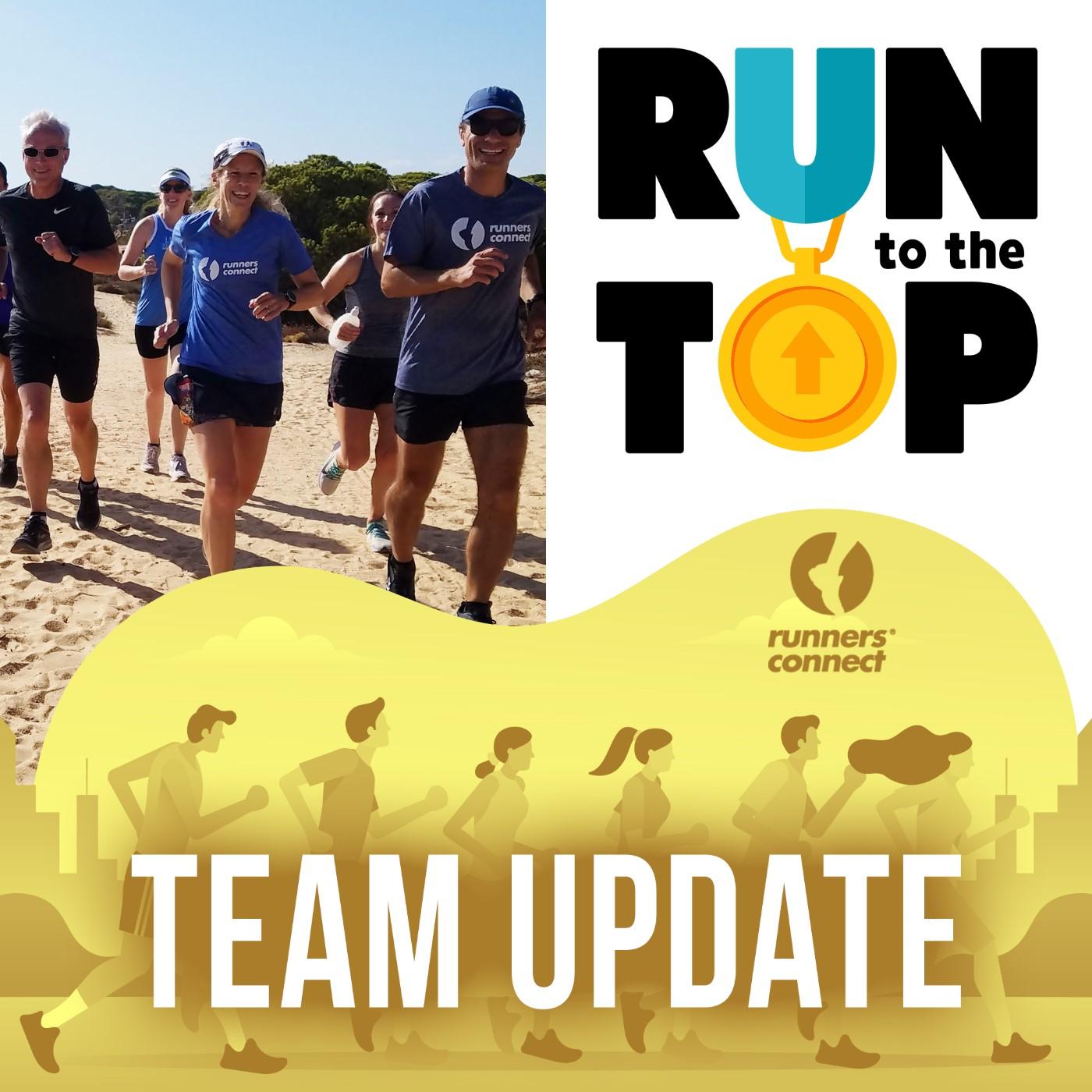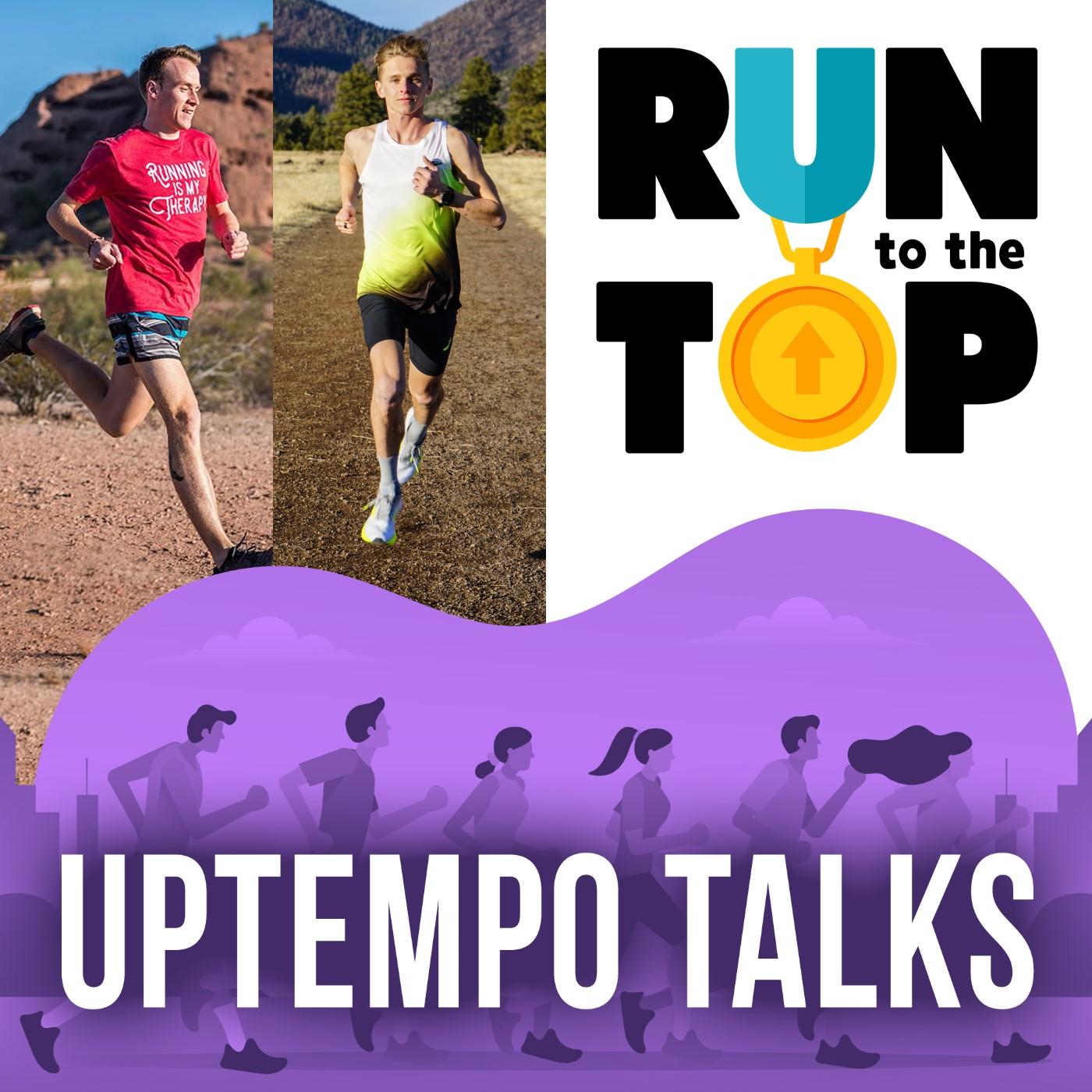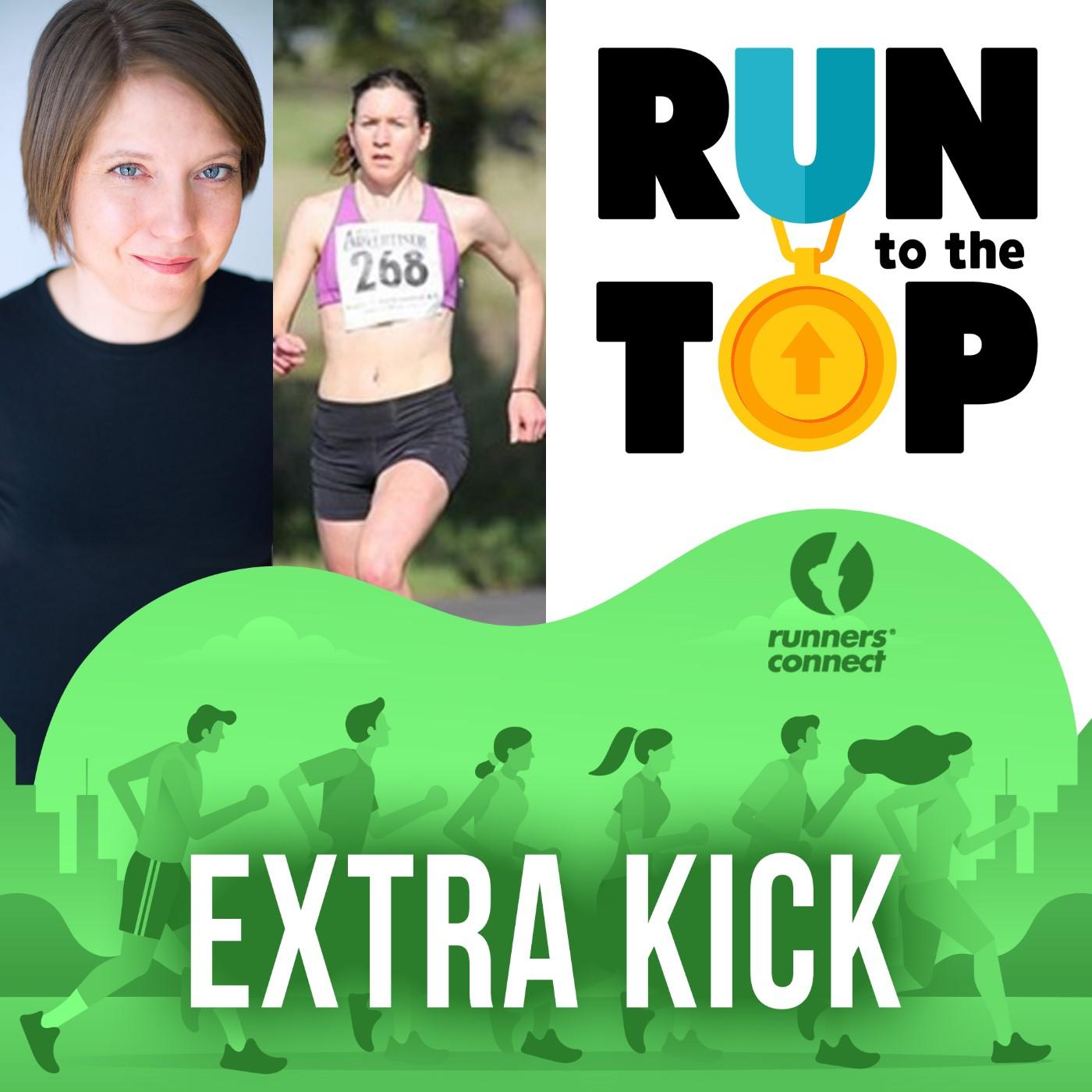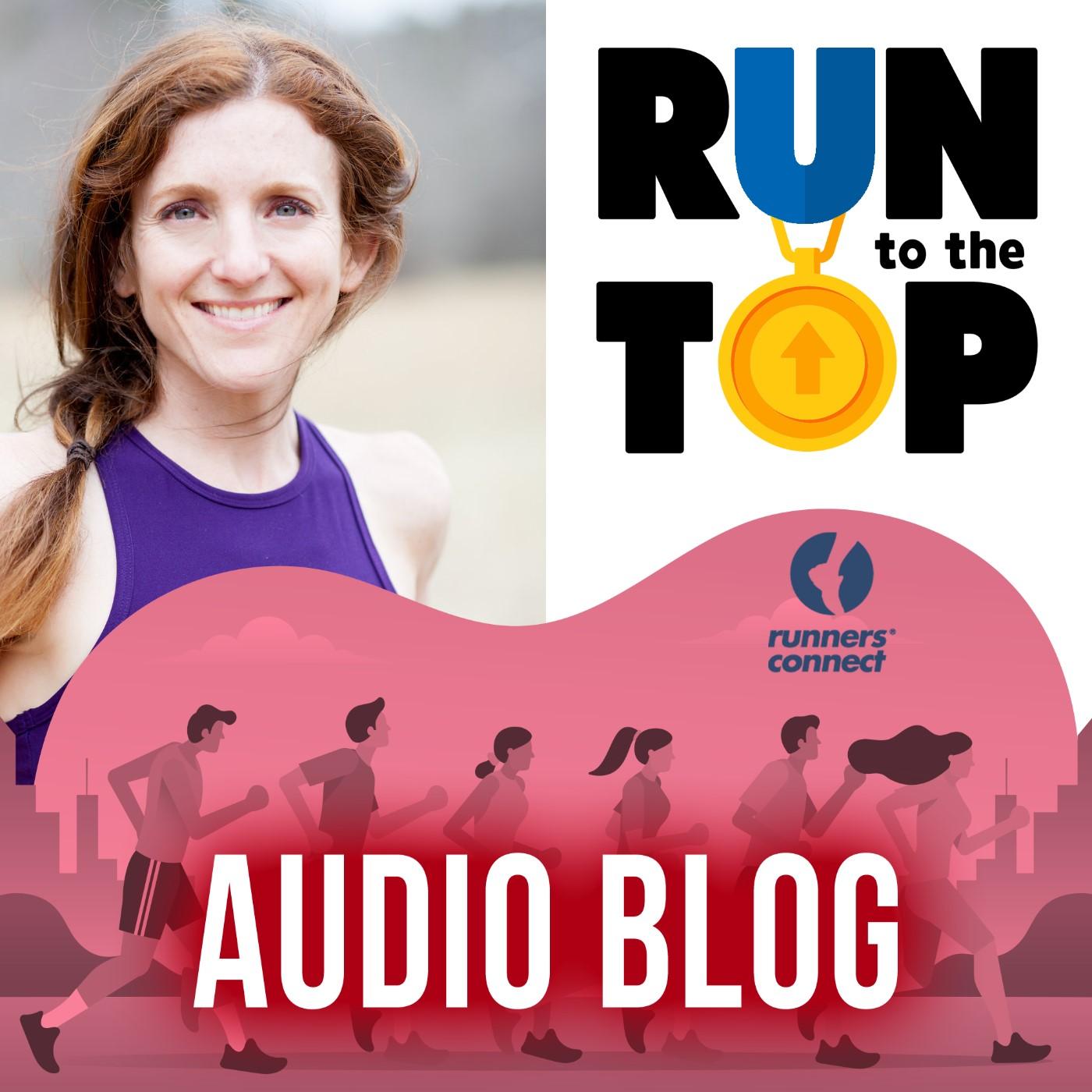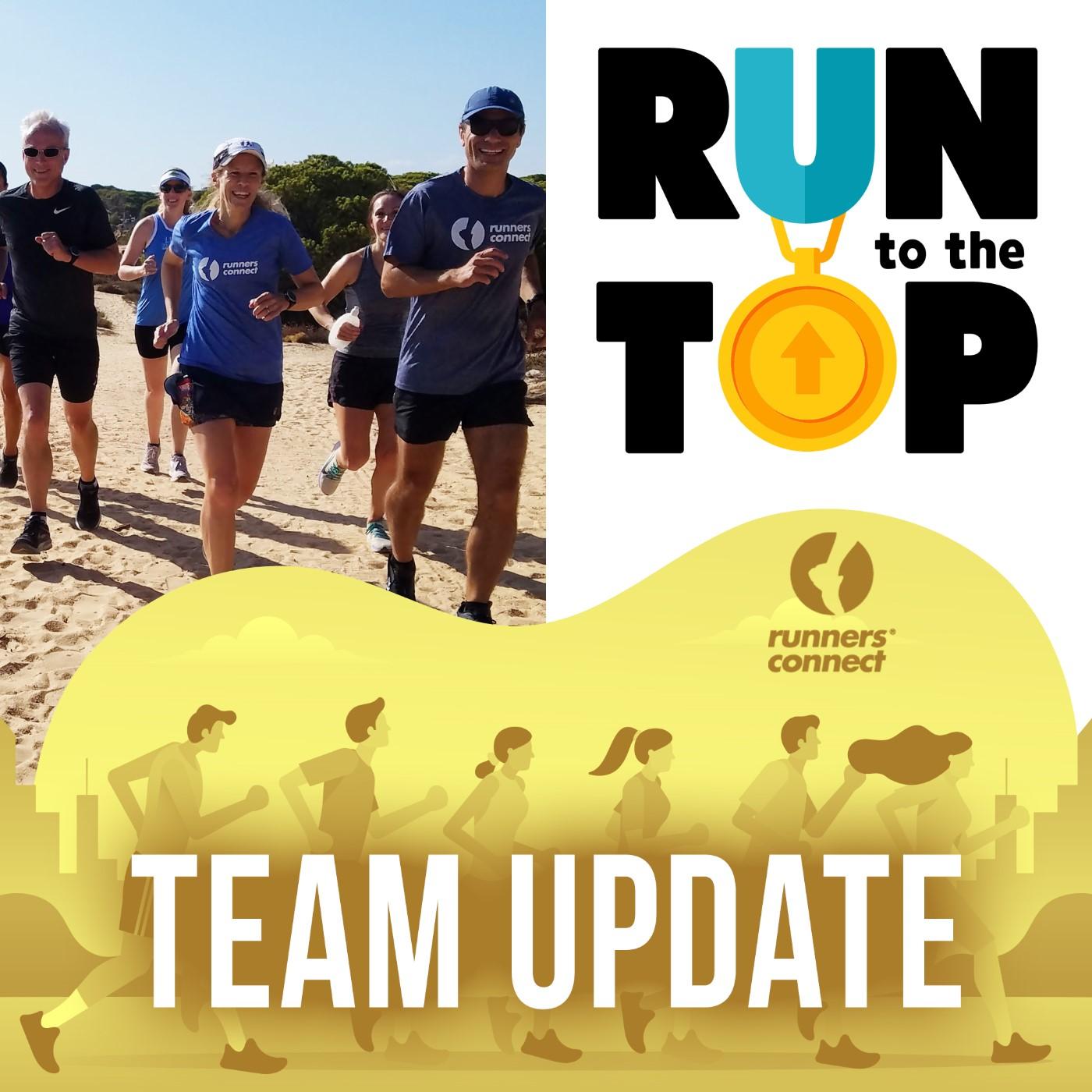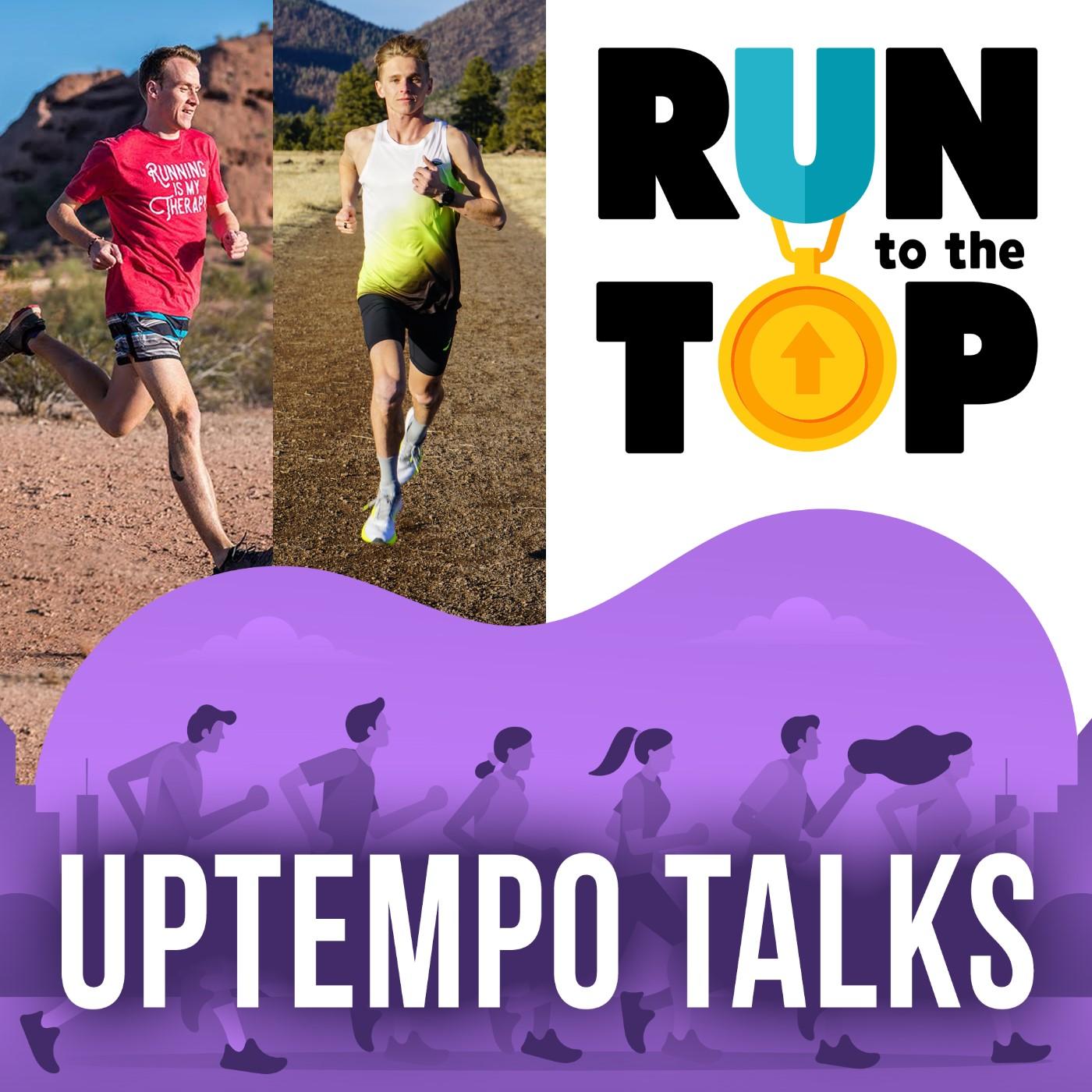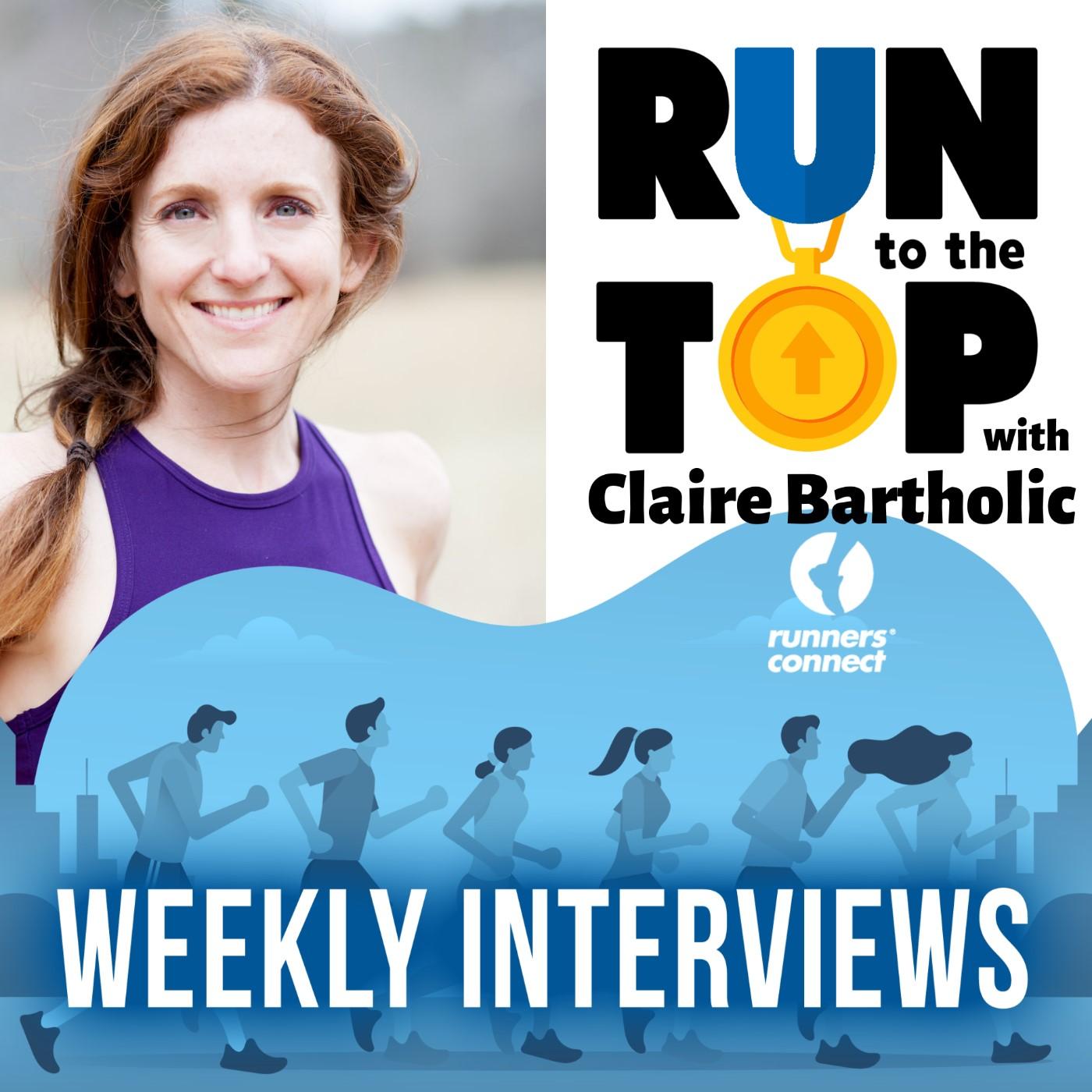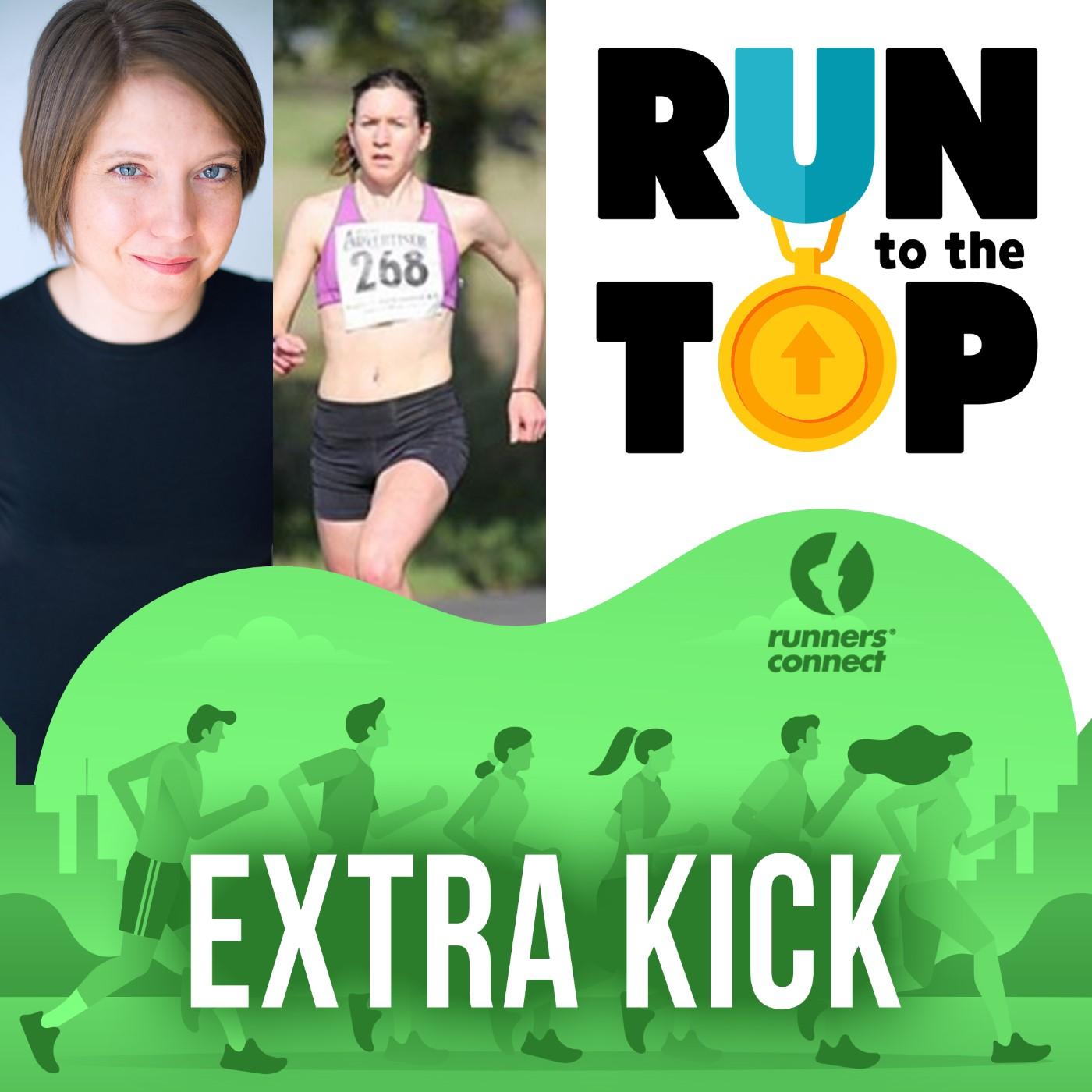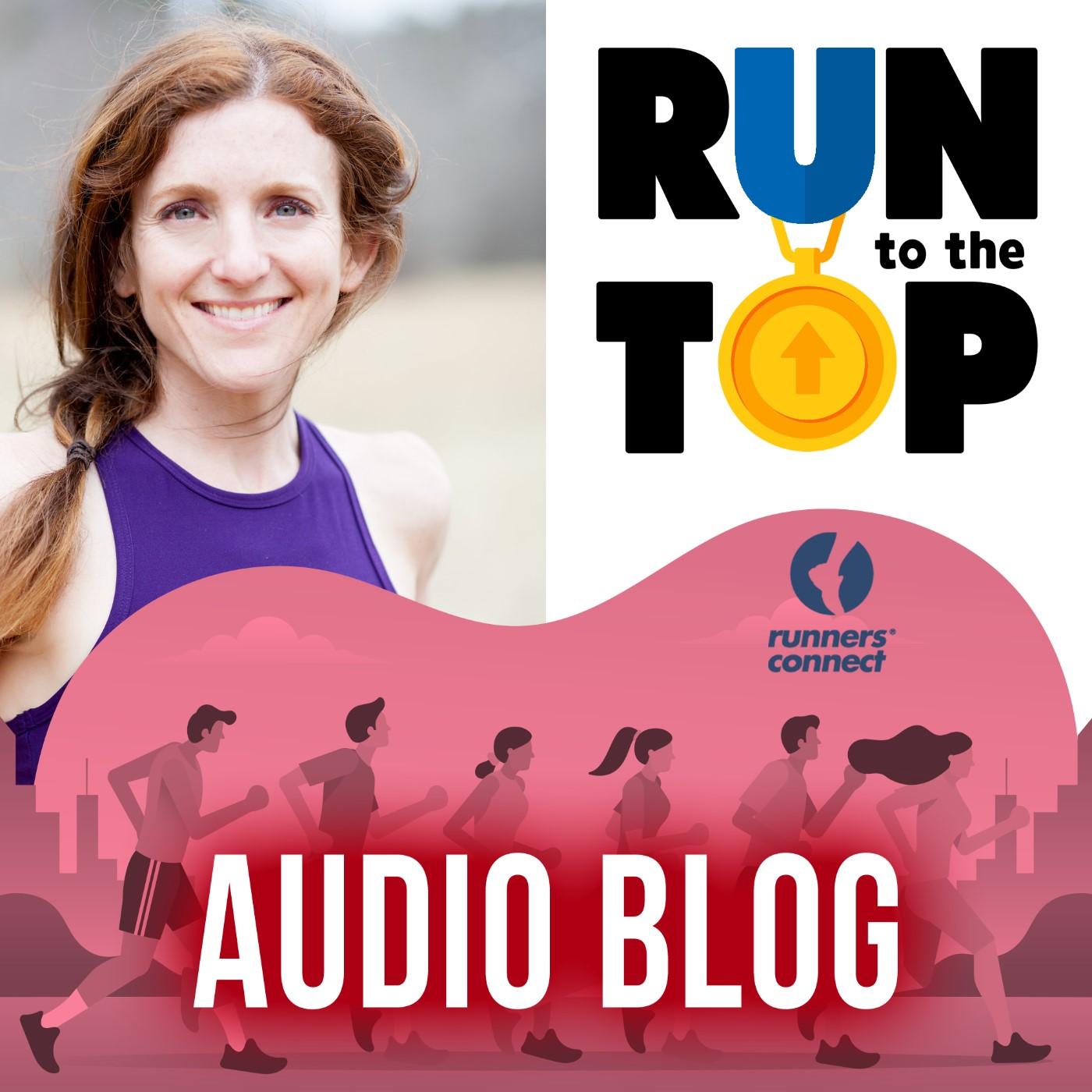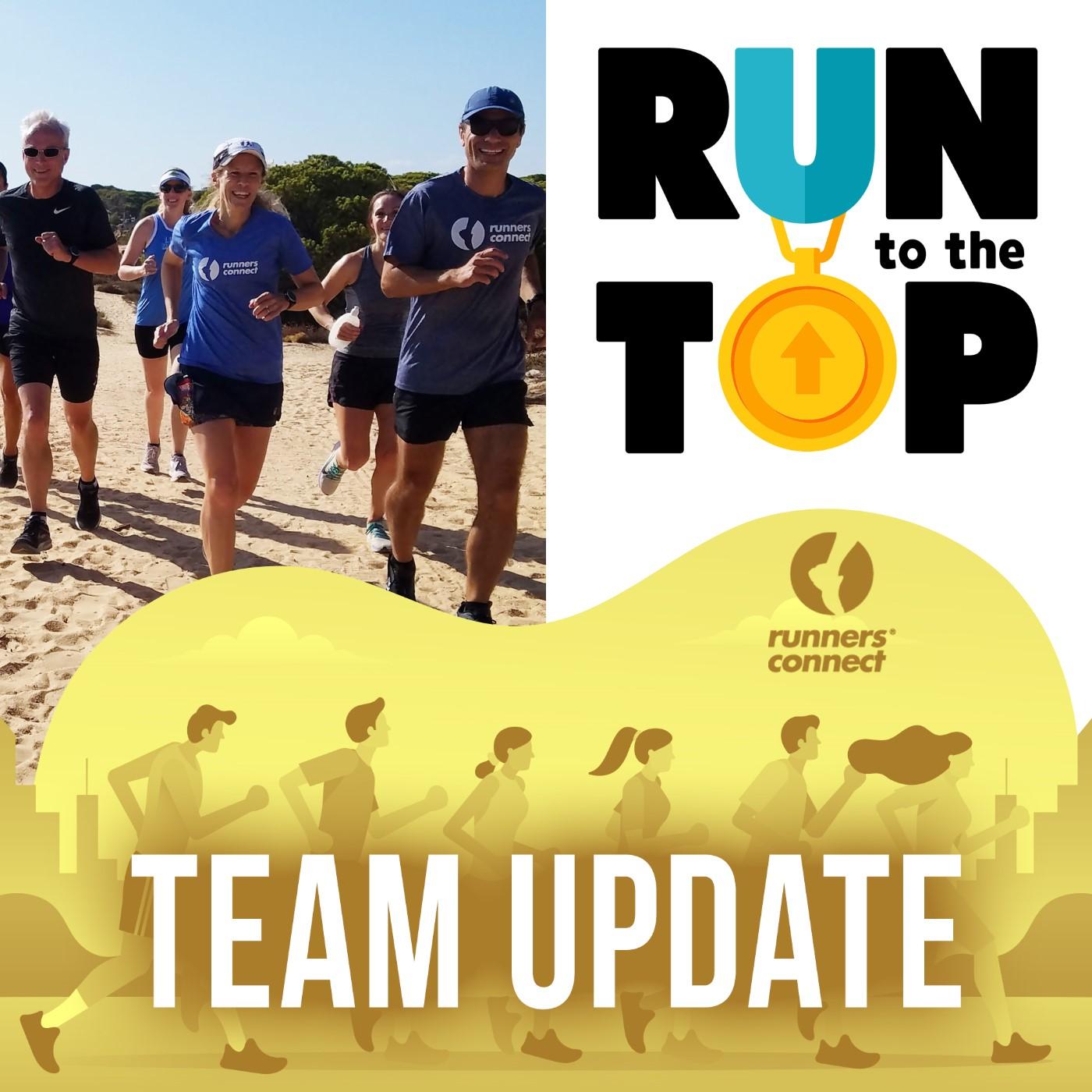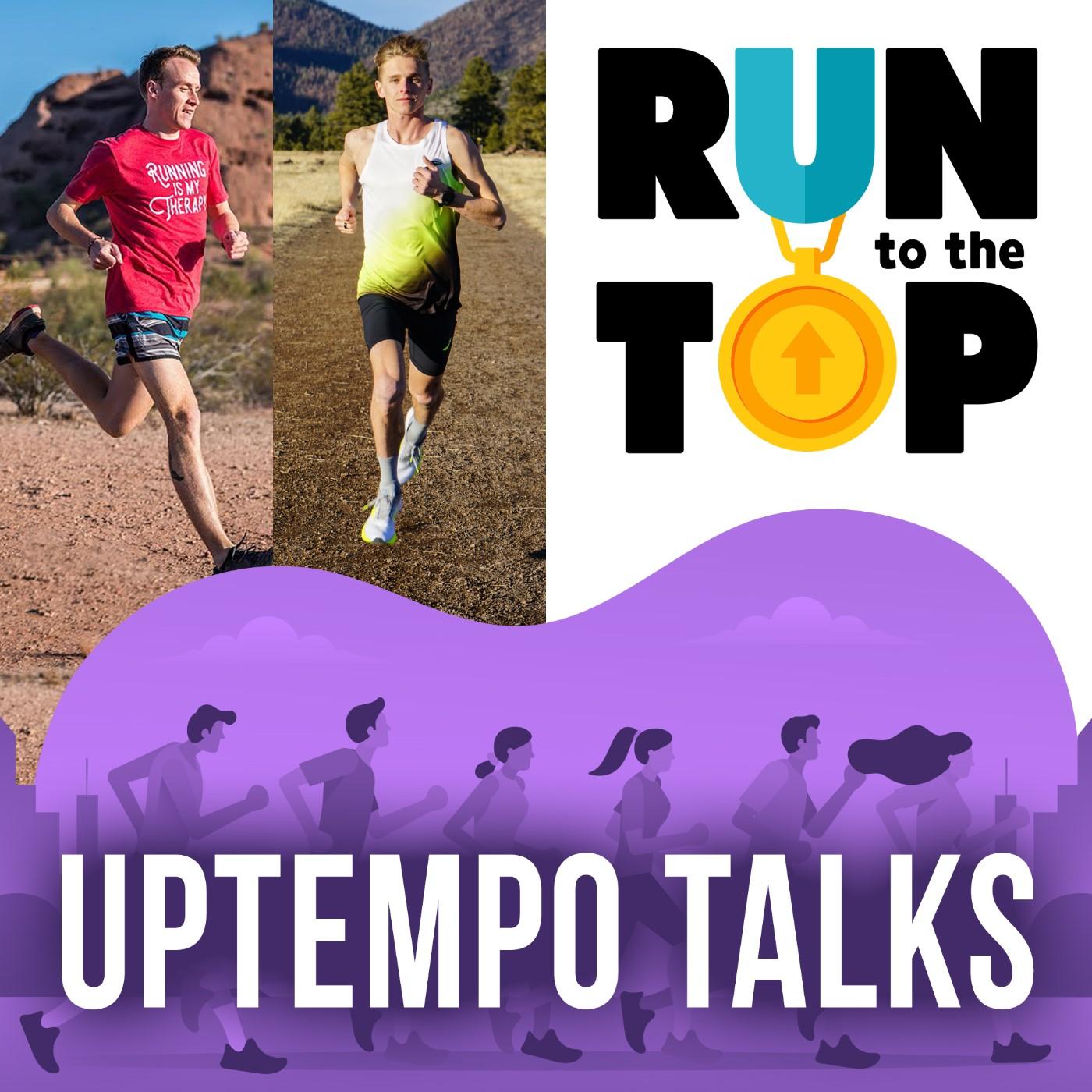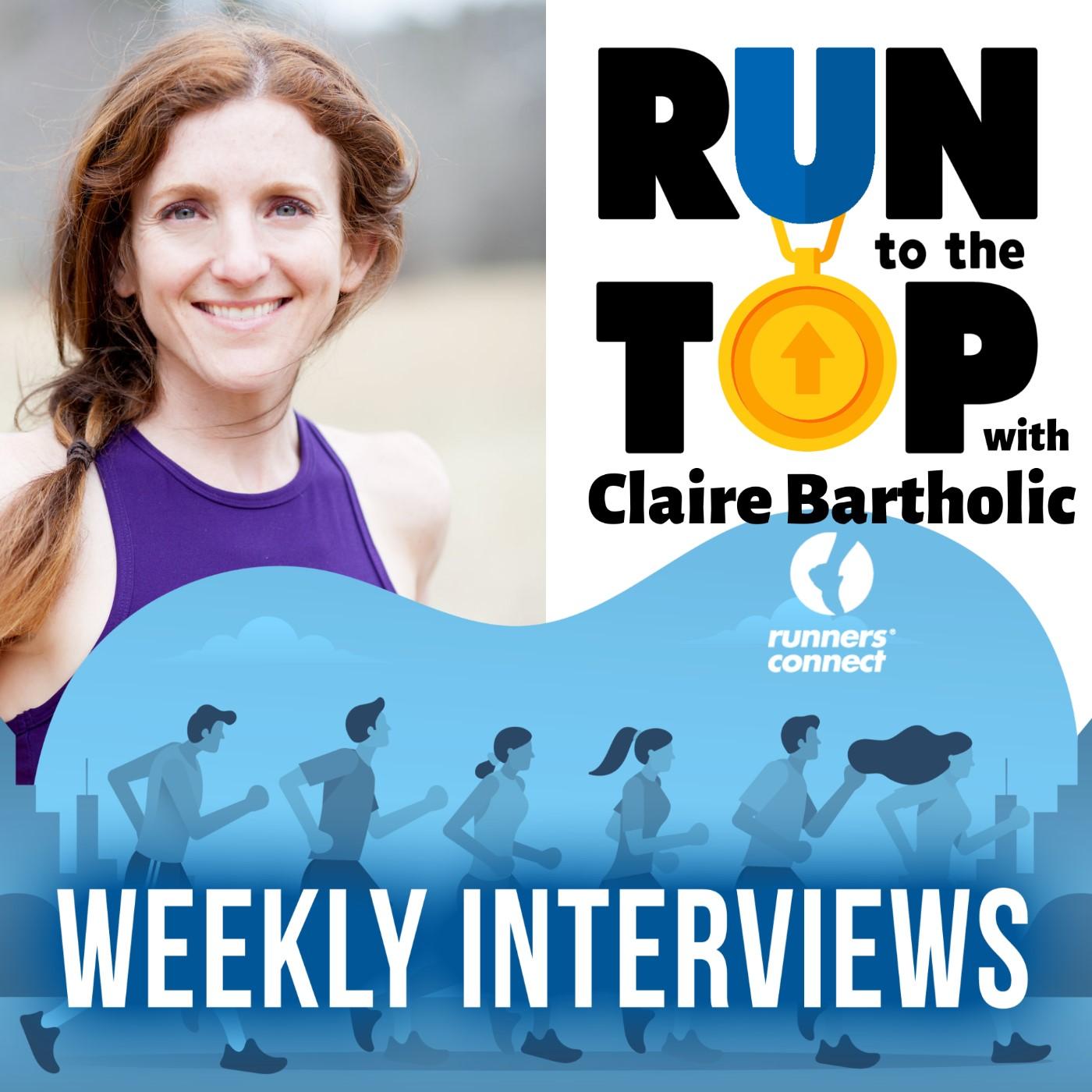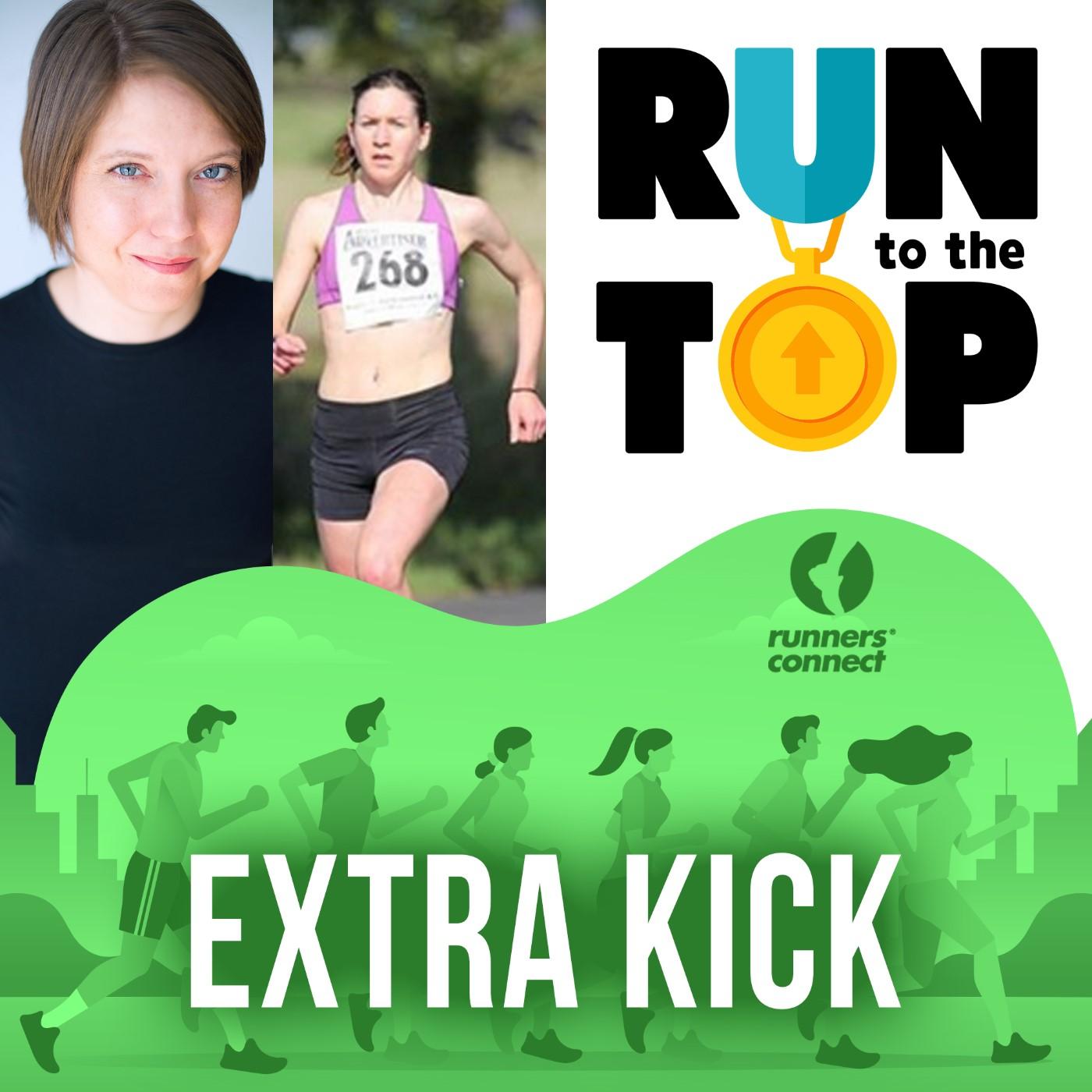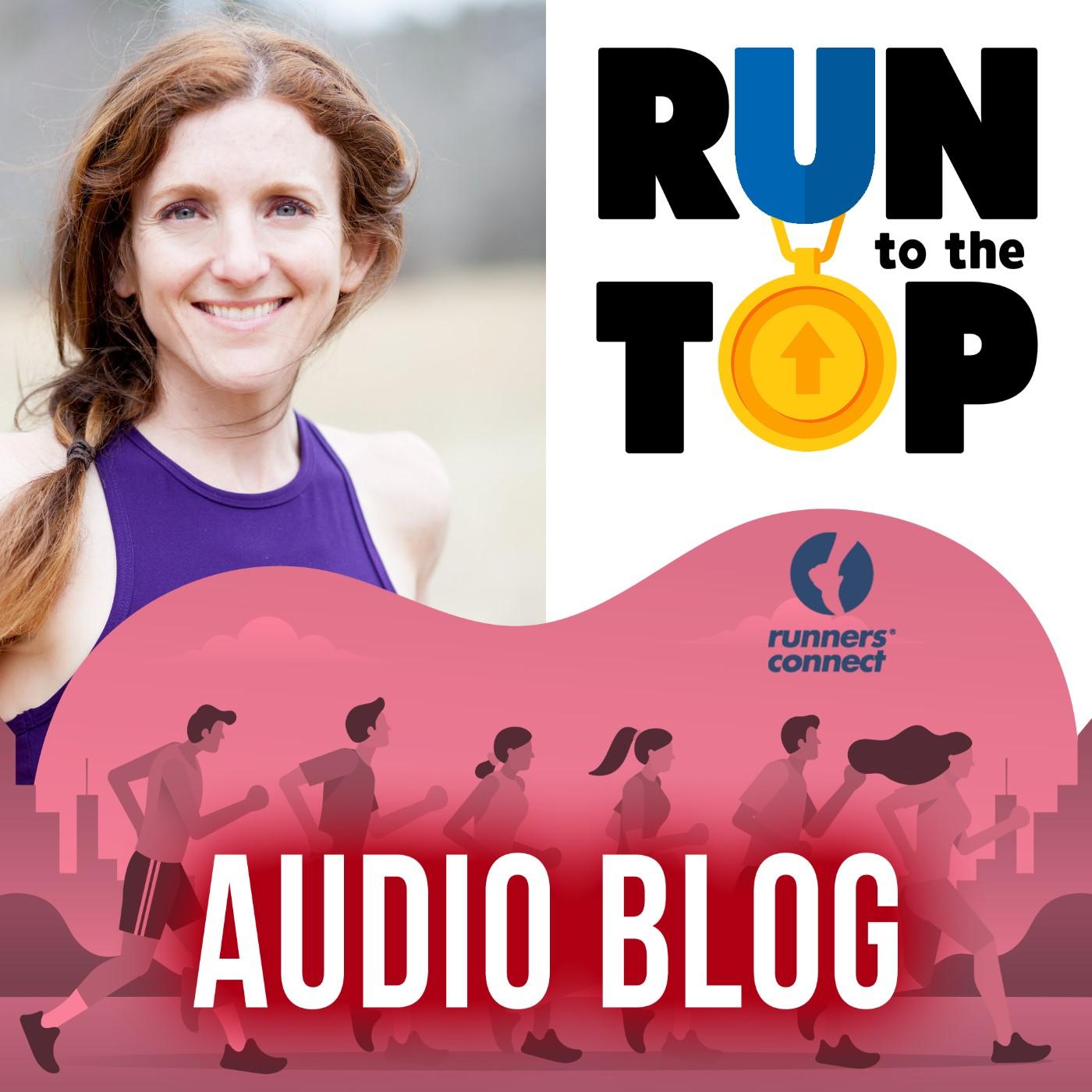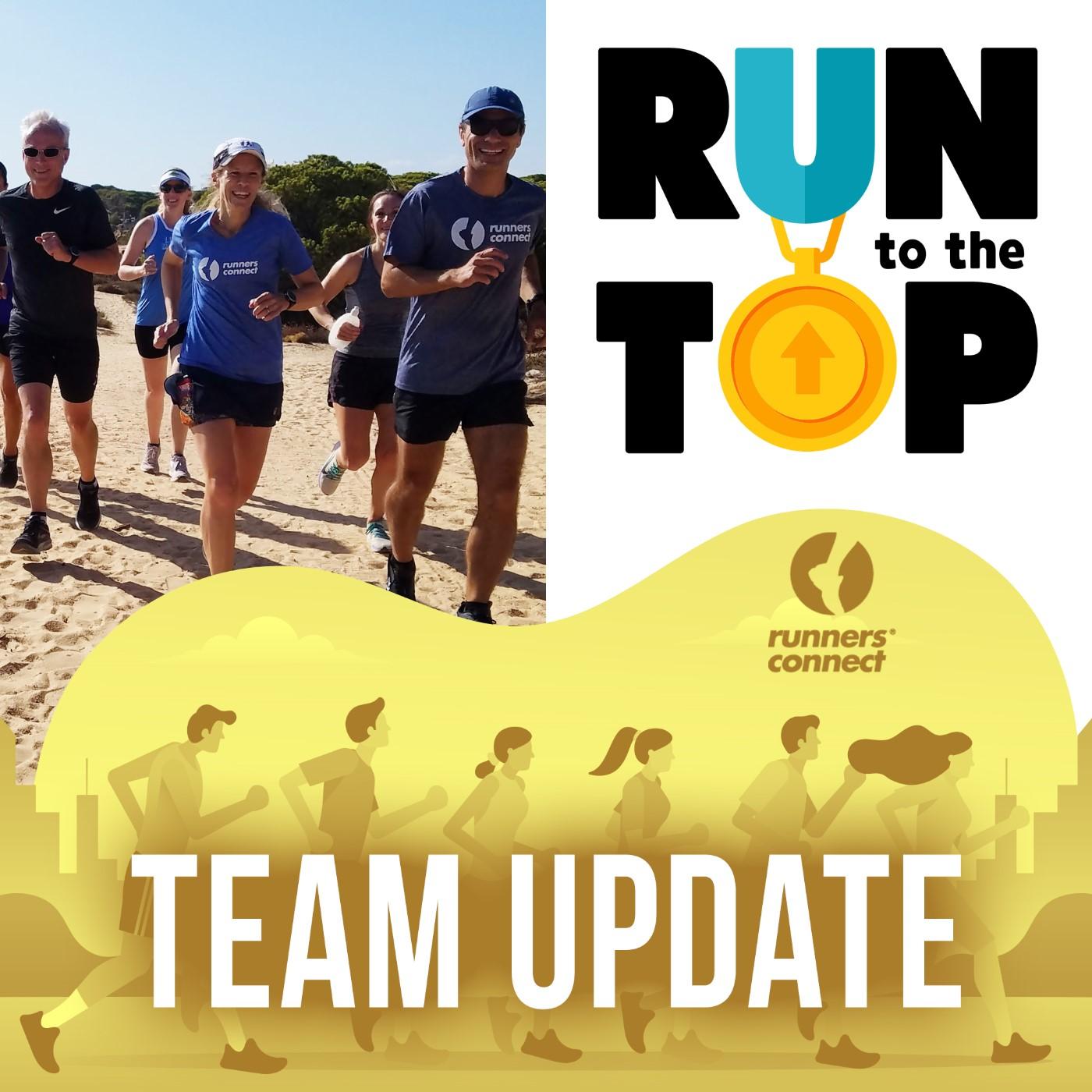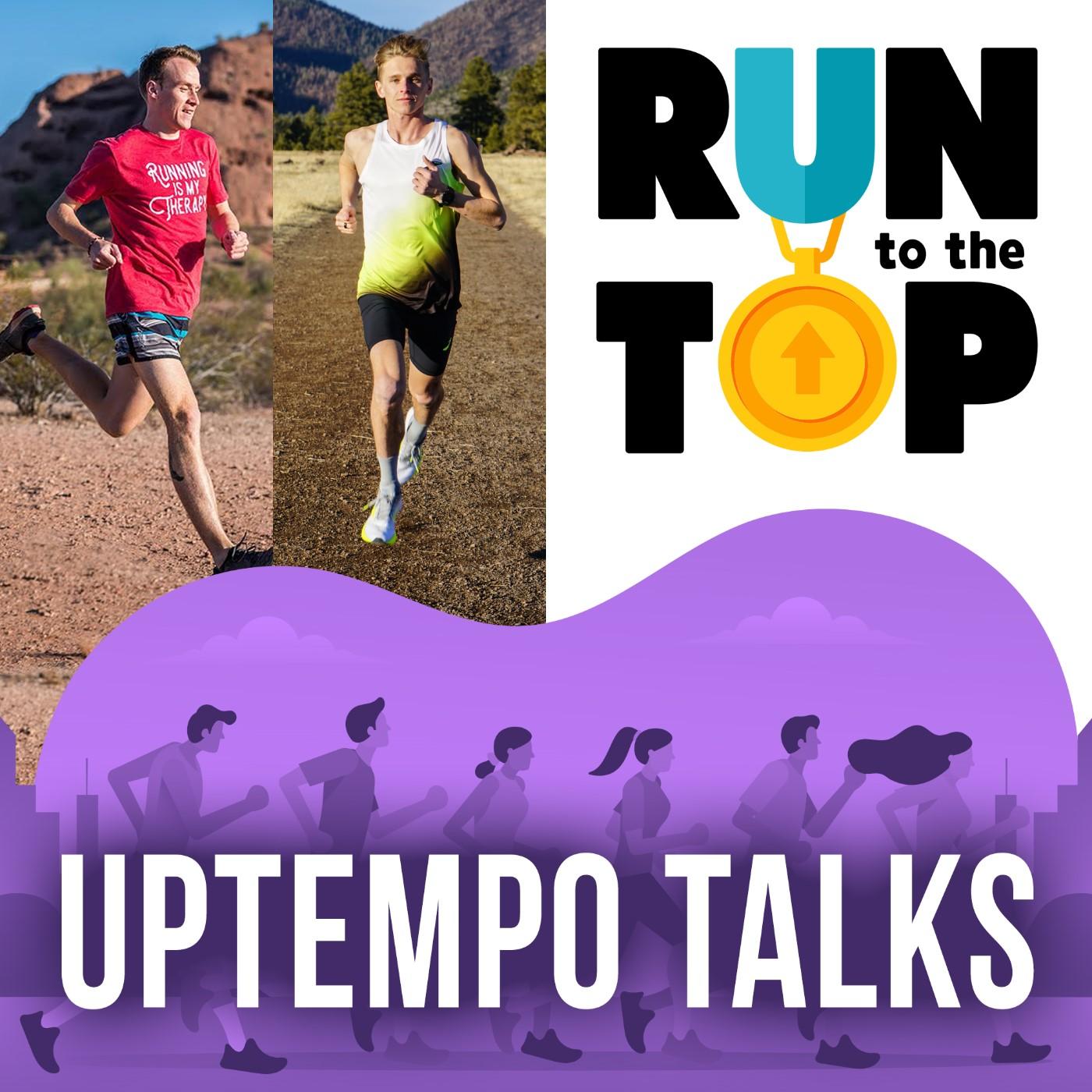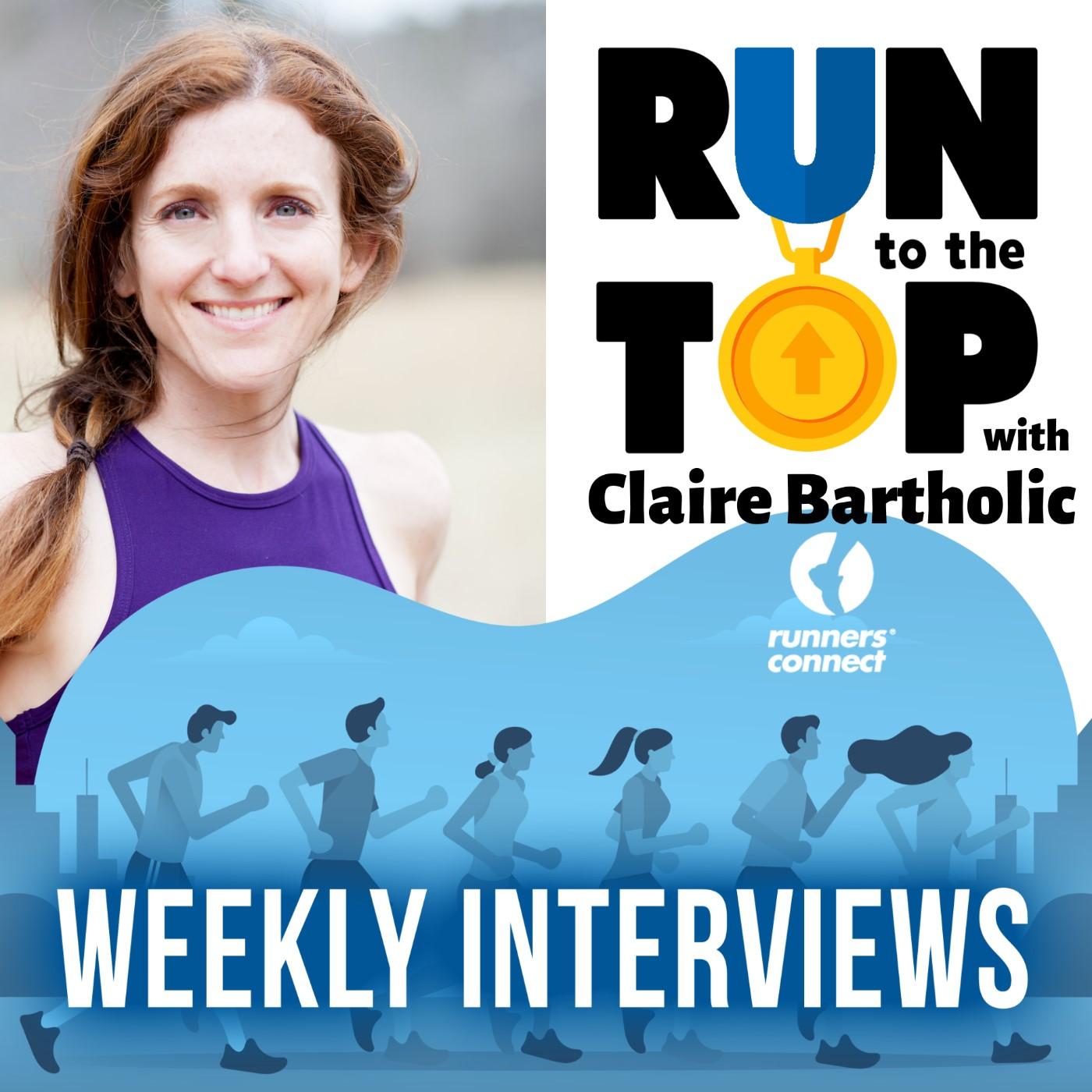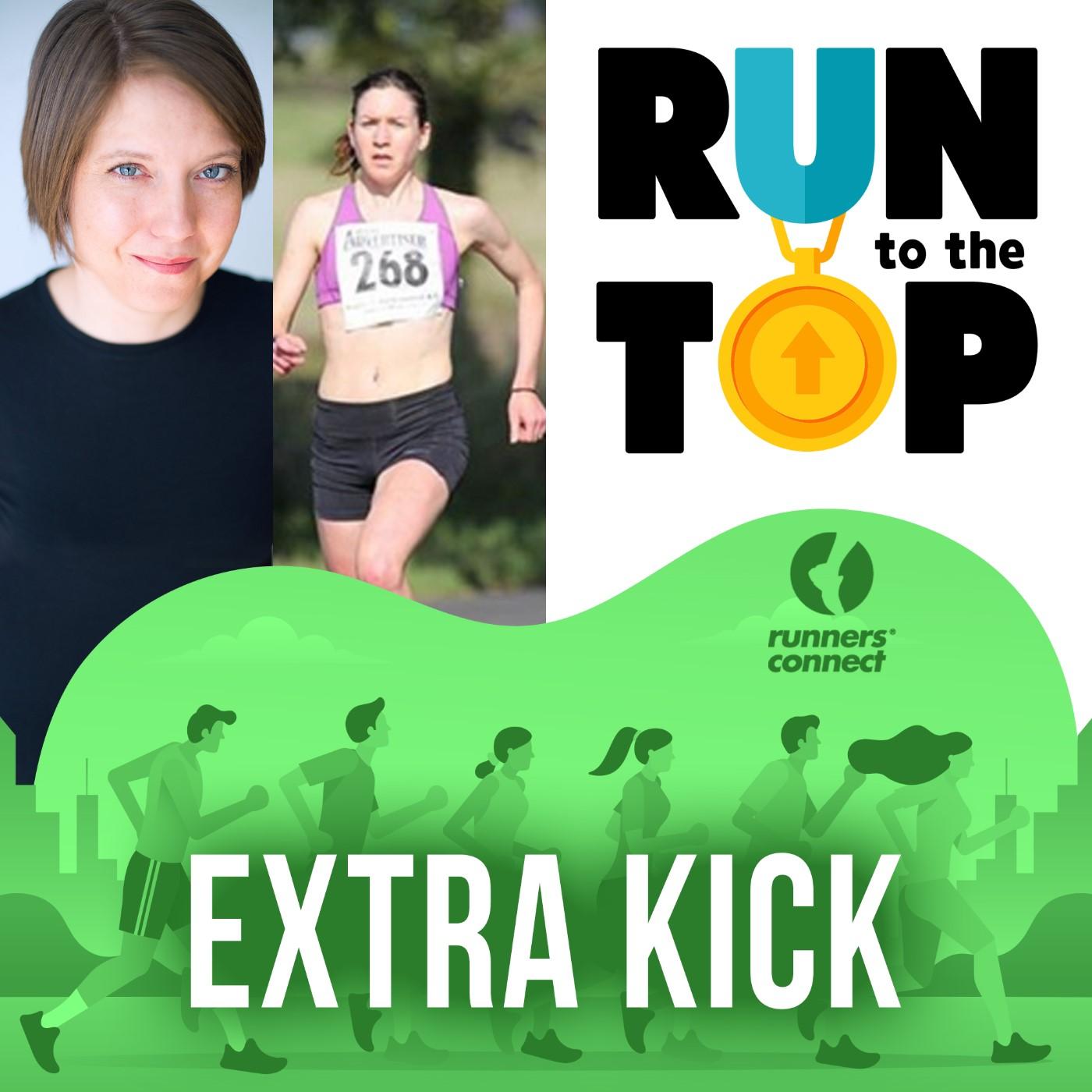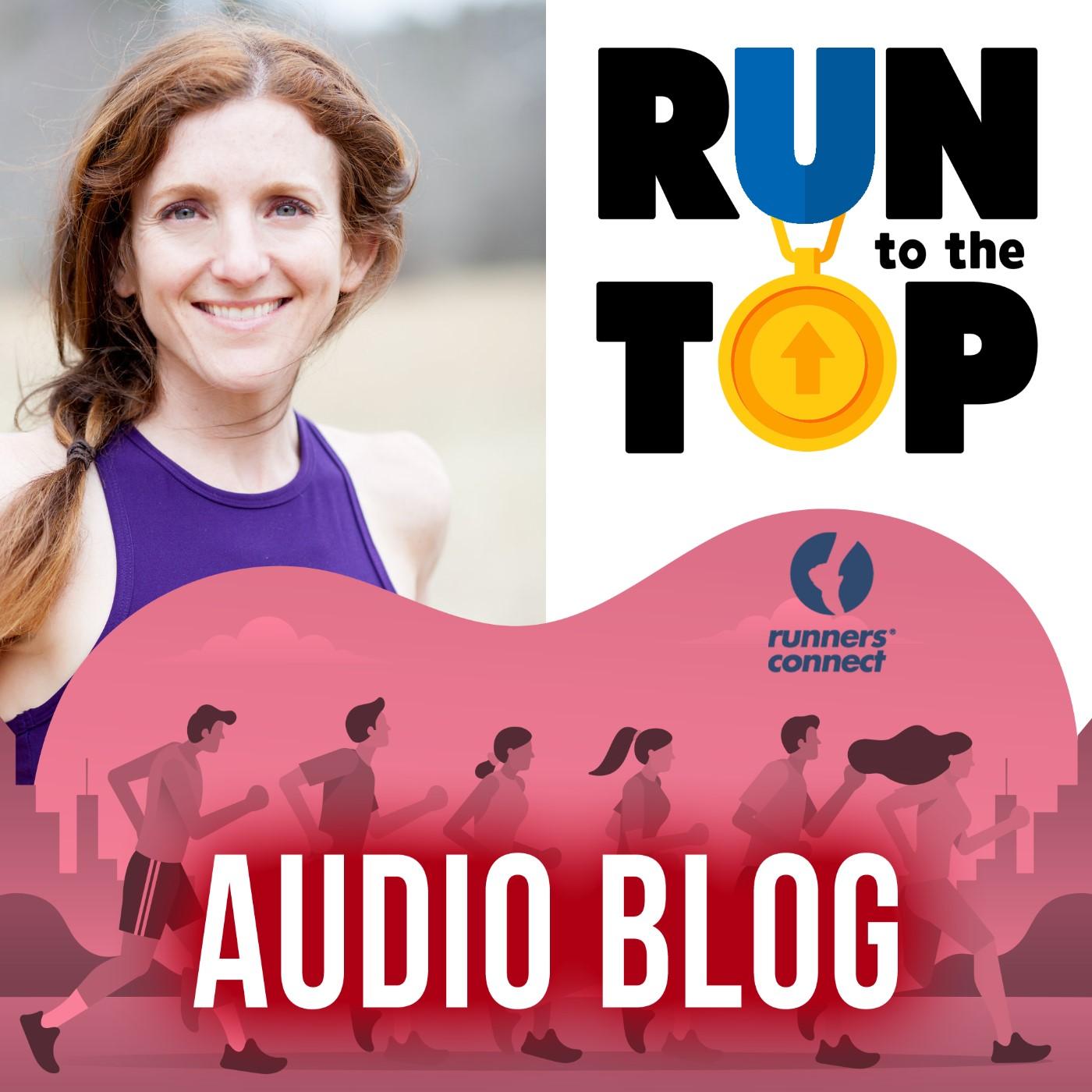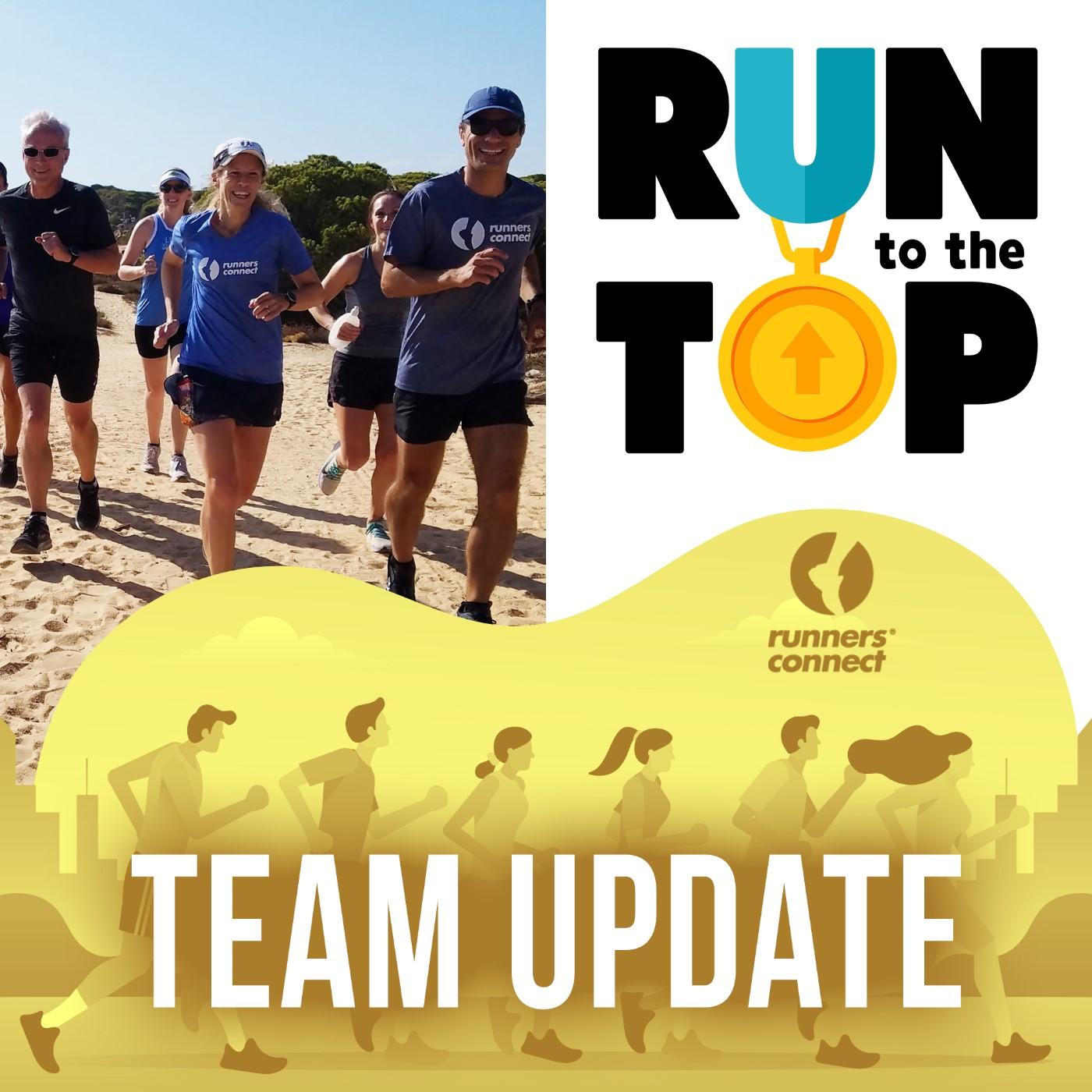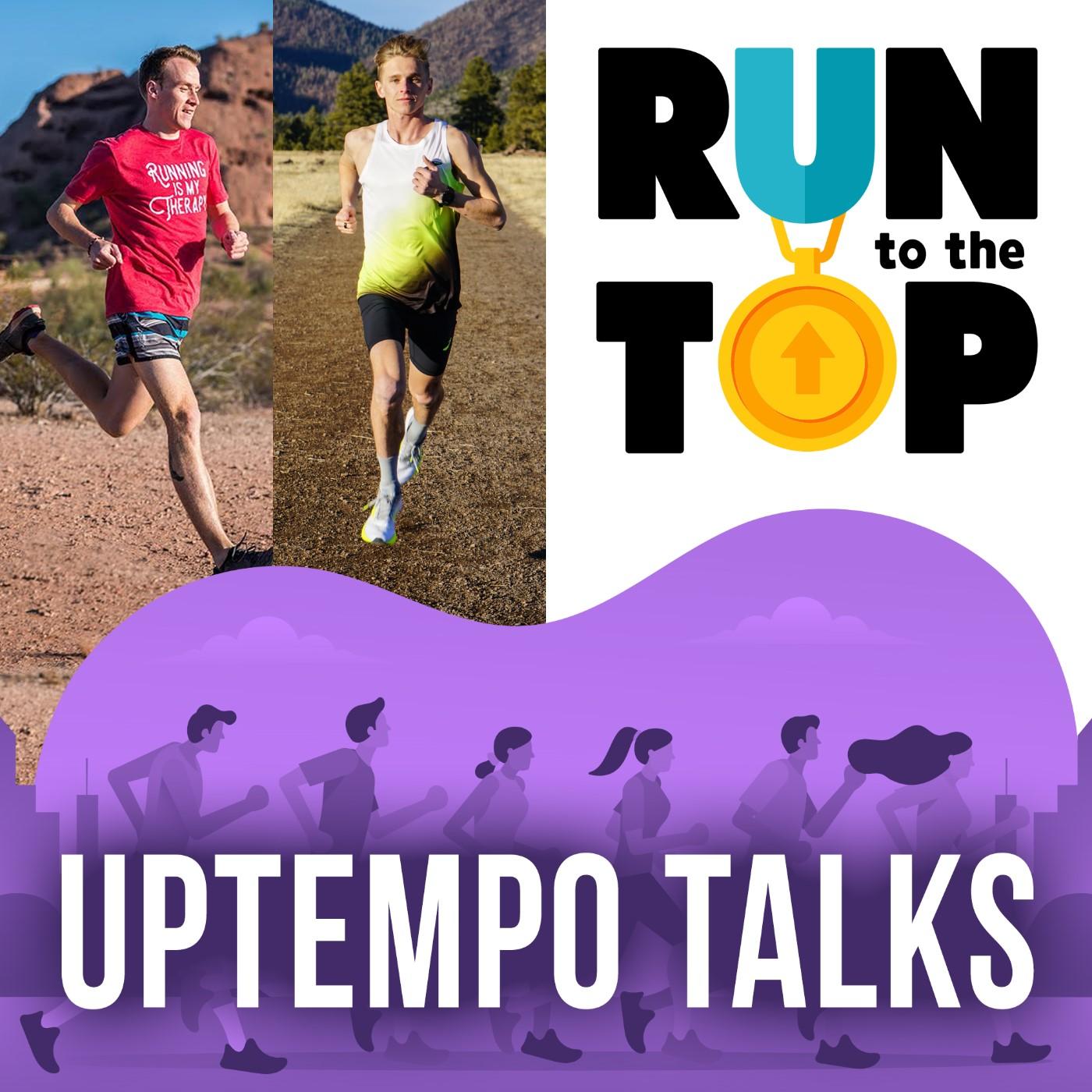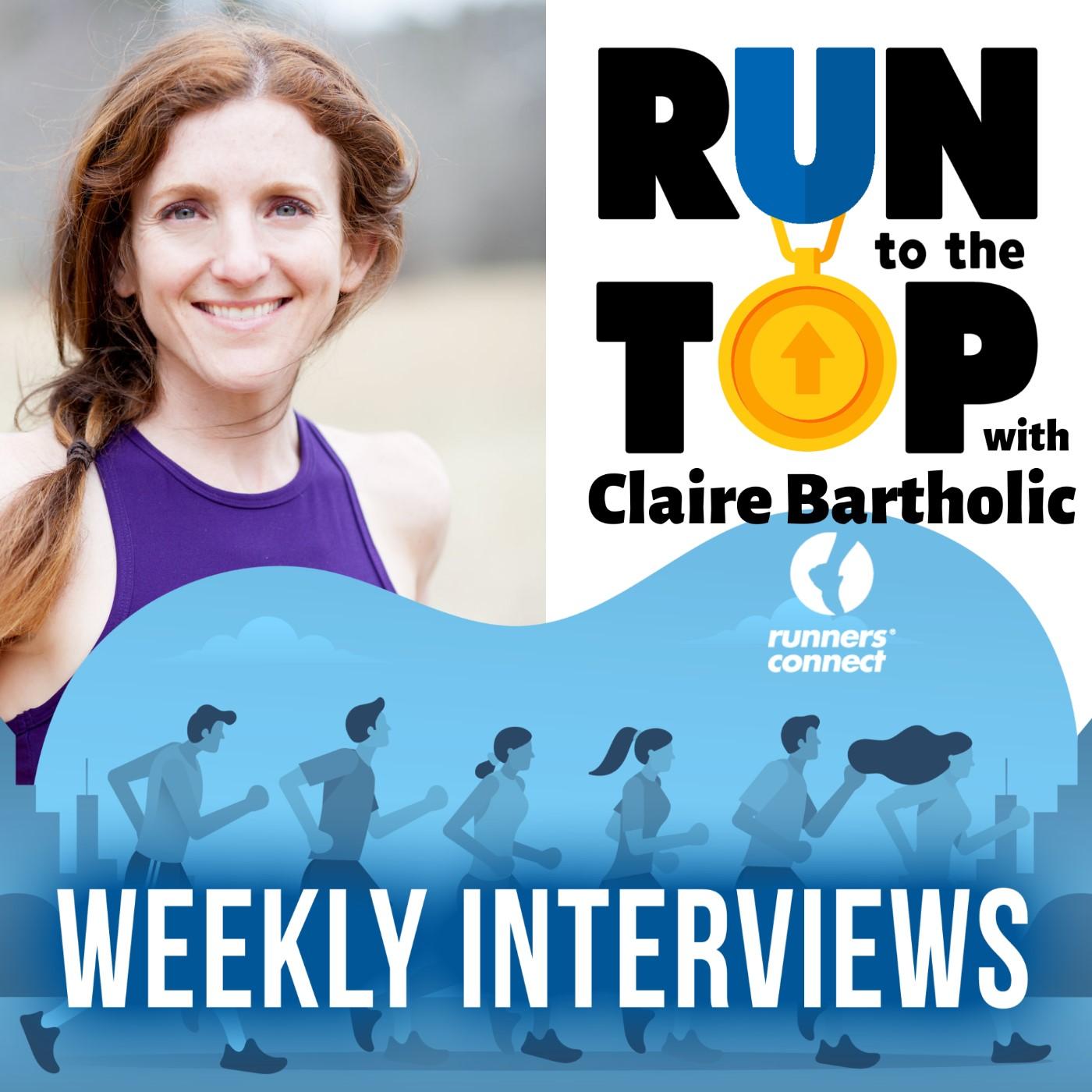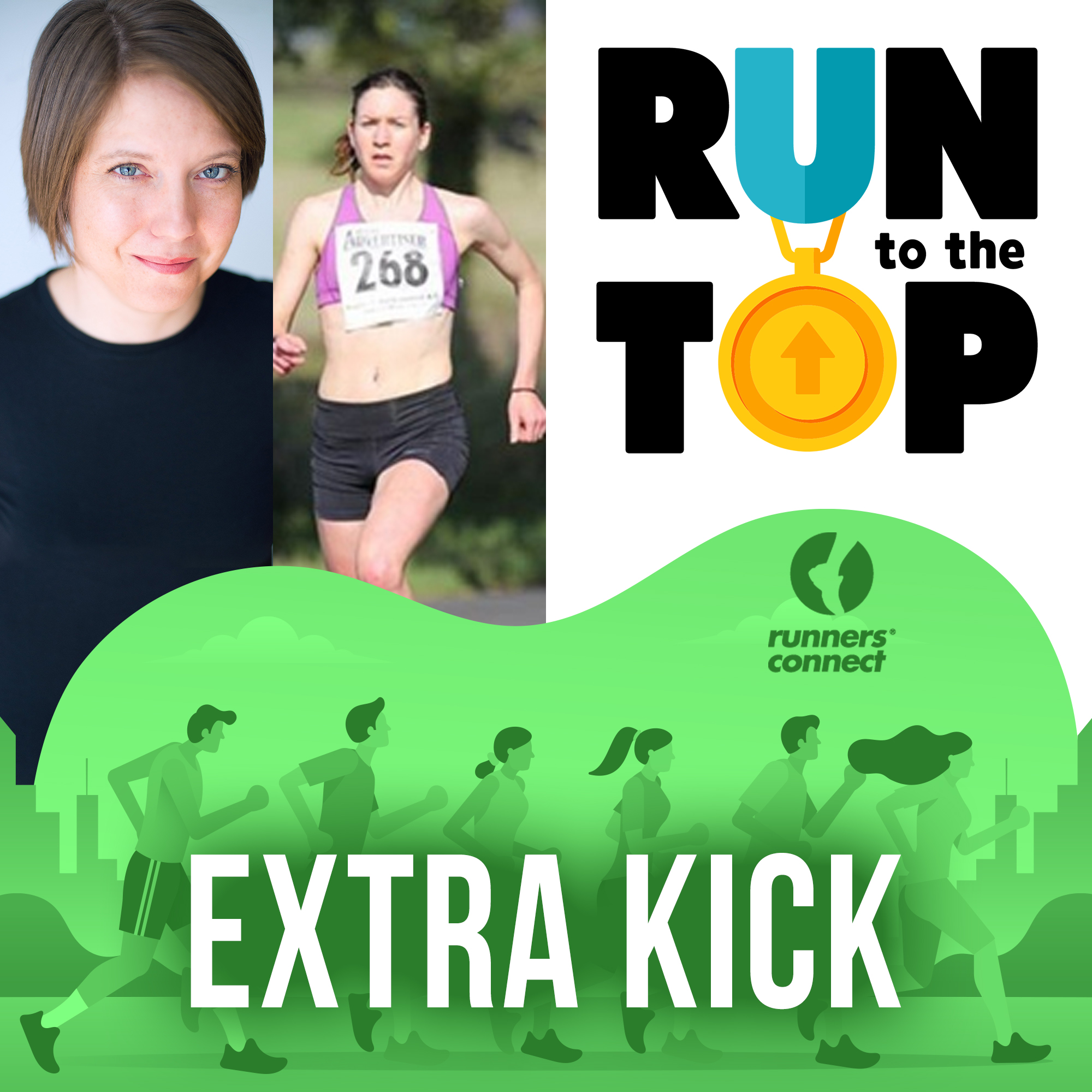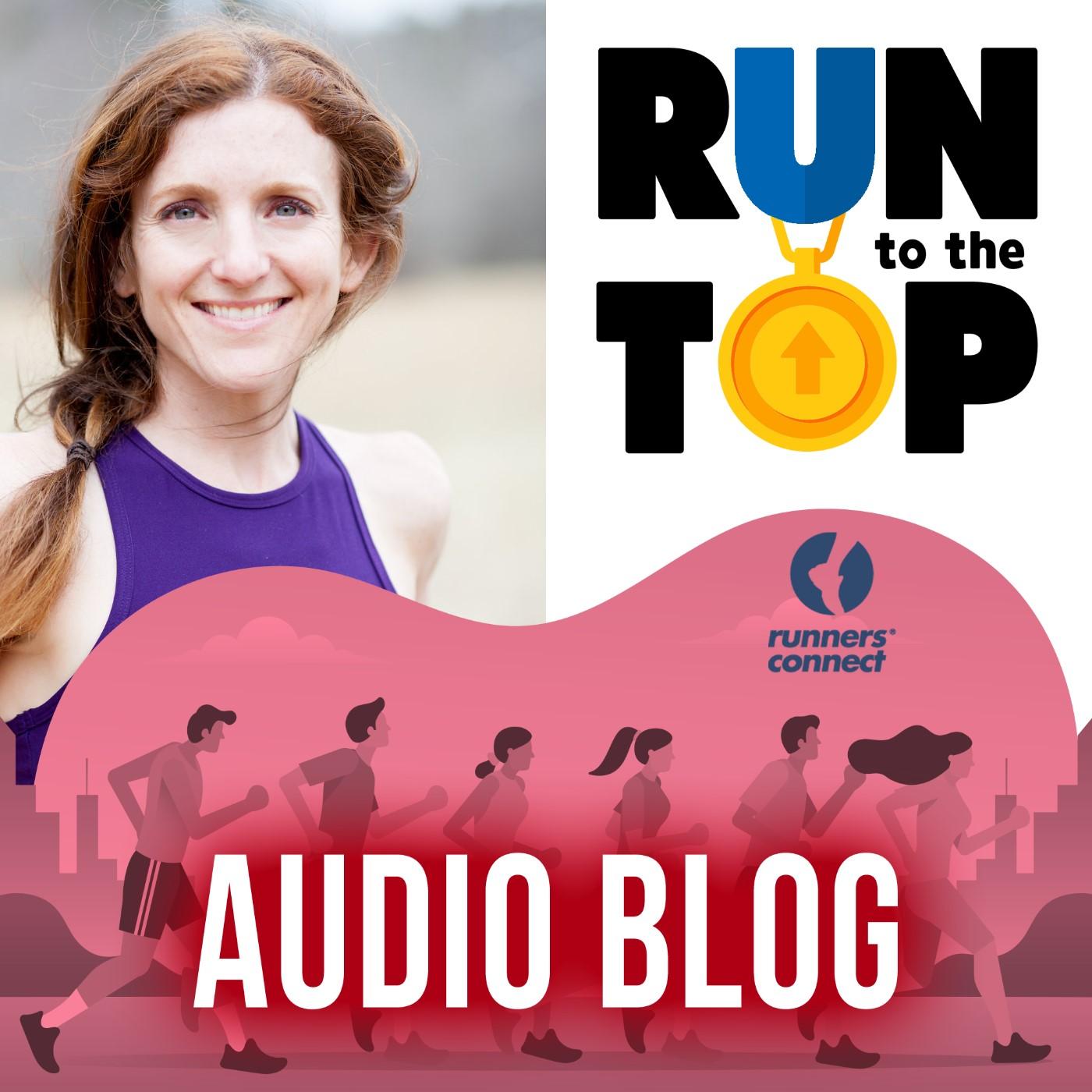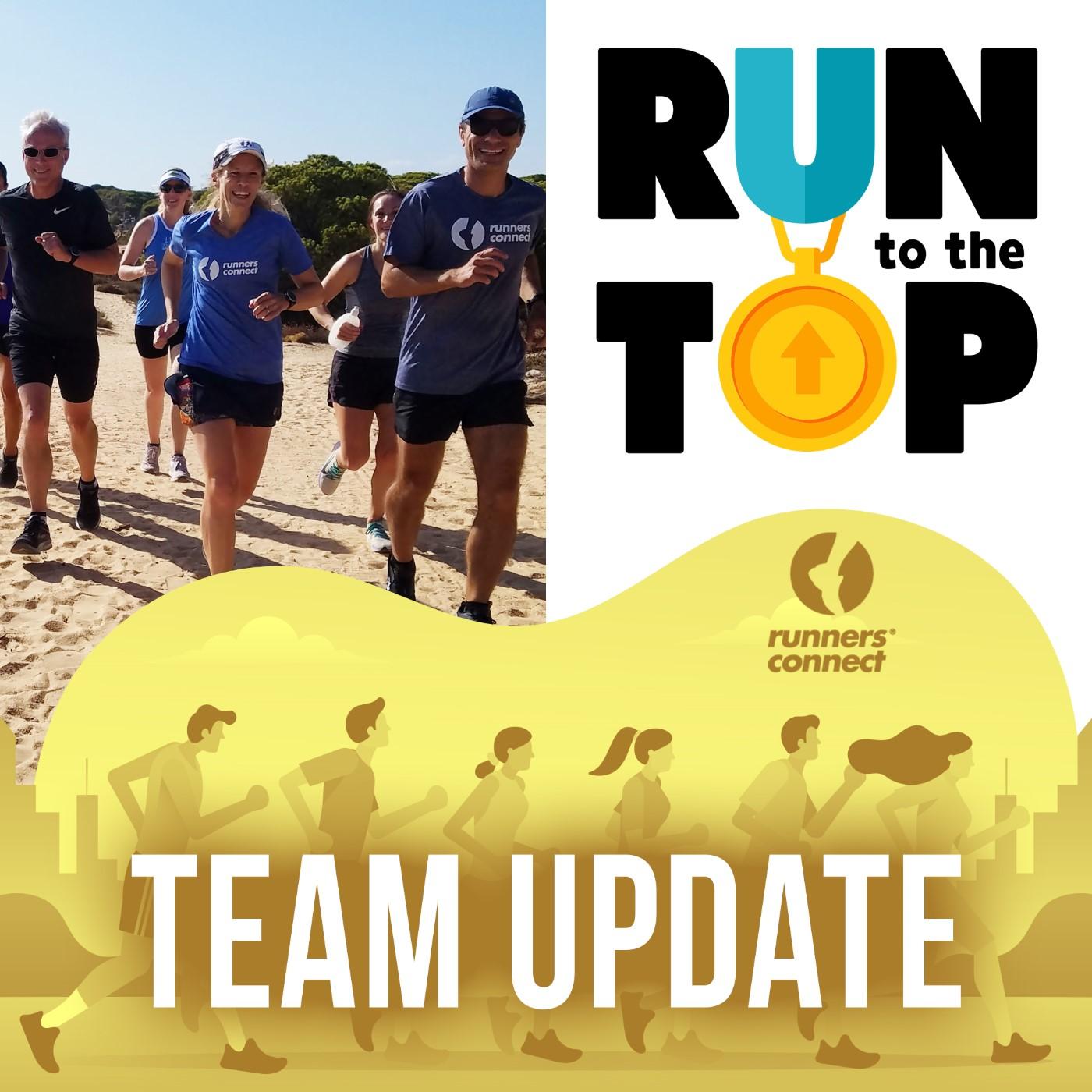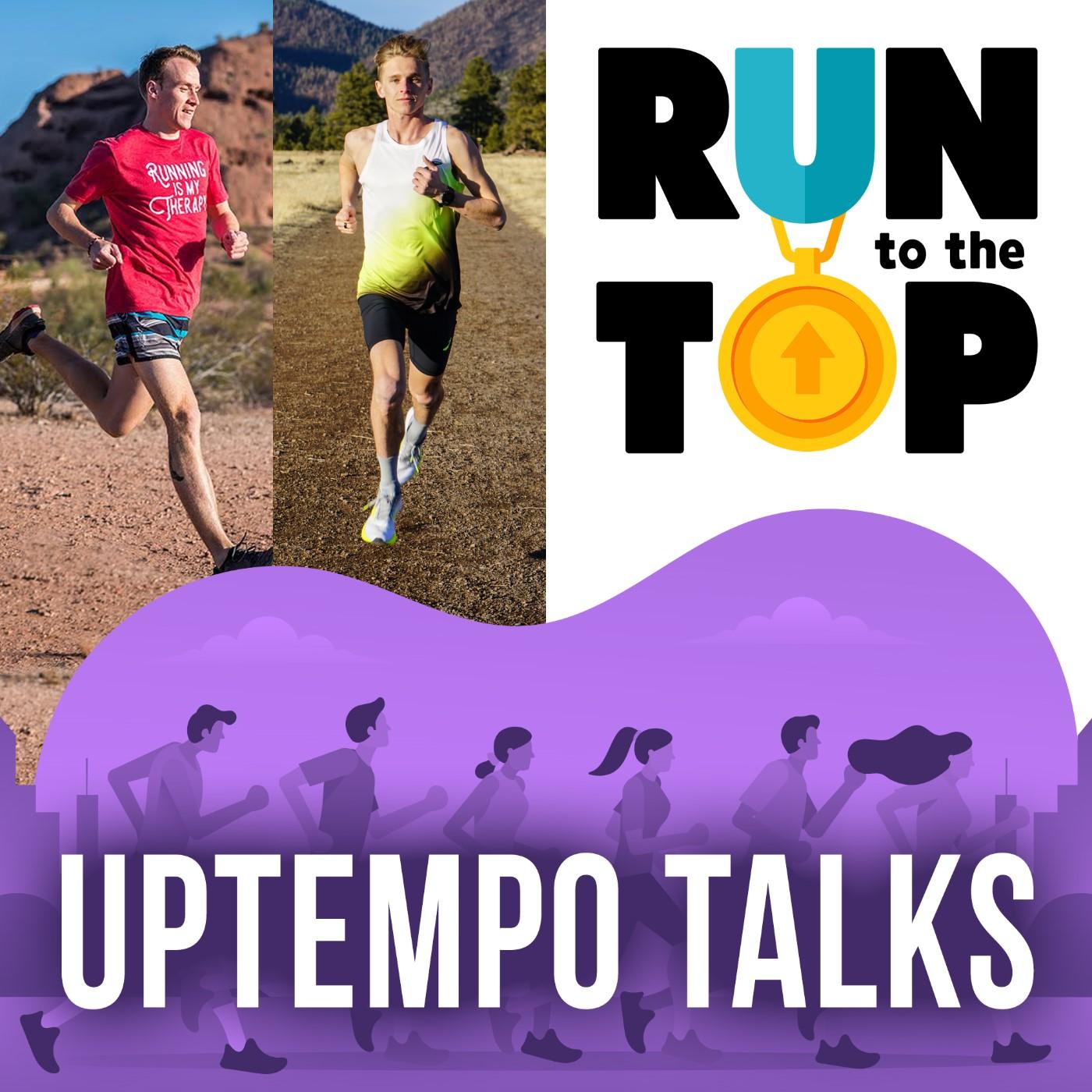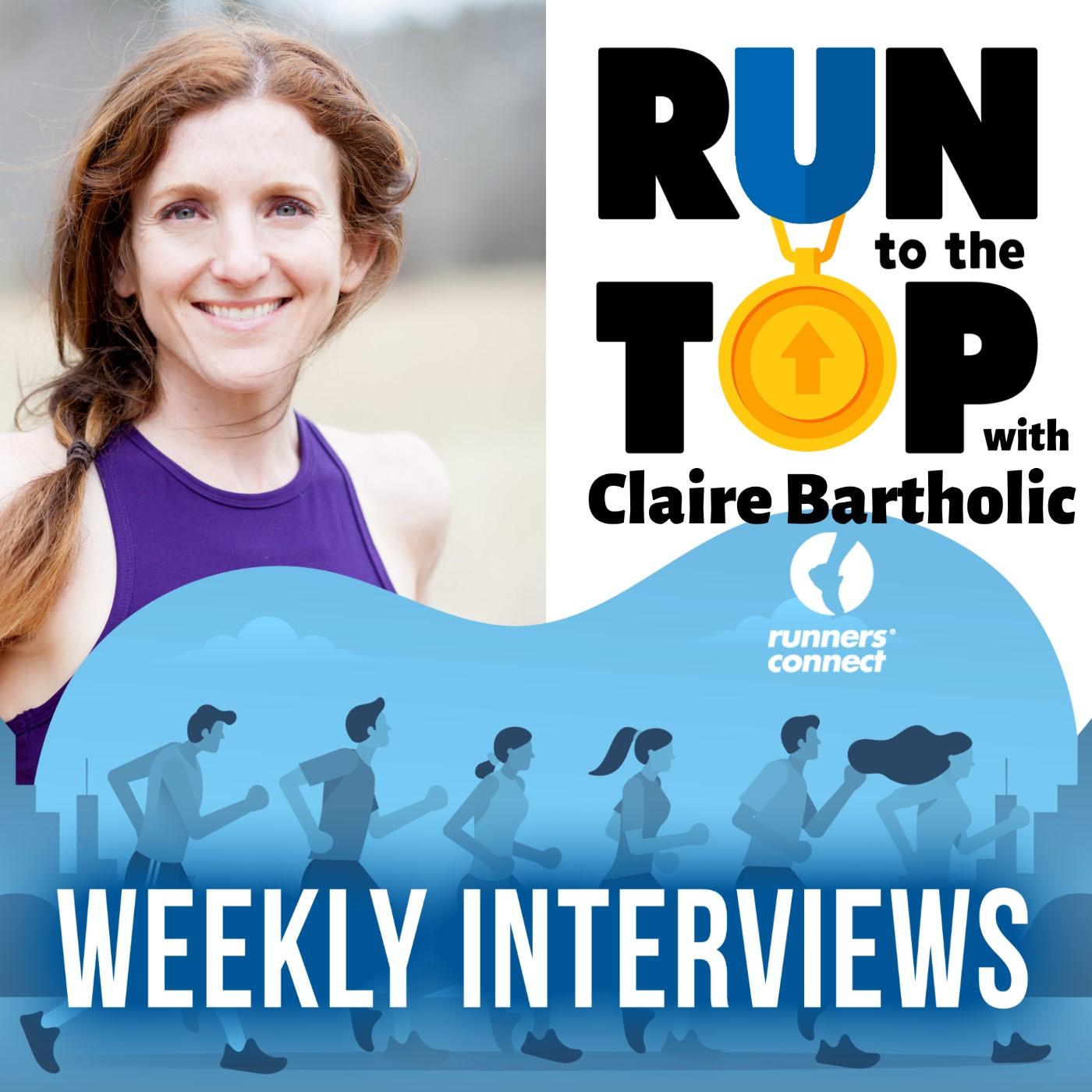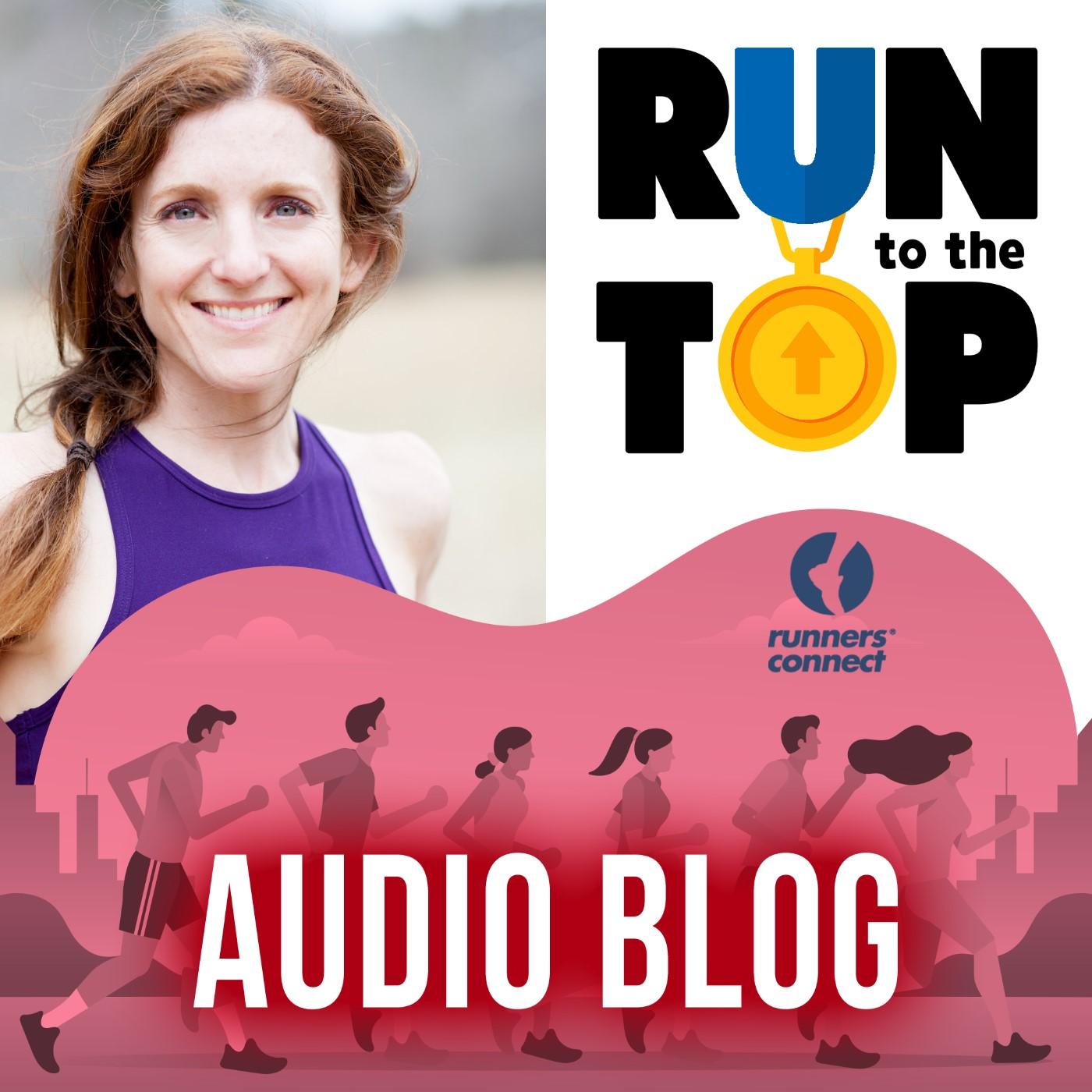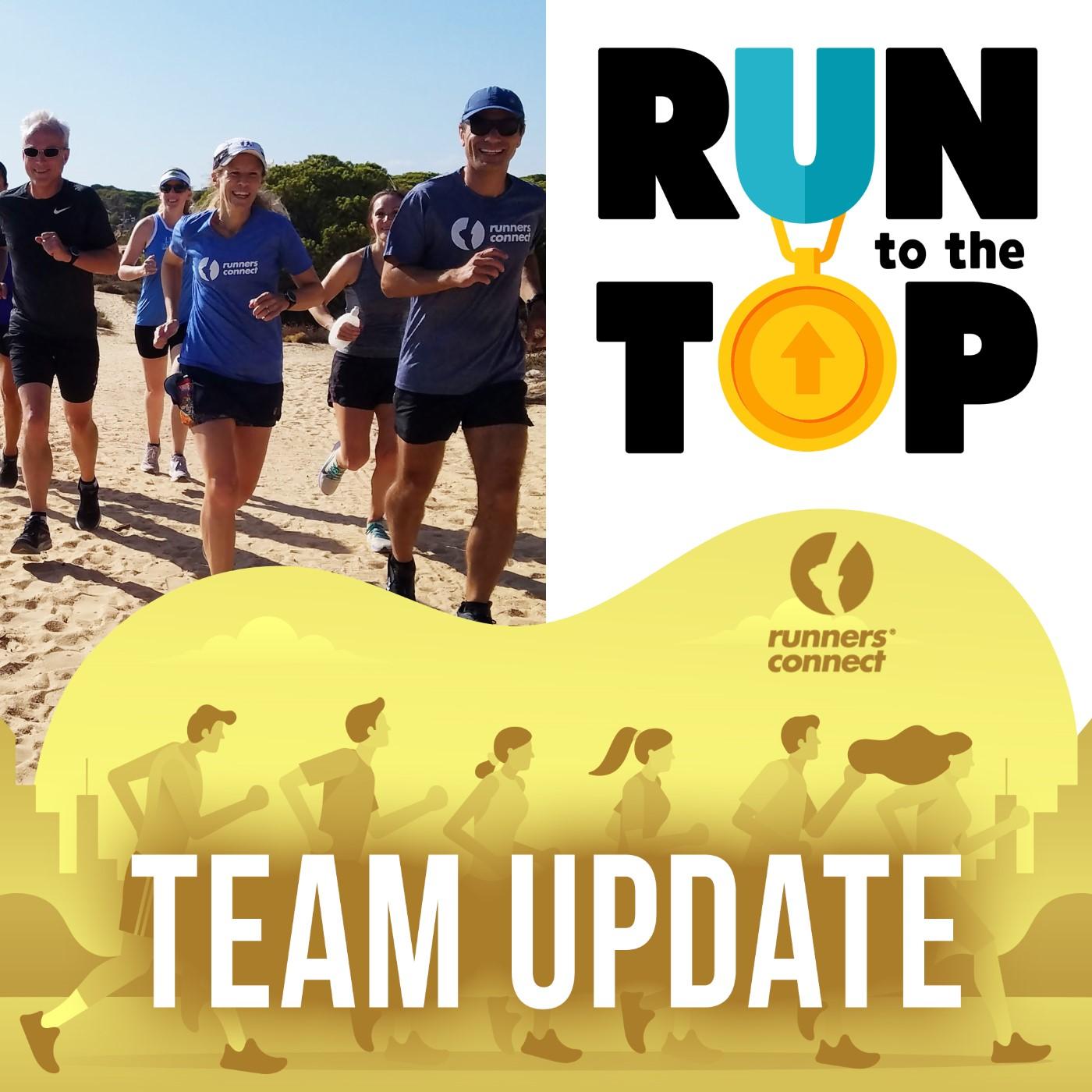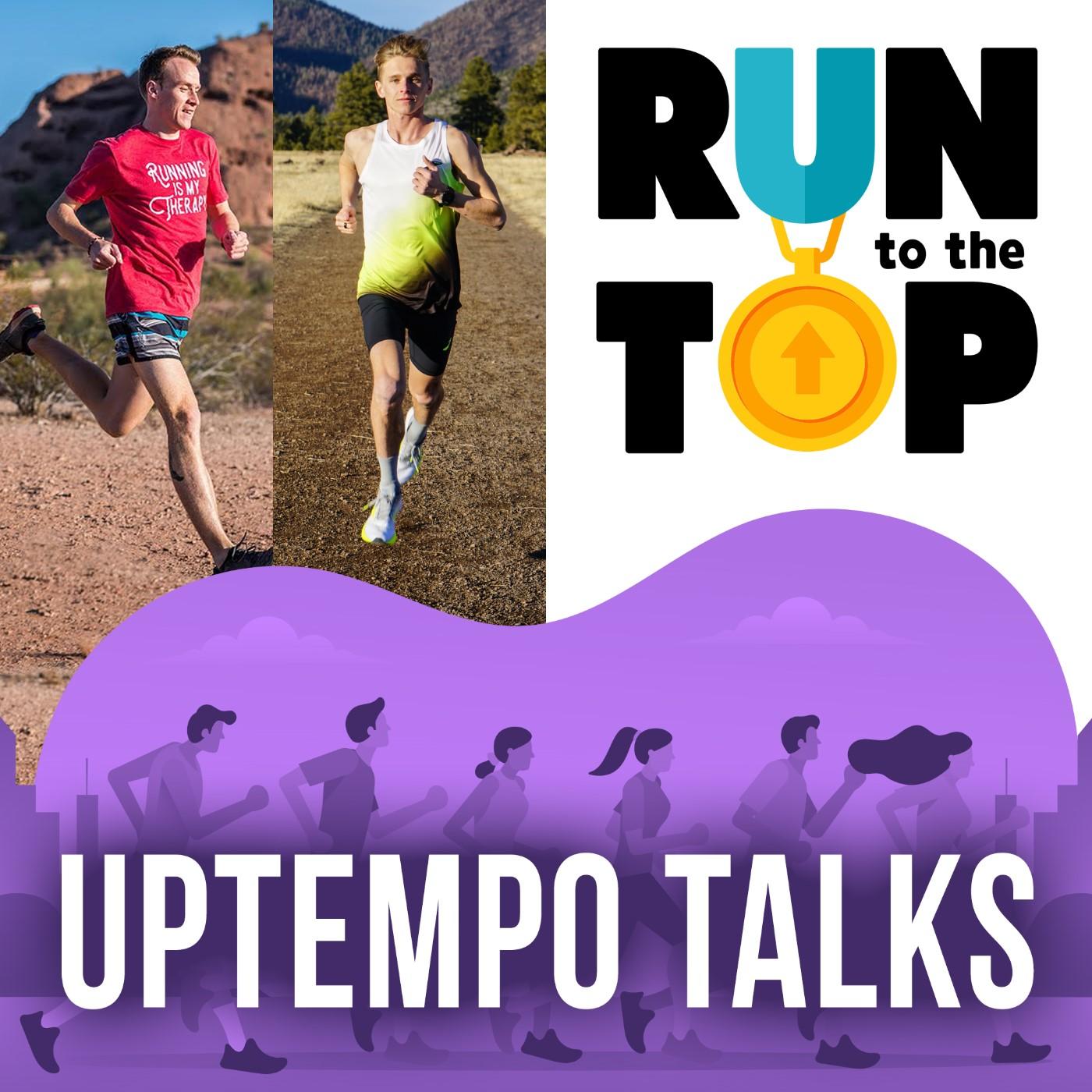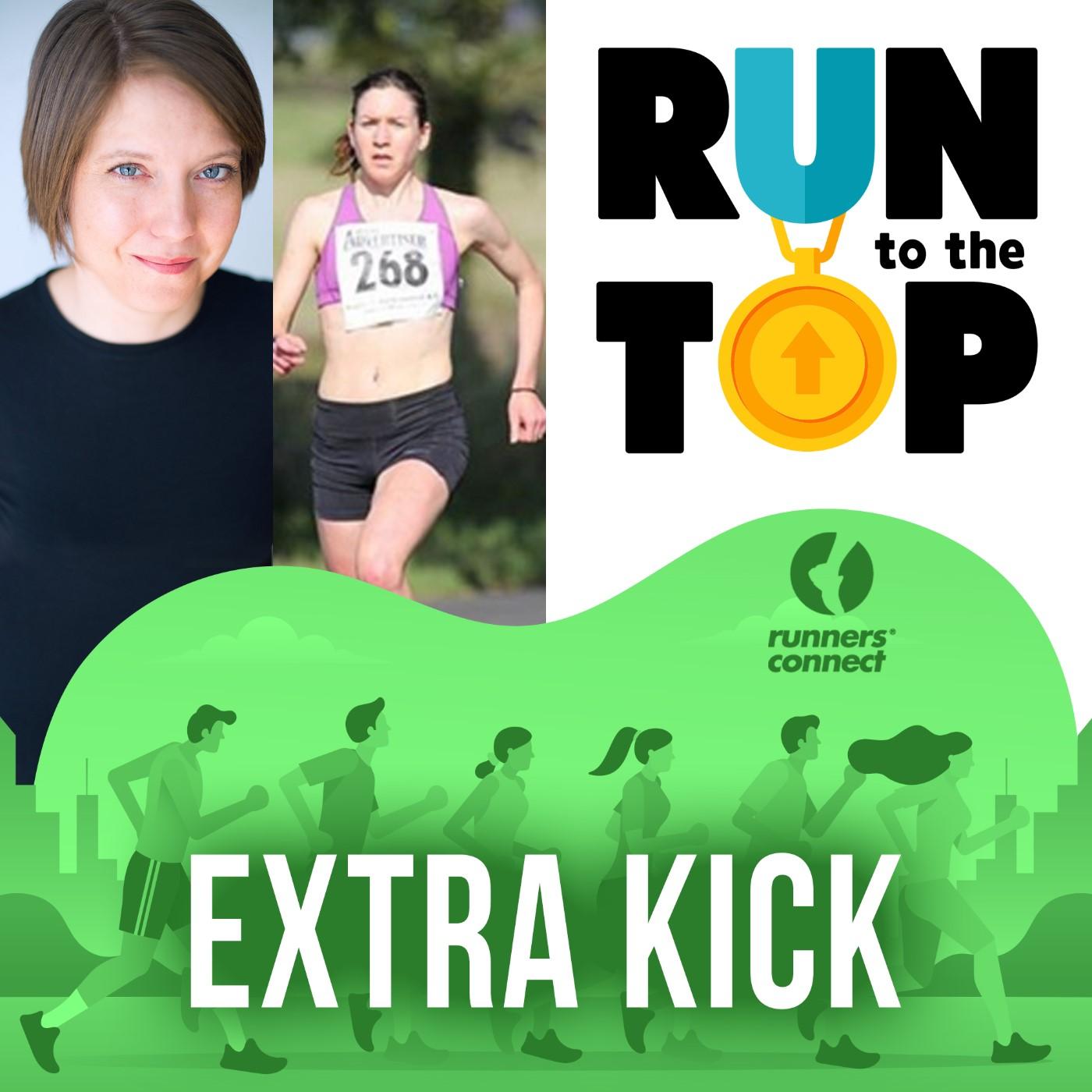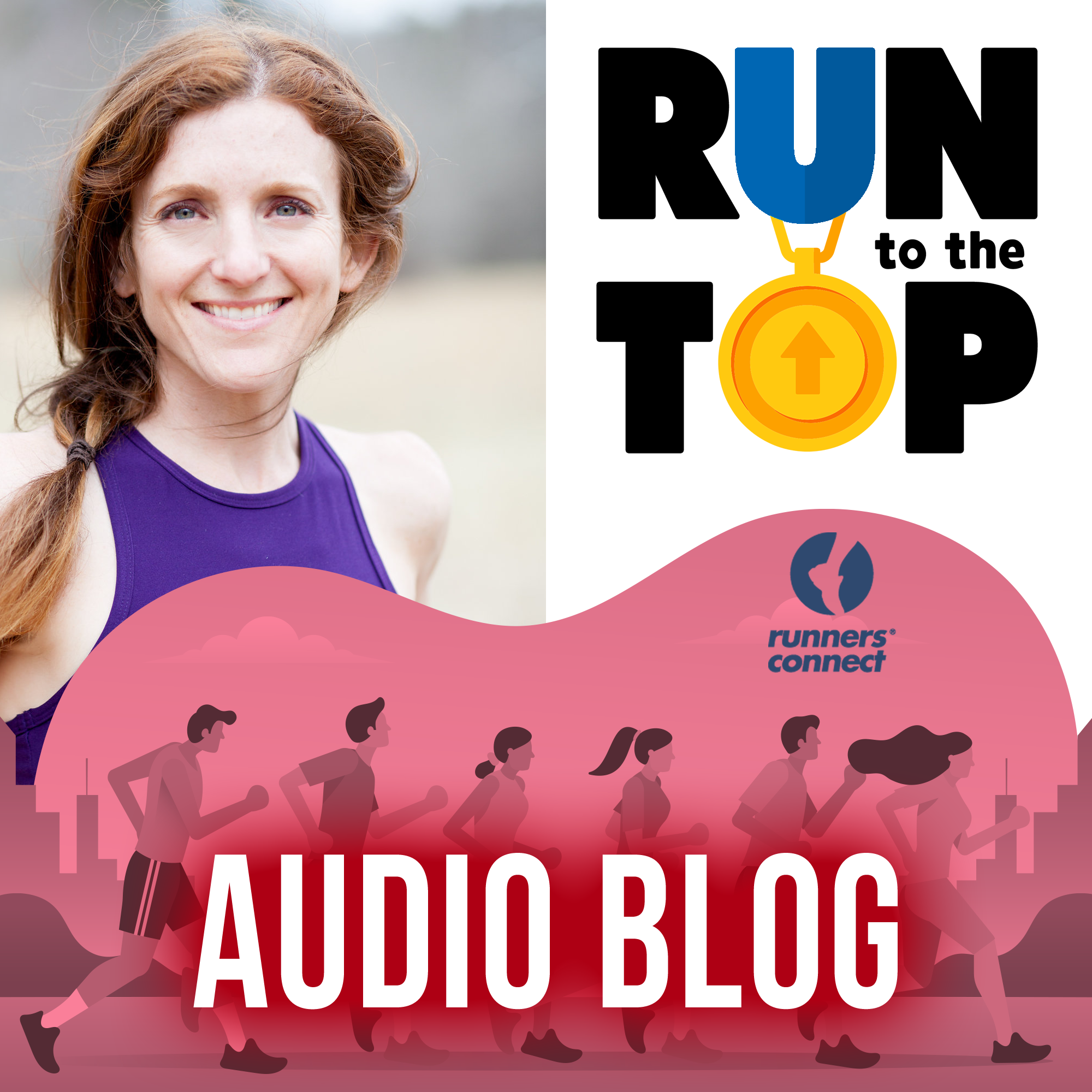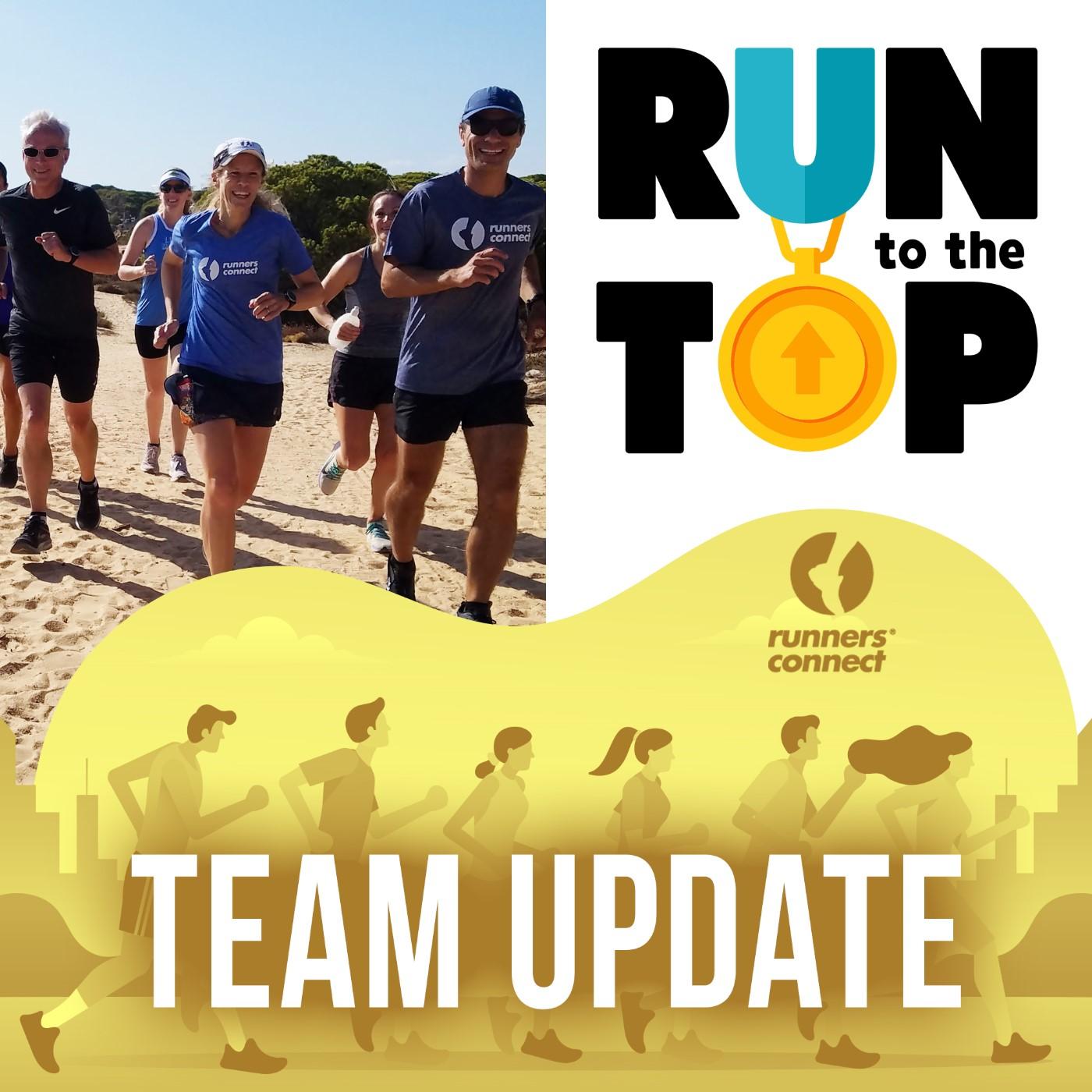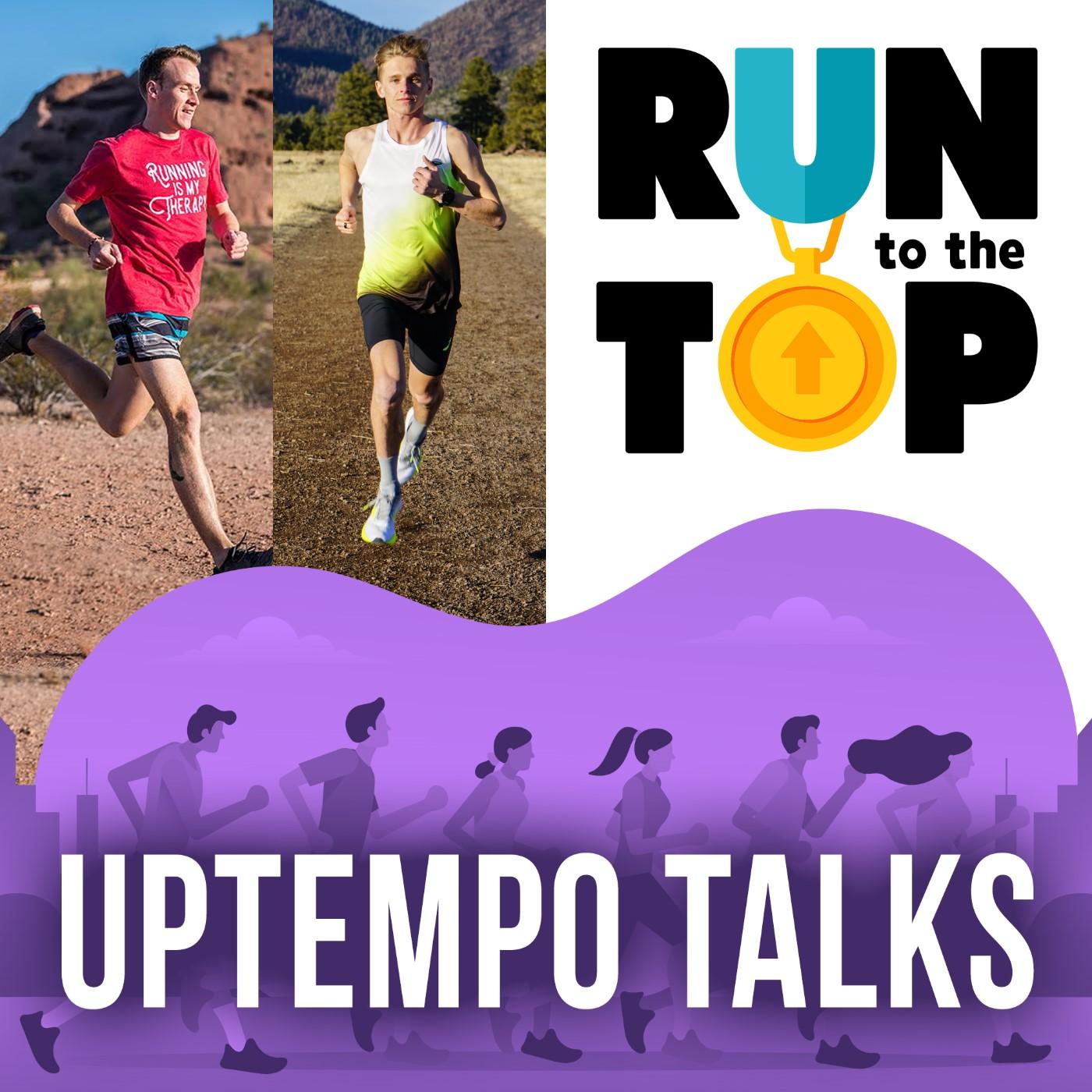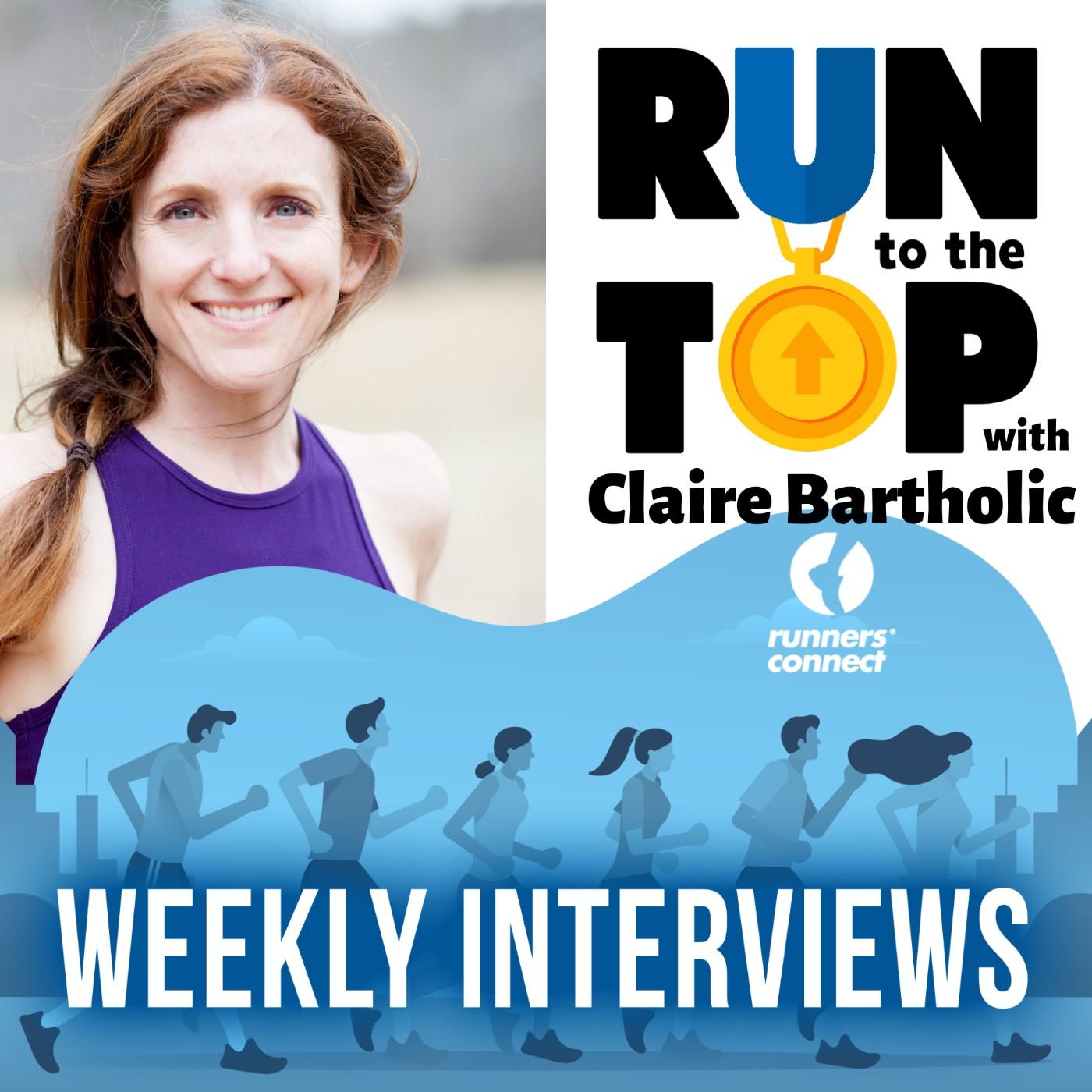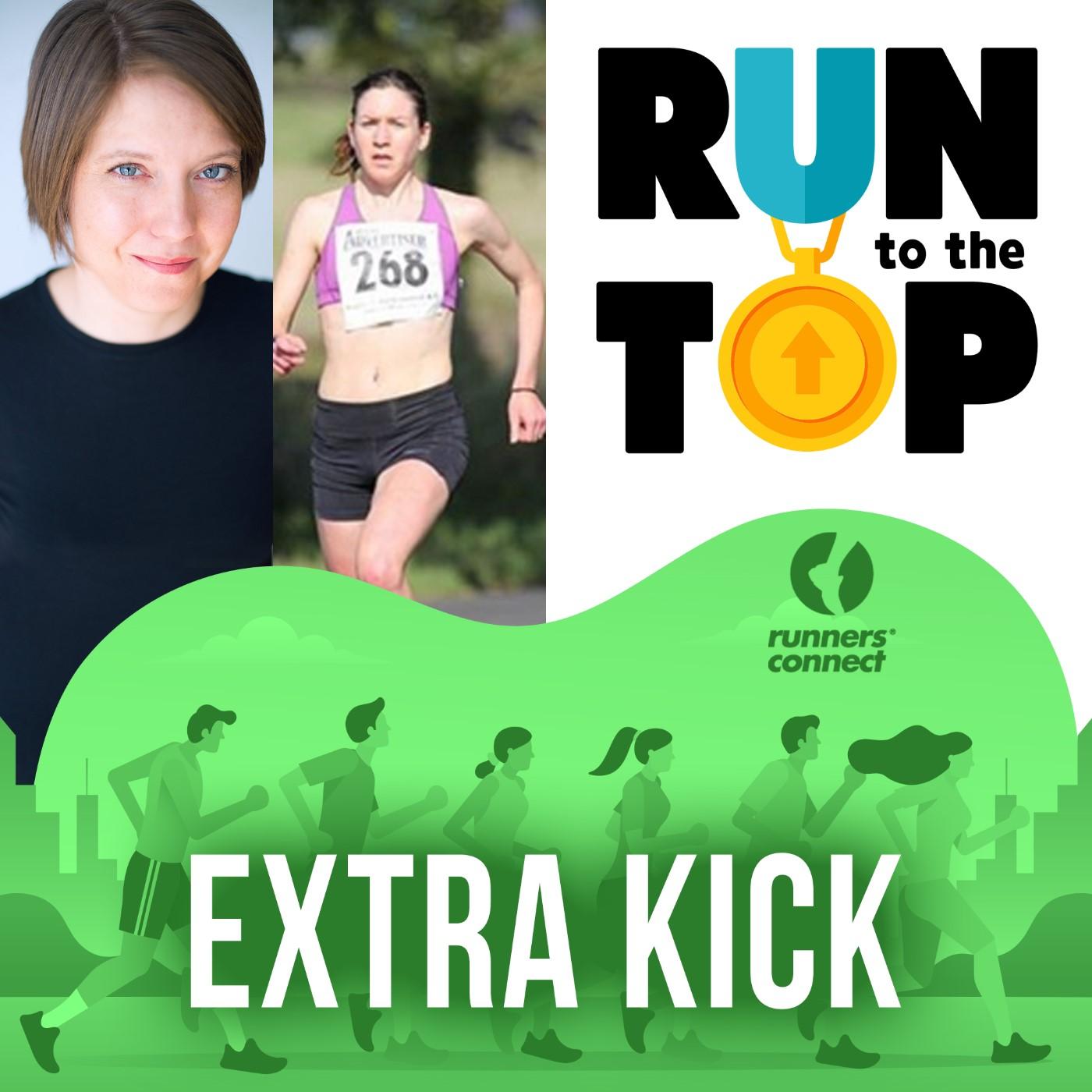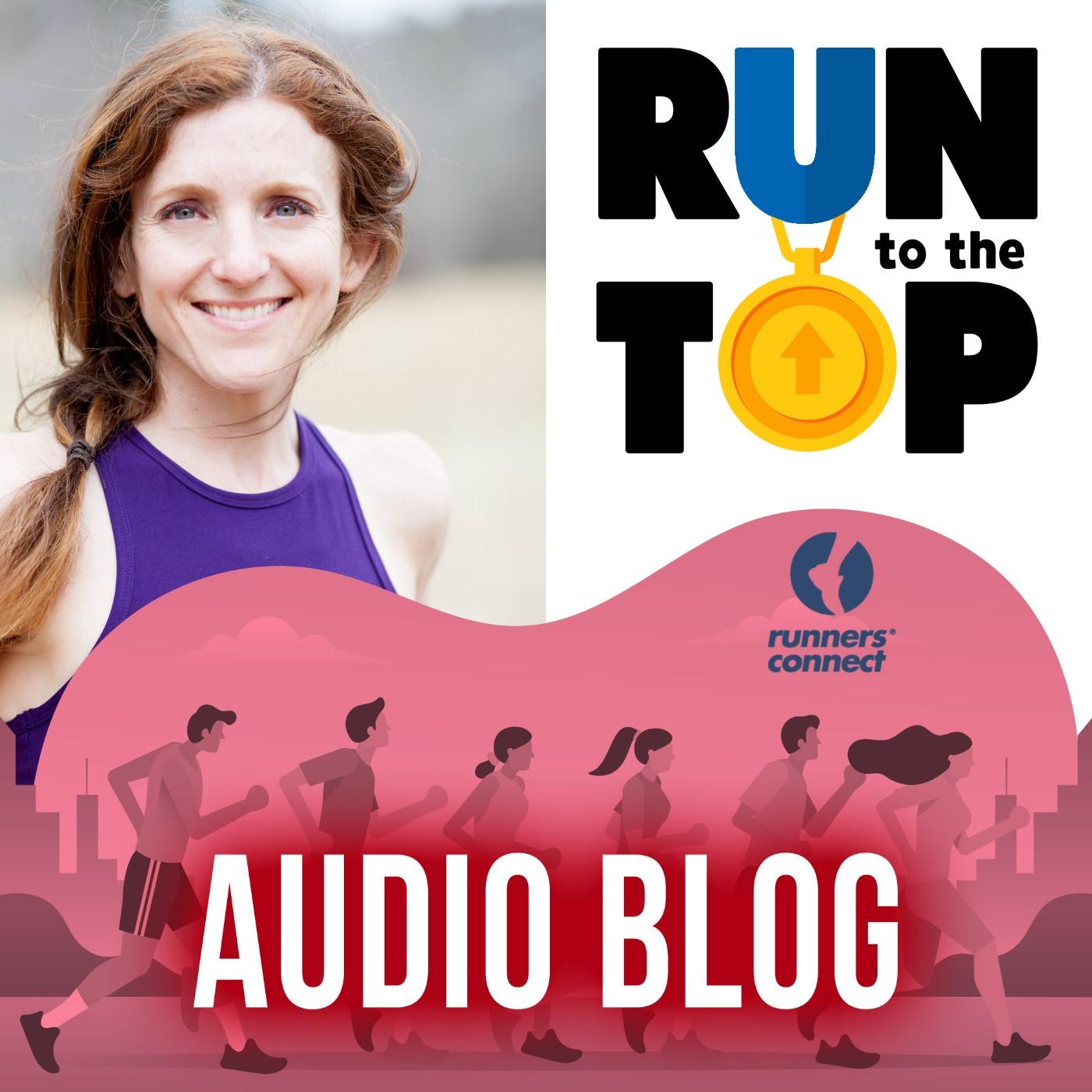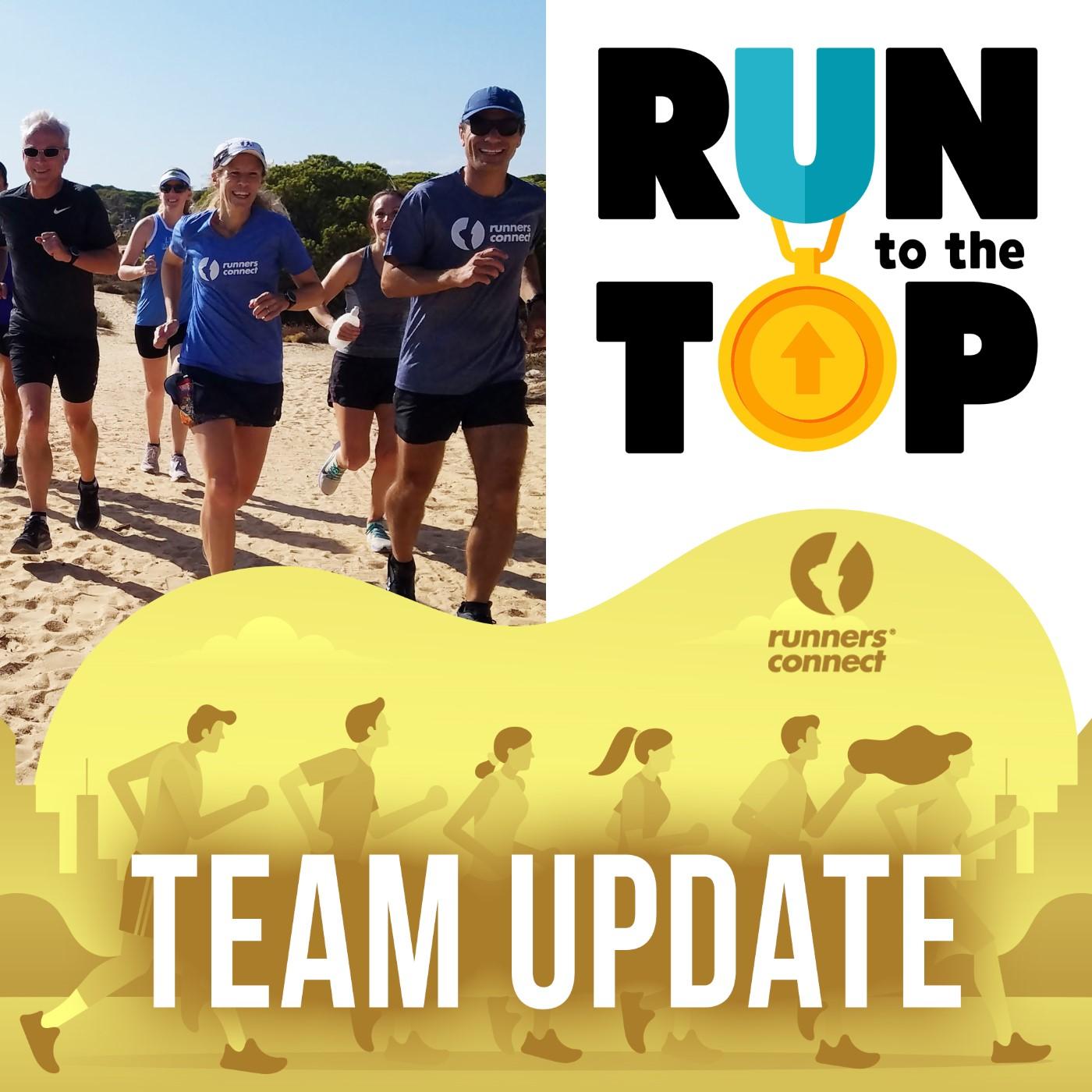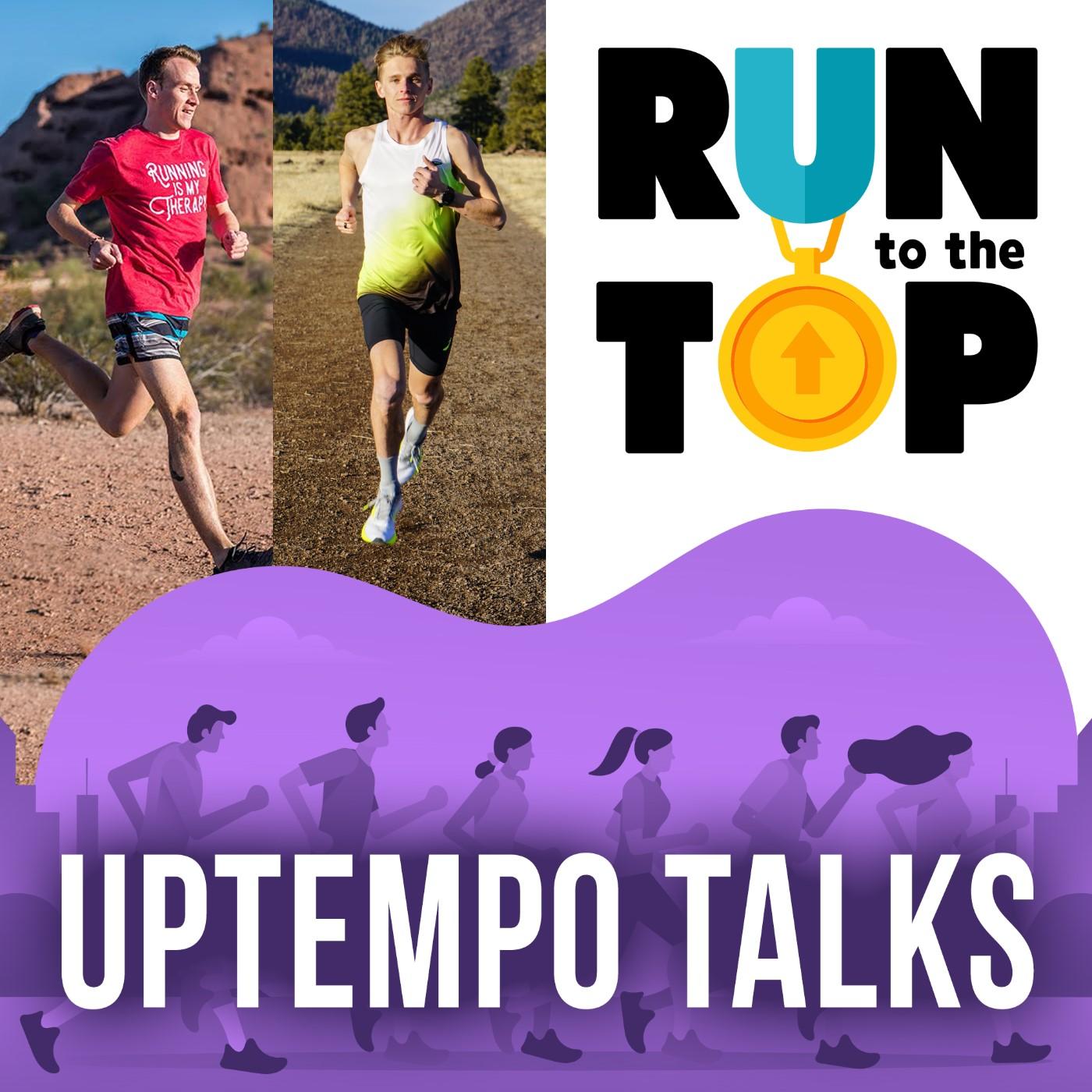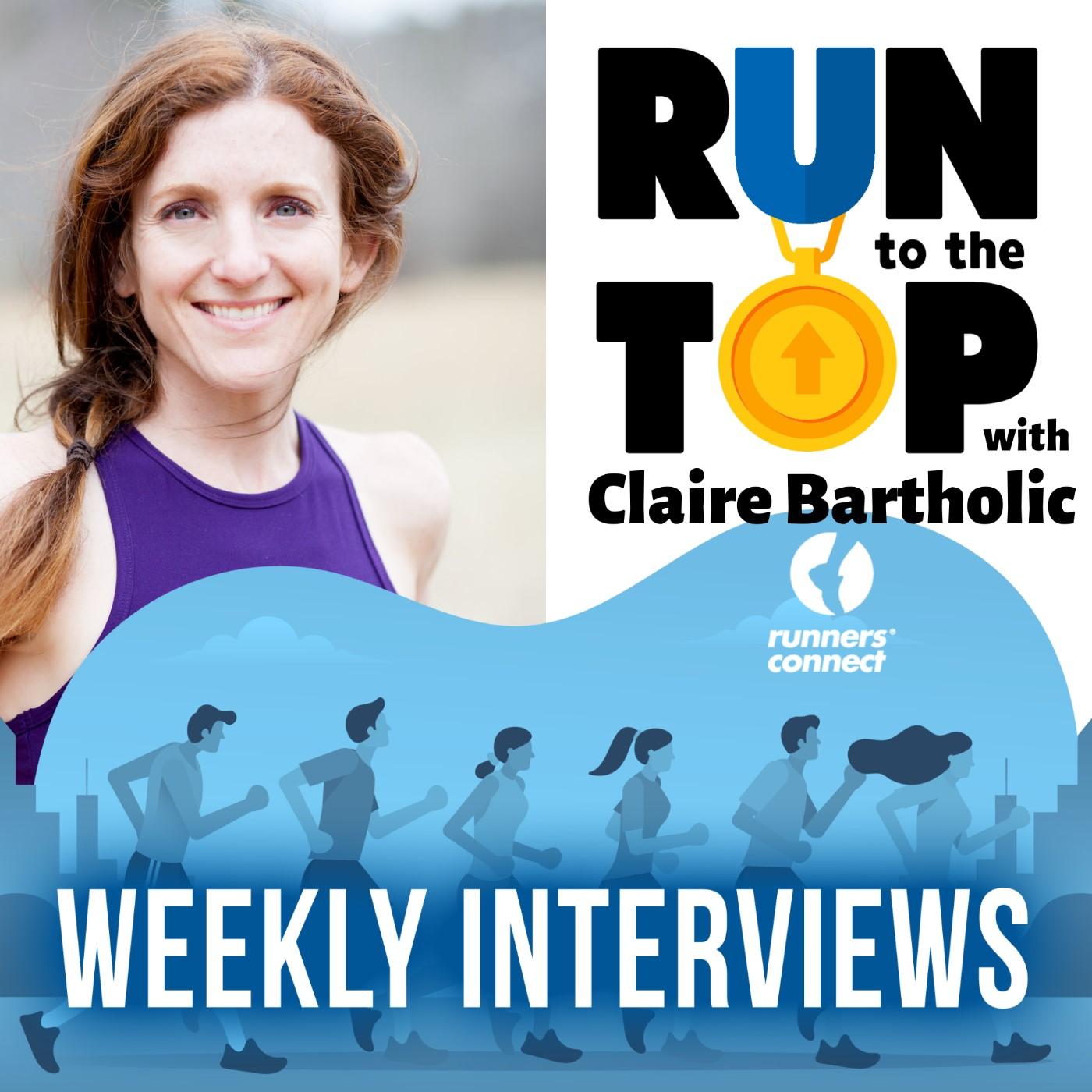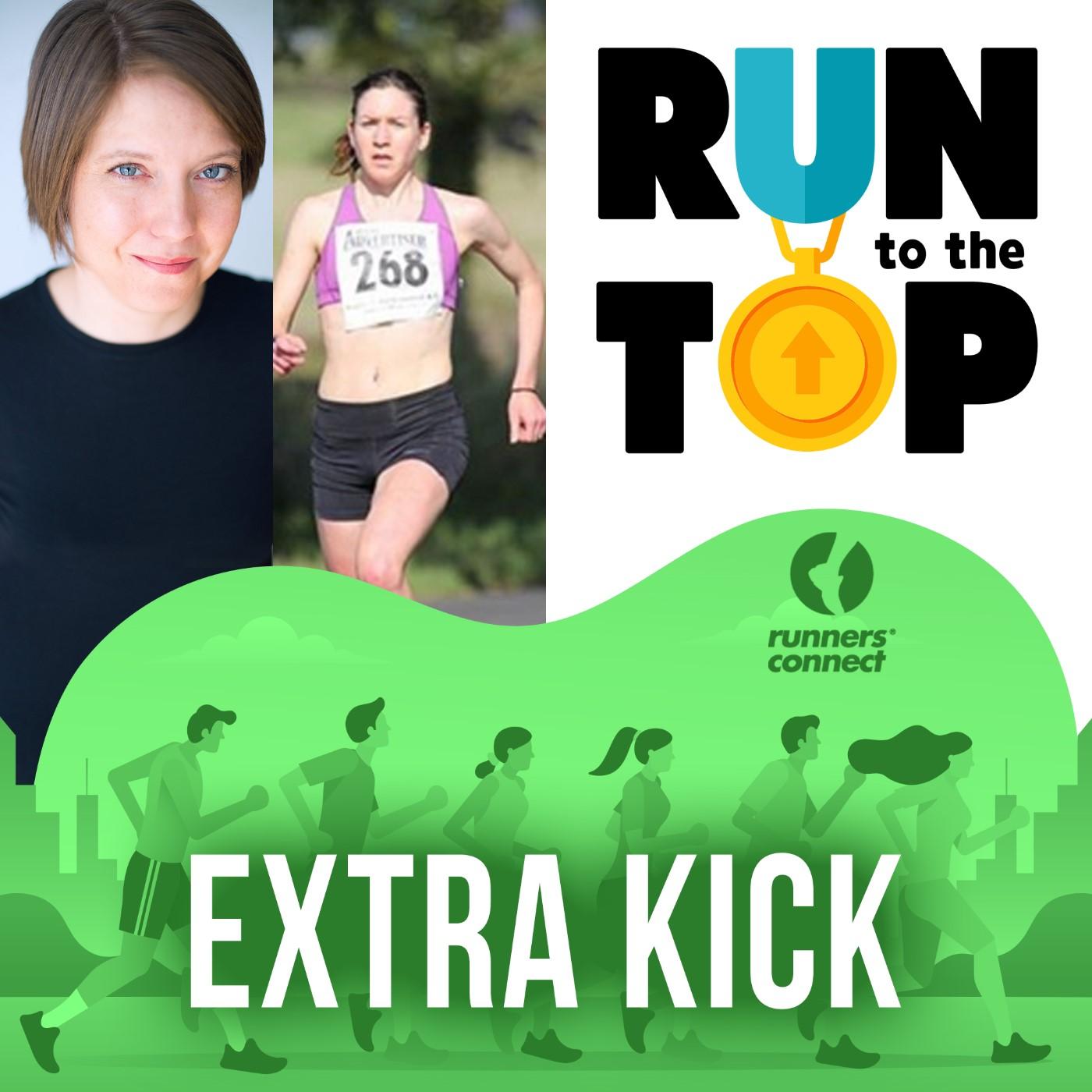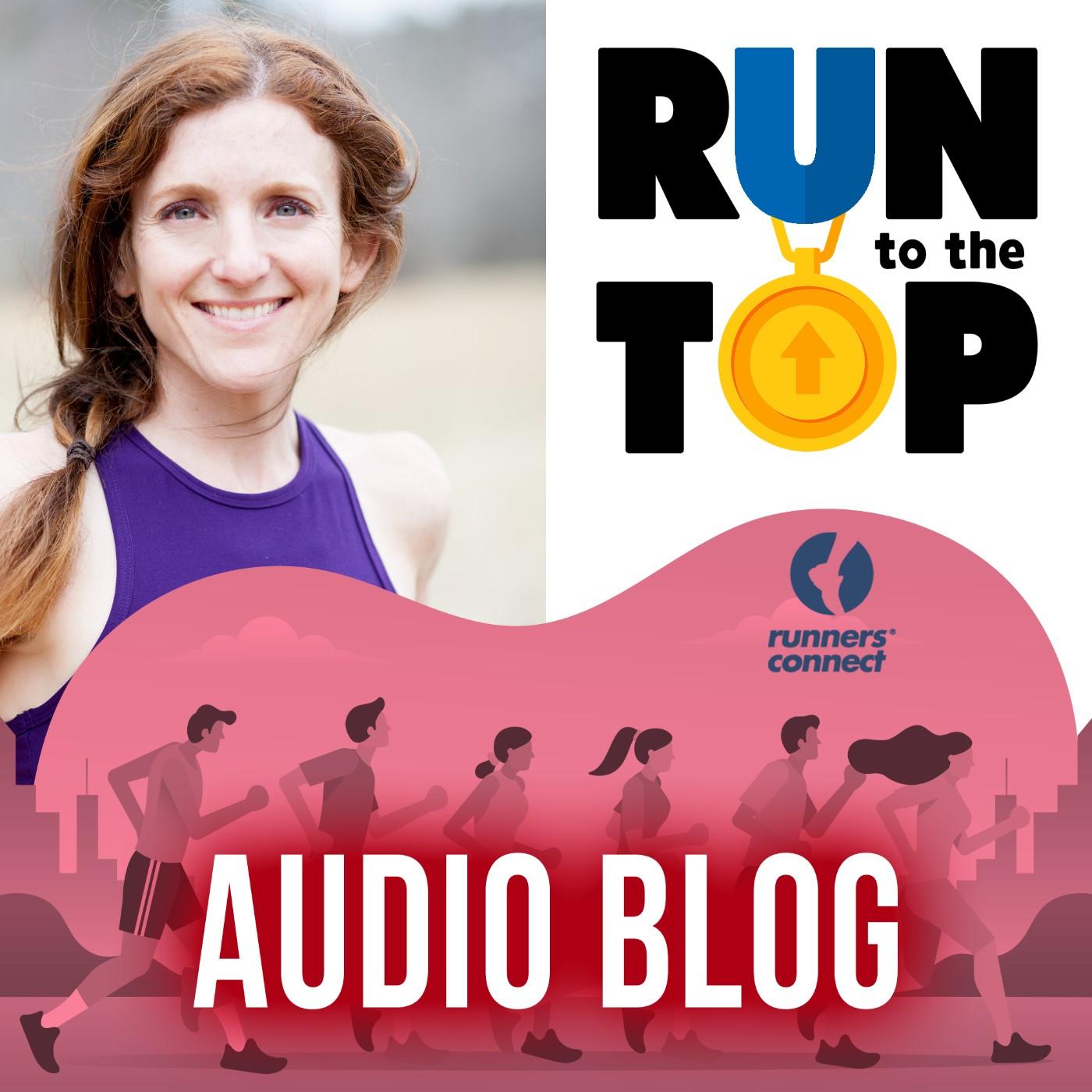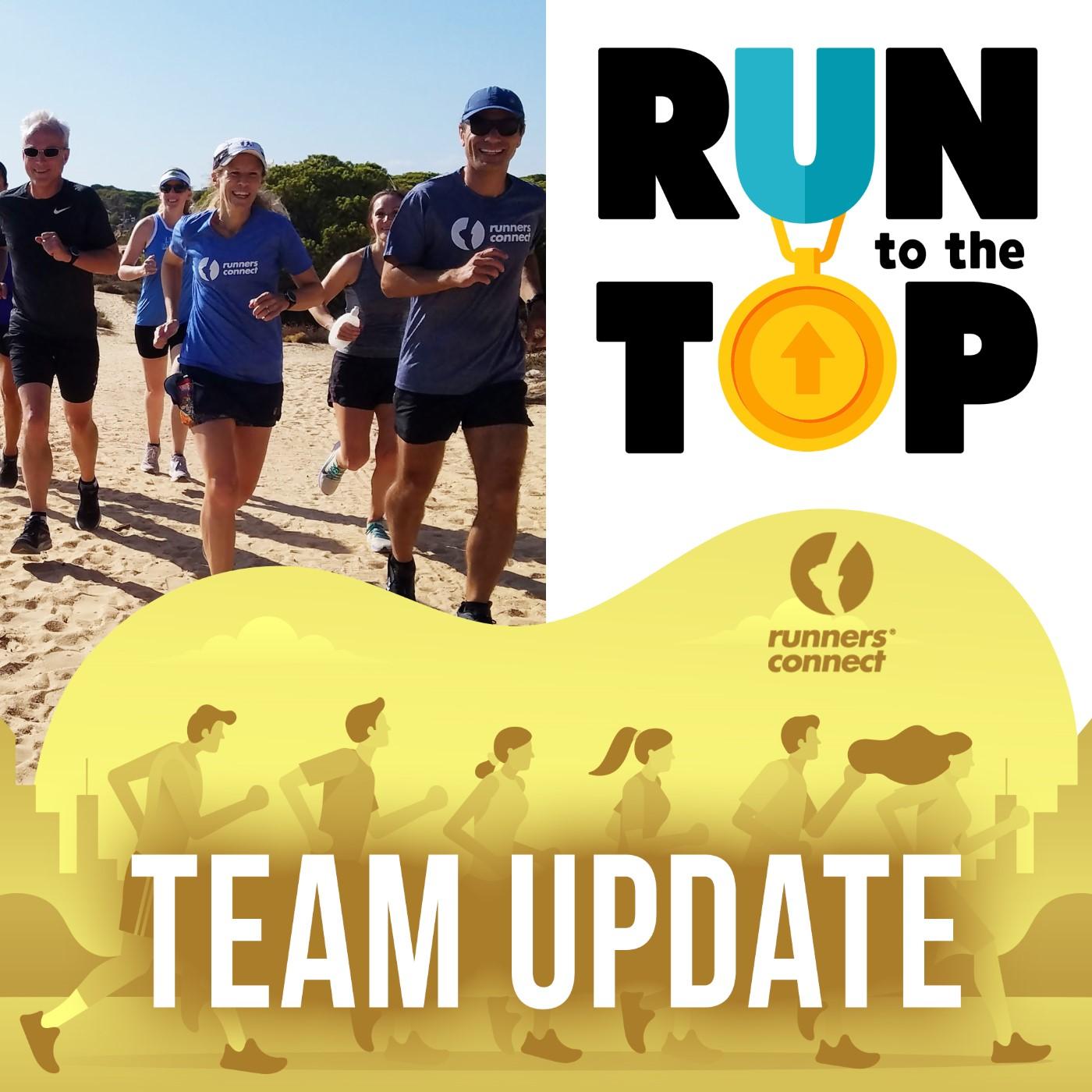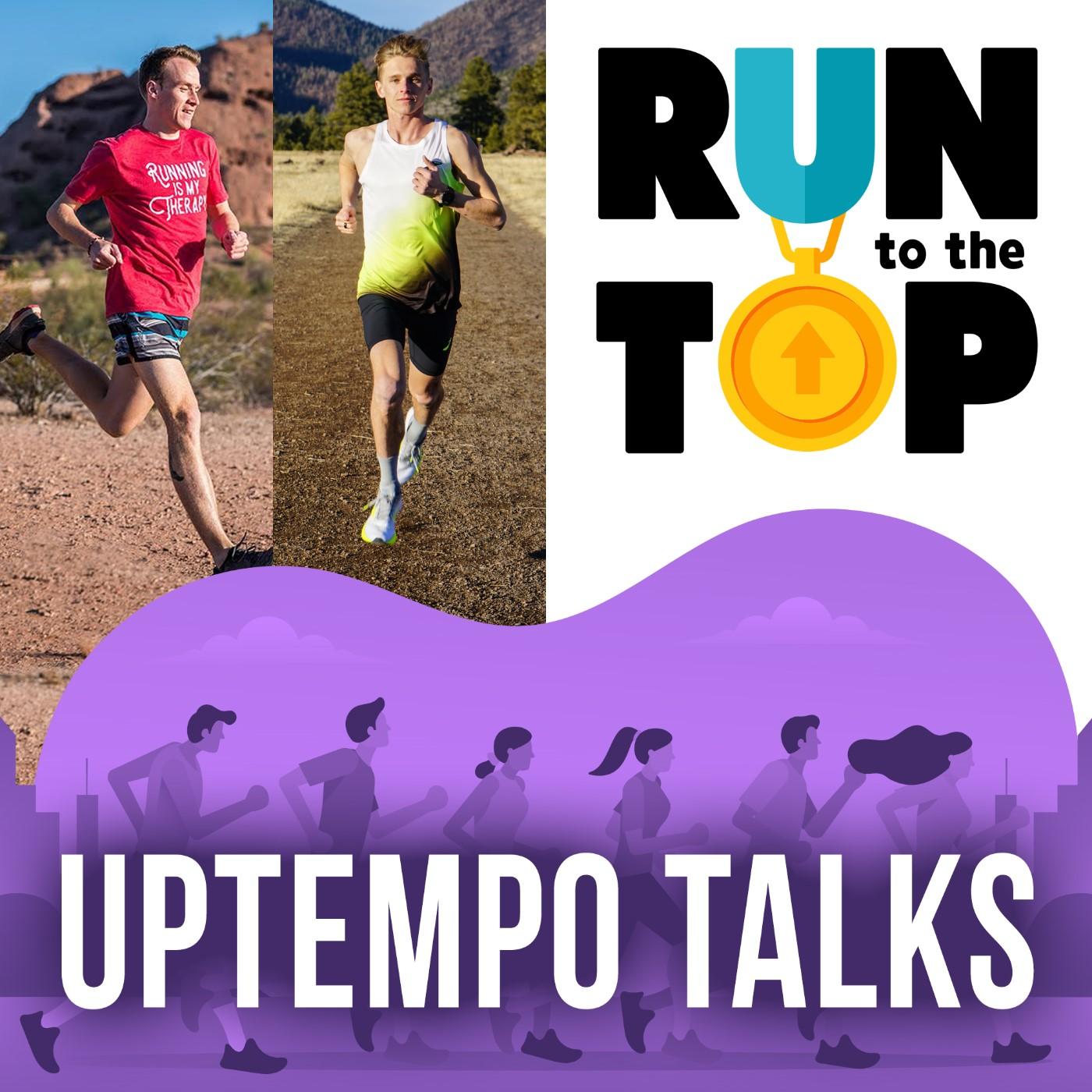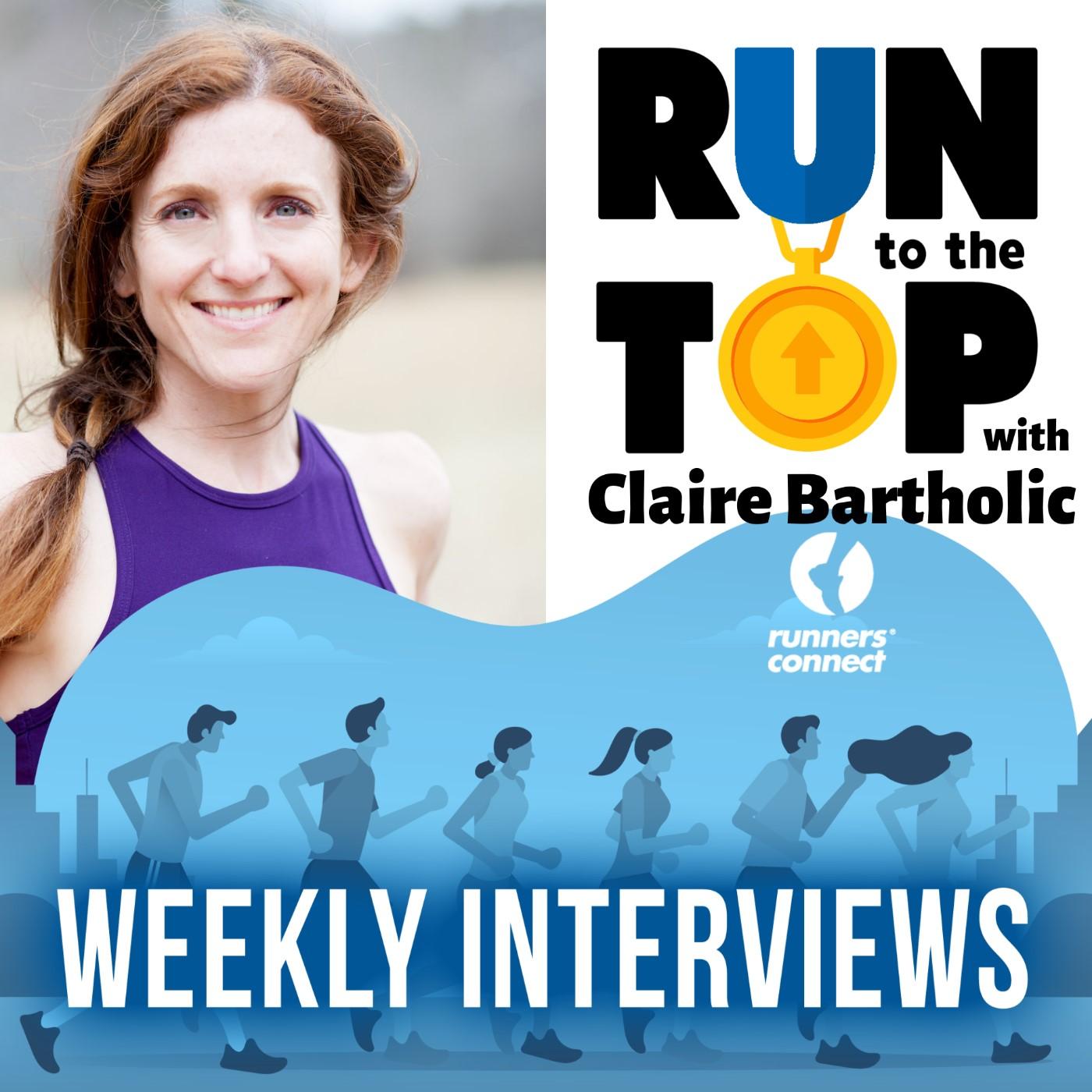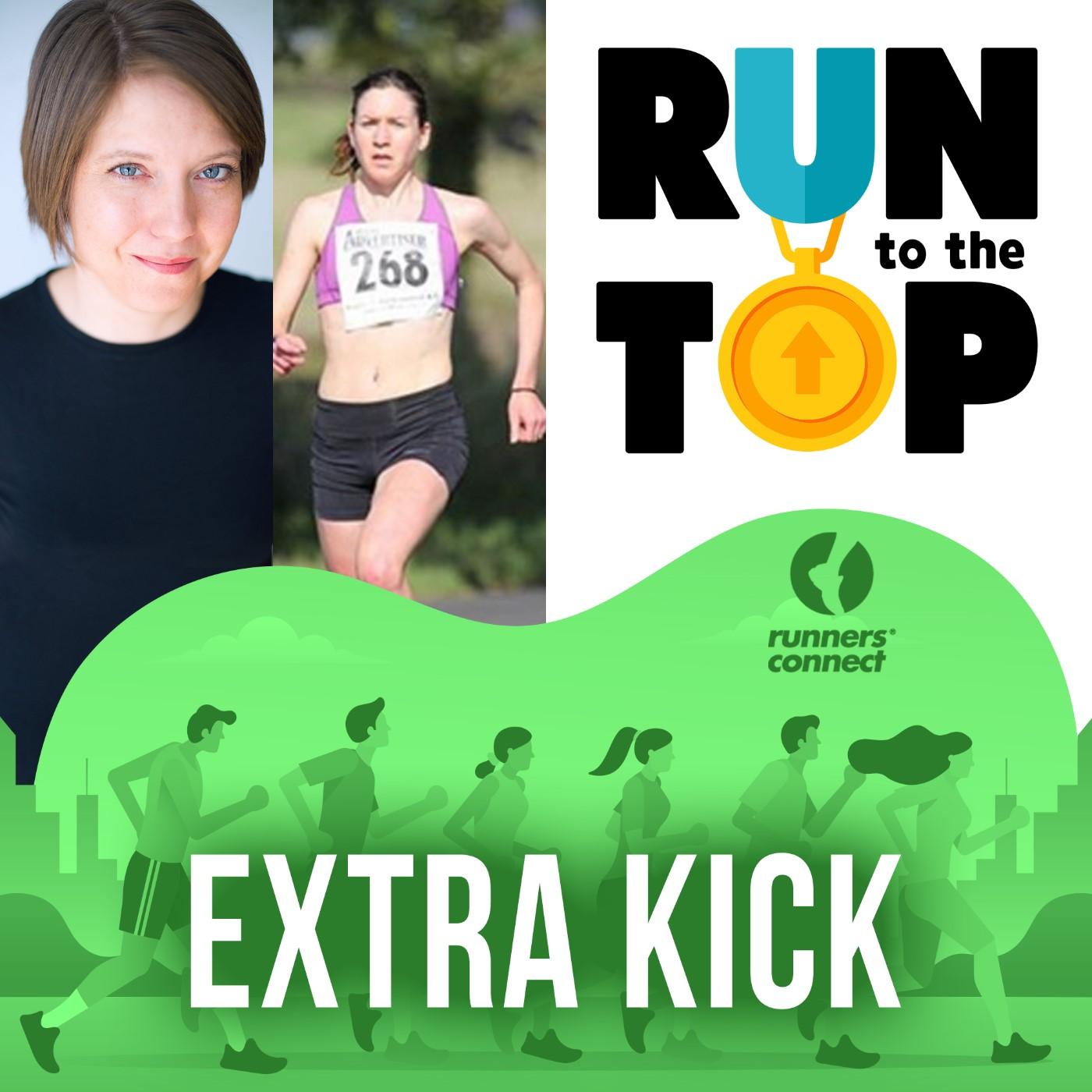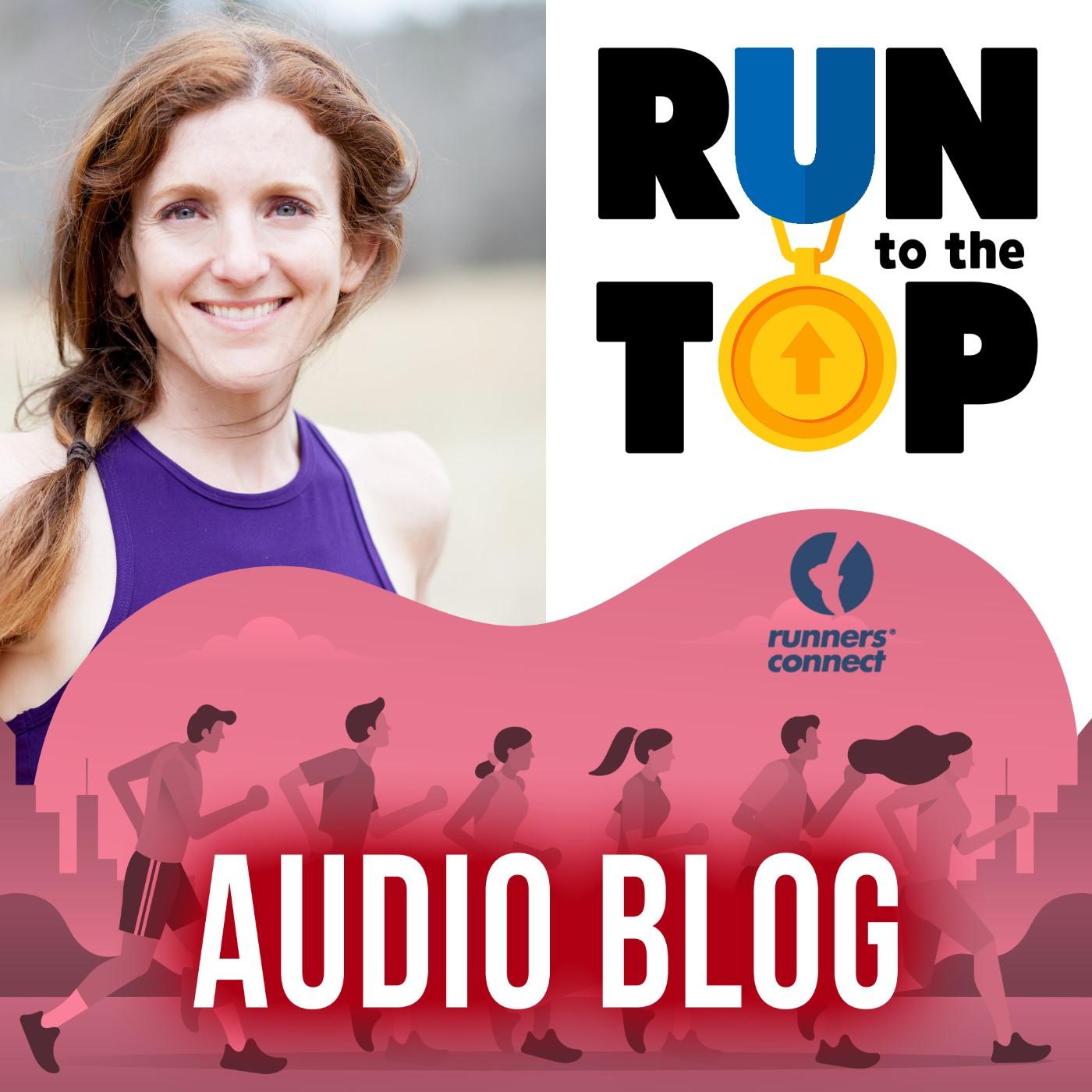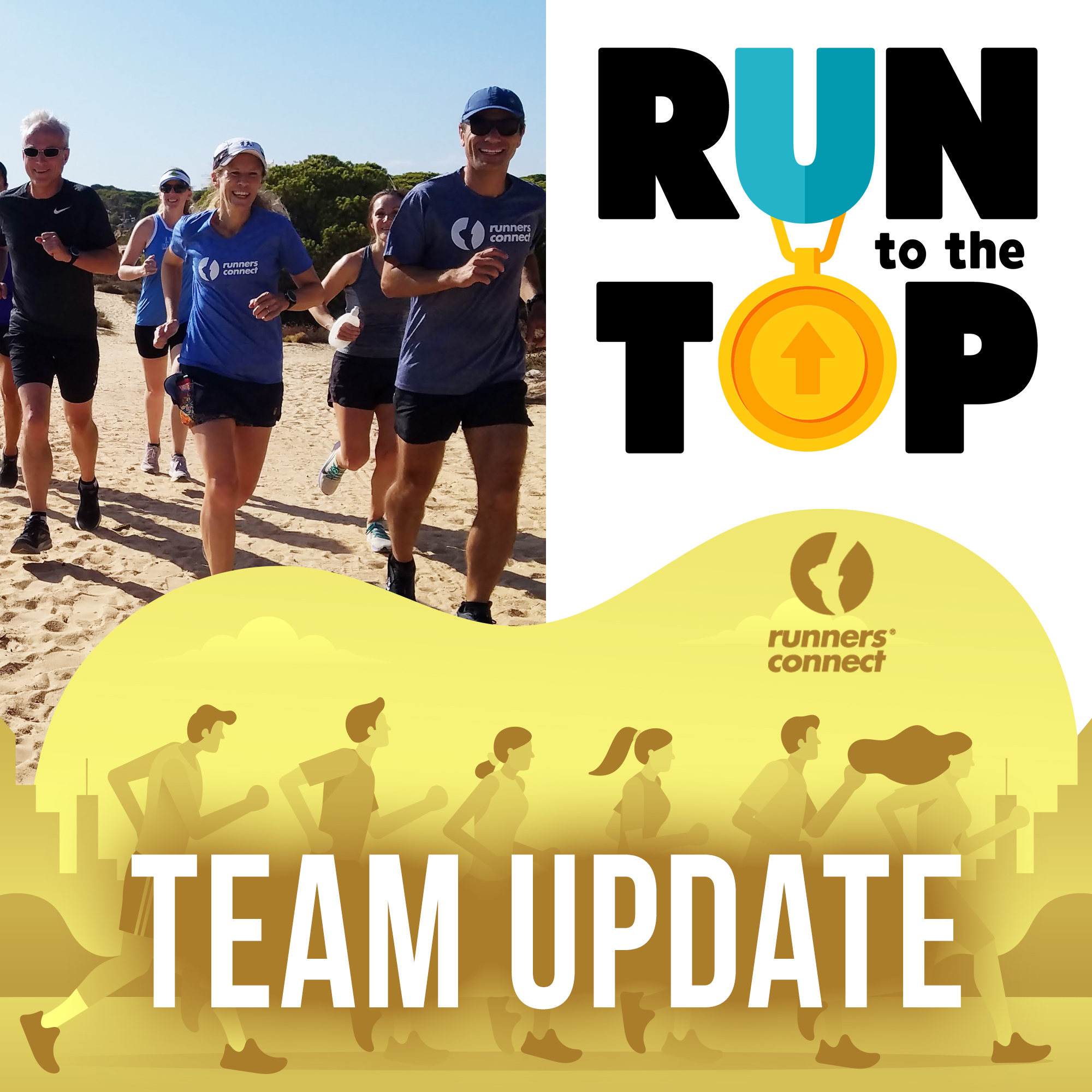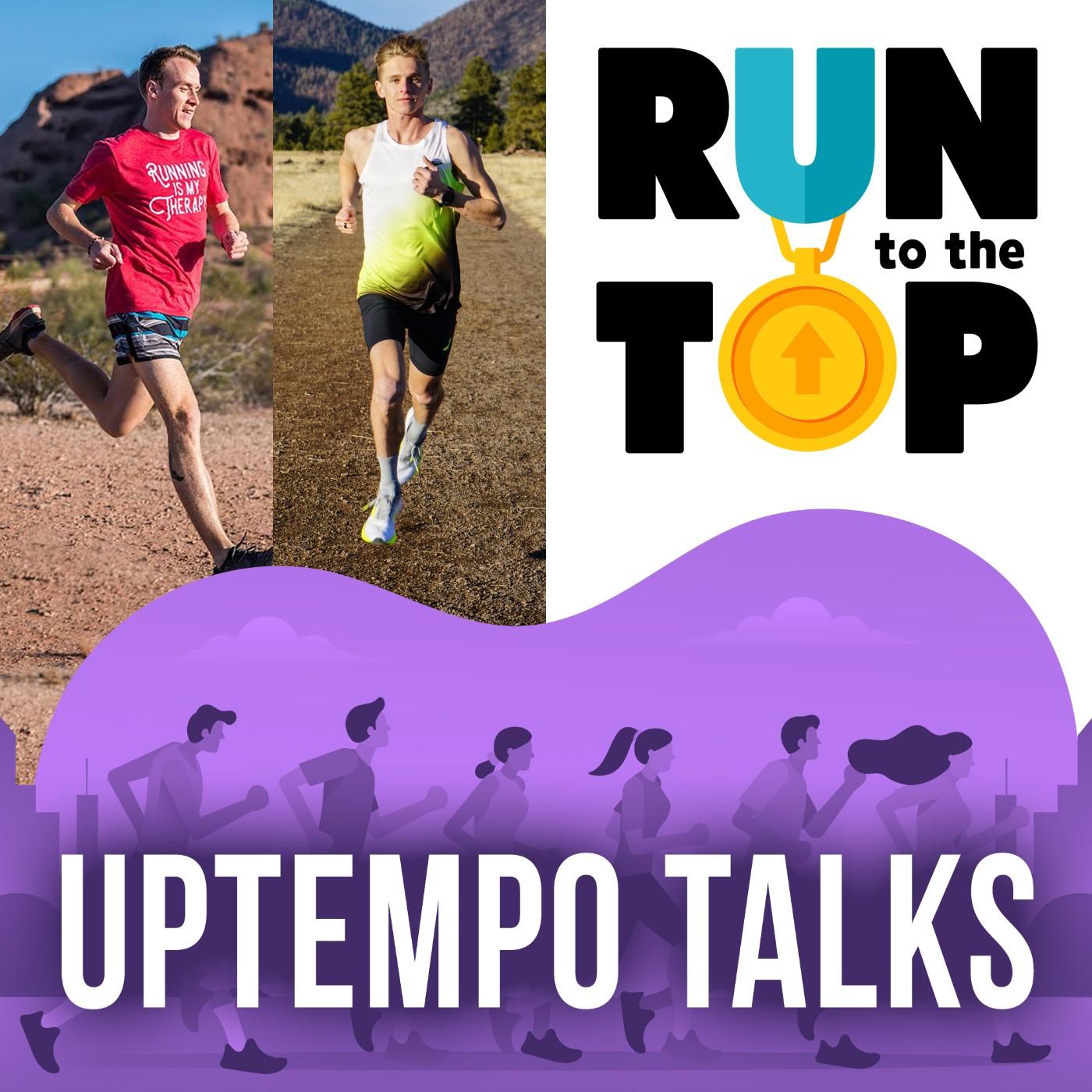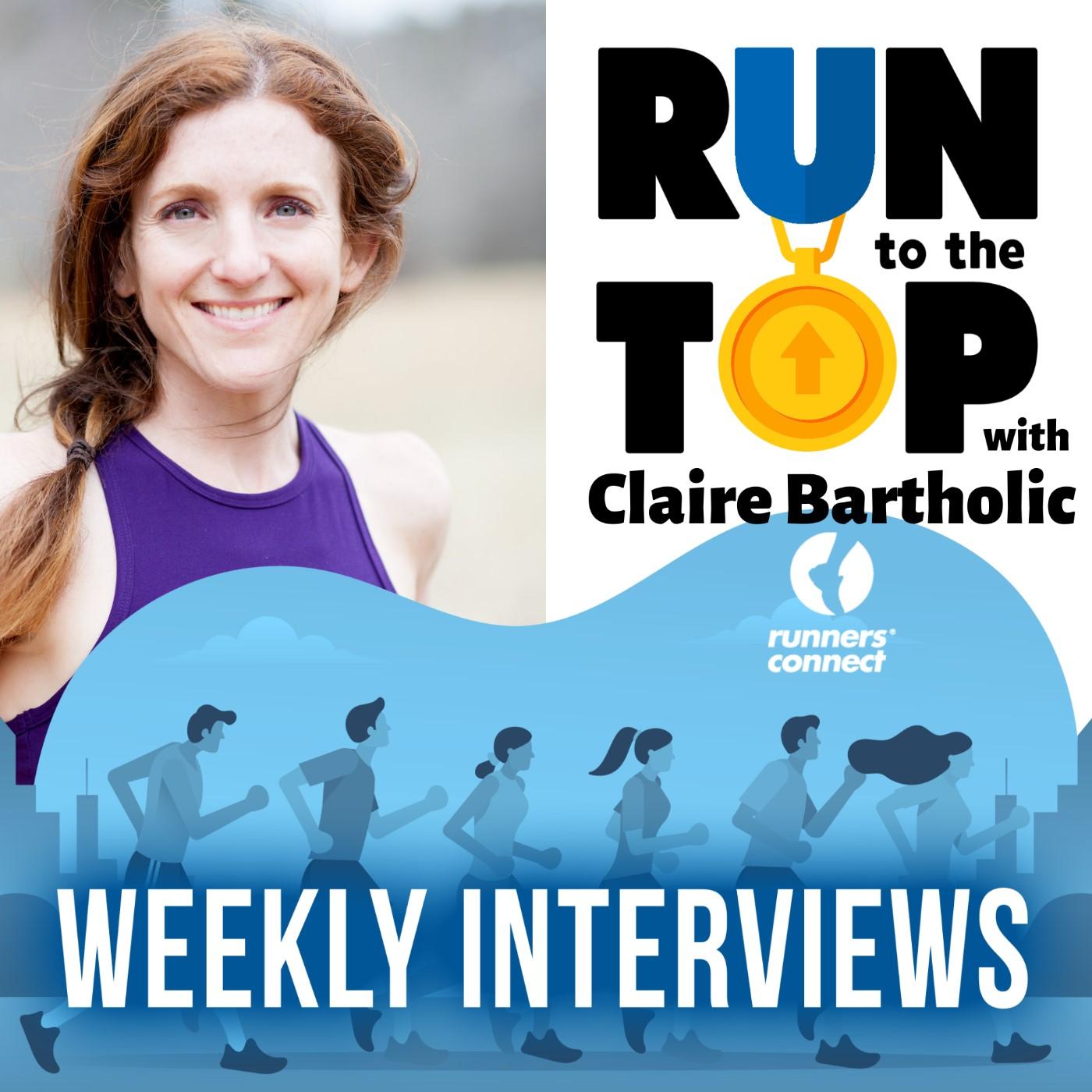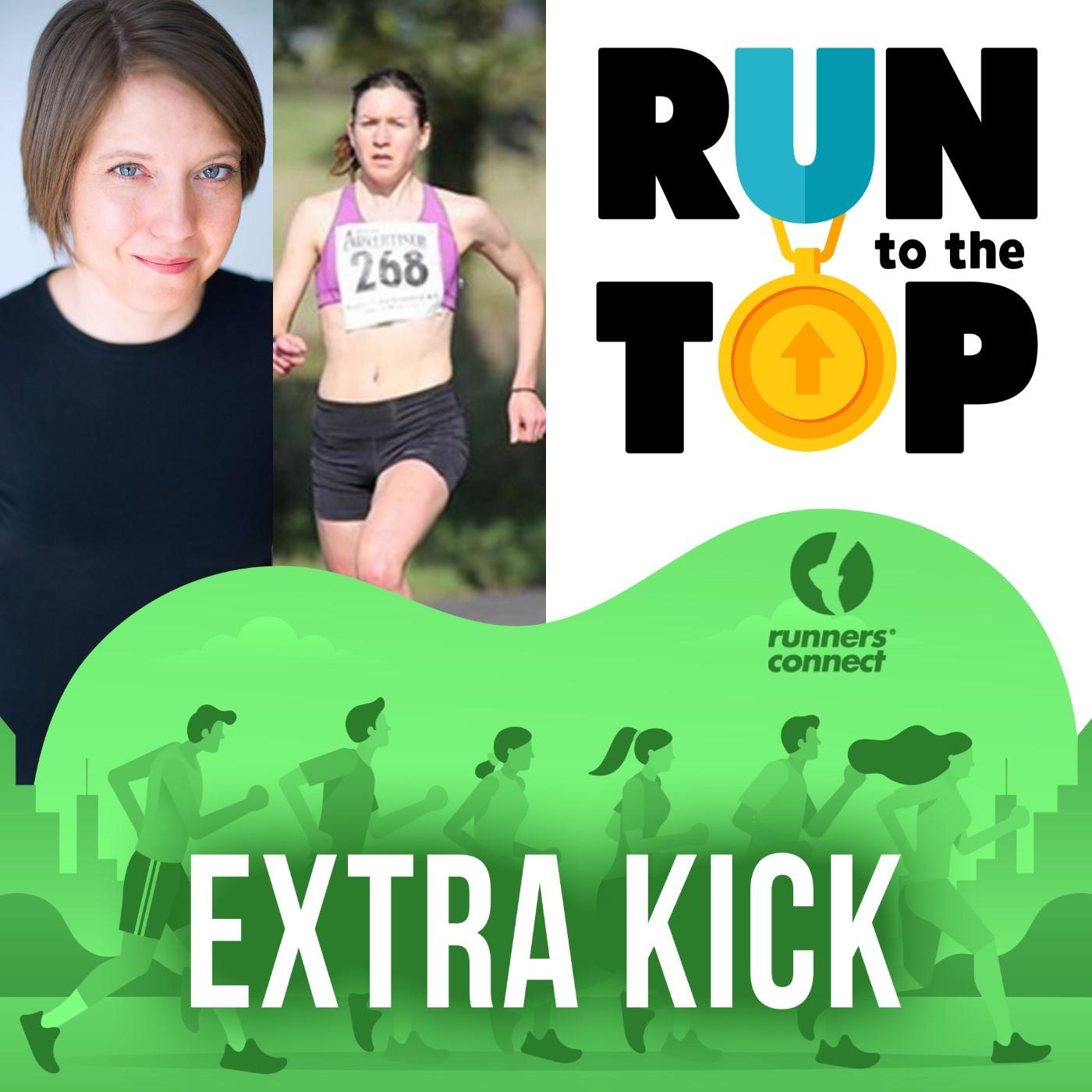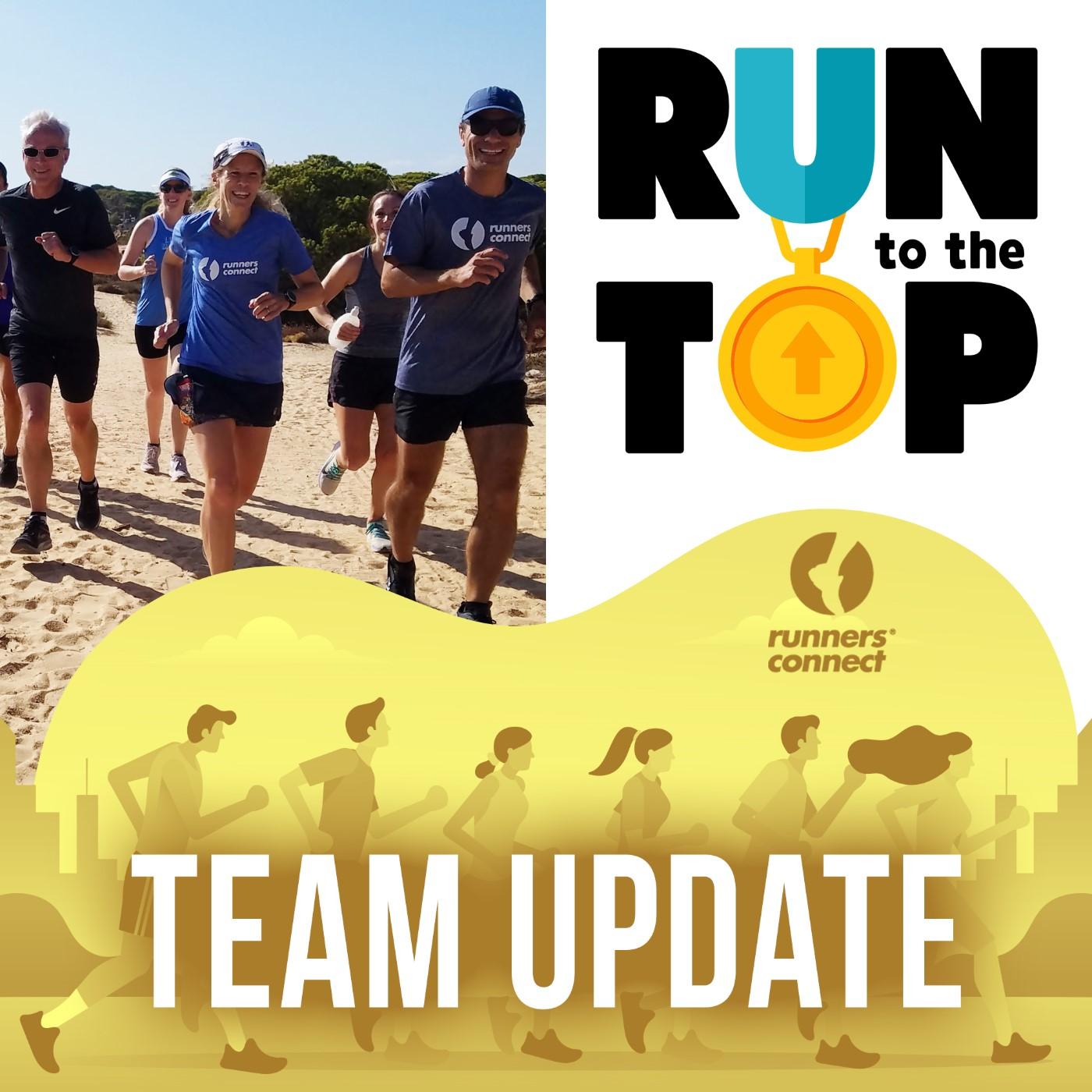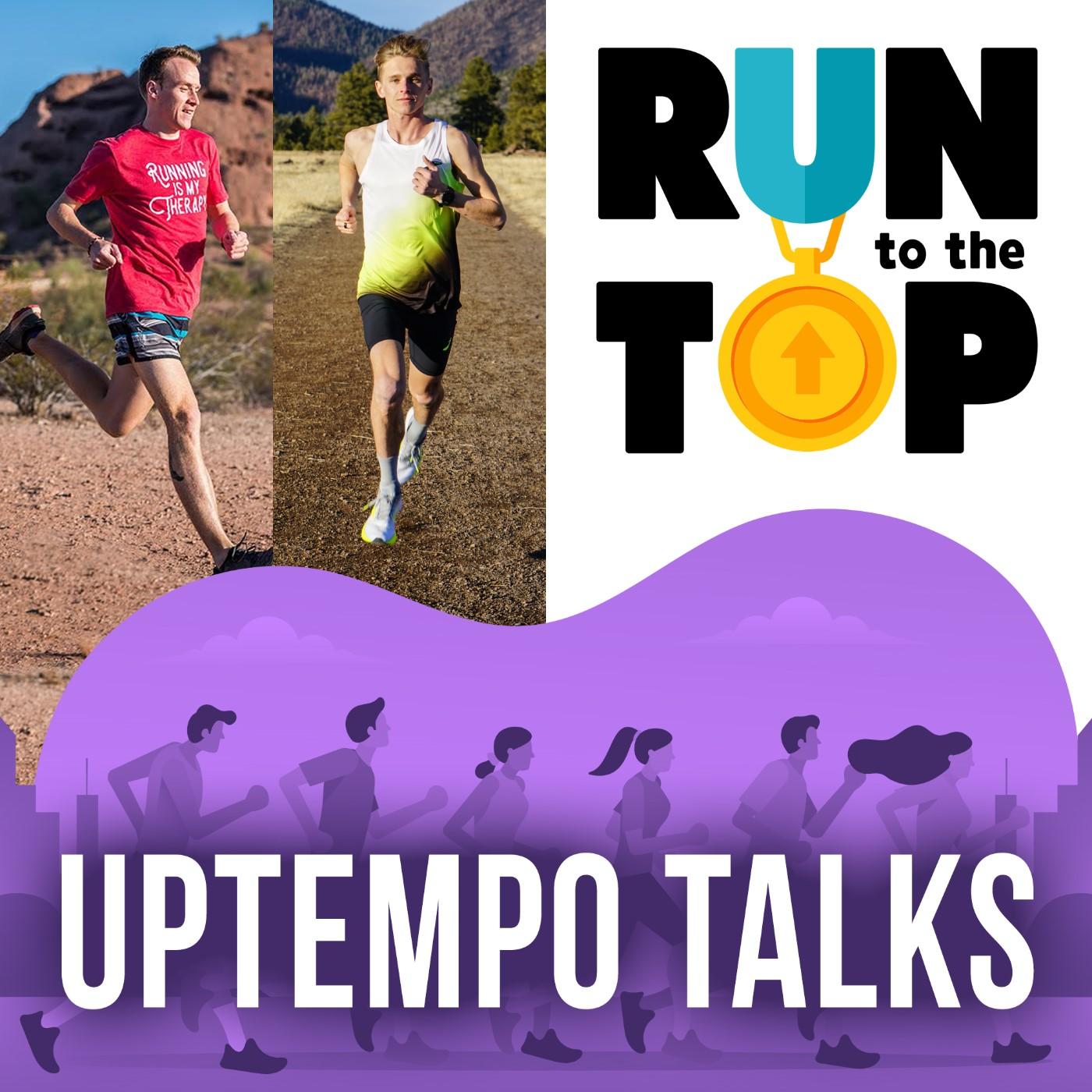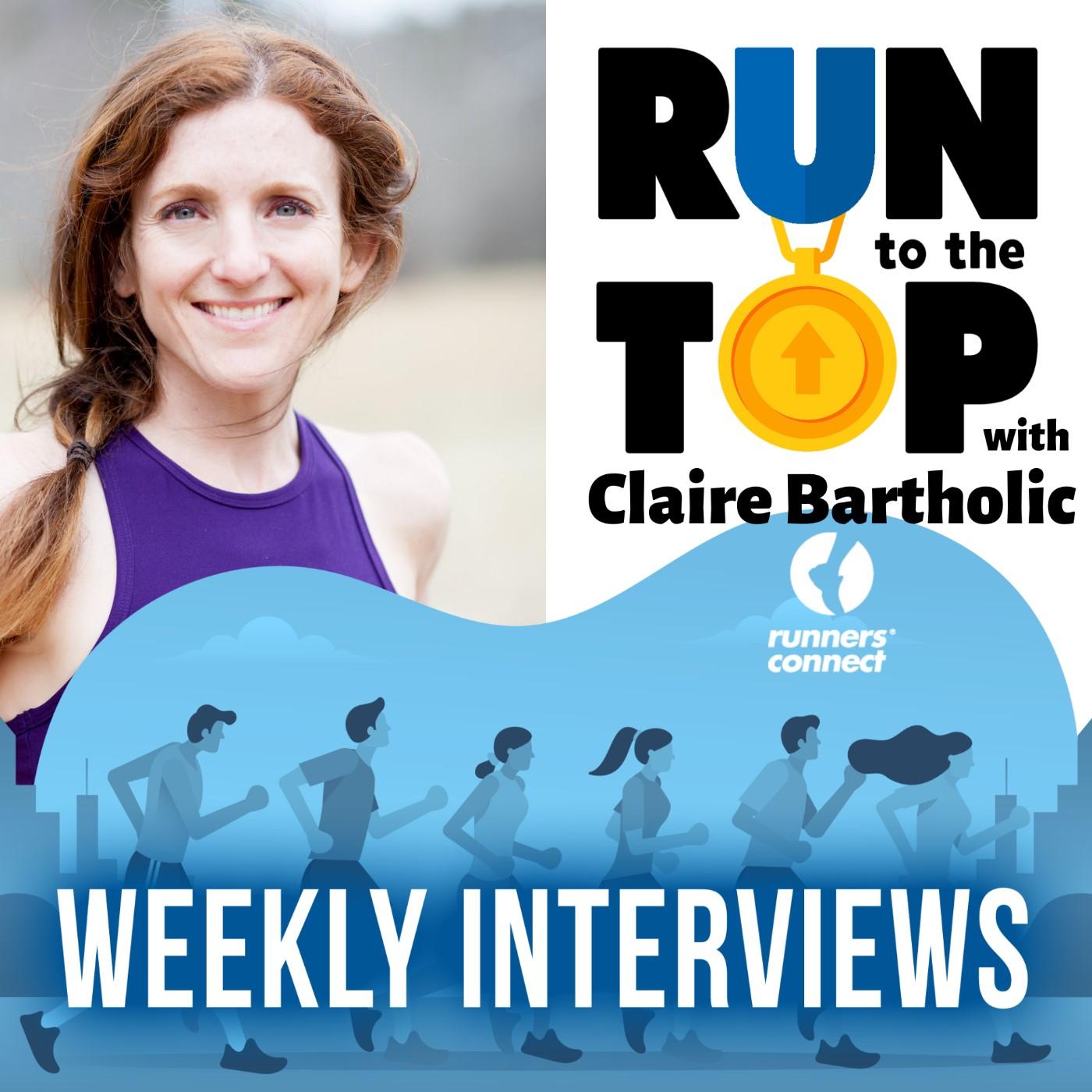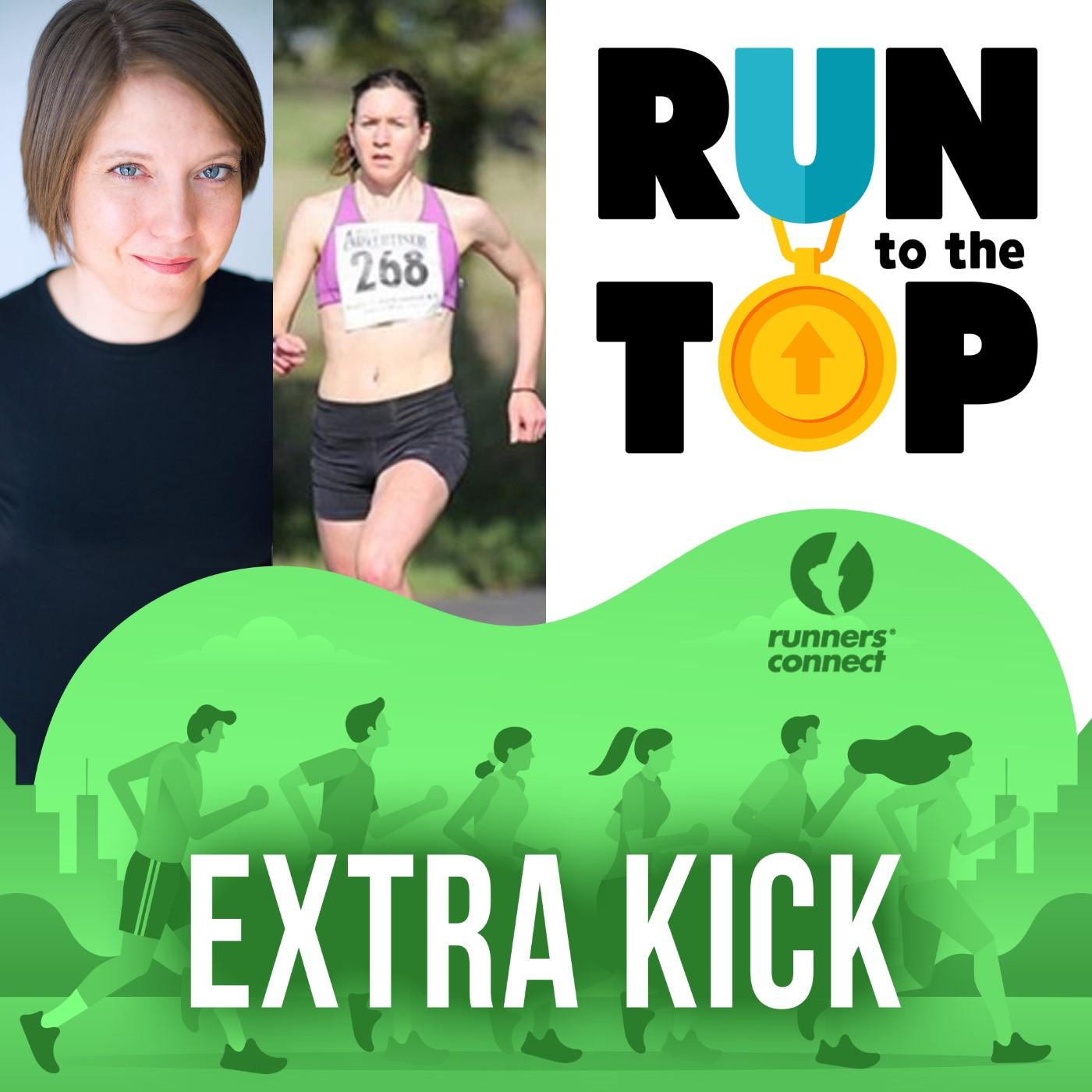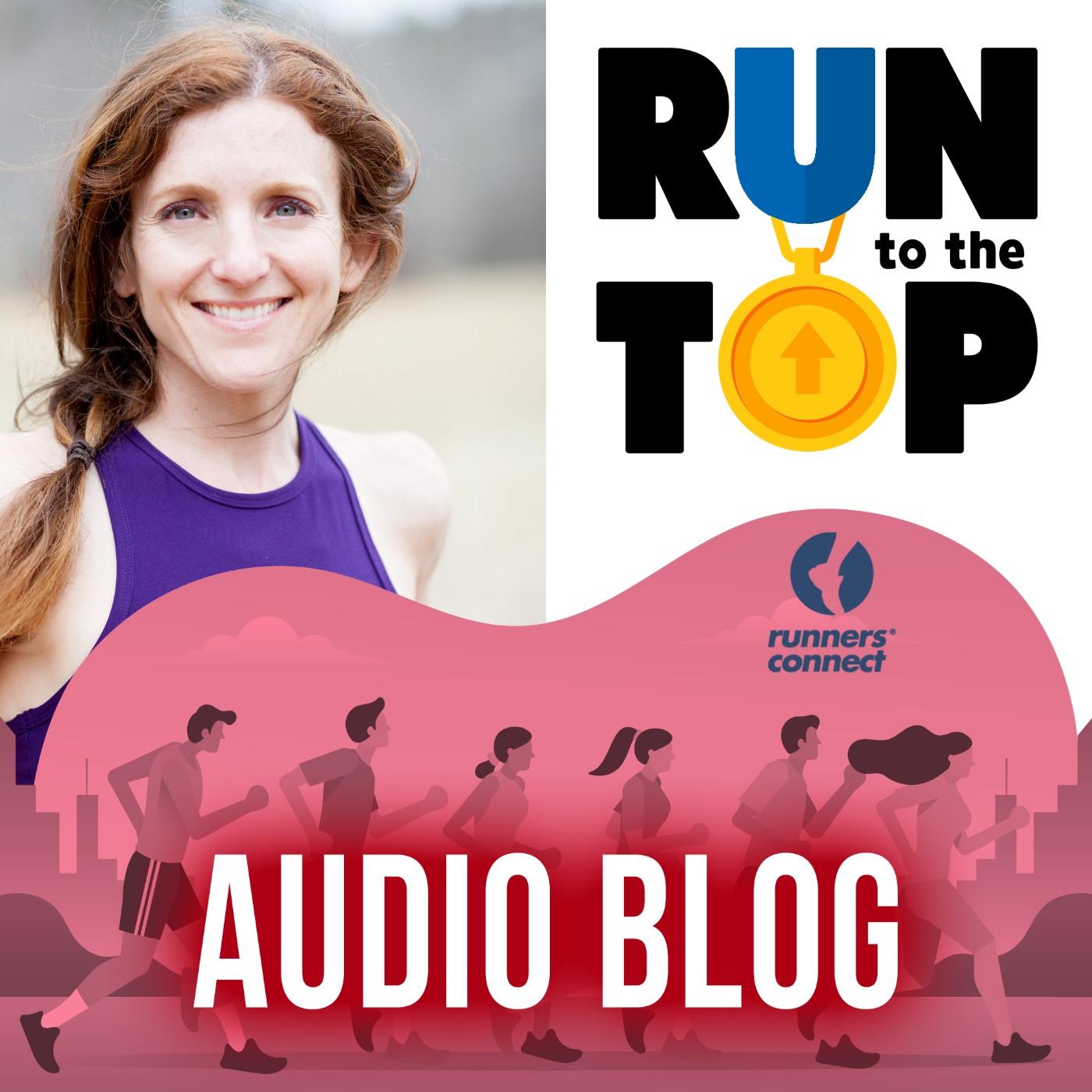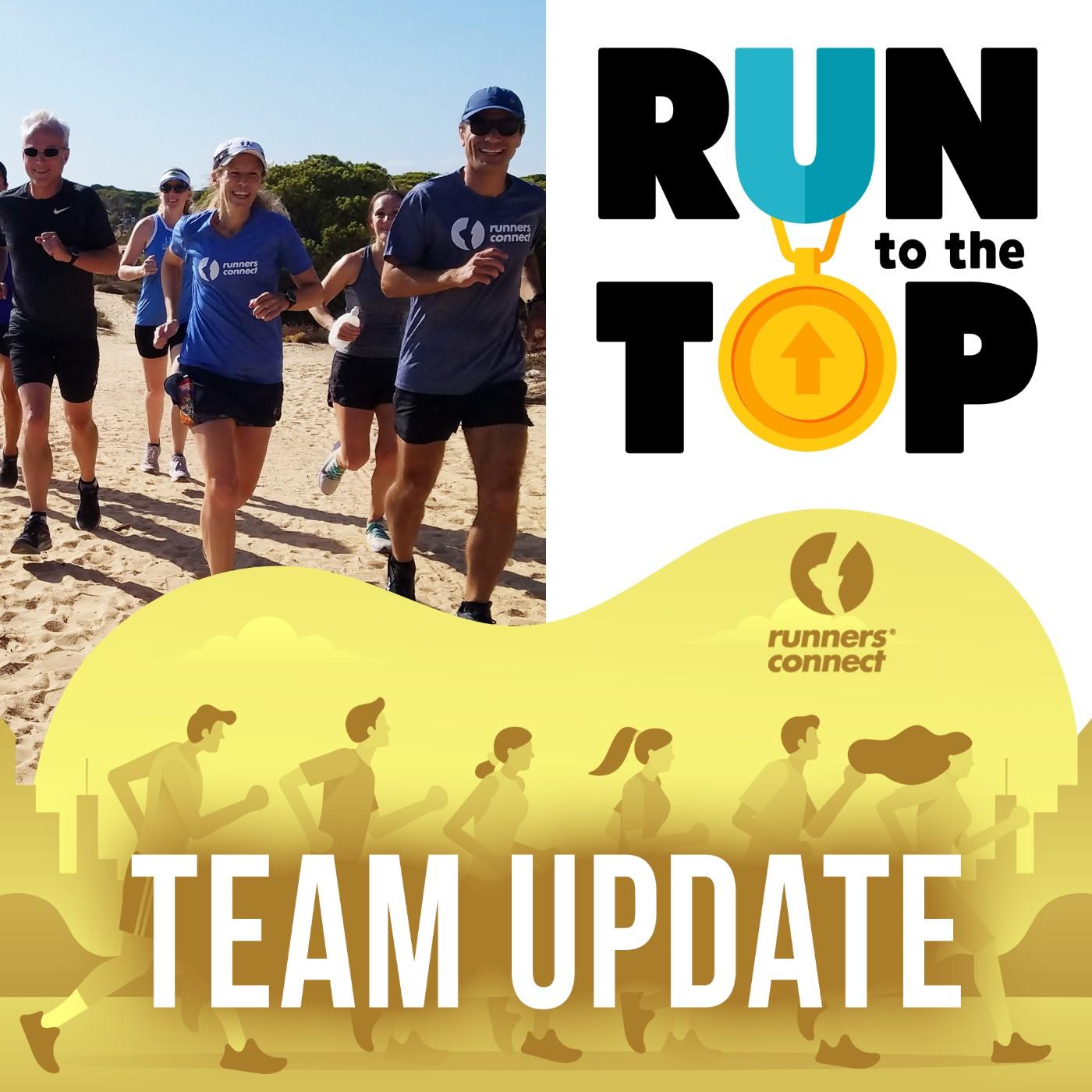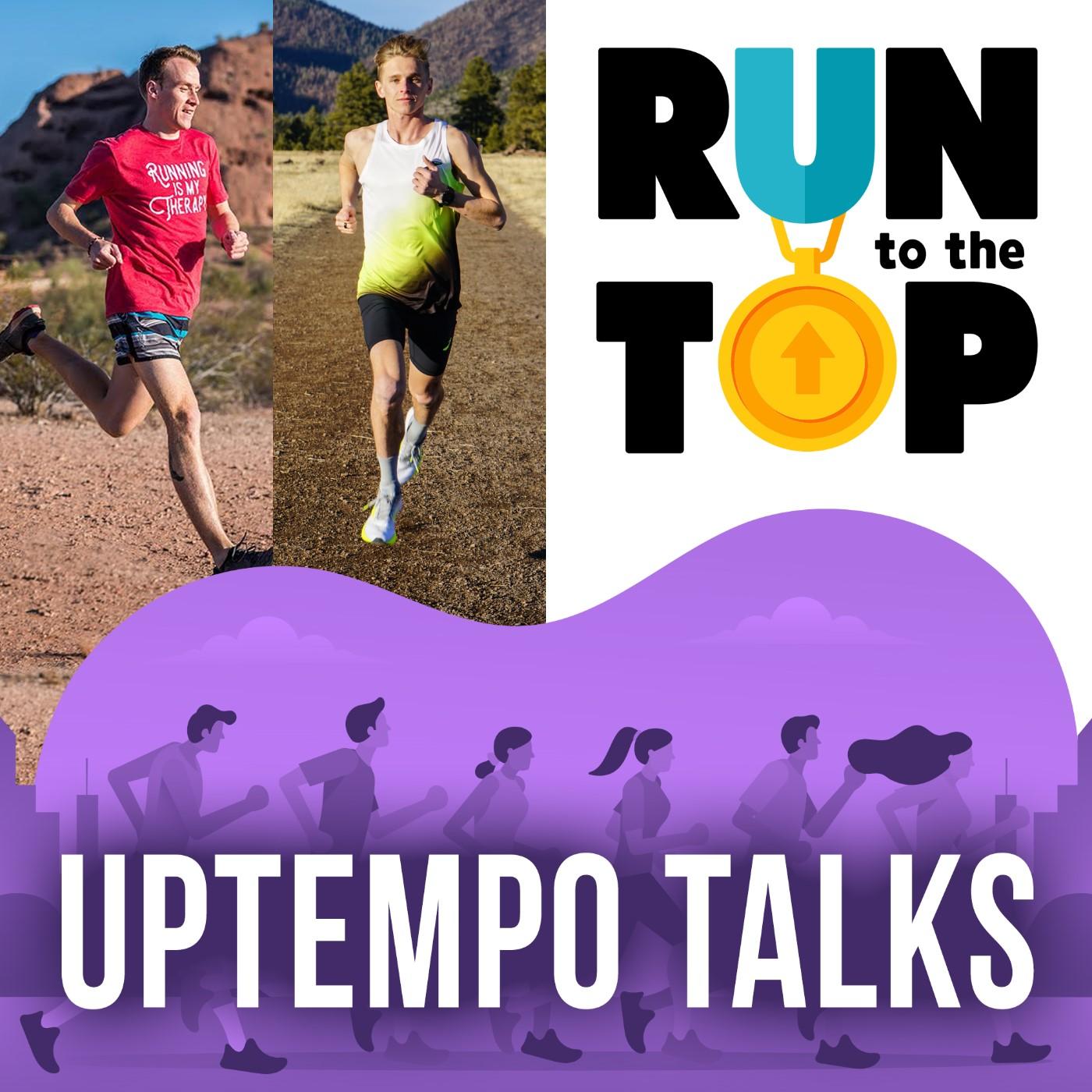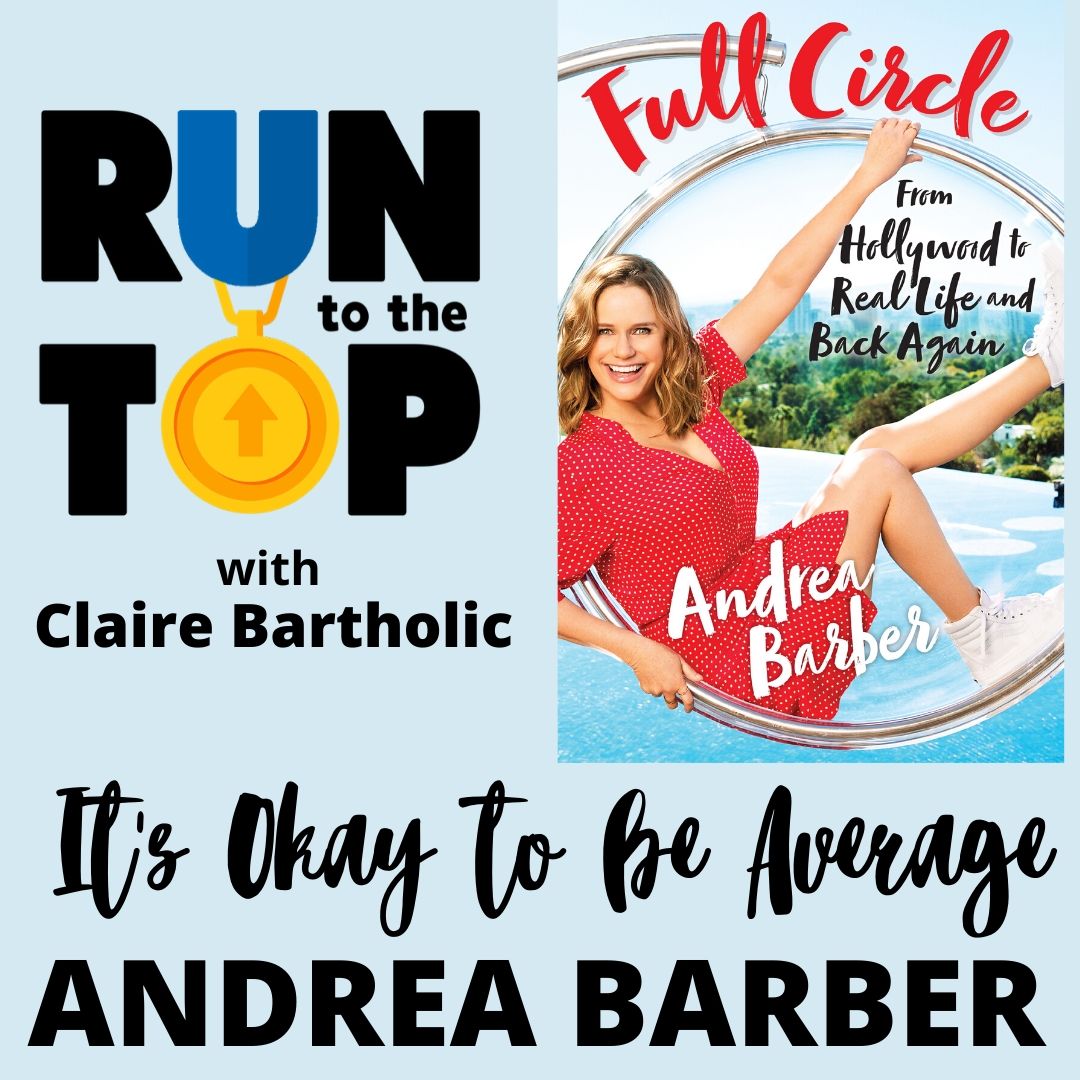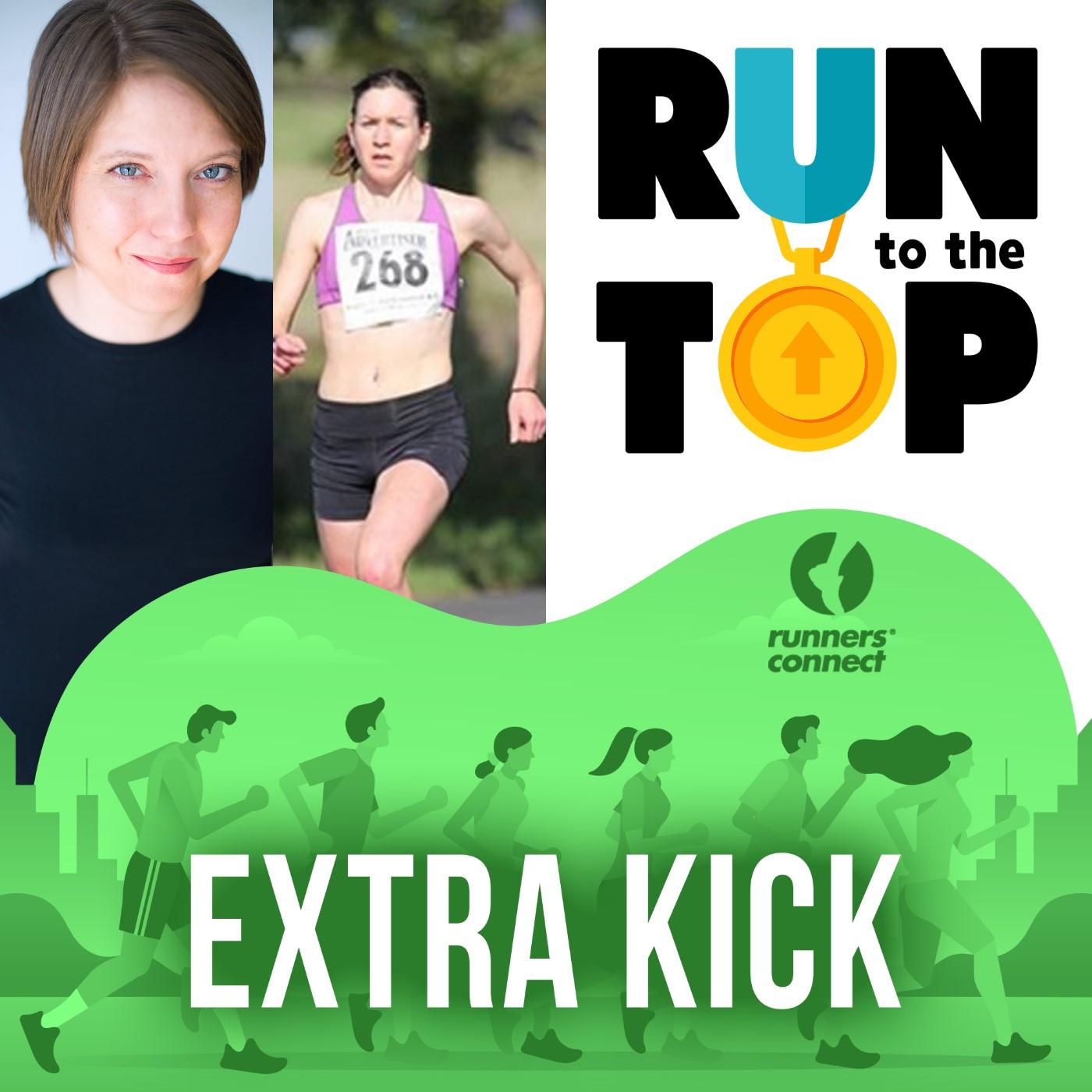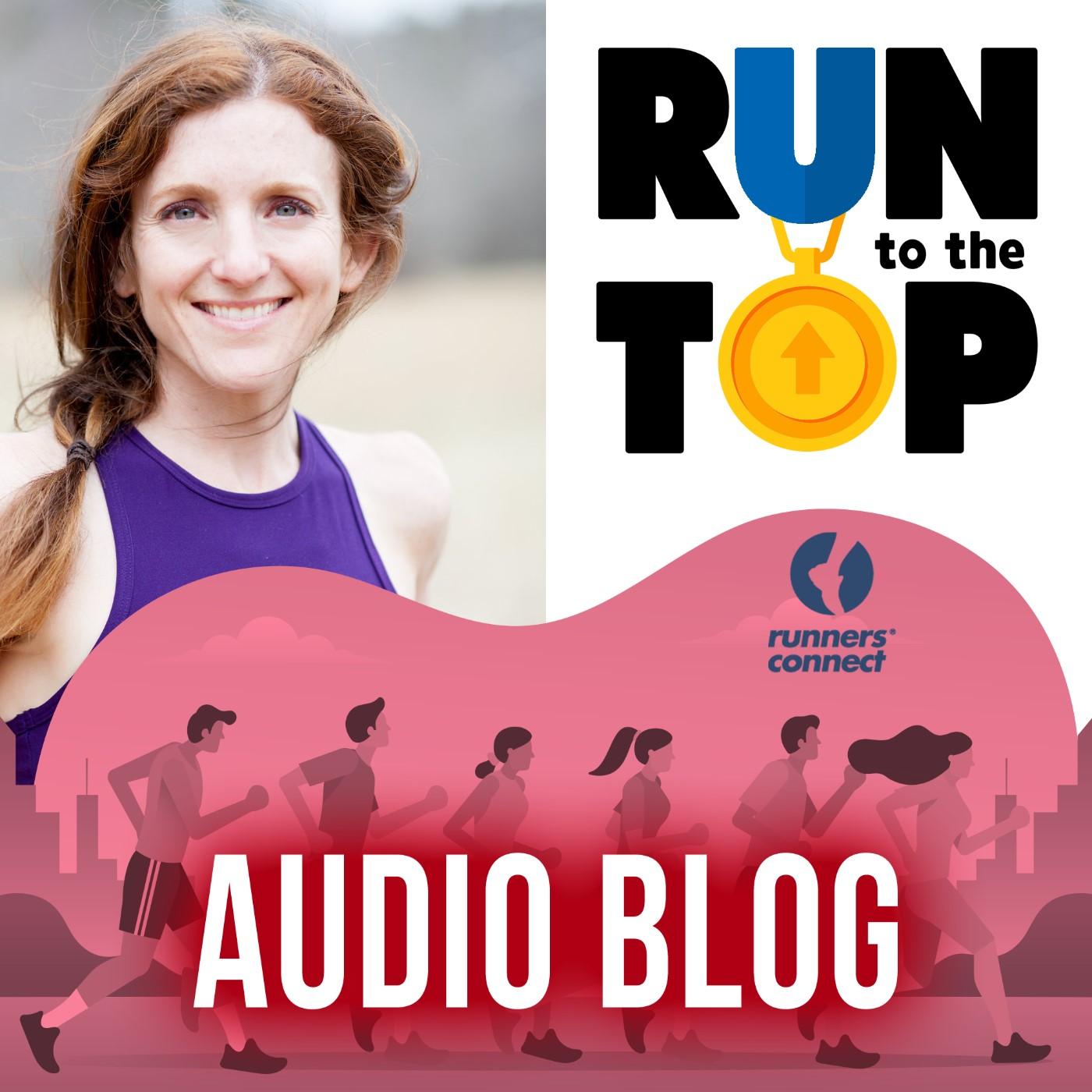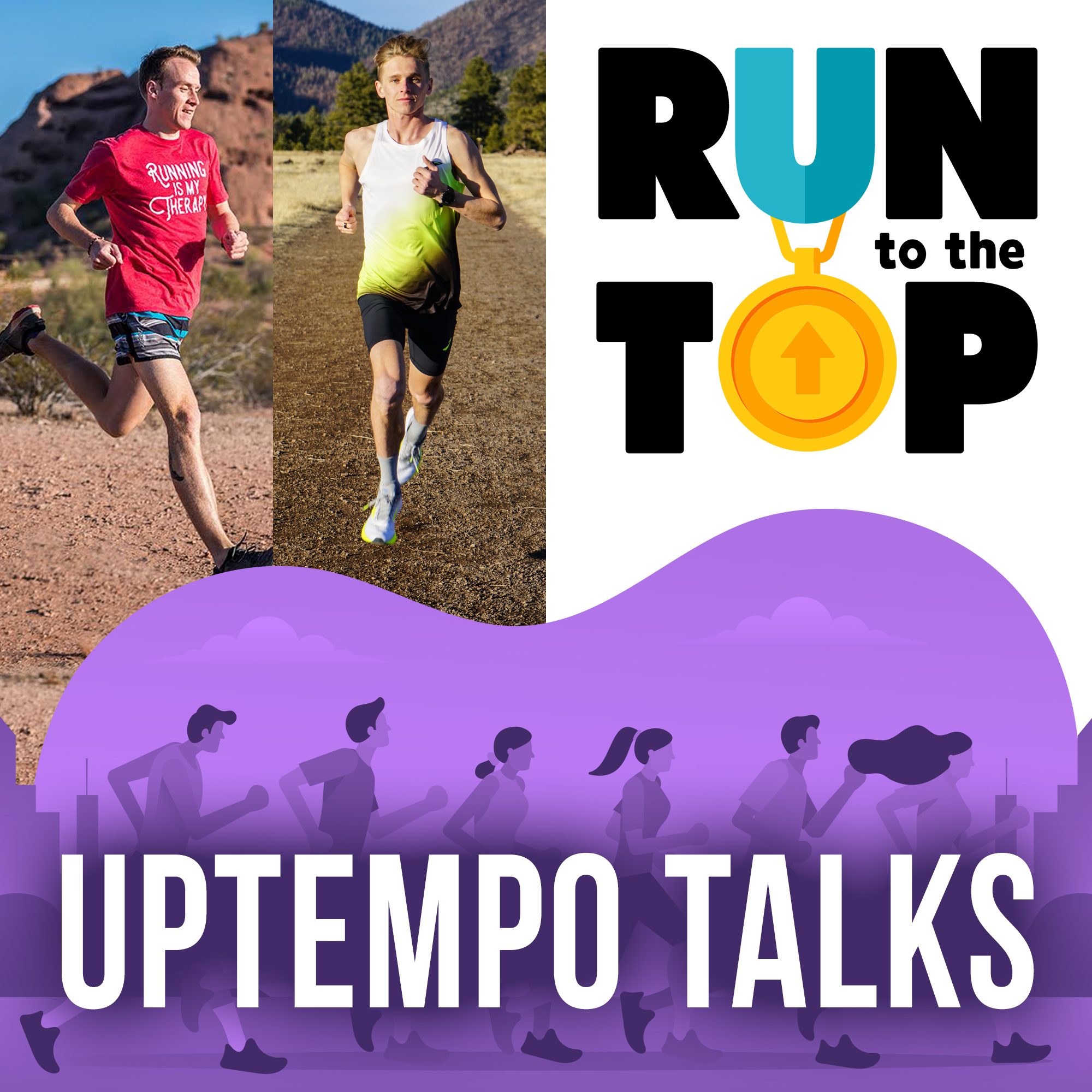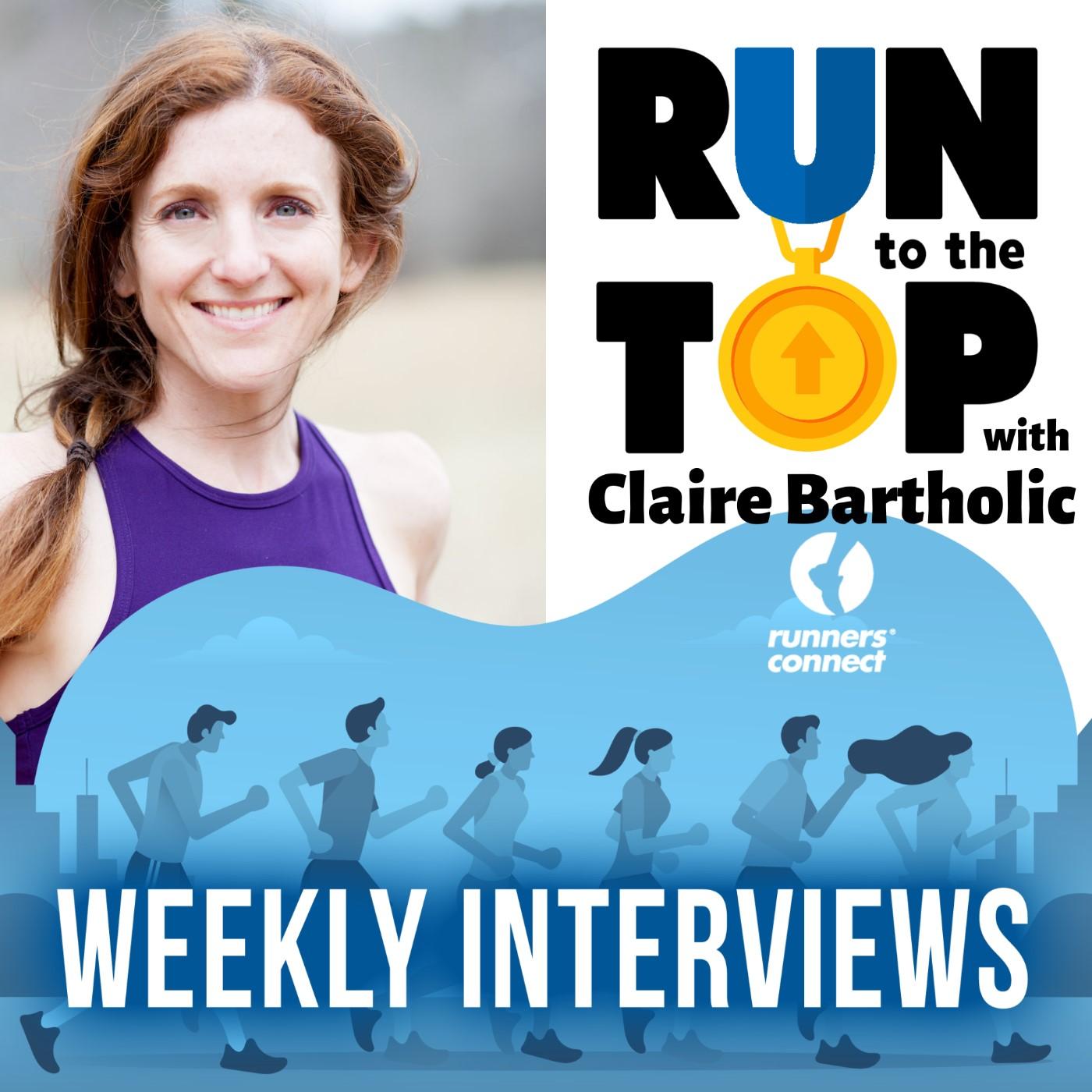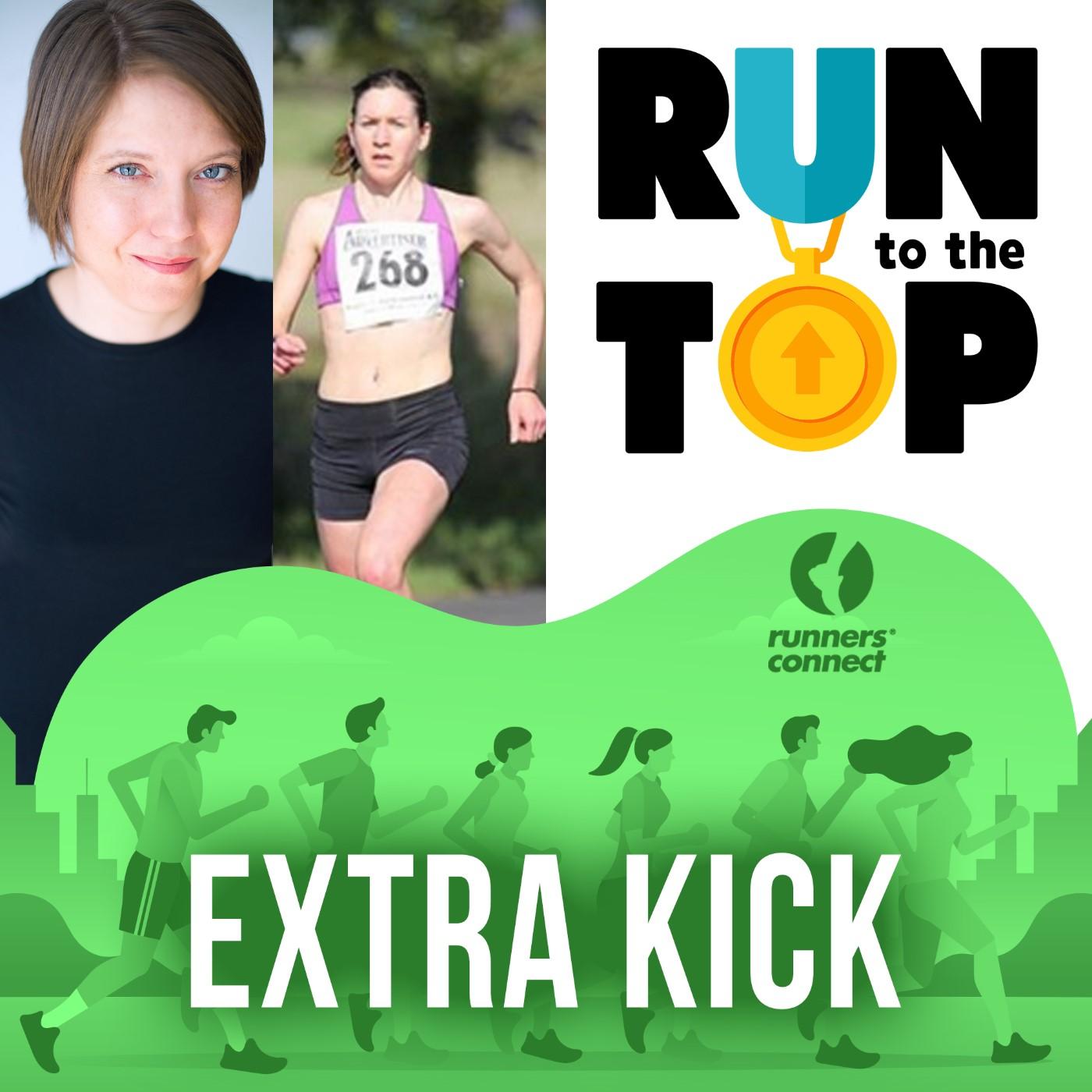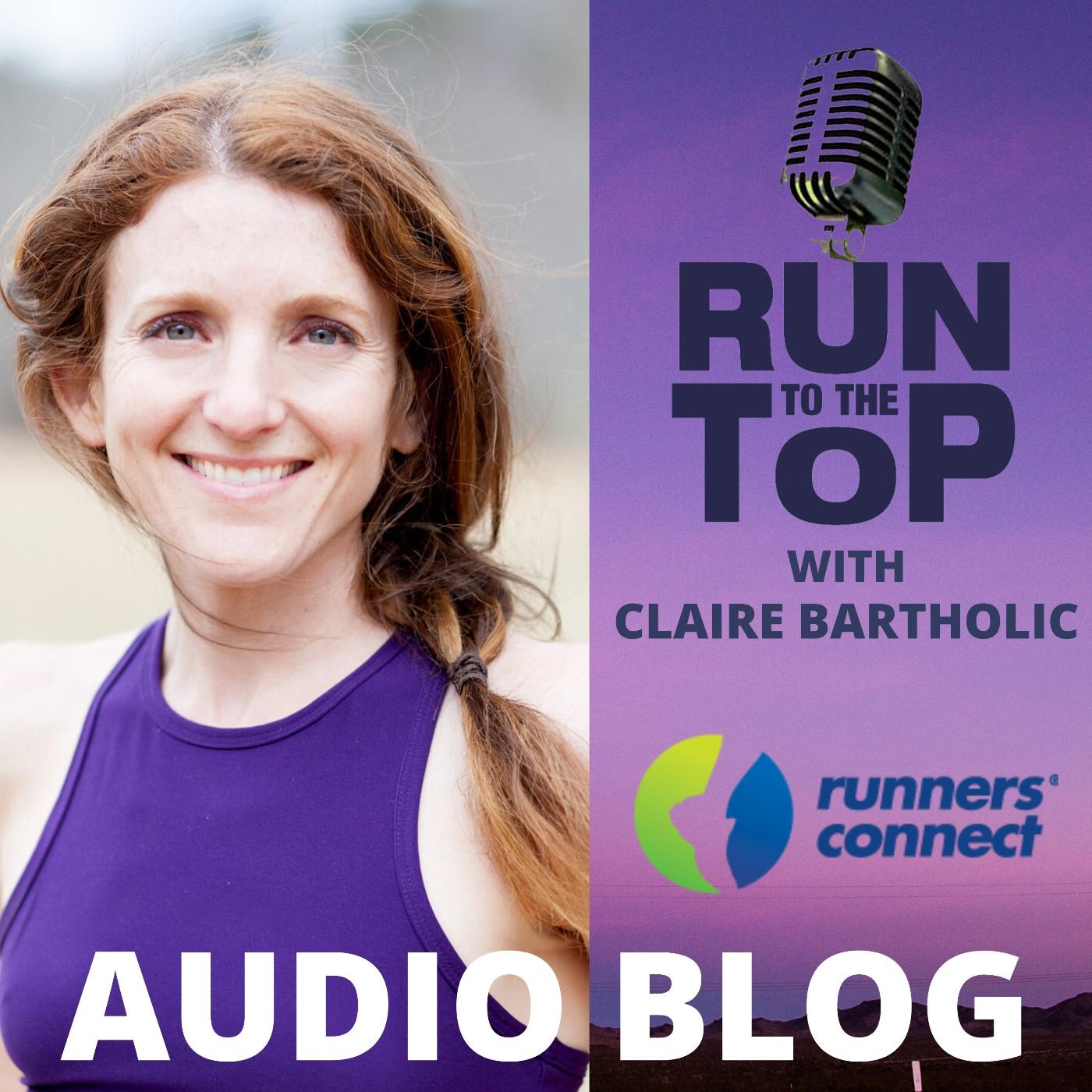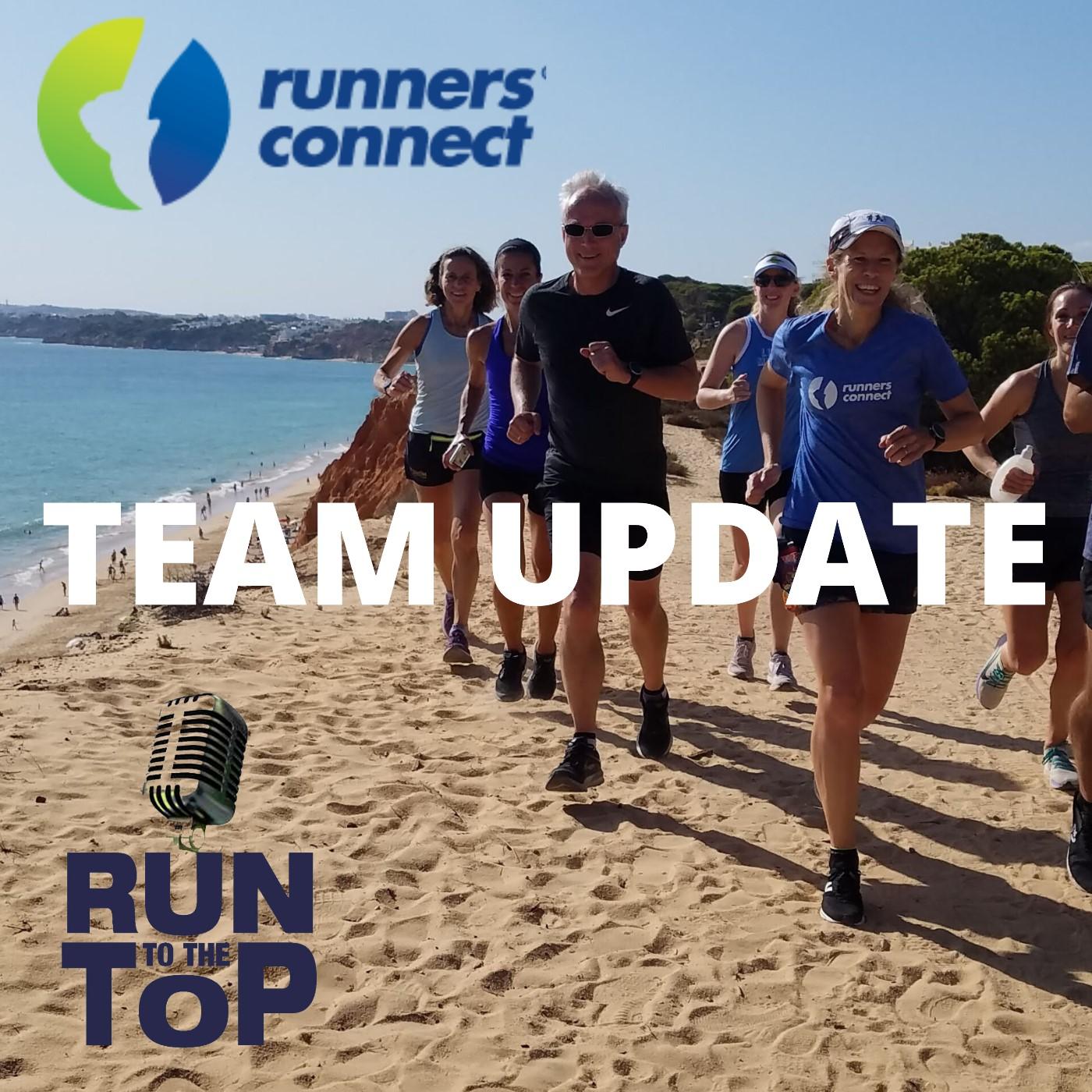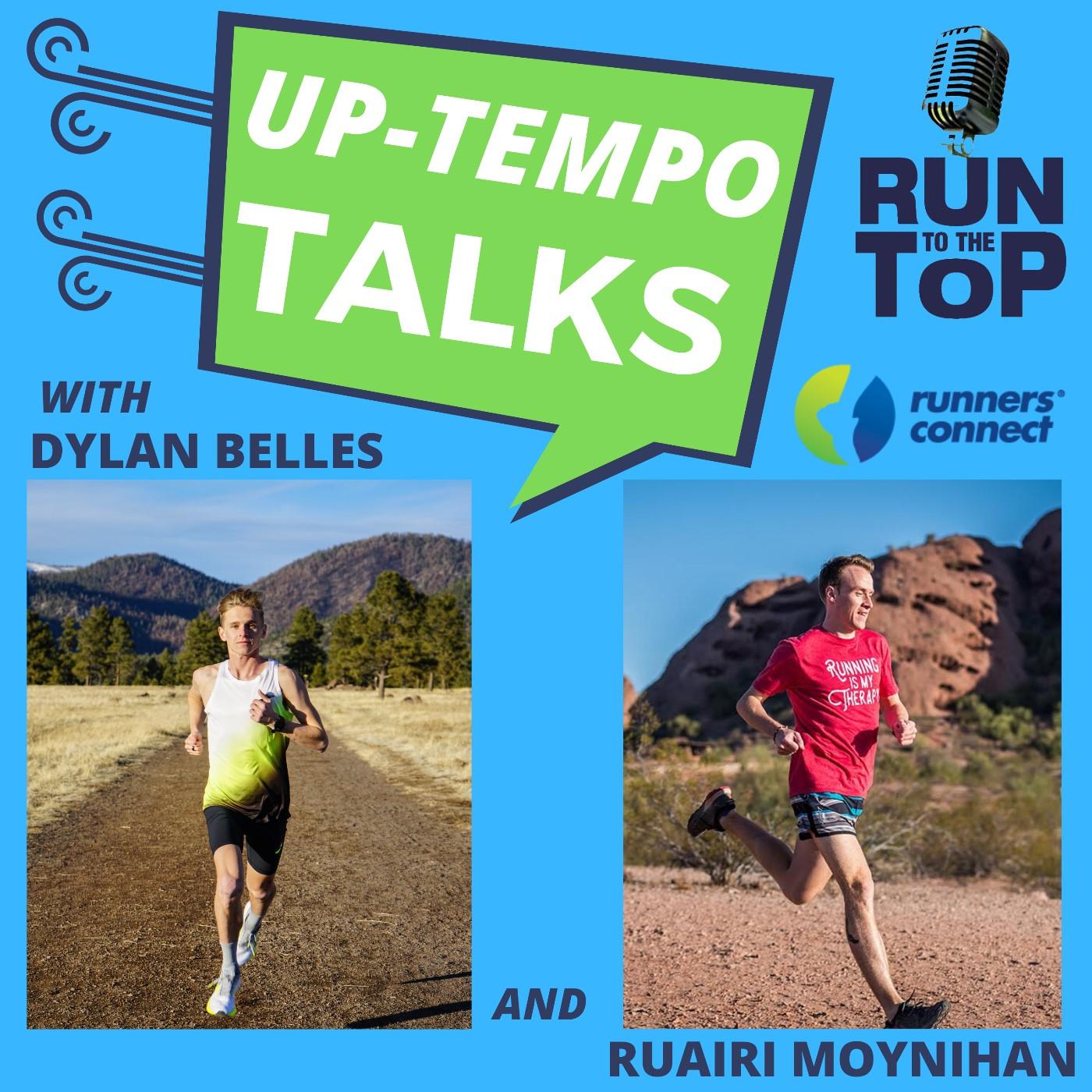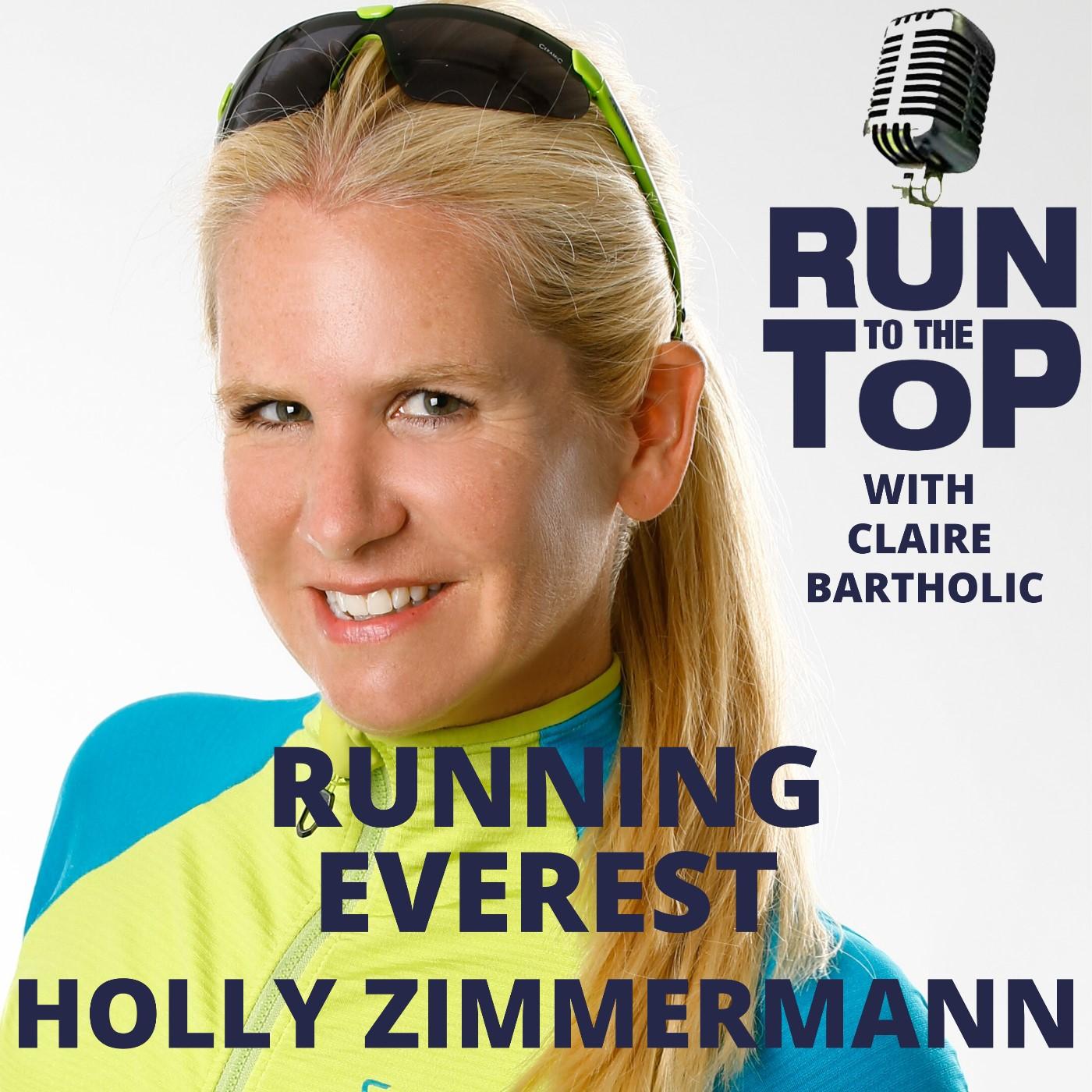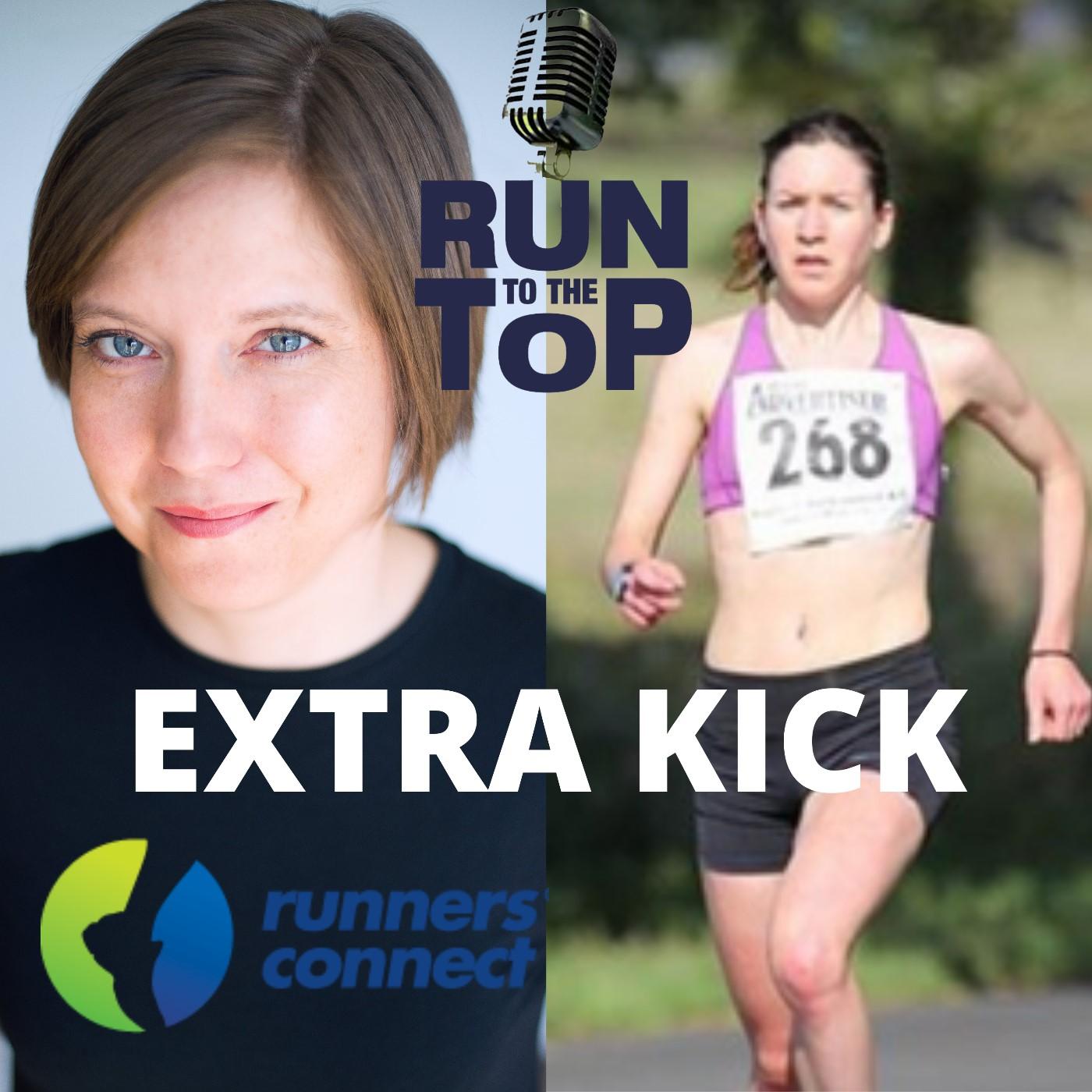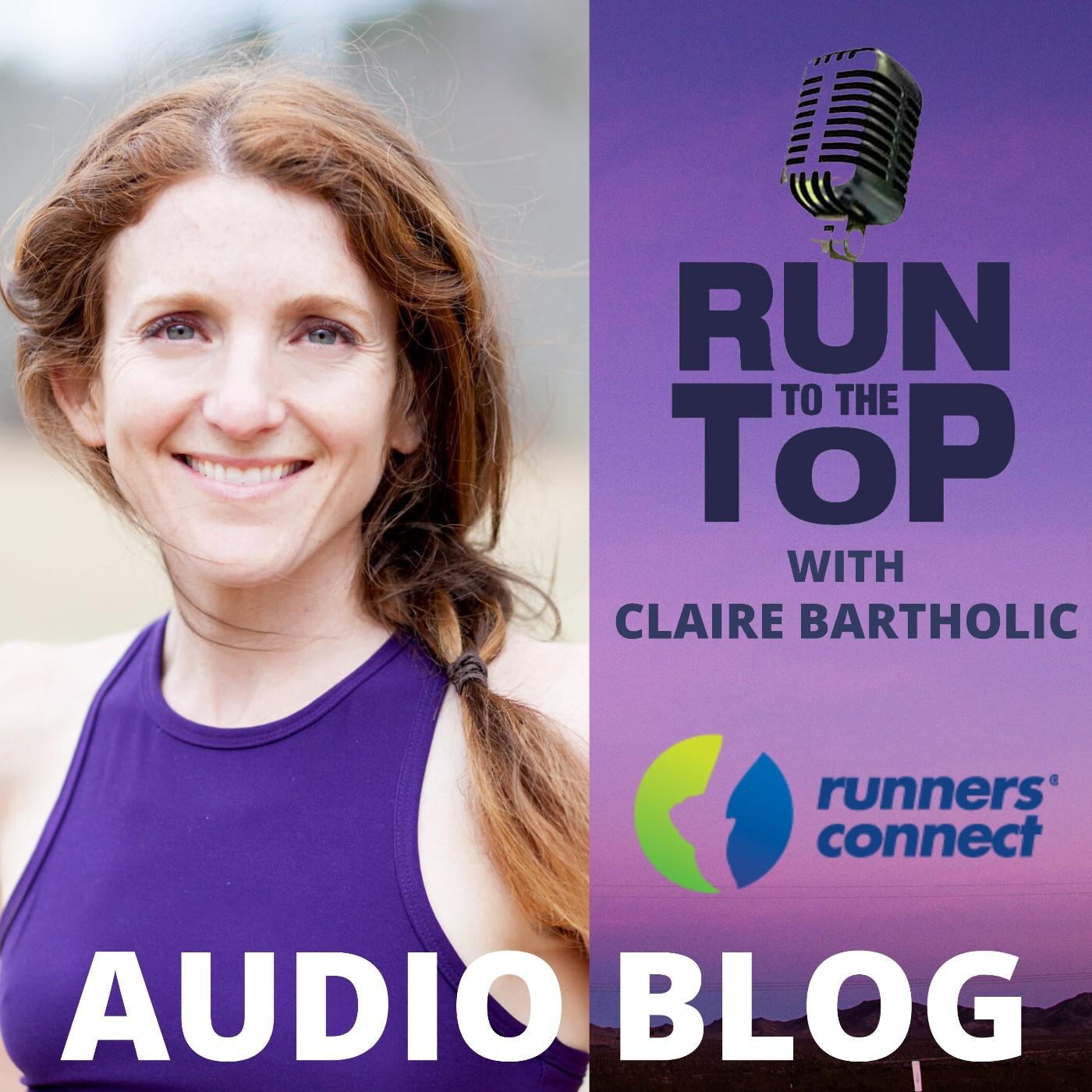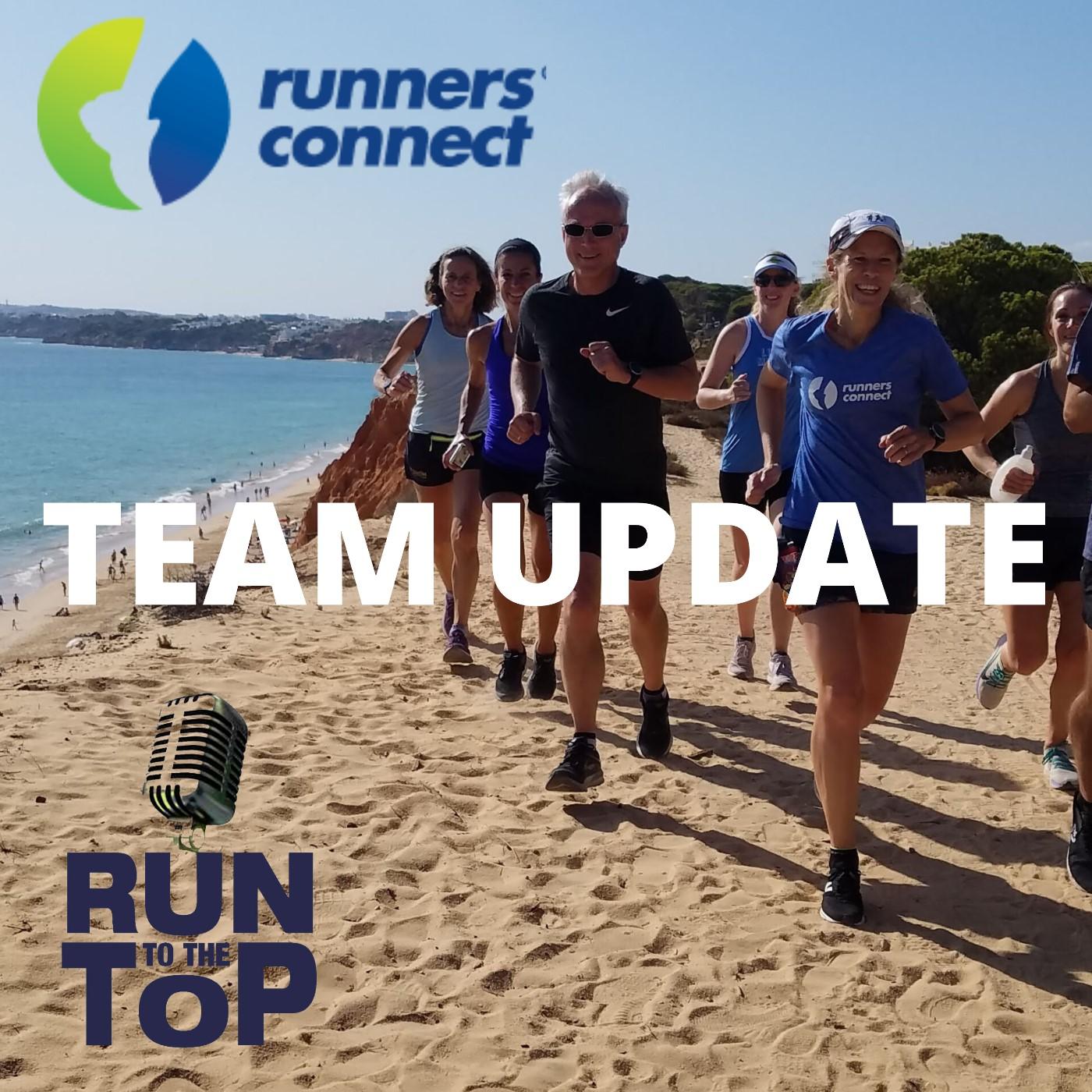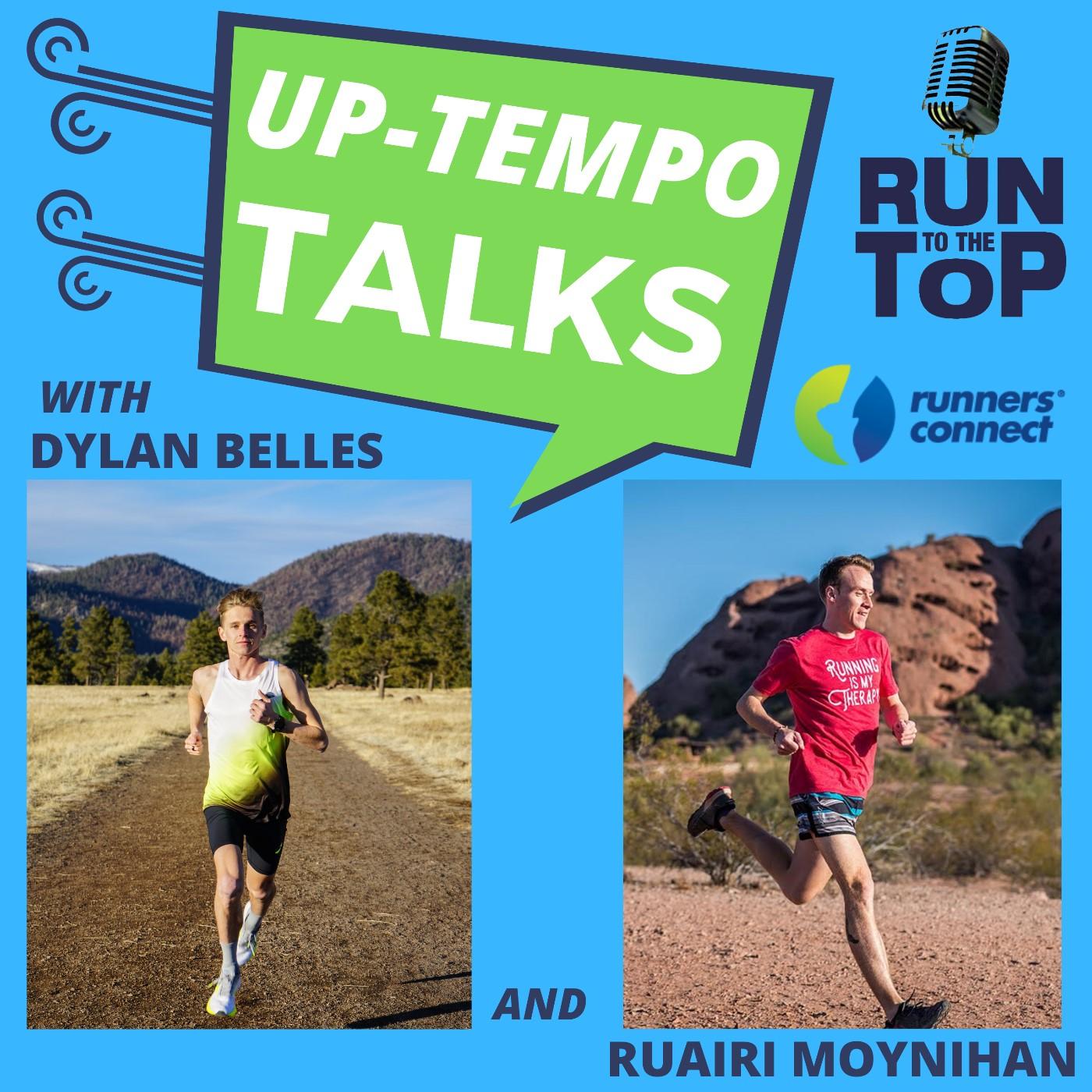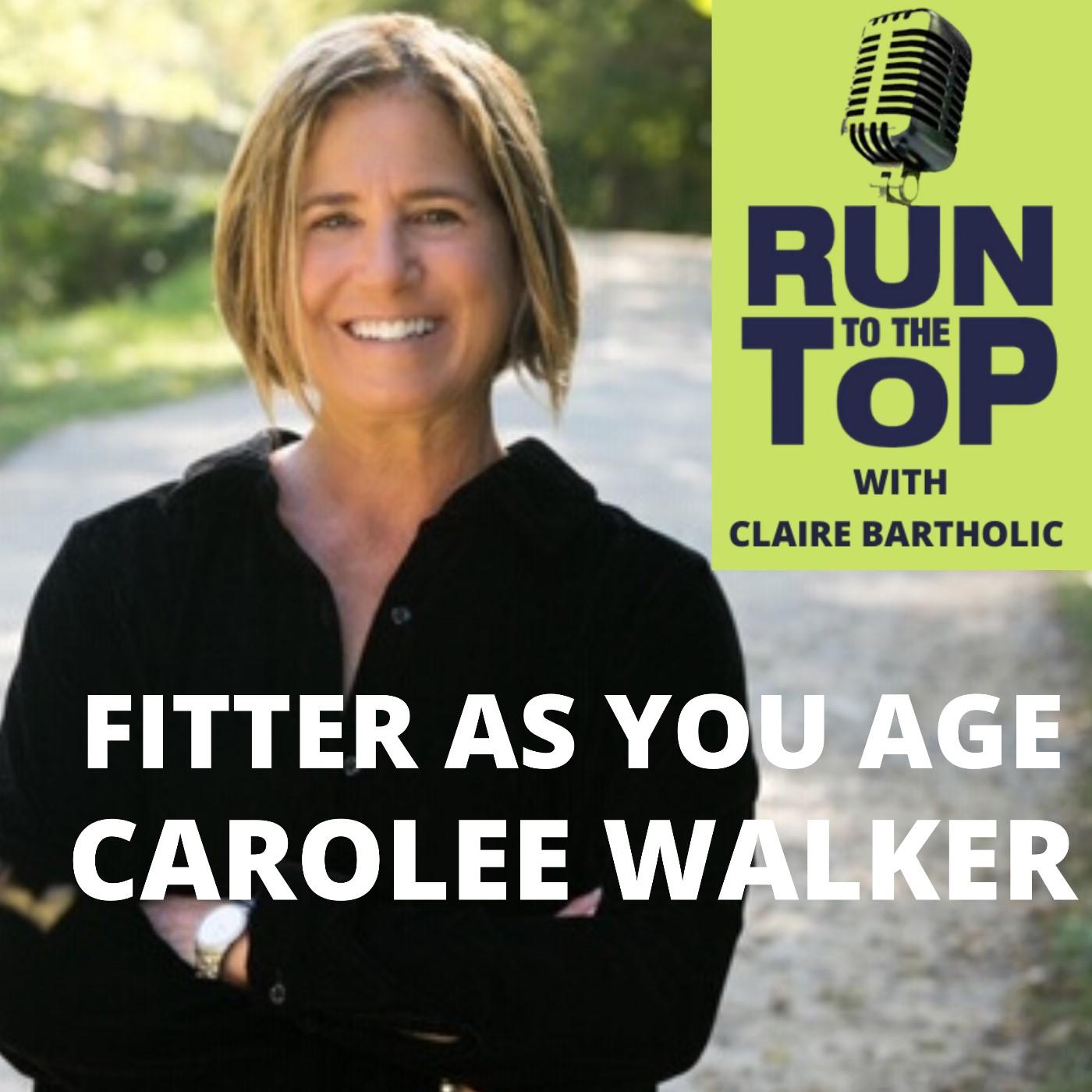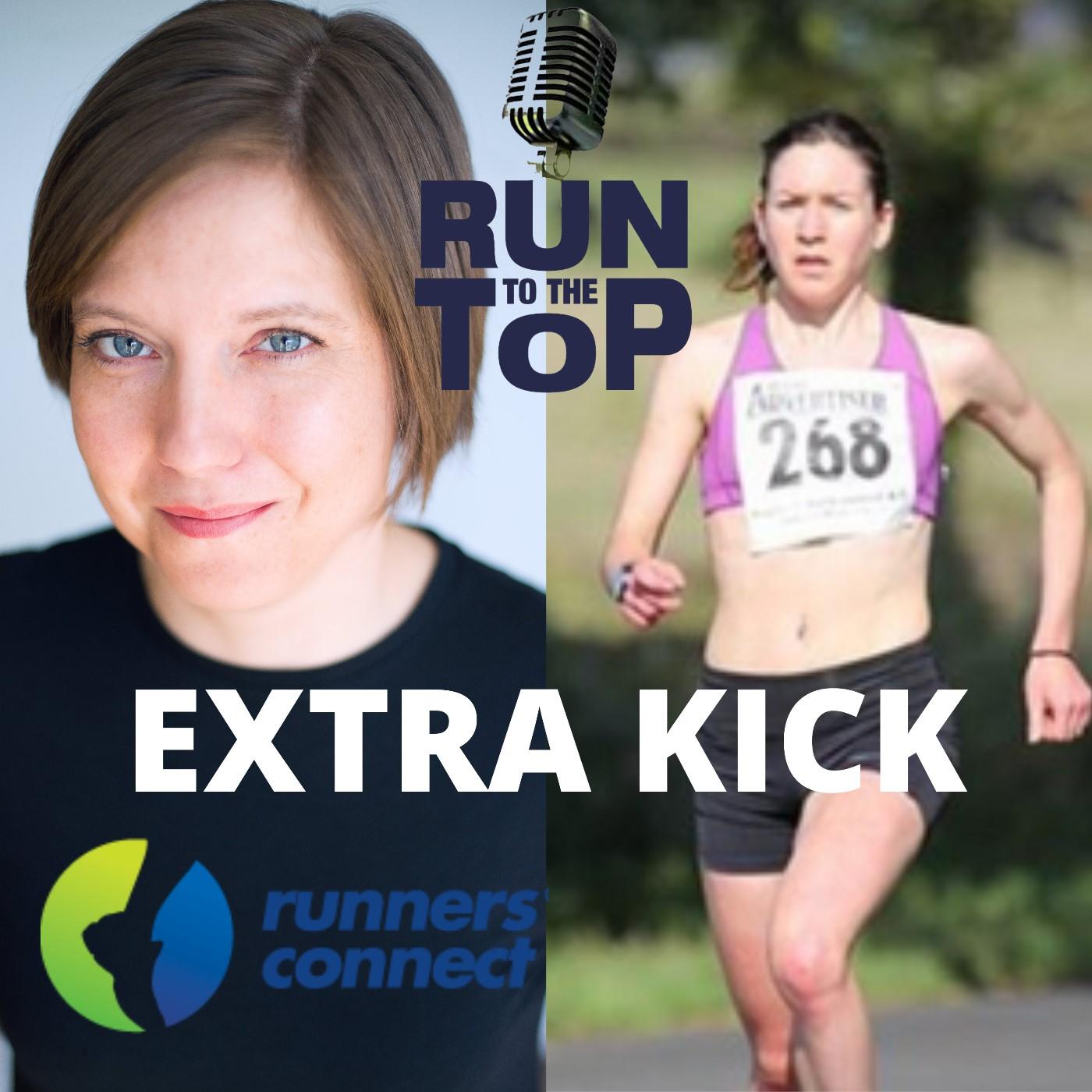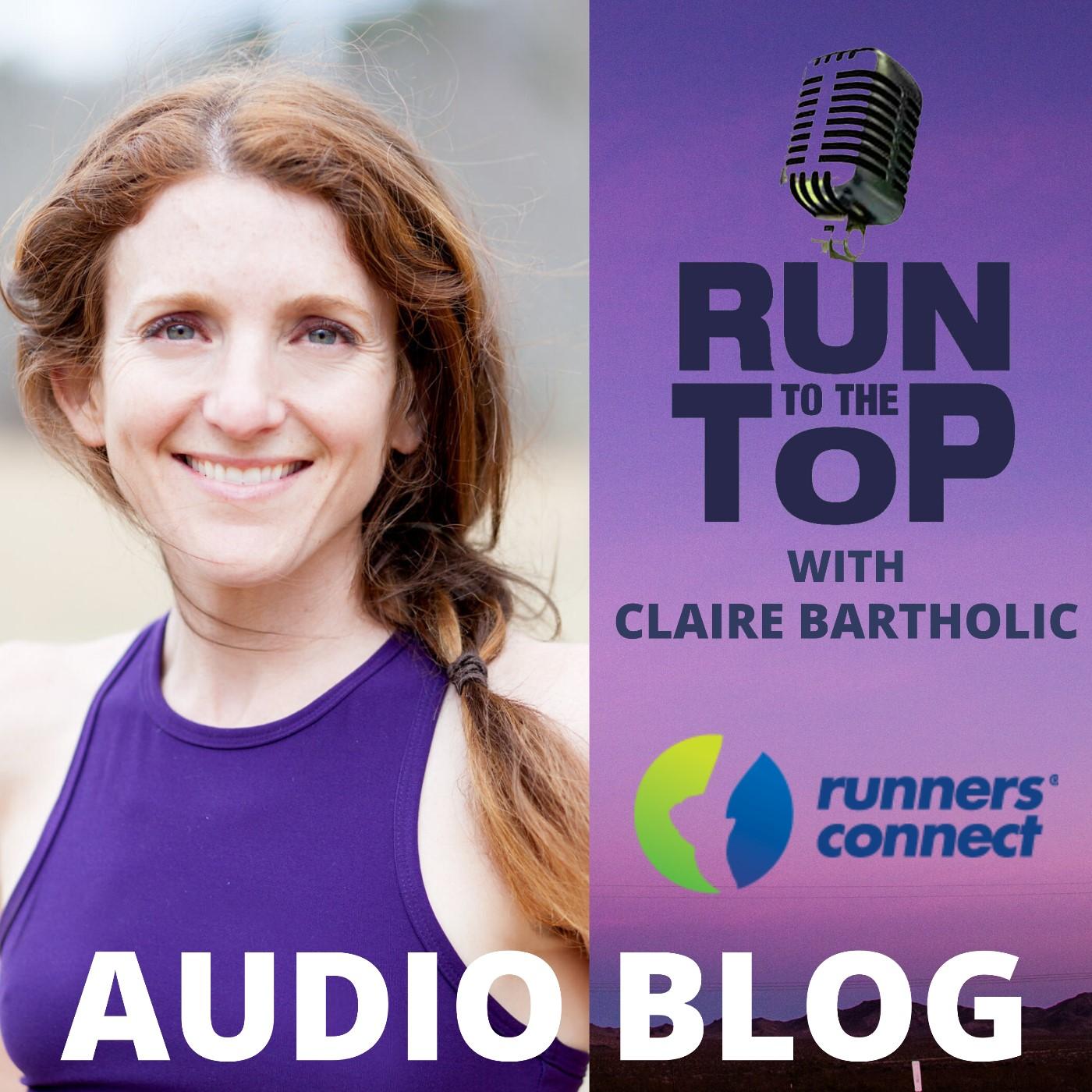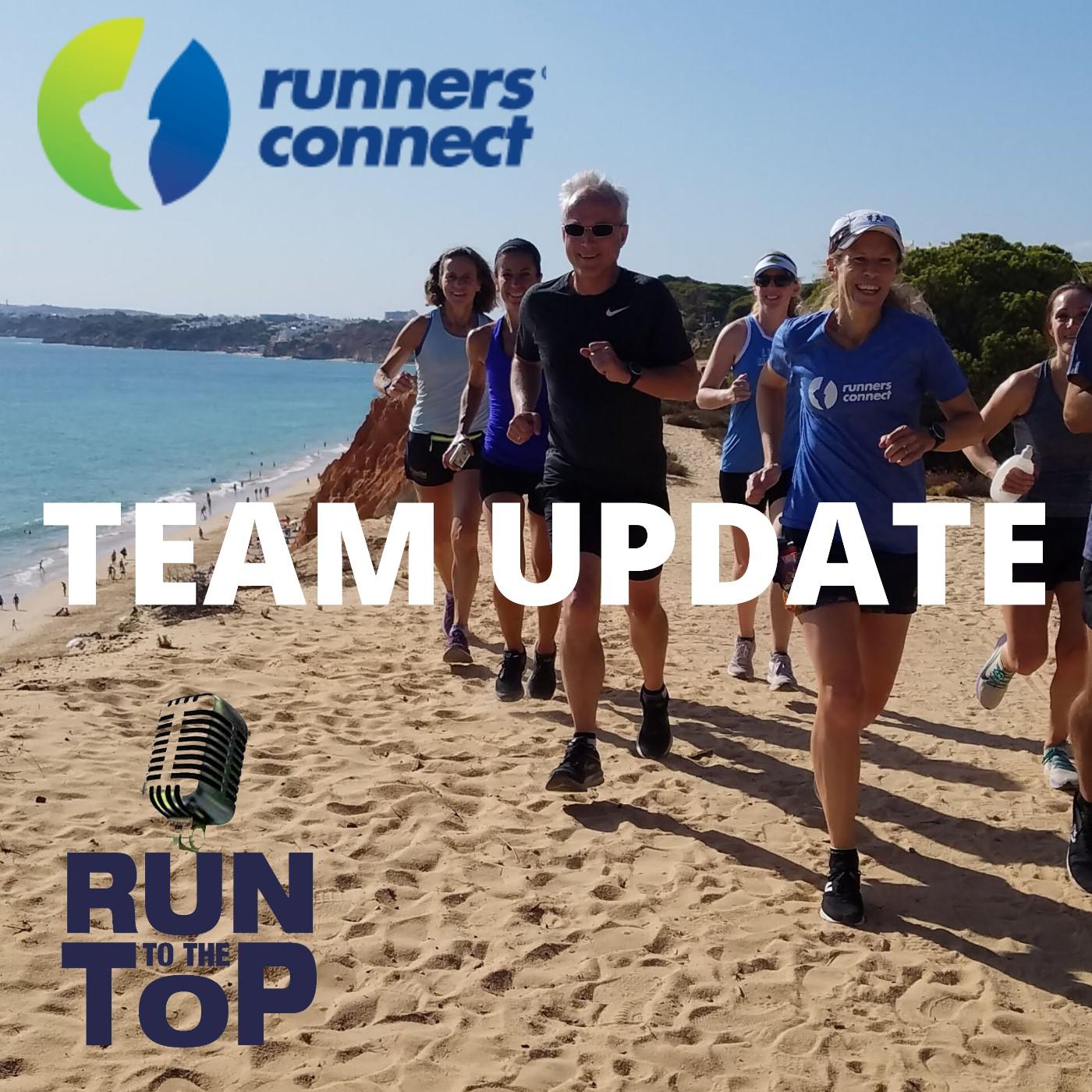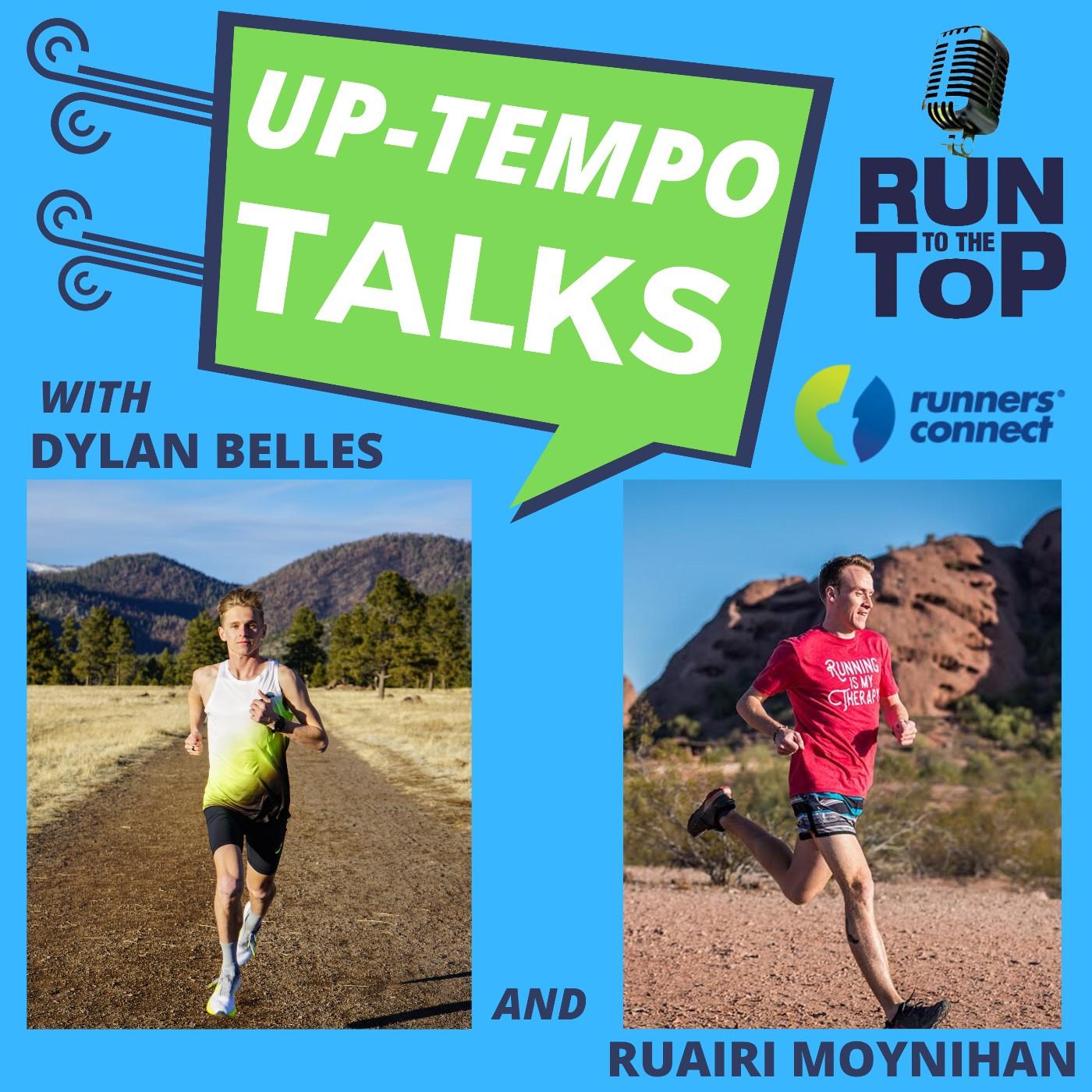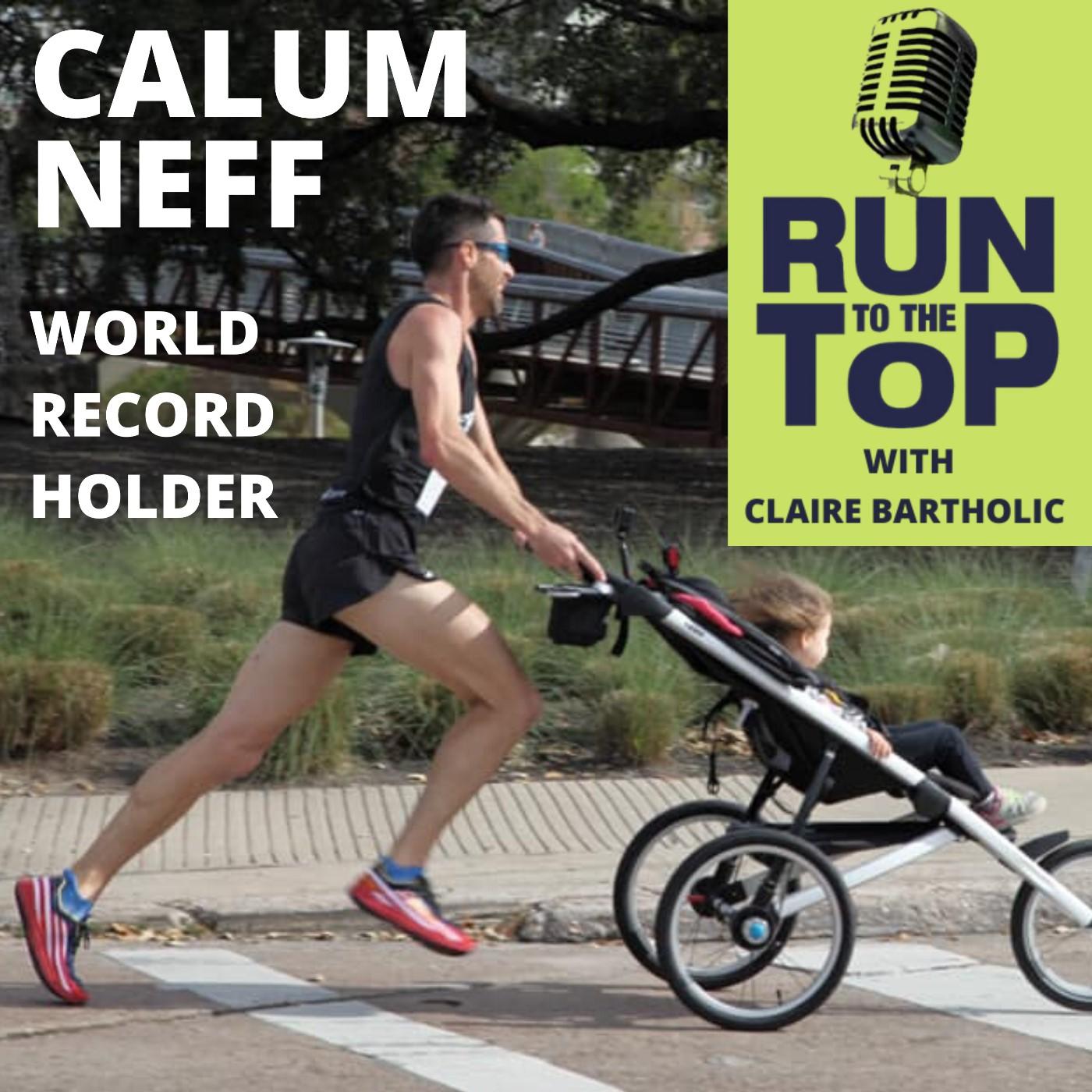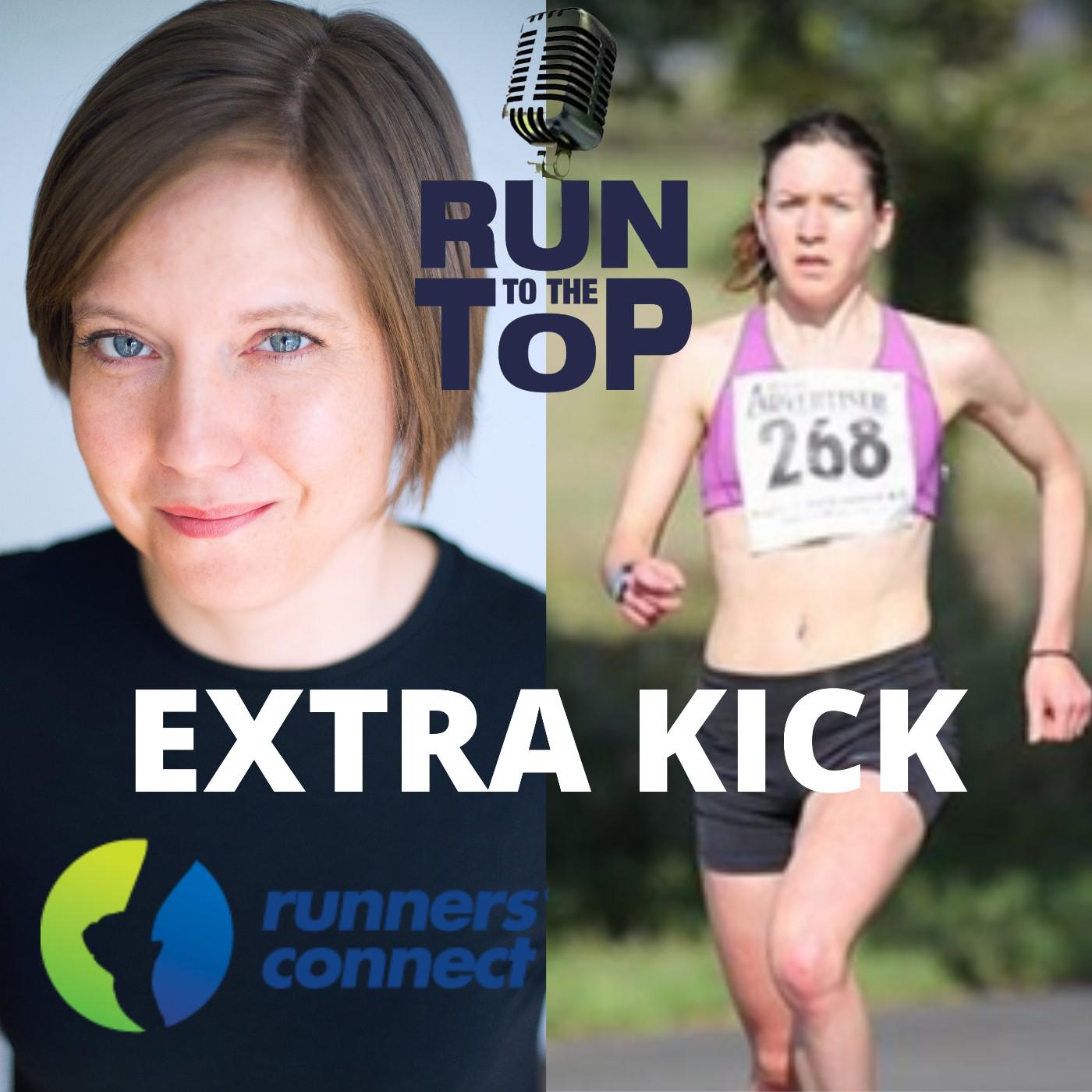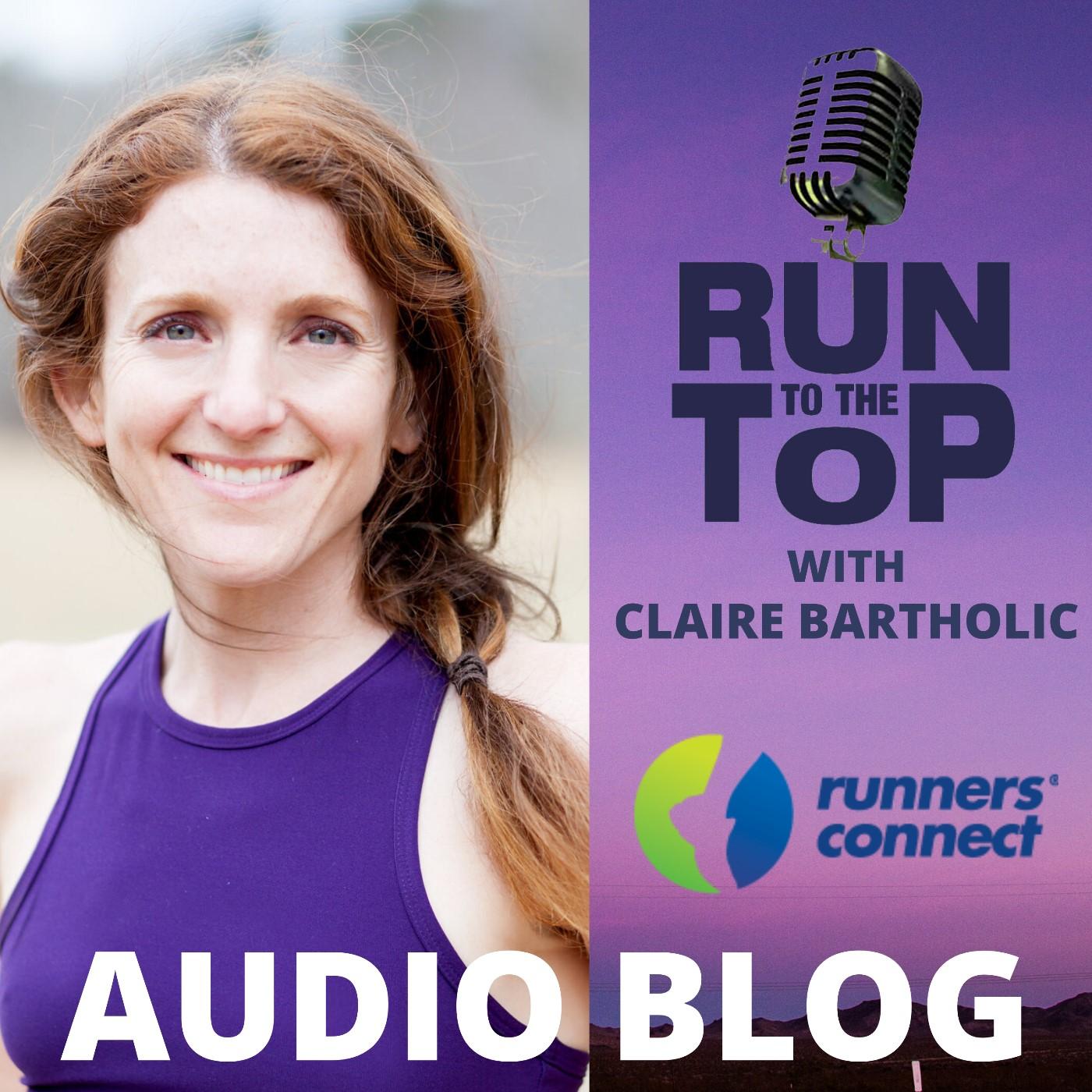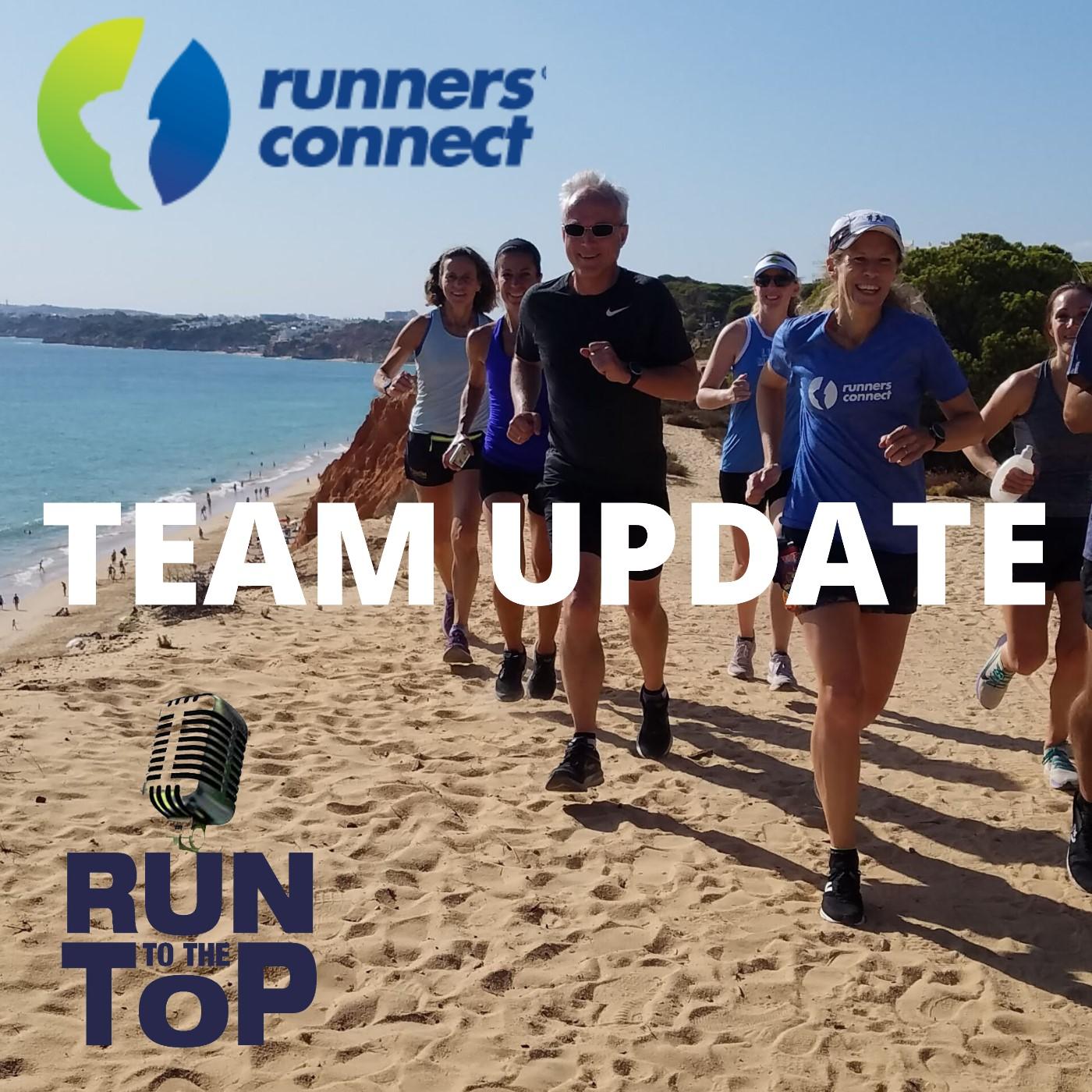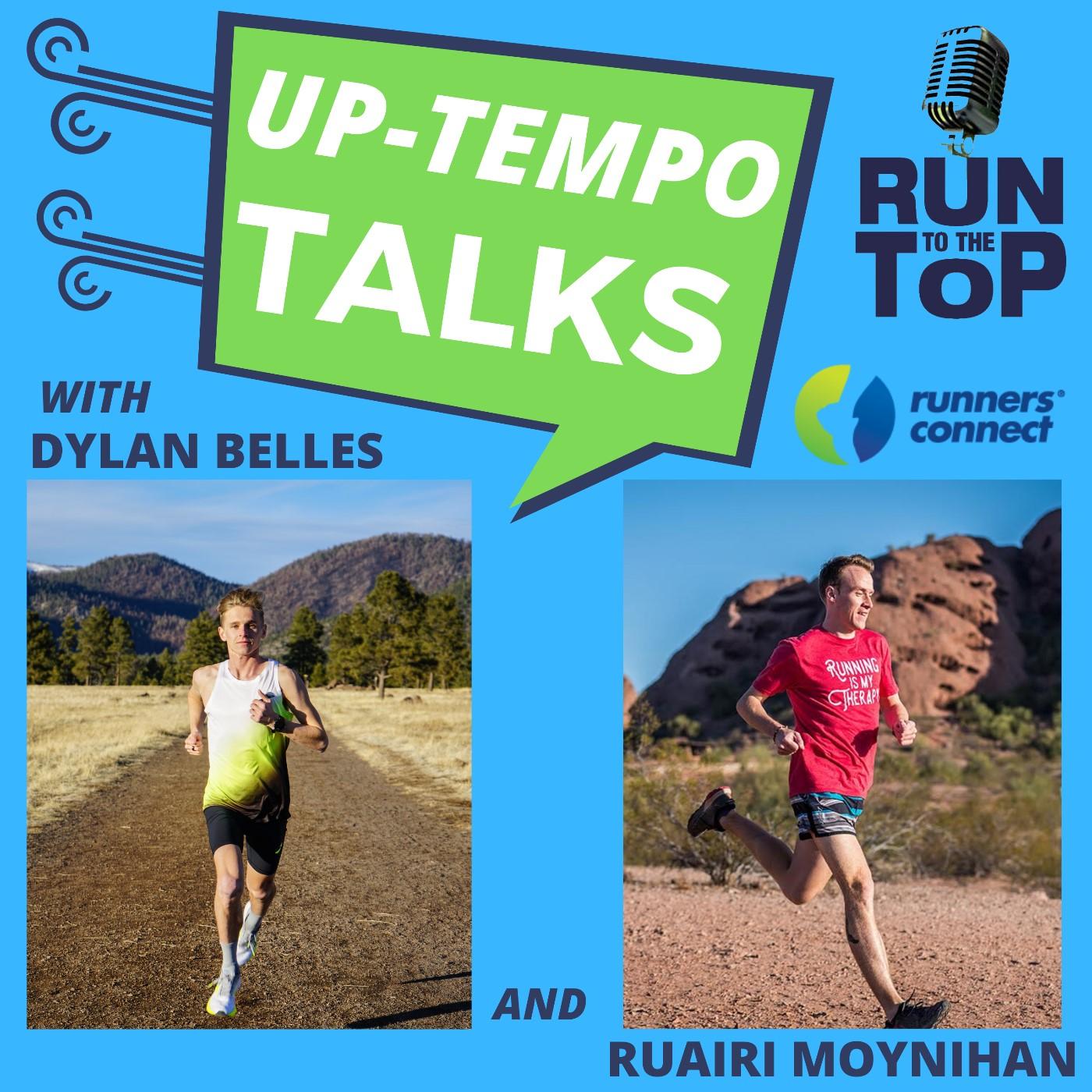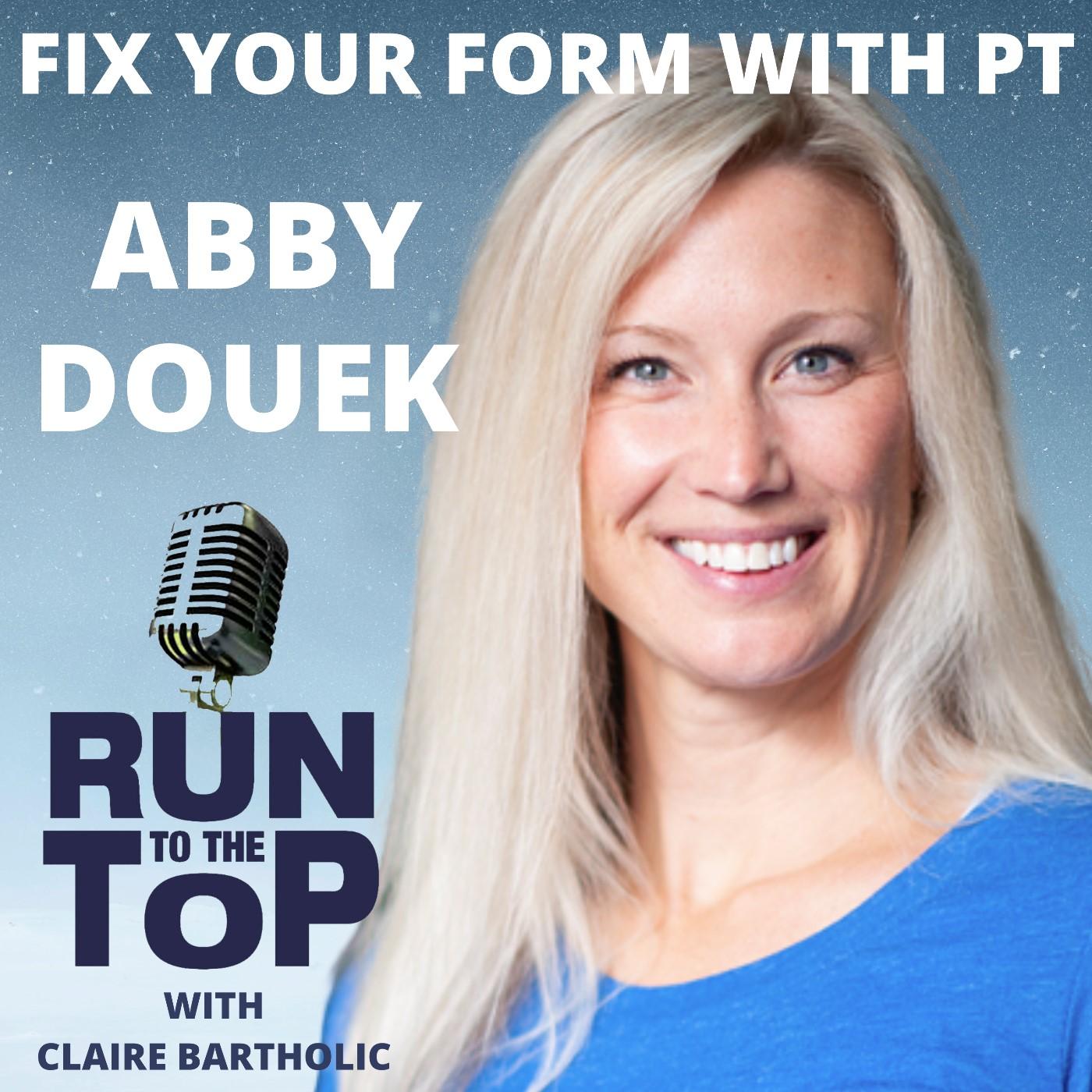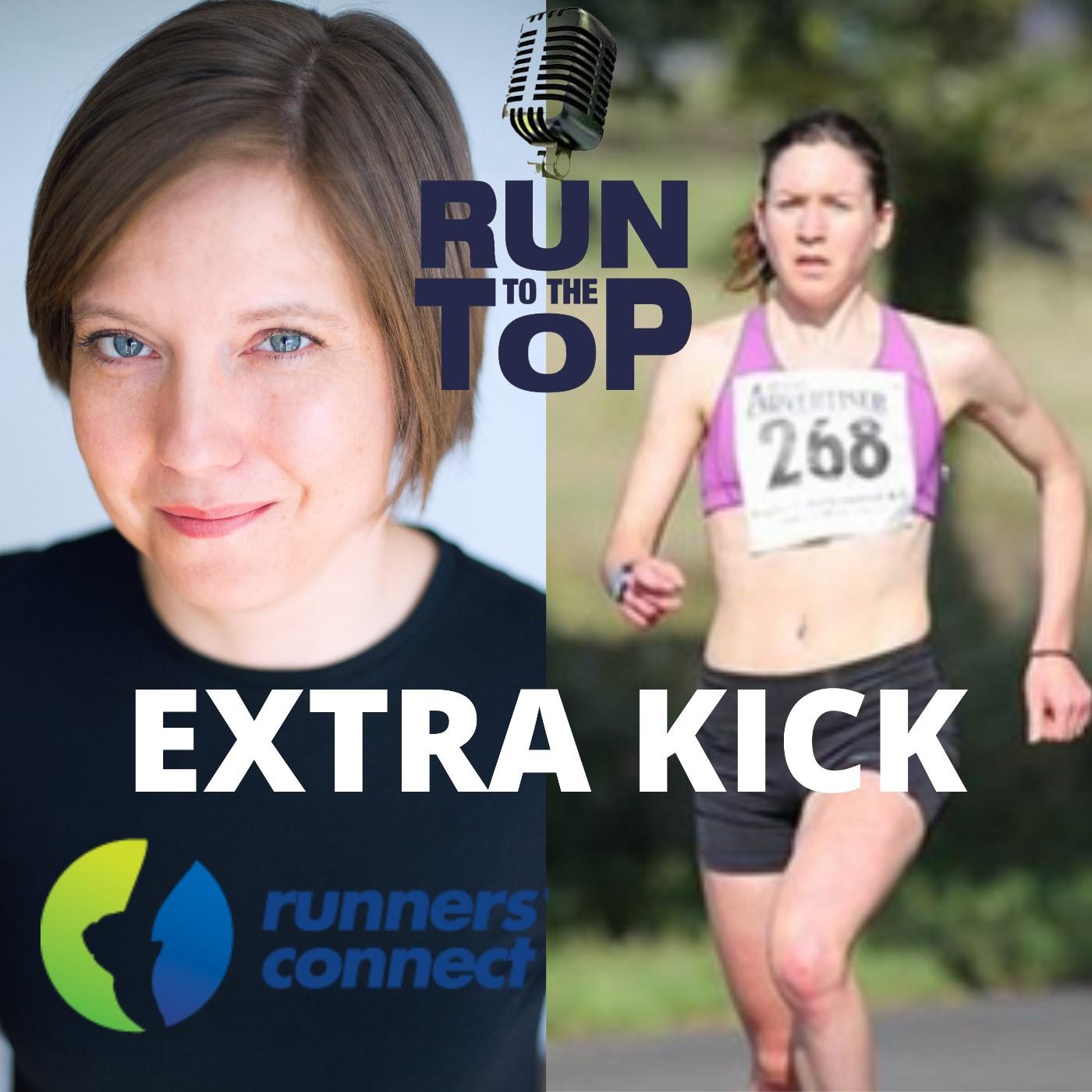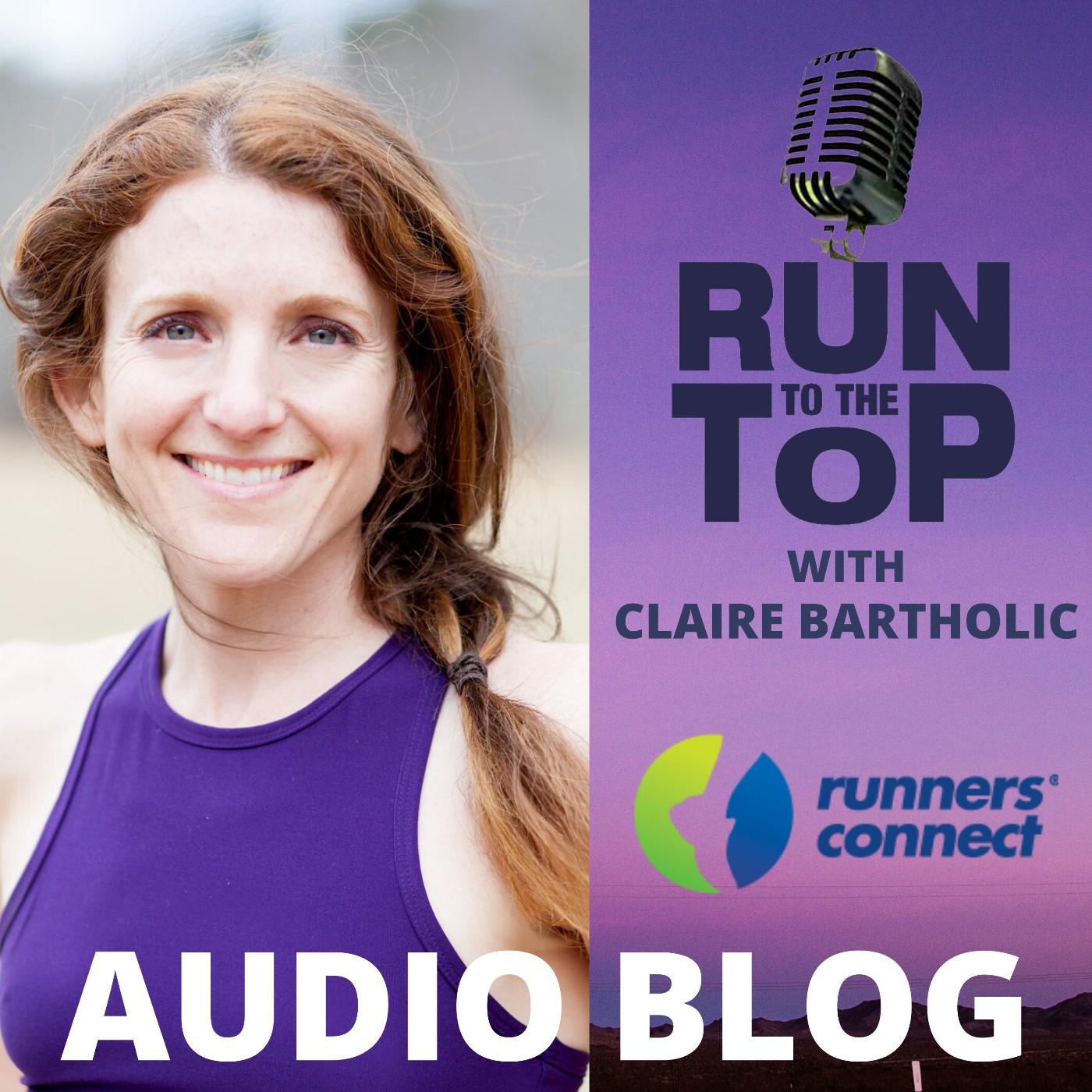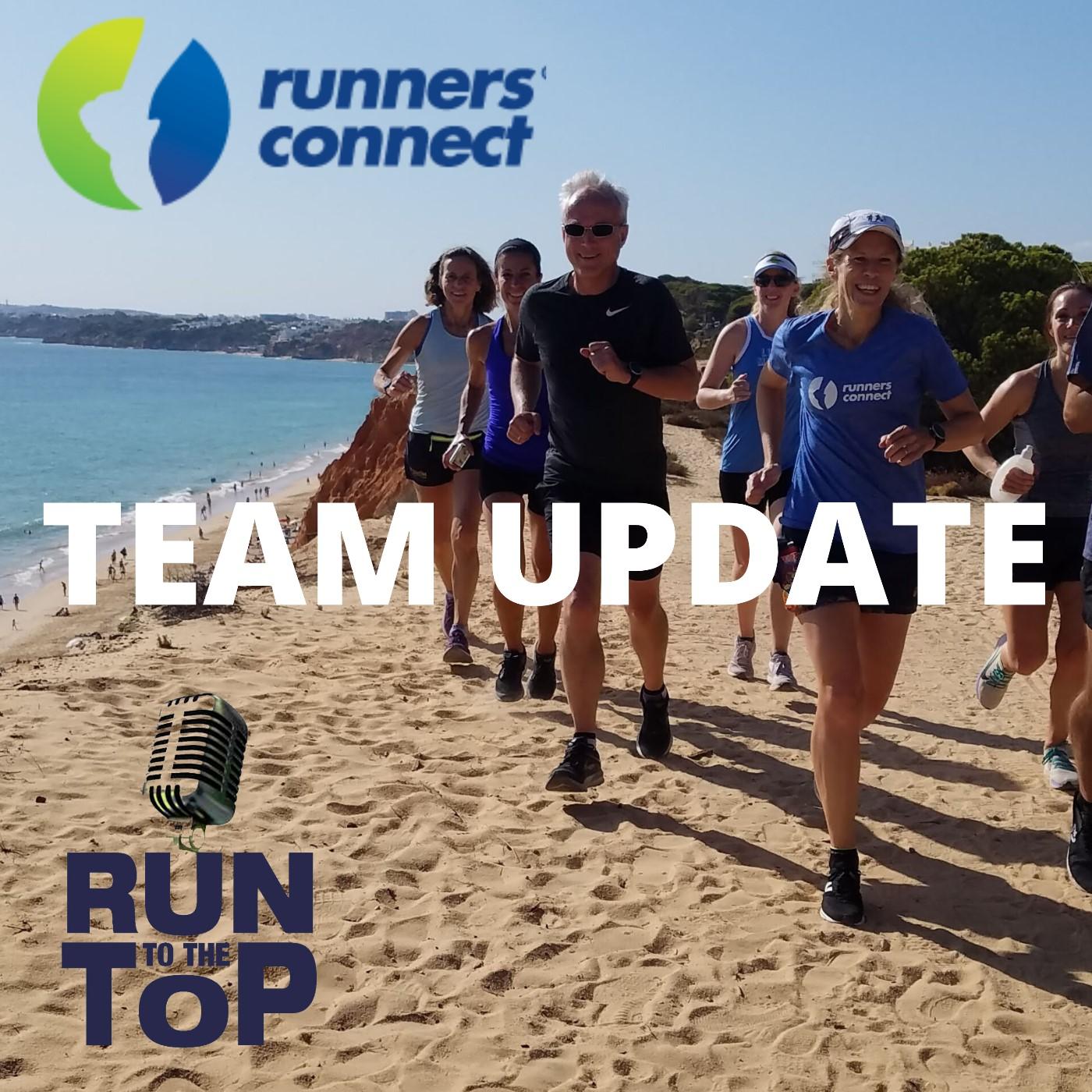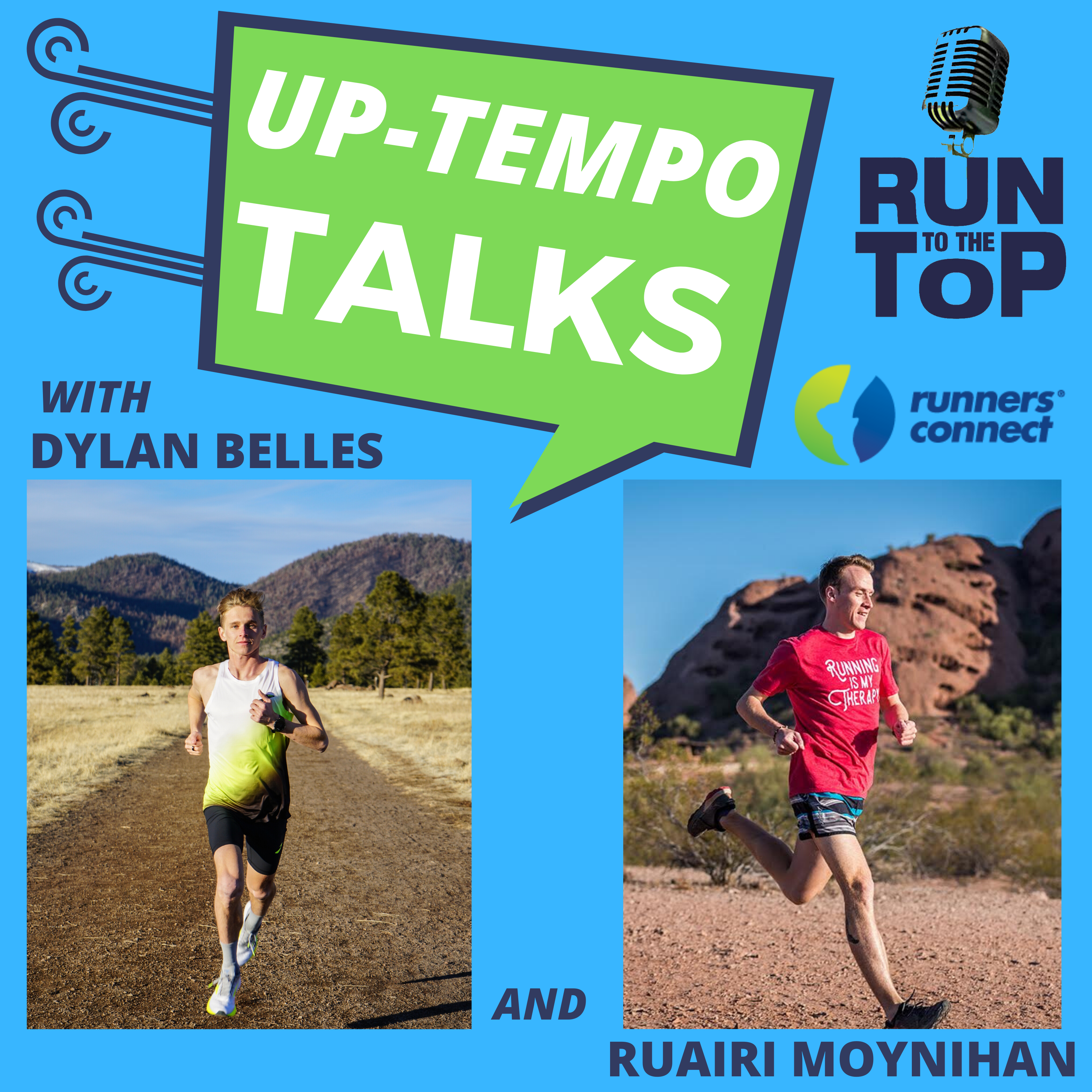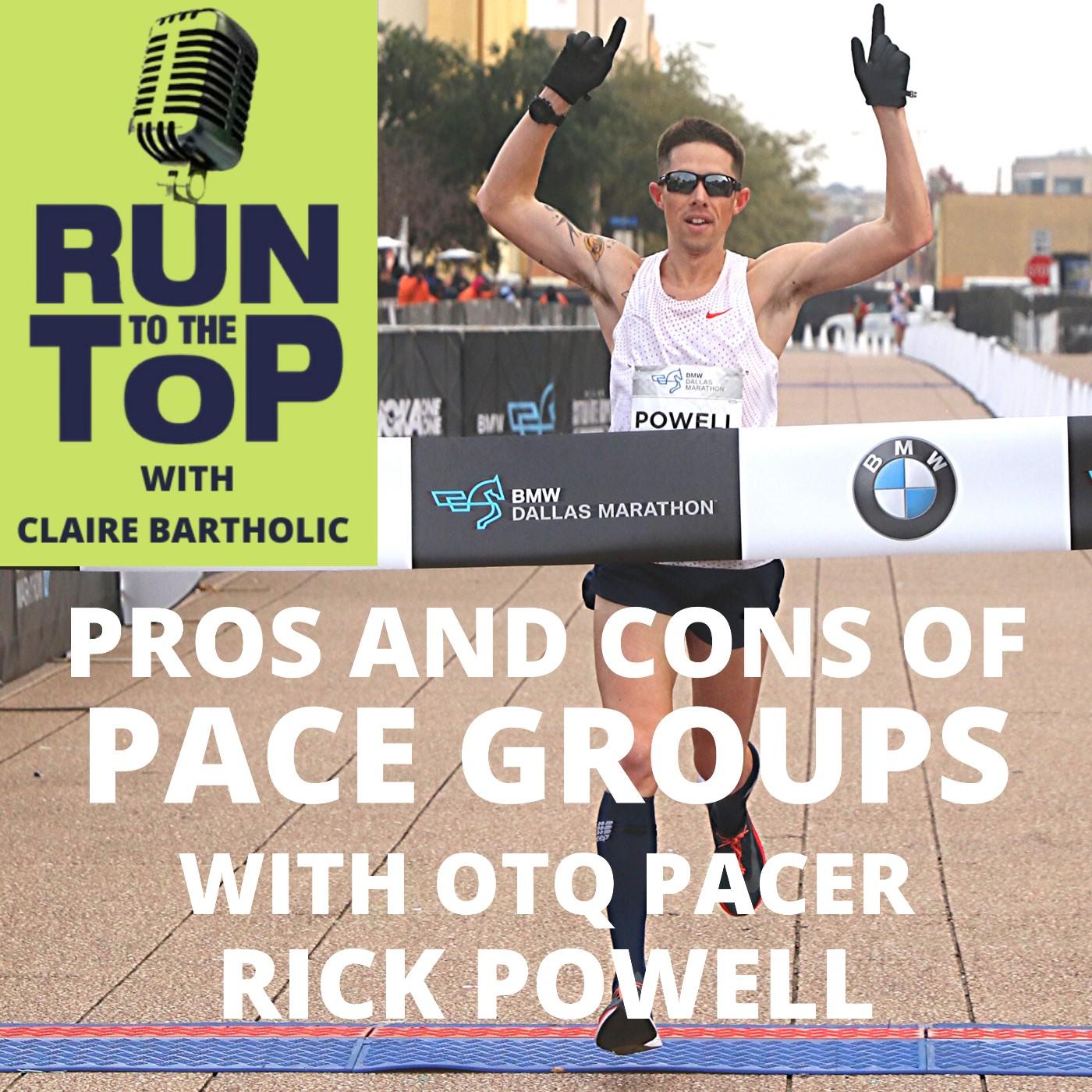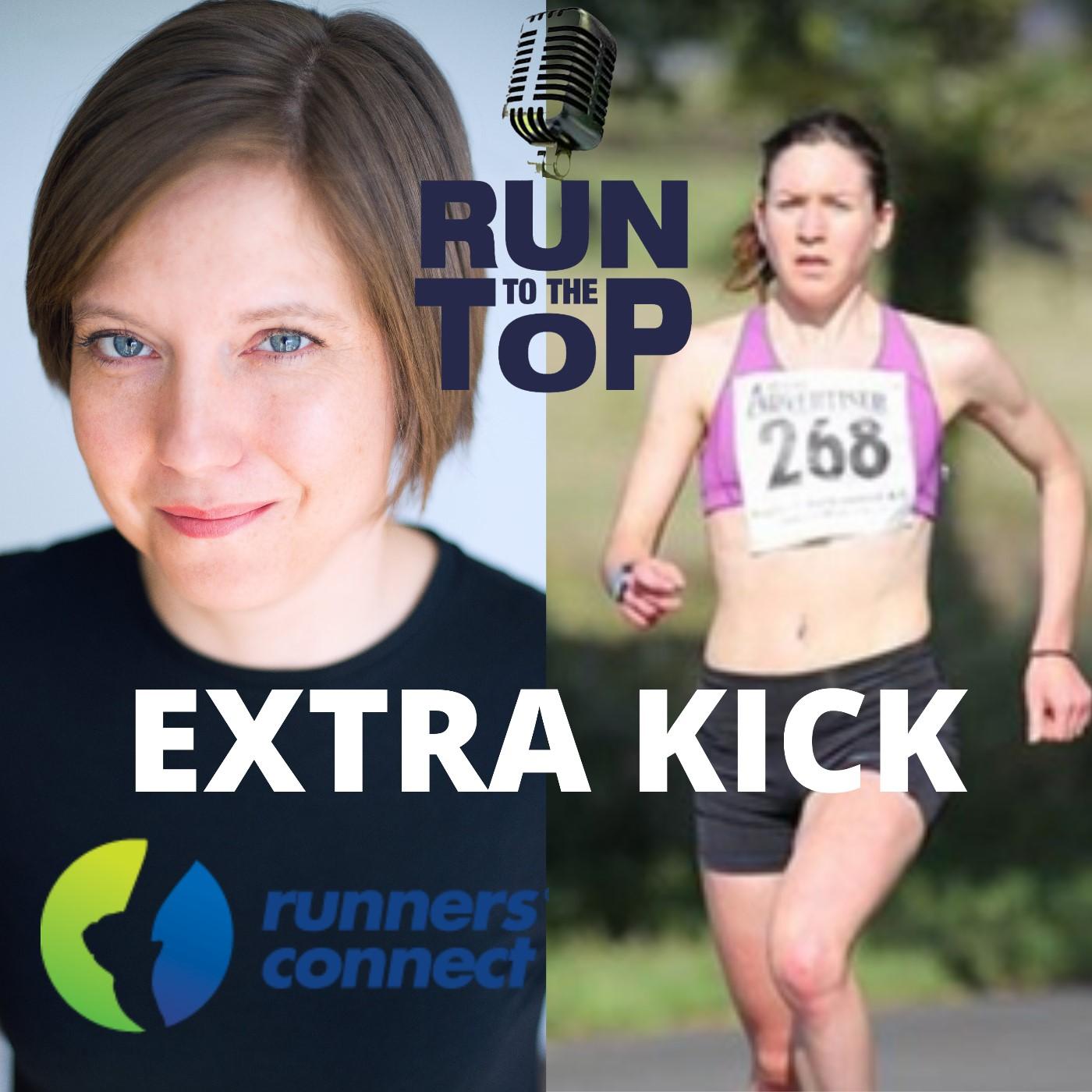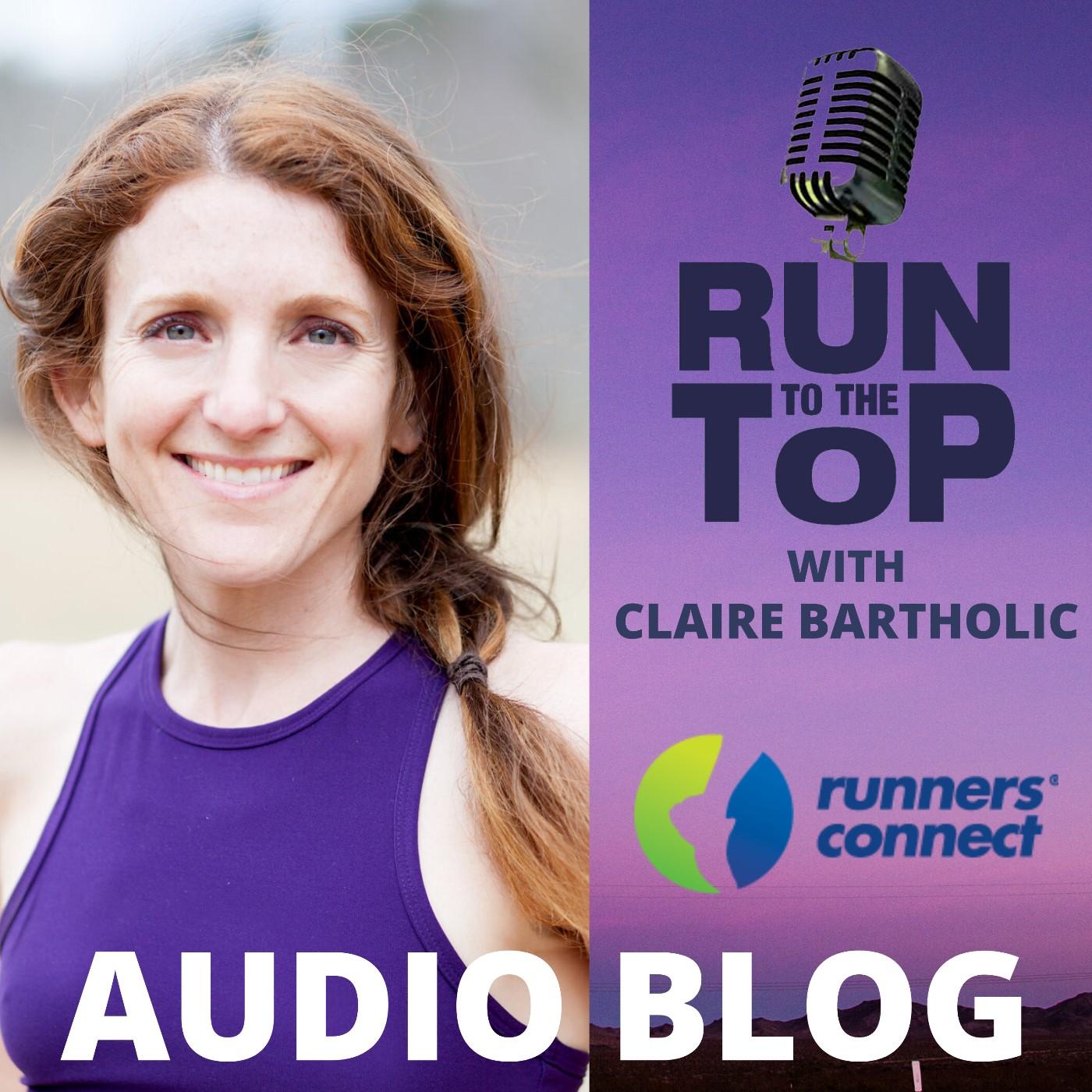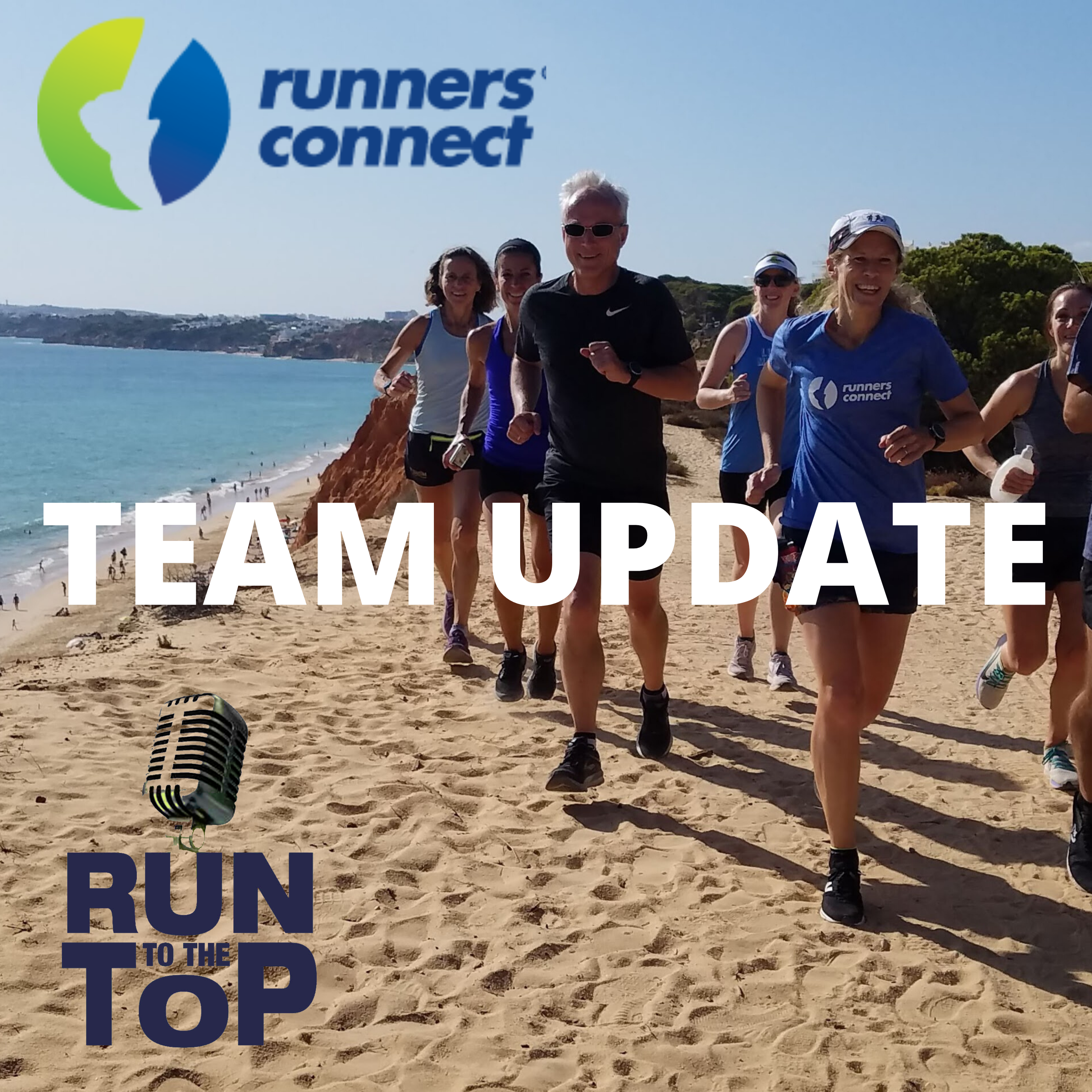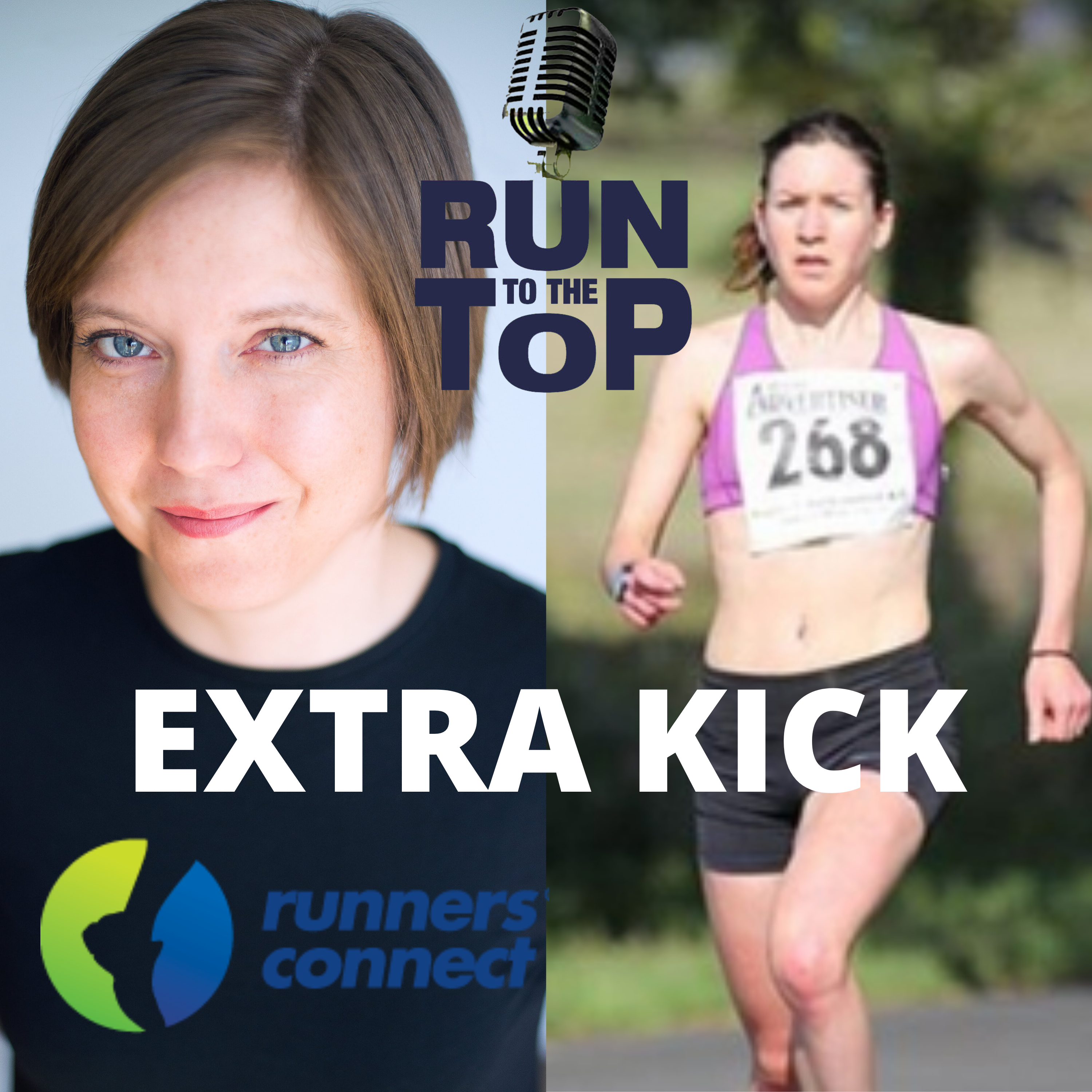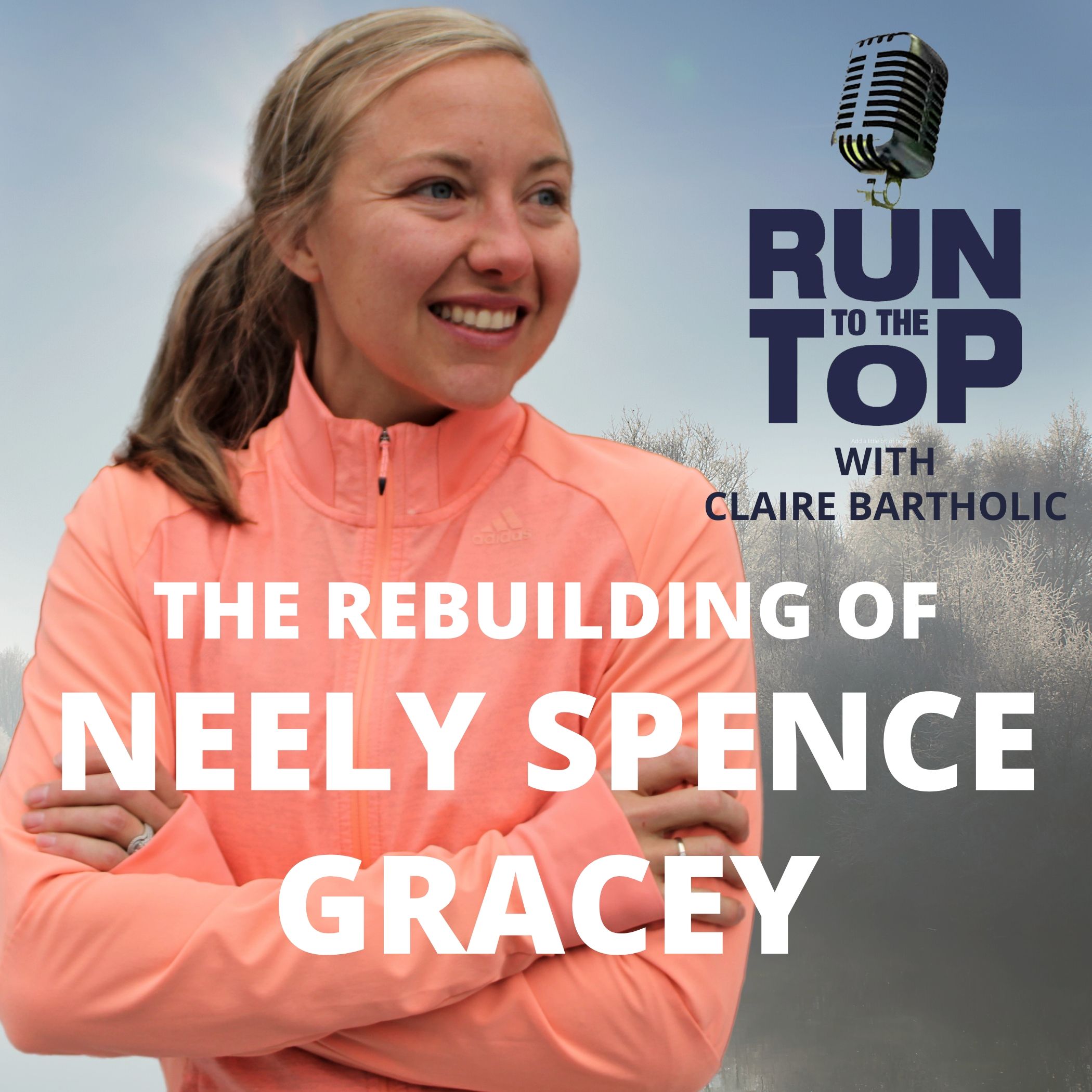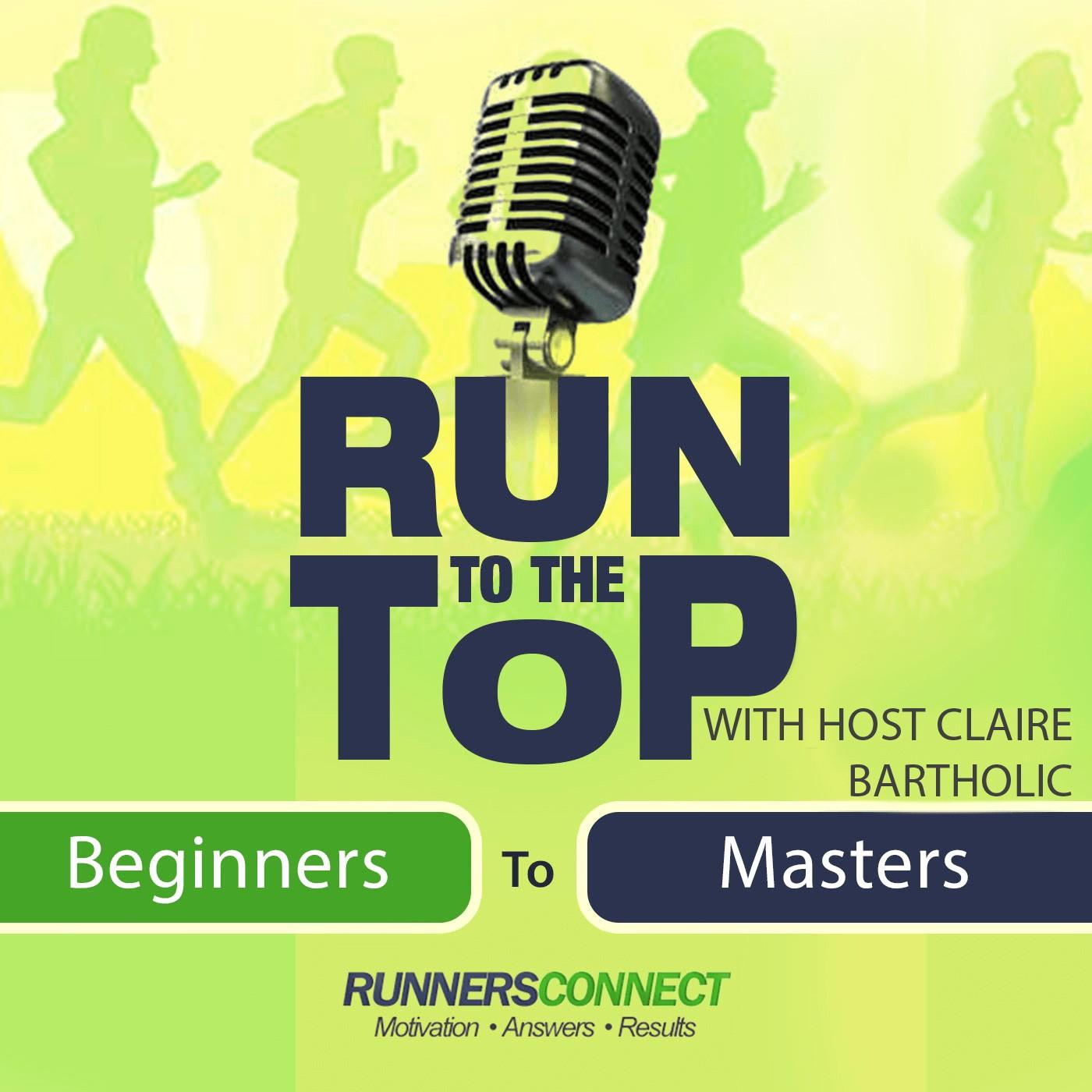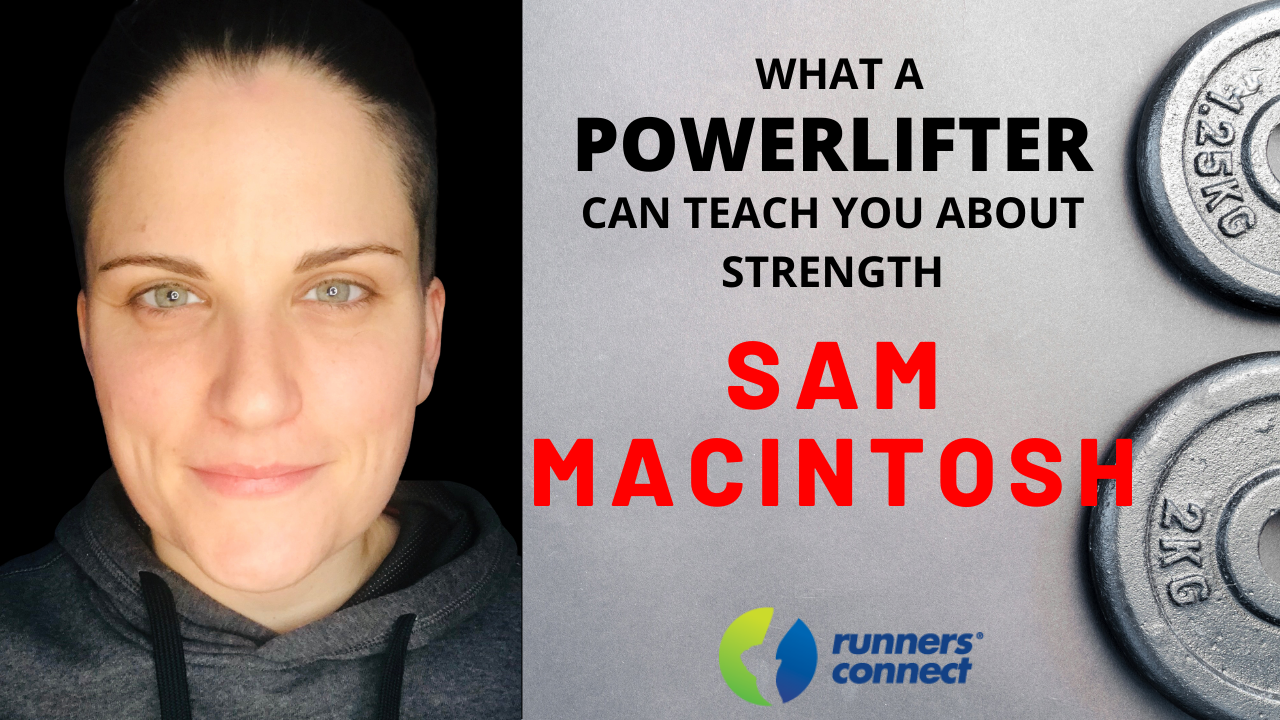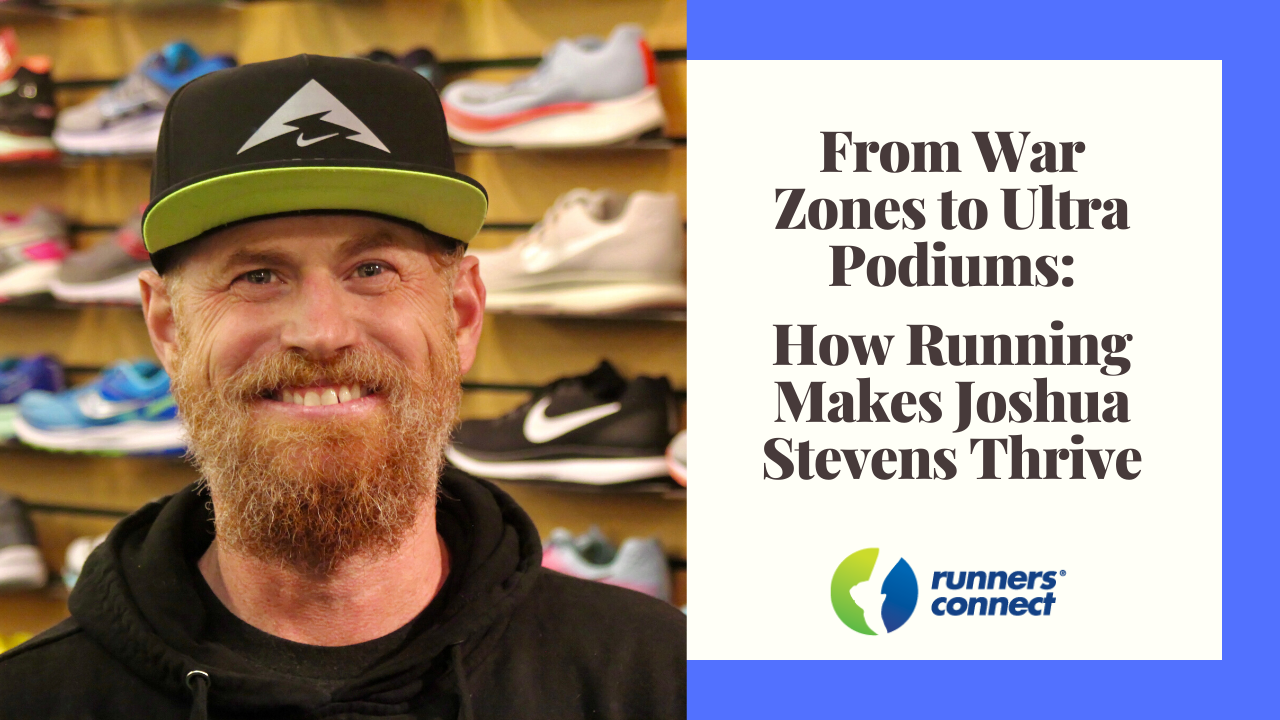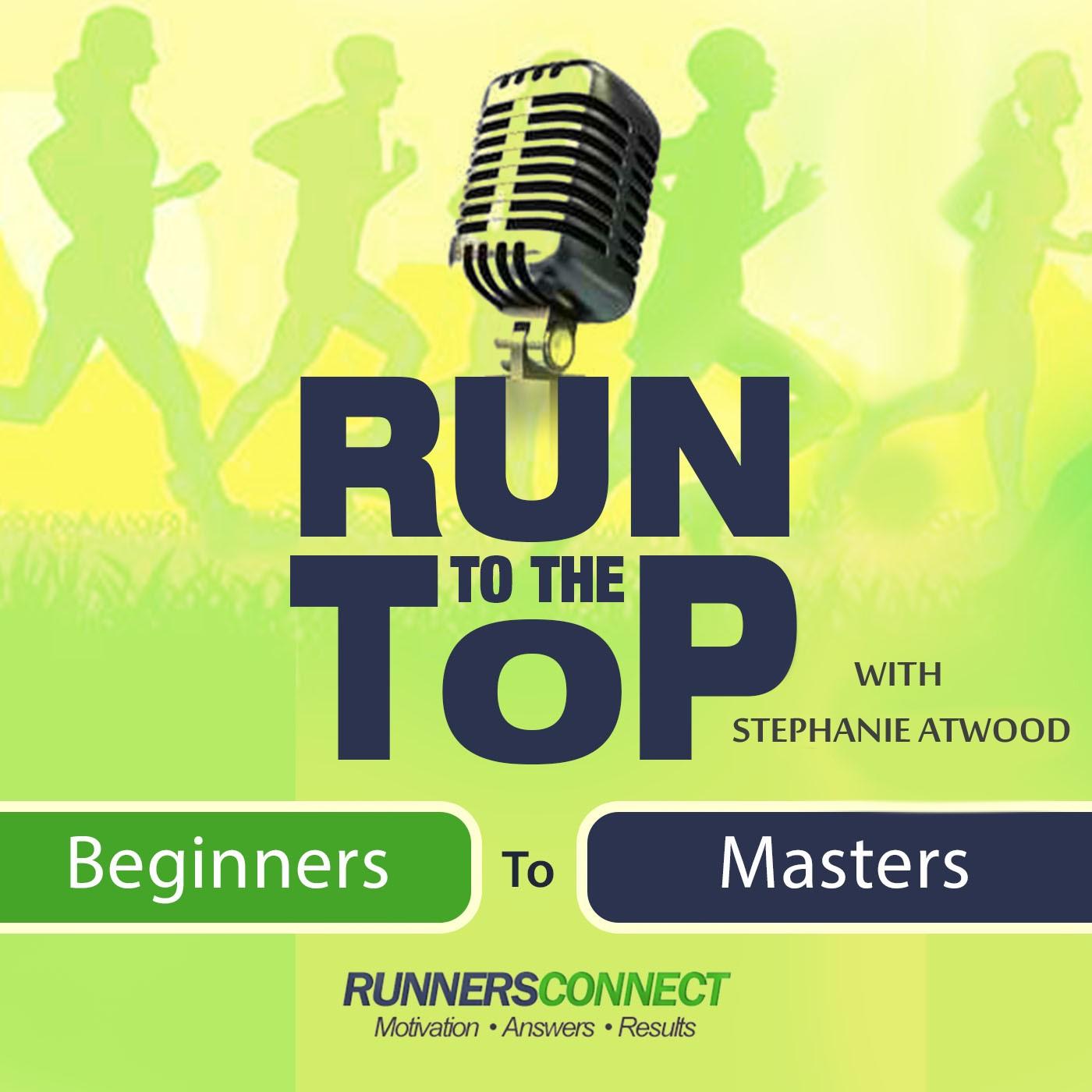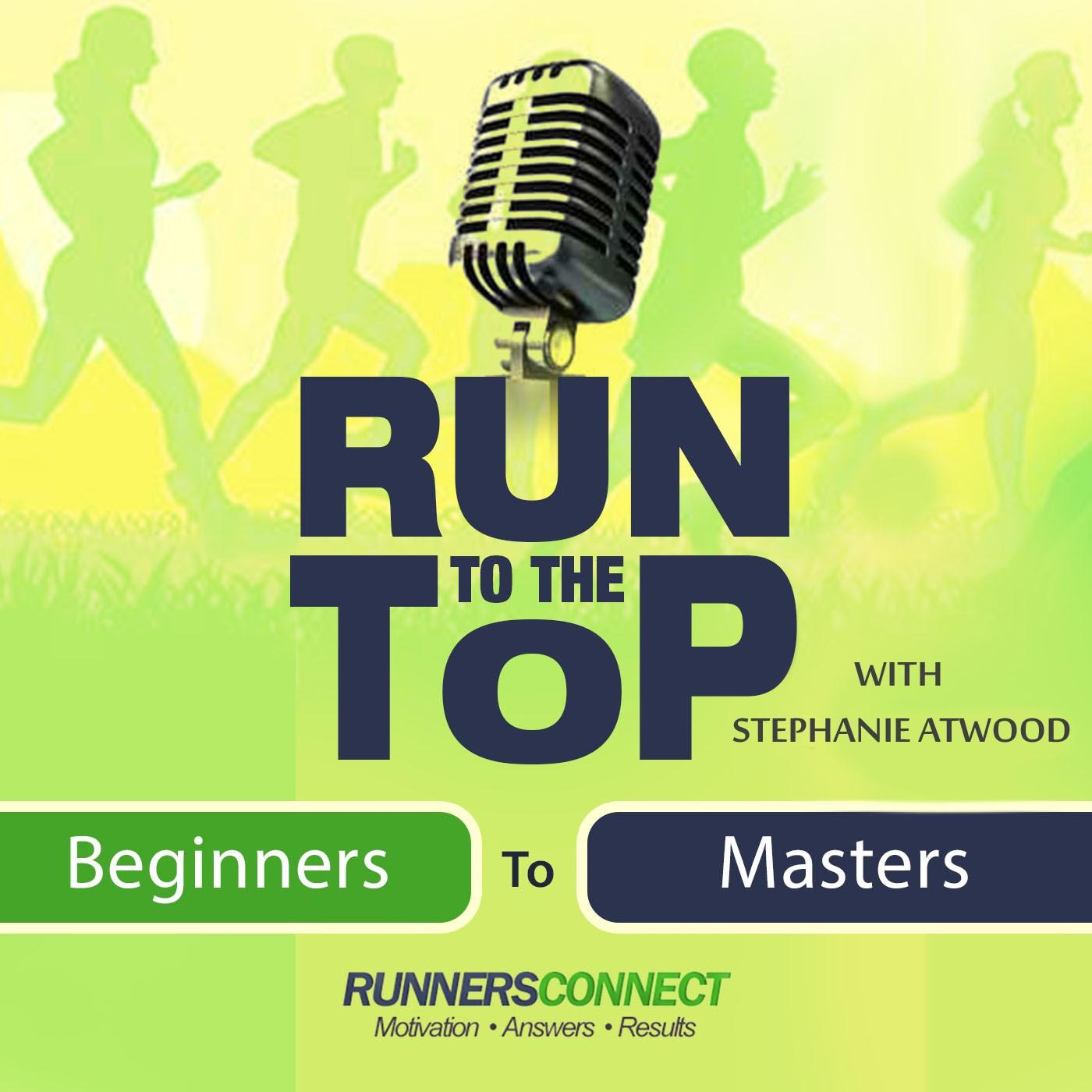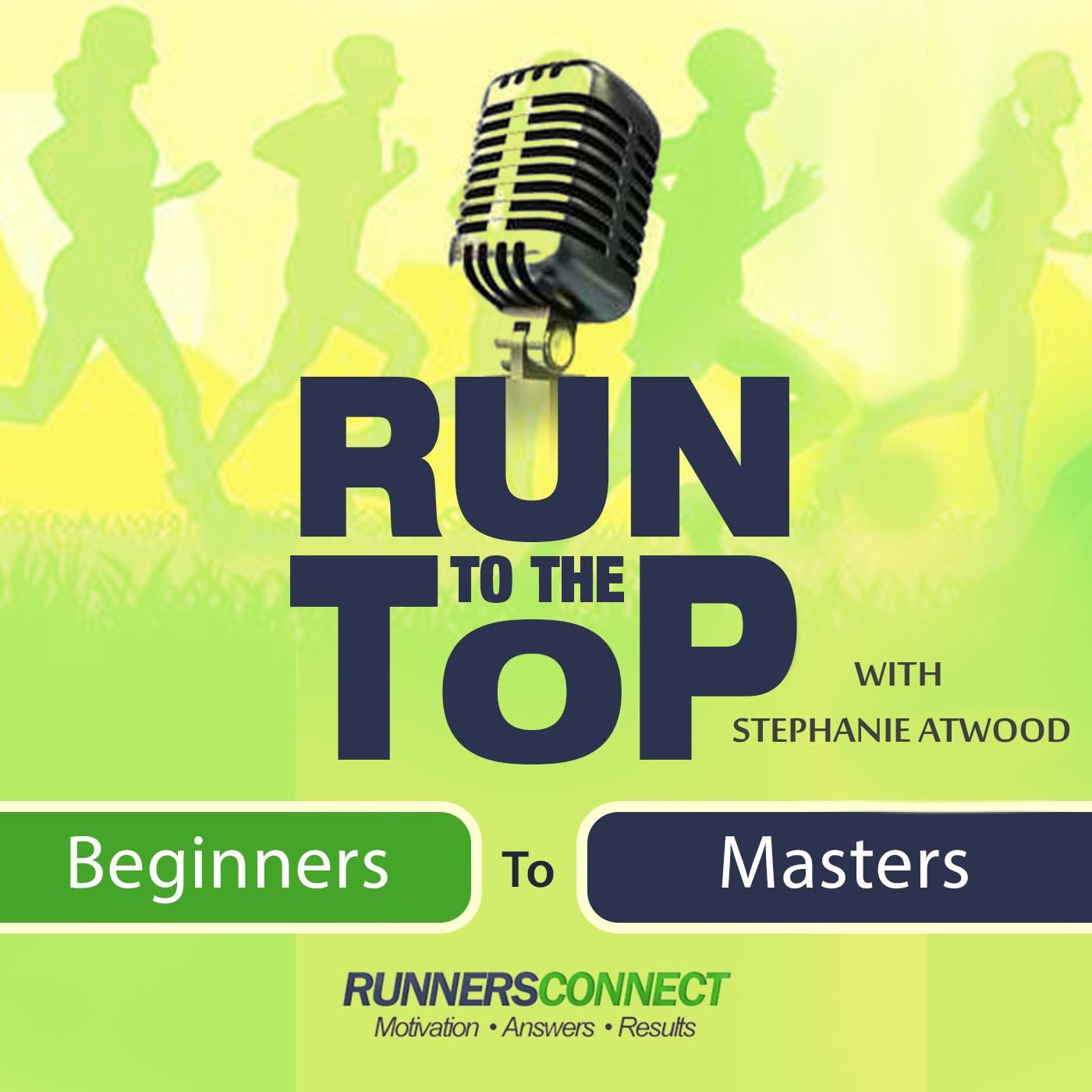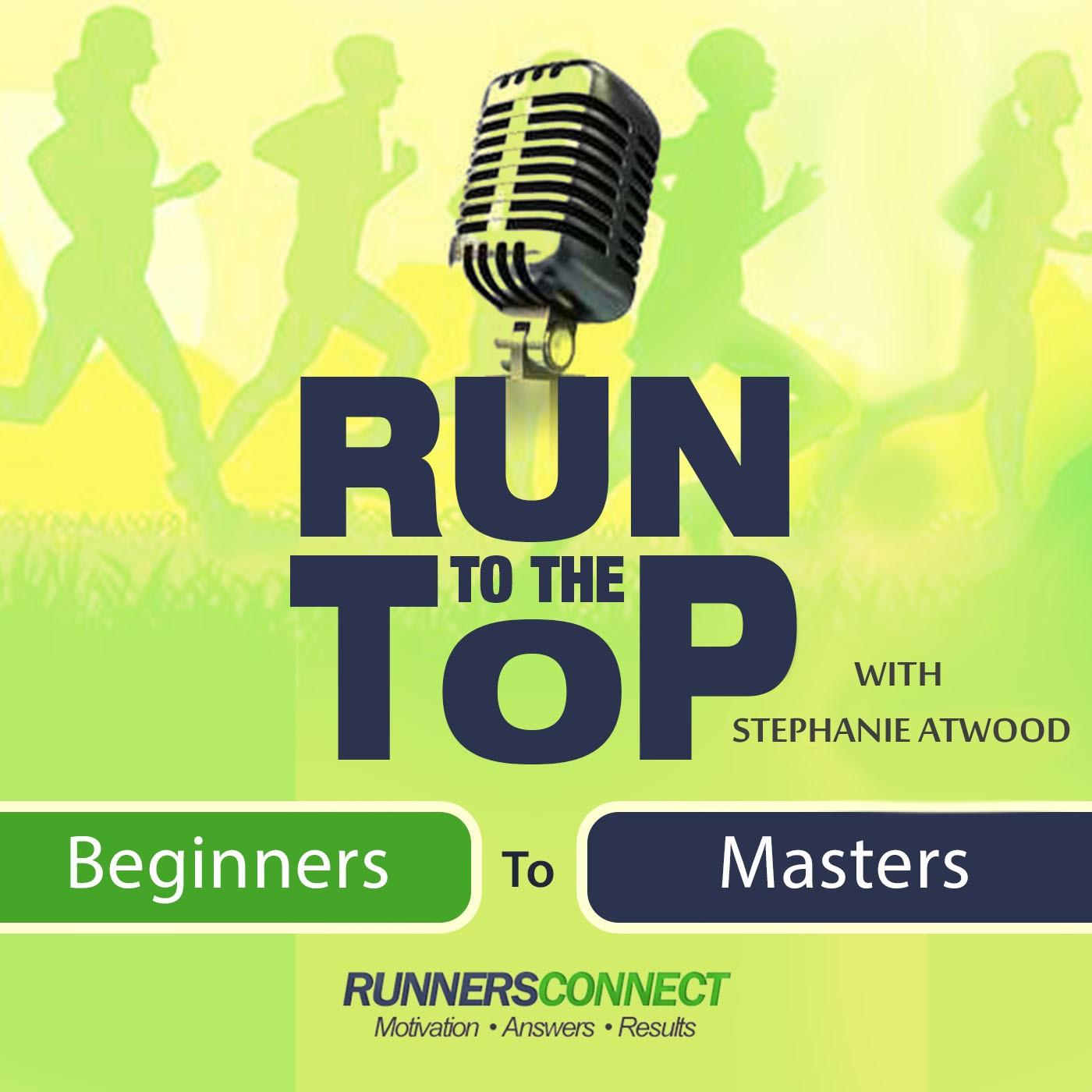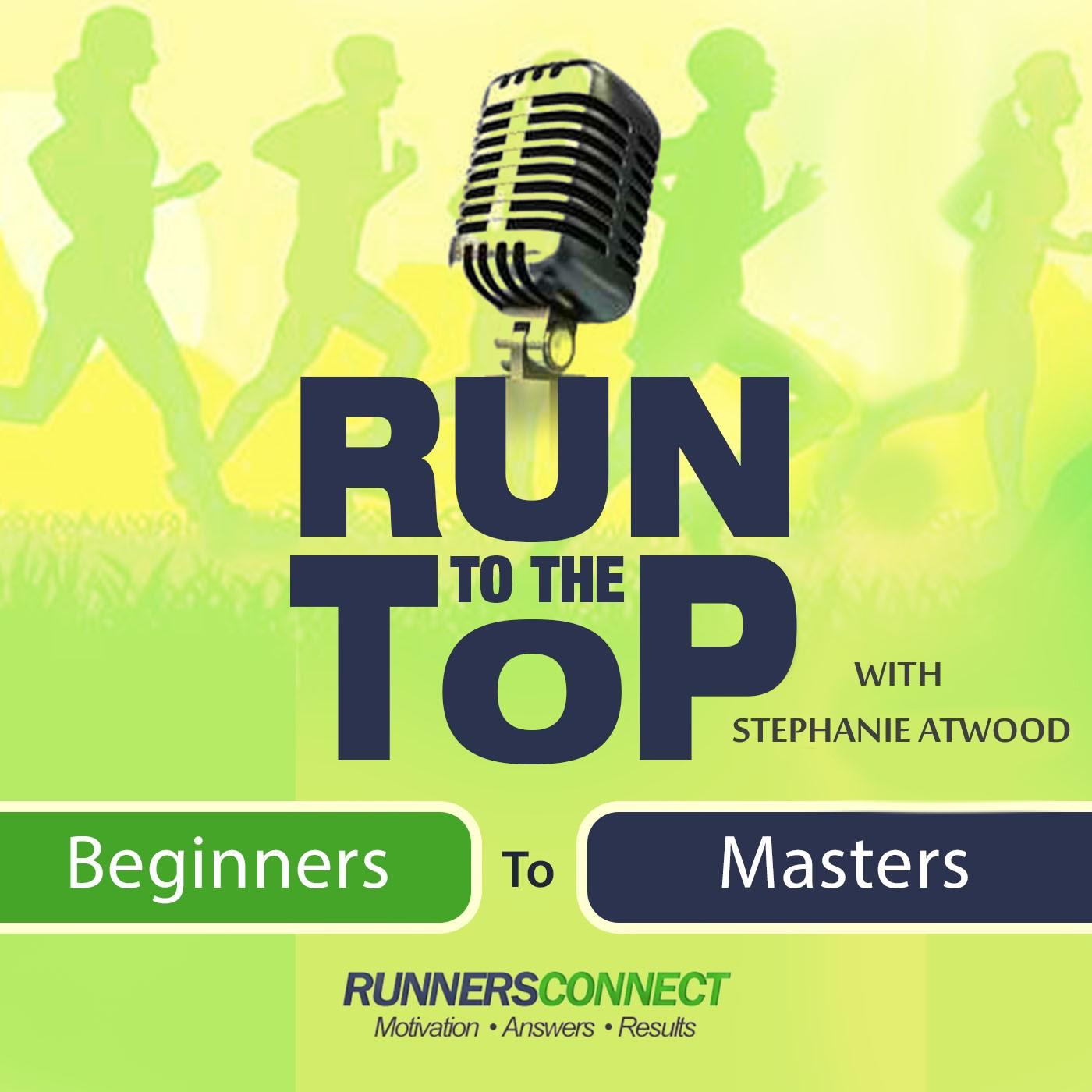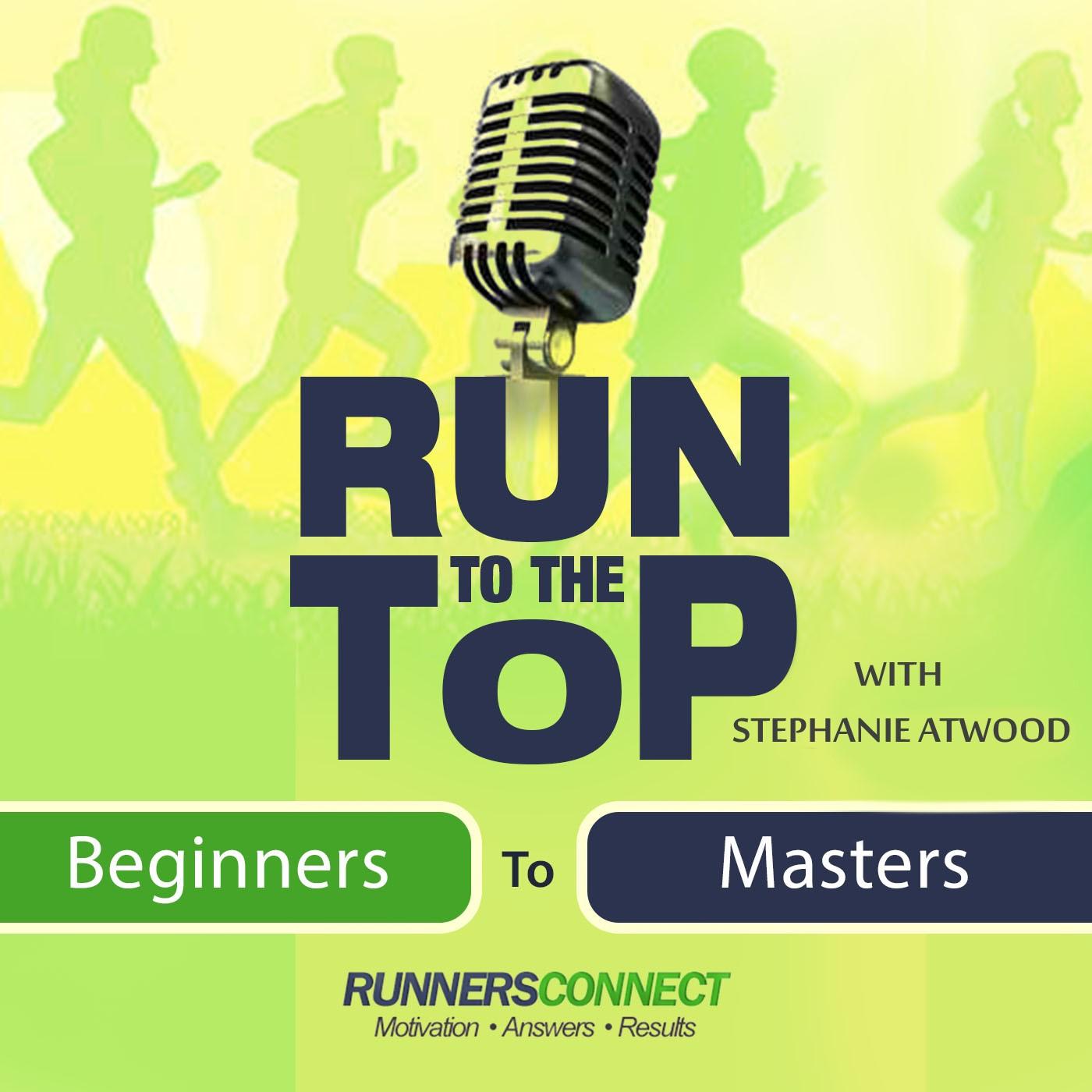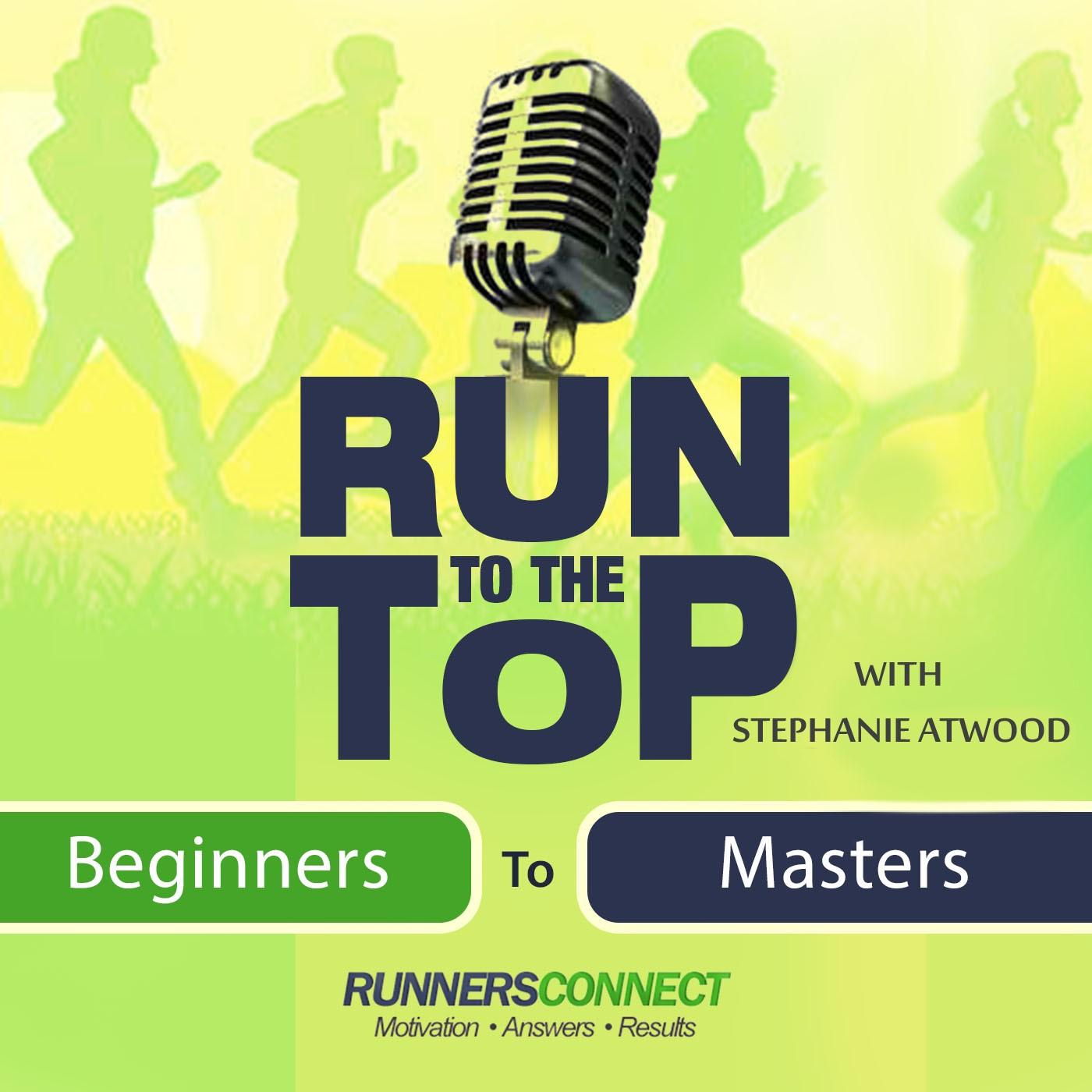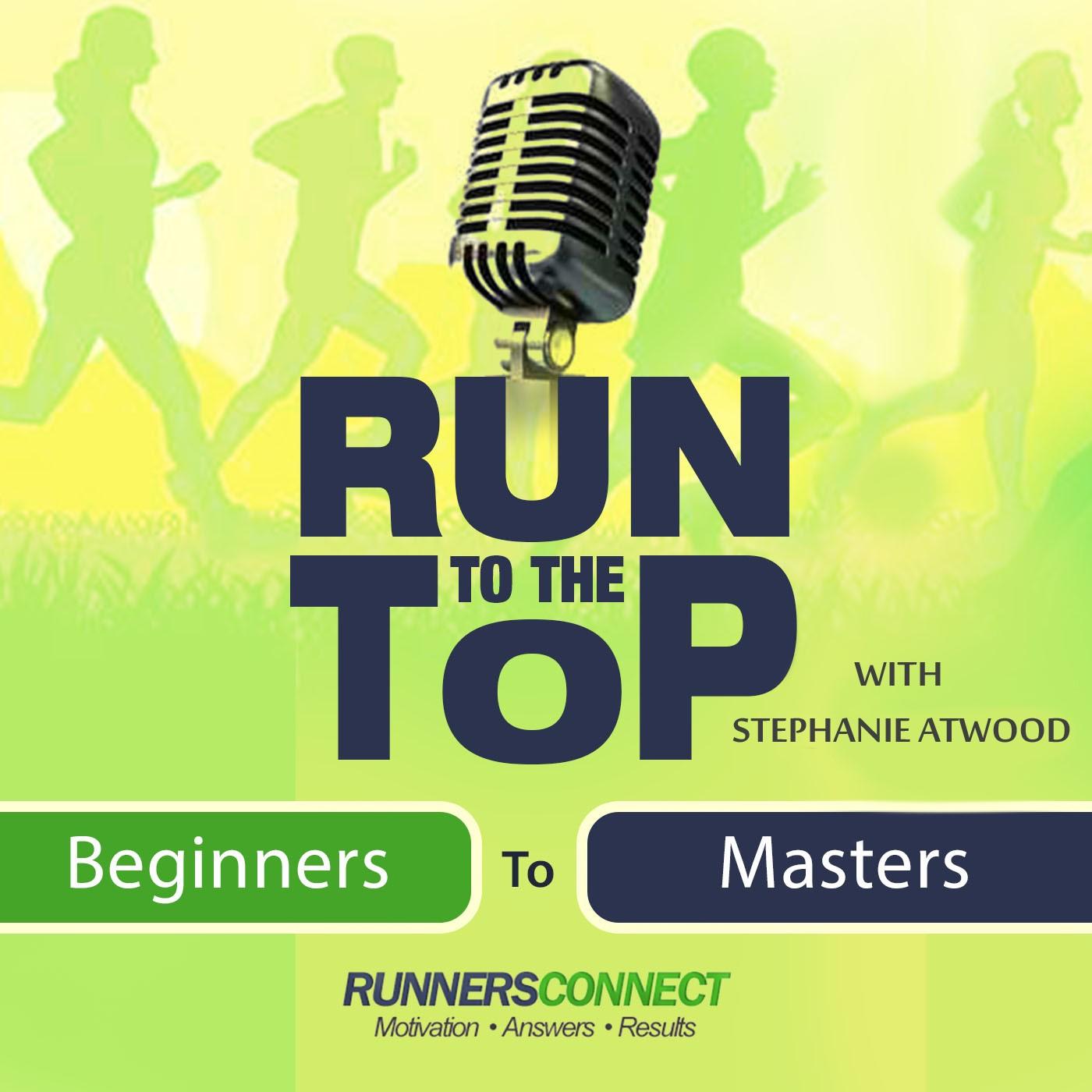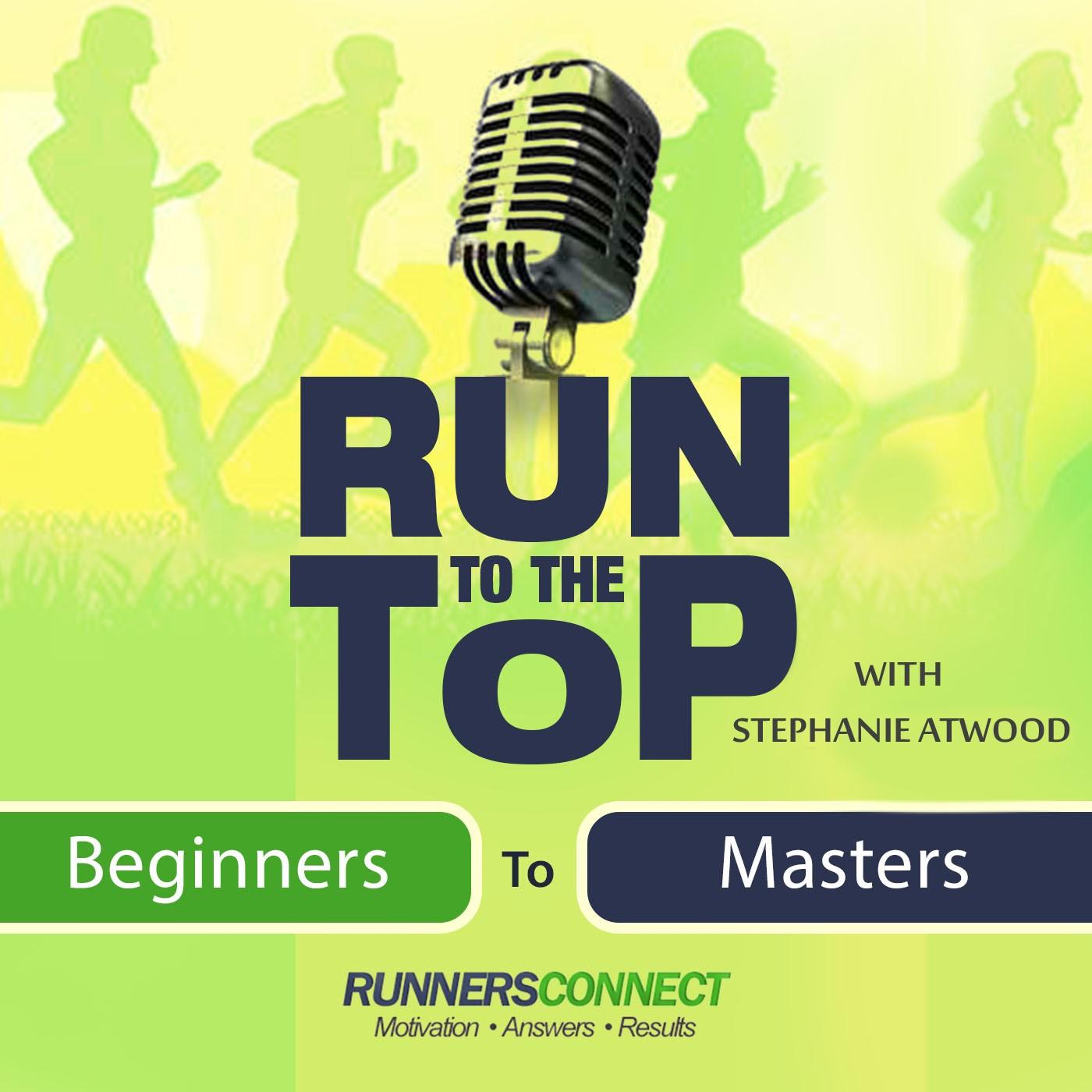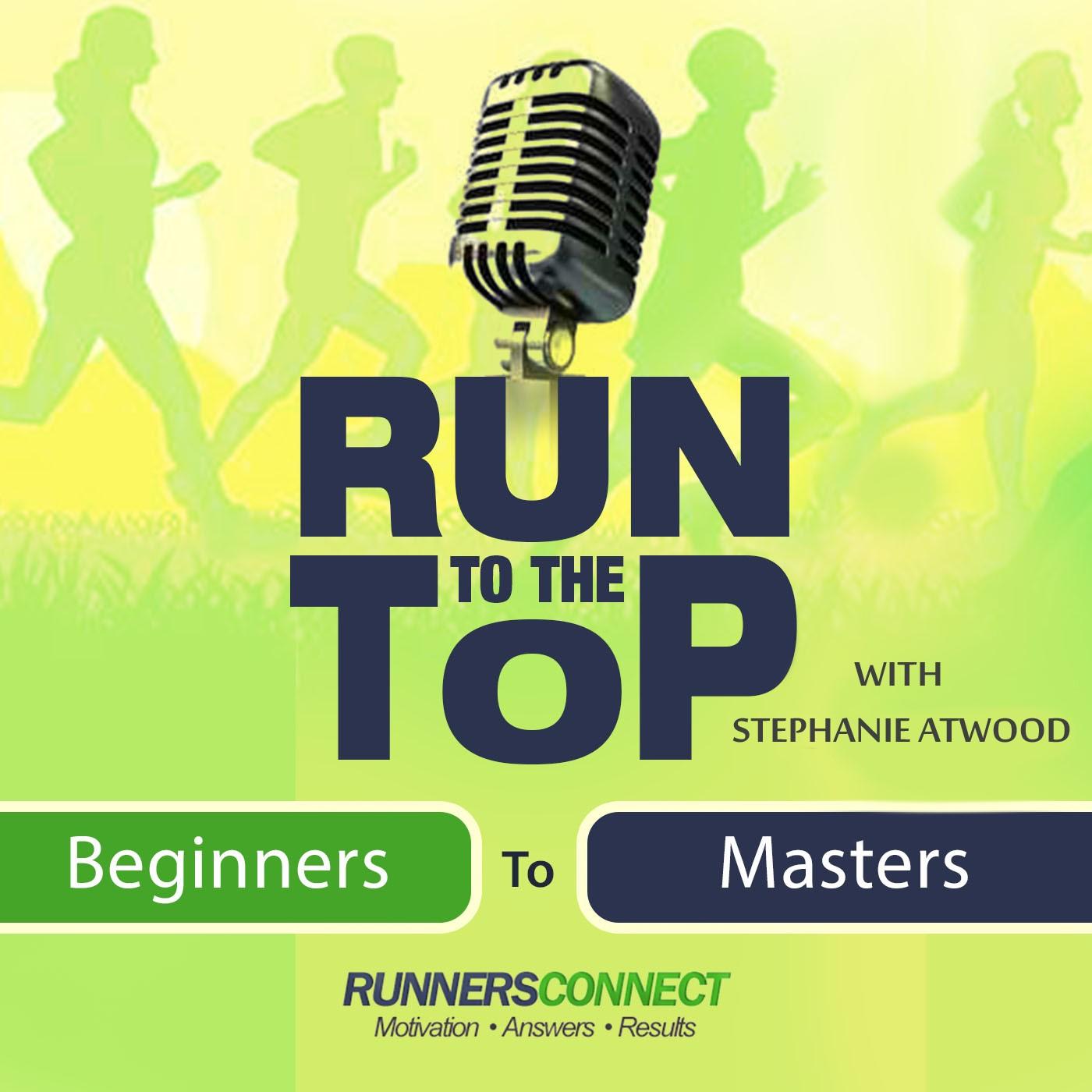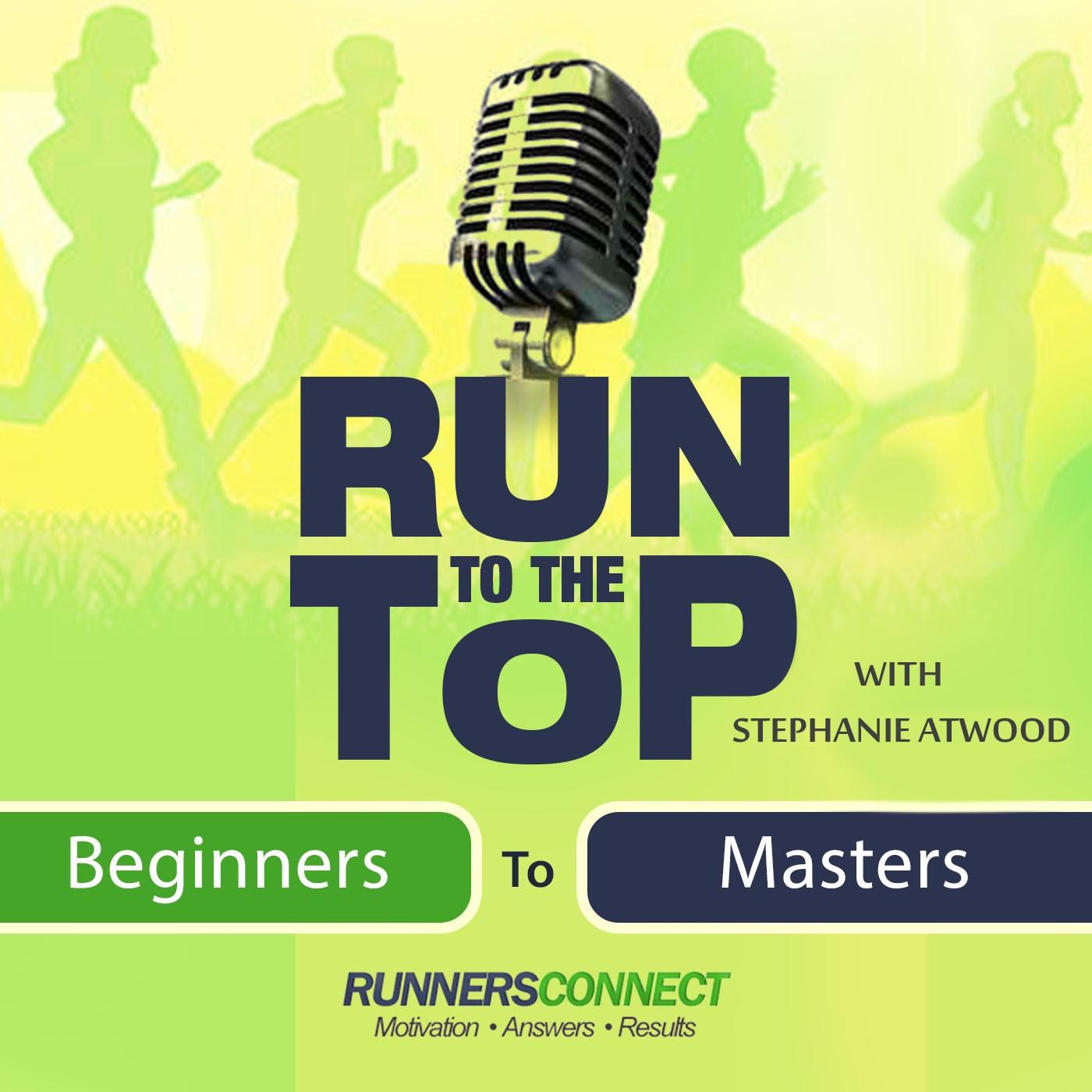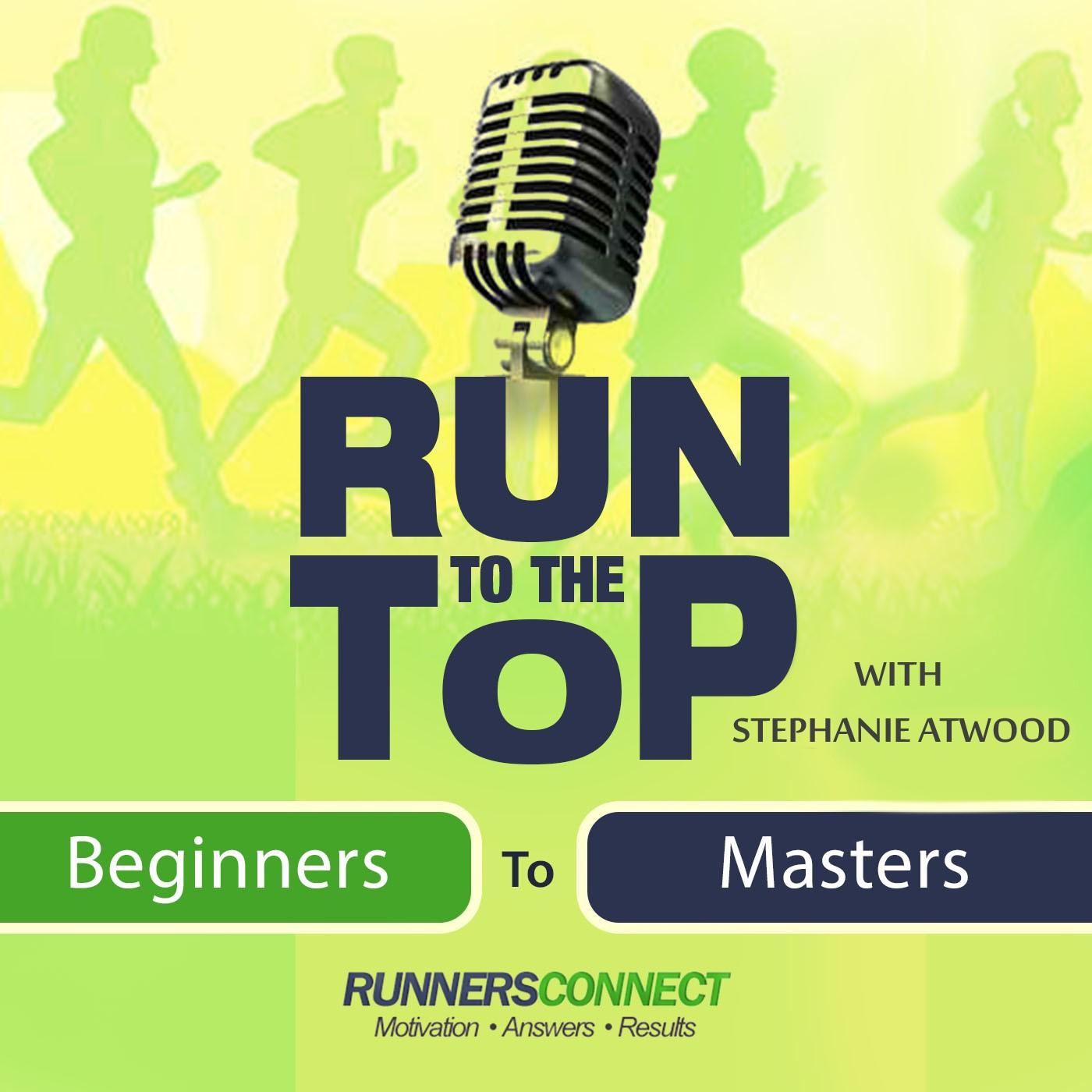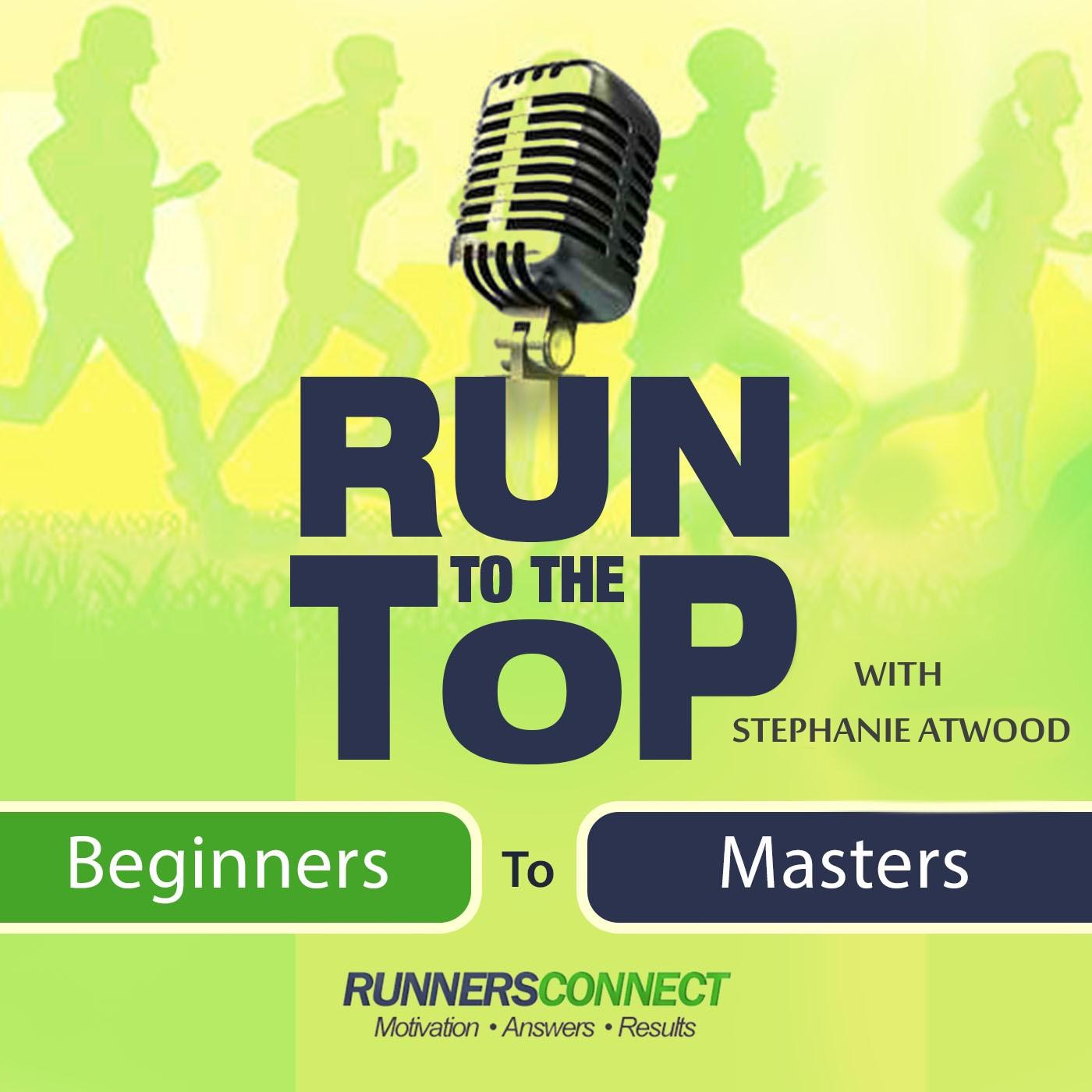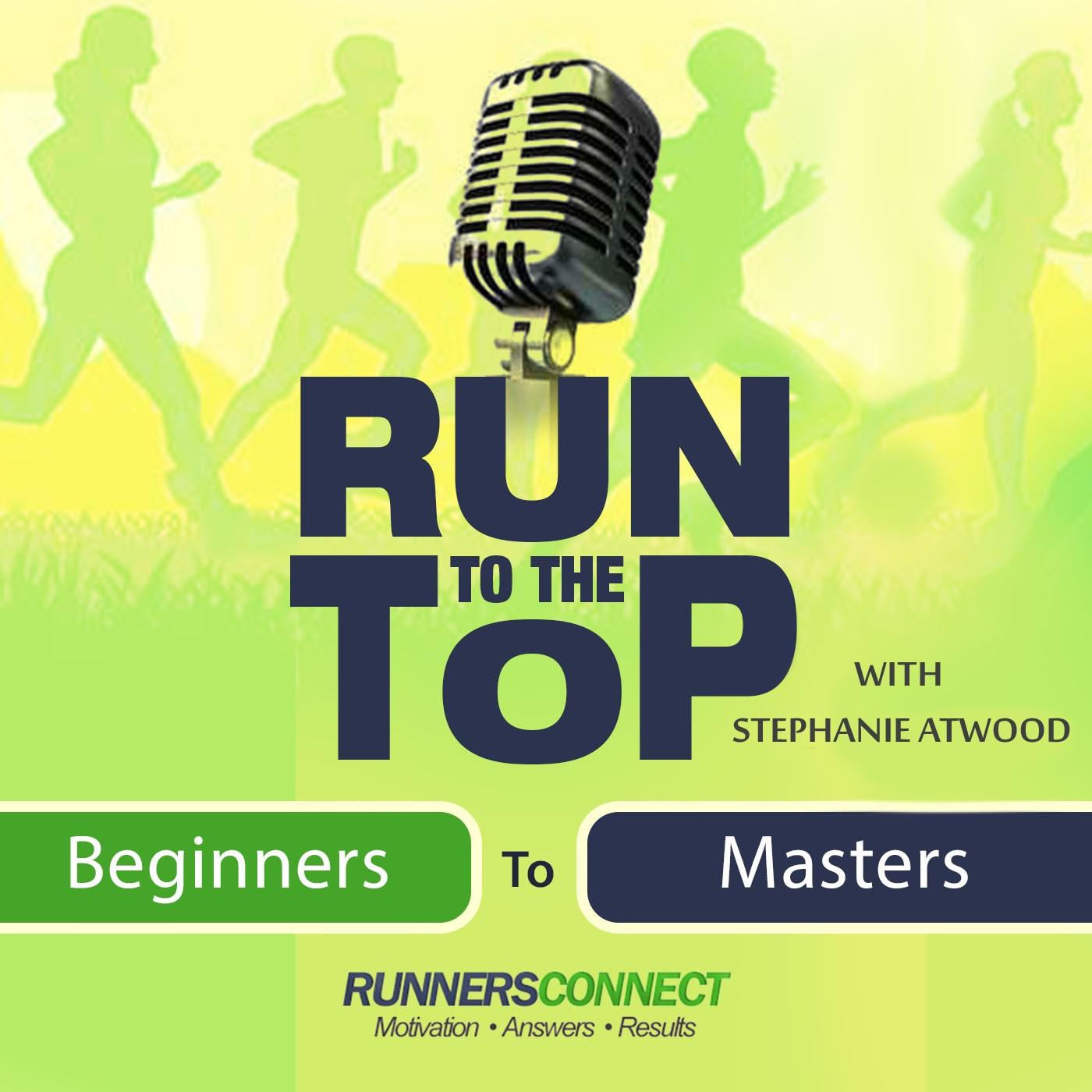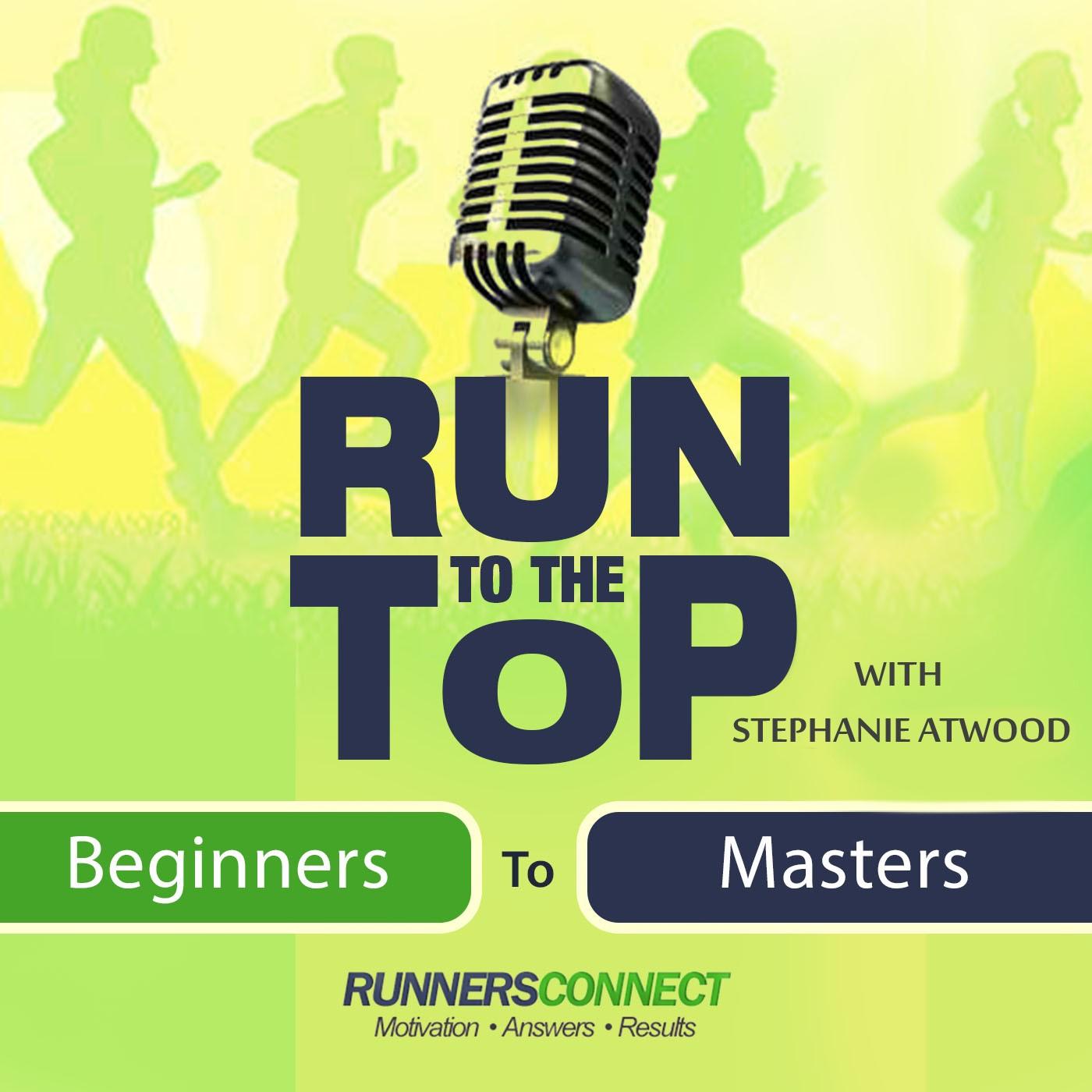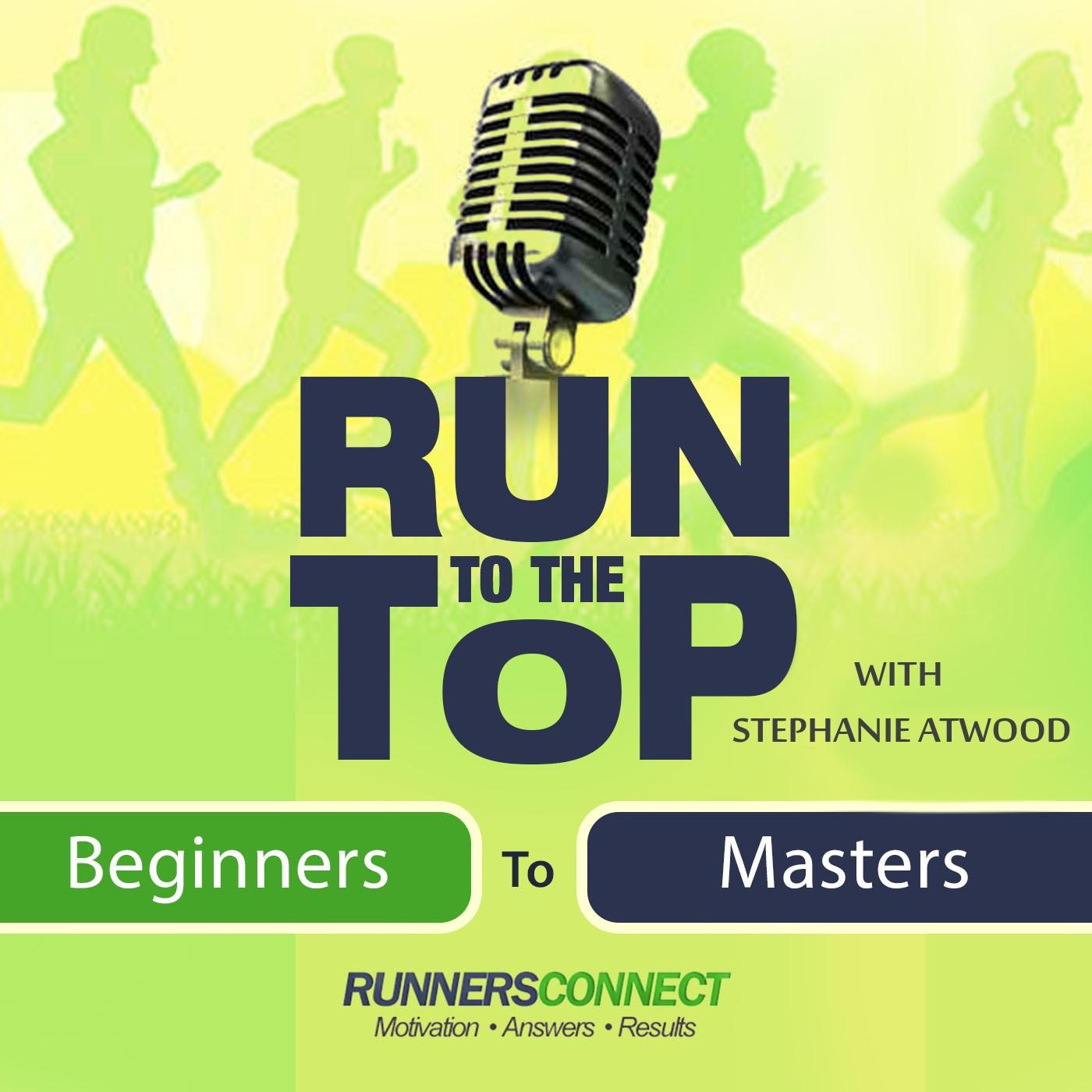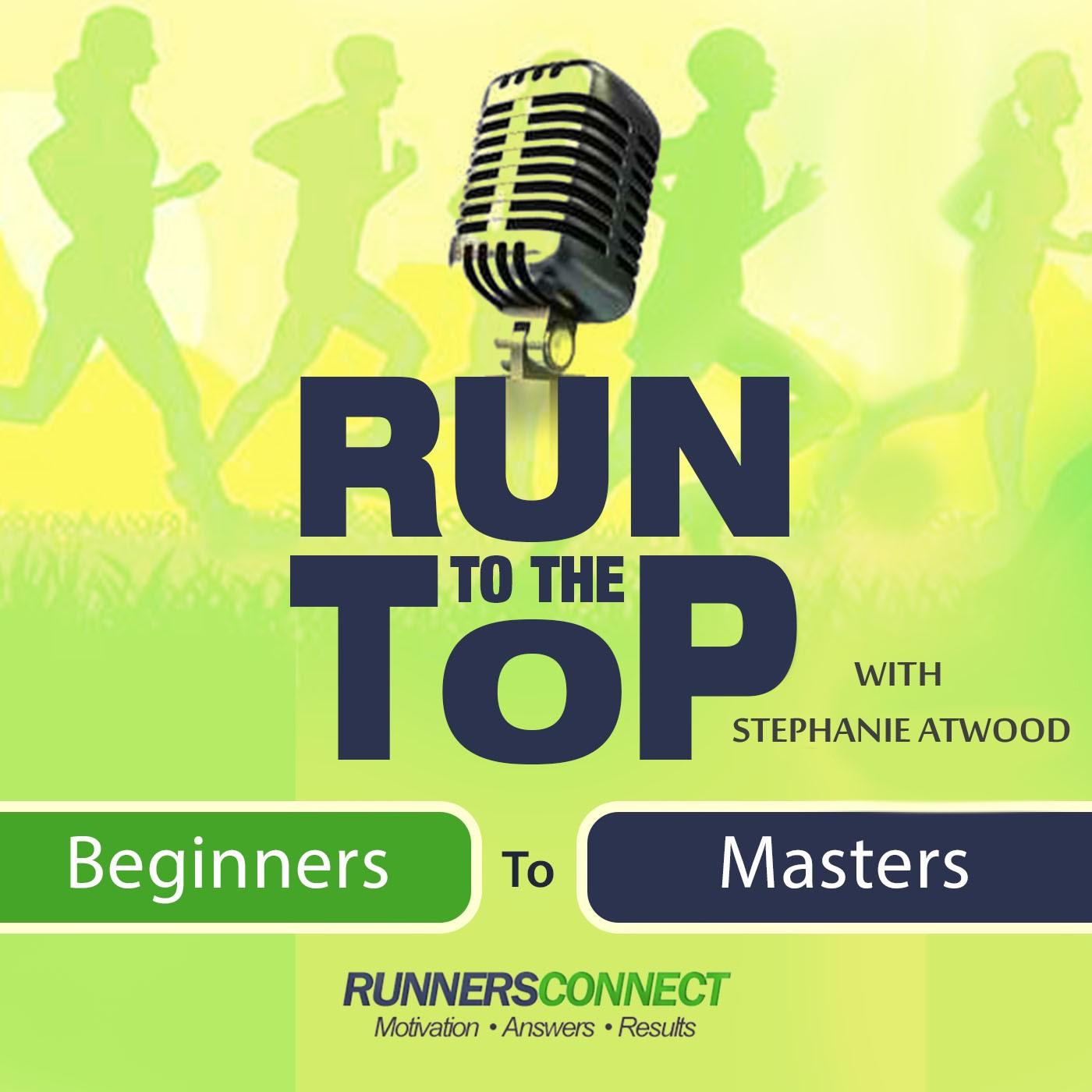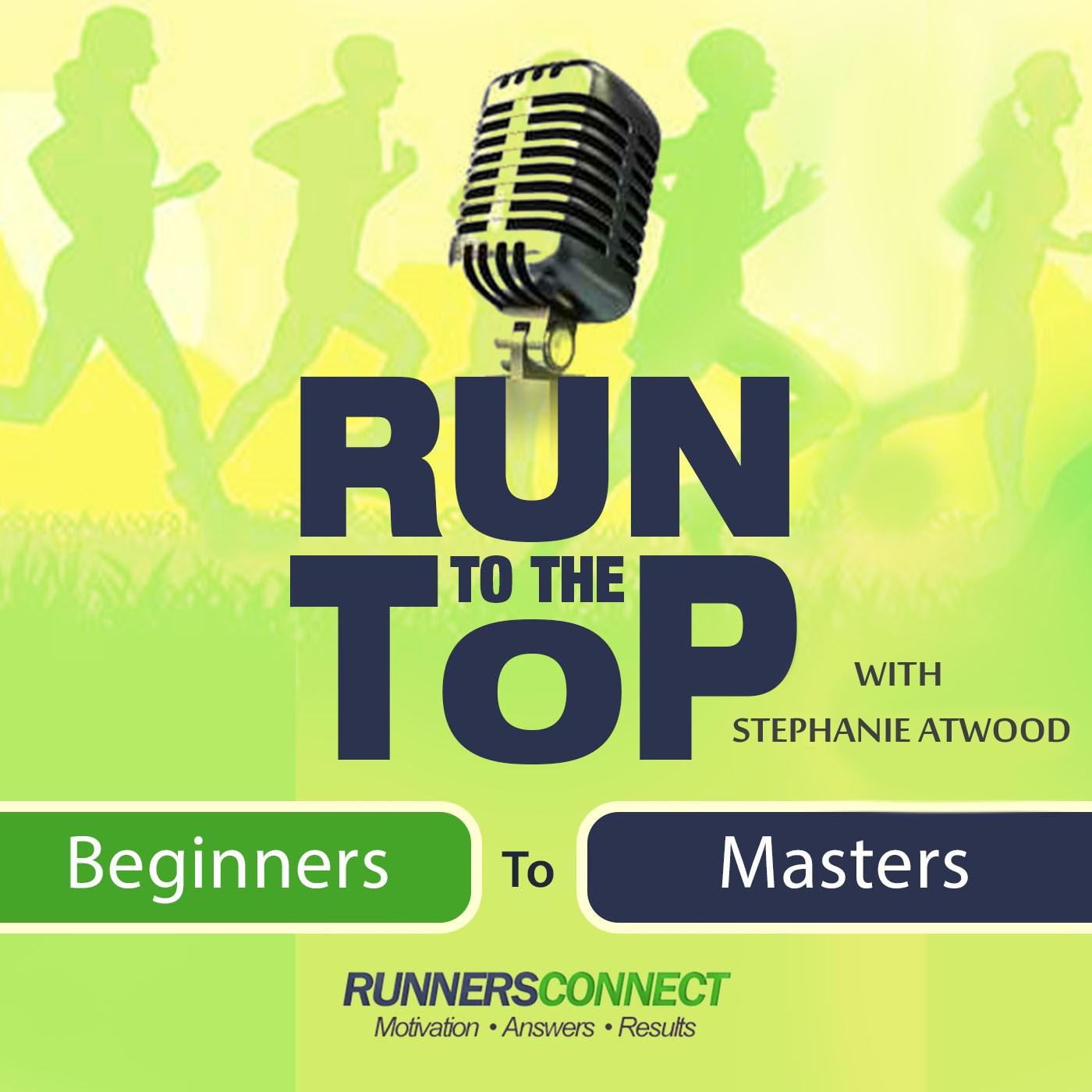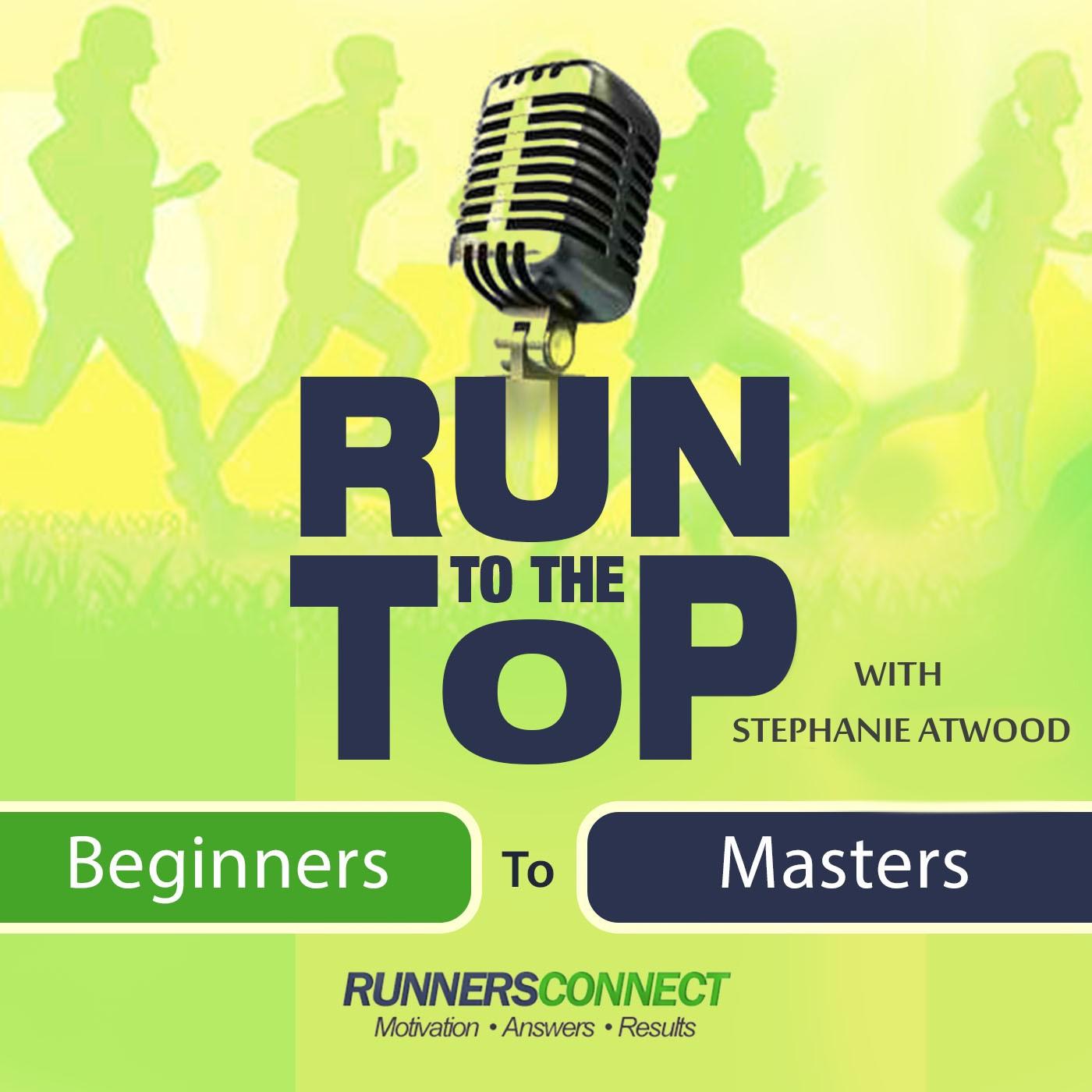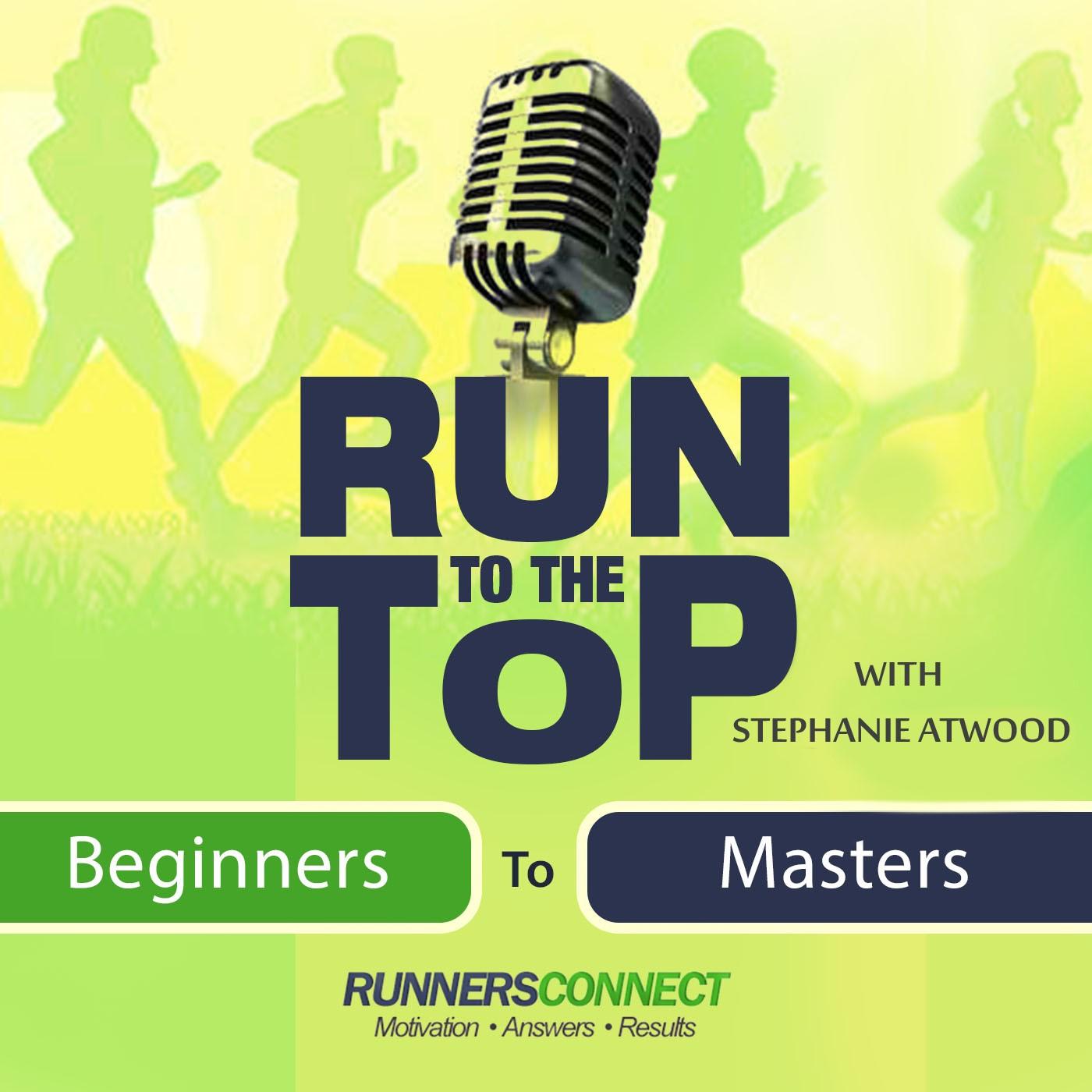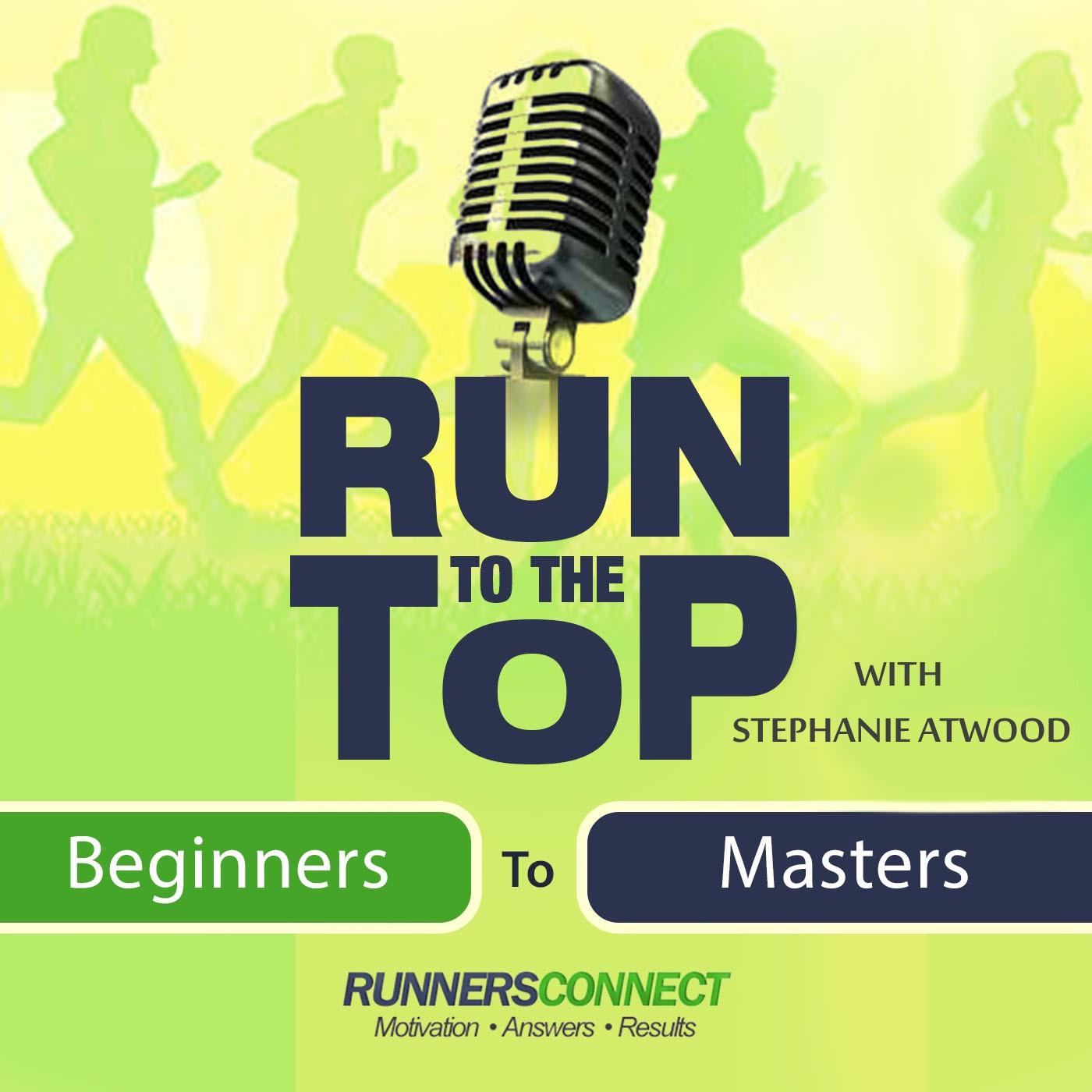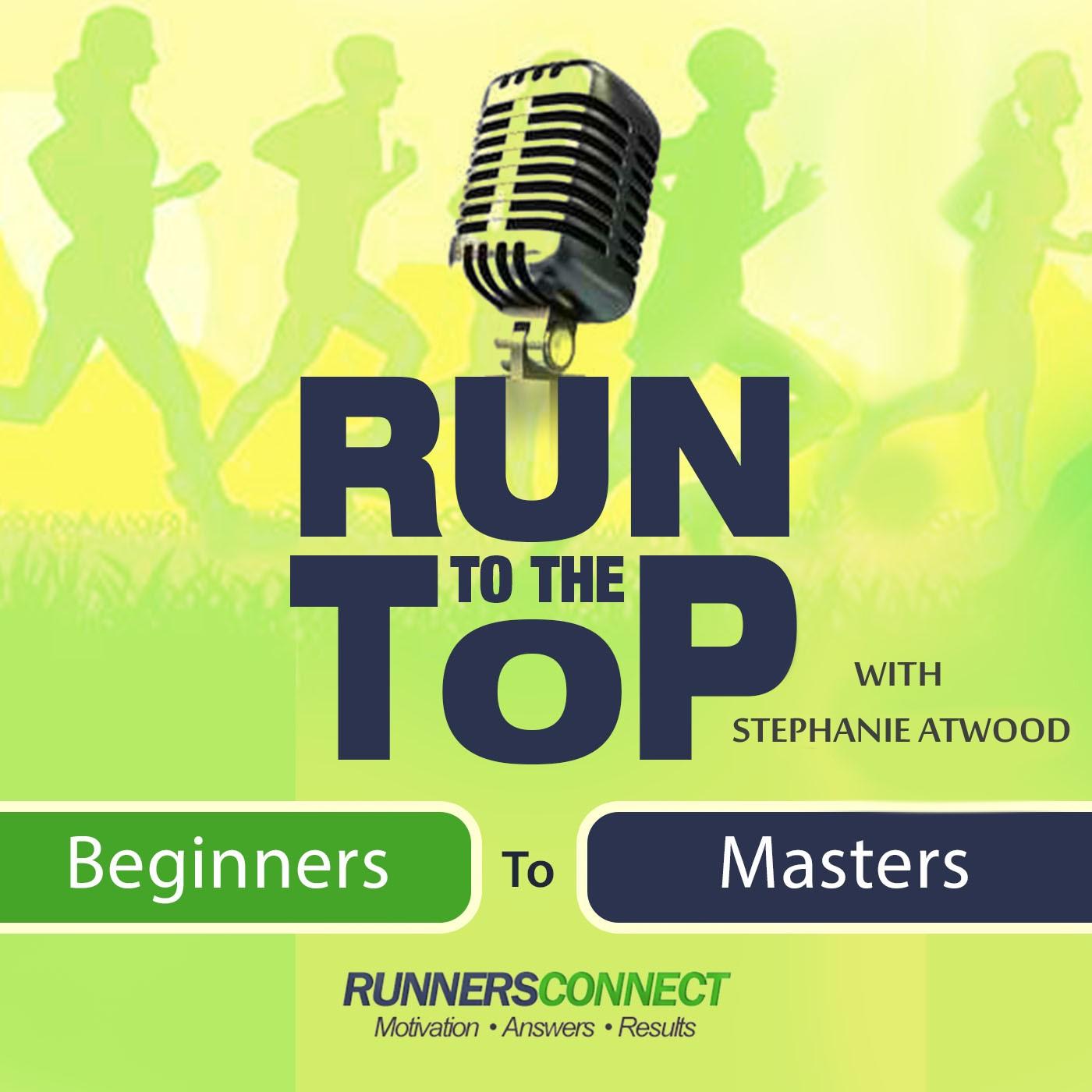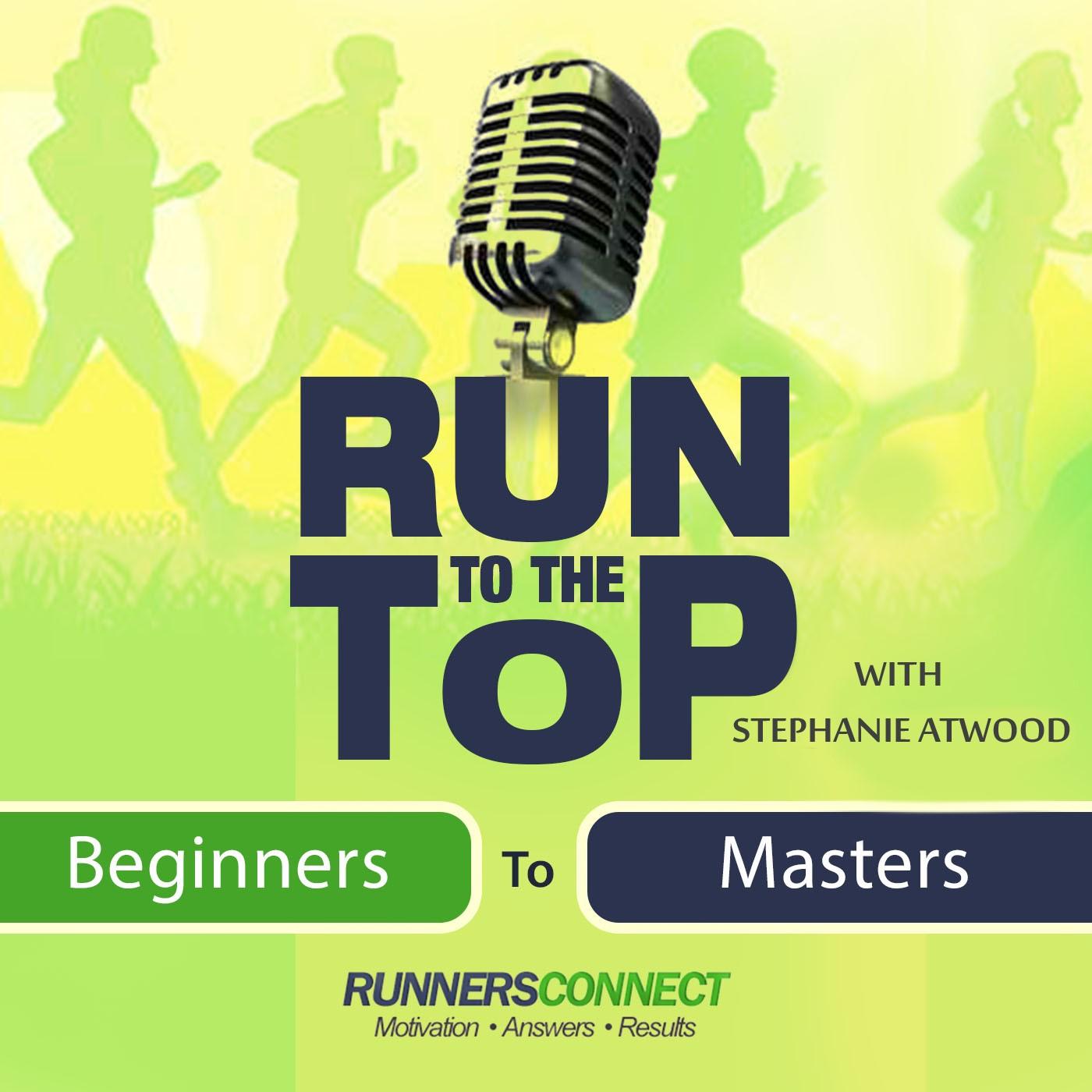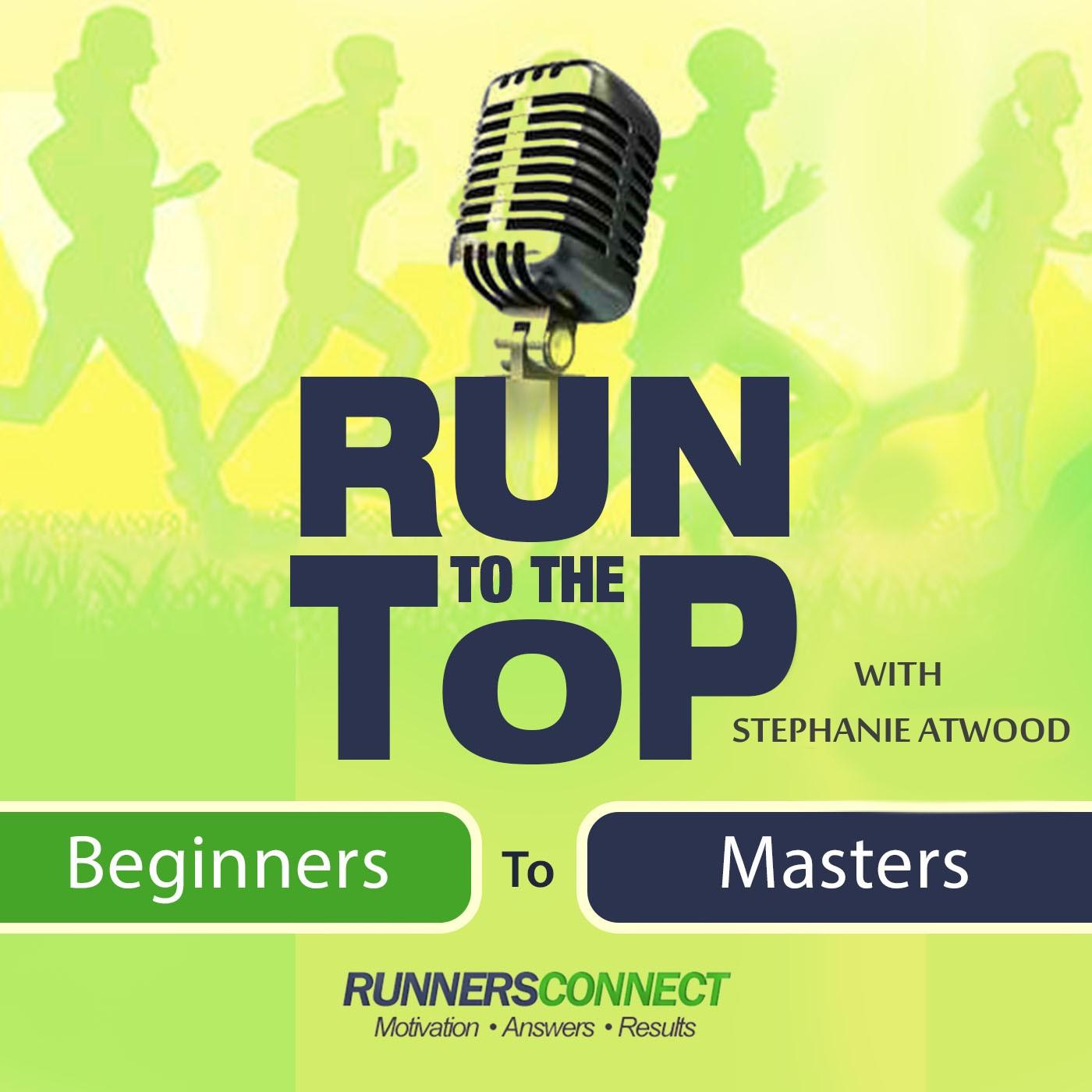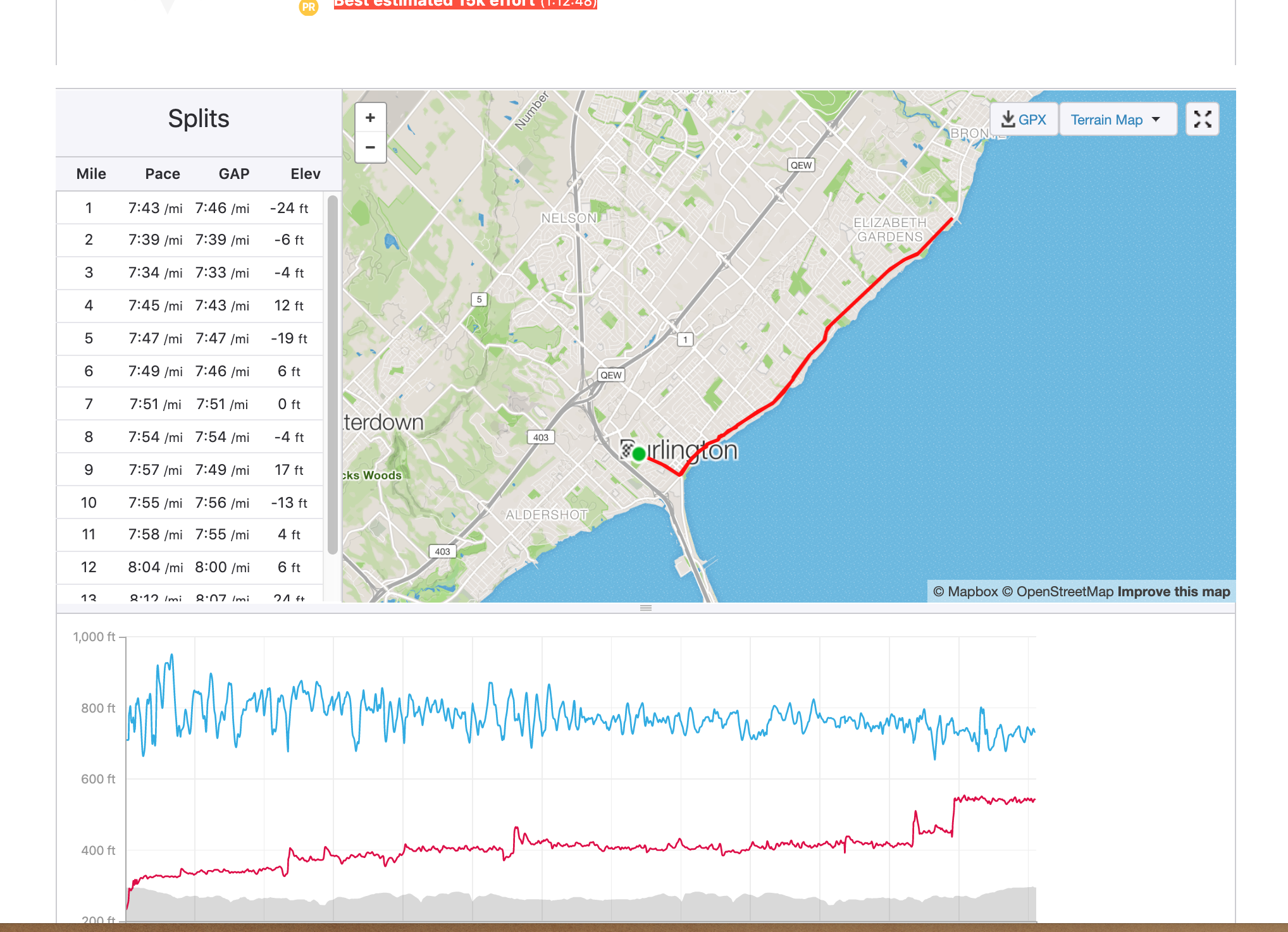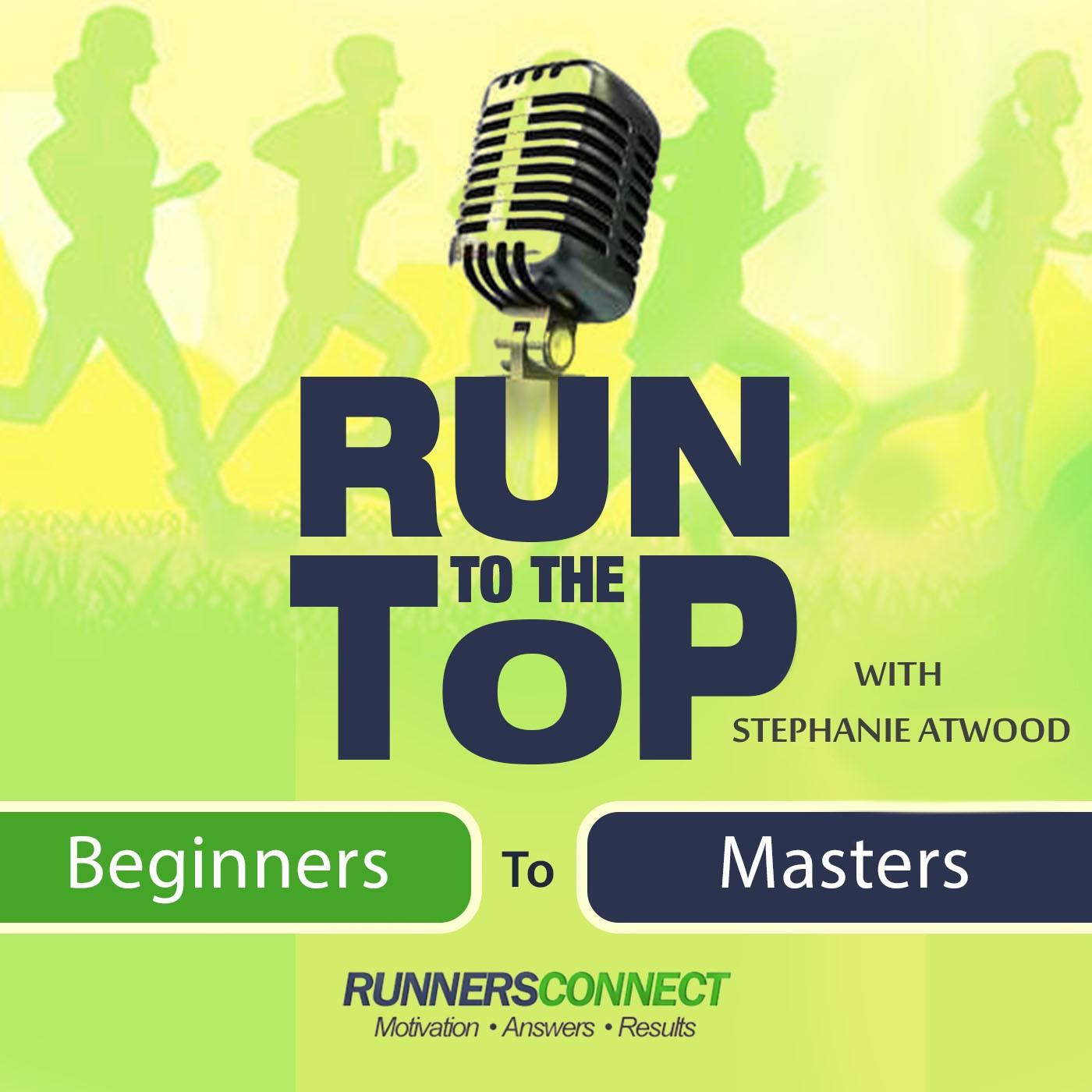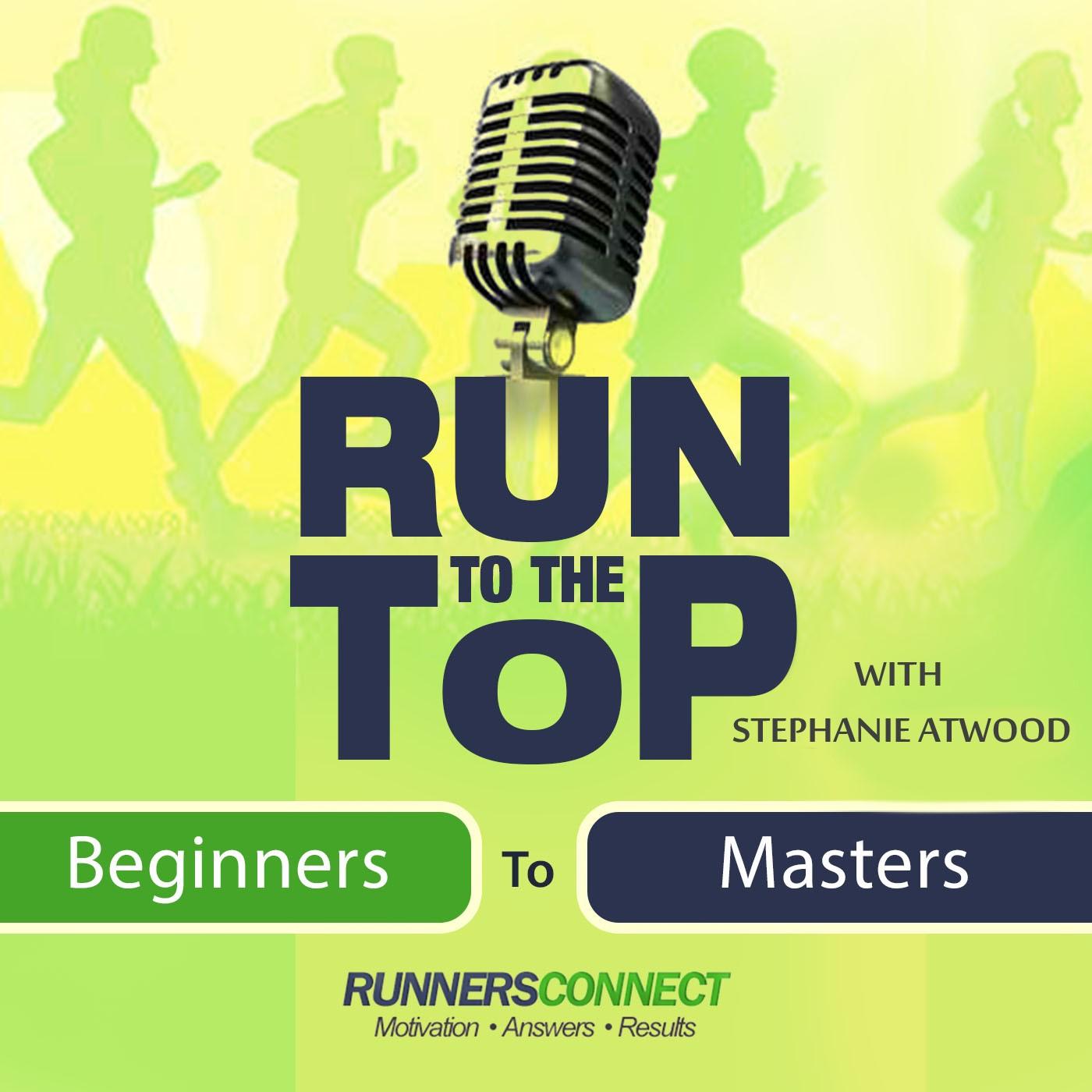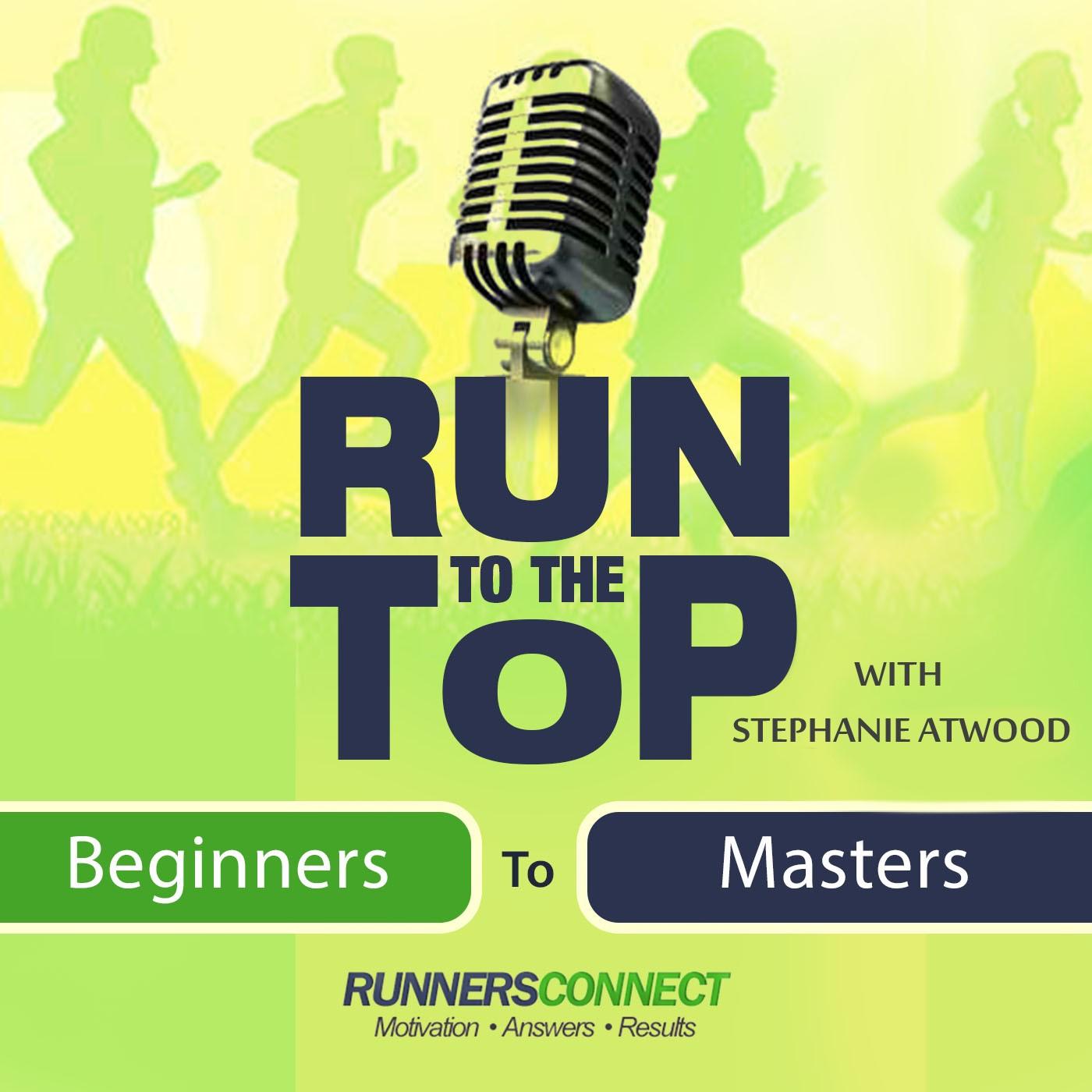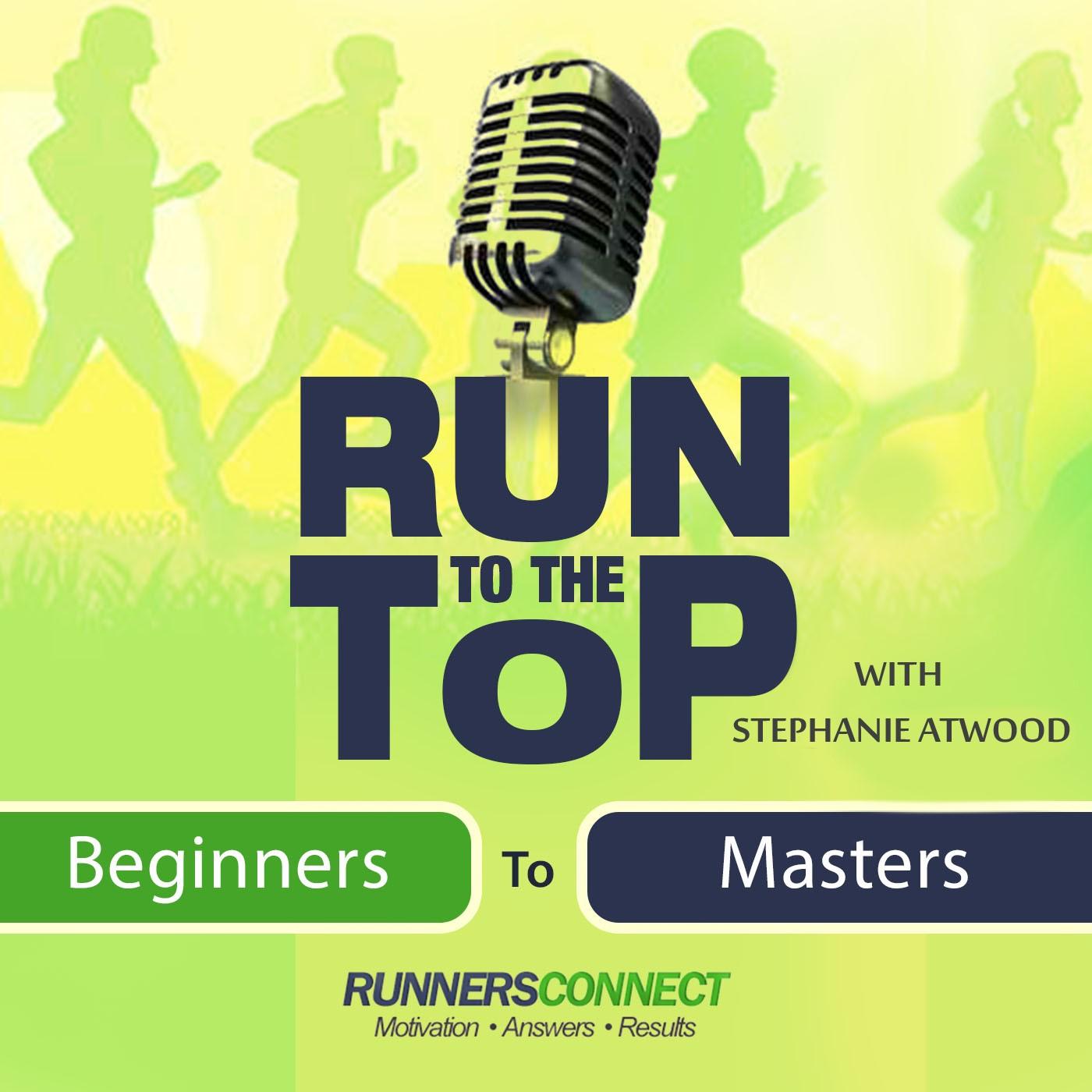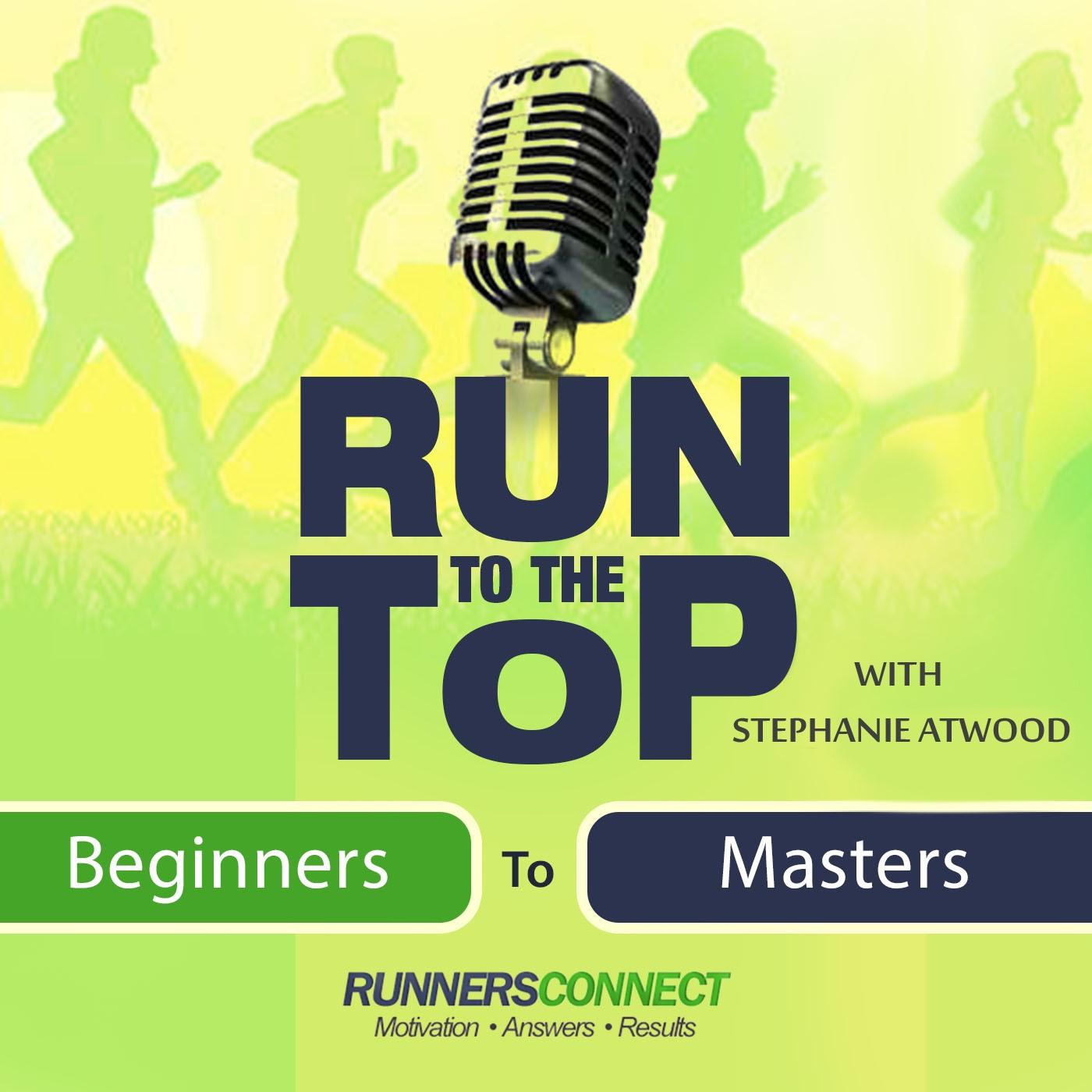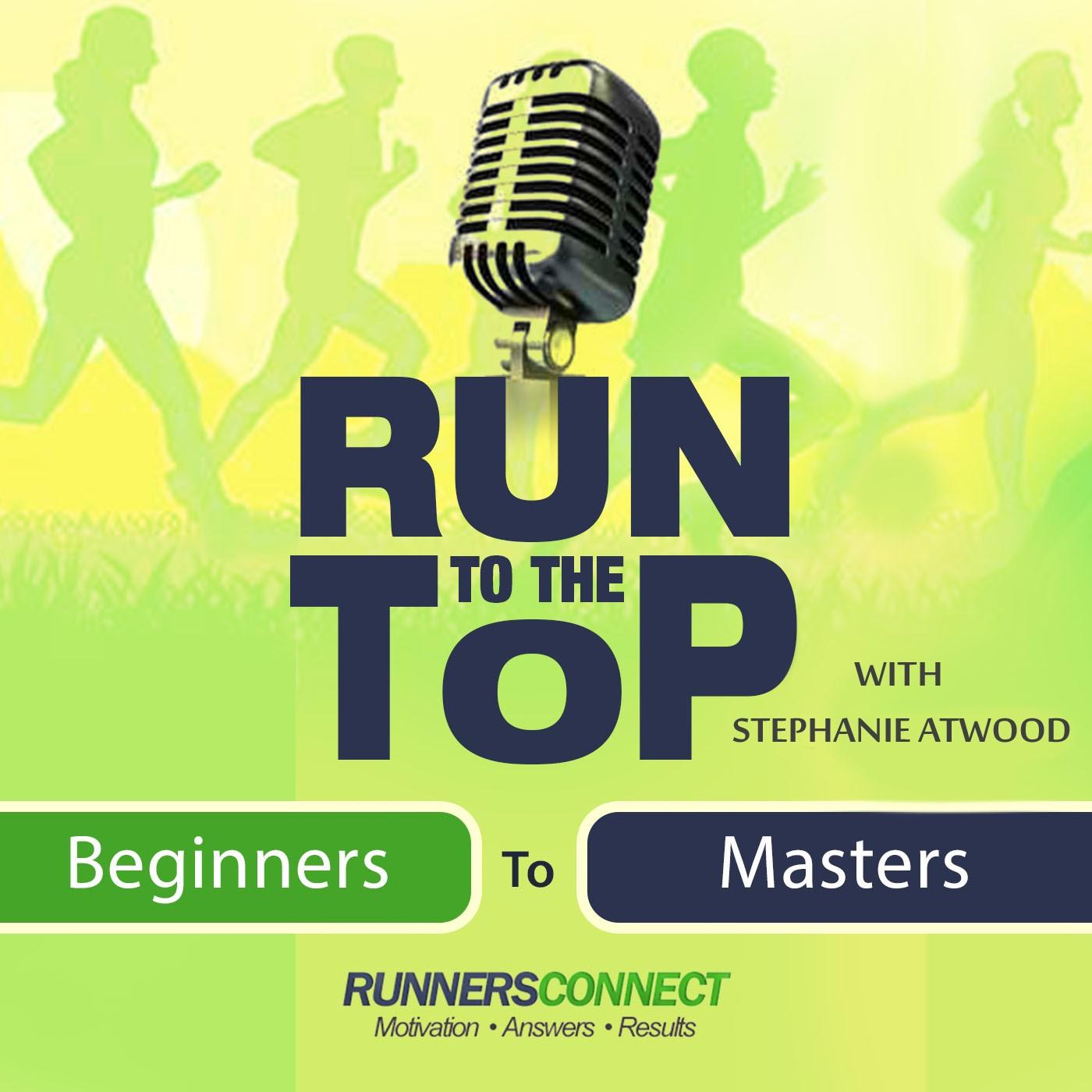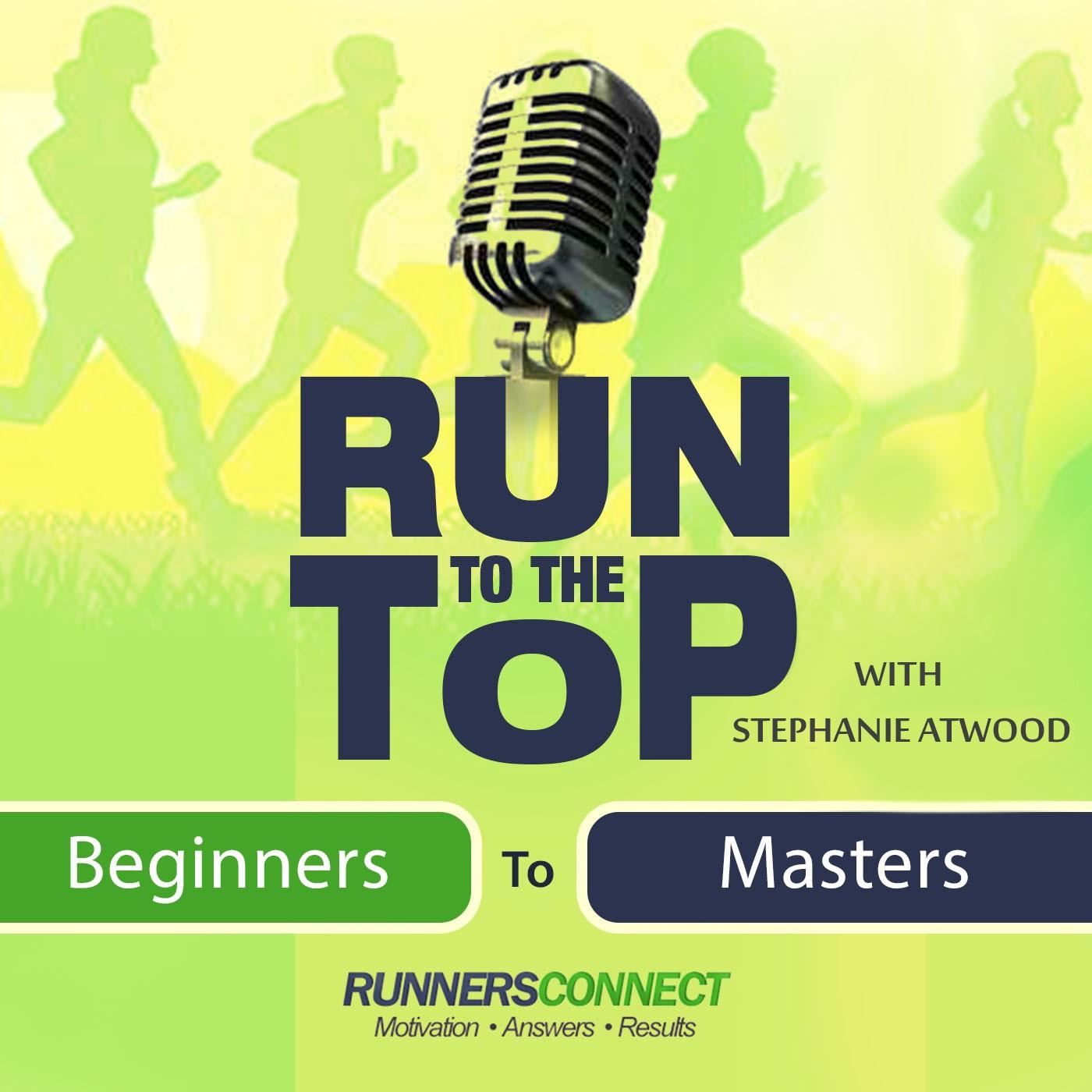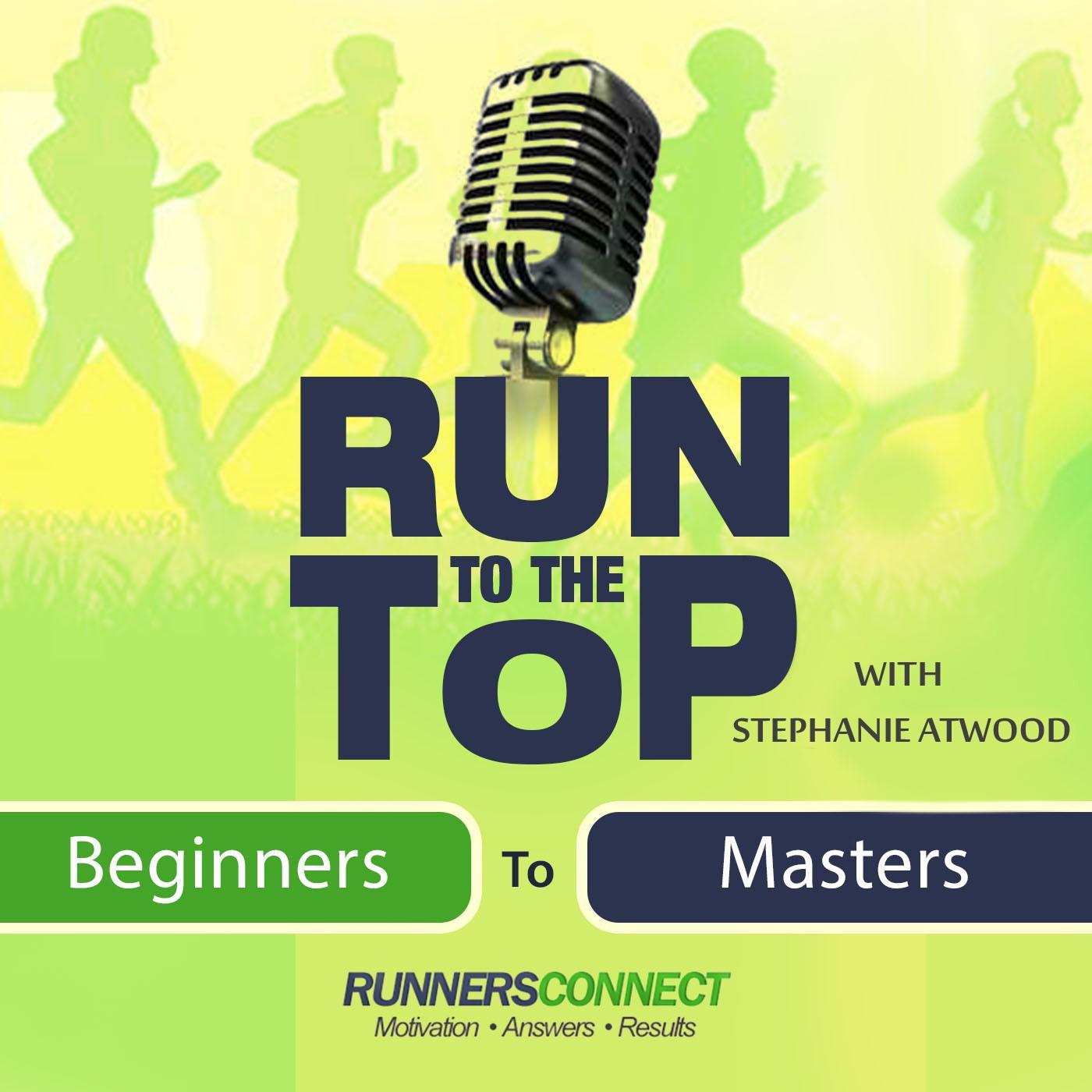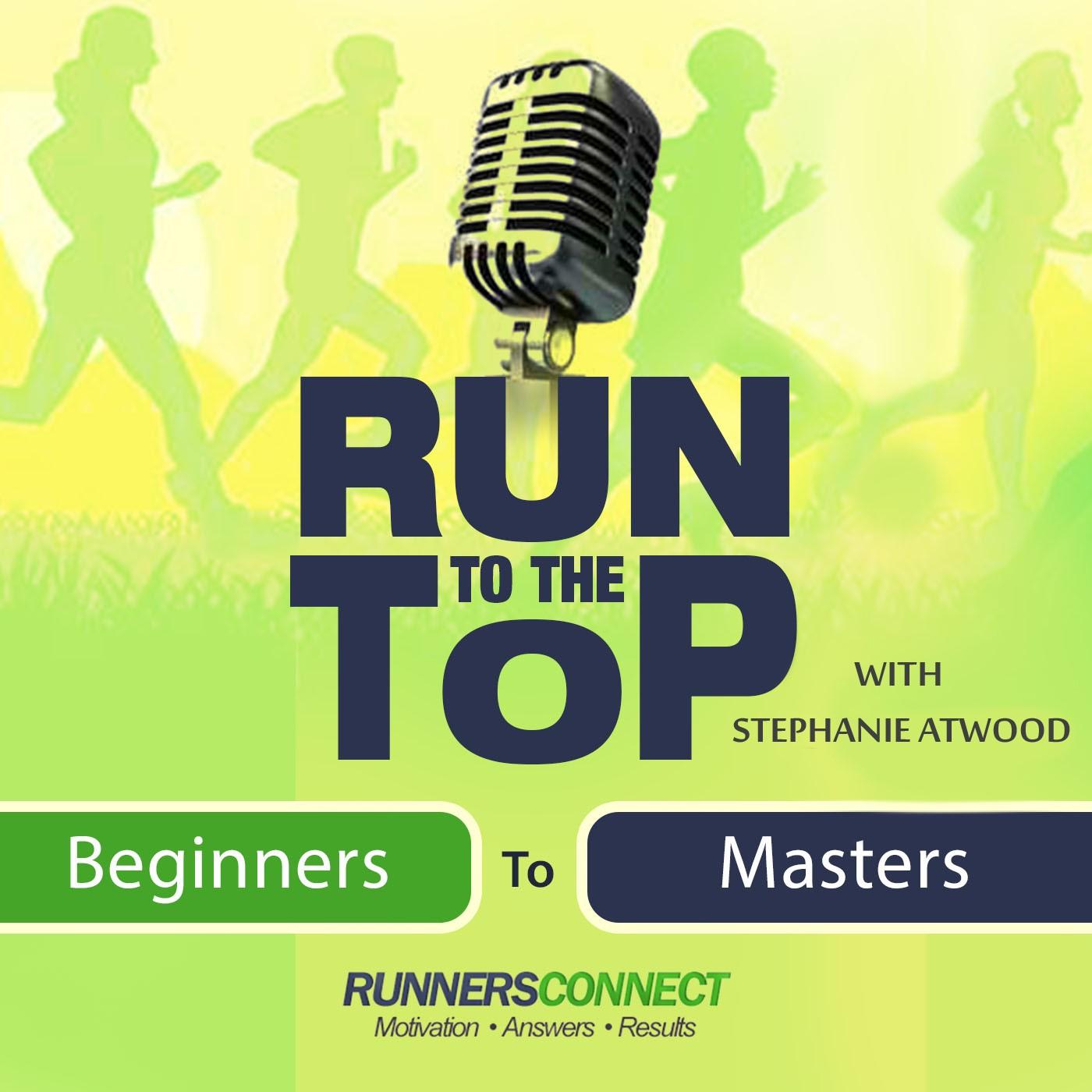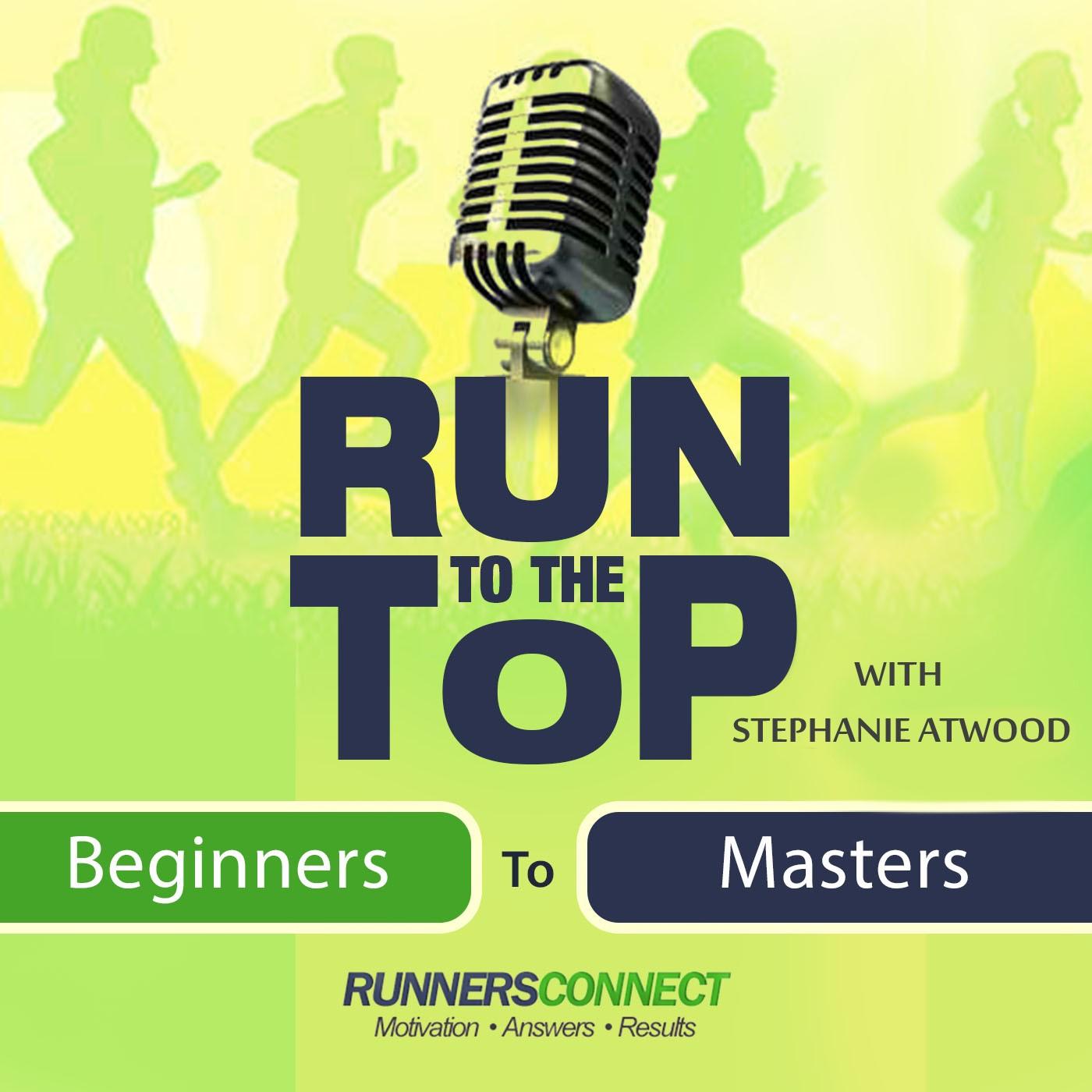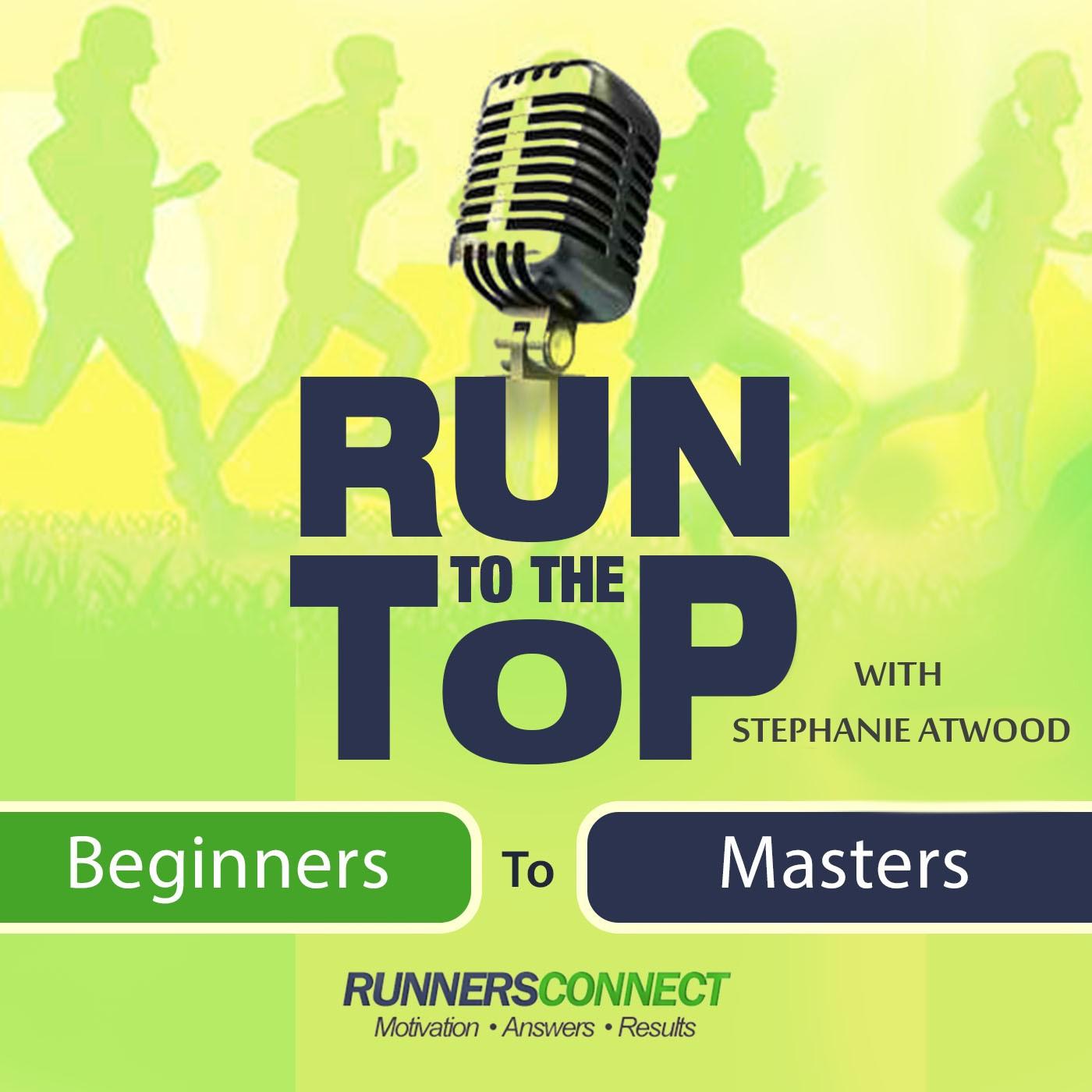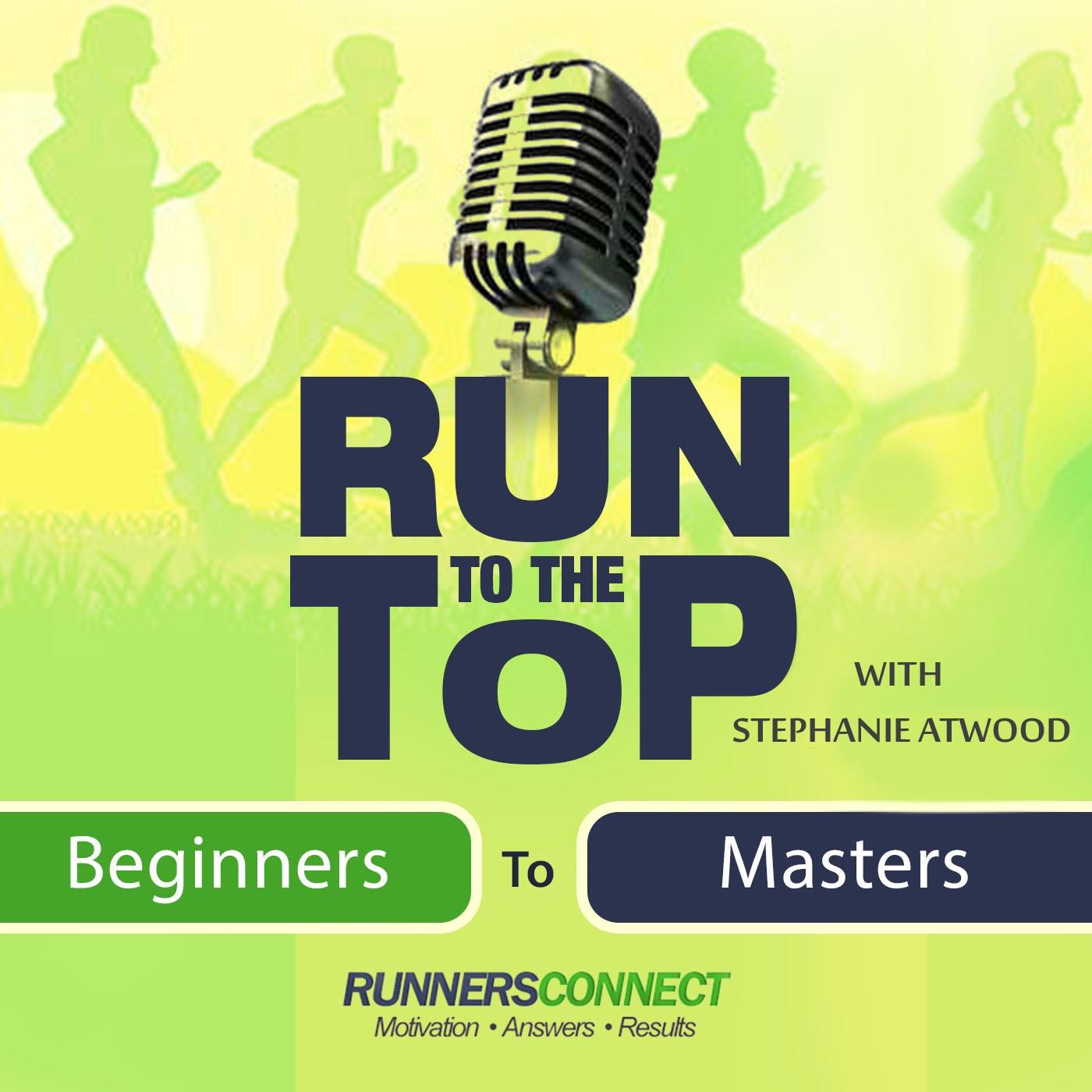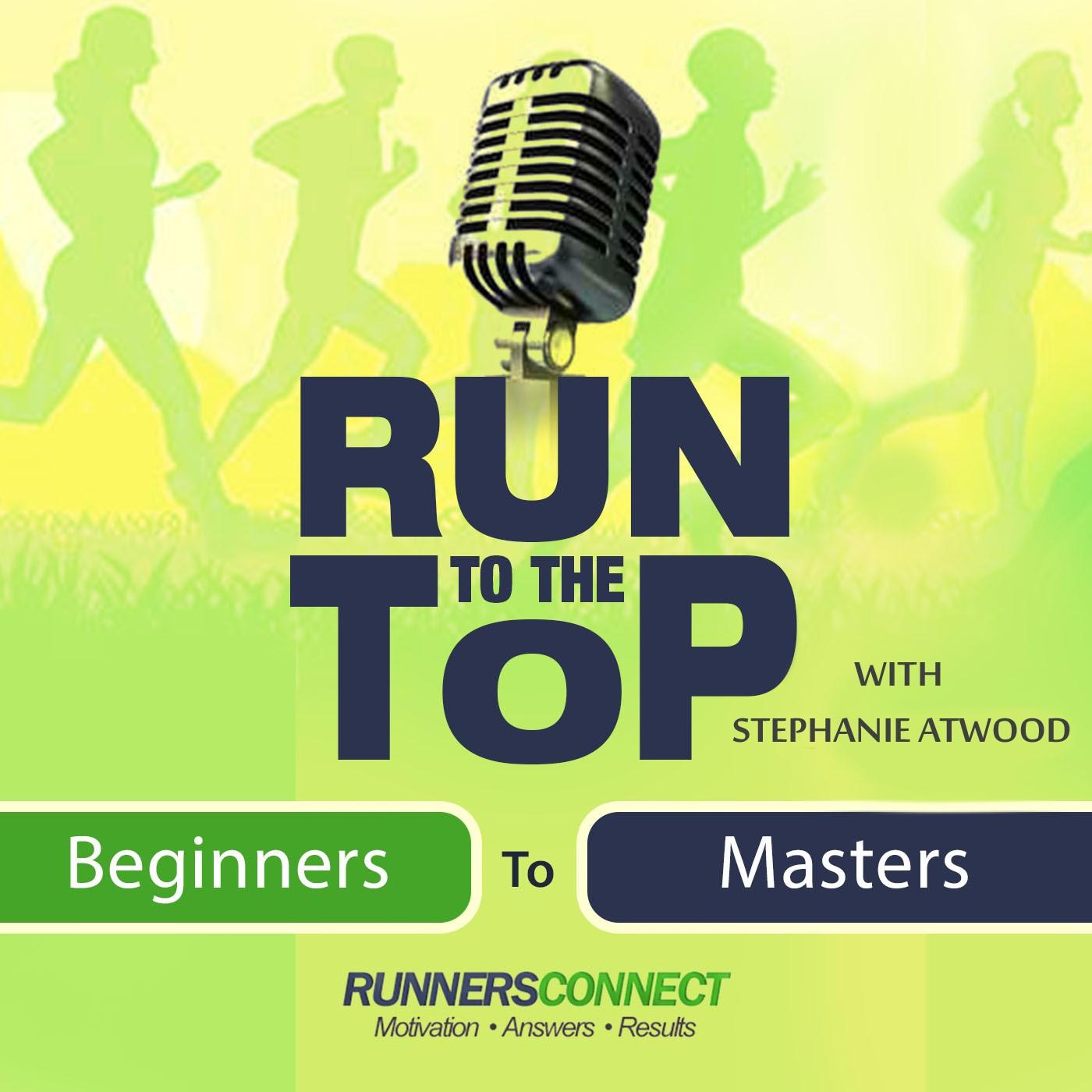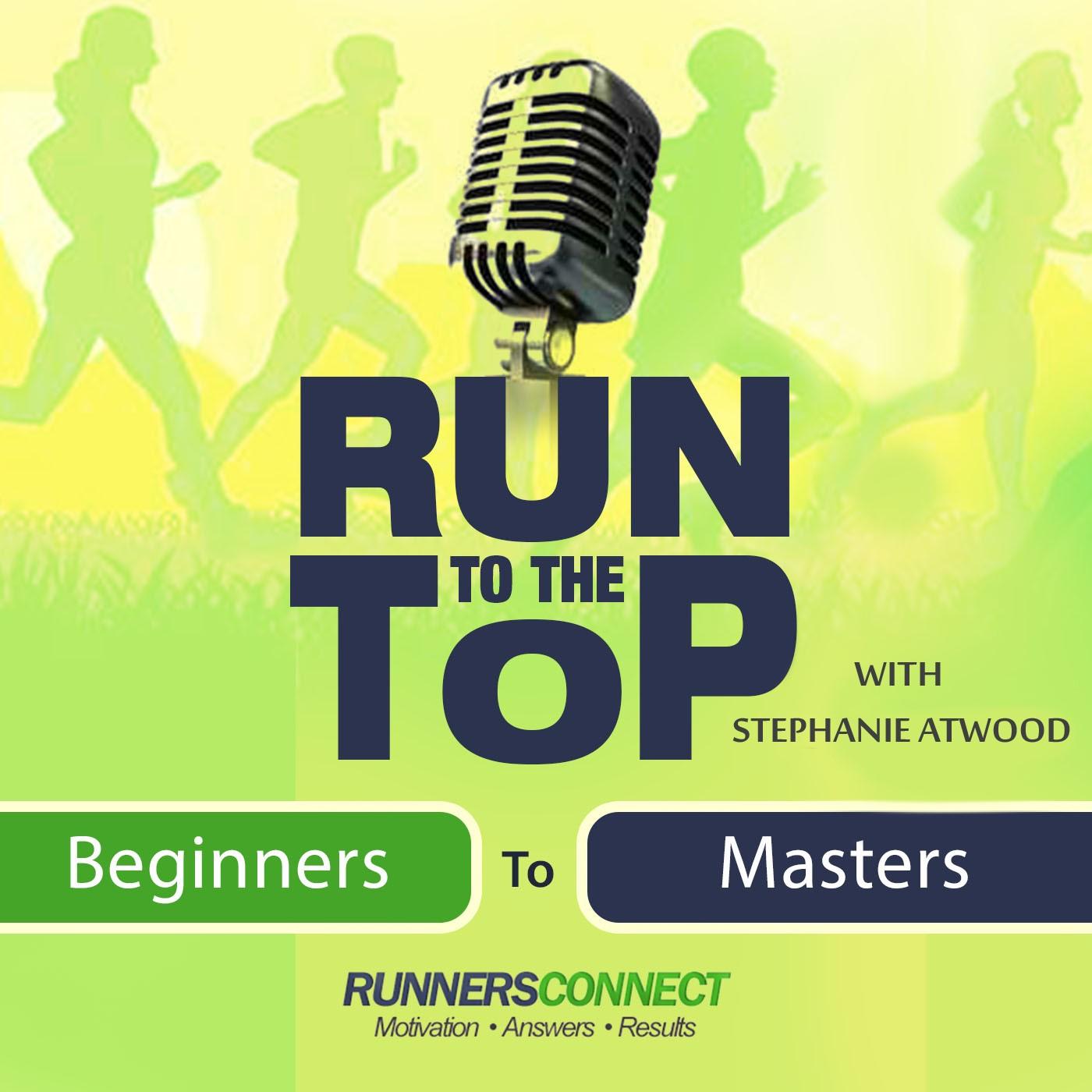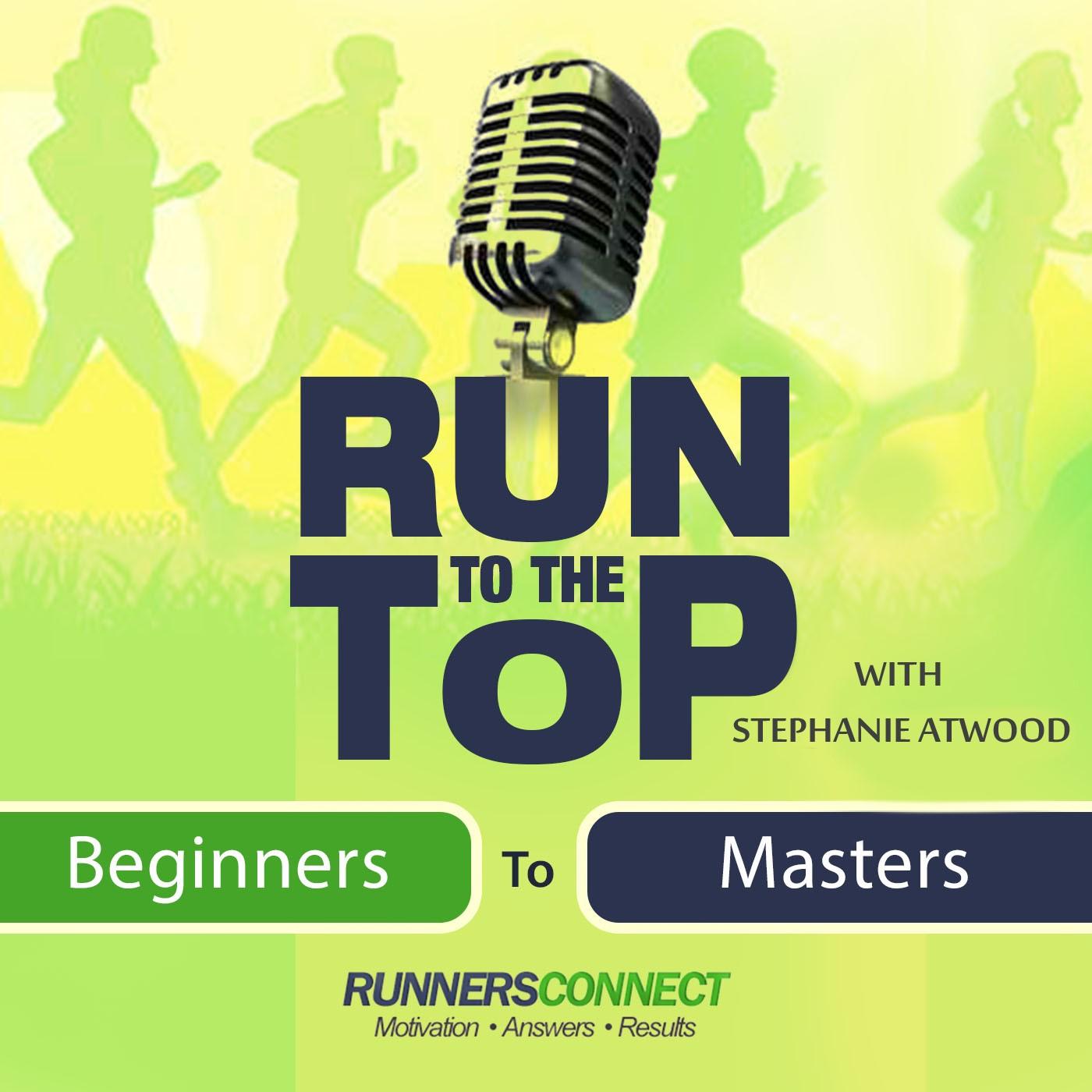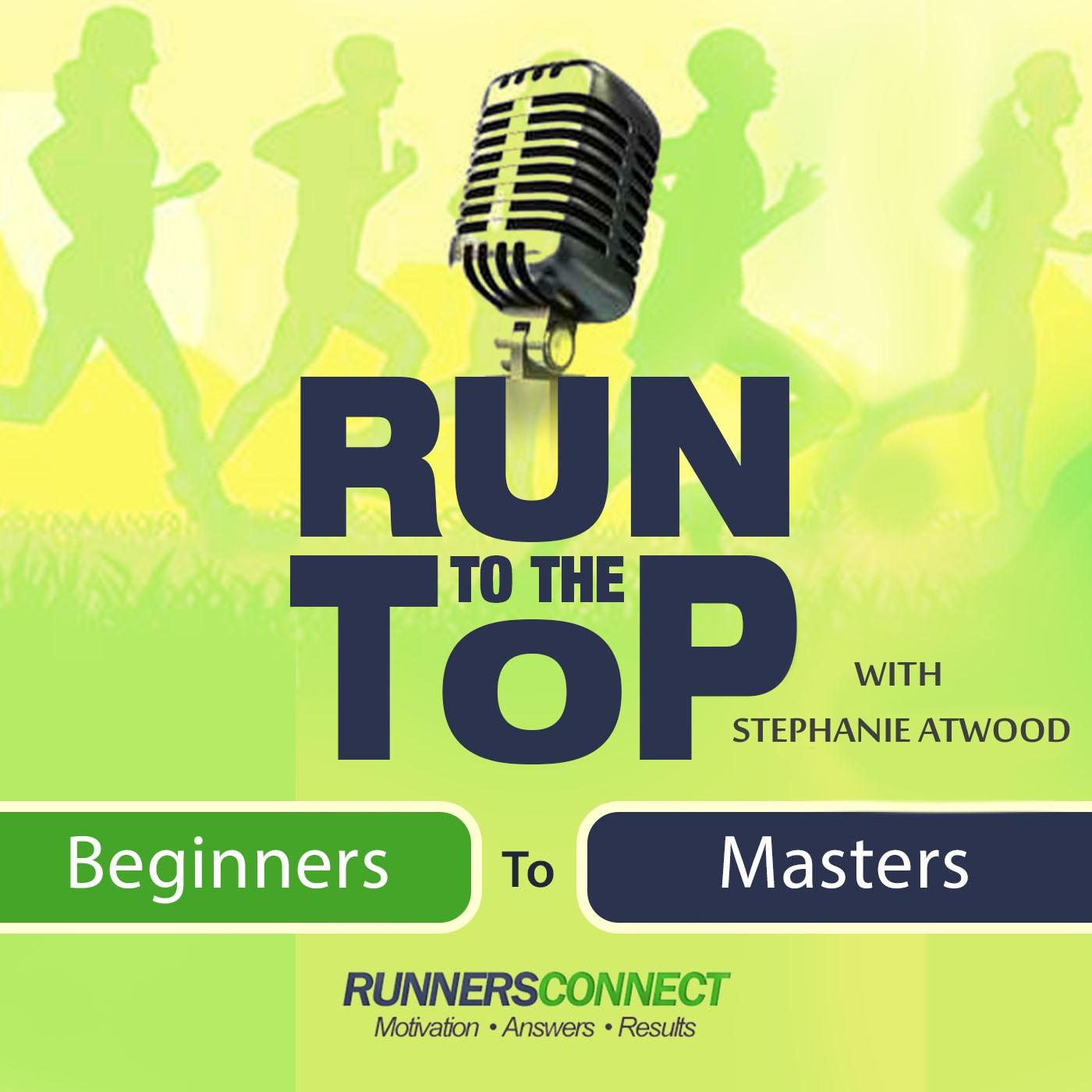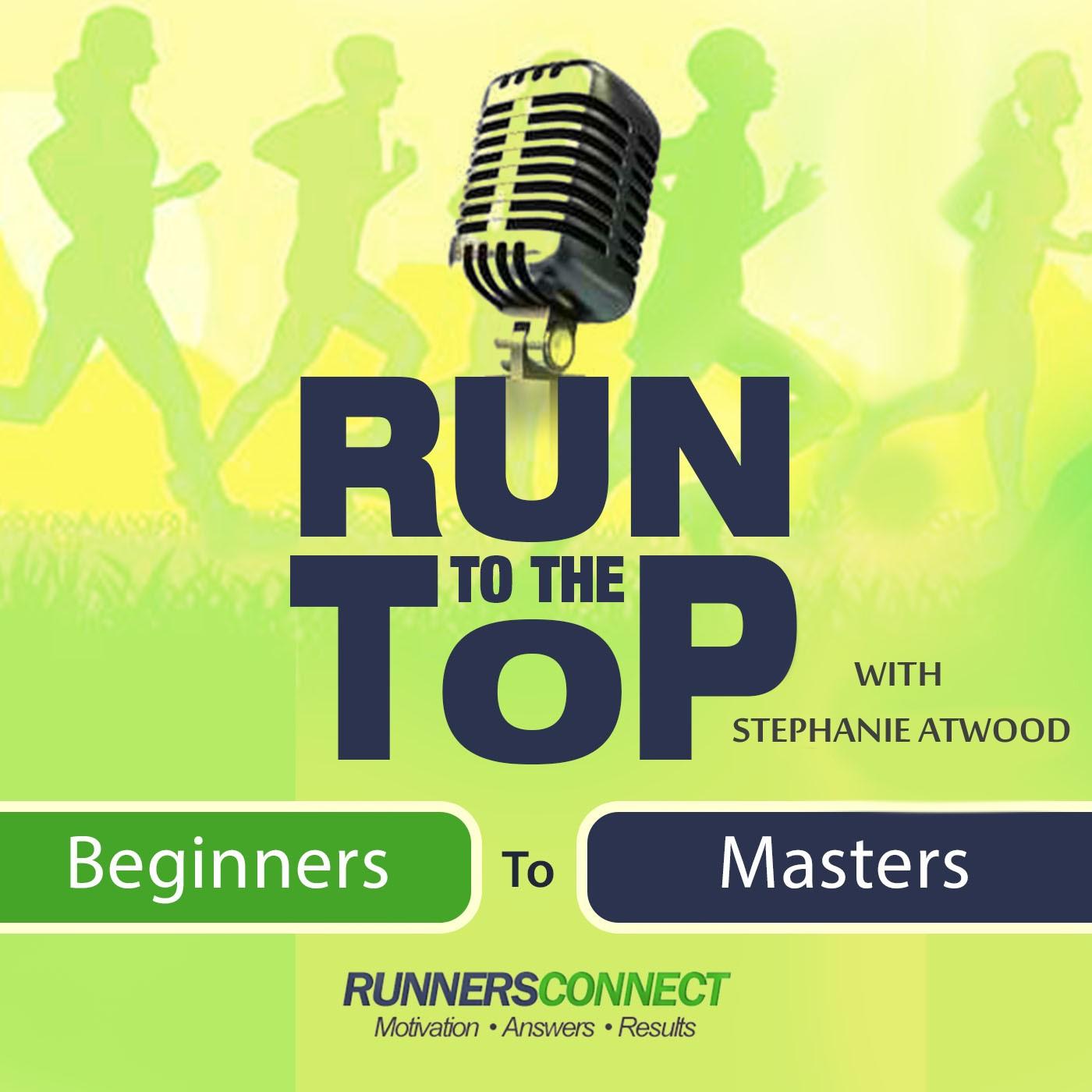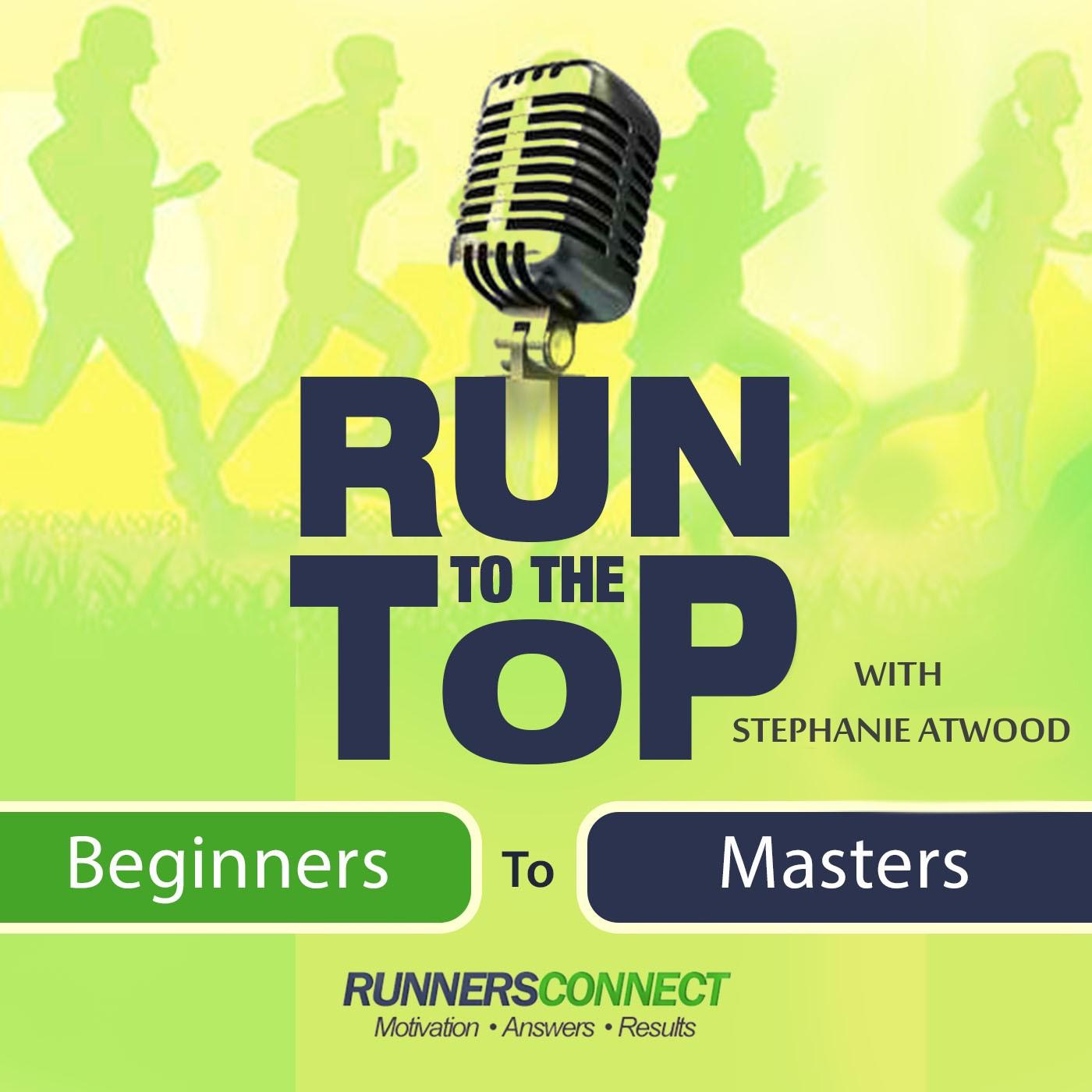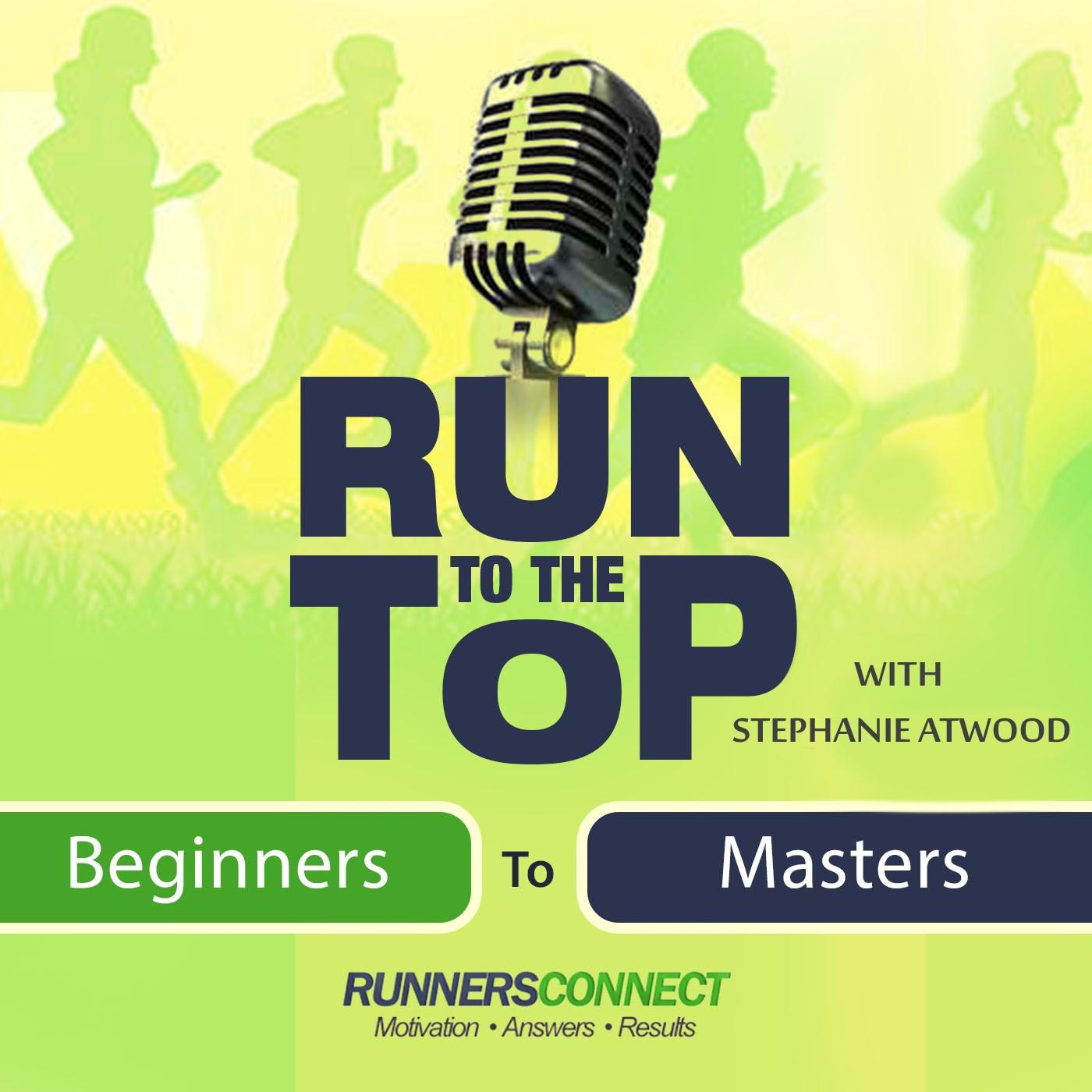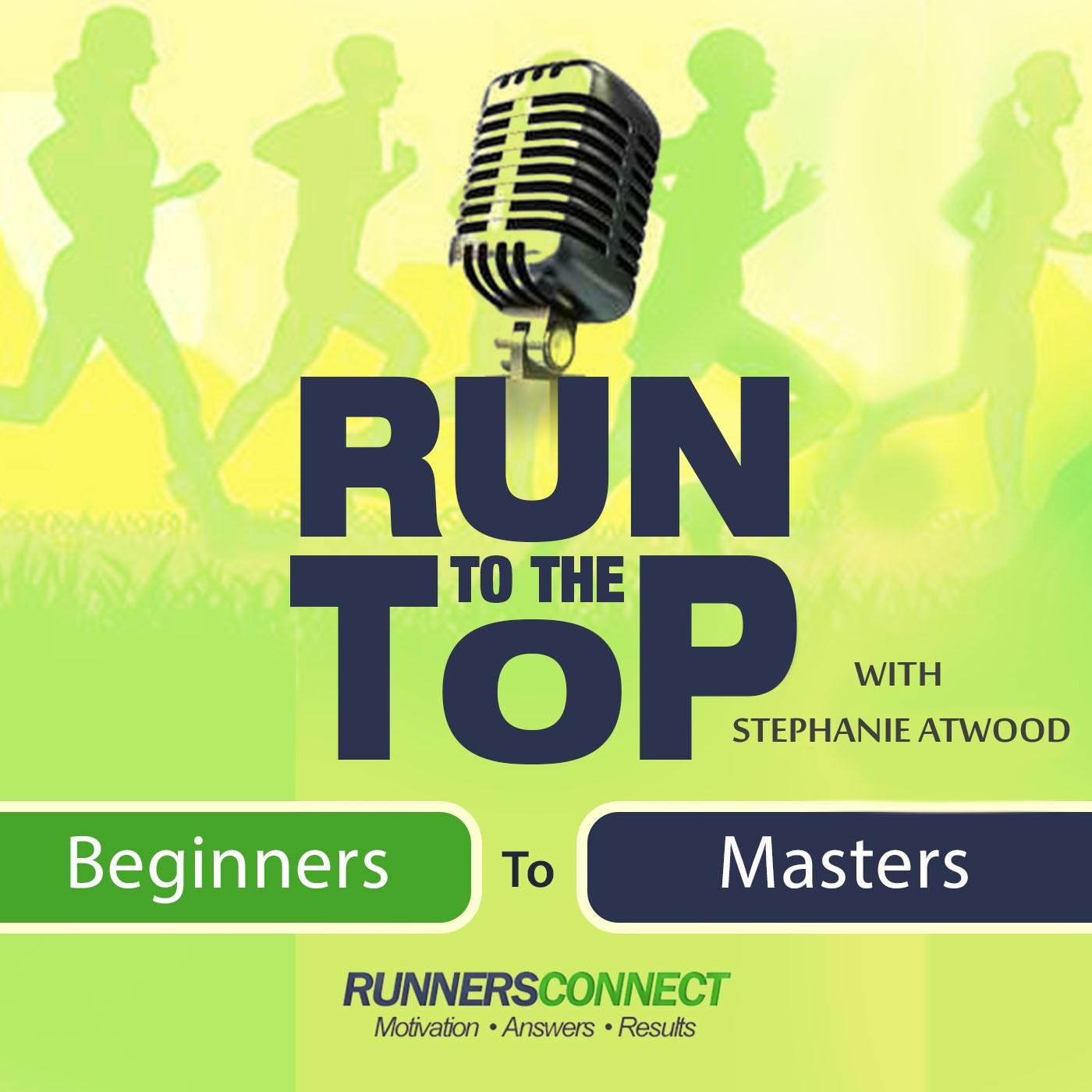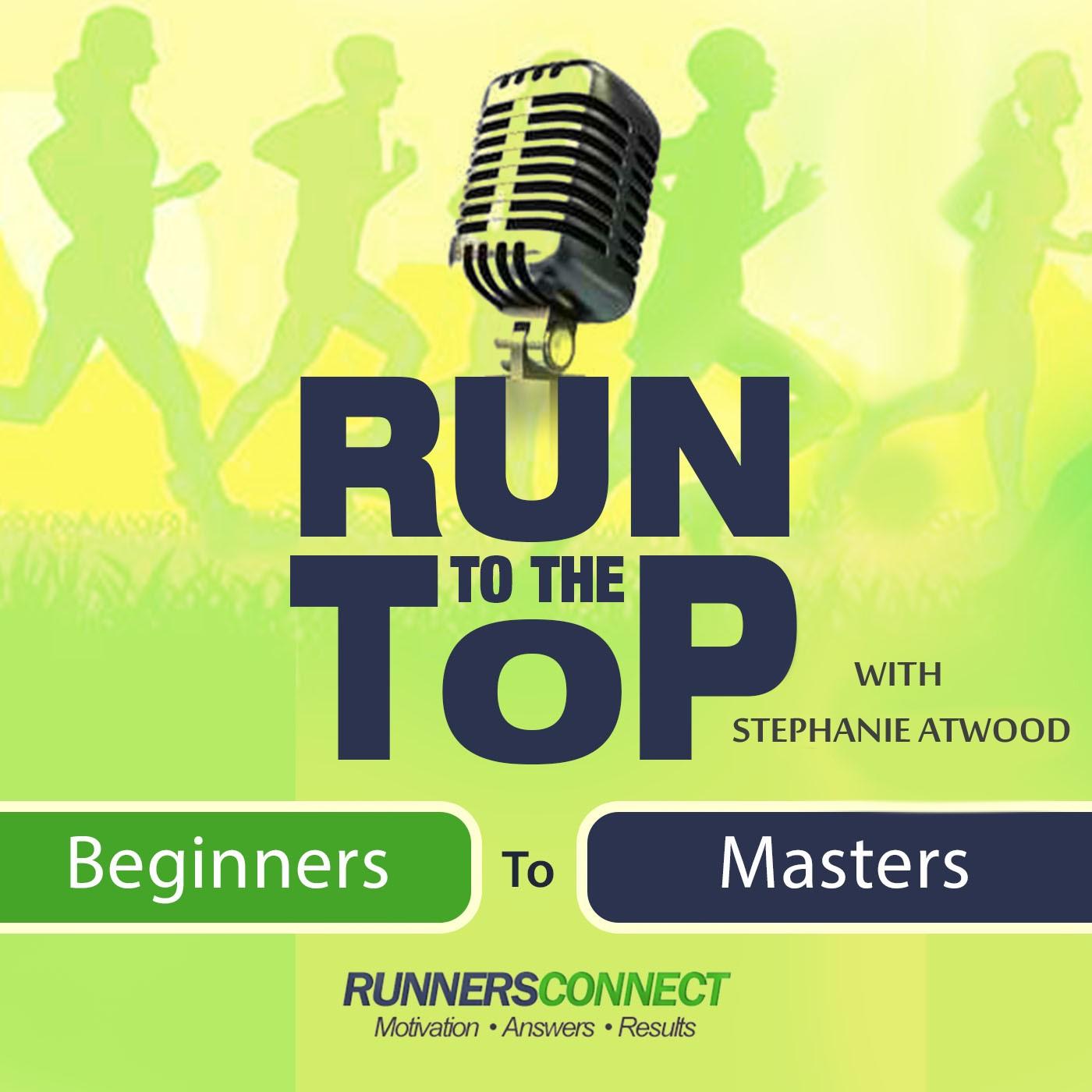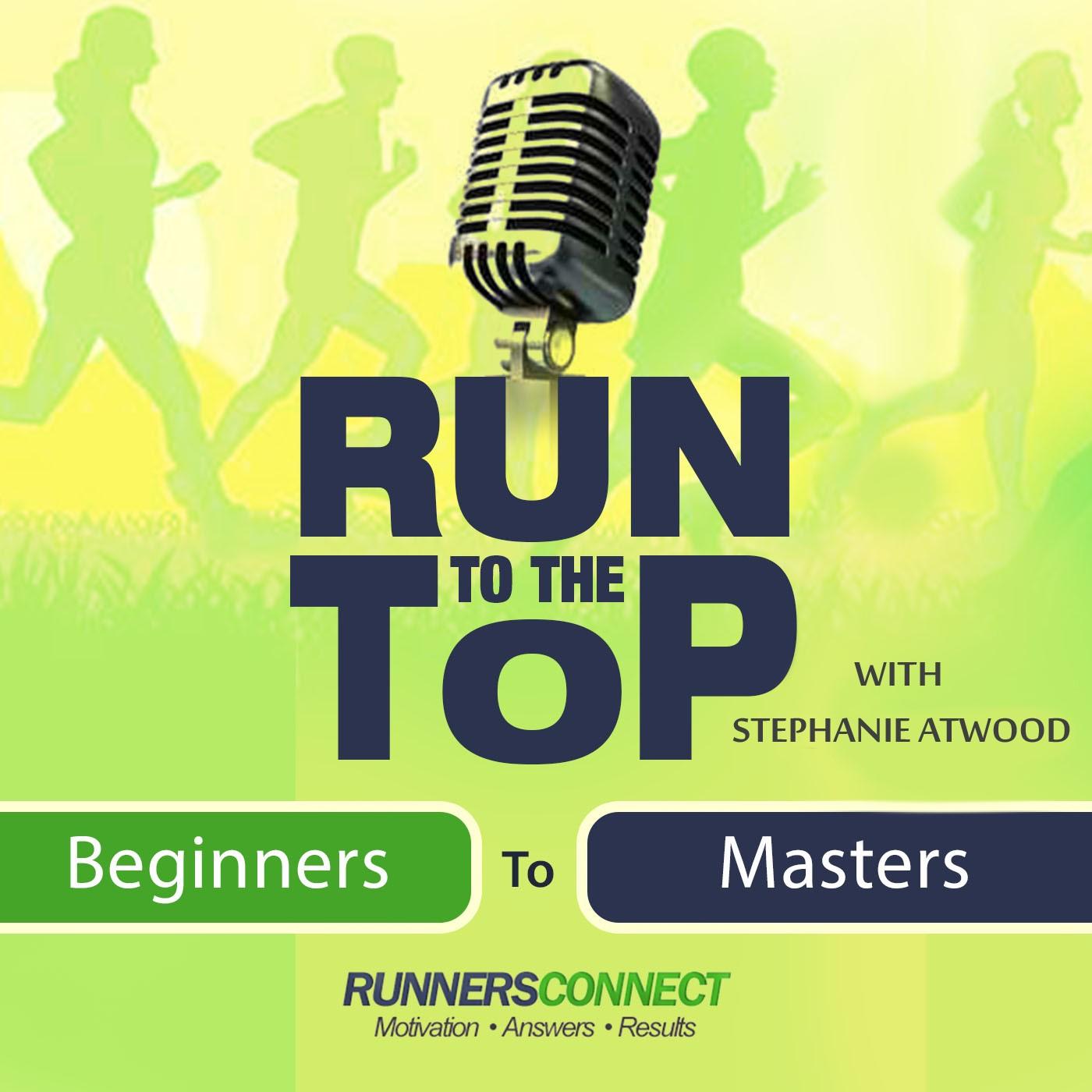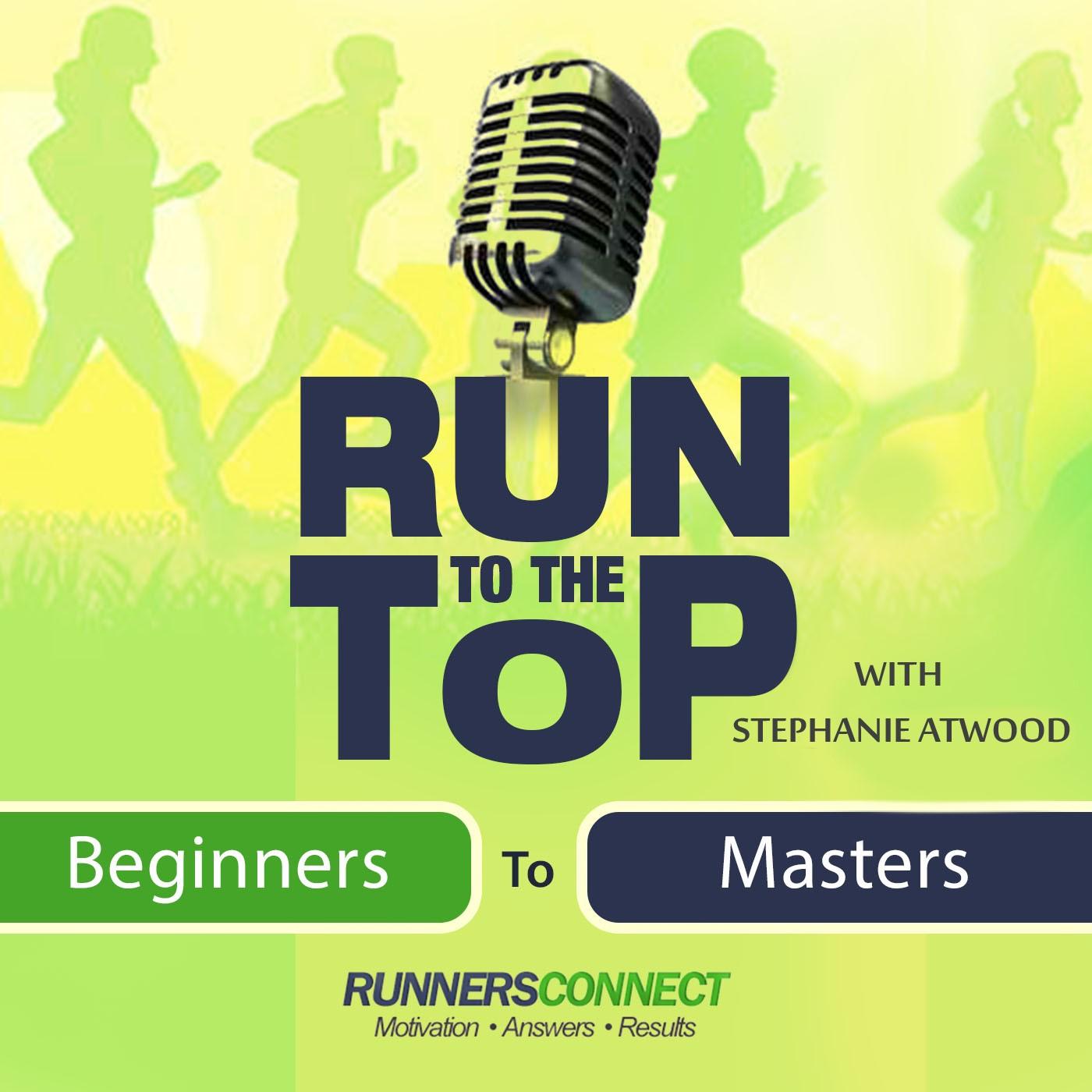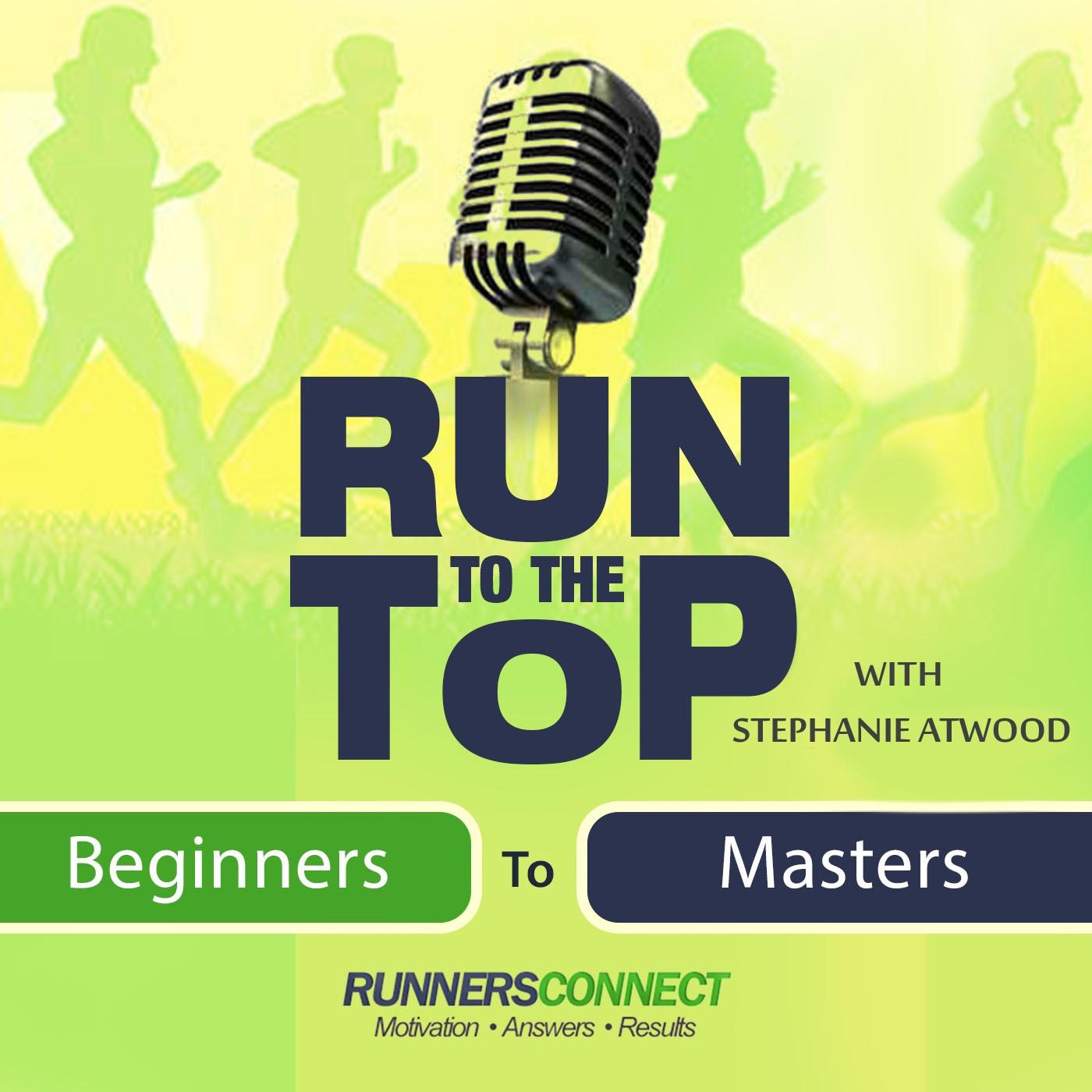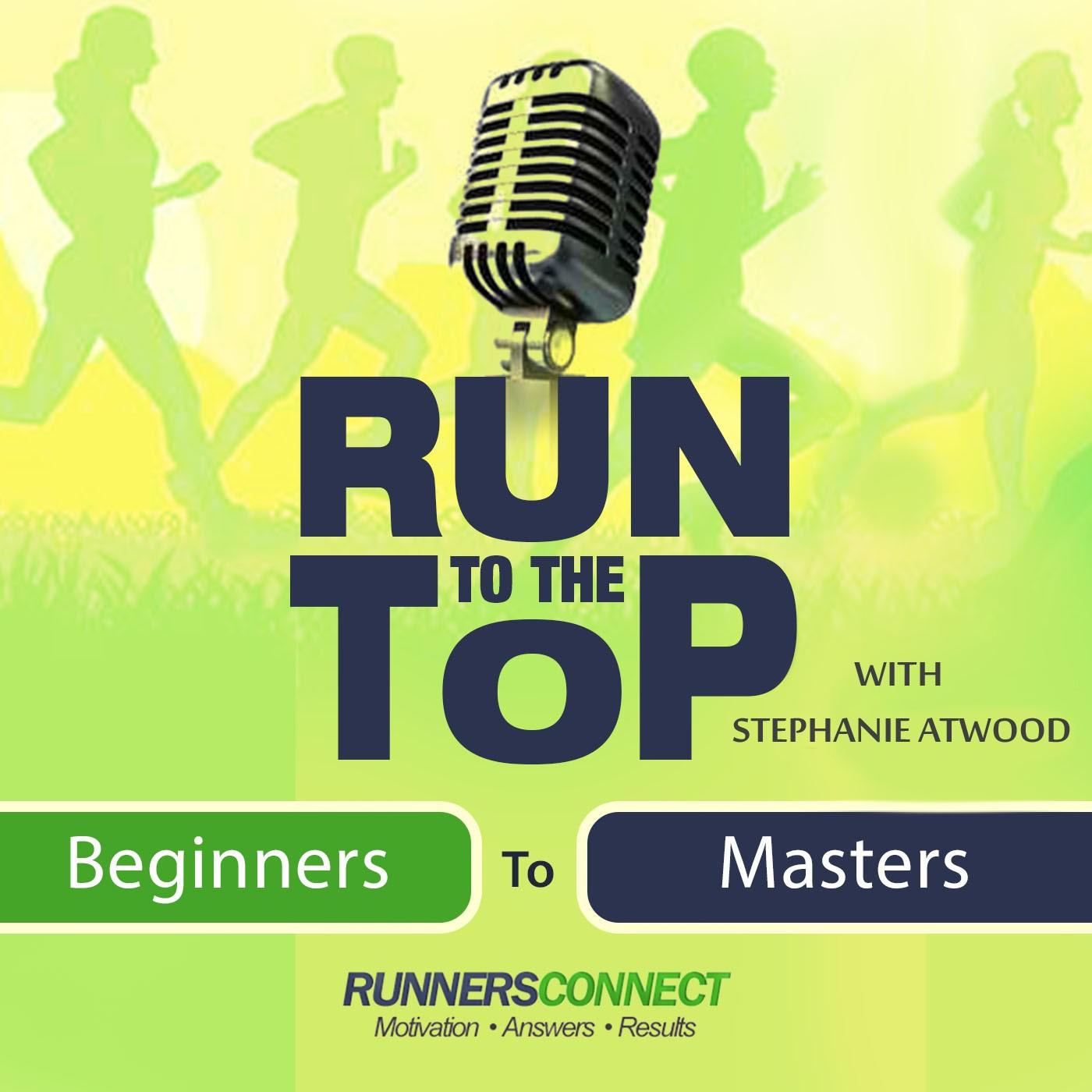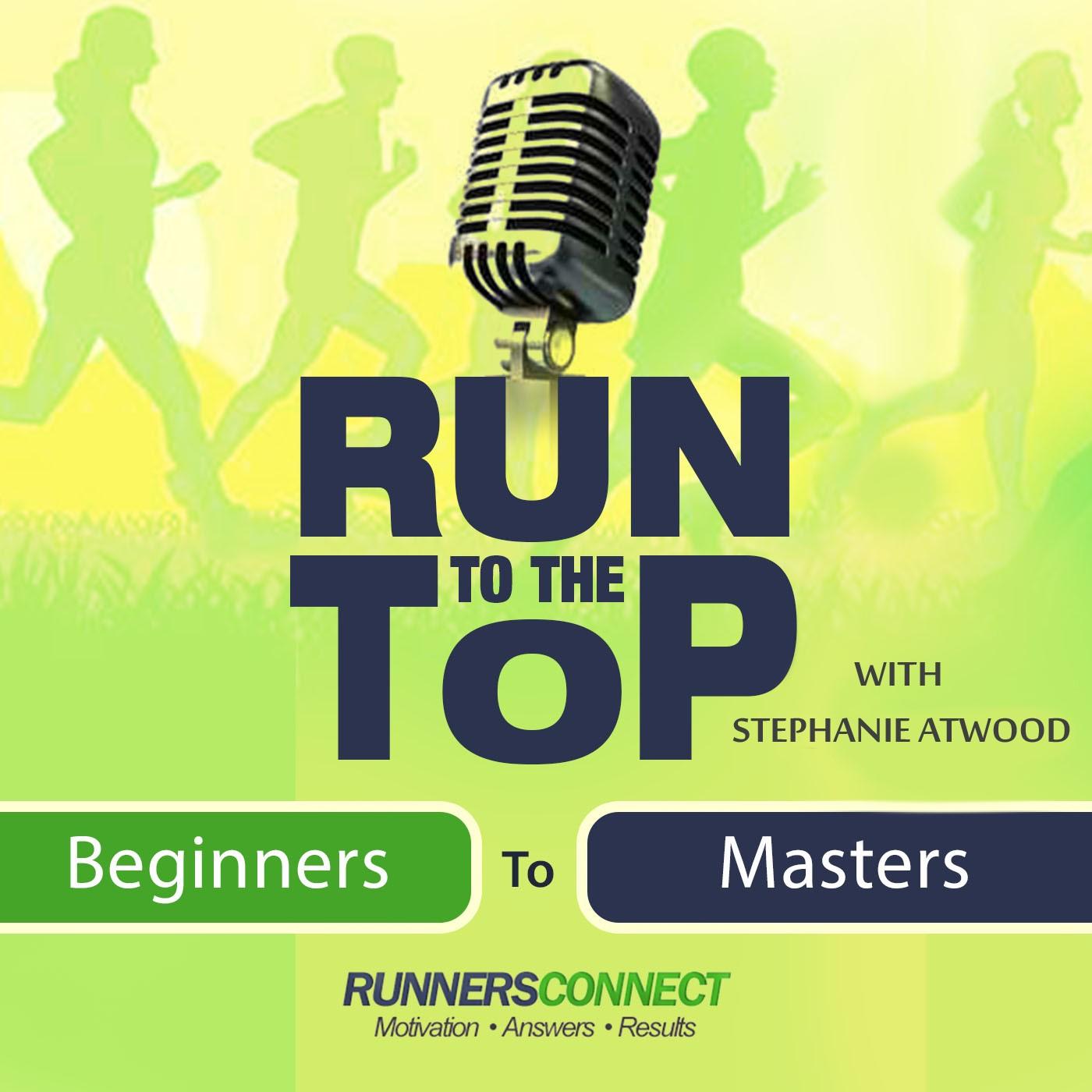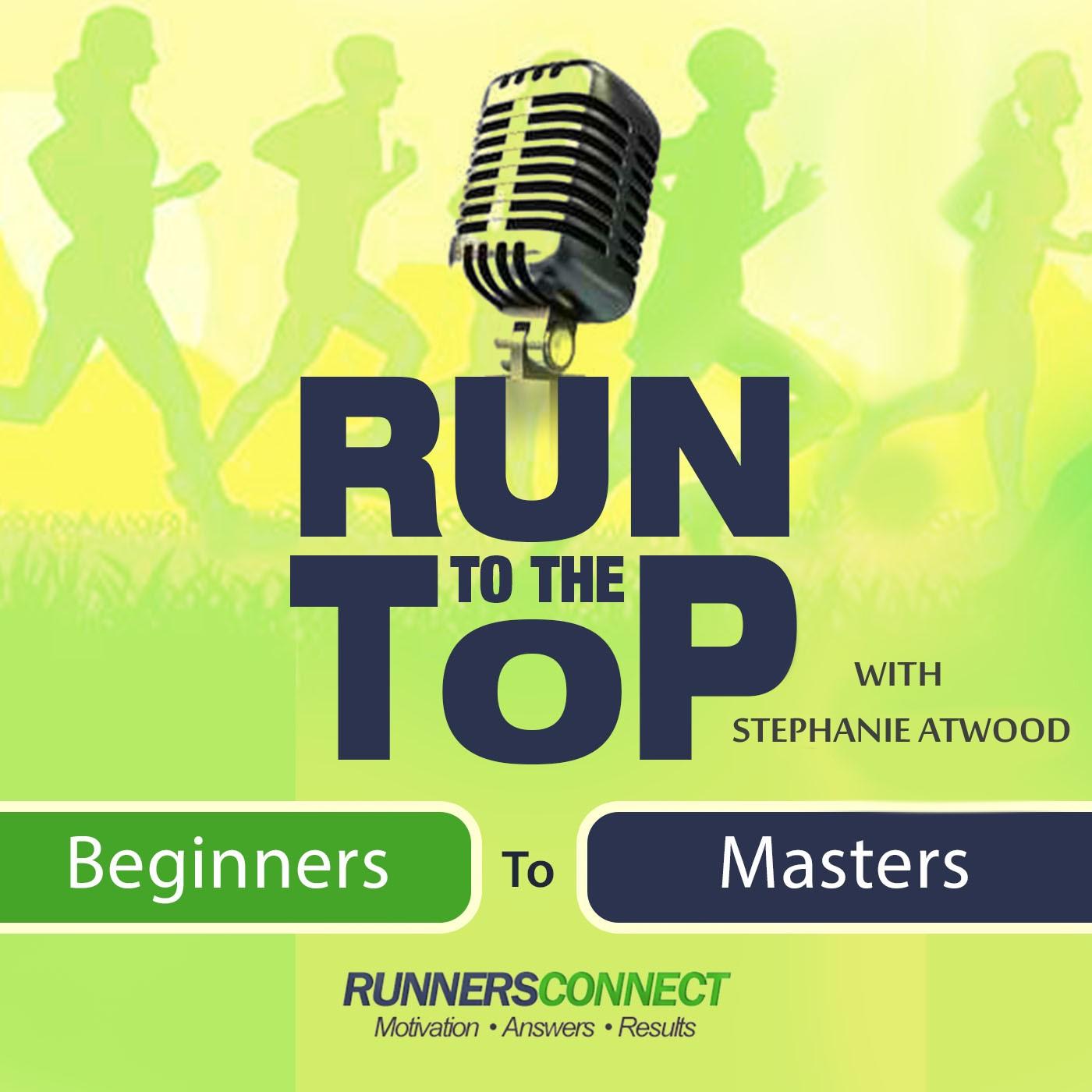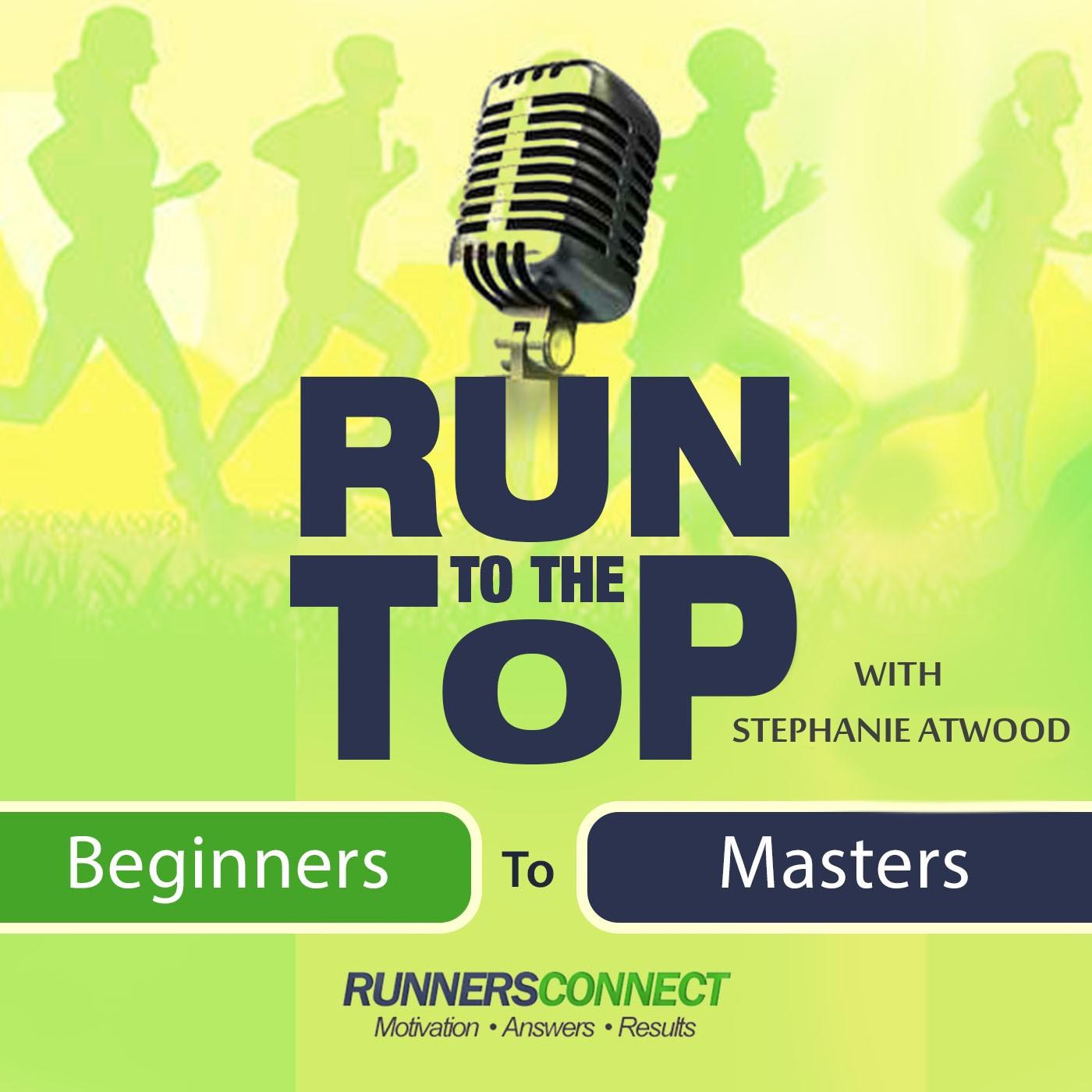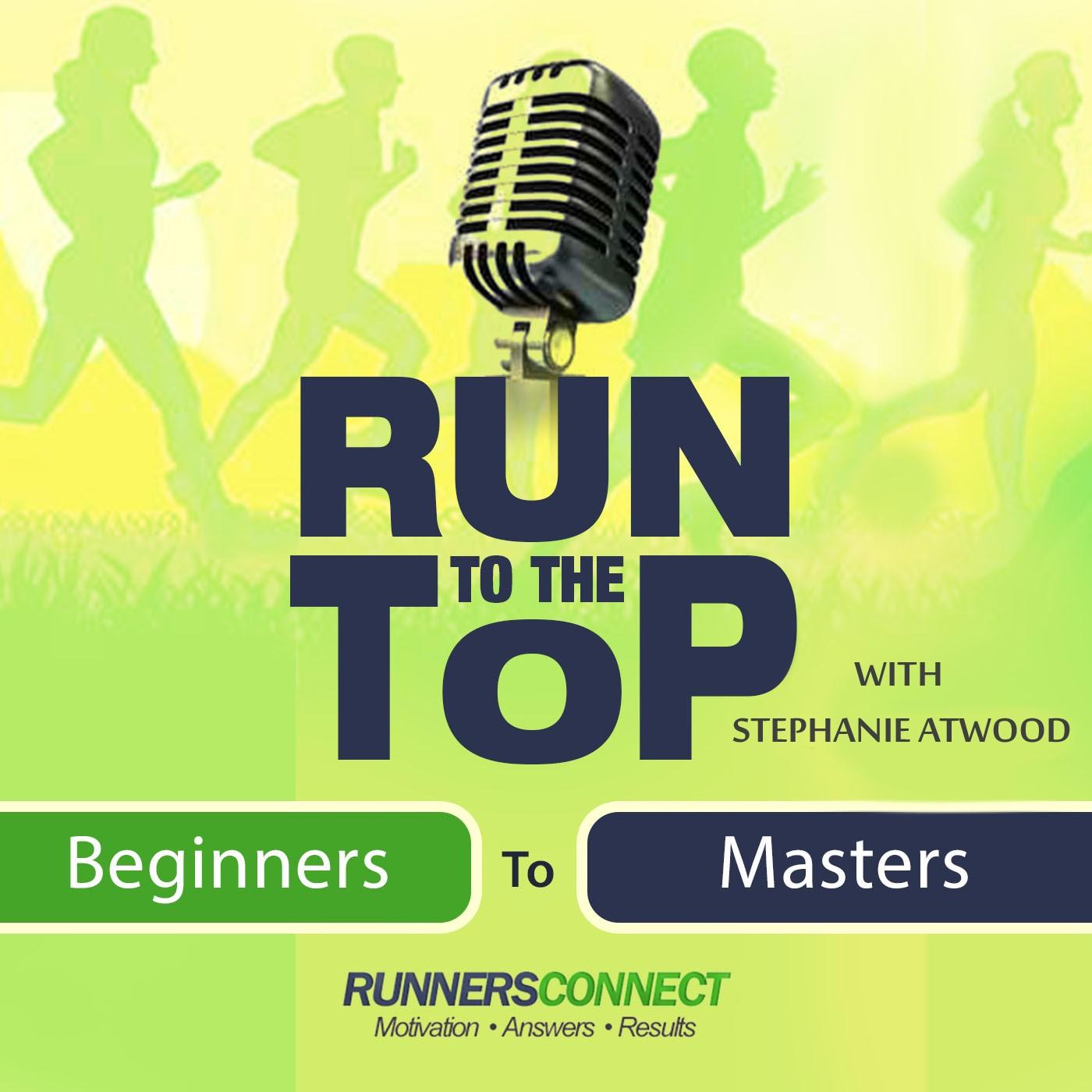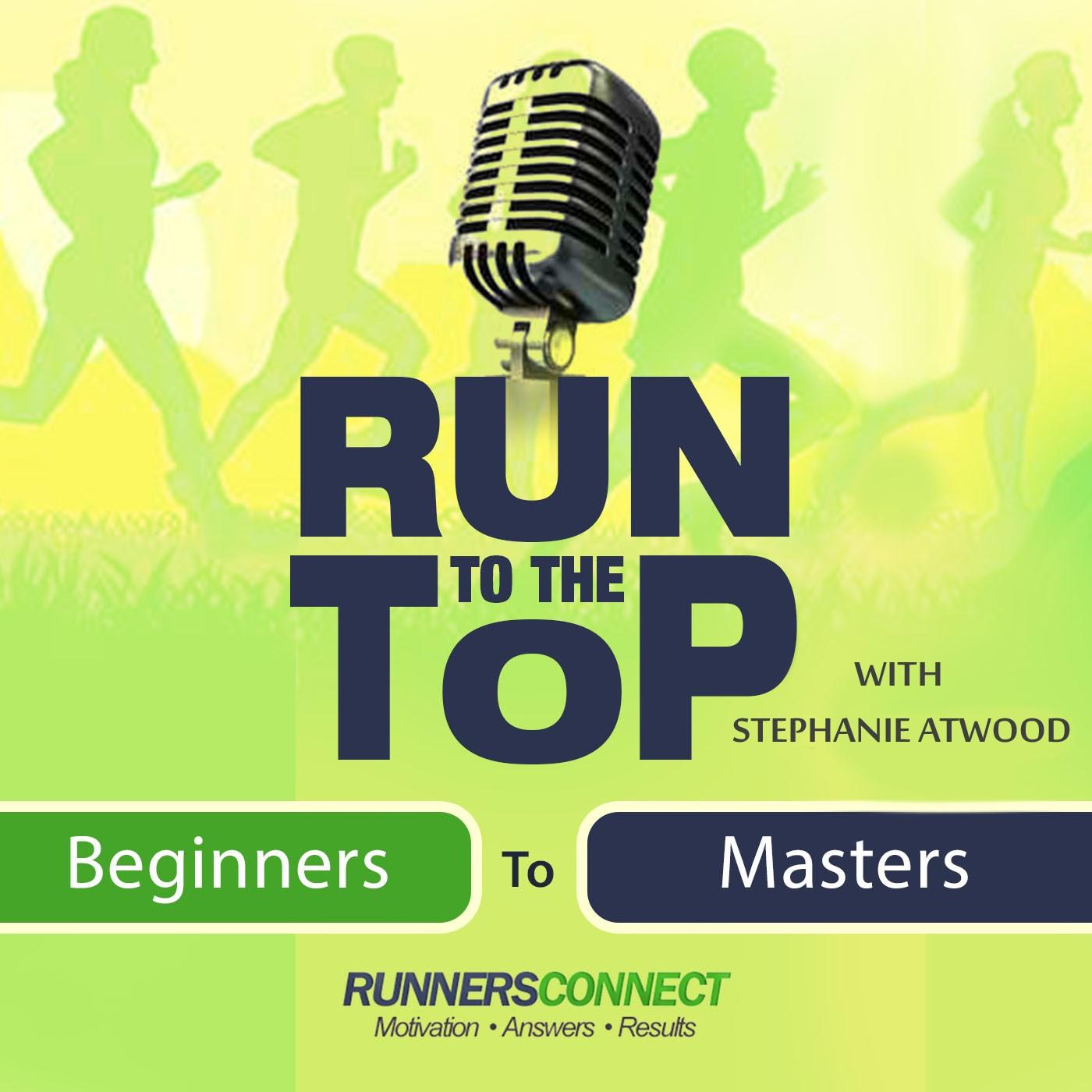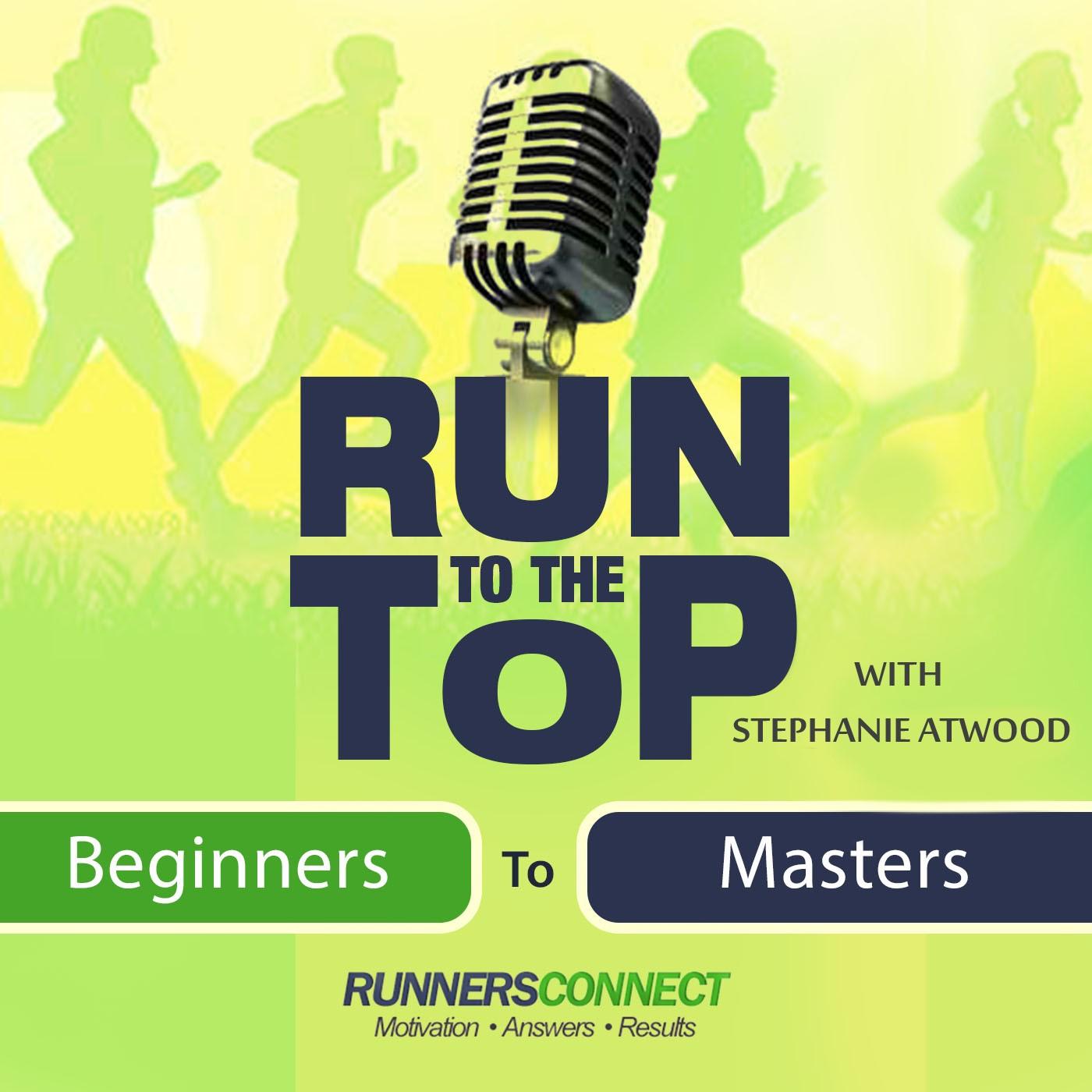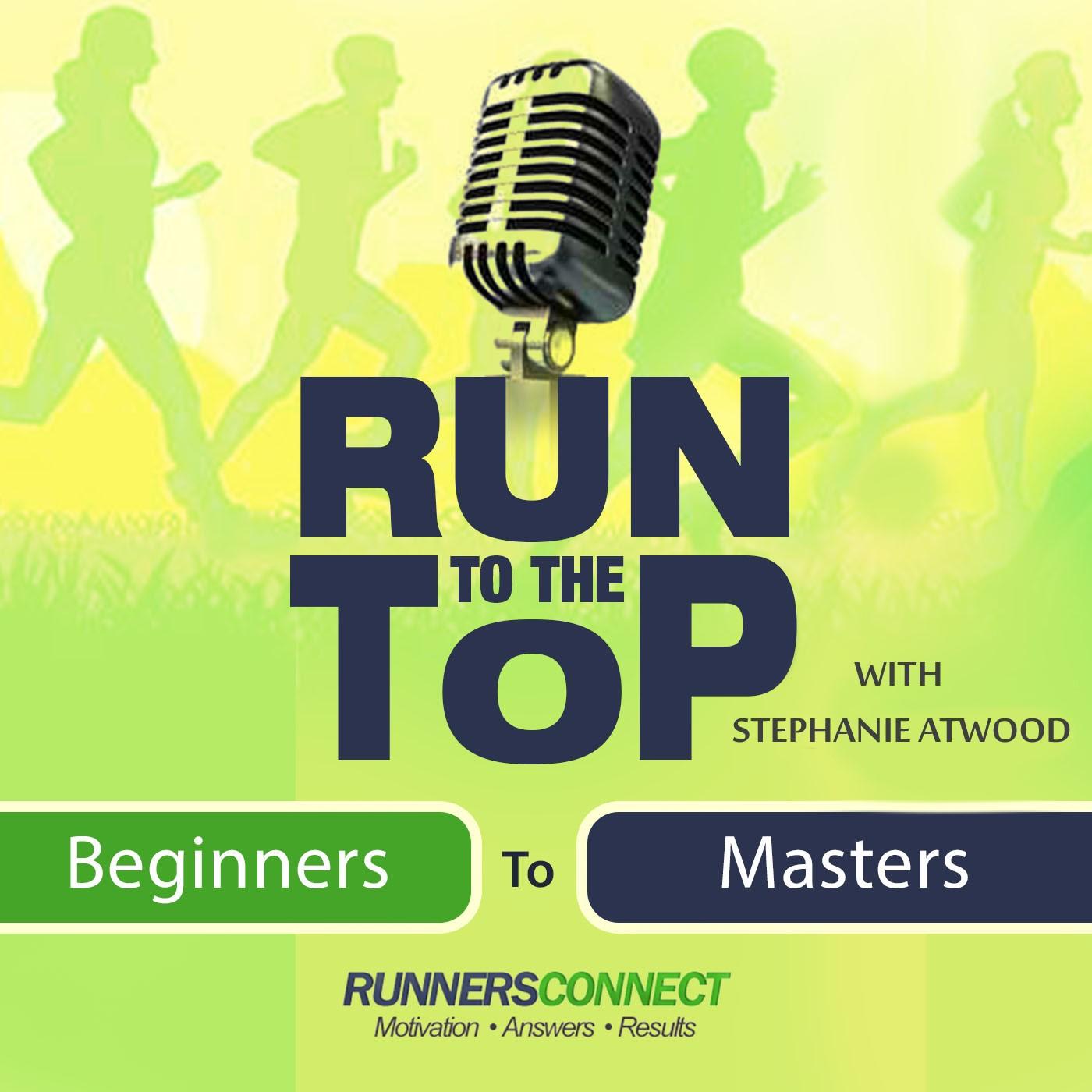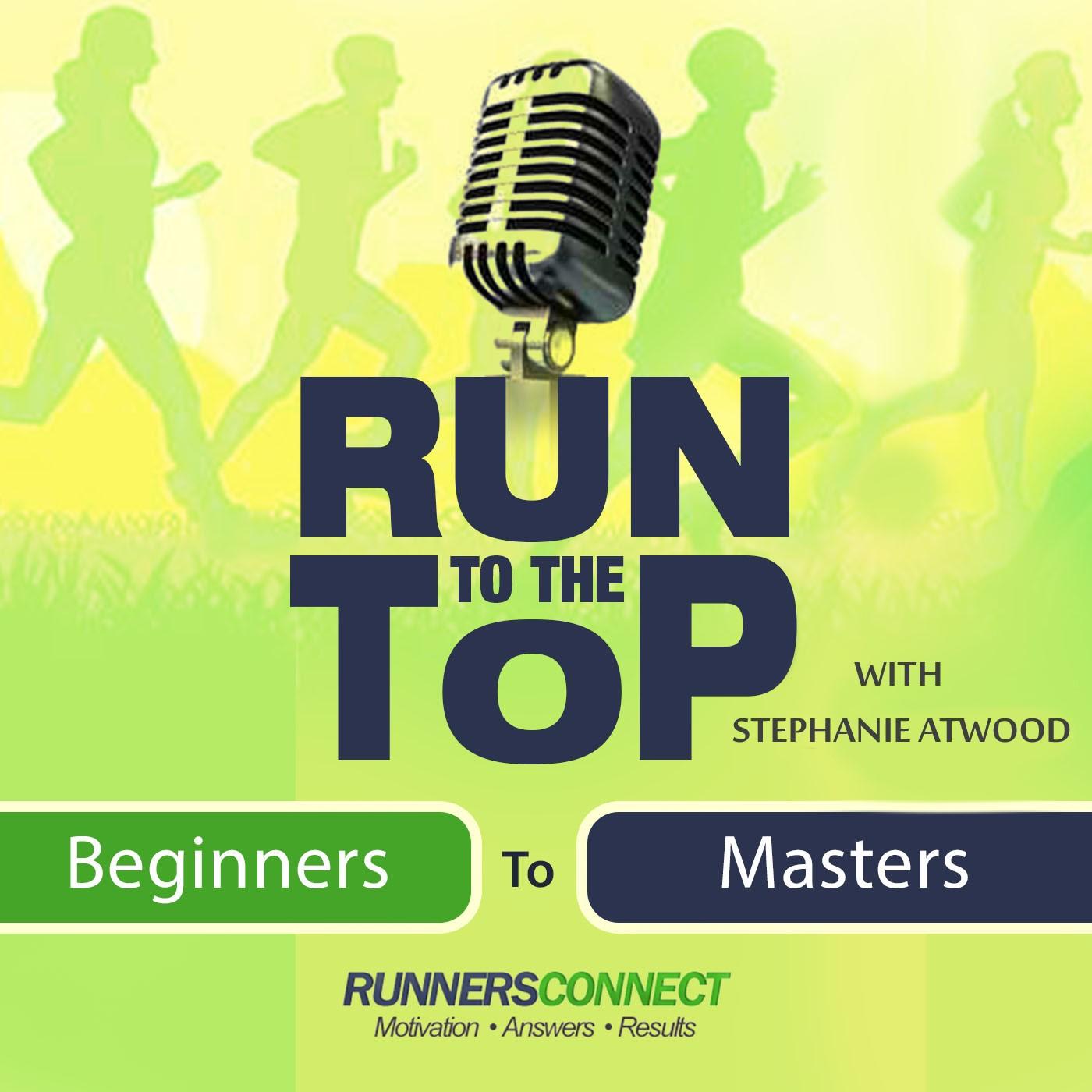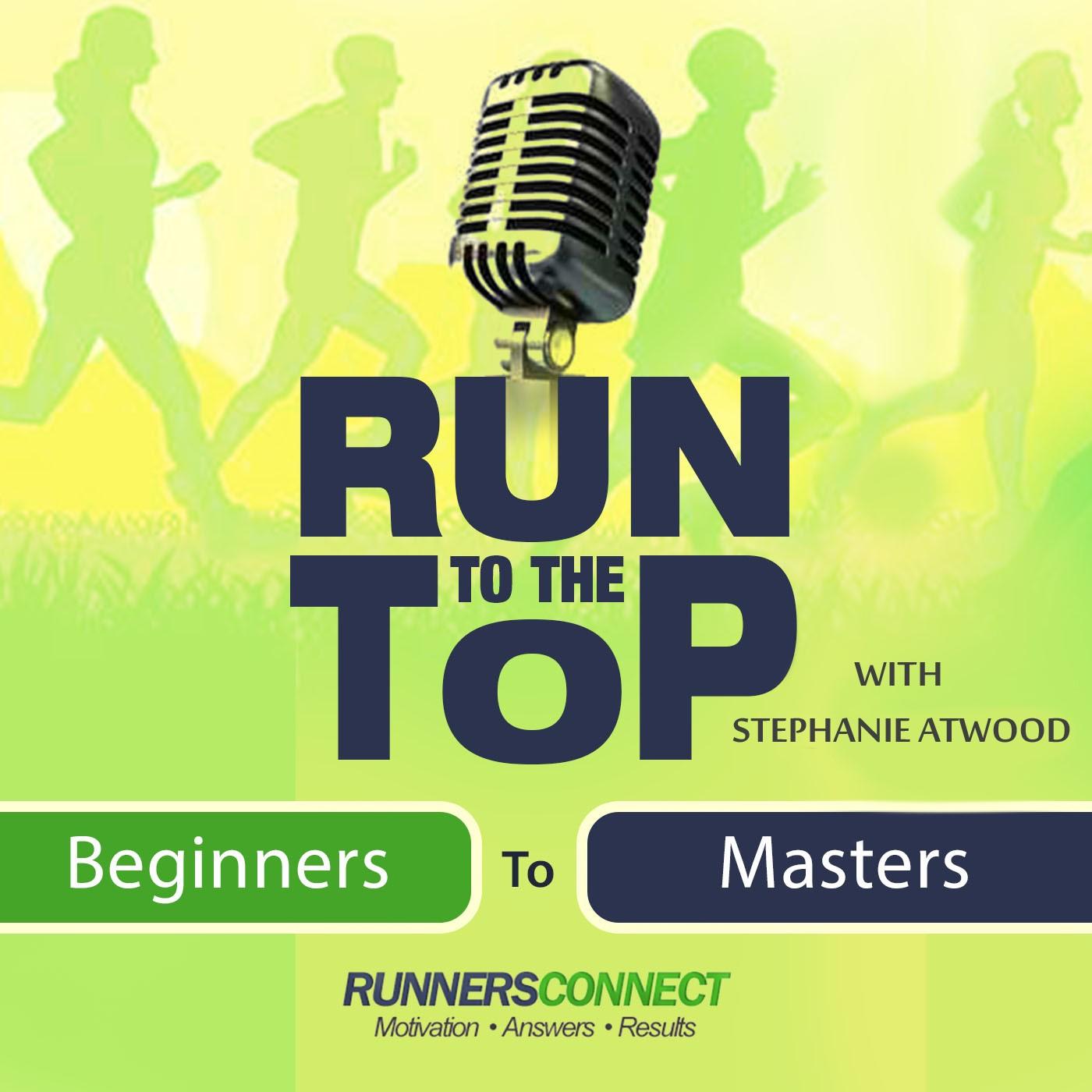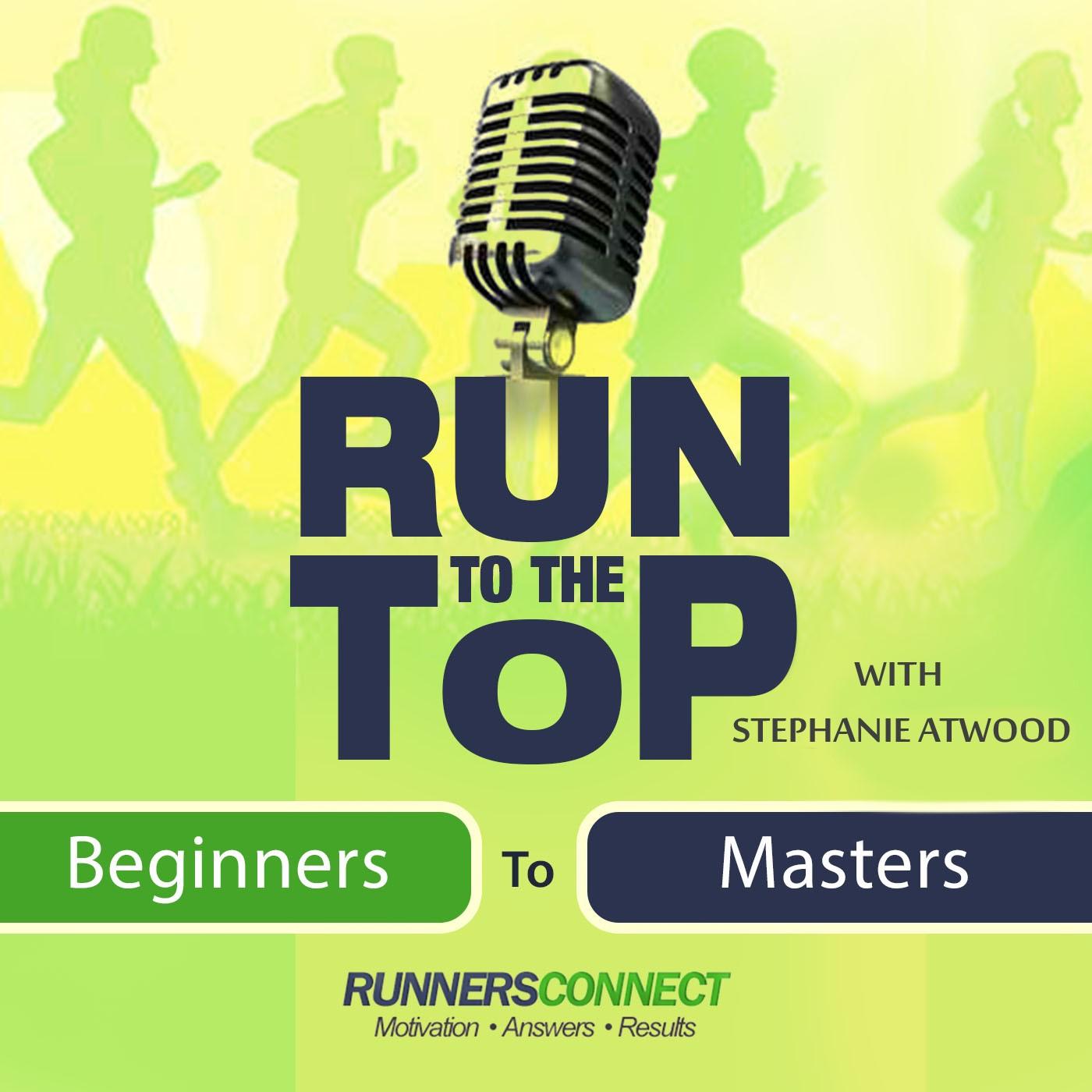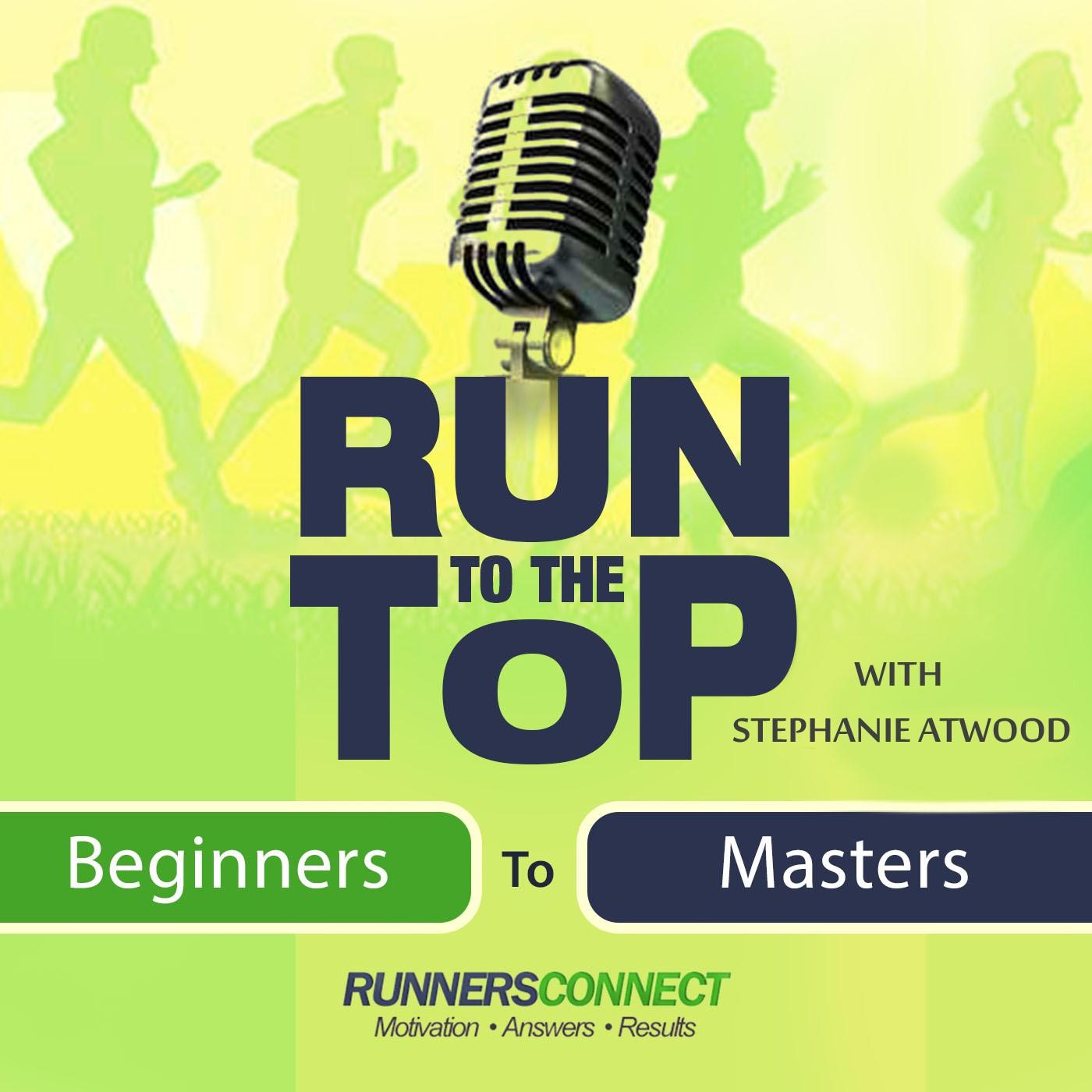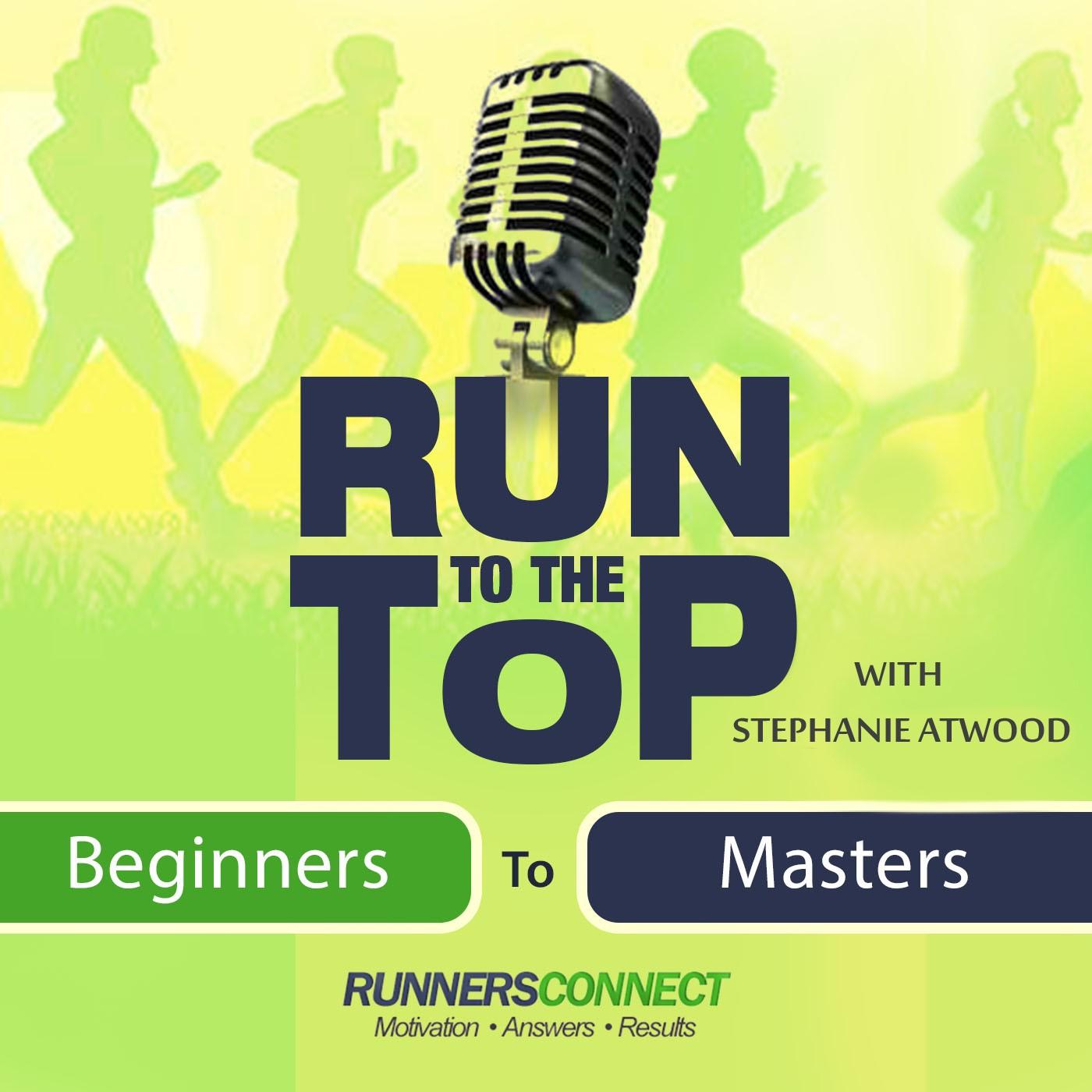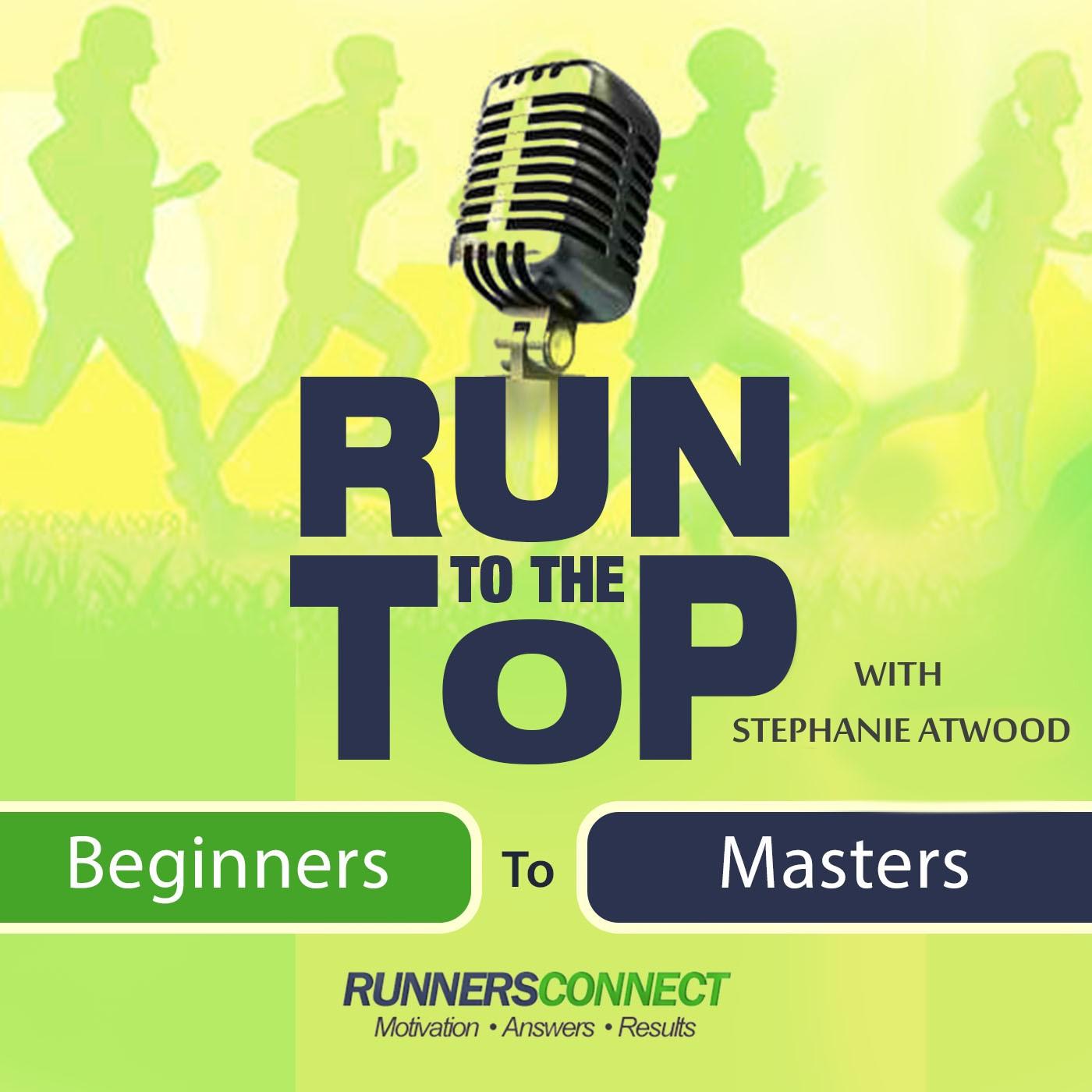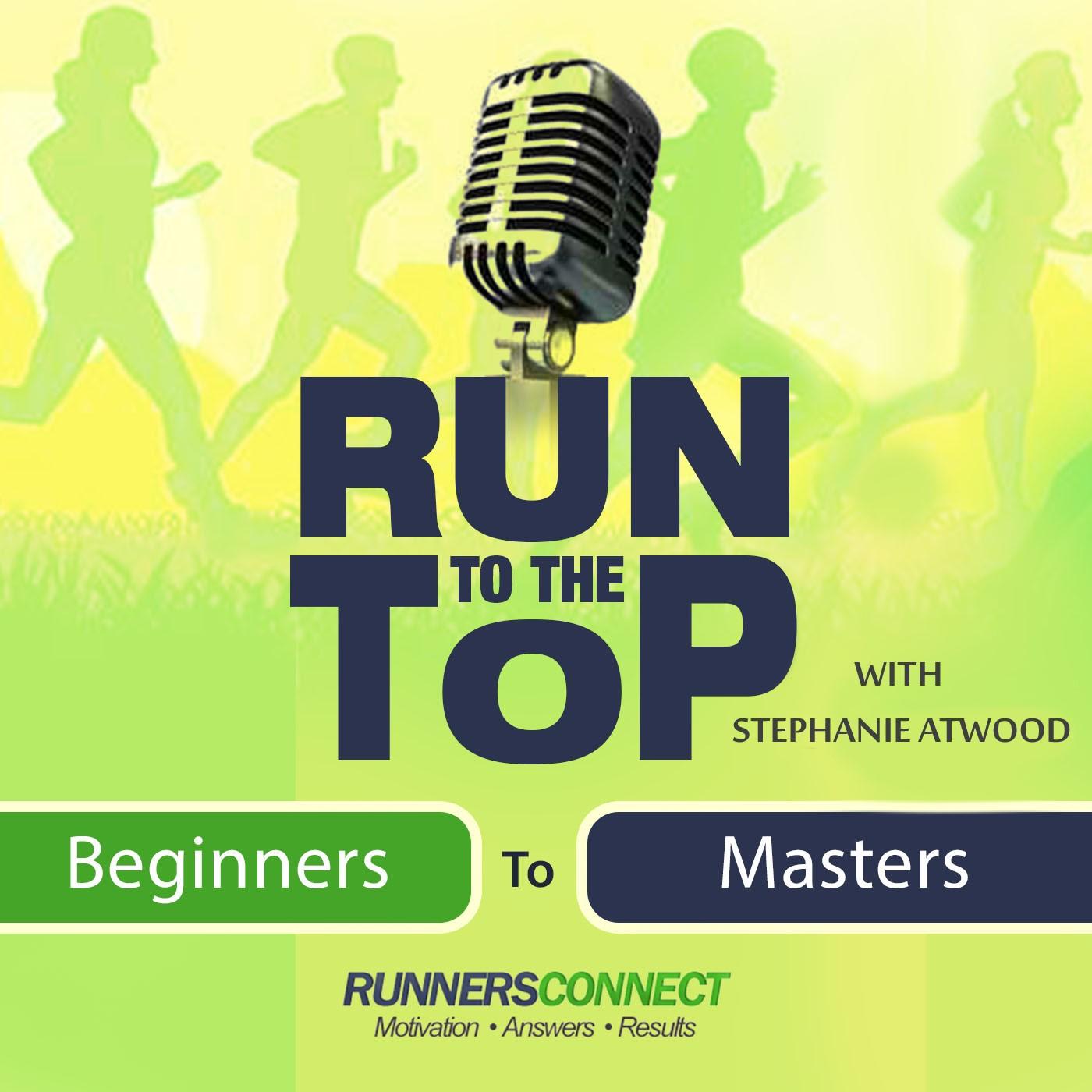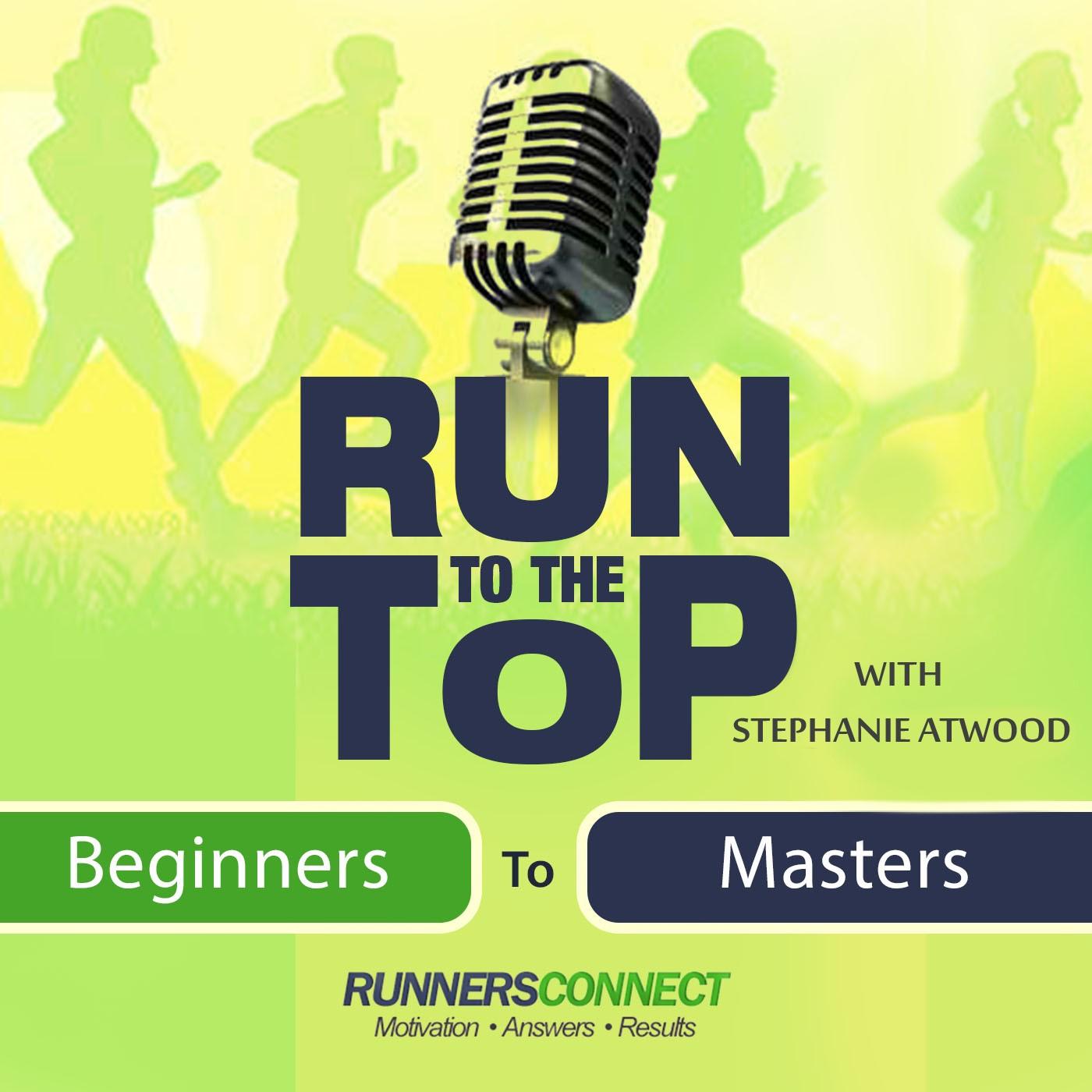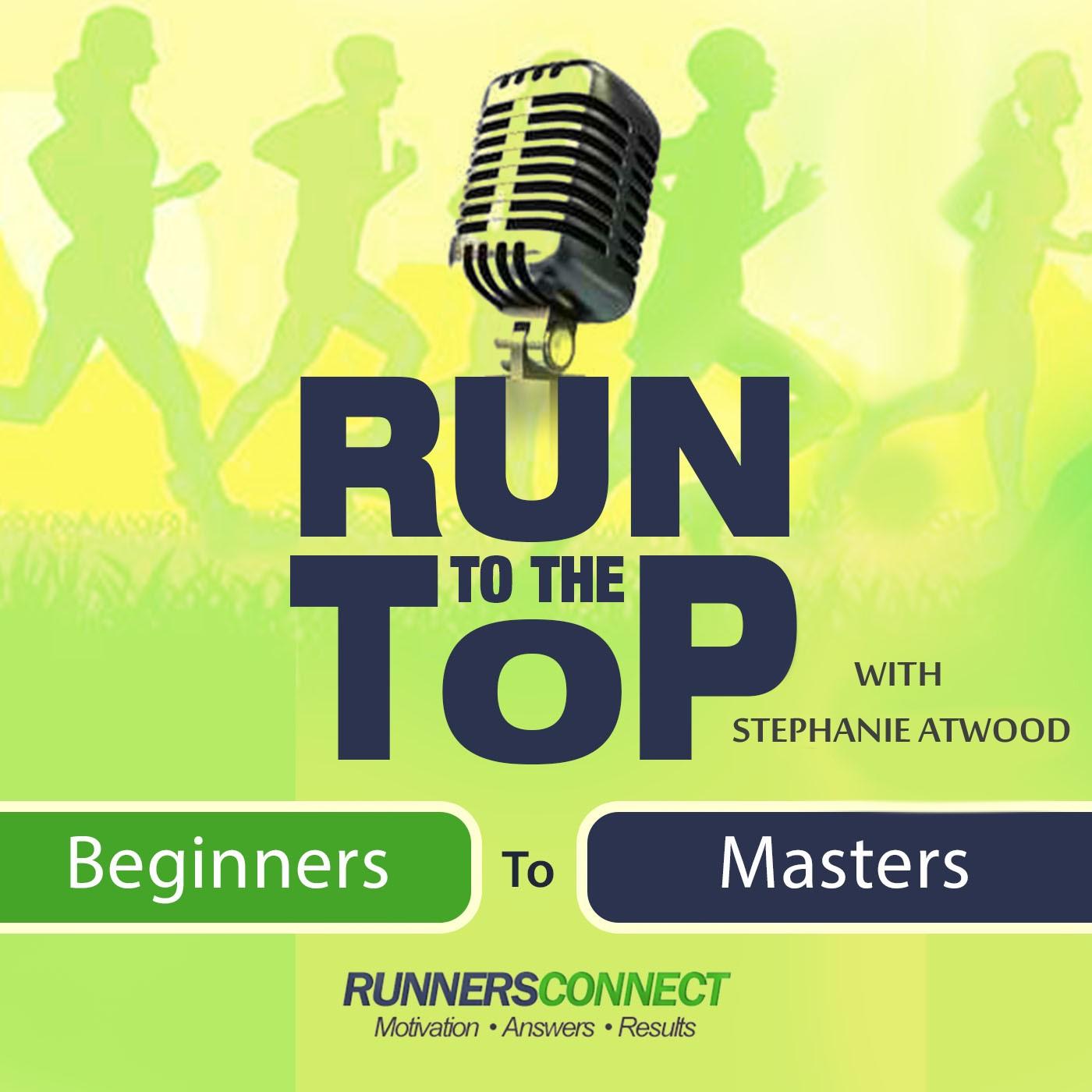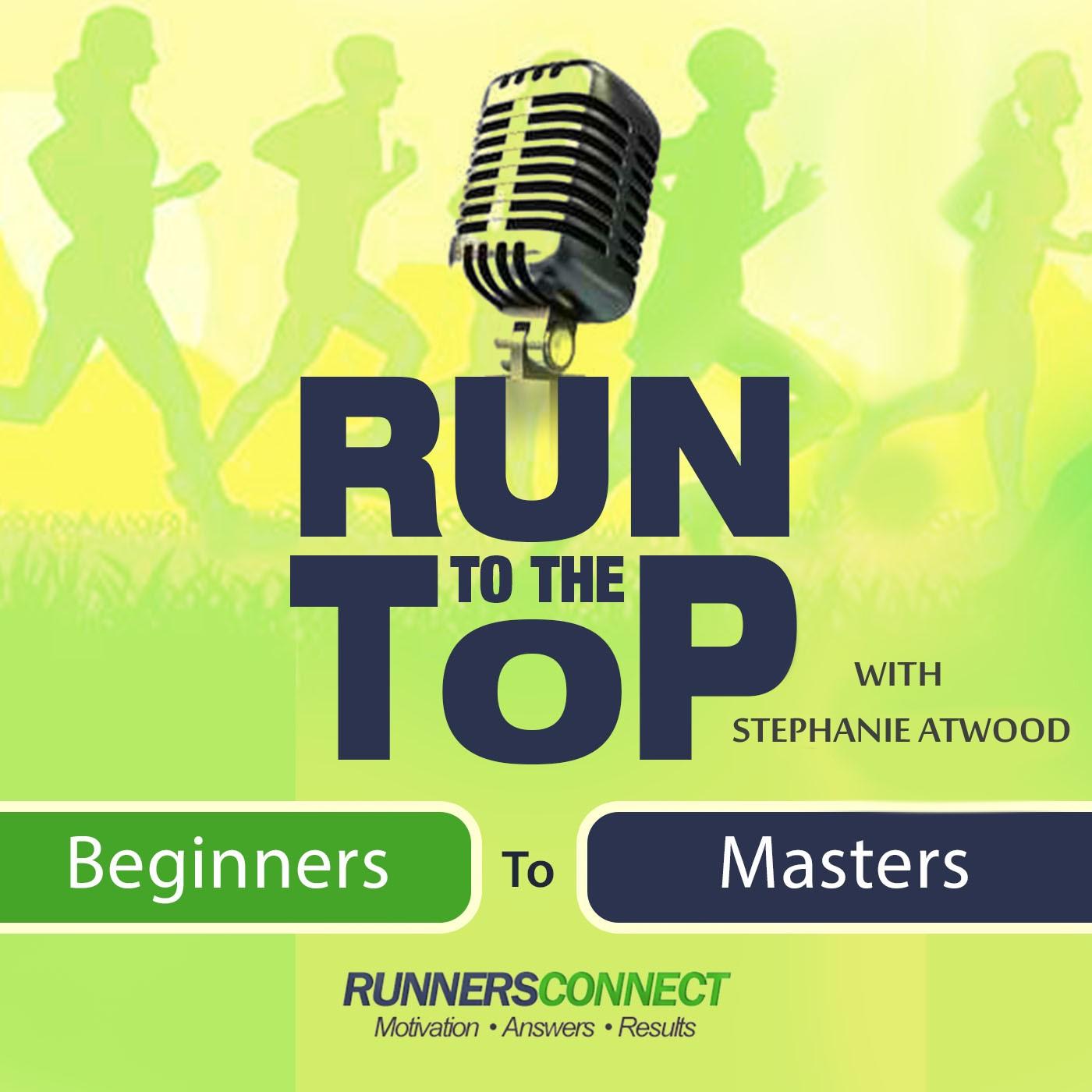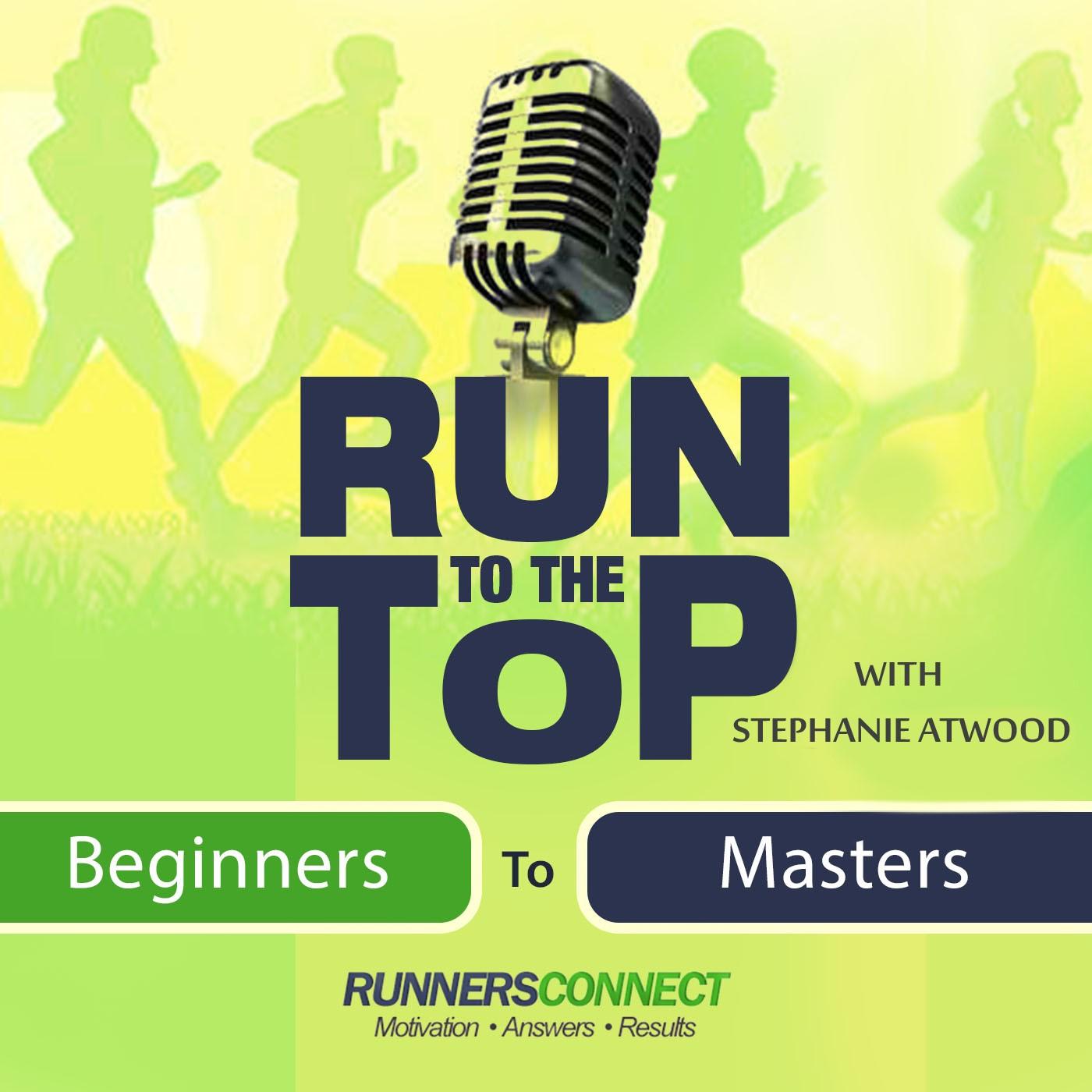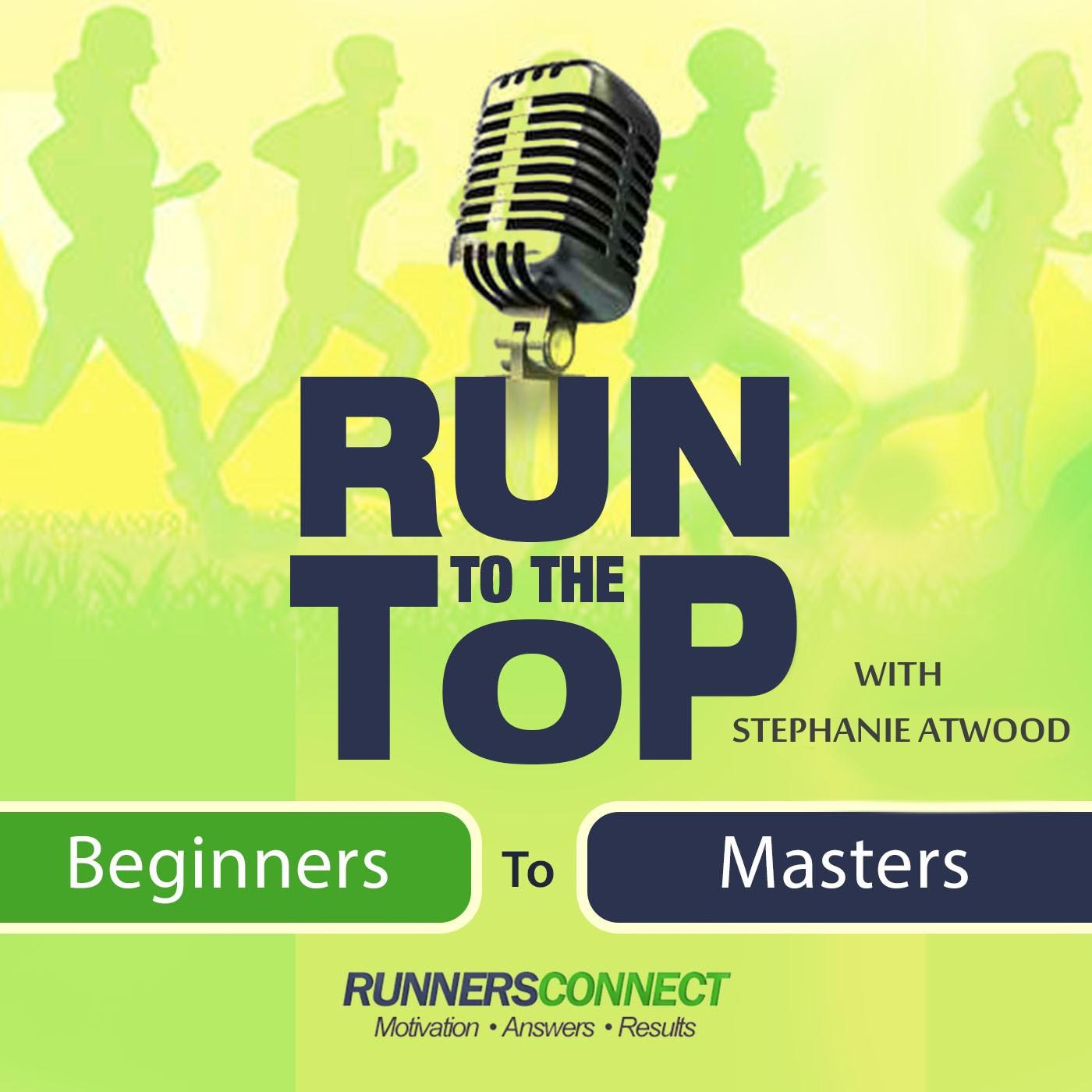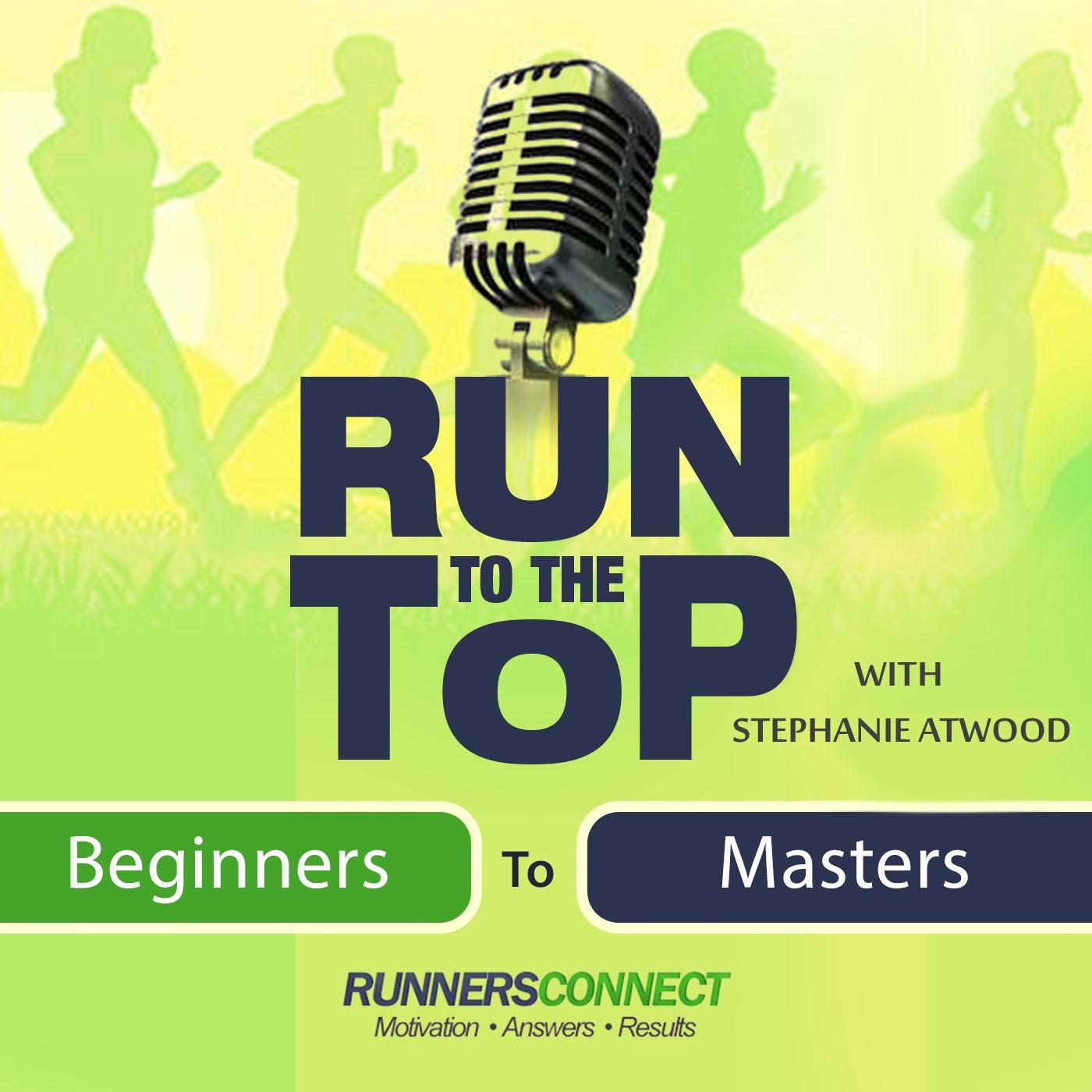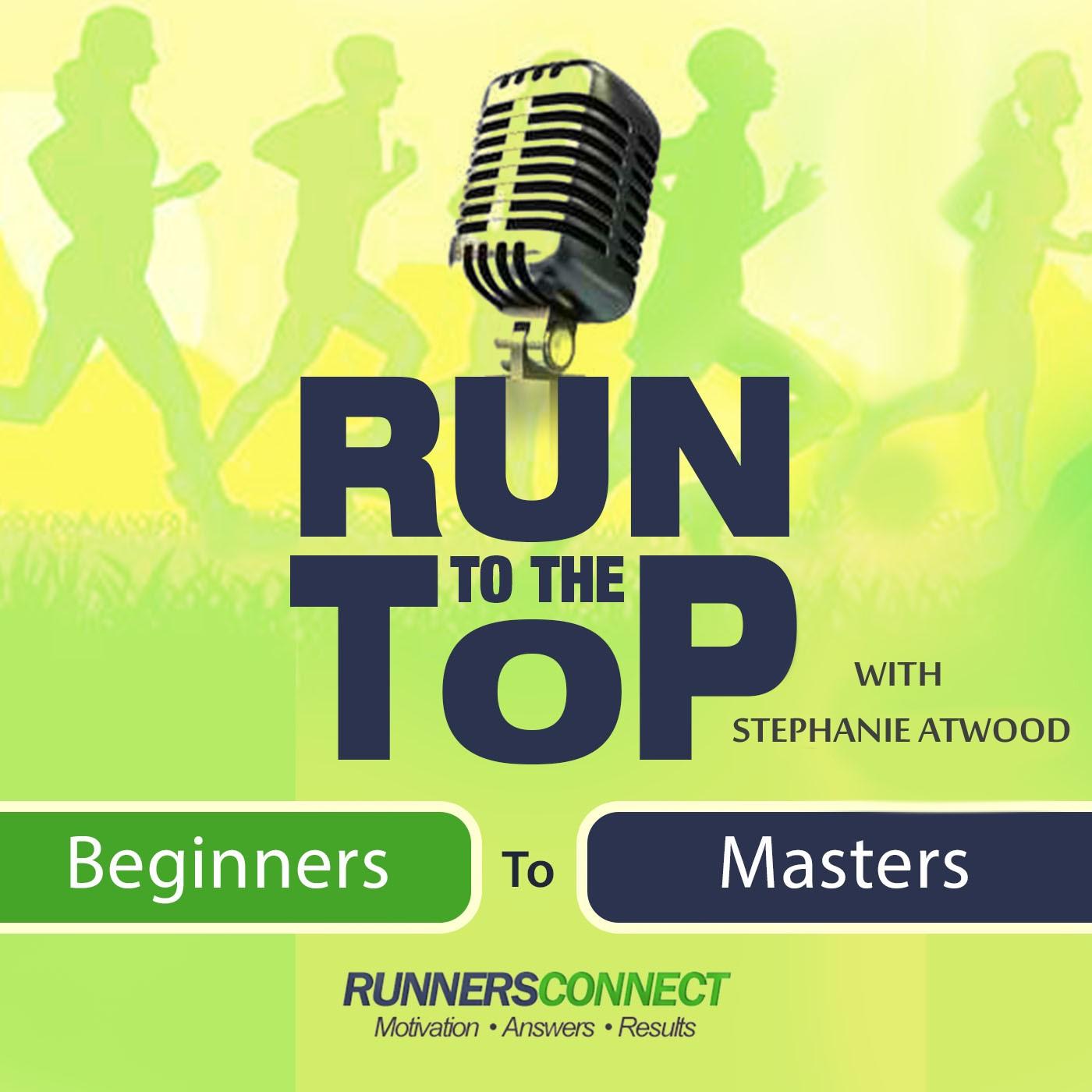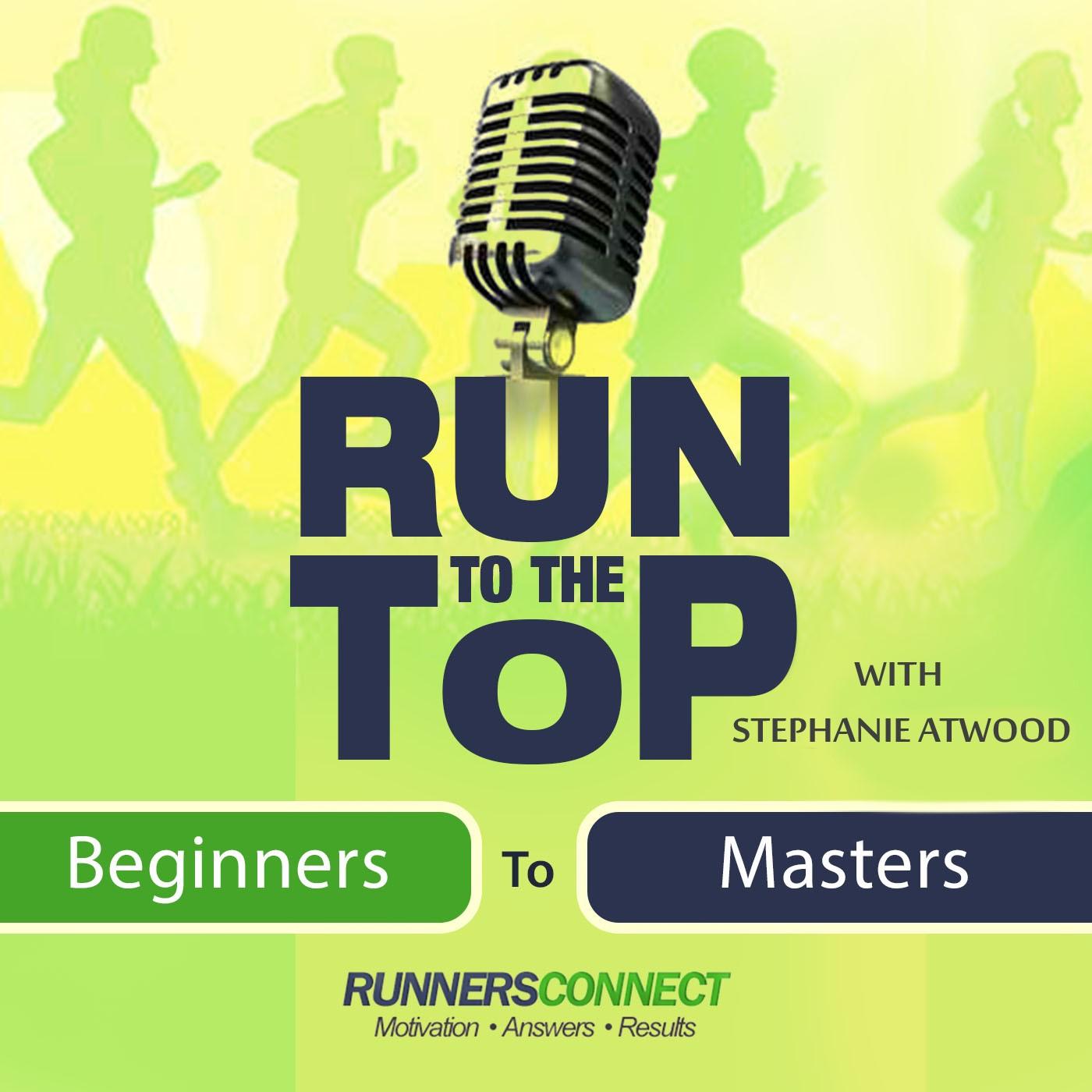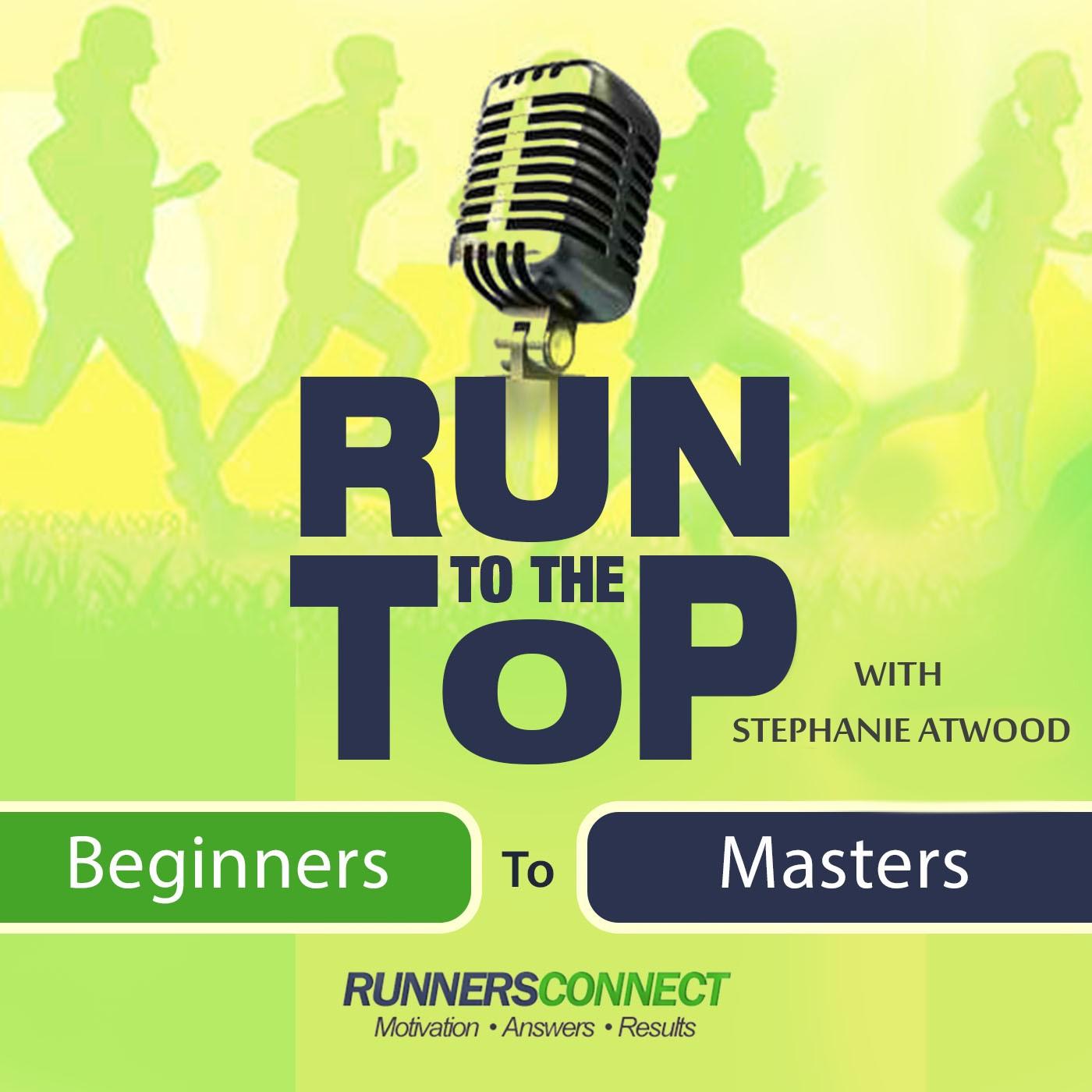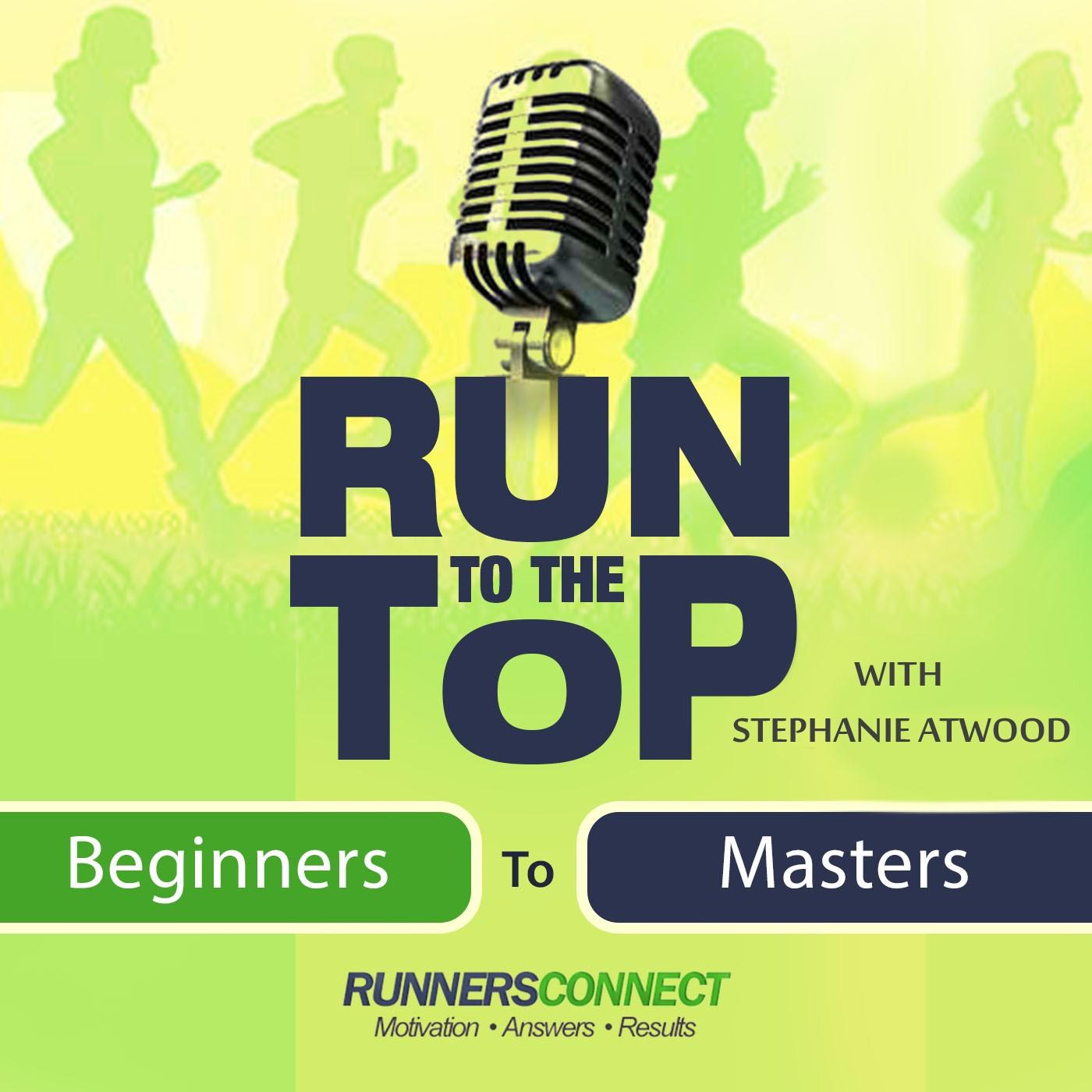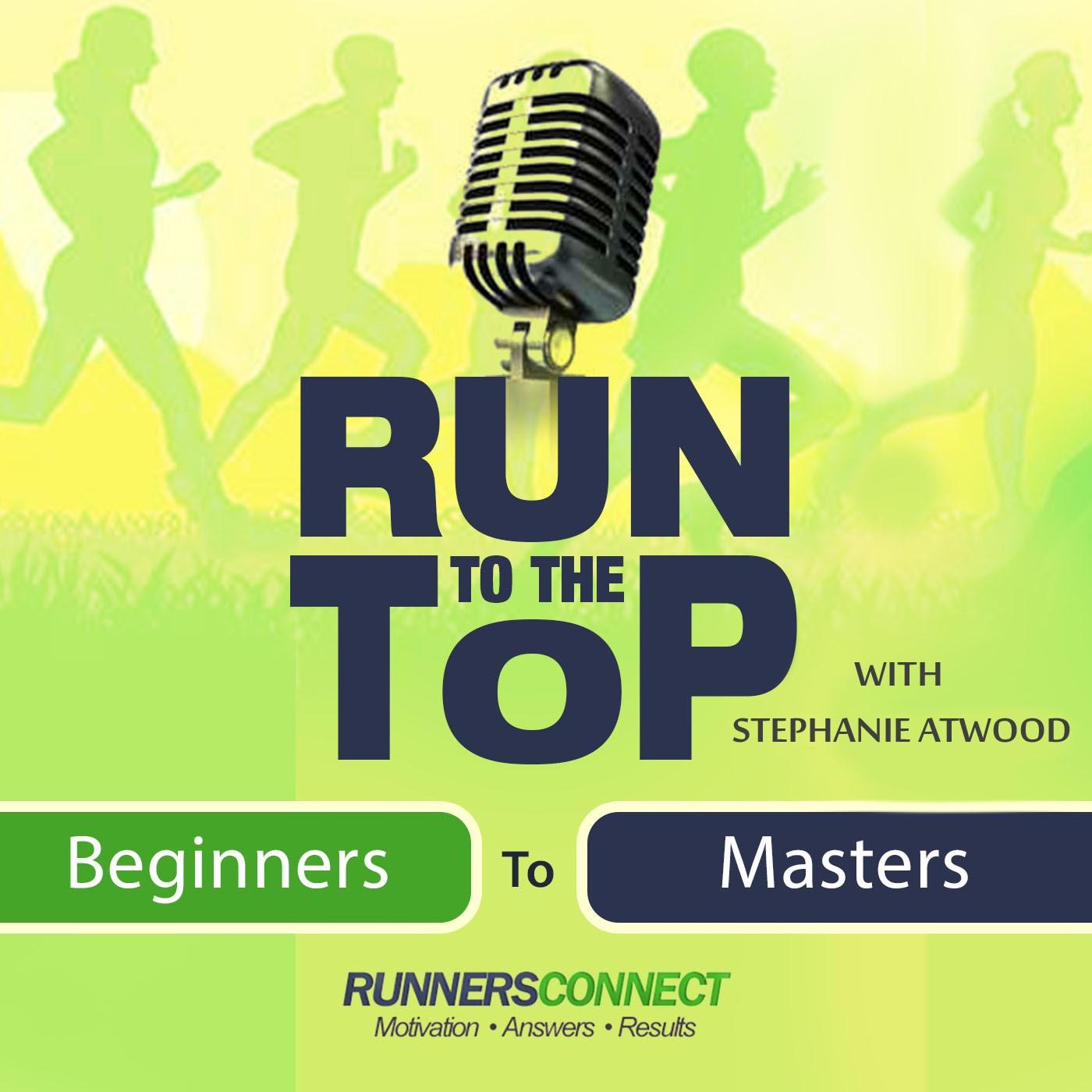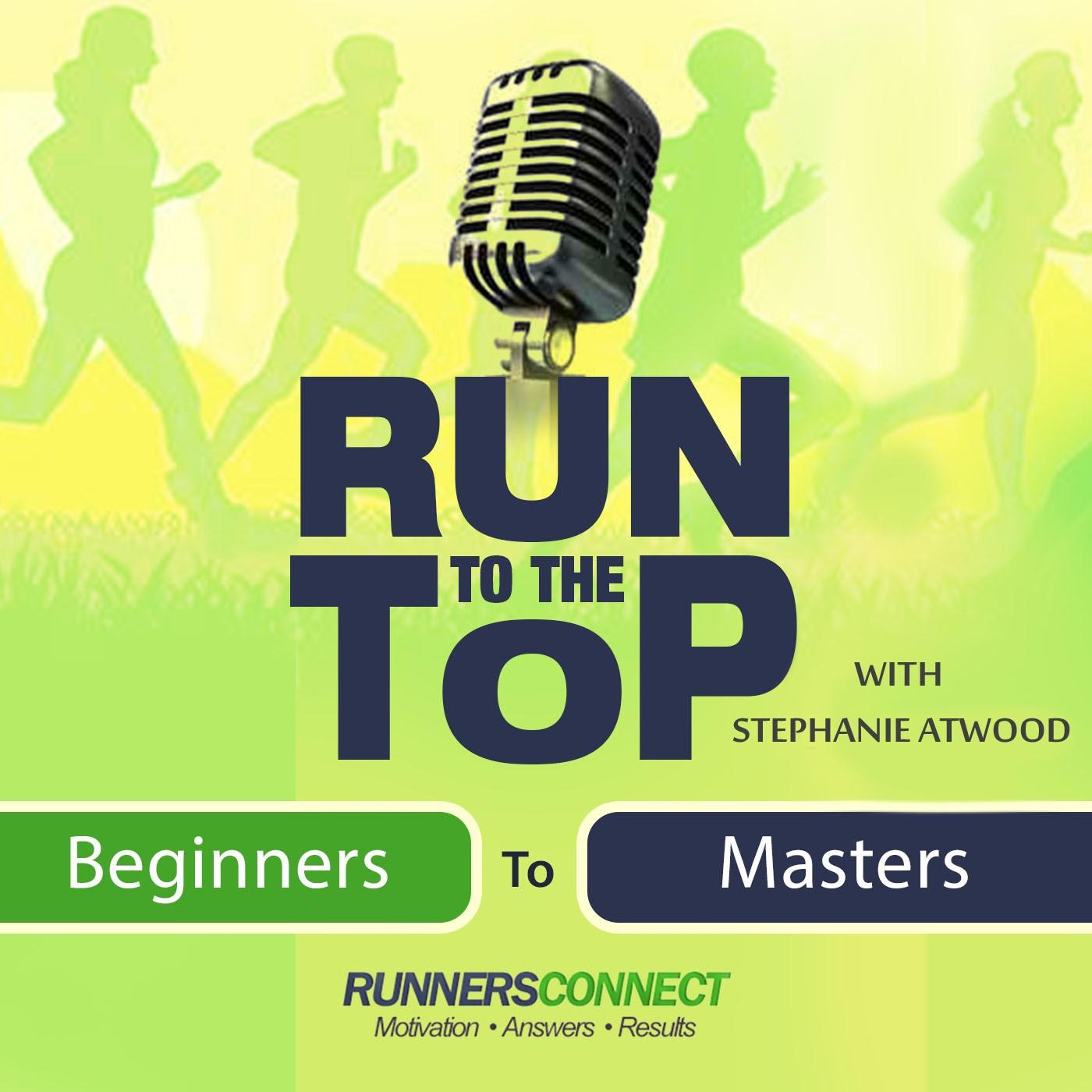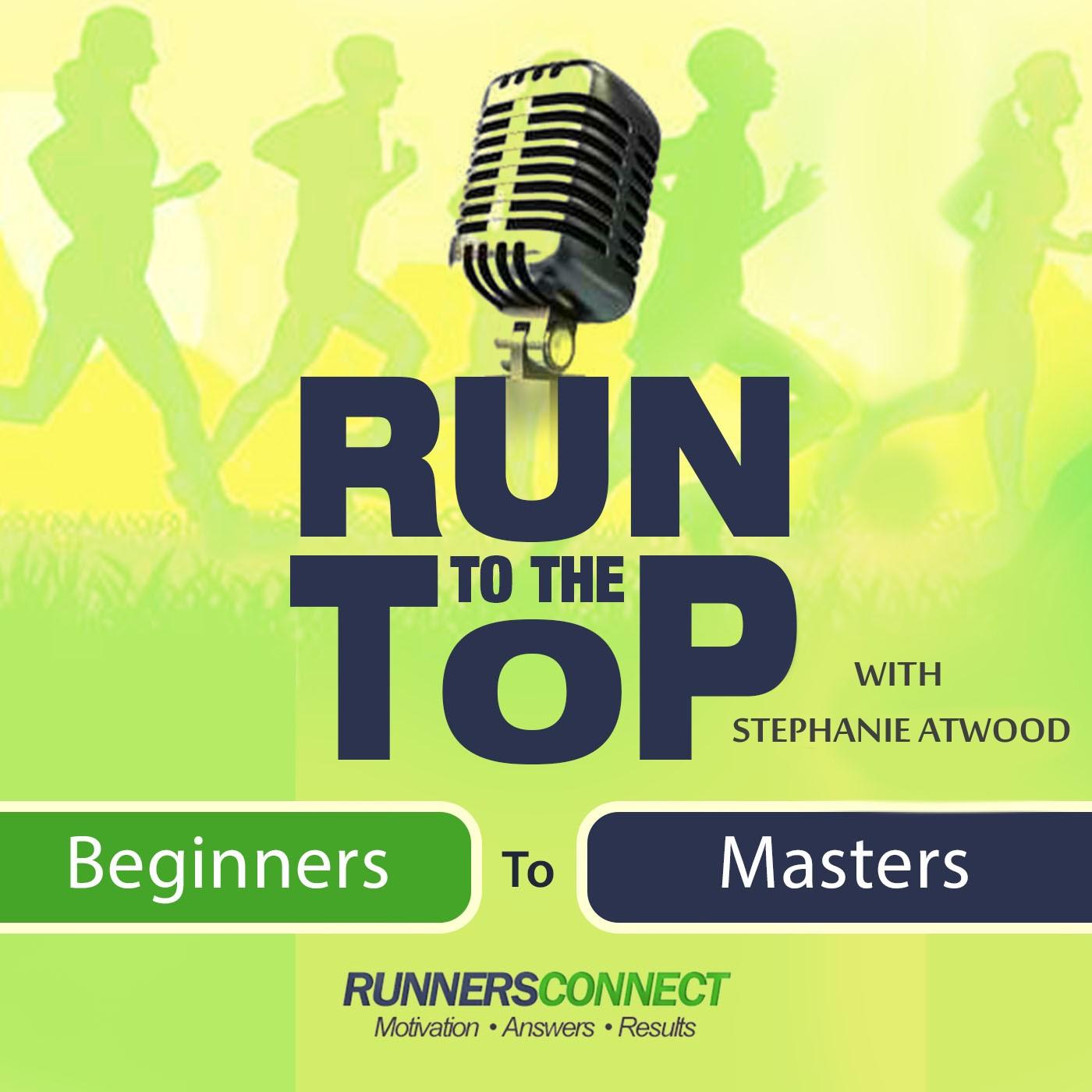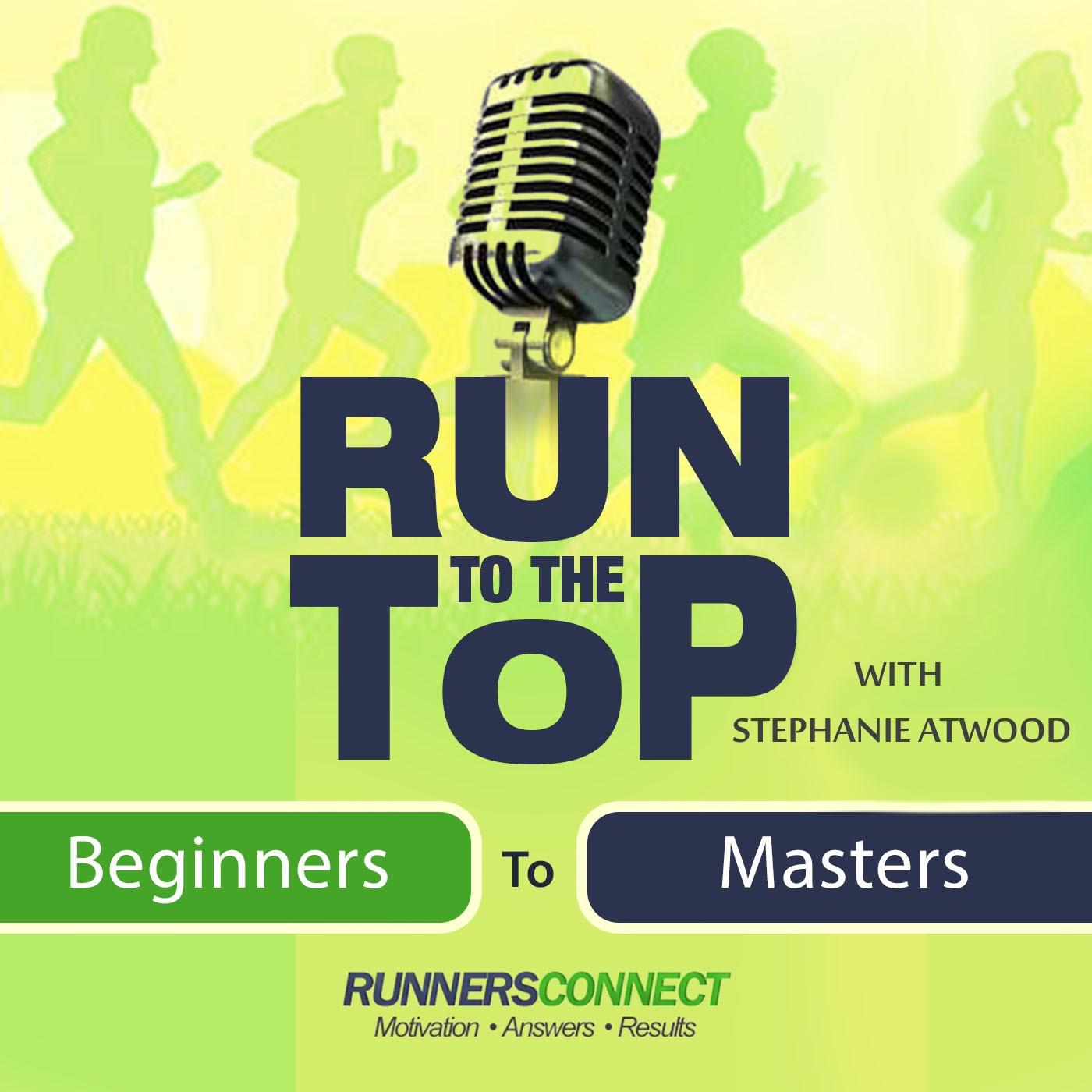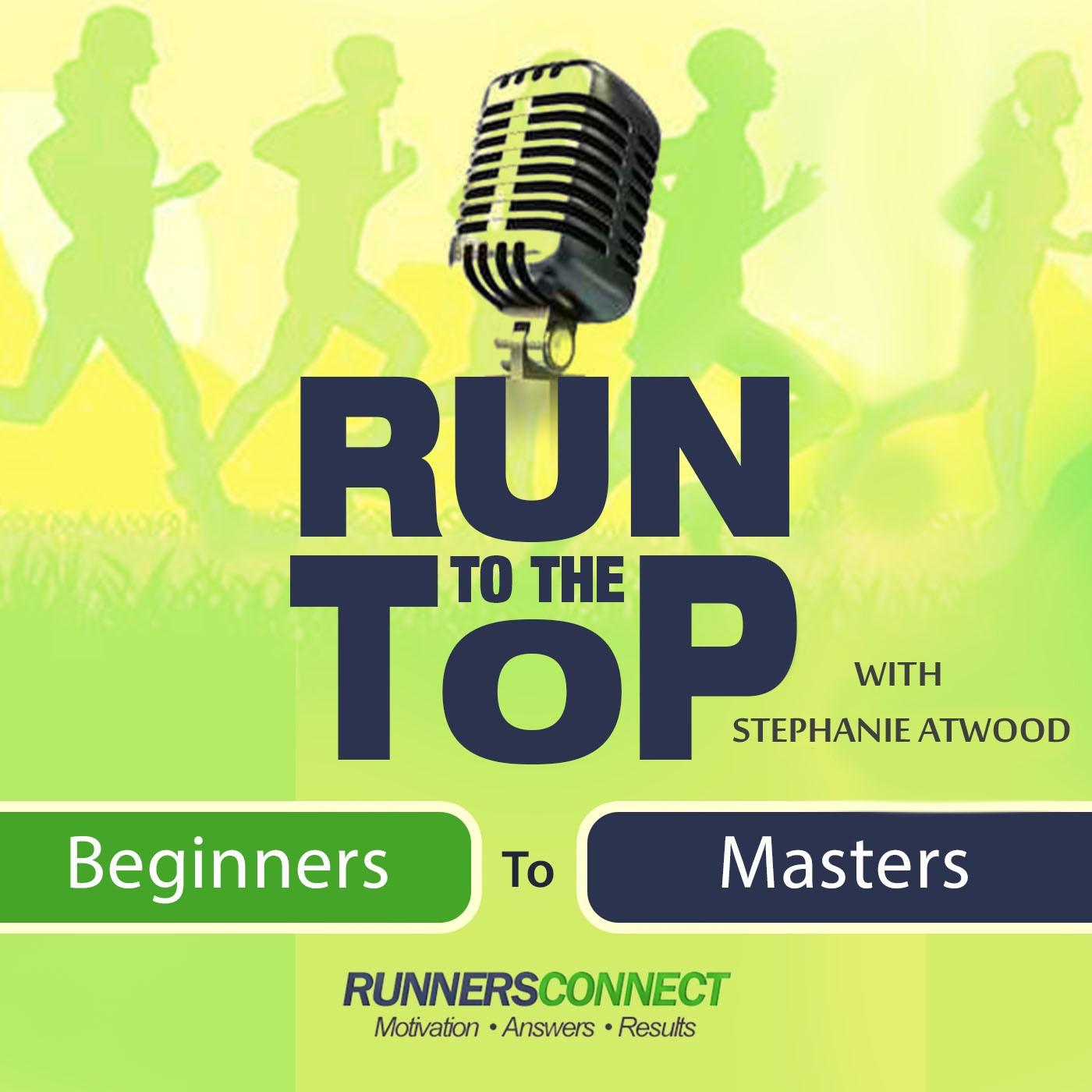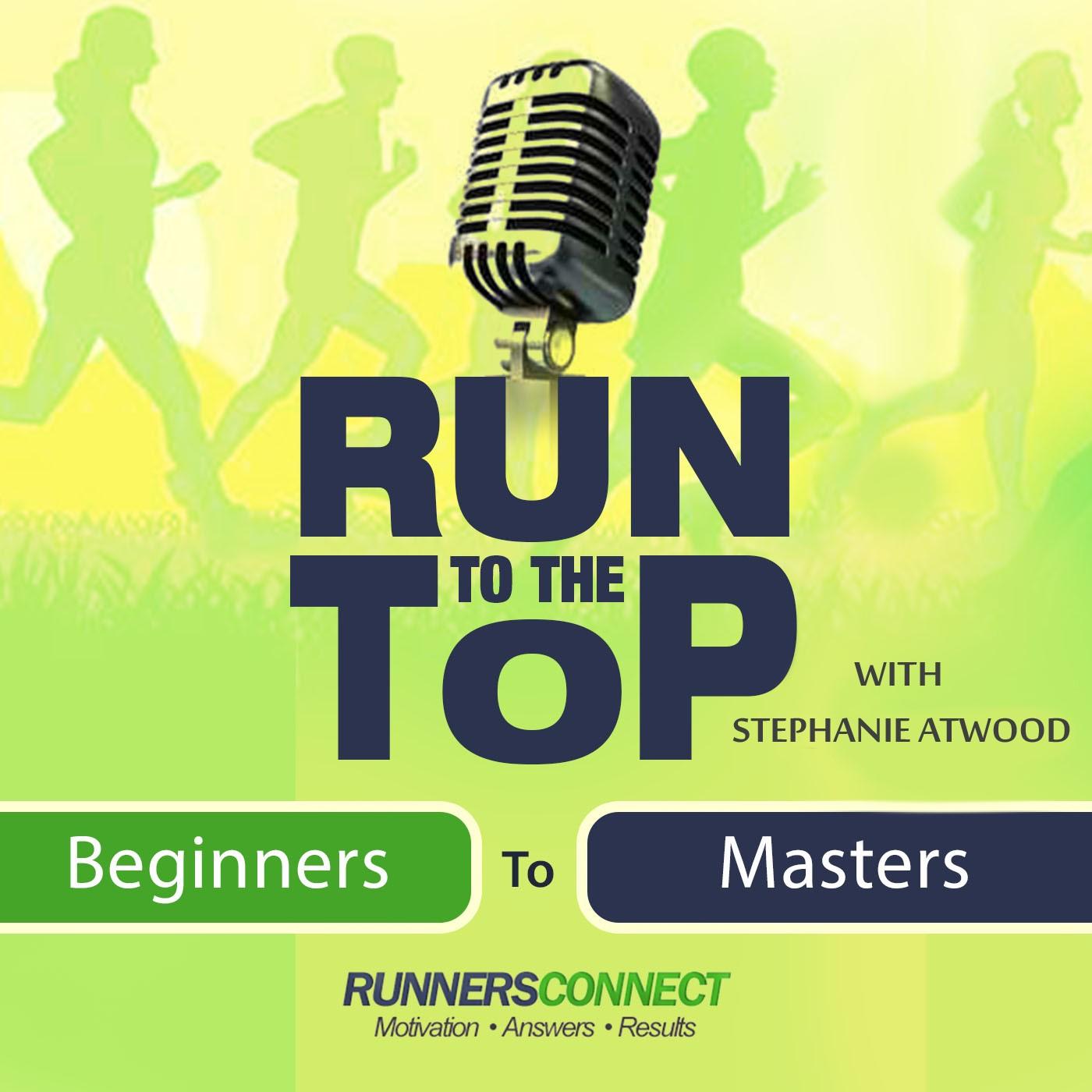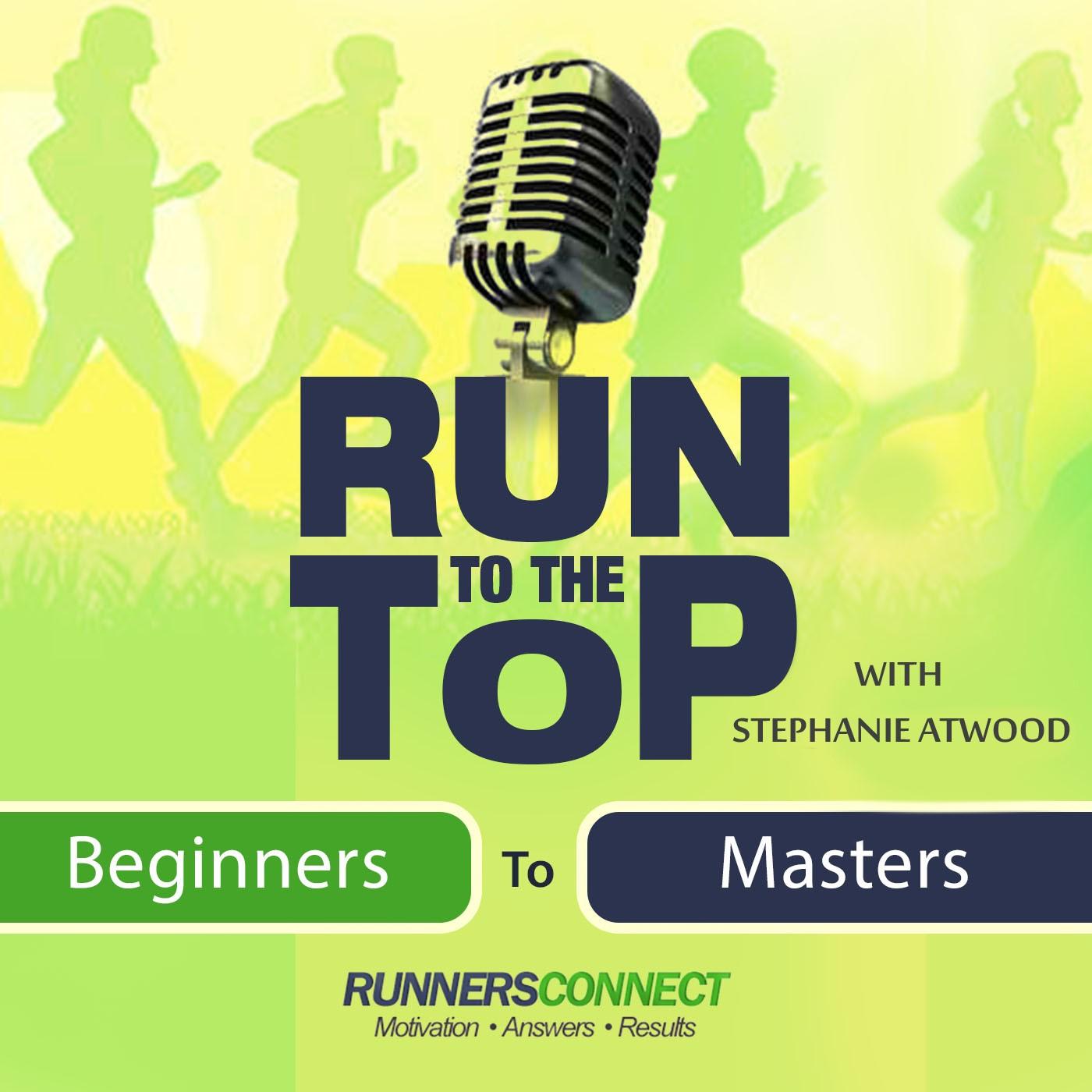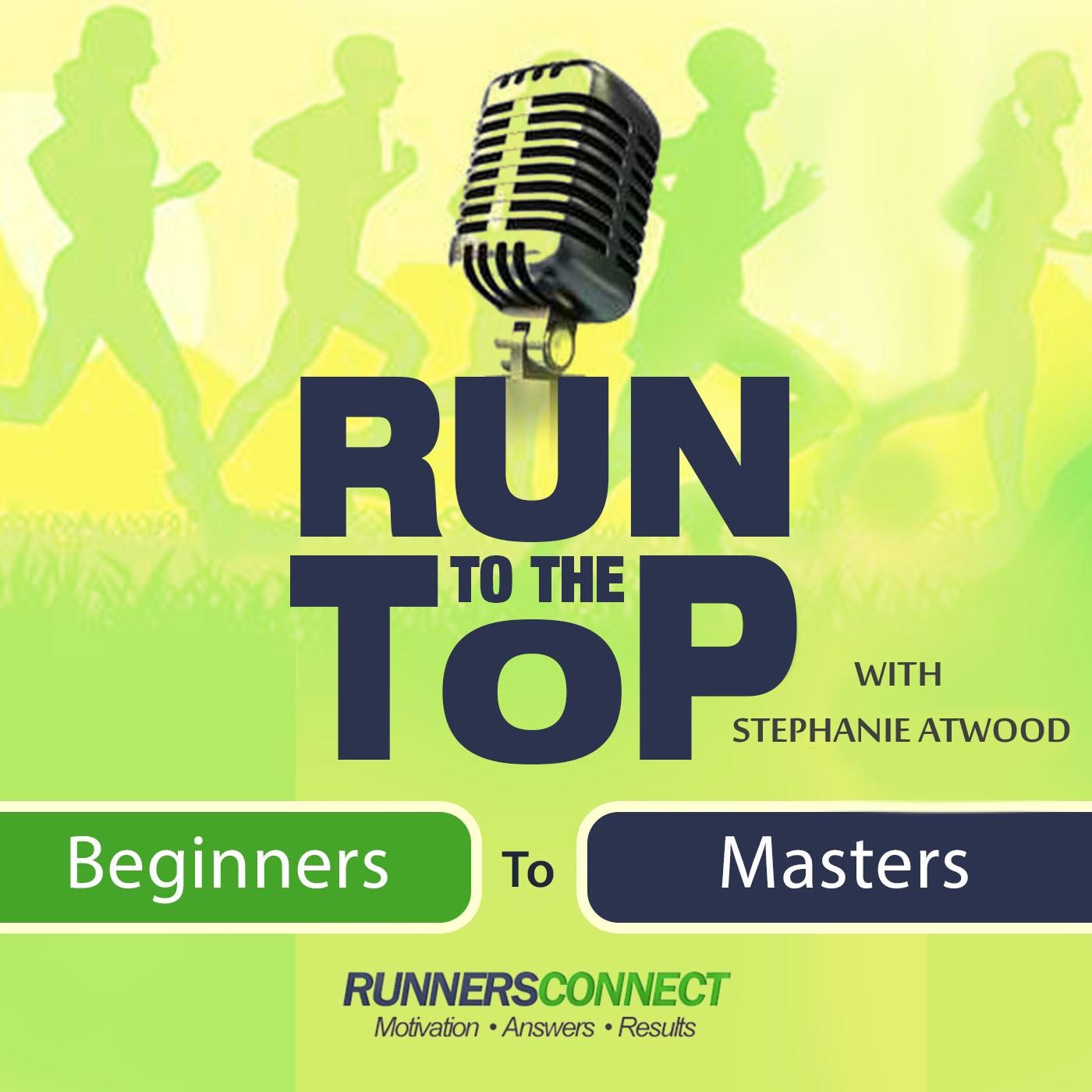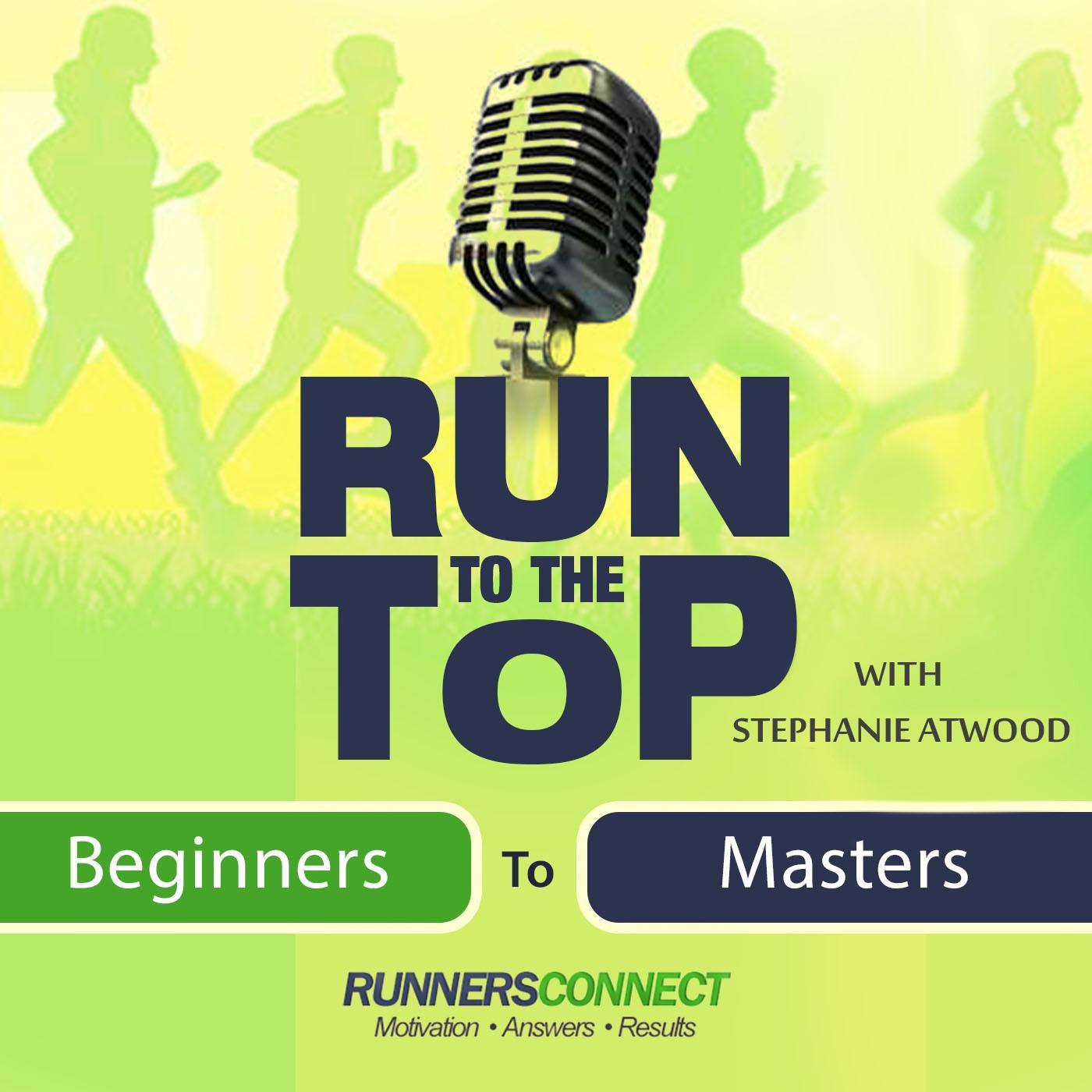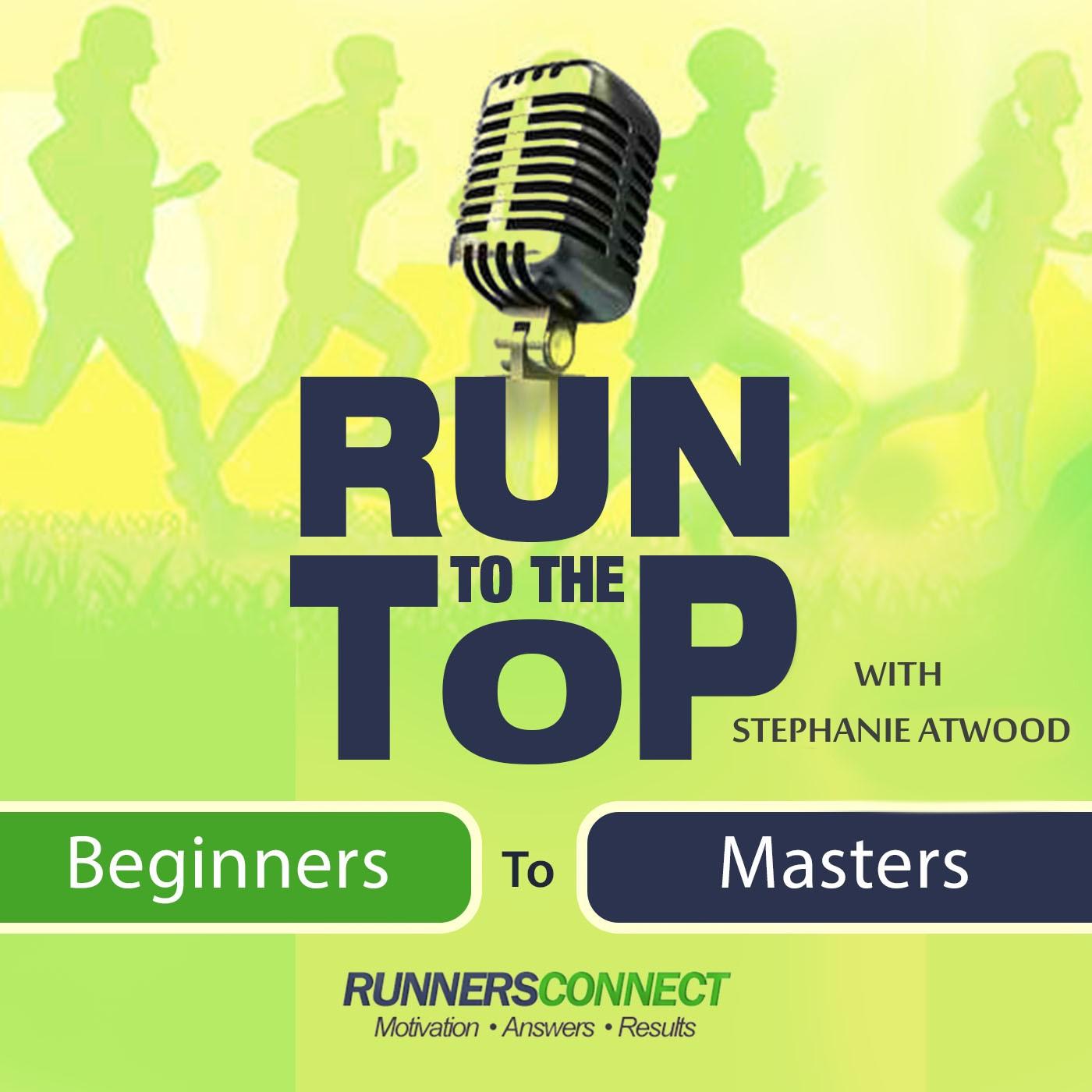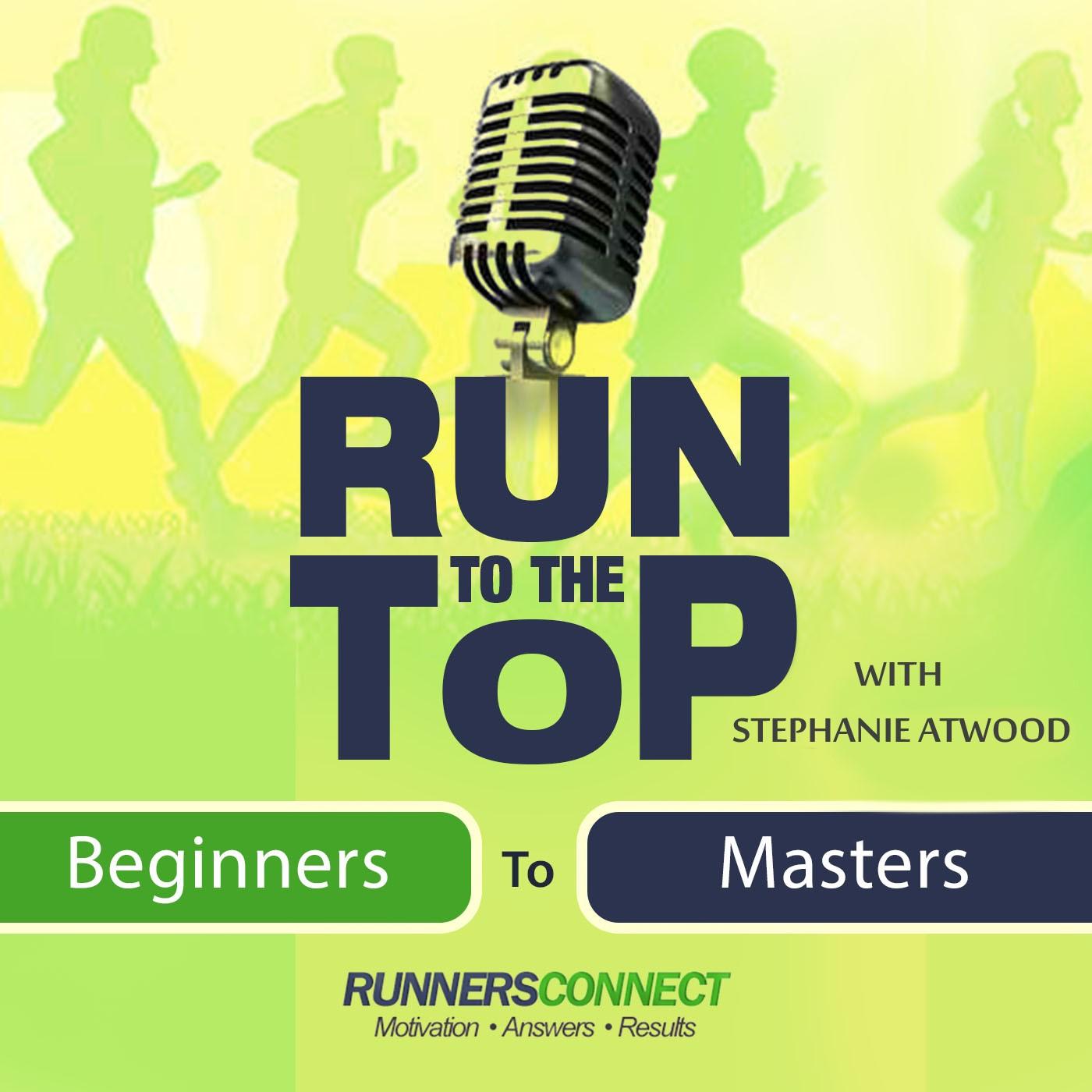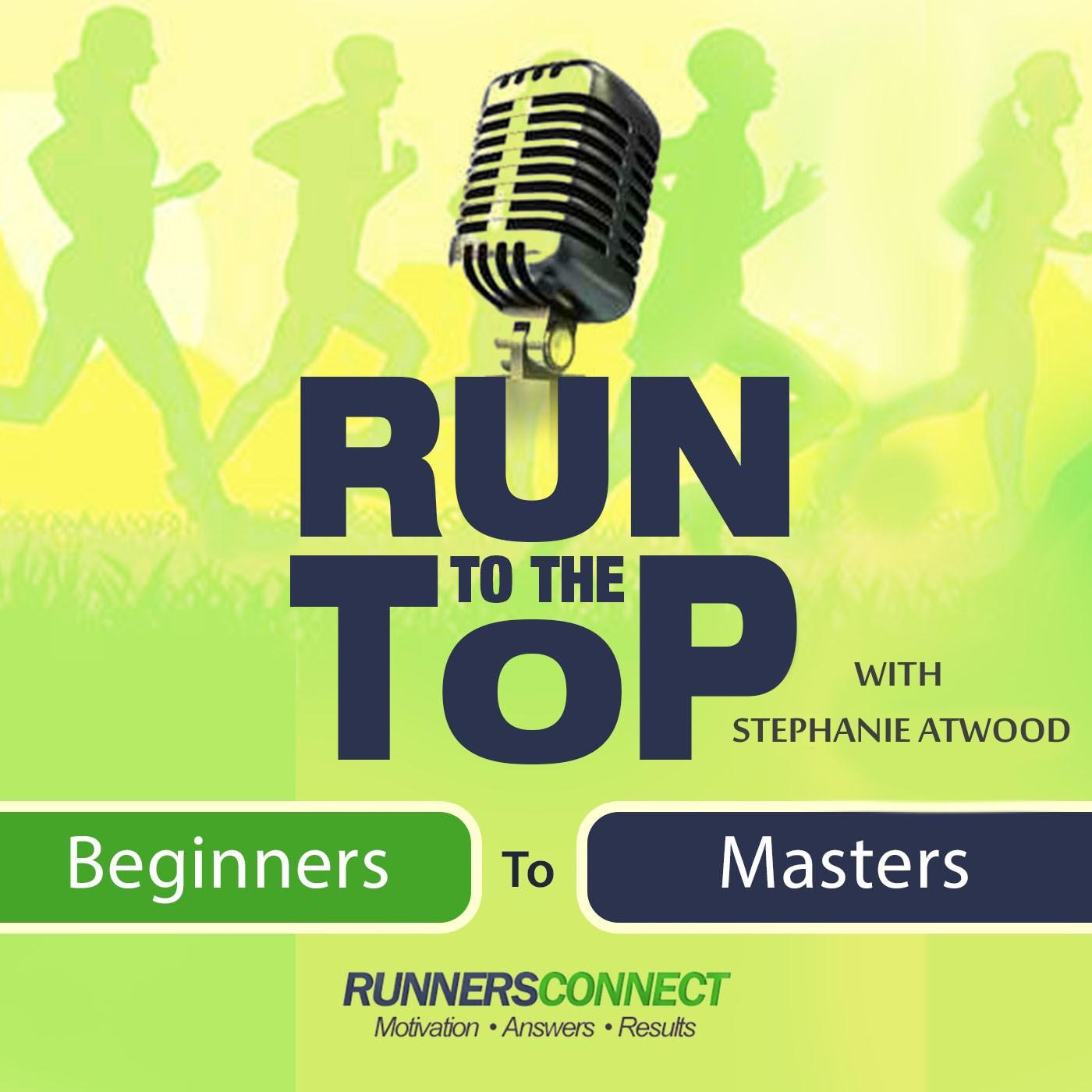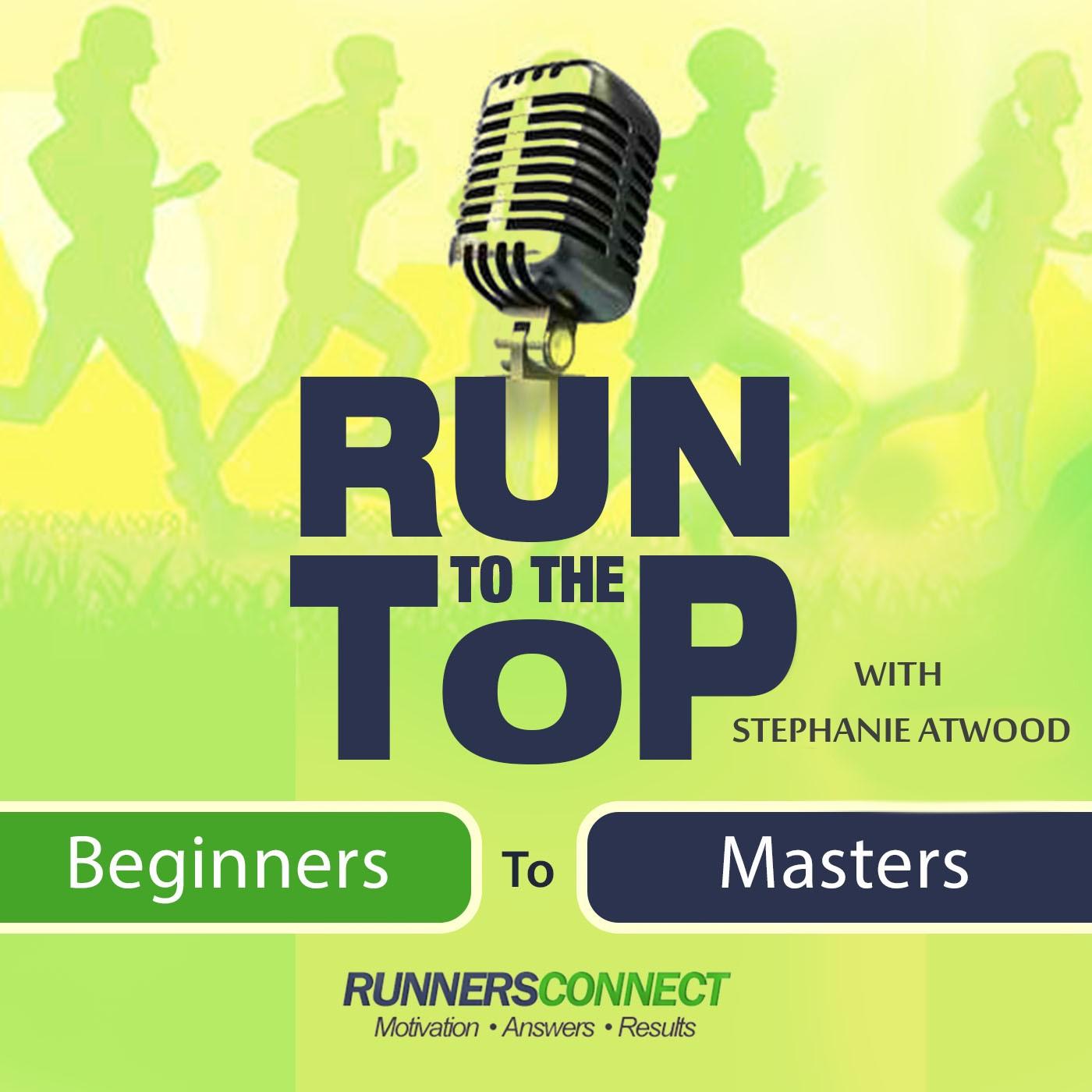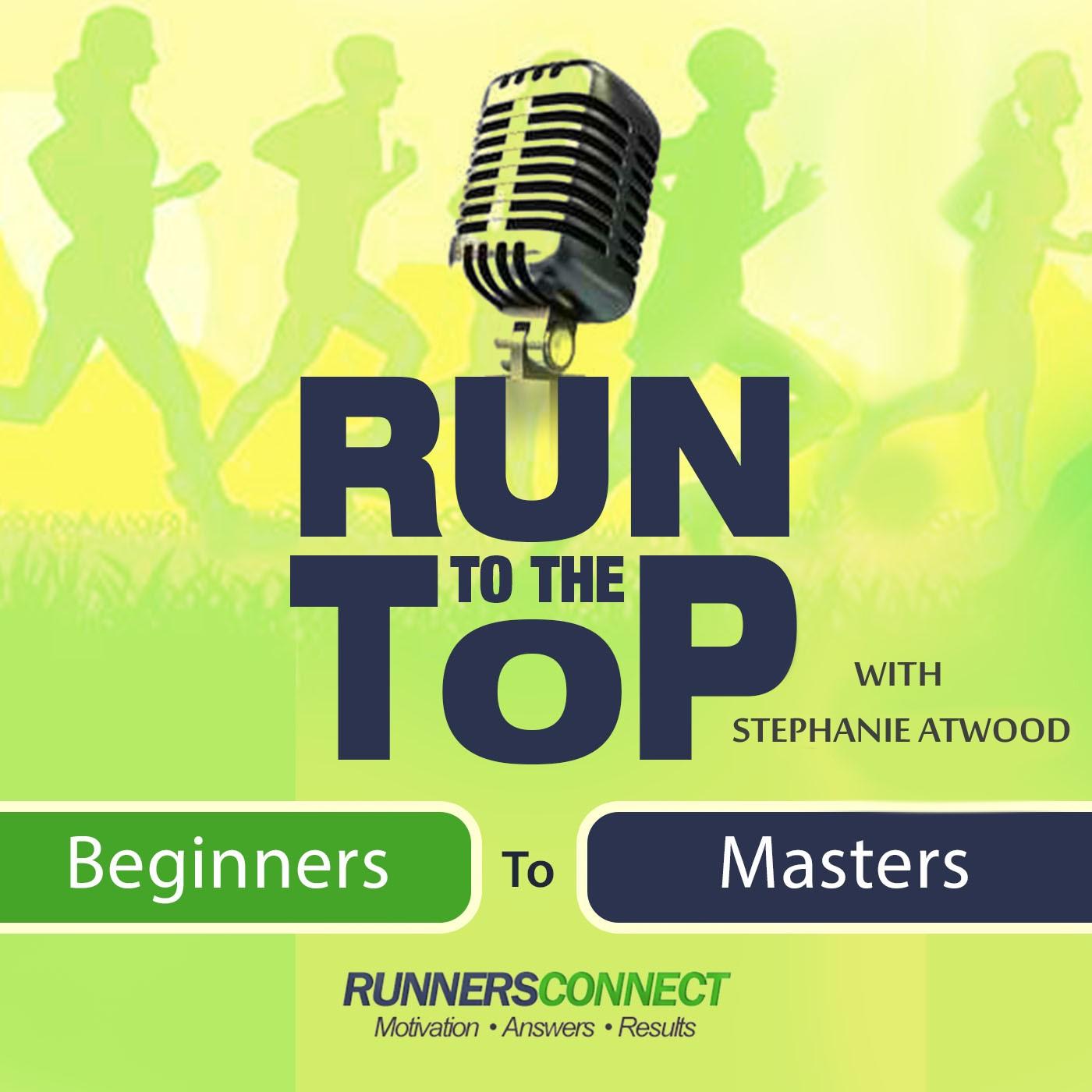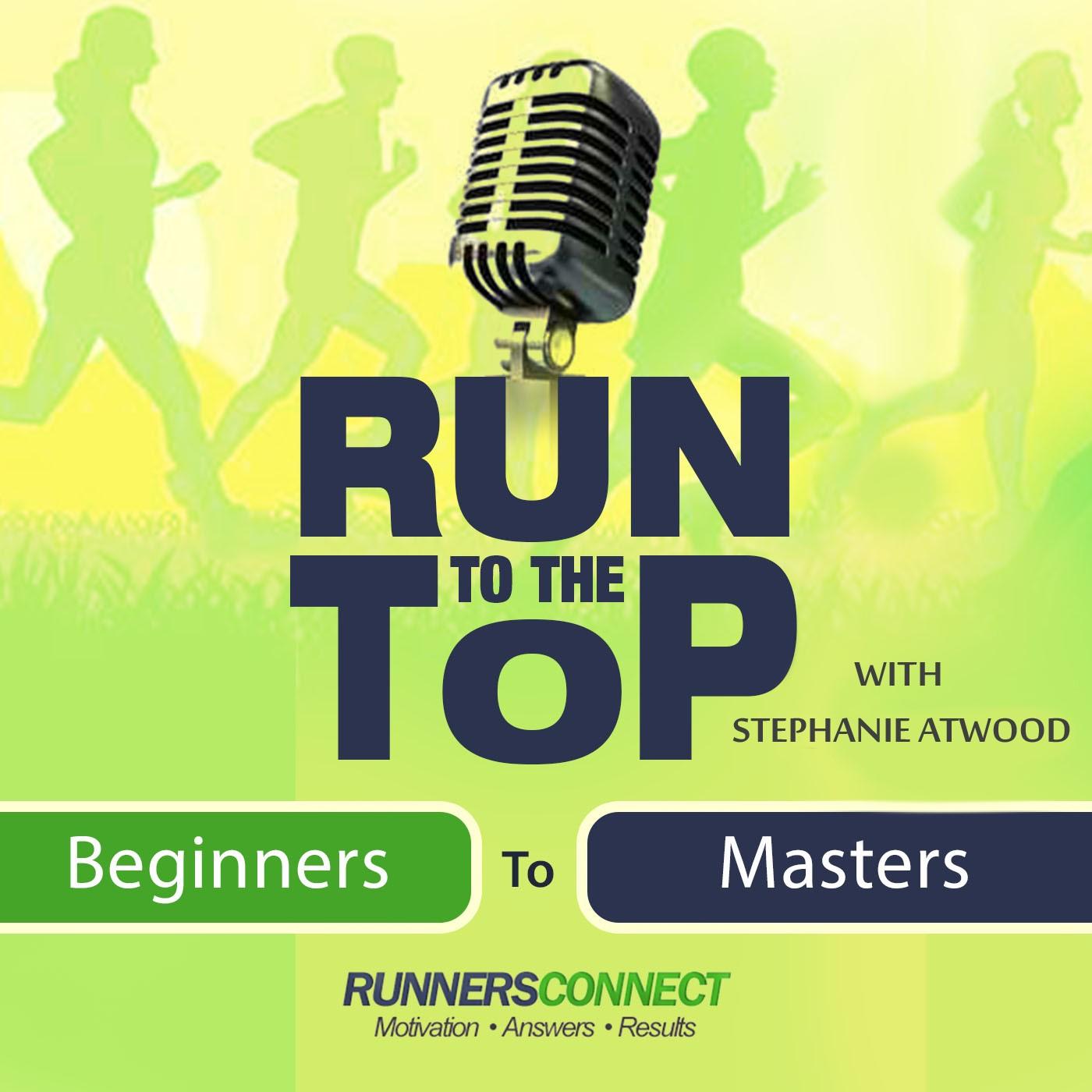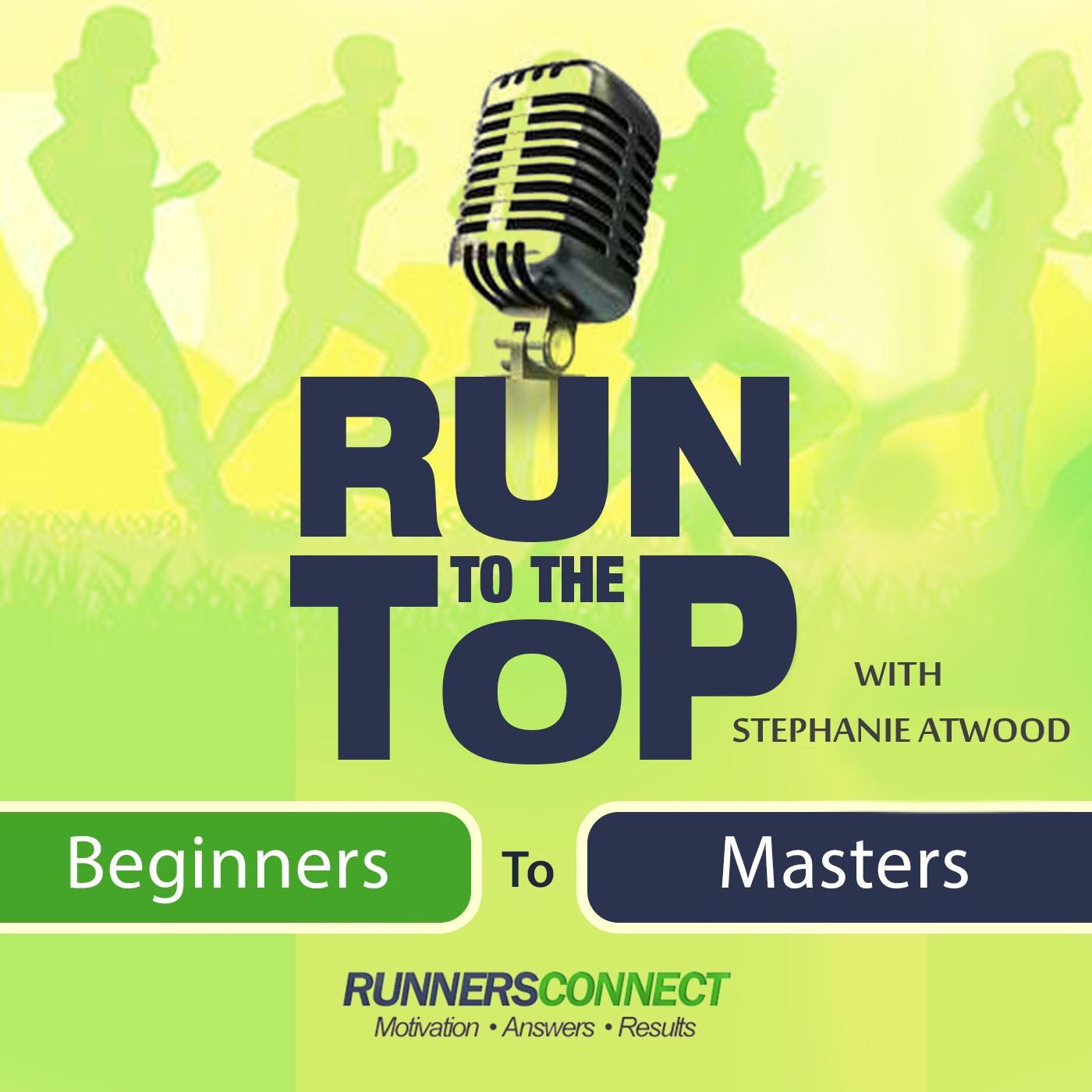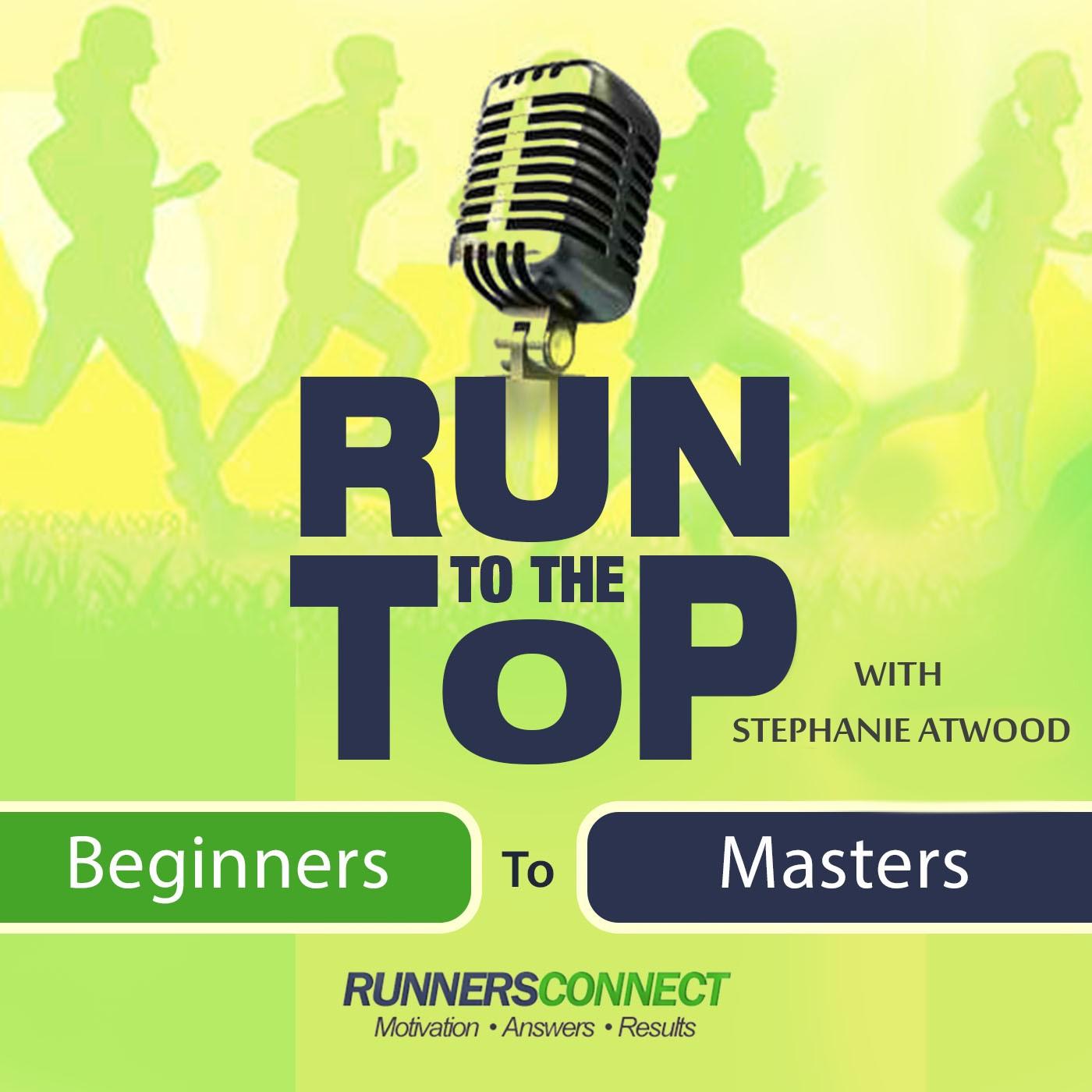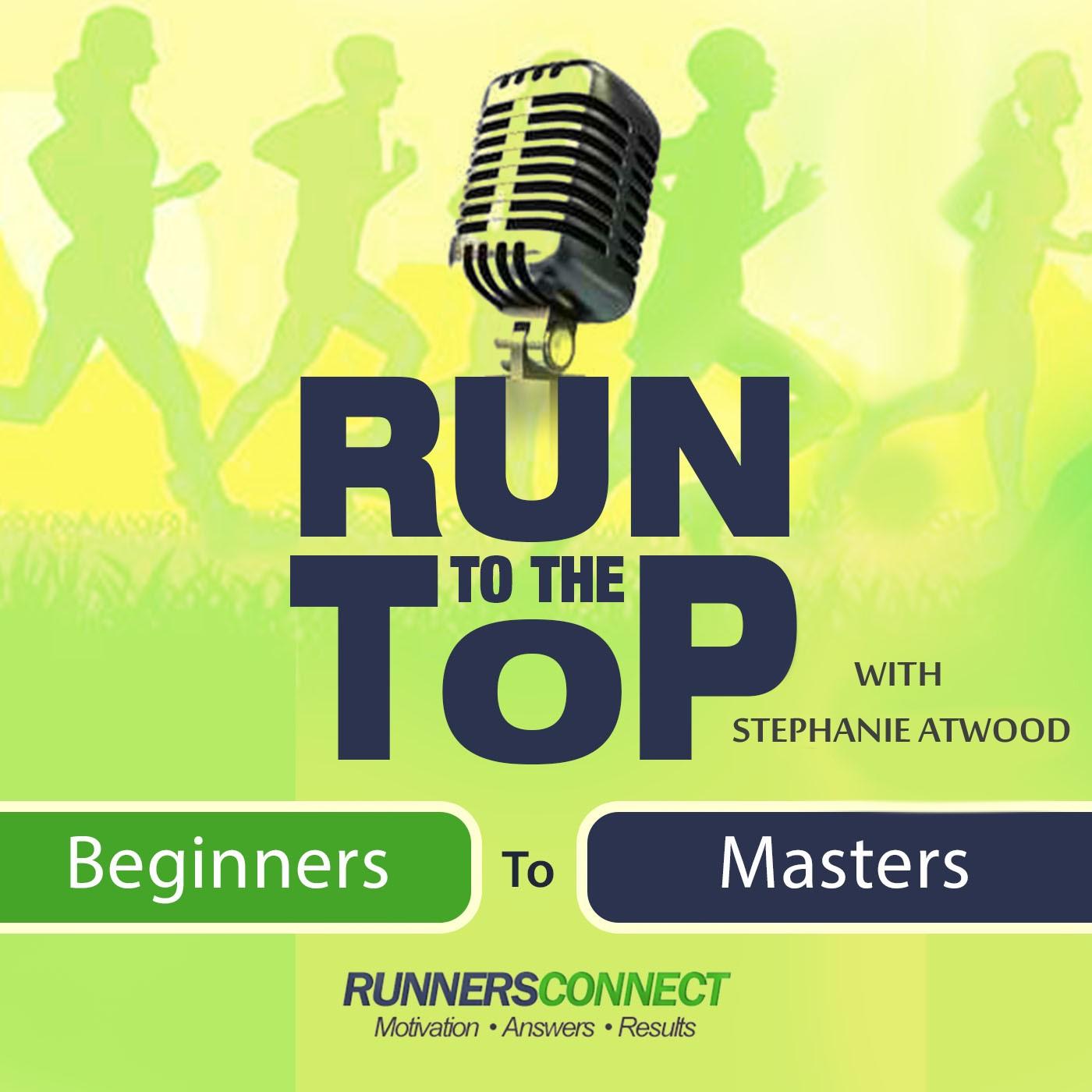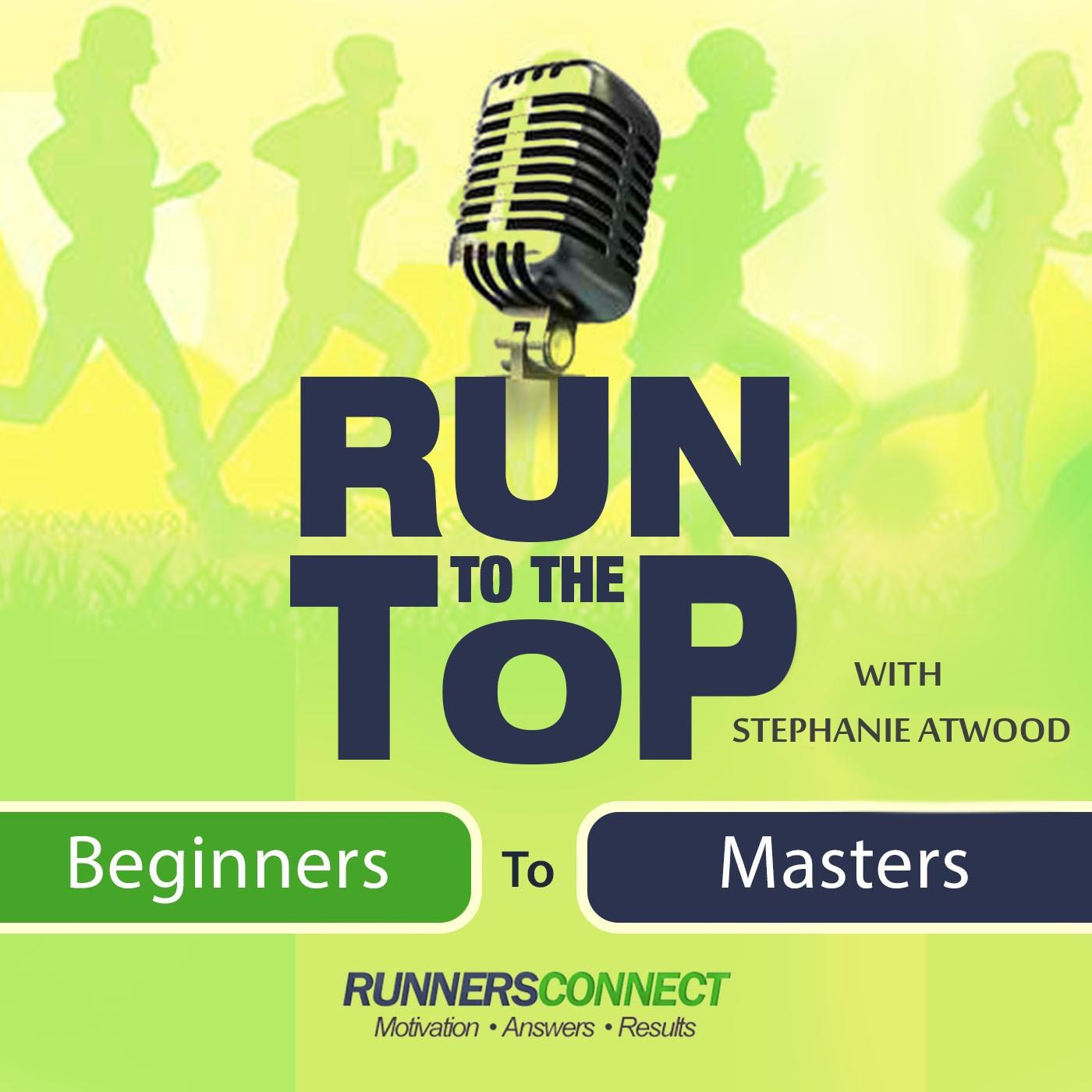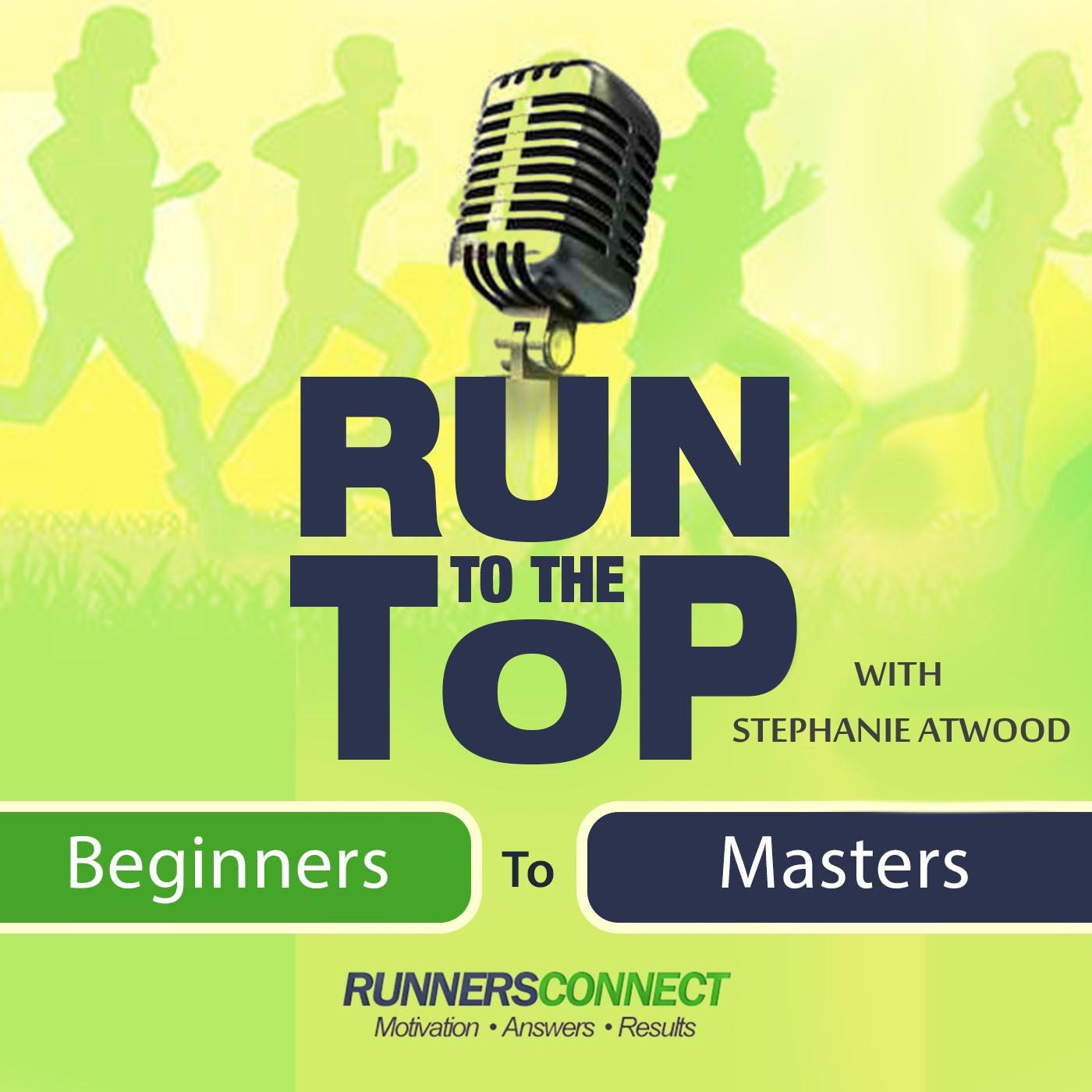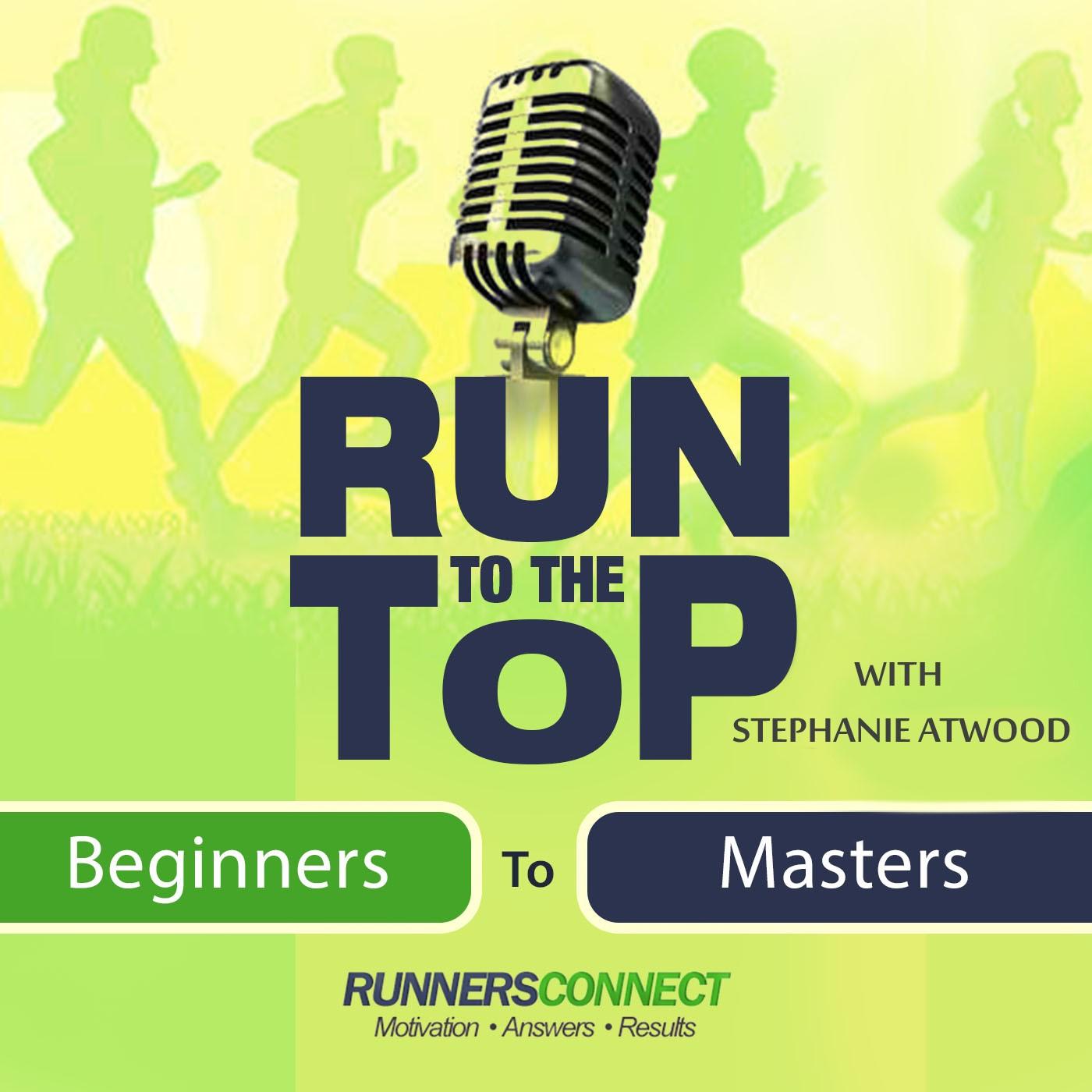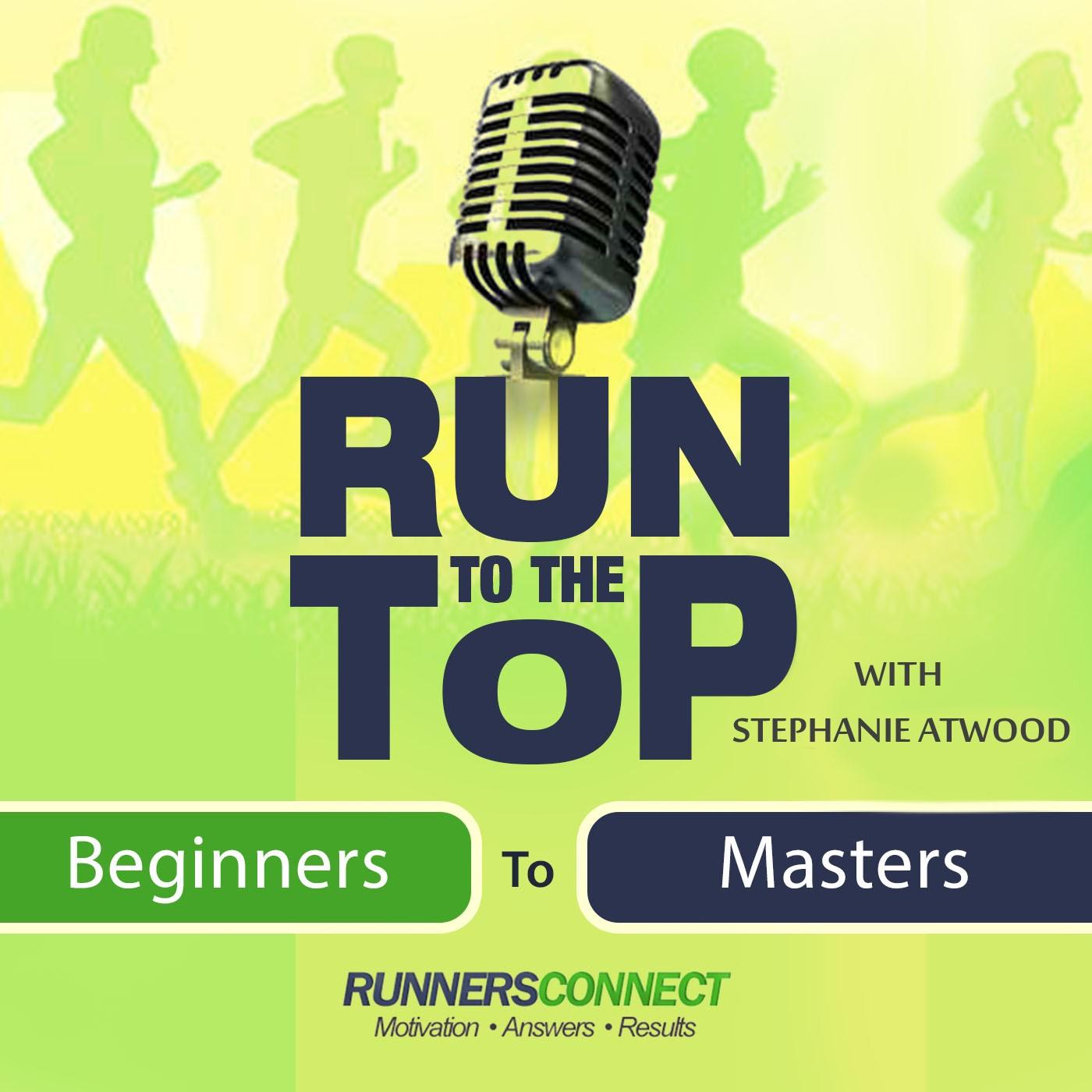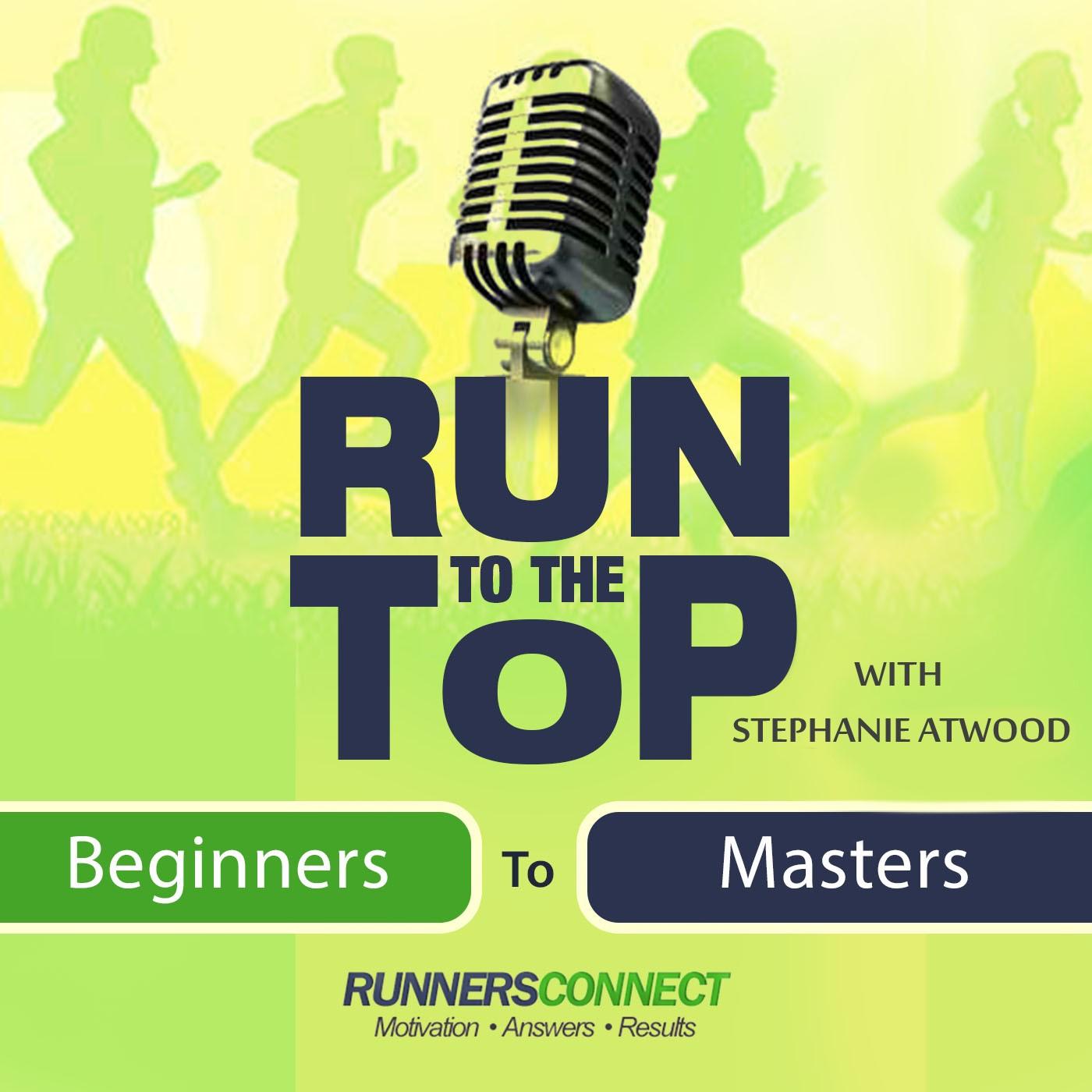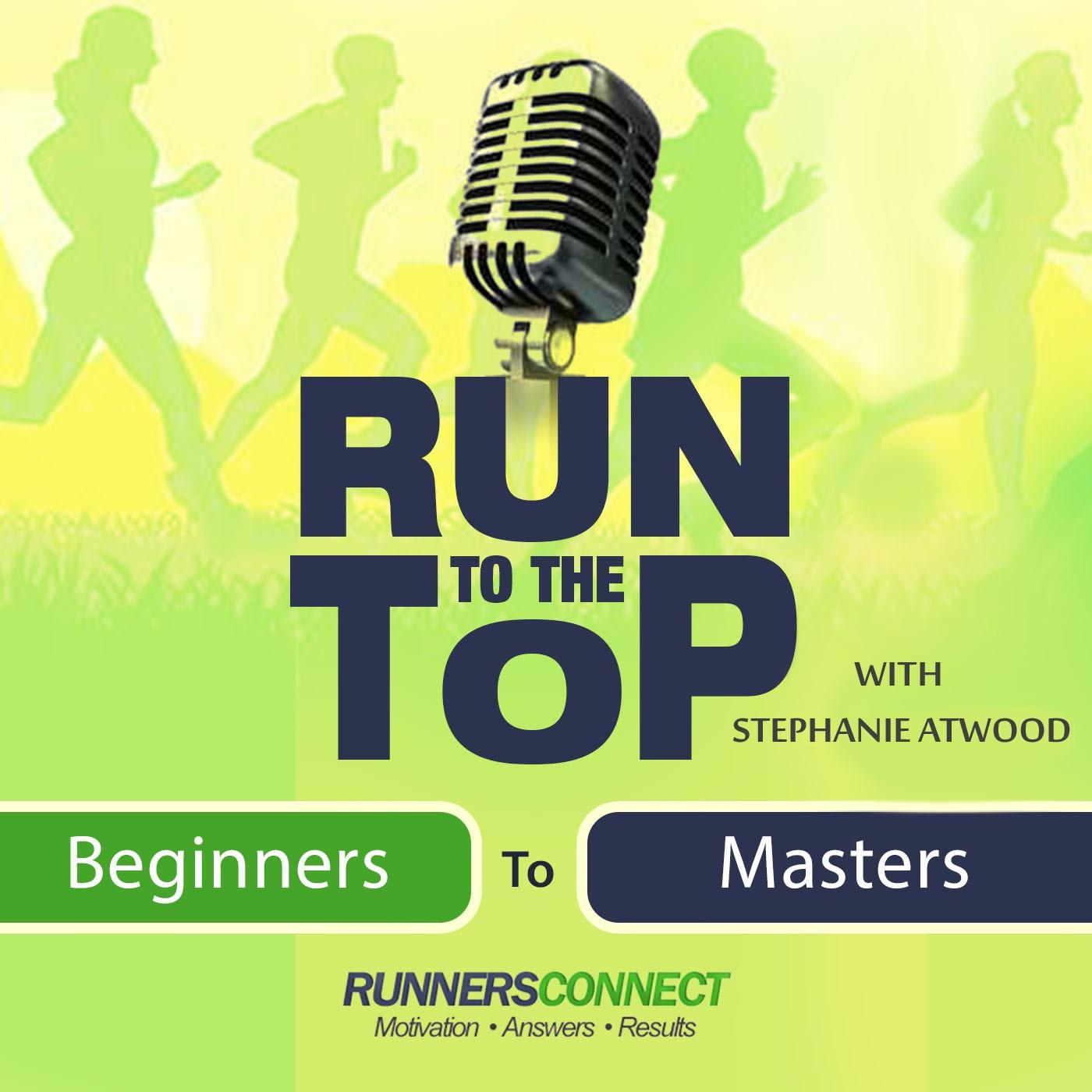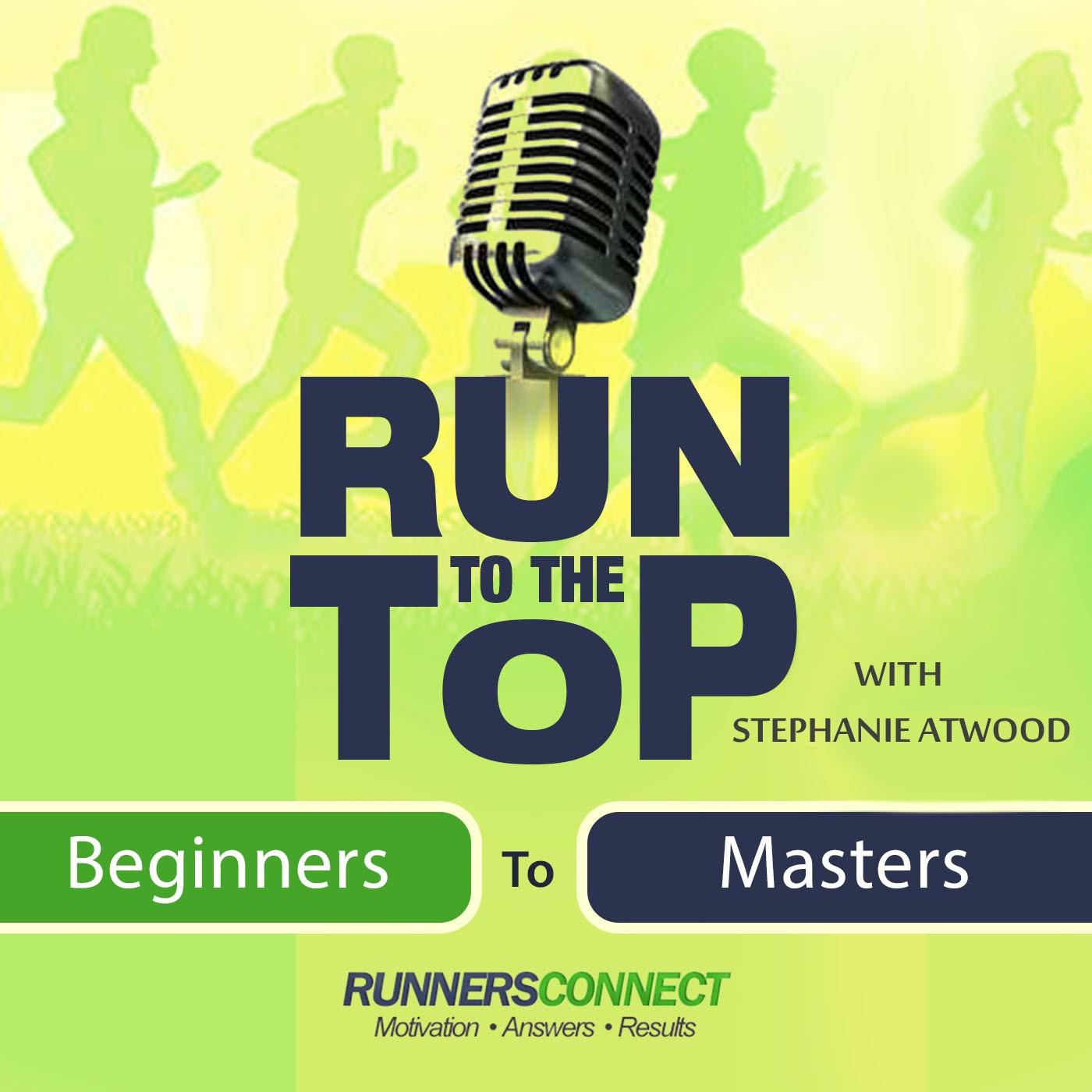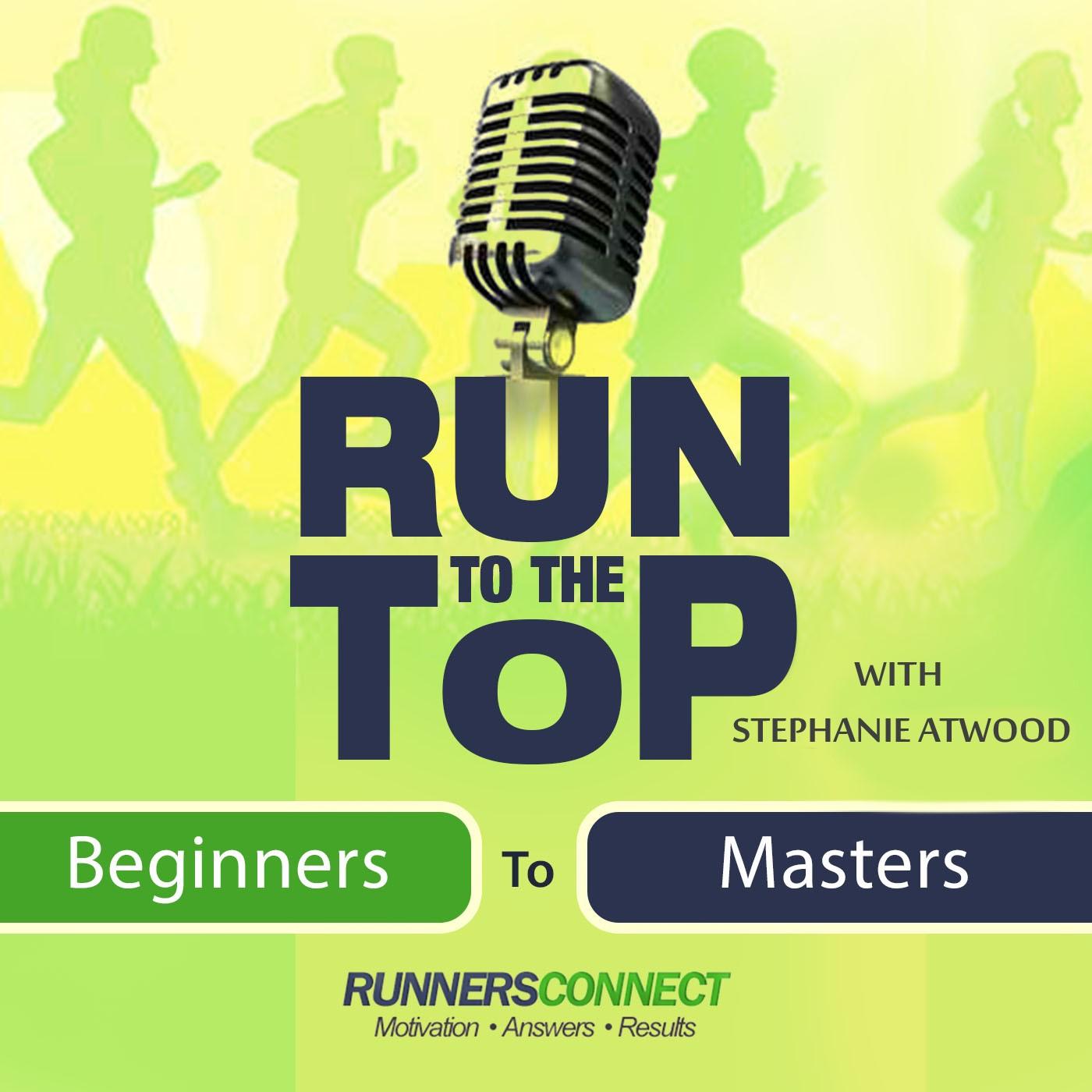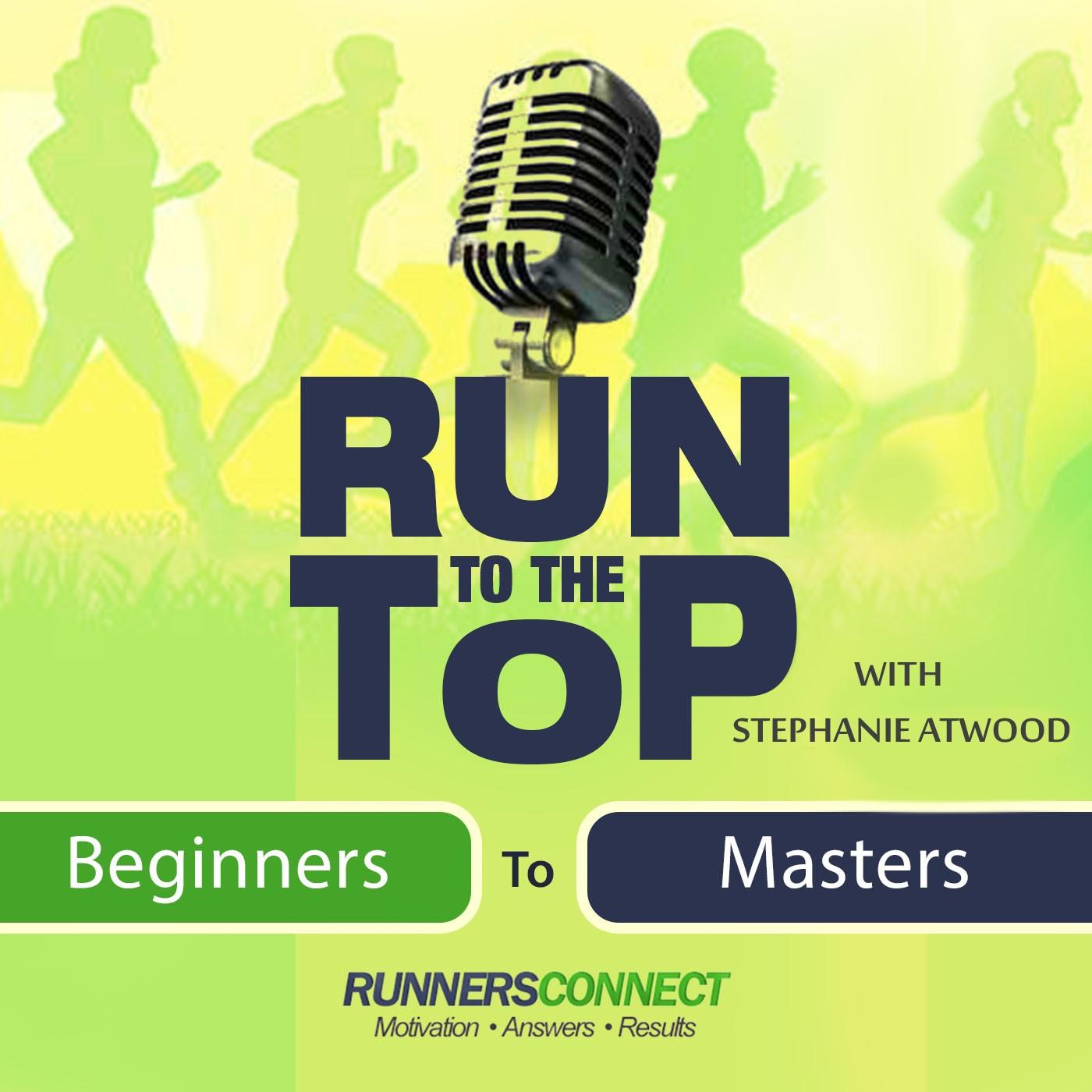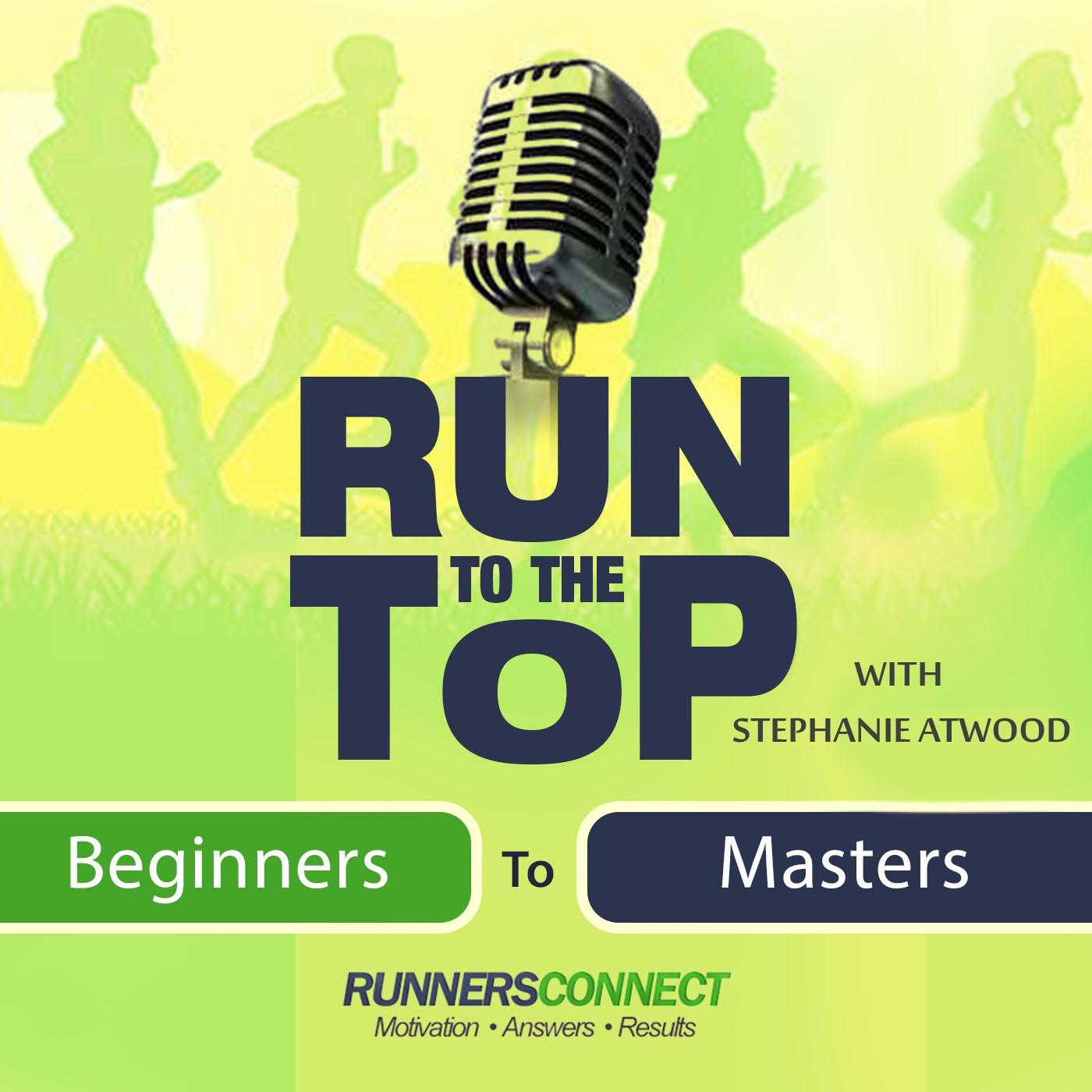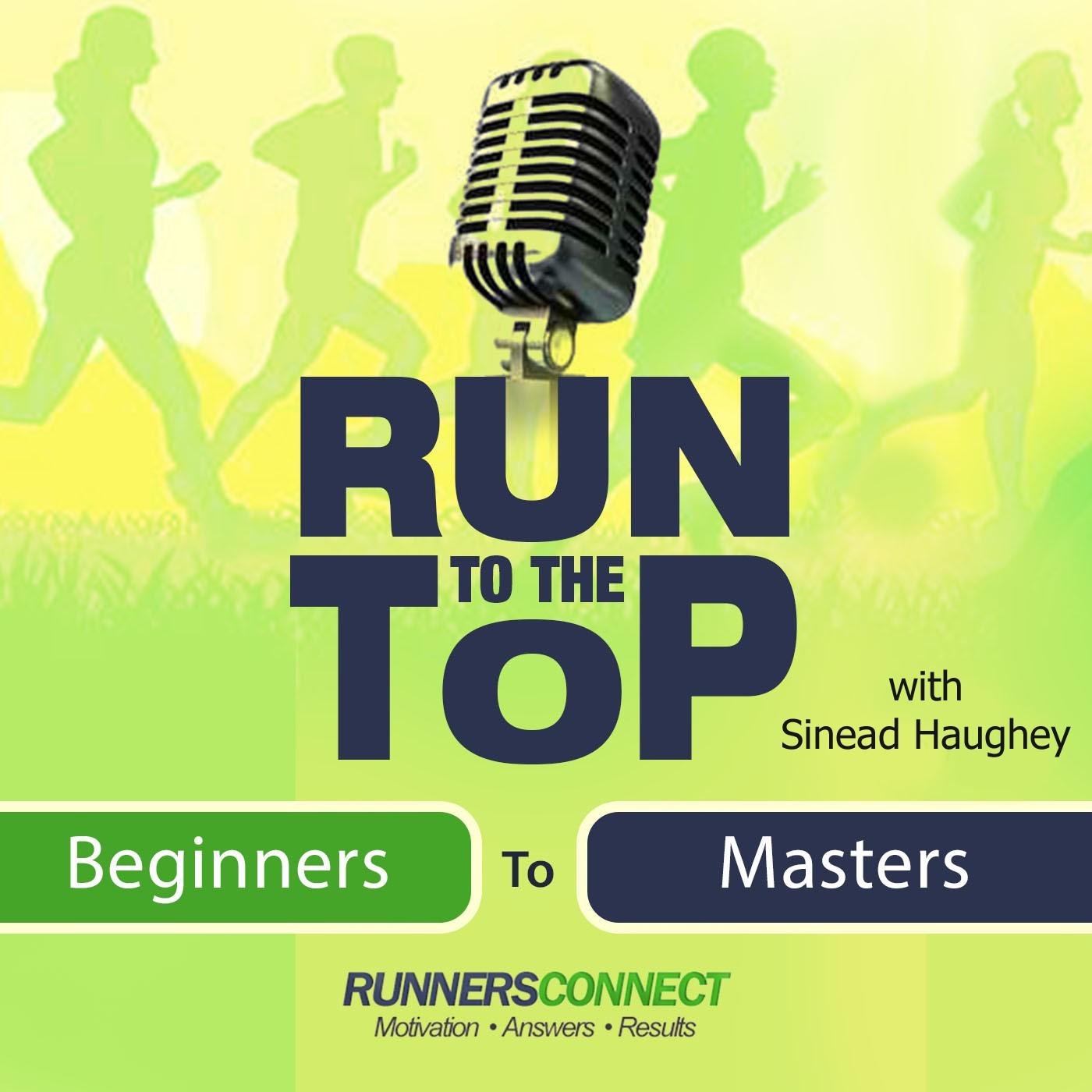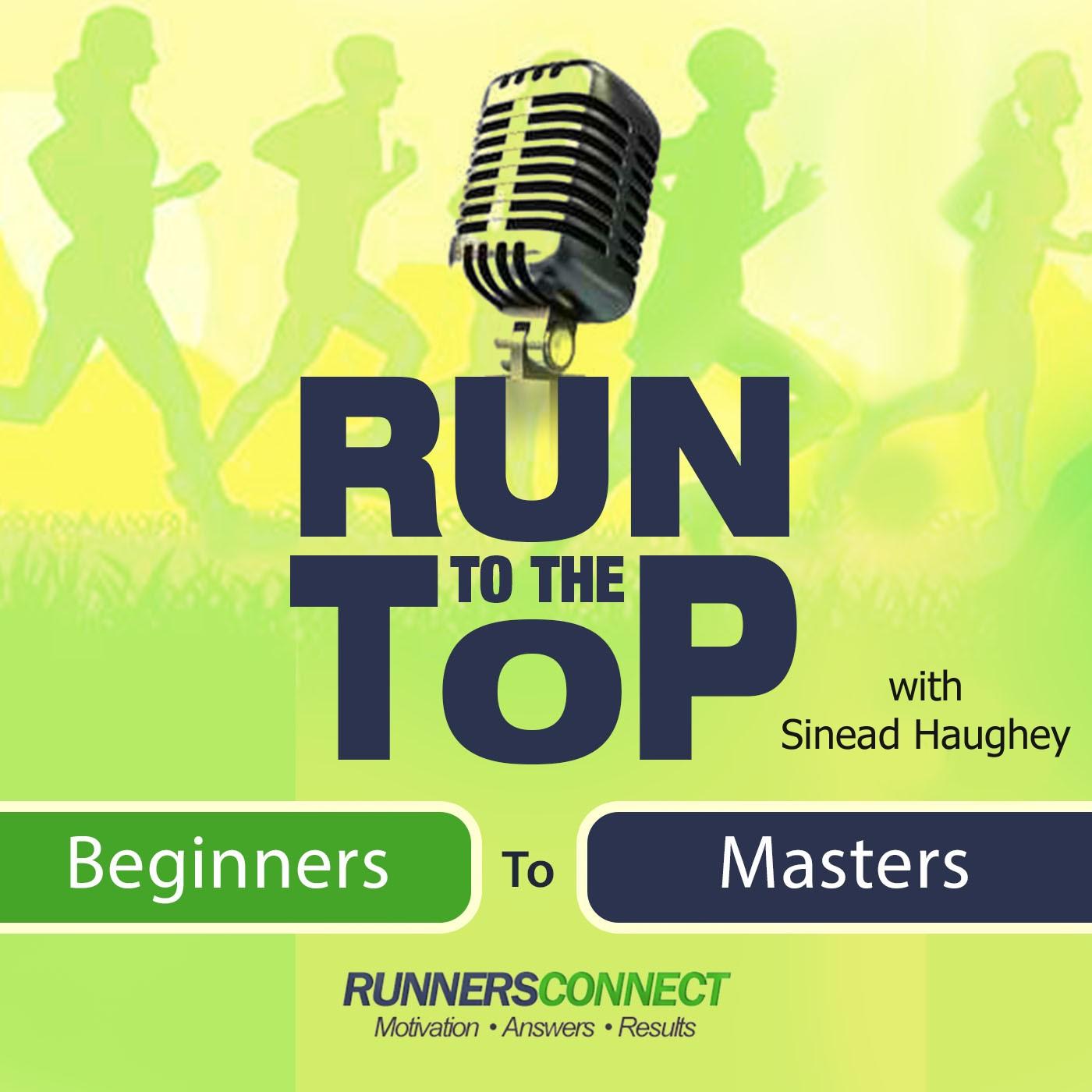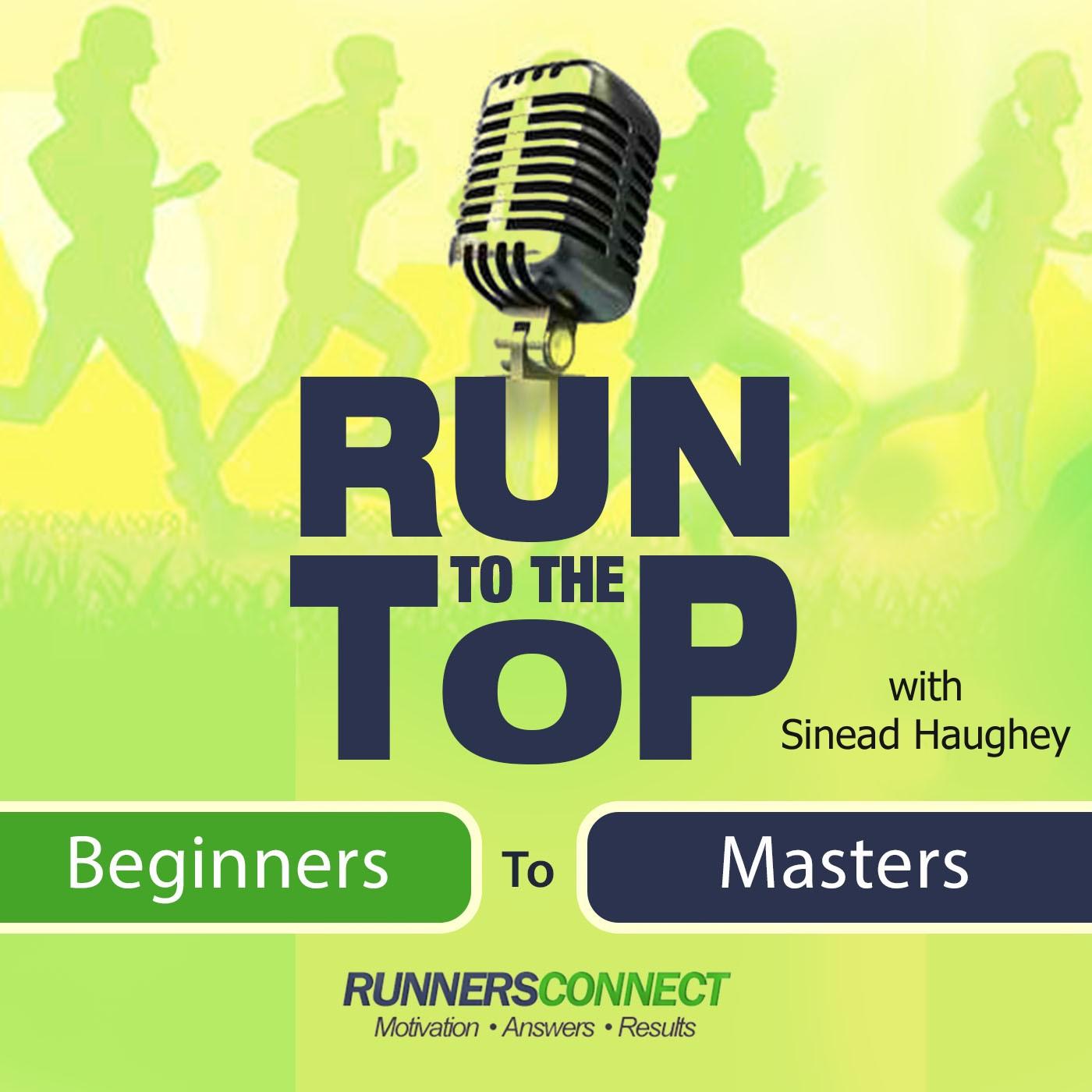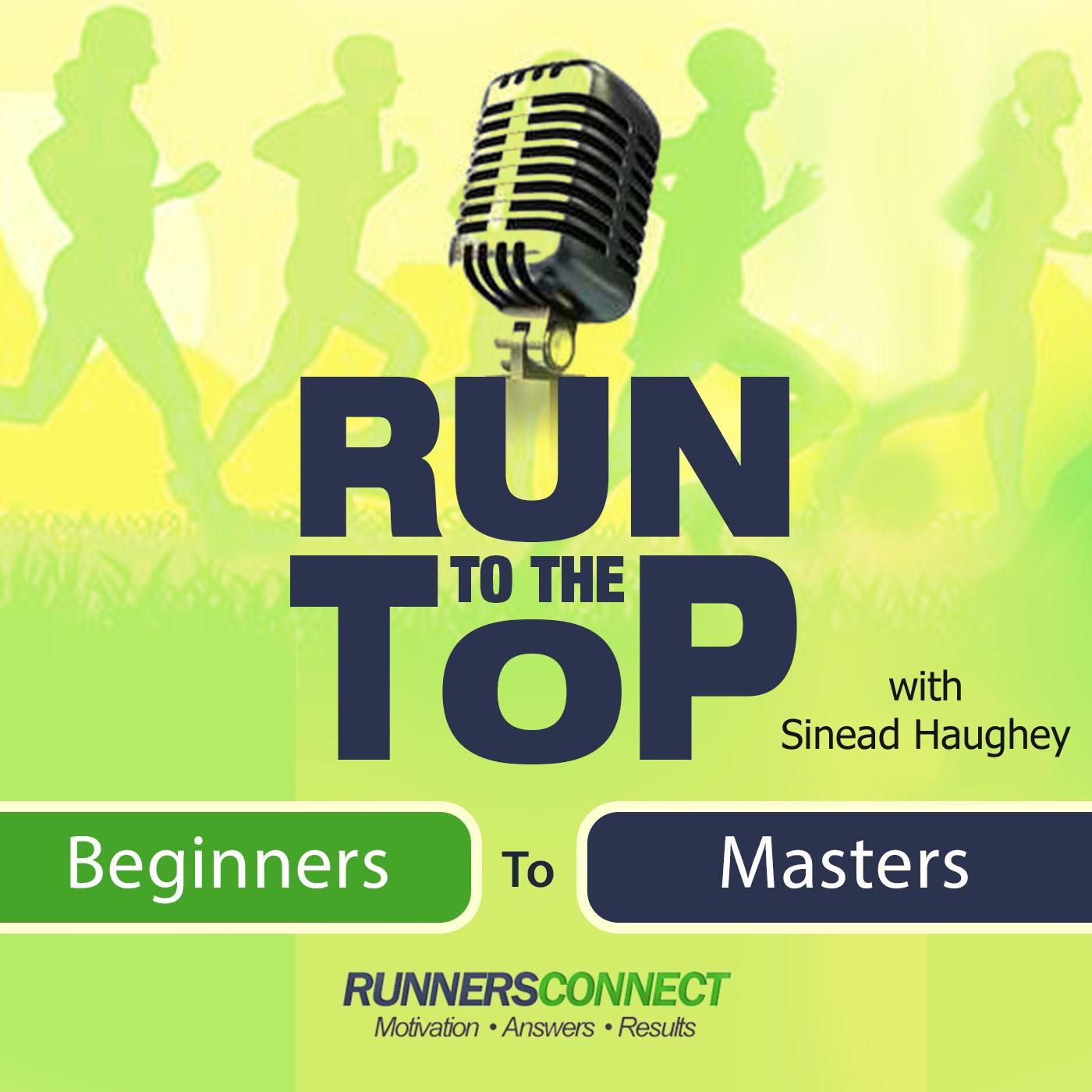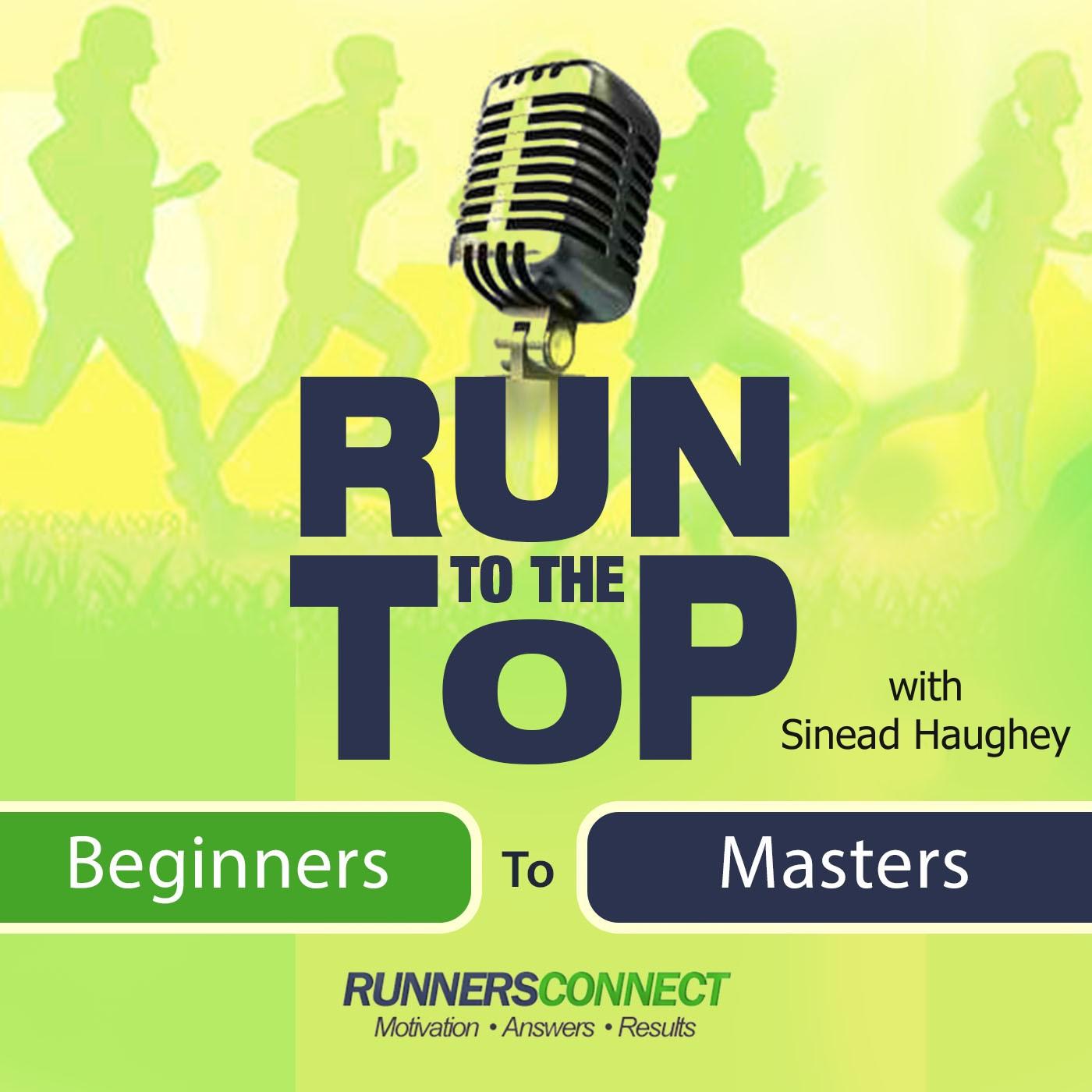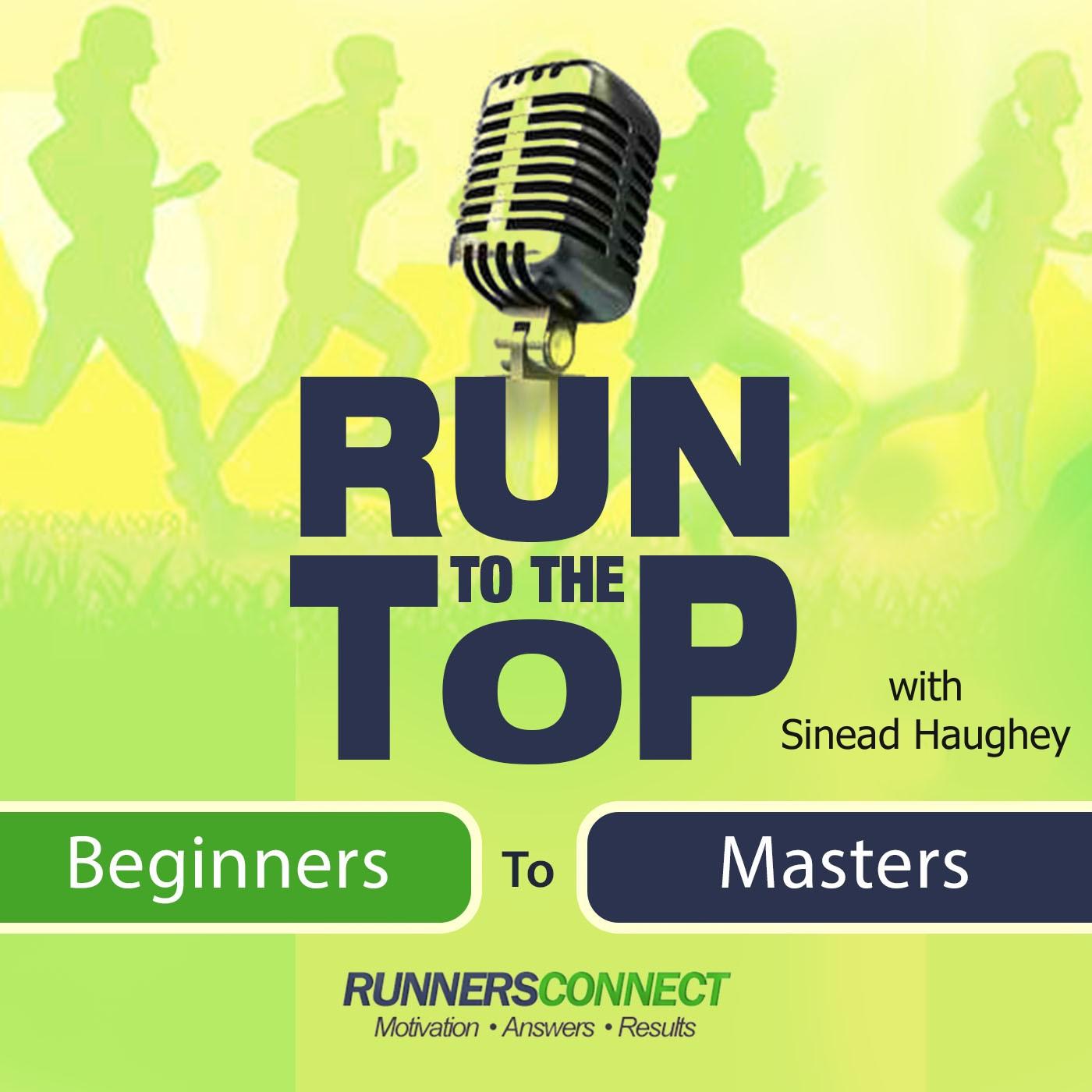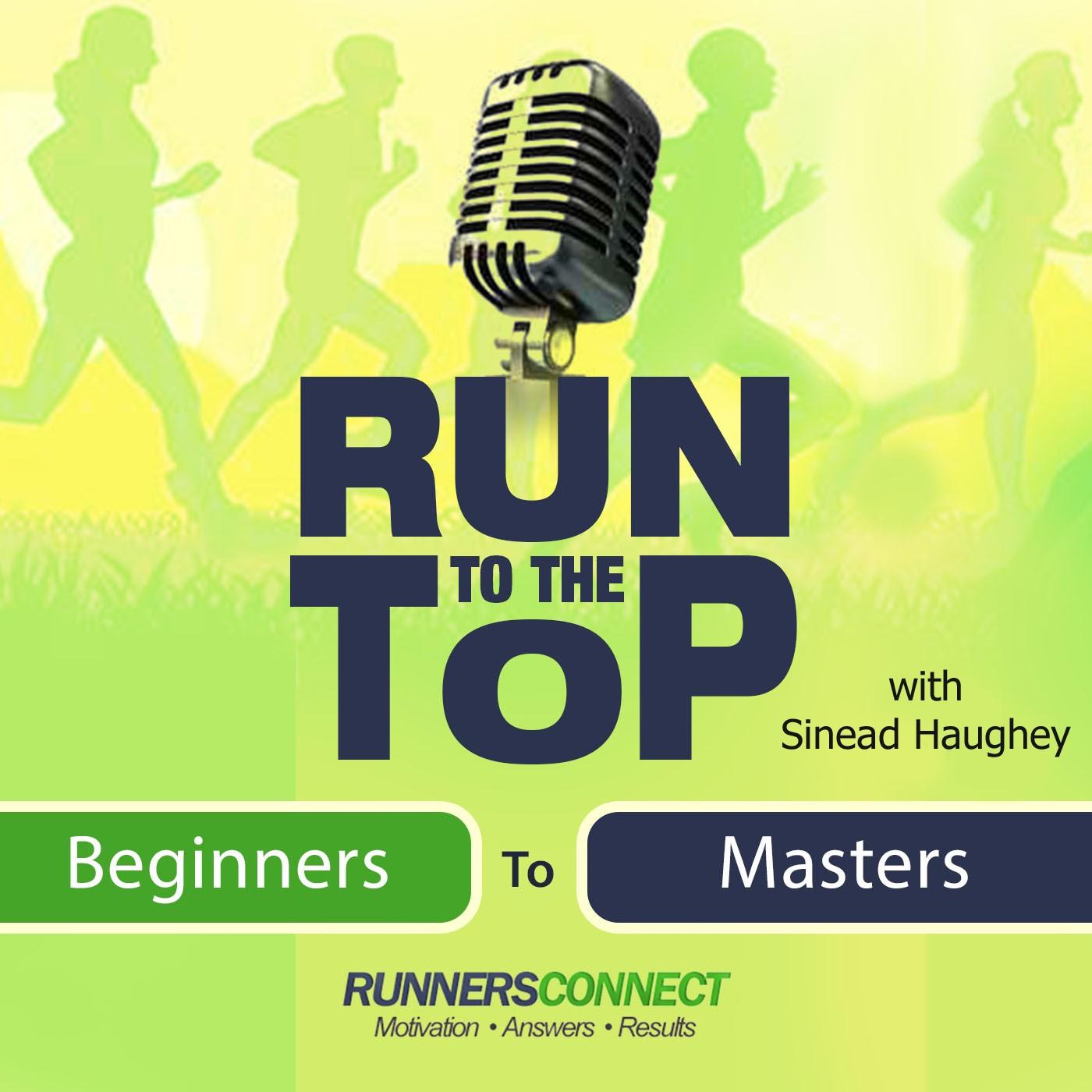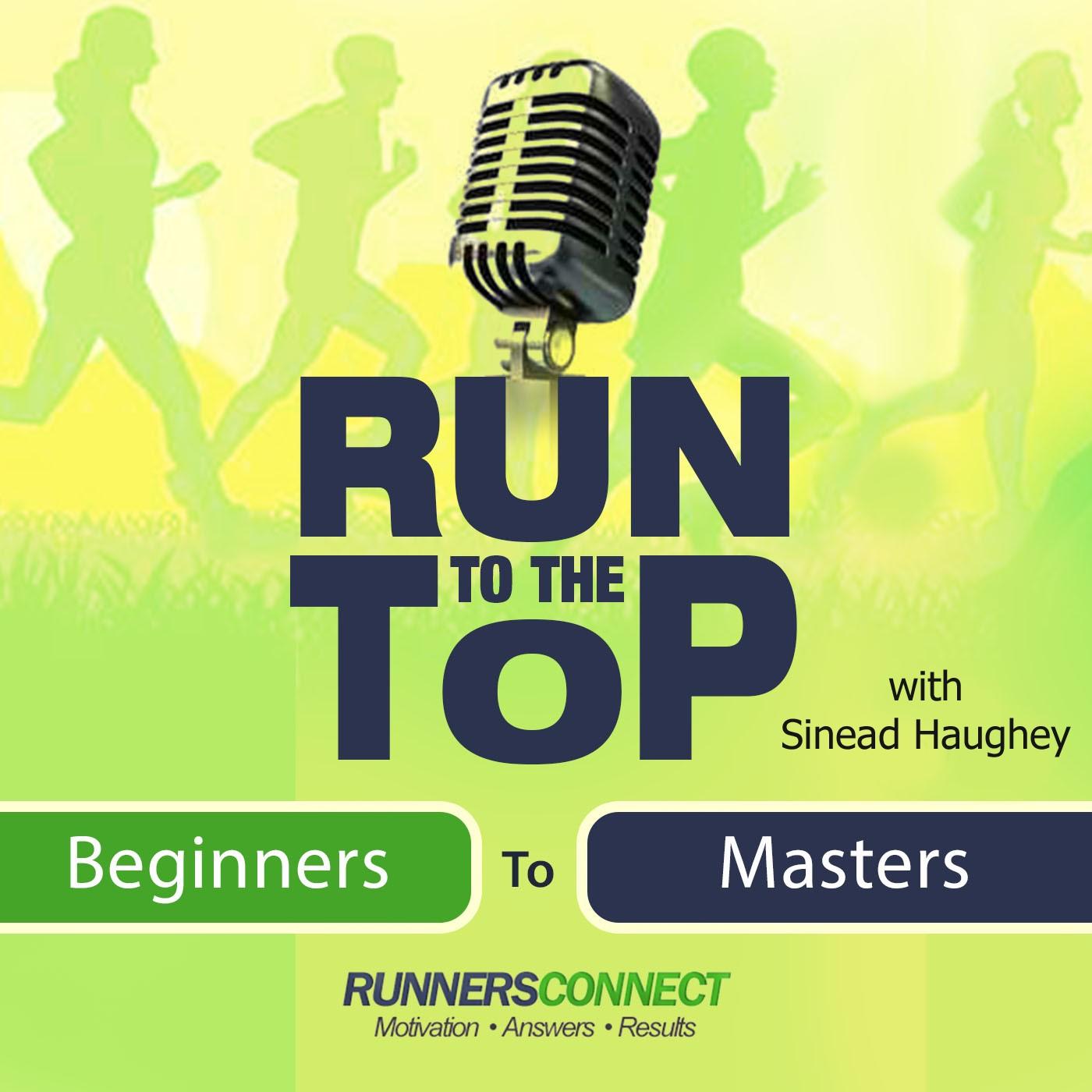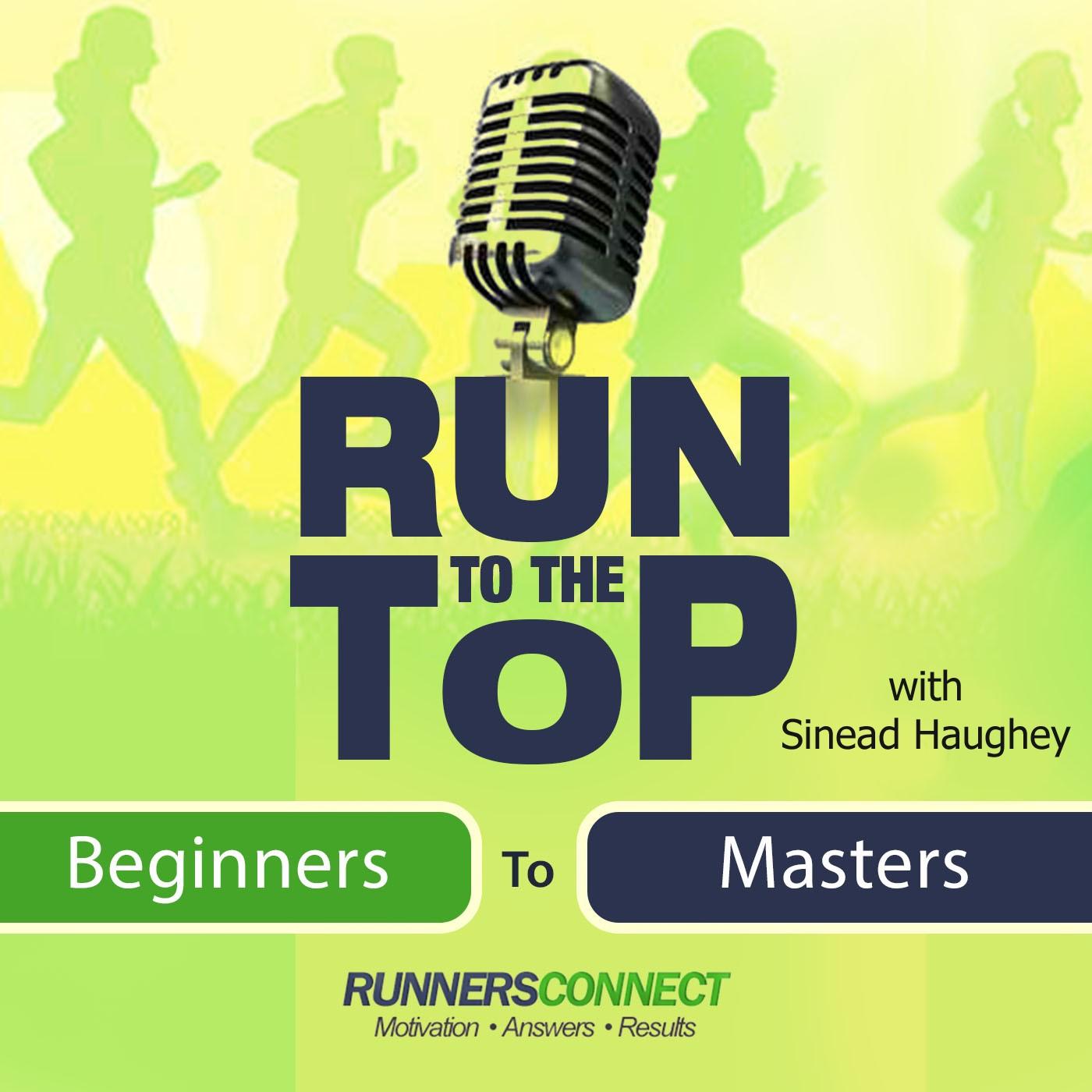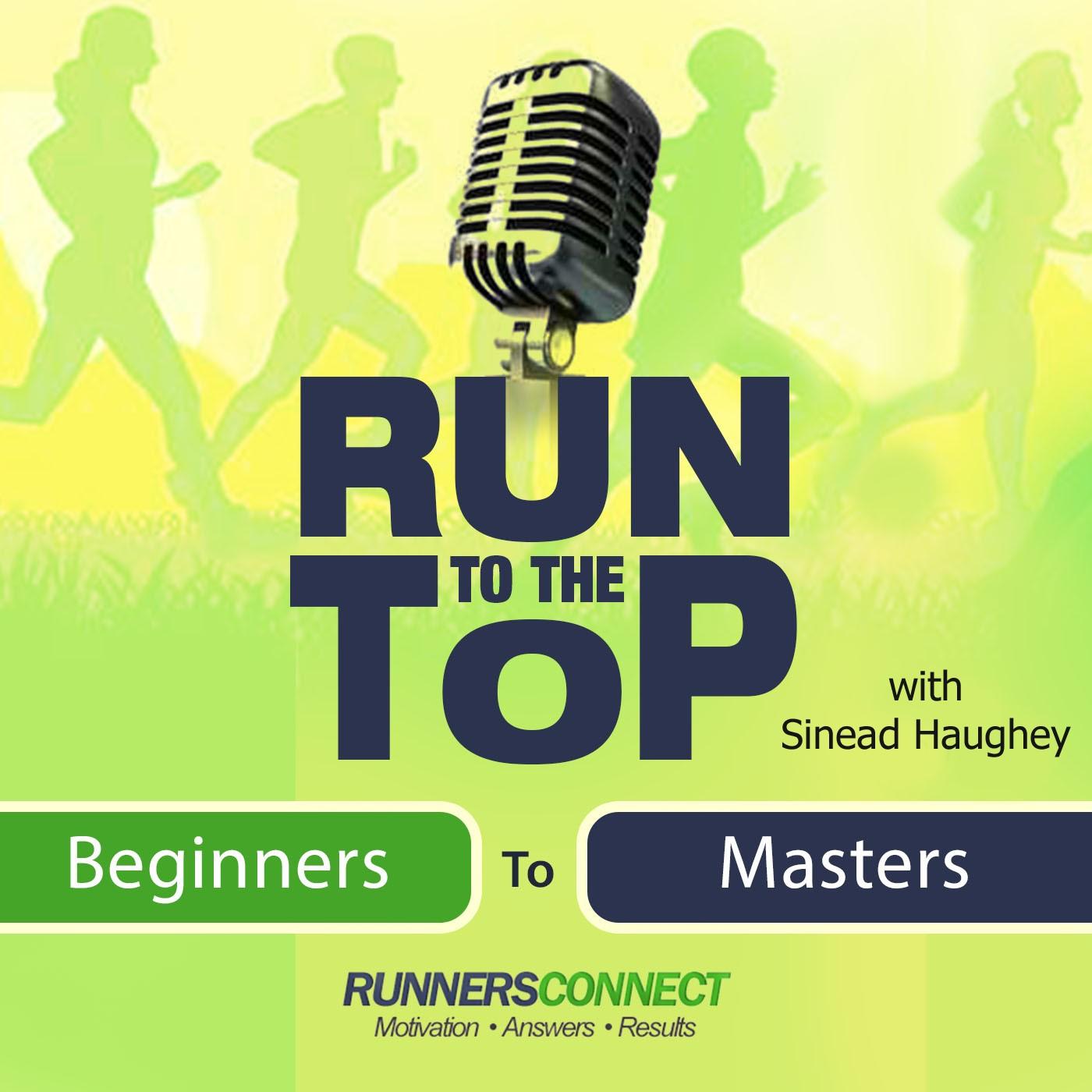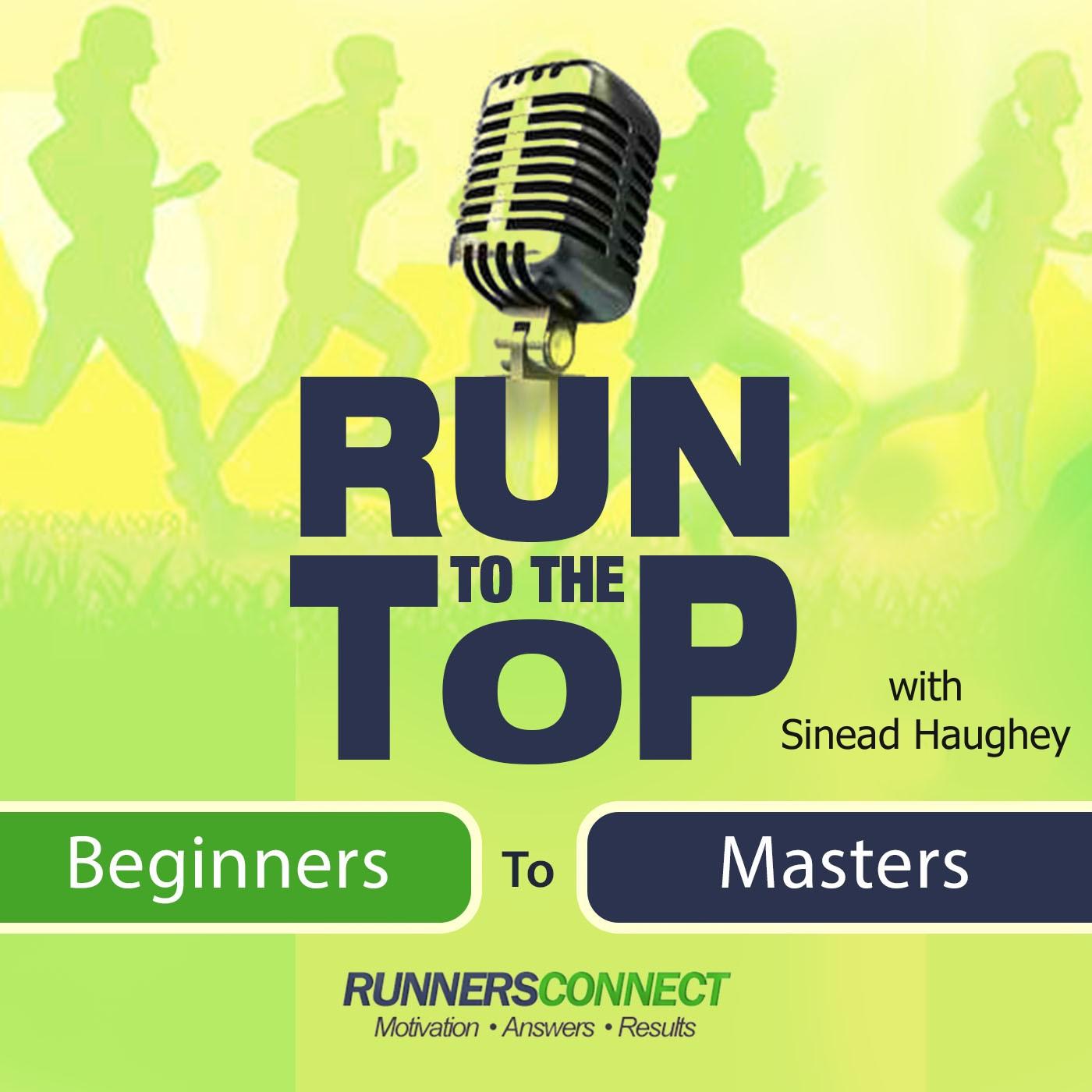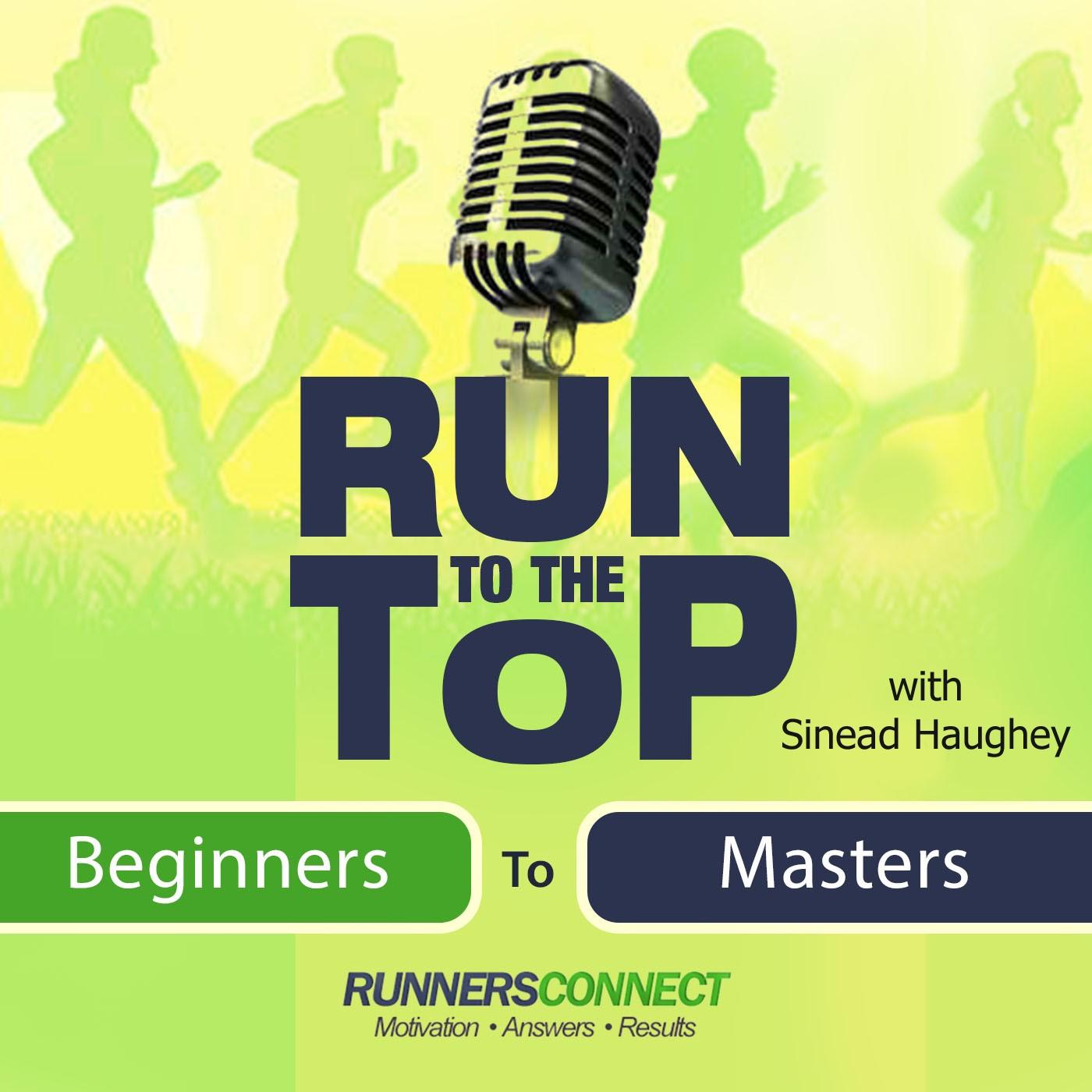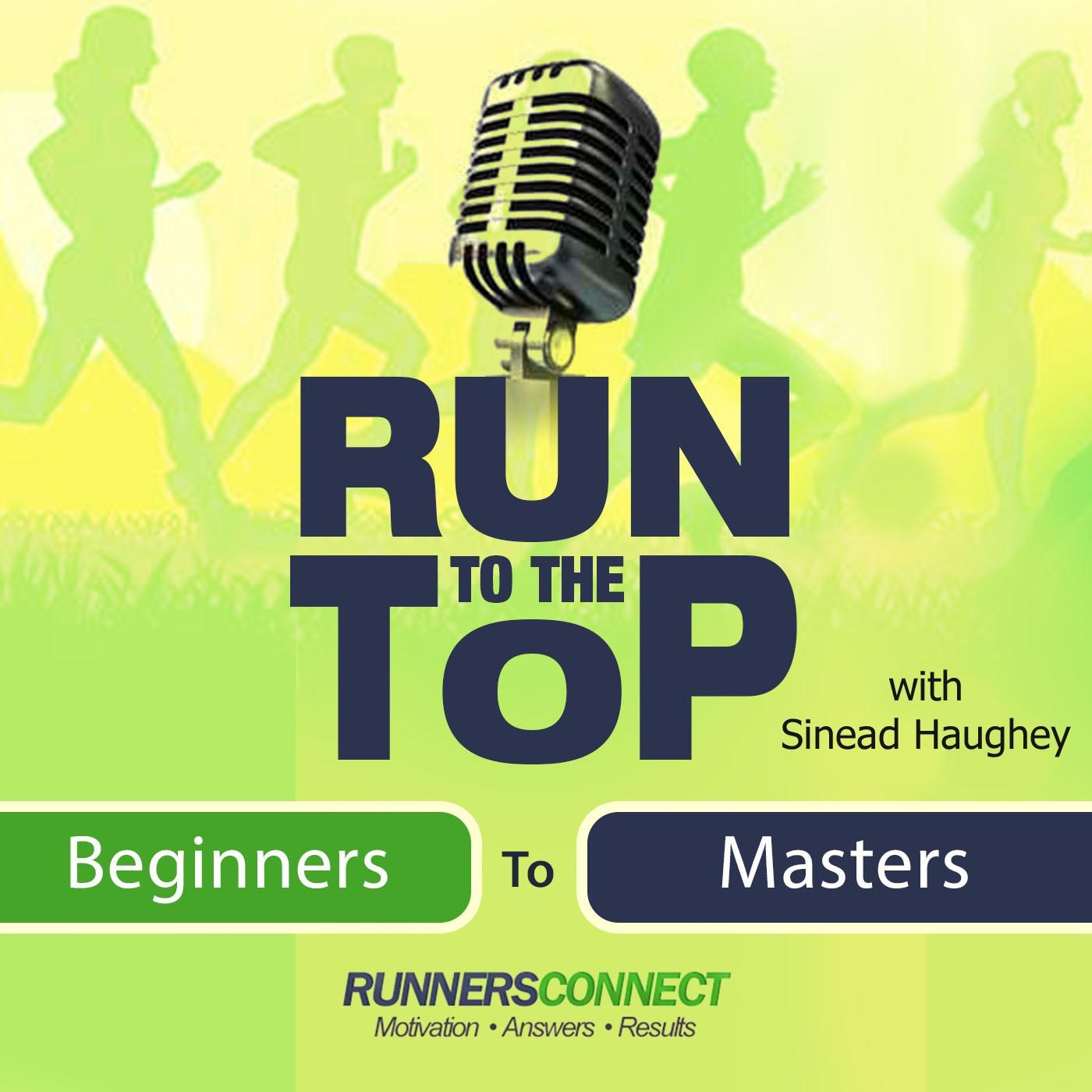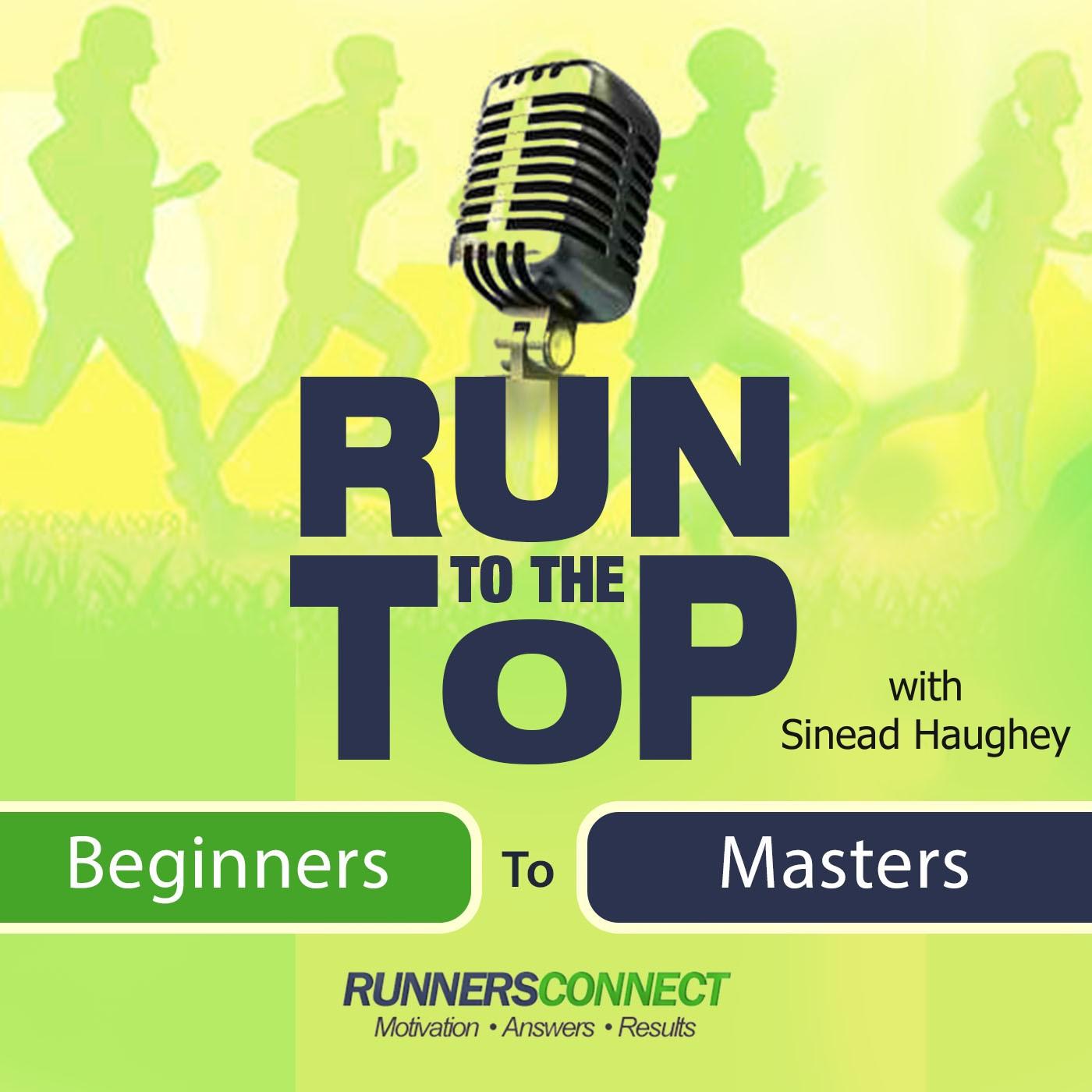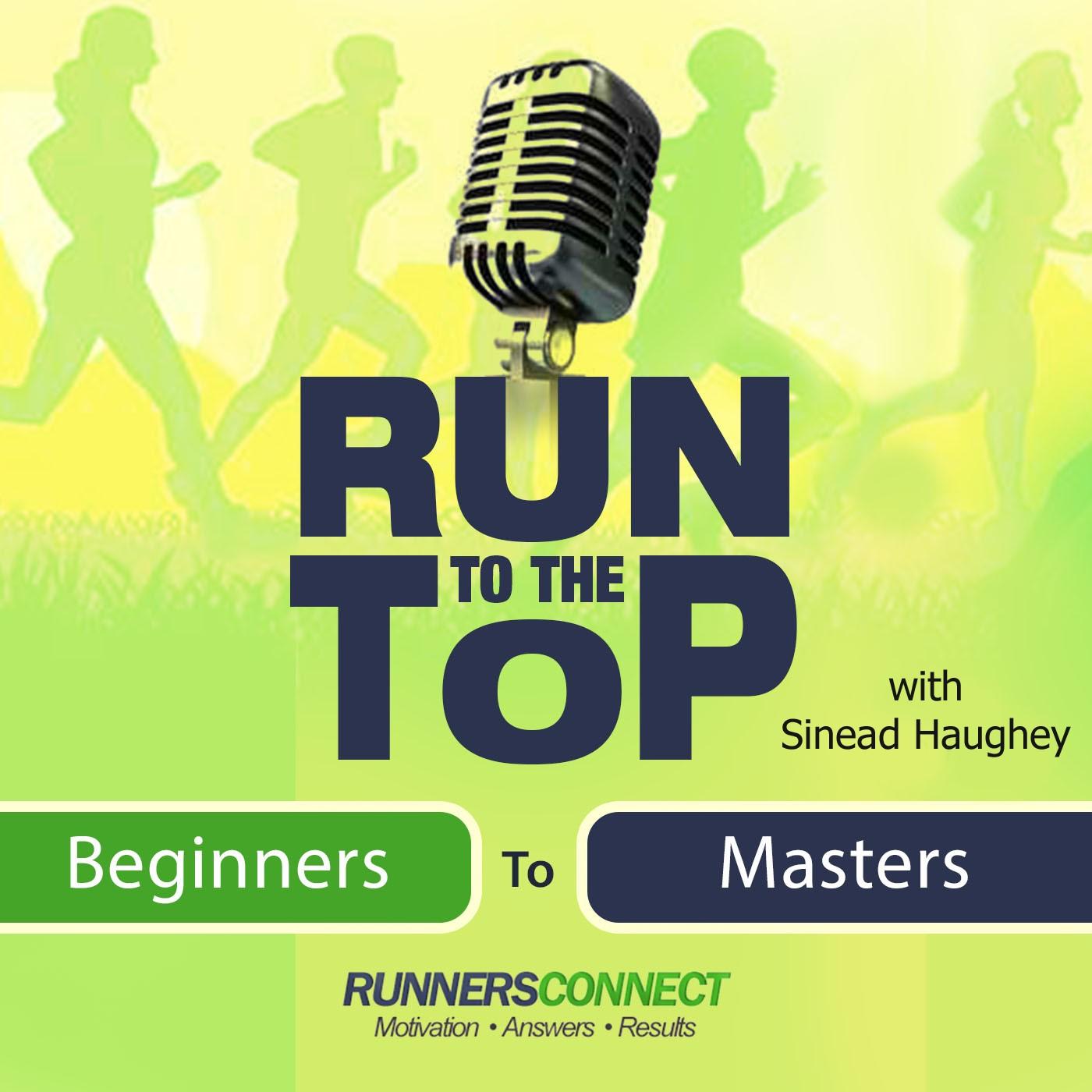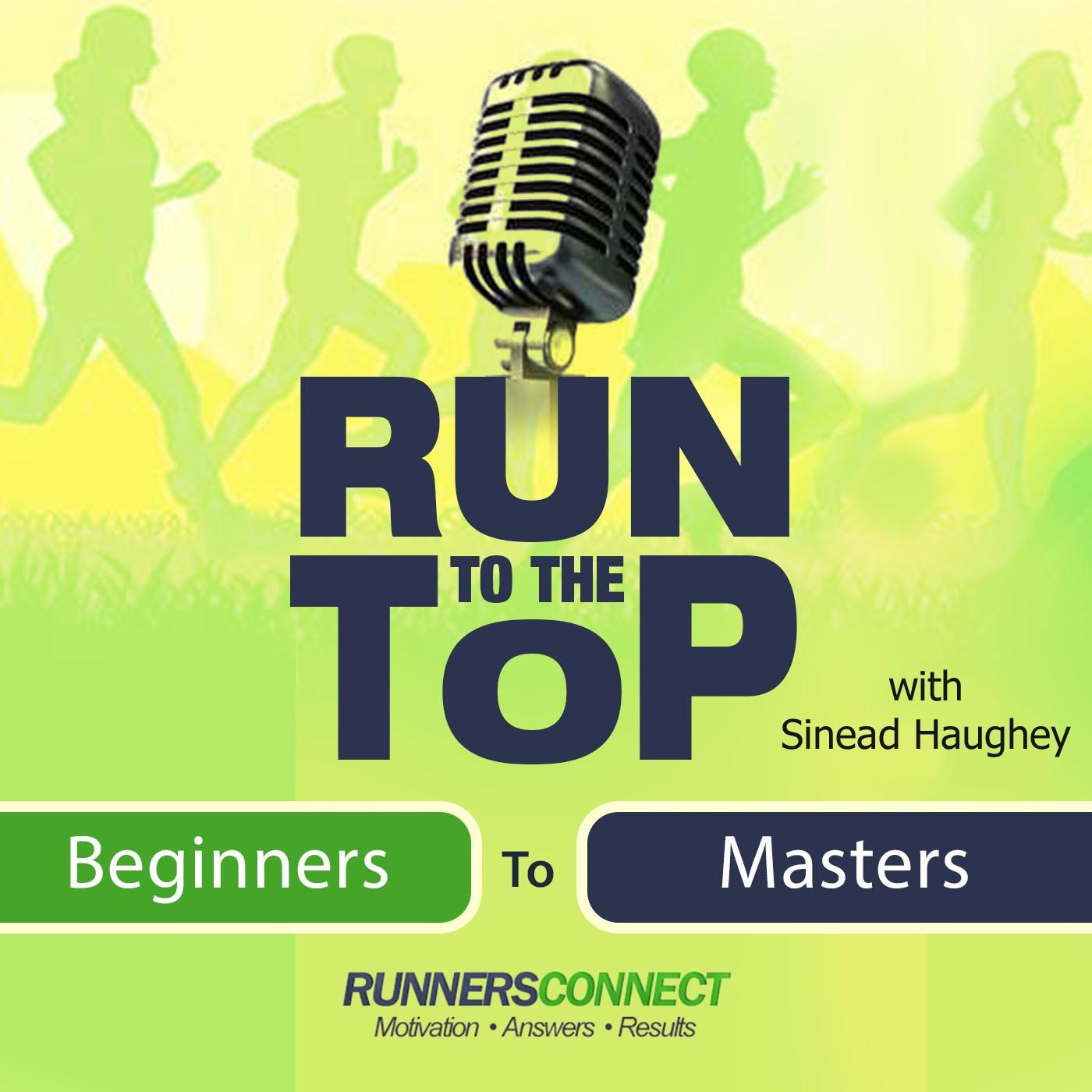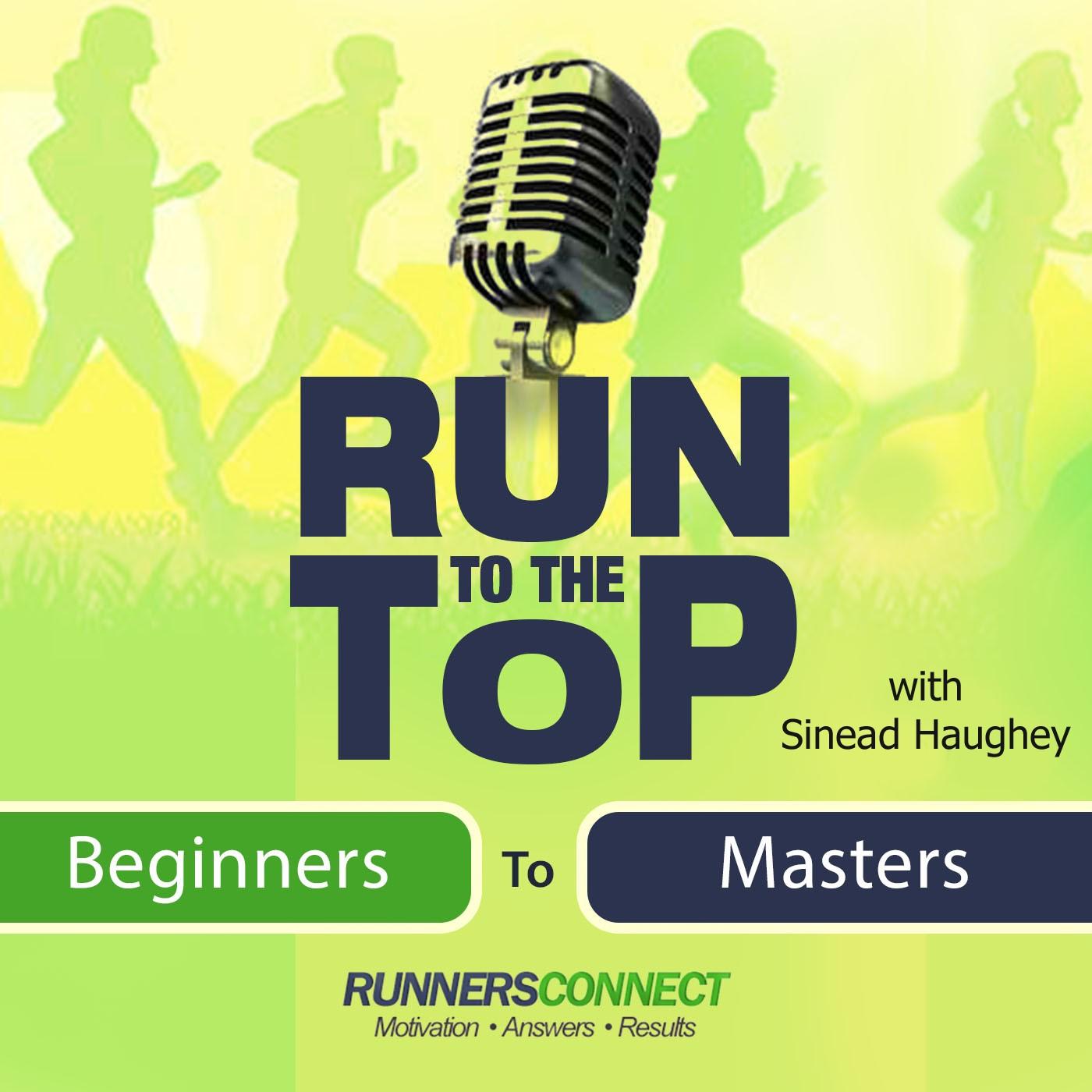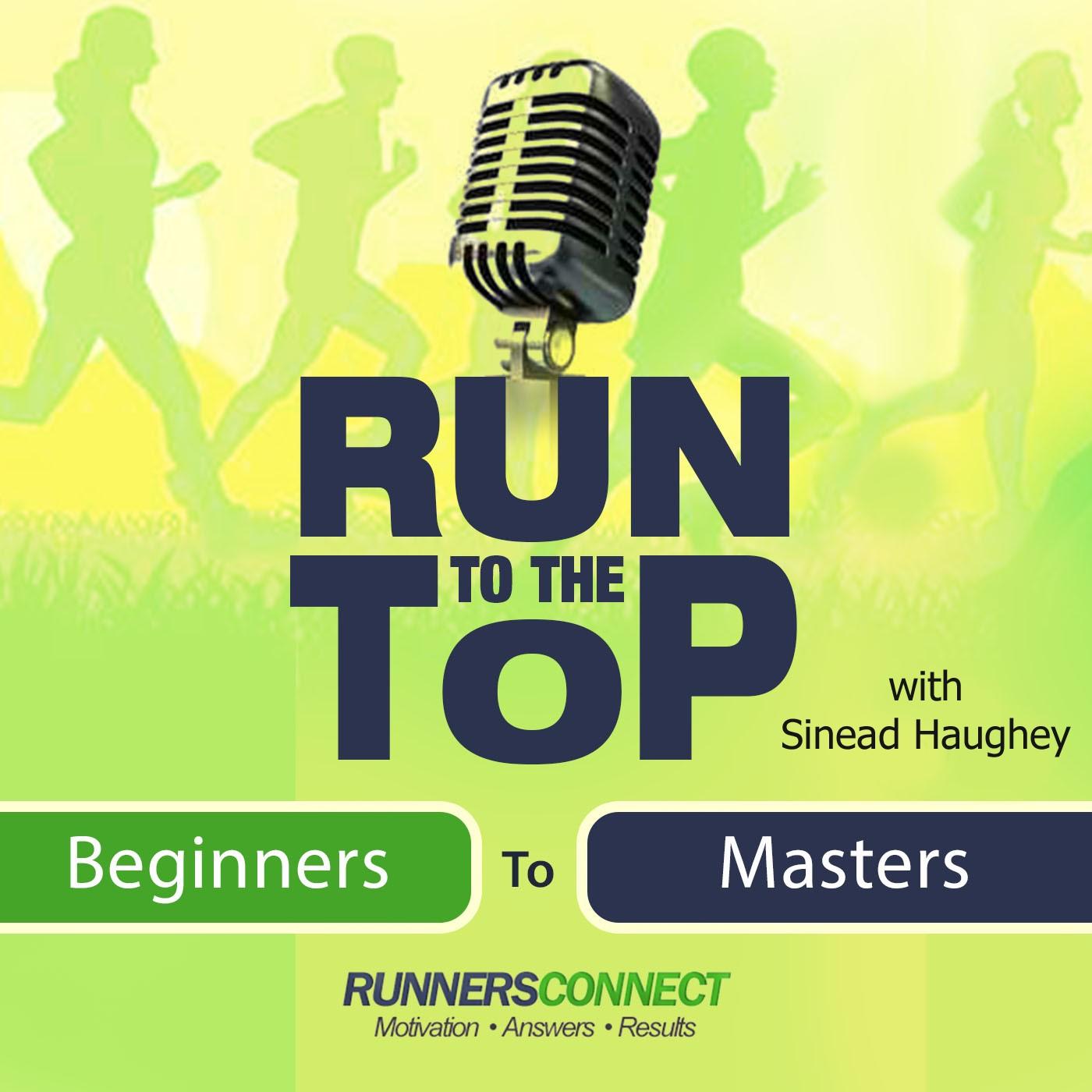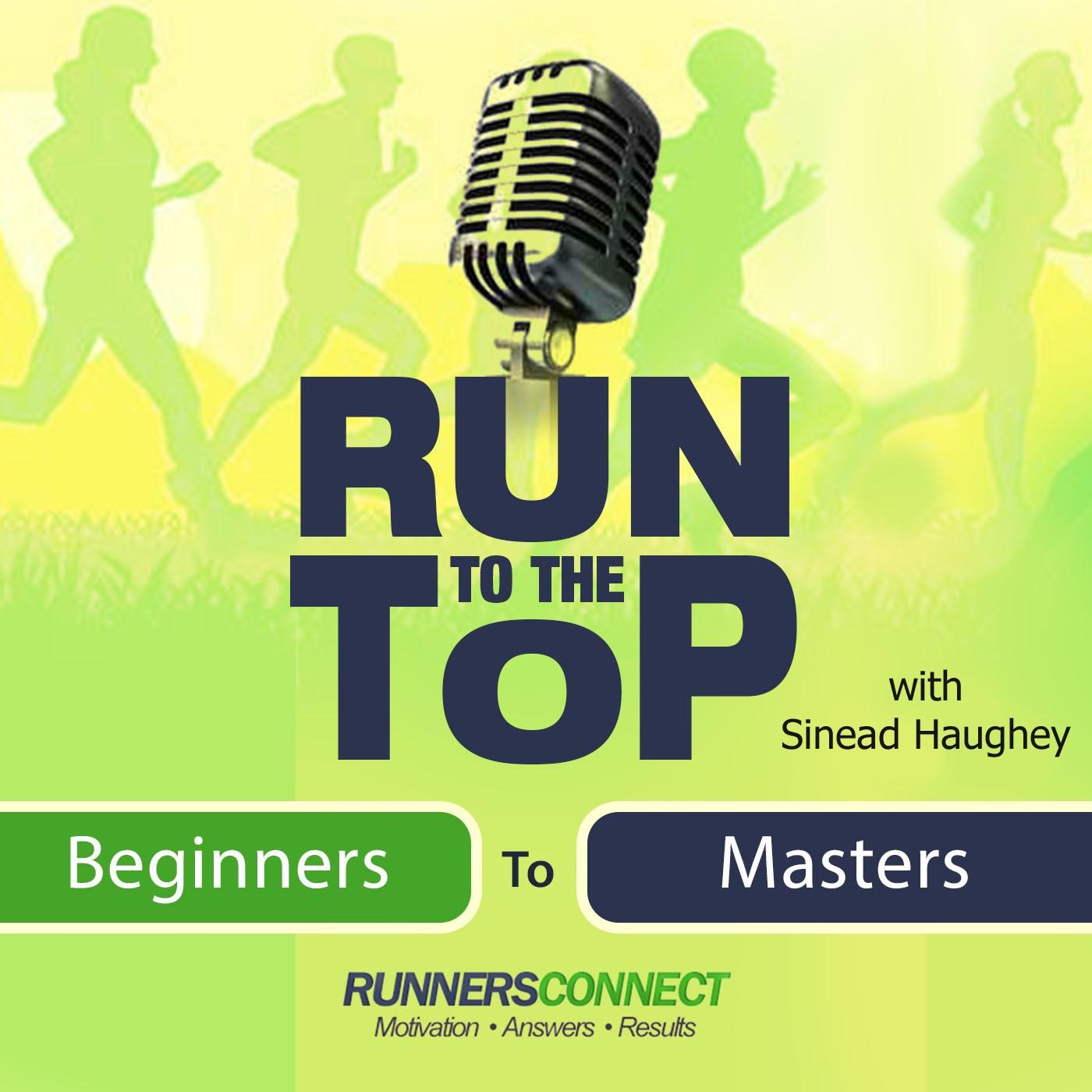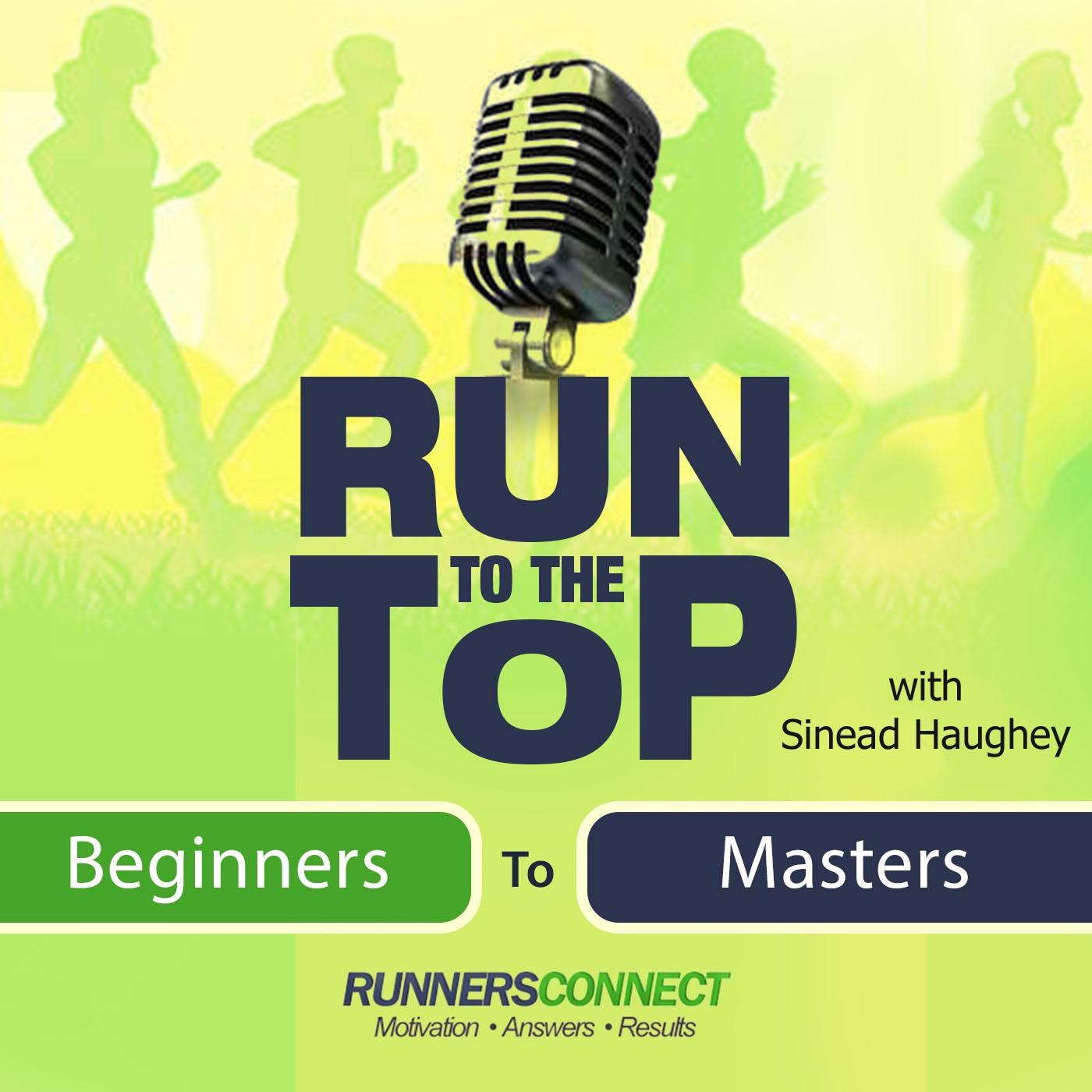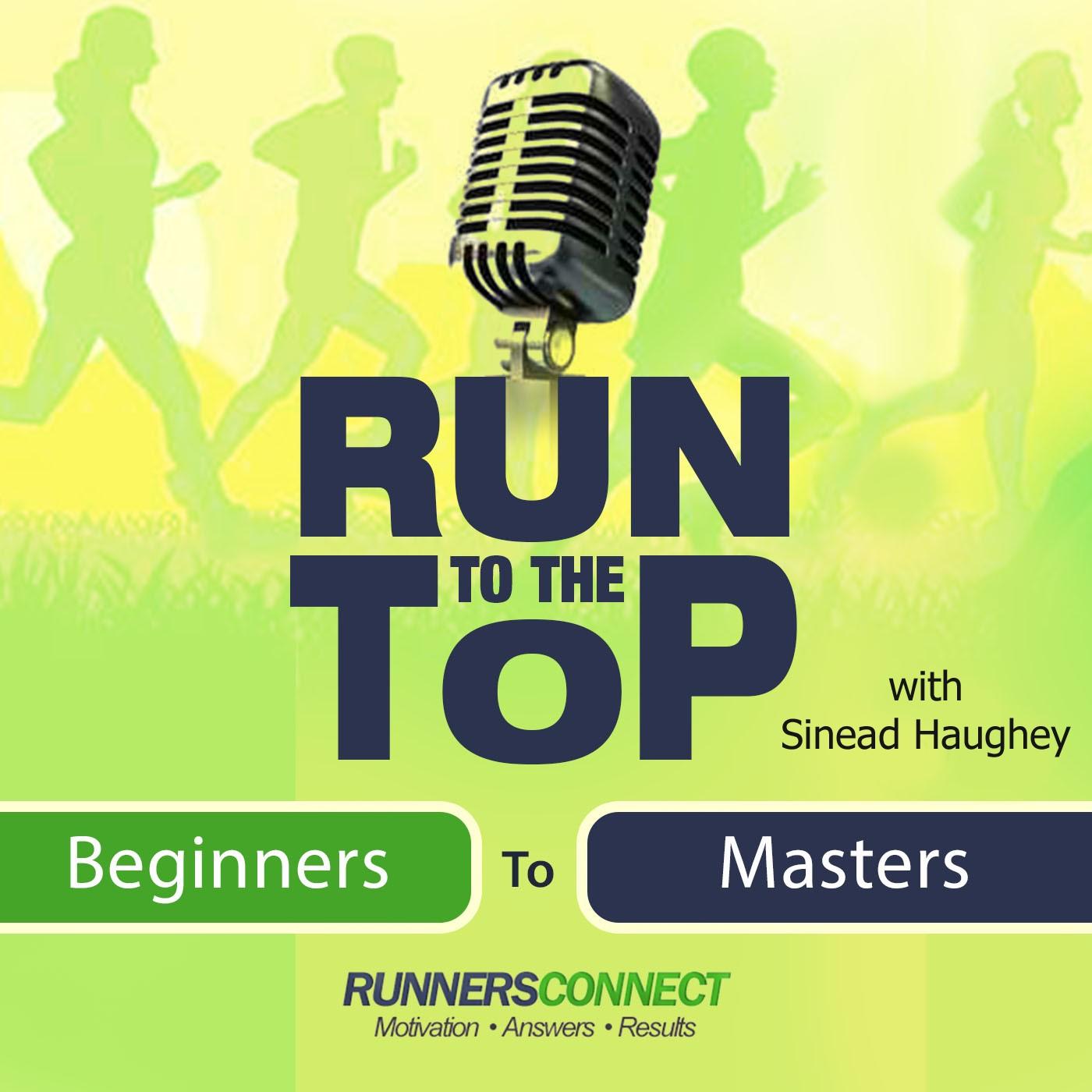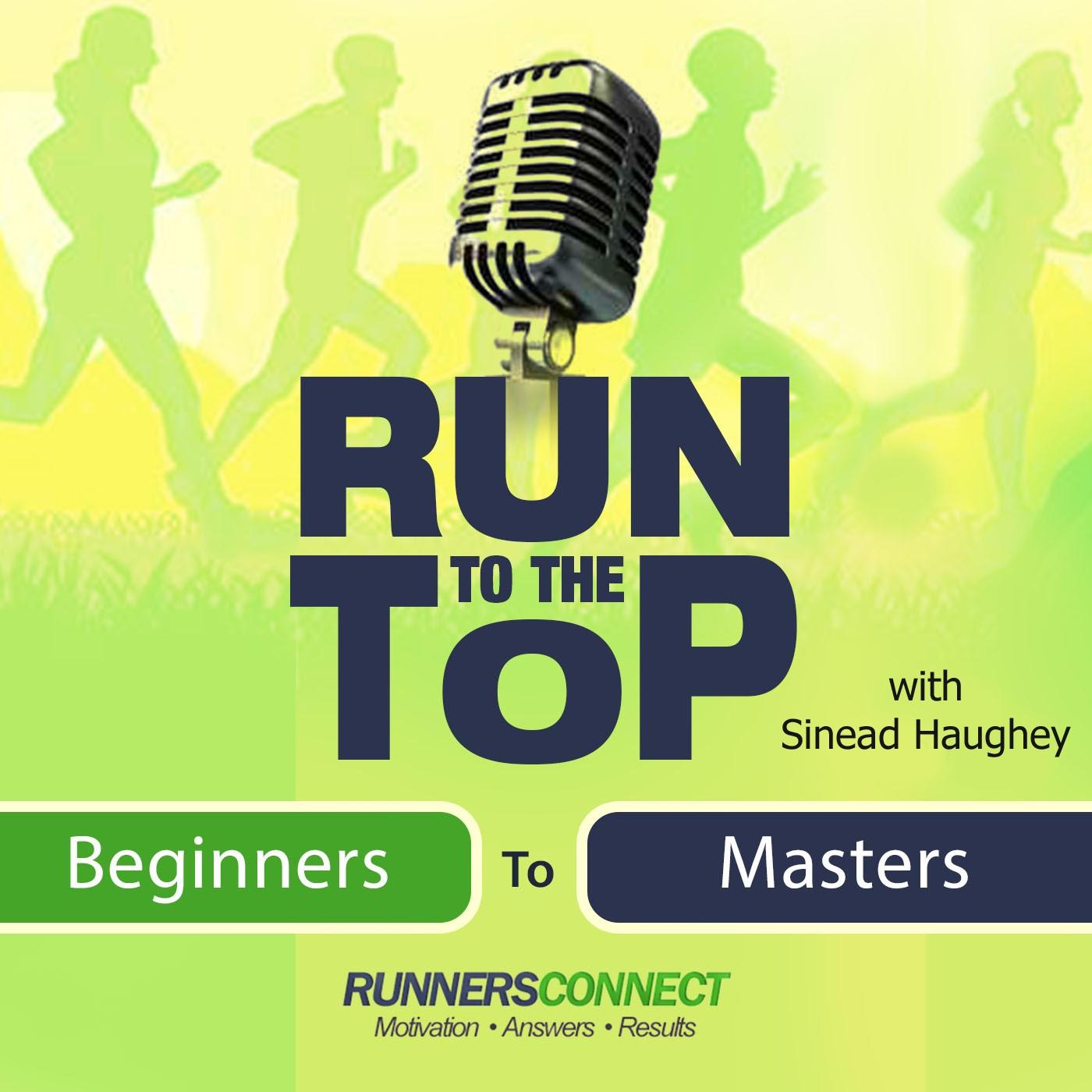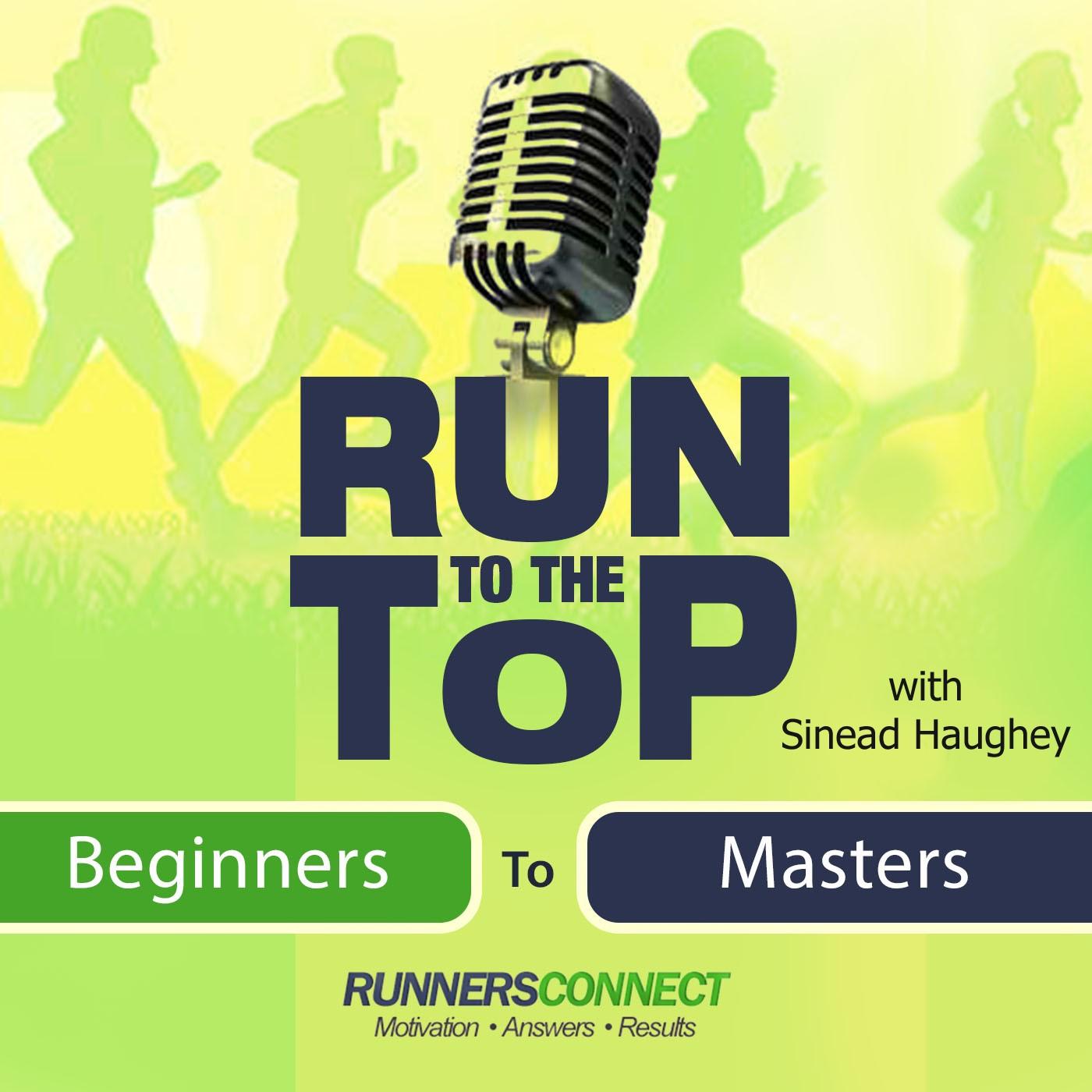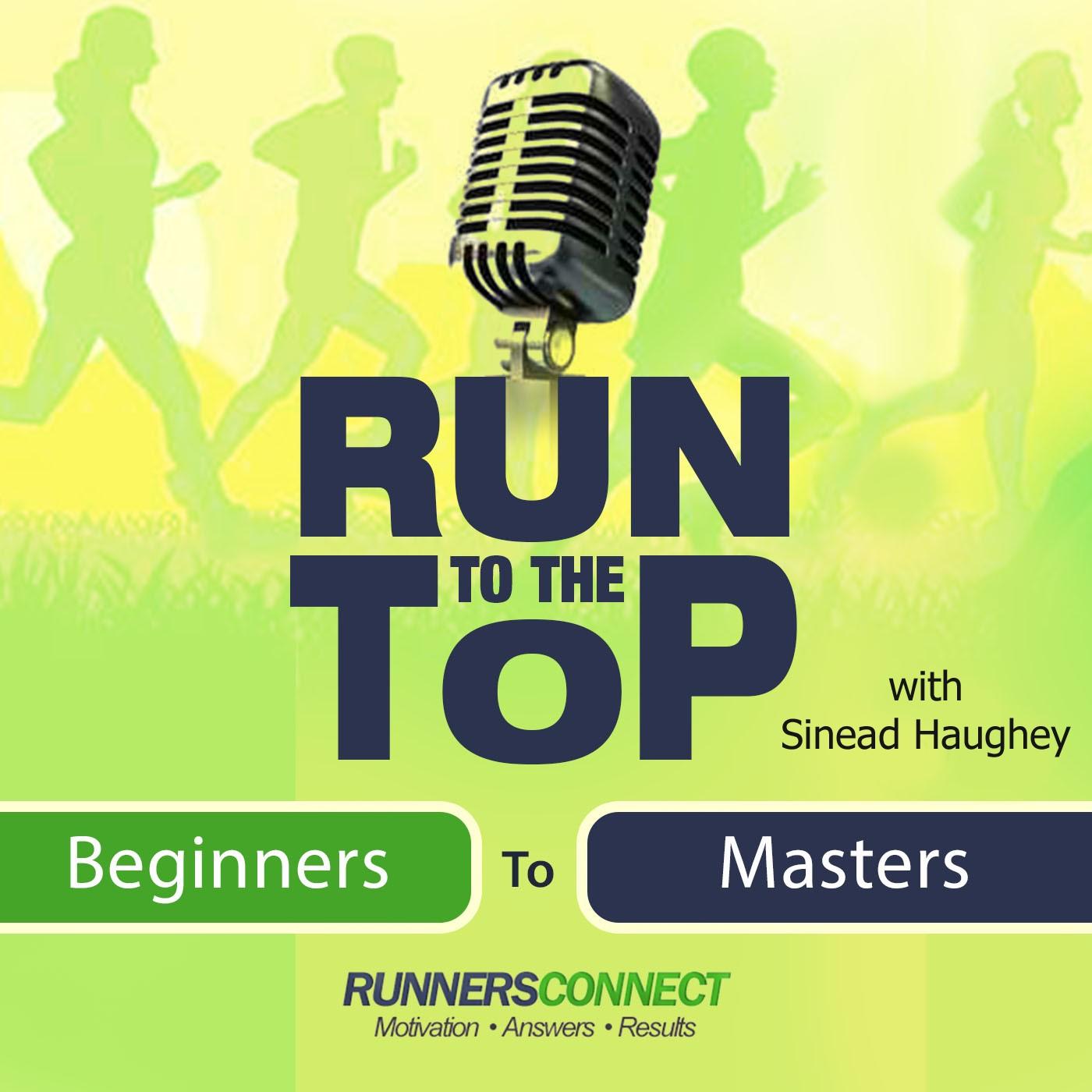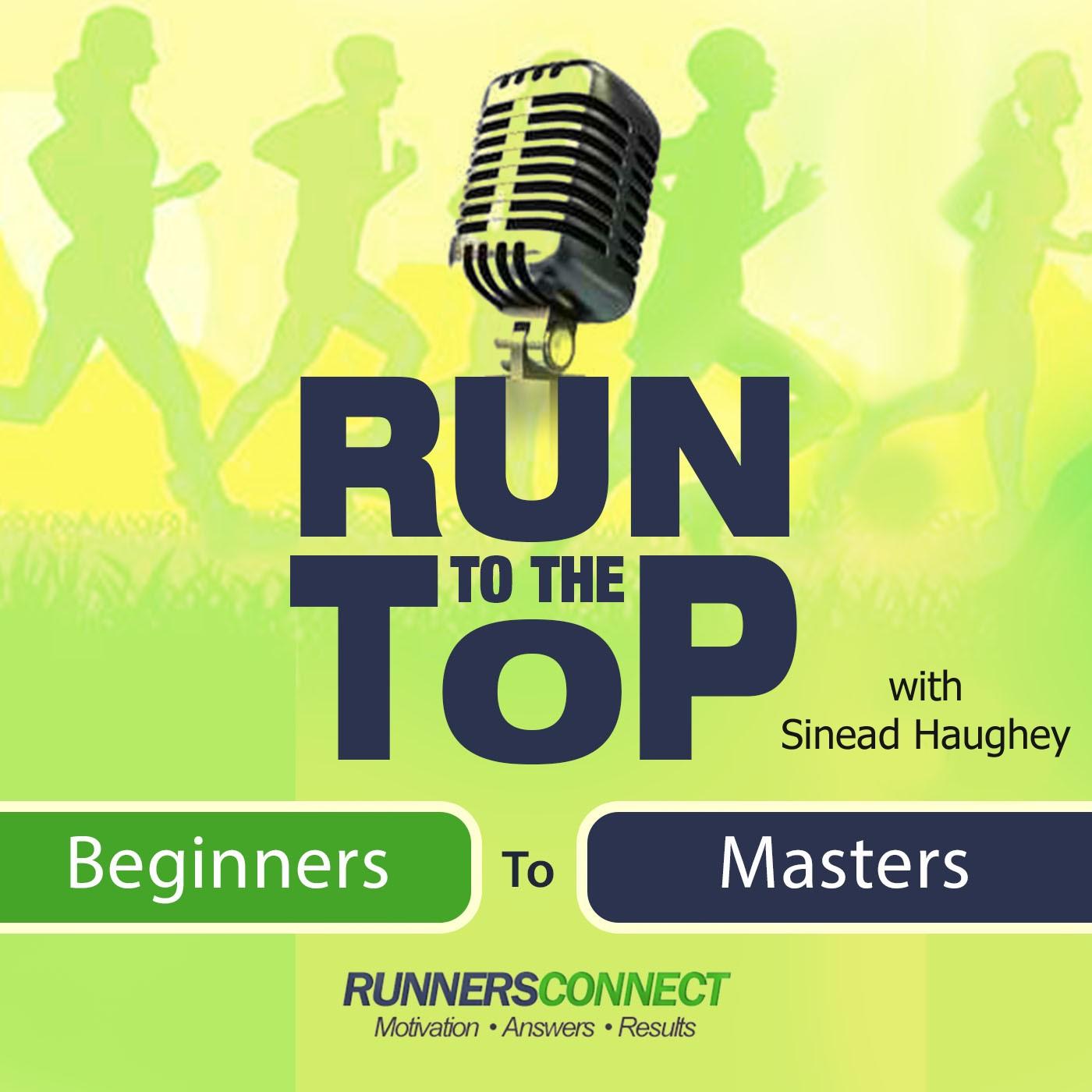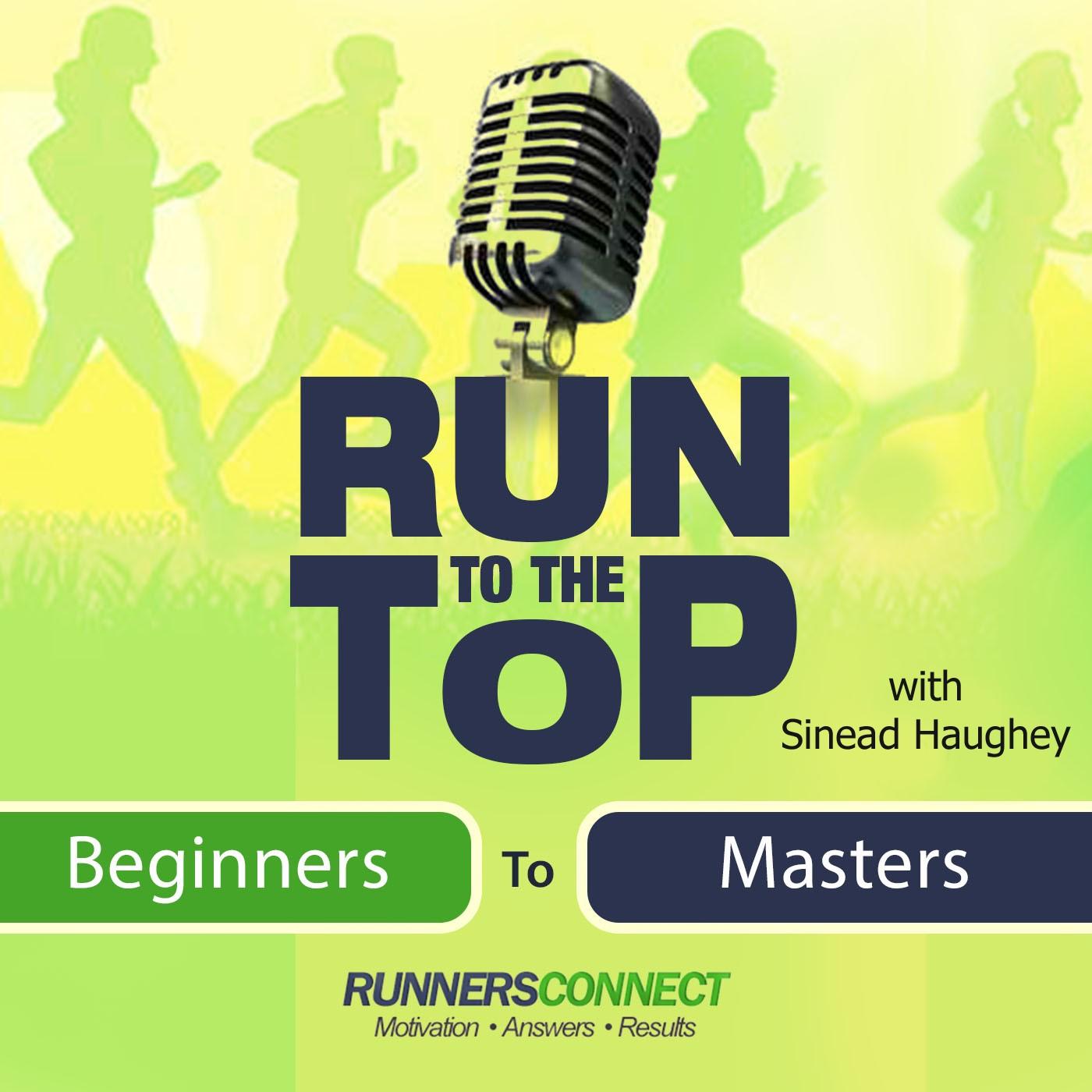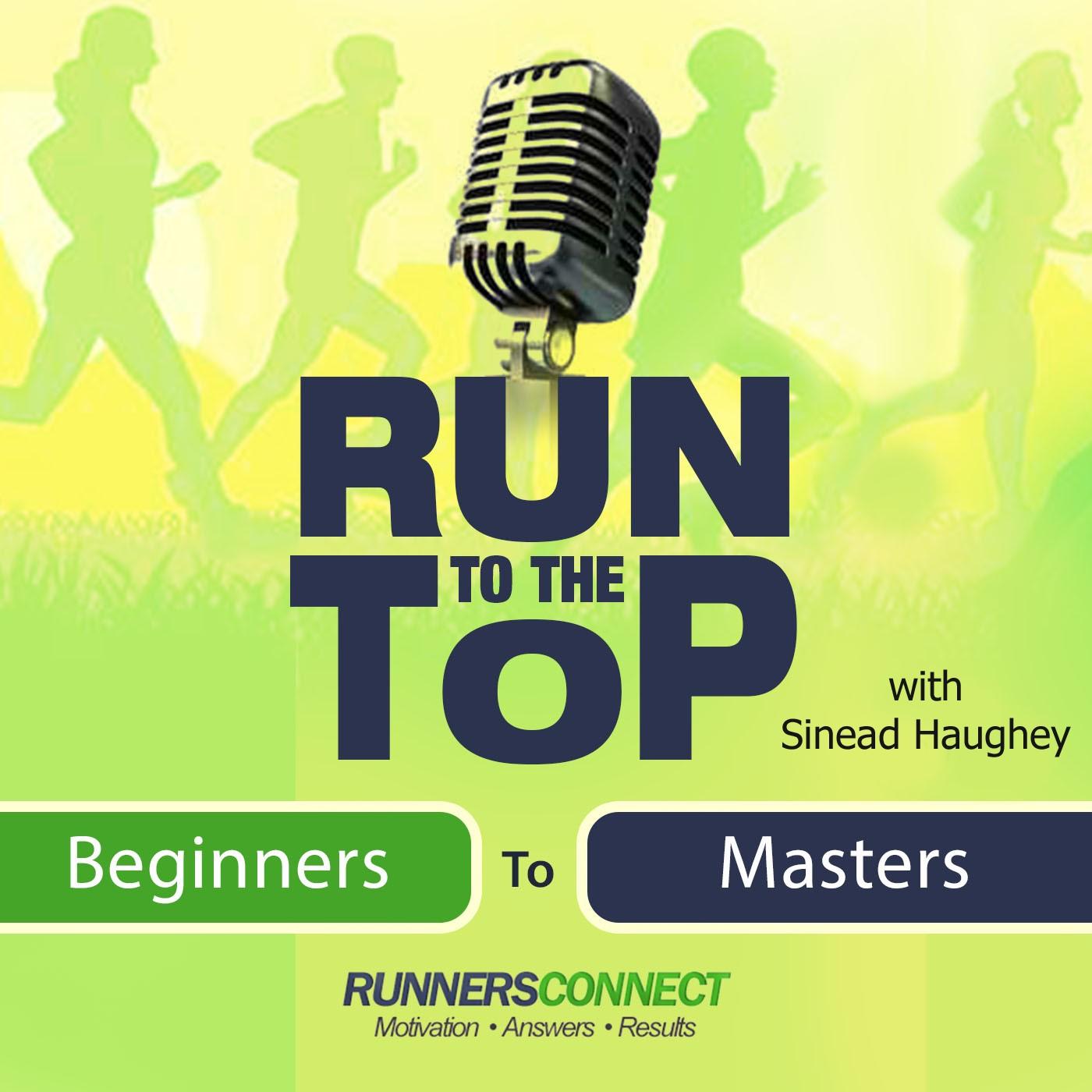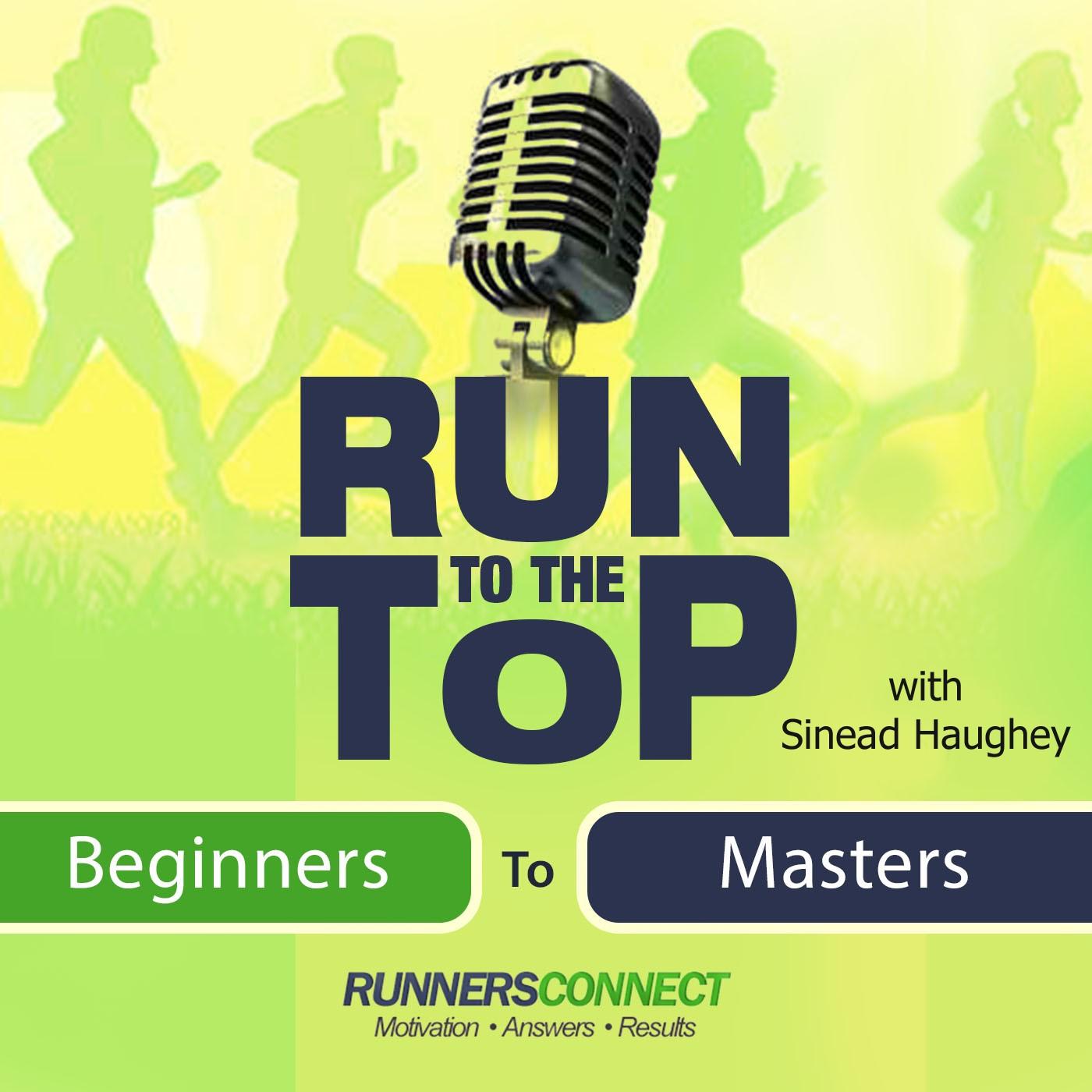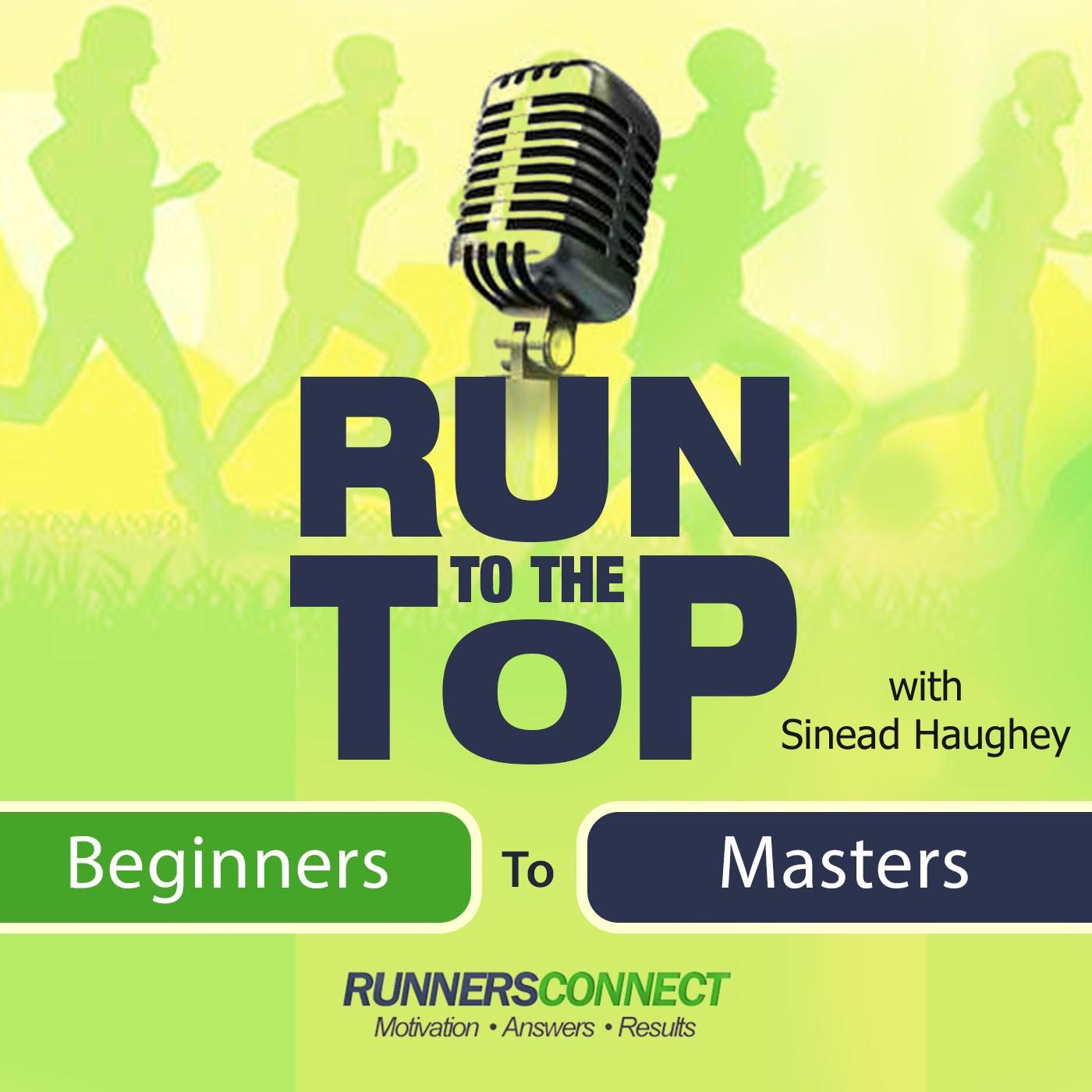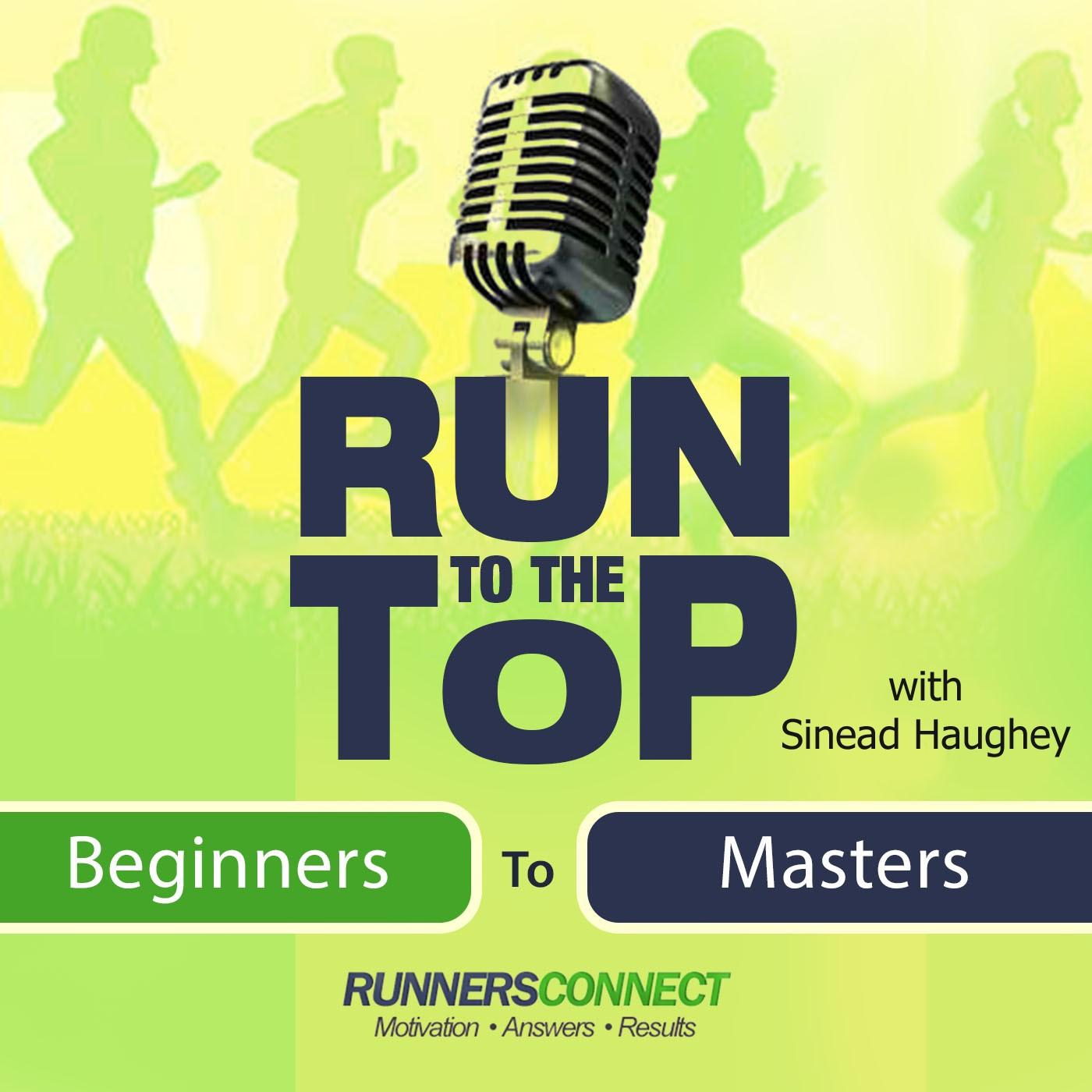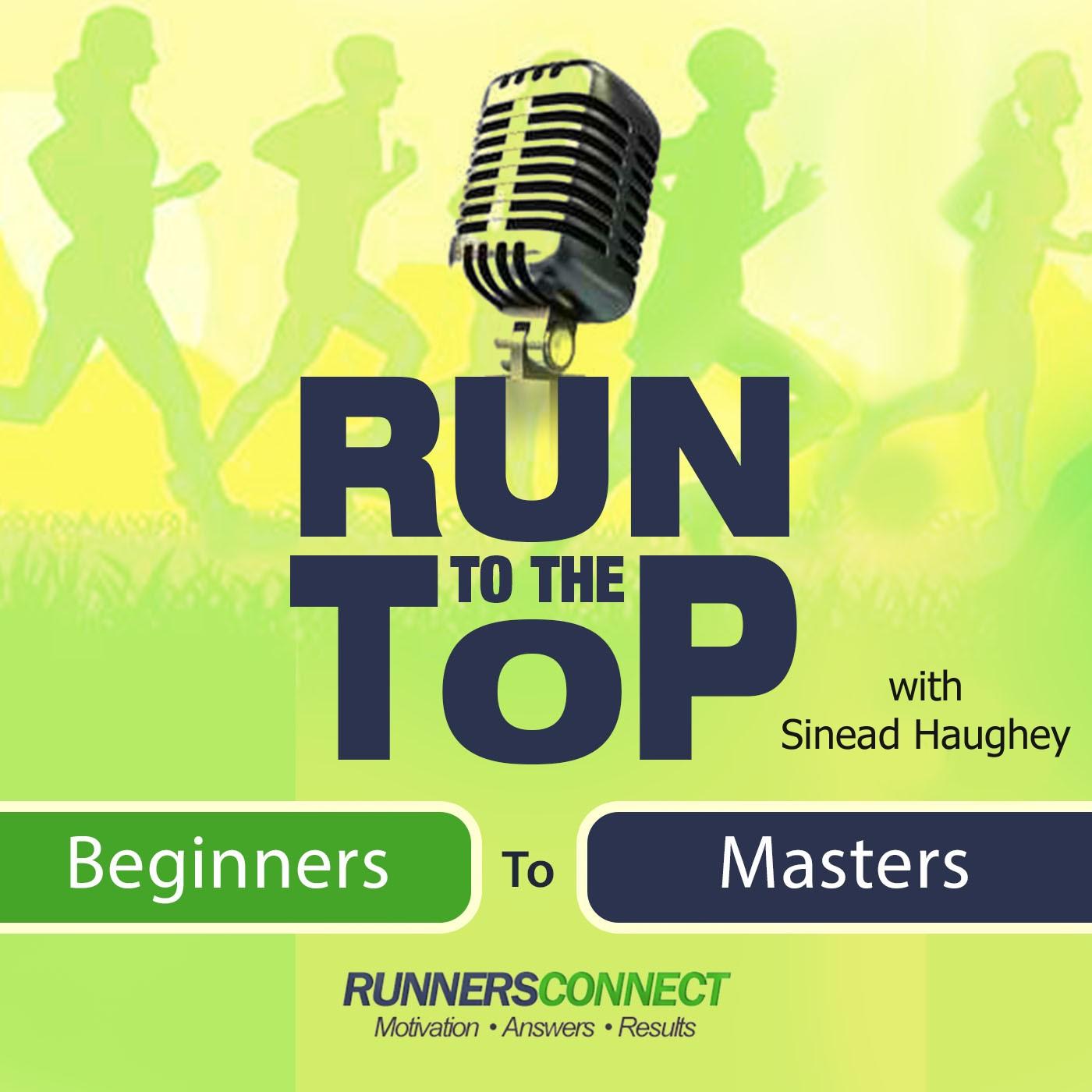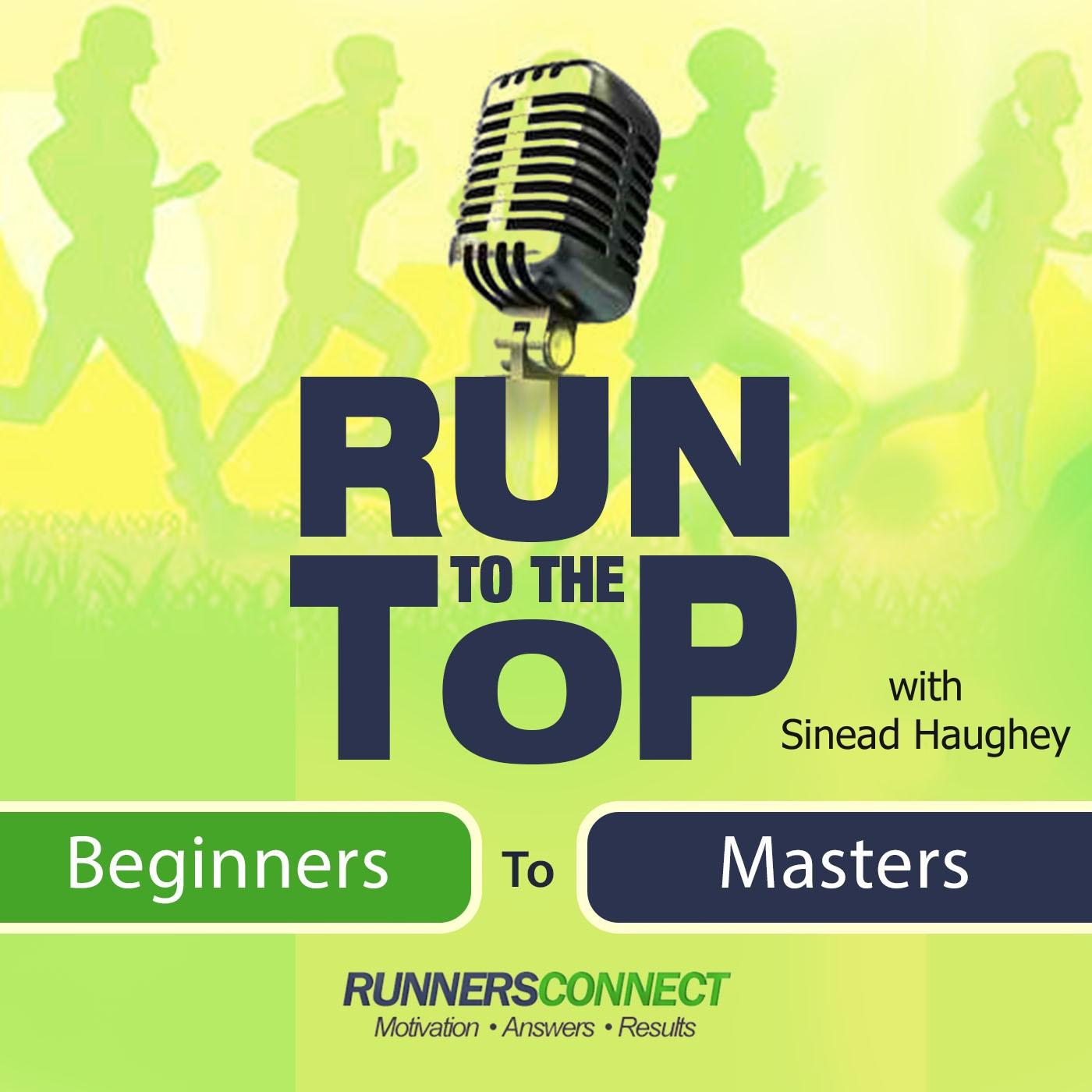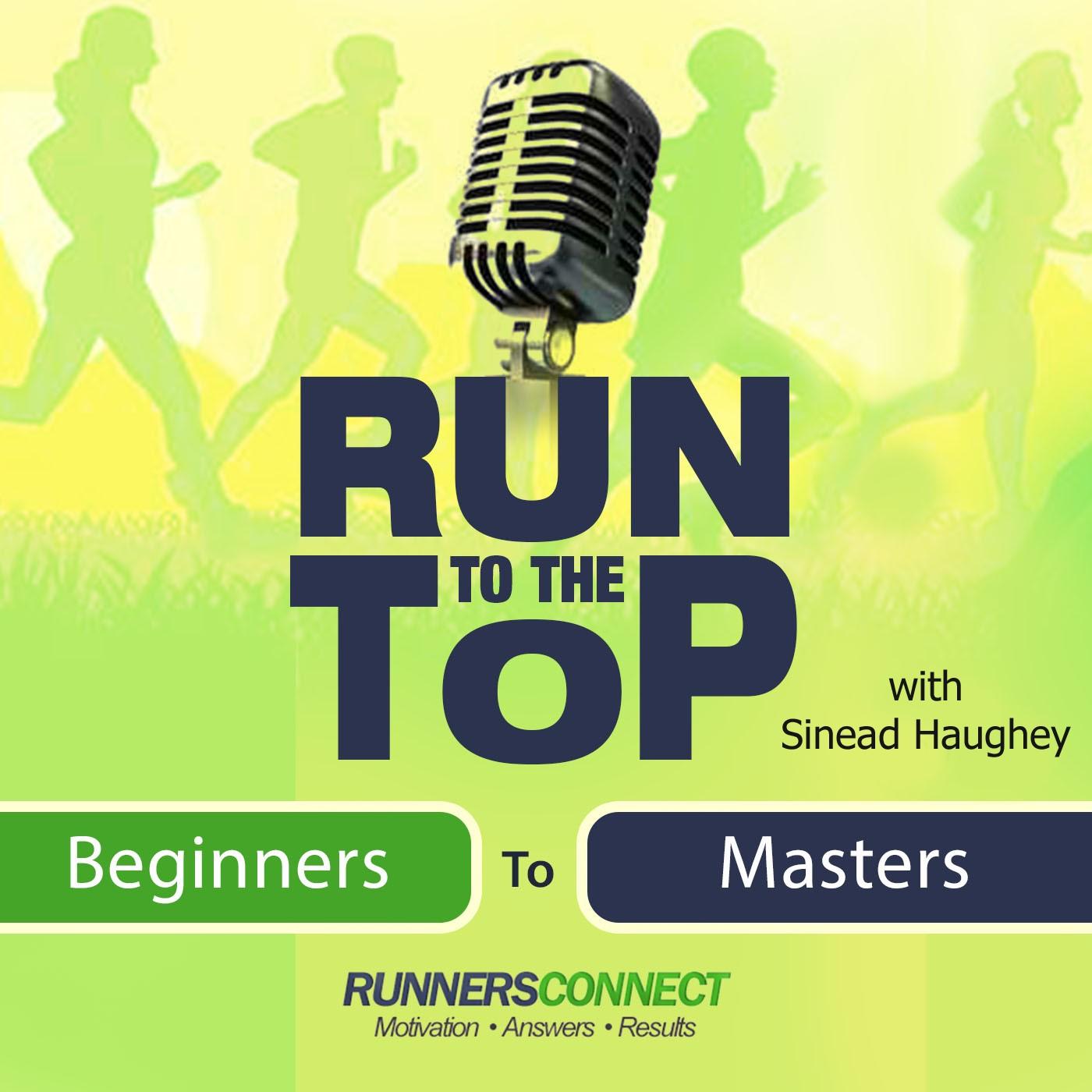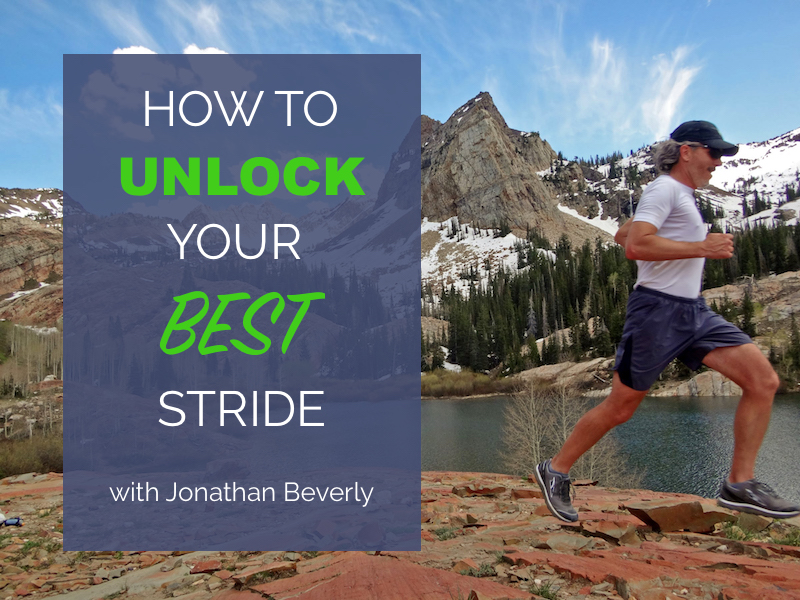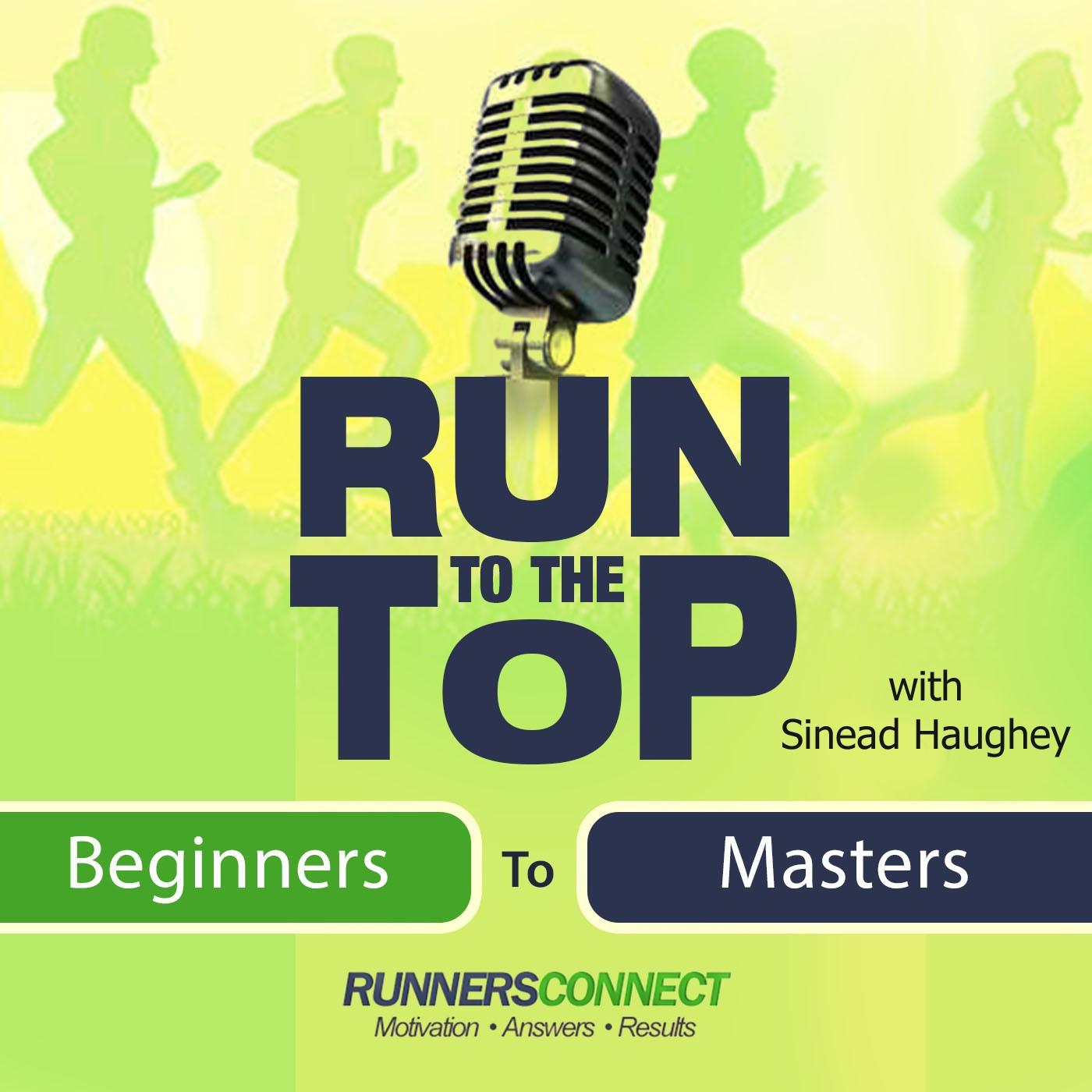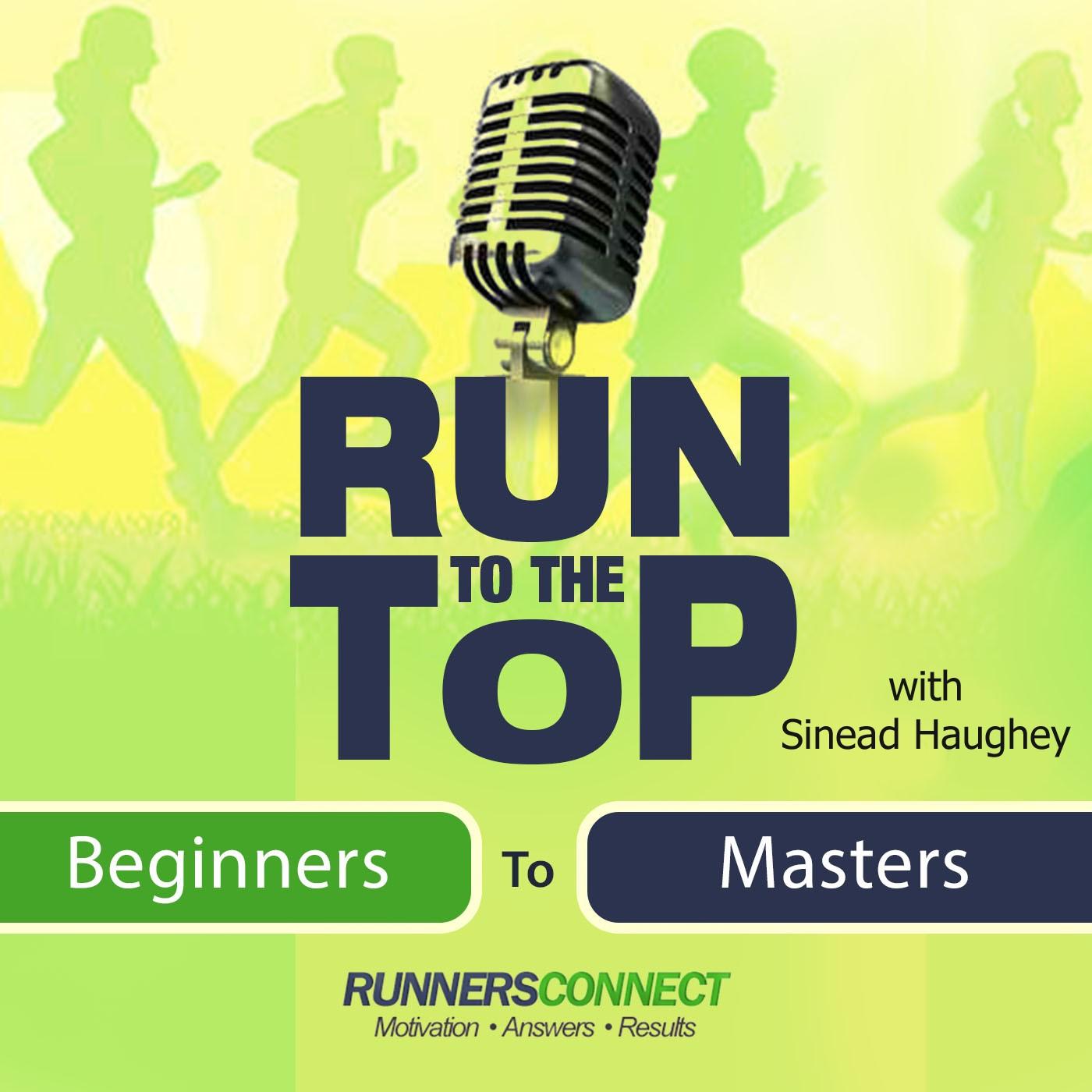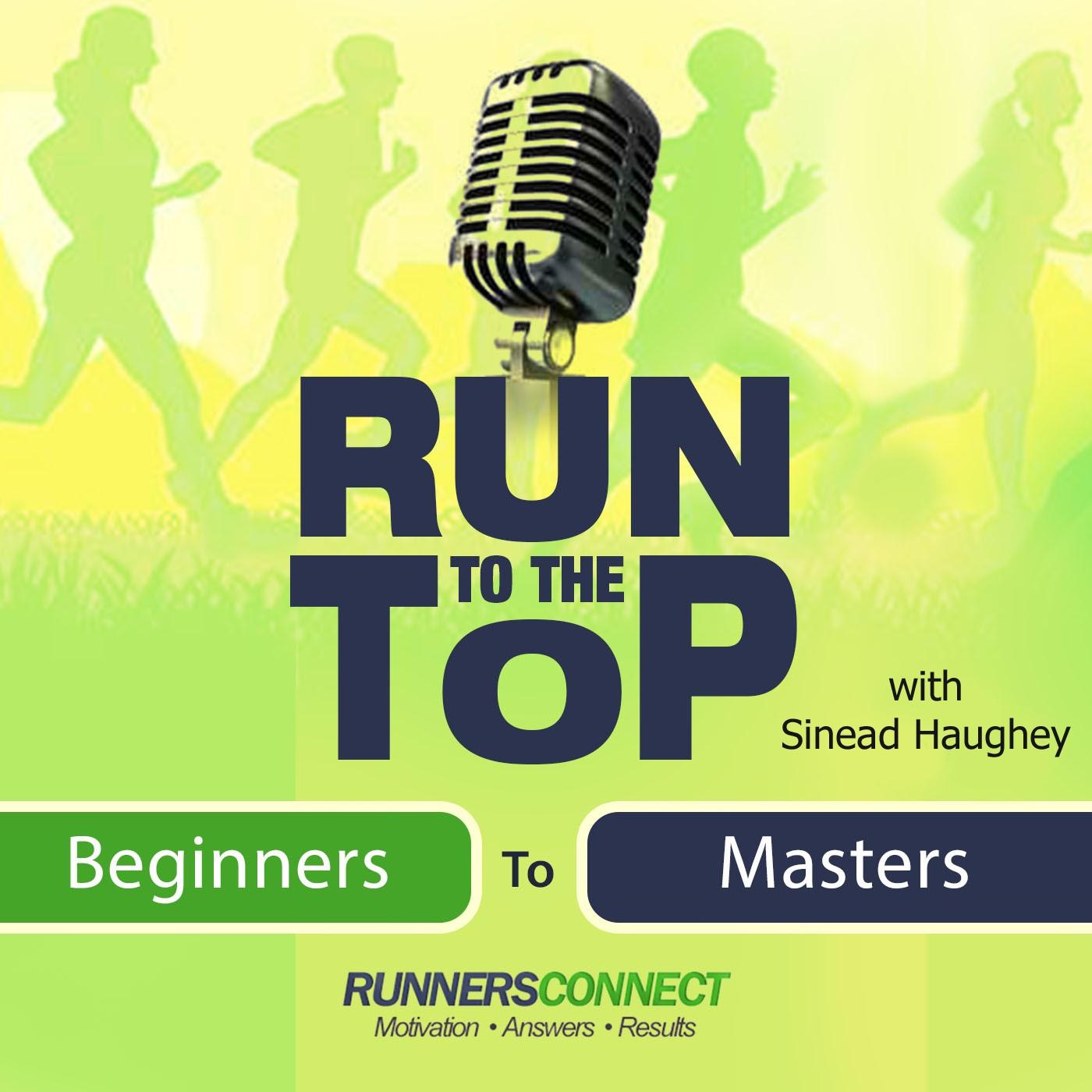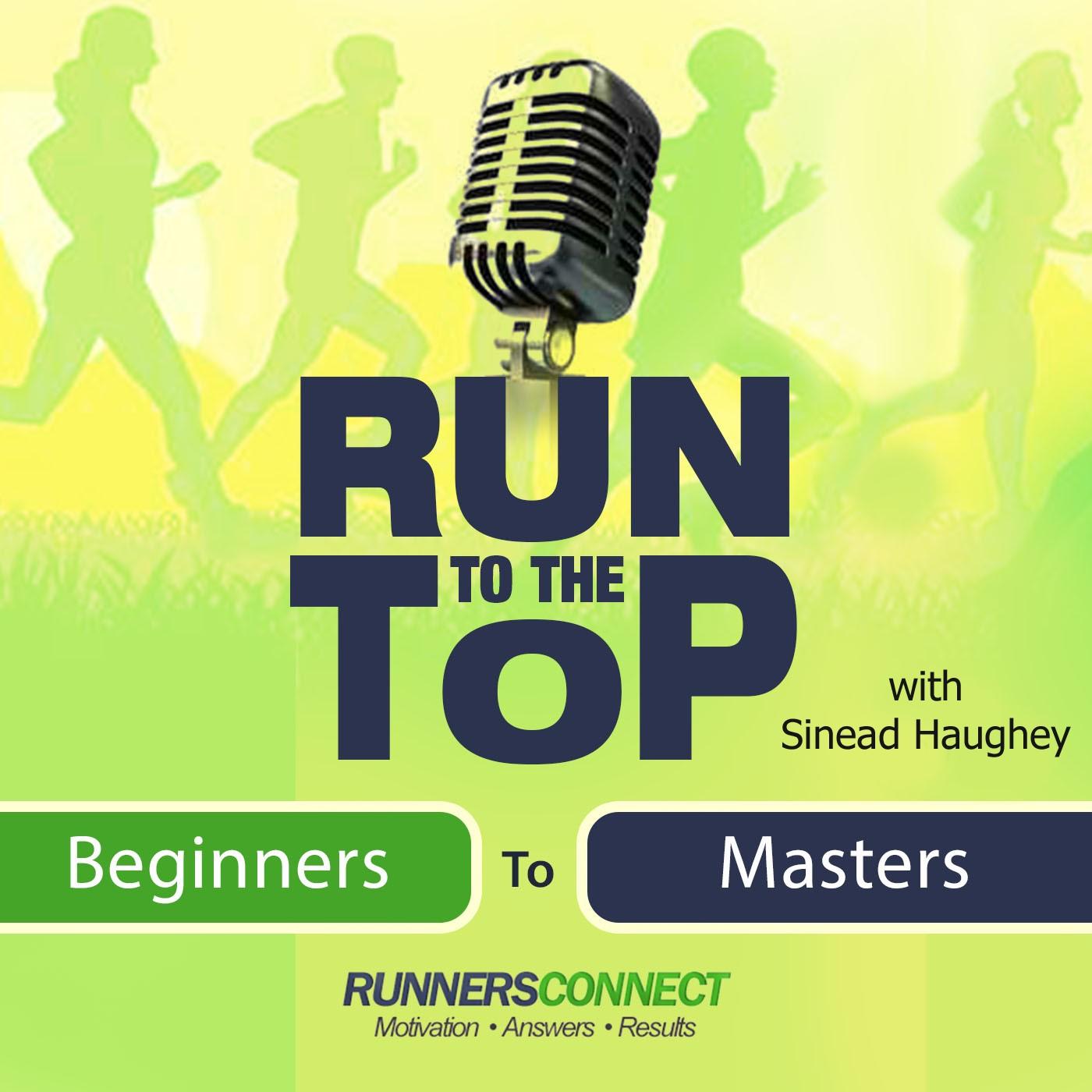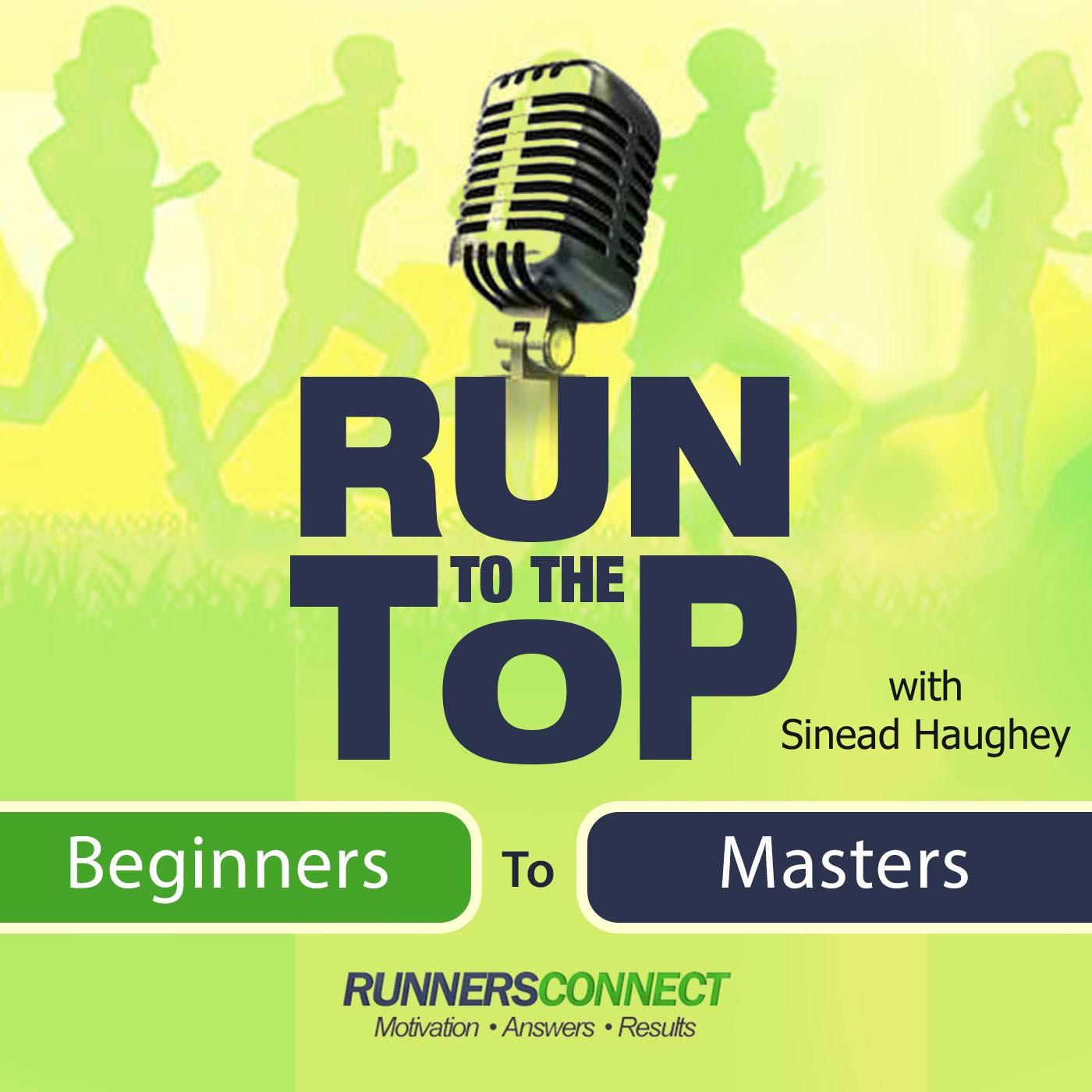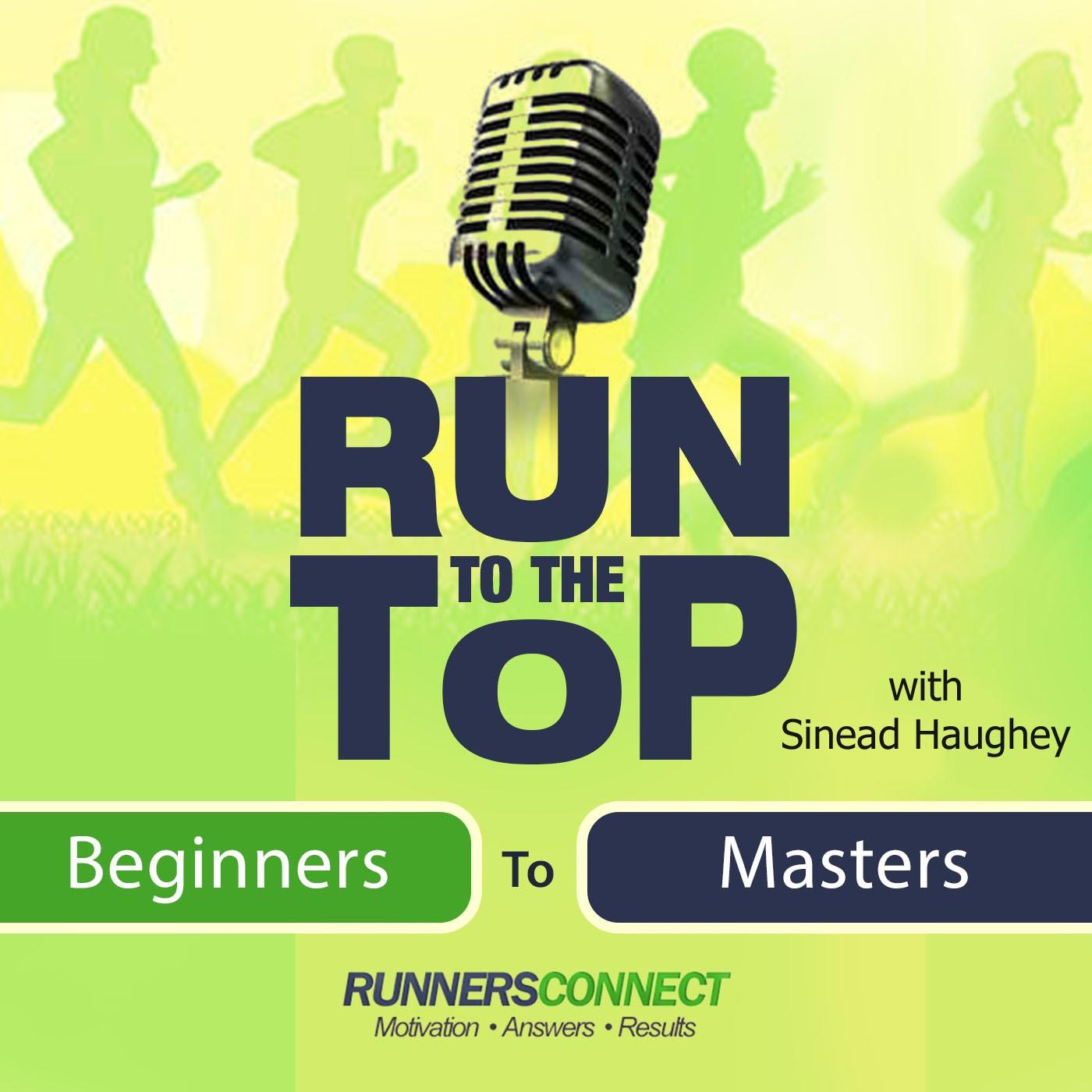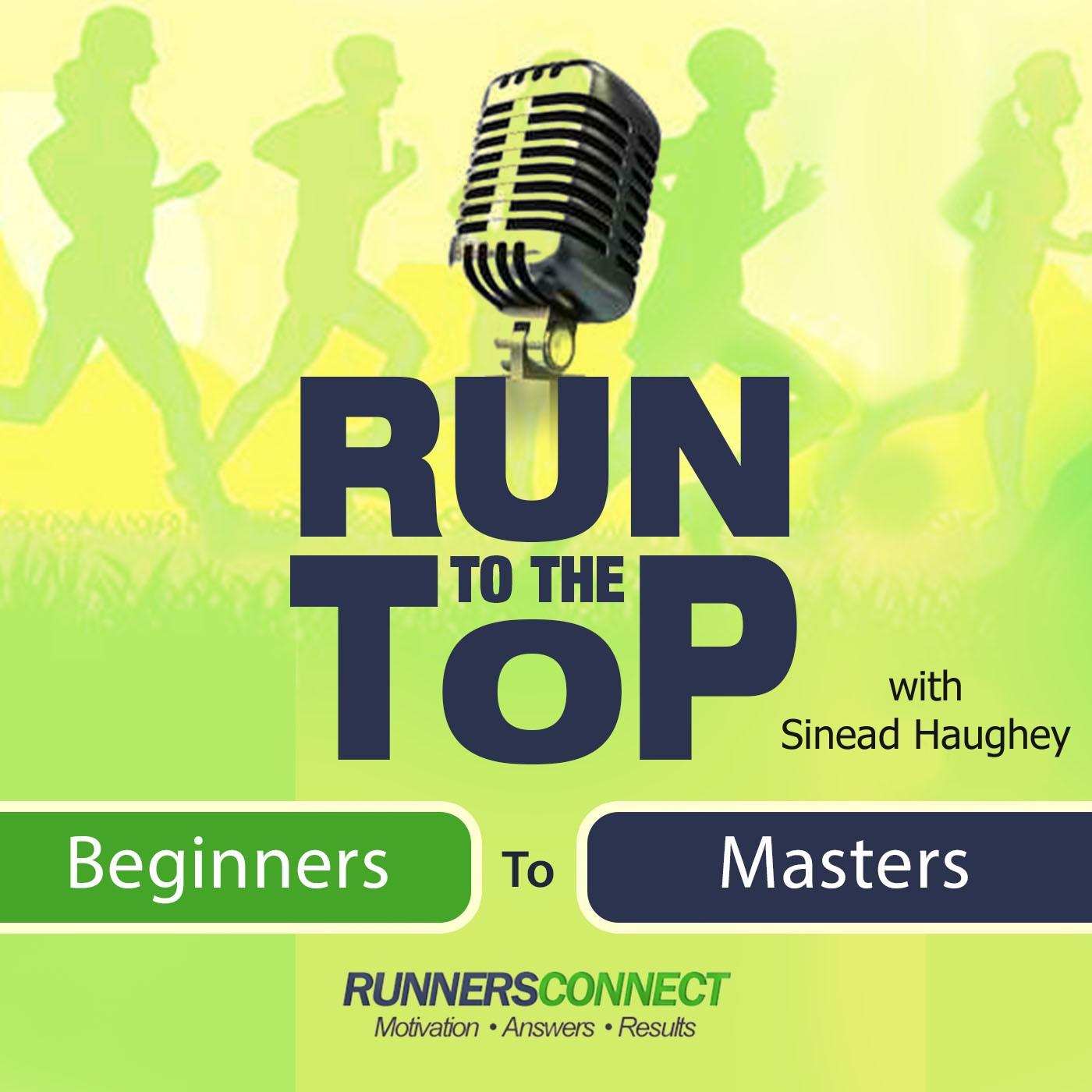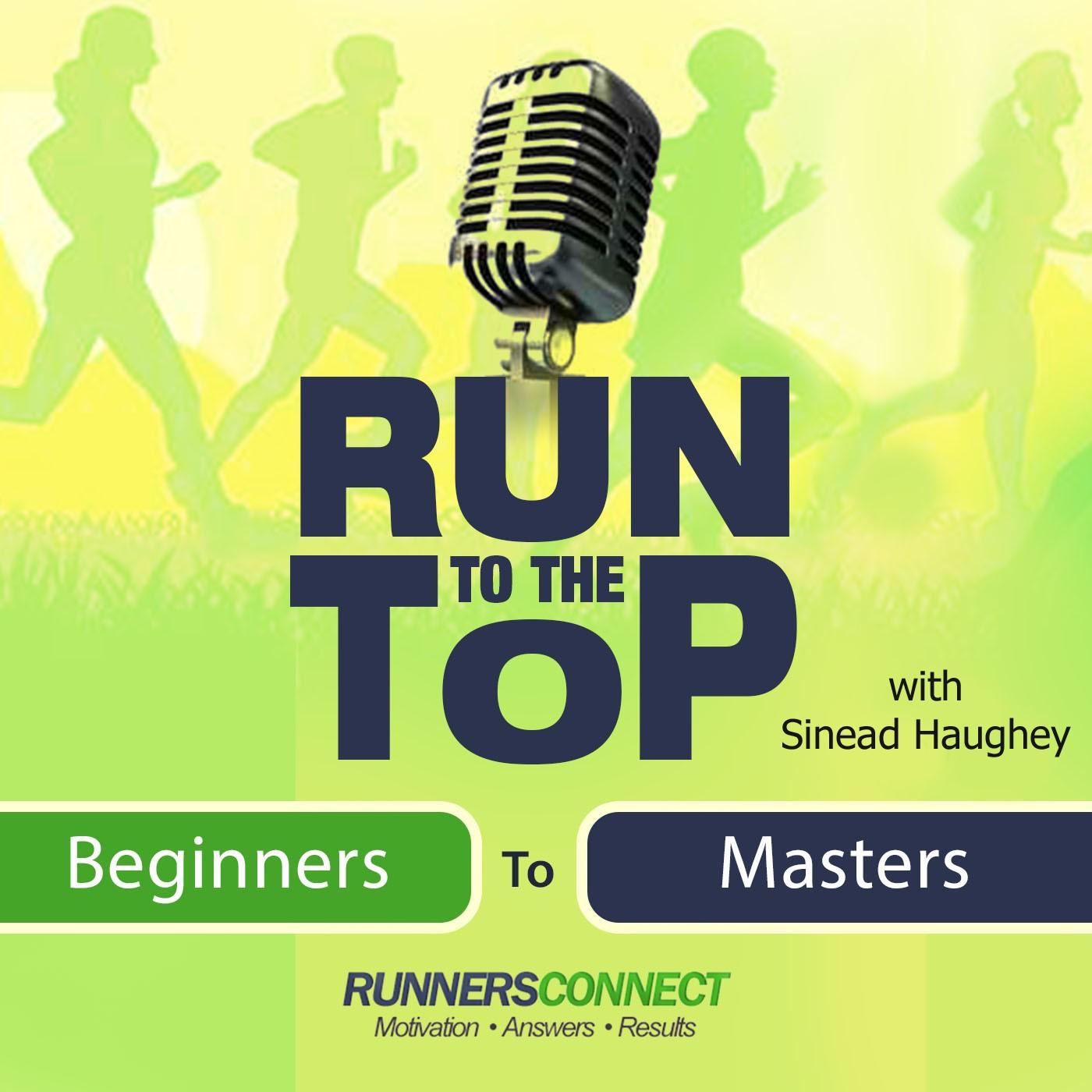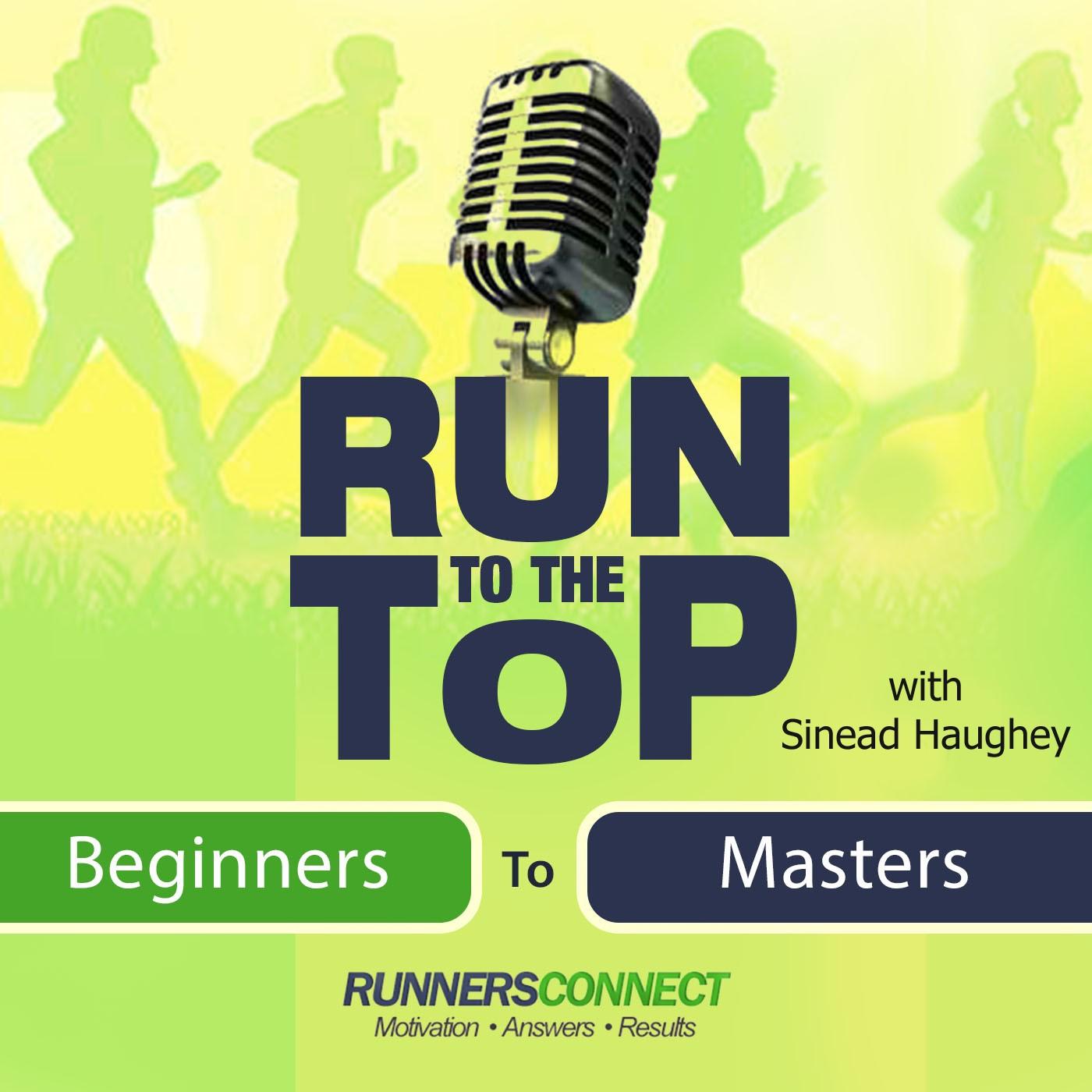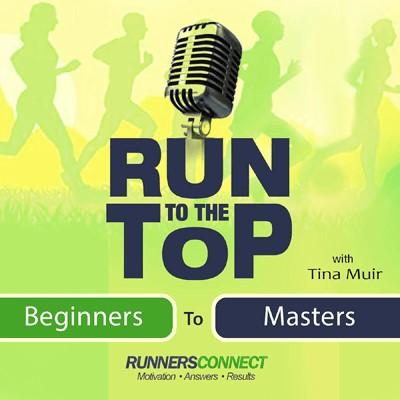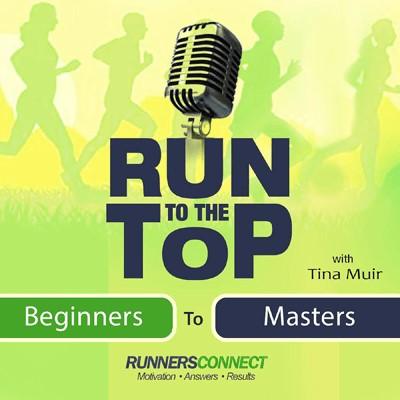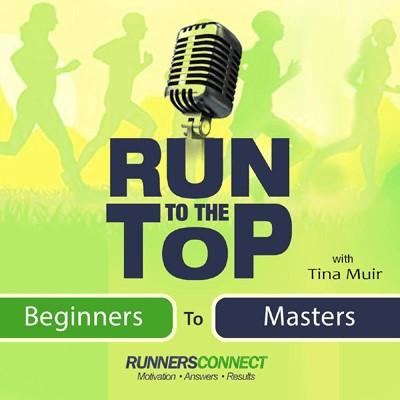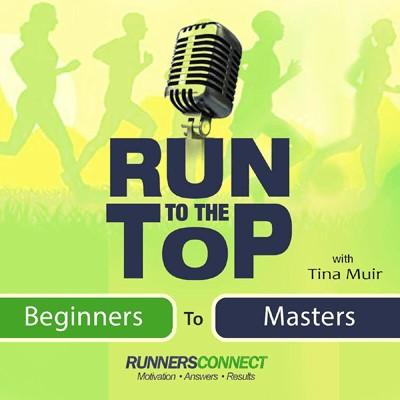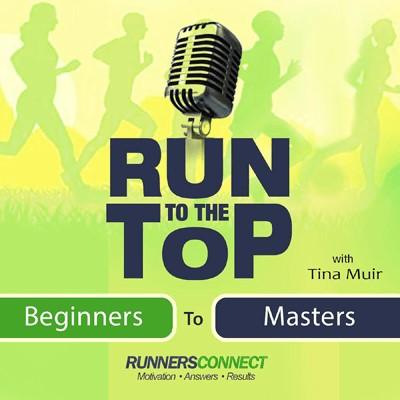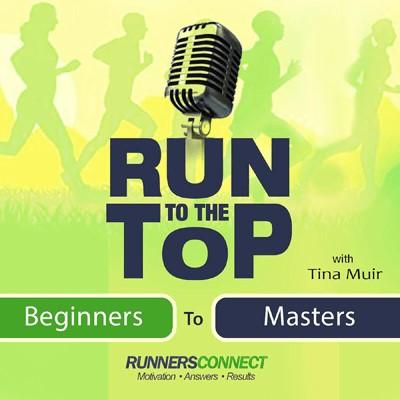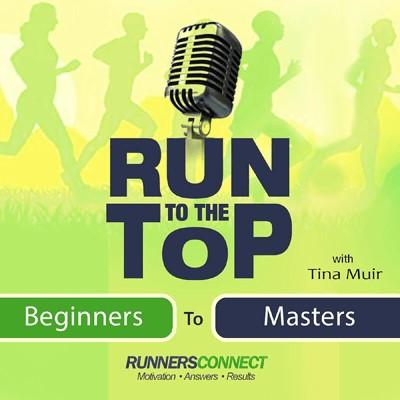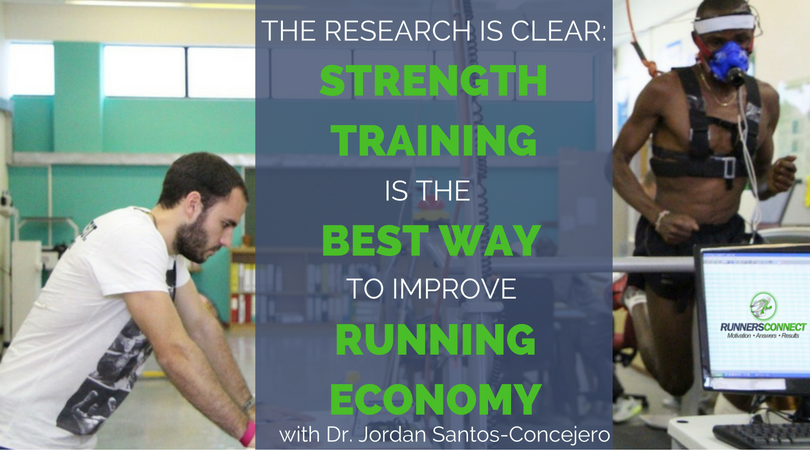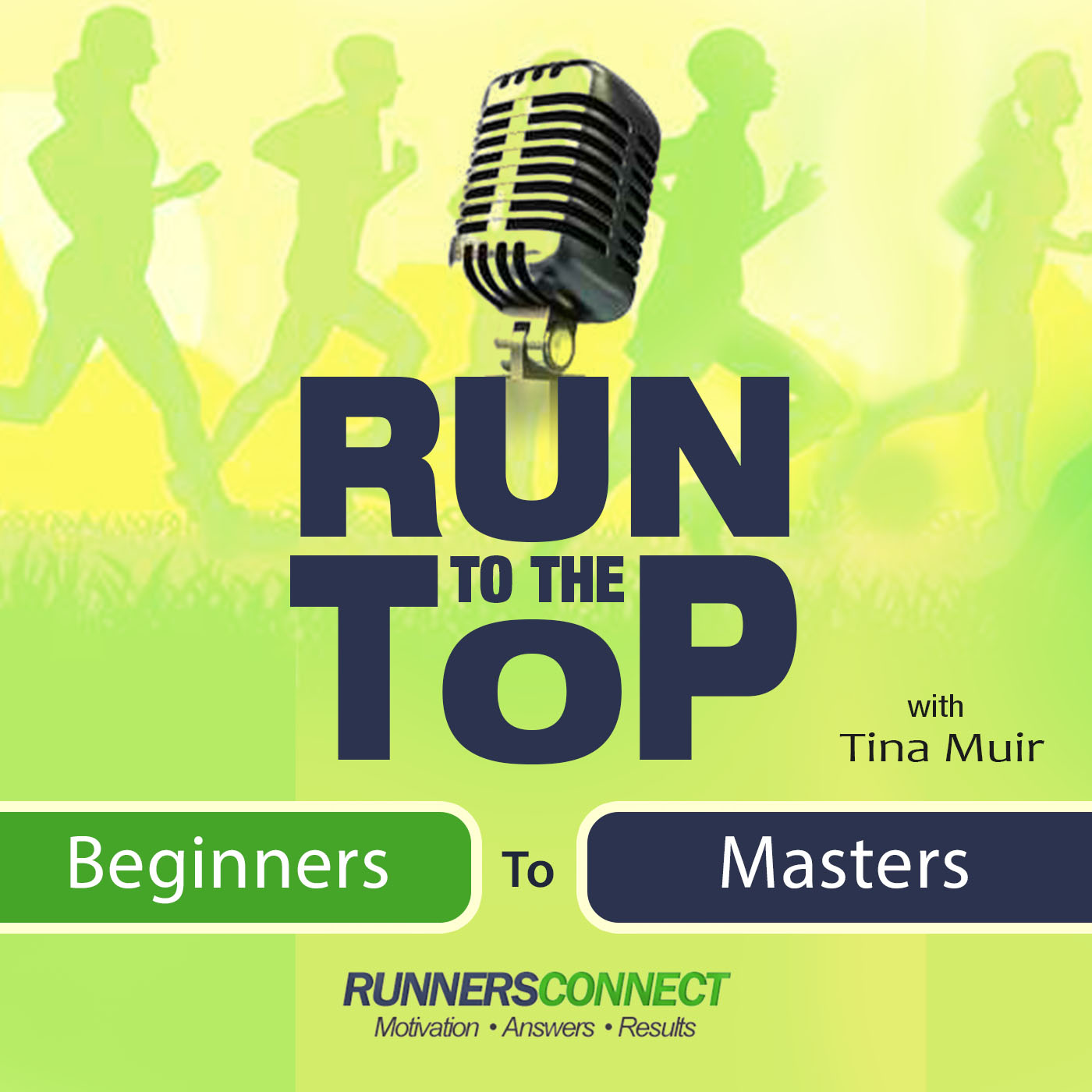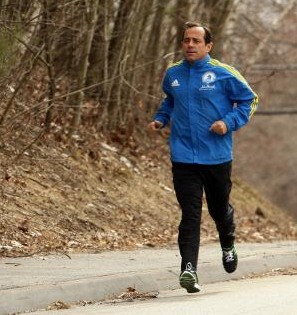Run to the Top Podcast | The Ultimate Guide to Running
Running podcast to motivate and help runners of every level, speed, and age run their best. Claire Bartholic interviews running influencers, scientists, psychologists, nutritionists, and everyday runners with inspiring stories.
How many marathon runners have acute kidney damage after they cross the finish line? According to a Yale University study, the answer is a shocking 55%. So if you’ve ever run a marathon, the odds are slightly better than 50% that this has happened to you.
But don’t worry. The damage tends to be temporary, resolving itself after a few days. So we heal, get stronger, and move on. But what if something goes wrong?
Dr. Sherry Mansour and Dr. F. Perry Wilson are kidney doctors or nephrologists at Yale, and they share their expertise on running and your kidneys. Dr. Mansour actually led the research on marathon runners and kidney research. They talk to Coach Claire about who is susceptible to acute kidney damage from running, what we can do about it, and what we still need to learn.
They also discuss ibuprofen which can cause kidney issues, and how it can be used safely by runners. They also delve into kidney stones. If you’ve ever had one, you know they are extremely painful. They cover how to minimize the risk of kidney stones and what precautions kidney stone sufferers need to take when running long distances.
If you are a runner with kidneys, this is one conversation you don't want to miss!
Dr. Sherry Mansour grew up and attended medical school in New York. She graduated in 2010 and received the Highest Academic Achievement Award. She was elected valedictorian of her class and was also inducted into the Psi Sigma Alpha National Osteopathic Scholastic Honor Society. She went on to complete residency training in Internal Medicine at Stony Brook University Medical Center, where she was chosen as chief medical resident. She was inducted into the Alpha Omega Alpha Honor Medical Society, Stony Brook Chapter in 2012. She then joined Yale New Haven Hospital in 2014 as a Clinical Research Nephrology fellow. She also completed her Master of Science from the Yale School of Public Health in 2019 with a focus on Chronic Disease Epidemiology. Since her arrival at Yale, Dr. Mansour has been working on identifying novel repair biomarkers in blood and urine to better predict long-term kidney and heart disease outcomes after AKI, and improve overall patient care. Her K-23 proposal is focused on understanding the role of a vessel repair pathway, known as the Angiopoietin pathway, in graft outcomes after deceased donor kidney transplantation.
A link to Dr. Mansour’s full biography including links to her research and publications is:
Yale Medicine Profile - Dr Sherry Mansour
Dr. Wilson grew up in Connecticut, before attending Harvard College where he graduated with honors in biochemistry. He then attended medical school at Columbia College of Physicians and Surgeons, before completing his internship, residency, and fellowship at the University of Pennsylvania. In 2012, he received a Masters degree in Clinical Epidemiology, which has informed his research ever since. At Yale since 2014, his goal is using patient-level data and advanced analytics to personalize medicine to each individual patient. He is the creator of the popular online course "Understanding Medical Research: Your Facebook Friend Is Wrong" on the Coursera platform.
A link to Dr. Mansour’s full biography including links to his research and publications is:
Yale Medicine Profile - Dr F Perry Wilson
Questions Dr. Mansour and Dr. Wilson are asked:
6:33 Dr Mansour, you did a study a couple years ago at Yale that studied the effects of marathon running on the kidneys. Can you explain how the study was conducted and what you found?
7:50 So marathon runners have markers like people in the ICU. That sounds horrible. Should we be worried?
8:31 Why do runners suffer from Acute Kidney Injury? Is it unique to running? Do swimmers suffer from this too?
9:23 Sherry, you said that you just run for fitness, so I assumed you would be a marathon runner since you studied the effects of marathon running on kidneys. Can you tell me why you chose to study marathon runners?
10:38 Perry, are you a marathon runner?
10:48 Perry, what questions do you have when it comes to kidneys and running? Have you experienced dehydration? Have you tested your own urine after a race?
12:13 What role does dehydration, your sweat rate, and sodium play into the types of injuries that the kidneys have after endurance racing?
14:28 It’s very difficult and actually not advised to drink the same amount of fluid that you actually lose during a race. What kind of advice would you give for somebody who says, “I know I sweat a lot. How much do I drink? How much salt do I put in my water?” Are these questions that you’ve been able to figure out yet?
16:28 Runners, especially older runners, worry about salt because their doctors say they shouldn’t intake a lot of salt if they have high blood pressure. Or if they have other kidney problems, they might have been advised to be on a low salt diet. How does that play into while you’re exercising? Should you continue to not consume much salt just because you’re supposed to be on a low salt diet?
17:46 Runners hear a lot about ibuprofen. A lot of people call it Vitamin I and take it when they’re feeling sore. Some people even take it before a race so they won’t feel sore, and we as coaches try to advise against this. Can you talk about the link between ibuprofen and kidney injury?
22:08 One of the reasons I wanted to have both of you on the show is because I recently suffered from a kidney stone, something I haven't talked about until today. I’m a healthy, athletic person and did not expect it. It was the worst pain of my life and as an athlete, I'm struggling to find good advice for hydration for kidney stone sufferers. Perry, can you give me some advice?
25:00 Through my research I’ve found that kidney stones are fairly common. Is that correct?
25:16 What do kidney stone sufferers have to do as far as exercise goes? I’m absolutely dehydrated at the end of a marathon. Is that more dangerous for me than it would be for someone who doesn’t have a kidney stone history?
26:59 I haven’t heard of people talking about how endurance runners and kidney stones interrelates at all, so I think there’s a lot of people out there that are hungry for this advice. Like I said, that’s why I want to have you guys on the show. So we can still run, we can still get a little dehydrated, but our risk is going to be a little higher is what you’re saying?
28:21 I think most runners now take Tylenol instead of ibuprofen, which hurts our liver instead of our kidneys. There’s also some evidence that Tylenol actually affects your brain and makes your perception of effort go down. So any time there’s something like that, runners are like, “Give it to me. Give it to me.”
29:25 Acute Kidney Injury from marathon running is typically temporary. When do we have to worry that something could be wrong and damage could become chronic?
31:17 Have you looked at people who you measured right after the race and then looked at them a few days later to see if the damage was resolved?
32:15 If you could go back and talk to yourself when you started running, what advice would you give?
33:41 Where can listeners connect with you?
34:12 Do you know why students at Yale aren’t allowed to run outside?
Quotes by Dr. Mansour and Dr. Wilson:
“This urine really we see in the hospital all the time when patients are in the ICU when their blood pressure is really low so we didn’t think that we would see something similar in runners but that was sort of the main finding that kind of surprised us.” (Dr. Mansour)
“I wish I were a runner. Every time I do studies with marathon runners, they’re so inspiring, they’re so dedicated. It’s really a great crowd to be around, but I’m just not like that. I don’t have the stamina.” (Dr. Mansour)
“There might not be that much of a correlation between how you feel and what’s going on in your kidneys because I was convinced I was going to see the most terrible stuff based on how I was feeling at the end of that race and my kidneys kind of shrugged it off.” (Dr. Wilson)
“A kidney stone is painful but it isn’t going to kill you either, so you have to think about the benefits.” (Dr. Wilson)
Take a Listen on Your Next Run
Leave a space for libsyn link
Want more awesome interviews and advice? Subscribe to our iTunes channel
Mentioned in this podcast:
Article: Marathons and Kidney Damage: What Runners Should Know
Runners Connect Winner's Circle Facebook Community
Follow Drs. Mansour and Wilson on:
We really hope you’ve enjoyed this episode of Run to the Top.
The best way you can show your support of the show is to share this podcast with your family and friends and share it on your Facebook, Twitter, or any other social media channel you use.
The more people who know about the podcast and download the episodes, the more I can reach out to and get top running influencers, to bring them on and share their advice, which hopefully makes the show even more enjoyable for you!
When you’re running hard, pushing yourself to extremes, which do you think is the more limiting factor, your body or your brain? Alex Hutchinson has done extensive research on exactly that question.
The Toronto-based author and journalist focuses on the science of endurance and fitness. You may know him from his book ENDURE: Mind, Body, and the Curiously Elastic Limits of Human Performance or from Outside magazine where he’s a contributing editor and writes the Sweat Science column.
Alex believes that our limits are elastic, stretchable, and as of yet, undefined. He and Coach Claire discuss those limits, and also tackle hydration, fueling, carbohydrates, strength training, aging and more. And just for fun, they also get into the science of why Coach Claire loves an out-and-back course way more than a loop!
Alex also writes the Jockology column for The Globe and Mail, and his writing has appeared in Canadian Running magazine, Popular Mechanics (where he earned a National Magazine Award for his energy reporting), the New York Times, and he was a Runner’s World columnist from 2012 to 2017.
Prior to ENDURE, Alex wrote a practical guide to the science of fitness called Which Comes First, Cardio or Weights? Fitness Myths, Training Truths, and Other Surprising Discoveries from the Science of Exercise, which was published in 2011. He is also the author of the 2009 book, Big Ideas: 100 Modern Inventions That Have Transformed Our World.
Alex started out as a physicist, with a Ph.D. from the University of Cambridge, followed by a few years as a postdoctoral researcher with the U.S. National Security Agency, working on quantum computing and nanomechanics. During that time, he competed as a middle- and long-distance runner for the Canadian national team, mostly as a miler but also dabbling in cross-country and even a bit of mountain running. He still runs most days, enjoys the rigors of hard training, and occasionally races, but hates to think of how he’d do on an undergraduate physics exam!
Alex’s best-selling book Endure has a forward written by Malcolm Gladwell, another famous Canadian runner and writer, and the updated version is now out in paperback.
Questions Alex is asked:
3:34 You are an author and a journalist, but you really seem like a scientist at heart. How did you get into writing about fitness and endurance sports?
5:22 What fascinates you most about how the body works when exercising?
6:10 Your book Endure, if you could really sum it up, I would say that it is trying to discover whether it’s the body or the brain that’s mostly the limiting factor when you’re trying to go to extremes but it’s clear that it’s a mix of the two. You can’t say, “Oh, it’s just the brain” or “It’s just the body.” Can you talk a little bit more about how they’re interrelated and what we are finding out?
7:41 Tim Noakes is a South African scientist that has been very controversial. He’s written a lot of things that turned out to be totally true and then he’s written a bunch of things that maybe people have not found to be true. Can you talk a little bit about the controversy, both the good and bad things that Tim Noakes has contributed?
10:35 I would love to distill the lessons that you’ve learned so far about things that can help runners do better. The two main topics I would love to get into are hydration and fueling. Let’s talk about hydration specifically for the marathon. Hydration needs are different for every type of body. Are there any rules of thumb that recreational runners should think about when coming up with a hydration plan for the marathon?
15:25 ‘Drink to thirst’ is starting to become more popular but there are some populations that their thirst isn’t reliable. I’ve heard that as you age, your sense of thirst is not as strong. Have you heard that as well?
18:05 We could talk about fueling during the race or we could talk about nutrition in general, but what I have found is that human studies are just notoriously bad when it comes to nutrition because we’re not rats and we can’t put humans in cages and measure everything. So what would you say are the limitations to studying nutrition on humans?
23:53 Let’s get into the great carbohydrate debate. As I often tell people, what’s frustrating about the word carbohydrate is that lentils, lollipops, and lumber are all carbohydrate. And if you say do eat carbohydrates or don’t eat carbohydrates, clearly those three things are processed differently in your body. First of all, why do we lump carbohydrate? It’s an absolutely massive category of food and clearly our body treats it differently. Carbohydrate is the preferred fuel of the brain. It’s the preferred fuel of the muscles. So why isn’t everybody on the carbohydrate train?
25:35 Sugar or simple carbohydrate is bad if you’re not exercising but it’s exactly what you need if you are trying to run a fast marathon.
27:29 A keto diet could be exactly what an ultramarathoner would want to do. They’re not so concerned about ultimate speed; they’re concerned about eating all the time. Isn't that what they say about ultras is that it’s not really a running race; it’s an eating race?
28:58 What’s the point of all this science if the answer is always “It depends?”
30:22 Let's talk about strength training. What is the minimum effective dose for a runner who is highly active and competitive but not at the elite level?
34:36 What is the minimum effective dose of strength training for somebody who is actively training to be competitive in a race but still at a sub-elite level?
40:10 I think a lot of what we attribute to normal aging is actually more of lack of activity, and all the decline is mostly for the couch potatoes, the more sedentary people, and we runners think that maybe we’re immune to all of that stuff. Would you agree a little bit with that?
44:12 You recently wrote an interesting article about the science of finish lines or teleoanticipation and you related it to not knowing when the pandemic will end. Can you explain?
47:46 I like out and backs better than loops because I know what to expect on the way back. There’s science that proves it, right?
49:28 The brain loves knowing what to expect and it predicts what’s going to happen whether it’s right or wrong, right?
49:42 What questions are left unanswered? What kind of science are you looking forward to in the future?
51:33 I think everybody wants to figure out how to make their brains stronger, not just in running but in life and dealing with little kids.
Questions I ask everyone:
52:22 If you could go back and talk to yourself when you started running, what advice would you give?
53:32 What is the greatest gift running has given you?
53:58 Where can listeners connect with you?
Quotes by Alex:
“For every situation that you think of the answer is both. The answer is “Yes.” It’s just like nature and nurture. The answer is your fate is 100% nature and it’s 100% nurture, and your physical performance is 100% your body and 100% your brain.”
“If you look at the list right now of the top 100 men’s marathon times ever run, 98 of them have been run by Kenyan or Ethiopian marathoners so if they’re doing something wrong, I want to do it wrong like they’re doing it because they’re pretty successful. And if you look at the data, in both cases they’re getting more than 60% of their calories throughout the day from carbohydrates. And for the Kenyans, apparently it’s more than 20% of their calories come from the added sugar that they put in their oatmeal and their tea. So is this healthy for a couch dwelling office worker in North America? Probably not. But if you want to run fast or if you’re training hard, sugar is not only like you can use it, but like you said, you need it.”
“There is some pretty interesting evidence showing that older runners like Masters runners get a much larger and more immediate benefit from weight training for their running than younger runners do because the younger runners have more muscle to spare.”
“Your body knows, even parts of your body that you wouldn’t think know exactly where the finish line is.”
Take a Listen on Your Next Run
Leave a space for libsyn link
Want more awesome interviews and advice? Subscribe to our iTunes channel
Mentioned in this podcast:
Endure: Mind, Body, and the Curiously Elastic Limits of Human Performance
Alex Hutchinson | Outside Online
Runners Connect Winner's Circle Facebook Community
Follow Alex on:
We really hope you’ve enjoyed this episode of Run to the Top.
The best way you can show your support of the show is to share this podcast with your family and friends and share it on your Facebook, Twitter, or any other social media channel you use.
The more people who know about the podcast and download the episodes, the more I can reach out to and get top running influencers, to bring them on and share their advice, which hopefully makes the show even more enjoyable for you!
Kim Clark’s 110,000 Instagram followers know her as Track Club Babe. Kim microblogs daily offering inspiration, encouragement, and rock-solid training advice learned over years of running. Fun note: The Run to the Top was the very first running podcast she listened to!
Kim ran her first marathon in high school. It was a six-hour disaster but she survived. Years later, in her late 20s, Kim decided to train seriously for another marathon and record her journey. Today she has a 3:11 PR and a massive following of runners.
Kim is a former human rights lawyer turned commercial real estate agent in her hometown of San Diego, CA, who creates her social content each evening. She’s done a ton of research throughout her running career and has of course had her ups and downs and is happy to teach and share her positivity with her online community.
In this episode, Kim shares her story along with some great running knowledge including what she eats to fuel and recover, training mistakes she’s made, over-training, and her thoughts on weight loss as it pertains to runners. Enjoy listening to running influencer @trackclubbabe!
Questions Kim is asked:
3:42 When I invited you to be on the show, you said the sweetest thing about how this was a full circle moment for you. Can you explain?
4:49 You chopped almost three hours off your marathon time. Tell us about your journey.
7:59 What made you want to start a blog and give yourself the nickname Track Club Babe?
9:45 What were some of your early training mistakes?
12:57 What do you eat now before running?
14:08 You have a really big following on Instagram and you give training advice and things that work for you that people just absolutely eat up. What do you get asked about the most?
15:34 Your running journey hasn’t exactly been perfectly smooth so I would love to hear about some of the times you’ve had plateaus and you broke through them.
20:14 Results are addictive when you get big PRs. You just think, “Well, if I just do a little bit more… “ But clearly there’s a breaking point.
26:26 One post of yours I noticed recently was about weight loss to get faster. Can we talk about this?
30:37 I think it’s super helpful to spread that message that thinner is not faster so I’m really glad we’re talking about that.
32:57 Let’s talk about food. What’s your favorite recovery food? What do you like to fuel up on when you’re in marathon training?
33:53 With your Instagram following being so big and working on your blog, are you still working as a full-time realtor as well?
35:25 What’s it like during COVID with no races for you?
37:01 How did you get through all the mental baggage of taking time off from running?
39:11 What’s next for you?
Questions I ask everyone:
42:36 If you could go back and talk to yourself when you started running, what advice would you give?
43:20 What is the greatest gift running has given you?
43:55 Where can listeners connect with you?
Quotes by Kim:
“We all love to run and no matter why you’re running, whether it’s just for the joy of it or competitively, it makes it more fun when it feels a little bit more effortless and you can go a little bit longer and a little bit faster, and it just makes it more fun.”
“I think the internet’s an awesome place for just teaching you so much, and then just being connected with so many runners around the world helps so much to read from their experiences, learn from them.”
“I figured out how to qualify for Boston and I figured out training for me. The key for every person is just figuring out what is going to connect for you and your body and for where you’re at.”
“There’s so many things that you can be doing that have nothing to do with weight that are going to move the needle on your speed, and that’s what we should be focusing on and not just being so obsessed with weight, which honestly, if you want to try to be frail and run fast; that’s not going to work either. You want to be under-fueled and try to run fast; that’s not going to help you.”
Take a Listen on Your Next Run
Leave a space for libsyn link
Want more awesome interviews and advice? Subscribe to our iTunes channel
Mentioned in this podcast:
Runners Connect Winner's Circle Facebook Community
Follow Kim on:
We really hope you’ve enjoyed this episode of Run to the Top.
The best way you can show your support of the show is to share this podcast with your family and friends and share it on your Facebook, Twitter, or any other social media channel you use.
The more people who know about the podcast and download the episodes, the more I can reach out to and get top running influencers, to bring them on and share their advice, which hopefully makes the show even more enjoyable for you!
What is it with runners and knees? If you run, you’ve heard “I used to run but it hurts my knees.” Although running is not inherently bad for your knees and staying active helps keep your knees healthy, a lot of runners eventually stop running because it hurts their knees too much.
Older runners, especially men, have to be particularly diligent in their strength training and stretching to avoid knee pain. So which is it? Does running cause people knee problems or are certain people predisposed to knee problems and would have issues regardless of whether they ran or not?
To get to the bottom of this issue, Coach Claire speaks with Yale orthopedic surgeon, Dr. John Fulkerson. Dr. Fulkerson specializes in sports medicine and focuses on treating patella instability, which refers to the kneecap sliding in and out of position.
Dr. Fulkerson has been at Yale for over 40 years and he is leading the way in cutting edge technology to help those who suffer from debilitating knee issues. He talks about who’s most at risk for knee problems, what does and doesn’t work for prevention, the simple exercise that you can do today that can help keep your knees running smoothly and pain free, and why those of us who are fortunate enough to be runners should feel gratitude for our running, even on those bad run days!
Dr. Fulkerson received his medical degree from and also completed his internship and residency at Yale University. His awards include a Lifetime Achievement Award from the Patellofemoral Foundation, a Sports Medicine Fellow Educator Award from the Department of Orthopedic Surgery at the University of Connecticut, Connecticut Orthopedist of the Year, the San Francisco Bay Area Lifetime Achievement Award, U.S. News and World Report Top Doctors, and the Wisdom House Community Service Award (with his wife Lynn).
He founded the International Patellofemoral Study Group and the Patellofemoral Foundation. He has been head team physician for the NHL Hartford Whalers and Hartford Wolfpack, and a team physician for the U.S. Olympic Men’s Ice Hockey and Trinity College in Hartford.
Dr. Fulkerson is known for orthopedic surgical innovation and has lectured worldwide. His publications include Disorders of the Patellofemoral Joint as well as many other chapters and monographs on the same subject. He also published the non-orthopedic book Thin Lines: A Vineyard Journey.
Questions John is asked:
3:00 What every runner wants to know is, is running bad for your knees?
4:44 What other people besides older people need to be careful about running safely? You said that there are some people that maybe aren’t as well suited to running as far as their knees go at least, so who are we talking about here?
5:53 Your specialty is patella instability. Can you talk about exactly what that is and maybe give us a quick anatomy refresher here?
7:11 So patella instability is when the kneecap is actually moving around is what you’re saying?
7:42 The patella groove depth is just genetic, you get it or you don’t? It’s just how you were born? Or does it have anything to do with the activities we do?
8:24 Can you talk about some of the specific problems that runners face with their knees? Give us a definition of what’s runner’s knee?
10:30 You mentioned core instability, and that’s something as I coach I talk to my runners about is that often knee problems are actually a symptom. They’re not actually the problem. It’s something higher up in the chain. The hips, the core, or maybe in the lower part of the leg or the ankles, something like that. Can you talk about how the knee is related to everything else that’s going on in the chain?
11: 57 What are some other exercises besides jumping rope that you recommend that can help with people who complain about knee issues?
12:24 How do you stretch the knee?
13:47 Let’s say we have a runner who complains of knee problems. He is doing everything he’s supposed to be doing, all the stretches, all the strengthening, rock solid core, but still cannot get away from the knee pain. At what point is surgery the best option?
14:59 How does 3-D printing work as a diagnosis tool for knee pain?
16:10 This sounds like cutting-edge technology at Yale. Is this something that is spreading across the country? Are we going to be able to find this in Kansas? Or is this pretty limited at the moment?
17:44 When we’re talking about knees and joints in general and aging, the next thing that tends to come to mind is arthritis. And when I was researching this before interviewing you, I learned that there’s all sorts of different kinds of arthritis which I was not aware of. I thought arthritis was just arthritis but apparently it’s not. Can you talk about arthritis, especially in the knee, that runners are likely to encounter as they age?
20:07 My dad used to jog three miles every other day and he stopped in maybe his 60s because it hurt his knees too badly. Am I going to have the same fate? What do you think?
23:34 Let’s go back to cartilage. You mentioned the various things that happen to our cartilage as we age. Is once the cartilage is gone, it’s gone, or it degenerates to a certain point? Does it regenerate? What exactly is going on with our cartilage?
25:00 How do we take good care of our cartilage? Is it just listening to your body and eating well? Is there something that we can do that will help prevent it if we happen to be prone to this?
26:47 As far as running shoes go, would you say nice, cushioned shoes or a nice drop? I would imagine you’re going to say no barefoot running. What would you say about shoes?
26:41 I have a runner who is in his late 50s and has always had knee problems since I’ve been working with him, and his big thing is downhill running. Downhill running is really, really tough on him. Can you give some insight on why that is and maybe some advice about what he should do?
30:51 Are you saying we shouldn’t avoid downhill running if it doesn’t give us pain?
30:59 A lot of people say that most of the symptoms that we tend to associate with aging are actually more associated with inactivity, and I wanted to get your thoughts on that because I know a lot of people who are runners and their friends say to them, “Oh, well that’s just bad for your knees. Maybe you shouldn’t run.” What’s your take on that?
Questions I ask everyone:
33:48 If you could go back and talk to yourself when you started running, what advice would you give?
35:27 What is the greatest gift running has given you?
36:53 Where can listeners connect with you?
37:17 What are you working on next?
Quotes by John:
“I think that running is a natural activity for people. We wouldn’t be here if we weren’t descended from people who could run. I think it’s a survival skill. So I’d say for the majority of people, it’s very natural.”
“Runner’s knee is a broad term. It’s basically any runner that has pain in their knee.”
“Core stability is the first thing we recommend for many people with anterior knee pain, is just maximizing the core, working on the hip external rotators.”
“One of the things I like to think about is running really is a privilege. For those of us who are able to run, I think it’s great. And we love it, and it’s so hard for people when they lose that ability for any of the reasons that we talked about. It is a privilege that we should enjoy if we can. And so I don’t have the feeling at all that people should not run to protect their joints or something like that. If everything lines up and they’re the right structure, then it’s not a problem. Enjoy it.”
Want more awesome interviews and advice? Subscribe to our iTunes channel
Mentioned in this podcast:
Runners Connect Winner's Circle Facebook Community
Follow John on:
John Fulkerson, MD < Yale School of Medicine
We really hope you’ve enjoyed this episode of Run to the Top.
The best way you can show your support of the show is to share this podcast with your family and friends and share it on your Facebook, Twitter, or any other social media channel you use.
The more people who know about the podcast and download the episodes, the more I can reach out to and get top running influencers, to bring them on and share their advice, which hopefully makes the show even more enjoyable for you!
Even if you’ve never heard of Cortney White, you’ve probably seen her pictures. Cortney is one of the few female professional photographers snapping shots of elite runners at sporting events. What’s even more impressive is she is 100% self-taught. How good is she? Her photography is all over the internet and she works with Nike’s elite training group in Portland, Oregon, the Bowerman Track Club.
Cortney also lives in a van full time, previously used running as a means of staying fit for all her other athletic endeavors, and has had to combat a serious medical condition affecting her legs called compartment syndrome.
Cortney shares her interesting story with Coach Claire starting with her enjoyment of trail running in college while she studied business and IT, and how surgery on her legs resulted in a move to Portland and a “regular” job at a large accounting firm with running pushed to the back burner.
Cortney quickly realized she wanted to switch careers and seized an opportunity to work at a startup where she fell into the role of photographer for the brand.
Without any career aspirations or professional knowledge, Cortney photographed some friends and others in the Portland running community and fell in love with photography. Within a few months, she was able to quit her job and combine both passions by doing full-time sports photography, including work with the Bowerman Track Club. She quickly fell back into the running community, but this time from behind a lens.
Along with her personal story, Cortney talks about which athletes love to get their picture taken, who doesn’t, and how to get that perfect running picture, which makes for a fun and fascinating episode!
Questions Cortney is asked:
2:31 I first learned about your work on Instagram. I follow a lot of professional athletes and I noticed that your name kept coming up in t photo credits. How did you start photographing runners at the elite level?
3:30 Are you completely self-taught? You just sort of accidentally became a pro photographer?
4:15 When you knew this was going to be more than just a hobby, did you just like fall down the rabbit hole, just obsessed and learned everything you could? Is that how it happened?
5:16 Why running? You were a runner yourself, right?
6:31 I read that you had an injury that forced you to stop running. Can you talk to us a little bit about that?
8:34 You film the best athletes in the world and yet you can’t participate in this sport itself. You seem to have a good attitude about it but didn’t that just crush you?
9:42 How’s your injured hand now?
10:23 What is it like shooting the Bowerman Track Club? Can you talk about what the logistics are like shooting athletes on the track?
13:16 Who on the Bowerman Track Club loves getting their picture taken and who doesn’t? Can you name some names?
14:06 Every runner knows this. It’s really tough to look great when you’re running really, really hard and you’re working hard. So I would love to hear your tips, both as a photographer and as a runner, how do you look good in running photographs? How?
16:16 I recall a lot of pictures that I’ve seen you take where you must be somewhere at like the 300m line, like the inside of the curve or something, and you have the trees in the background, and all the Bowerman babes are like all in flight at the same time. Their trailing leg is just back at… like they’re floating in air. And I’m just like, how does she do that?
16:55 How staged are some of your shots outside of the track? You do photo shoots with the athletes too, right? Walk me through some of those. What are those like?
18:39 I’m sure it’s interesting to see the athletes kind of out of their element when you’re doing photo shoots.
19:41 Let’s talk about how things have changed. Obviously 2020 with COVID and the race scene was extremely different last year. The Bowerman Track Club along with other professional groups put on races that were very secretive, very last minute. Can you talk about this scene there with some of those races that they put on? What was it like and how was it different from the previous year?
22:16 You’re the one that’s documenting this craziness that we’re going through. Pictures of their coach Shalane Flanagan wearing a mask, hugging the women at the end. These are pictures that are only going to be during this special, crazy period of time. They’re going to be iconic. Have you thought about that?
24:11 What is your favorite part of the job? What do you look forward to the most when you wake up every day?
25:06 One interesting thing about you is that you live in your van full time. How did that happen and what do you love about van life?
28:12 You’re doing all your editing and everything in the back of the van? Is that how you do it?
29:50 What's next for you?
Questions I ask everyone:
31:17 If you could go back and talk to yourself when you started running, what advice would you give?
32:40 What is the greatest gift running has given you?
33:01 Where can listeners connect with you?
Quotes by Cortney:
“I absolutely love shooting runners. I love the stories and how it is such like an individual sport but then you apply it to this team aspect. I didn’t mean to end up in this but I’m so glad I did.”
“I actually prefer more of like the documentary event style photos because I love capturing real things that are happening, but of course, you’re going to have to, especially when it comes to product, or if an athlete just want some portraits for something, or if it’s for a different brand, you will have those staged photos.”
“I pretty much only shoot with natural light. I don’t do lighting setups or any of that. I really like it to feel as natural as possible.”
“It’s interesting to be living through this and thinking that in several years, we’re going to look back on this and these moments and realize that this was all a part of history.”
Take a Listen on Your Next Run
Leave a space for libsyn link
Want more awesome interviews and advice? Subscribe to our iTunes channel
Mentioned in this podcast:
Bowerman Track Club (bowermantc.com)
PWURE: Data-based Sports Nutrition
Runners Connect Winner's Circle Facebook Community
Follow Cortney on:
We really hope you’ve enjoyed this episode of Run to the Top.
The best way you can show your support of the show is to share this podcast with your family and friends and share it on your Facebook, Twitter, or any other social media channel you use.
The more people who know about the podcast and download the episodes, the more I can reach out to and get top running influencers, to bring them on and share their advice, which hopefully makes the show even more enjoyable for you!
When ultramarathoner and running guru Danny Dreyer attended a tai chi class in 1999, a lightbulb went off.
He believed the martial art’s principles of alignment, relaxation, and balance could allow him to finally make the next leap in training, and he wasn’t disappointed.
After he began incorporating tai chi into his running, Danny not only witnessed dramatic improvements in his performance, but he also wasn’t getting injured anymore.
In fact, he’d finish a run feeling exactly the same as when he started.
Wishing to share his discovery, Danny founded ChiRunning through which he’s helped thousands of runners conquer injury and run more efficiently to reach new levels.
A mindful and process-driven exercise rather than simply a means to an end, ChiRunning is also known as “moving meditation”, and it’s helped both recreational and elite athletes reduce impact for improved health, better performance, and more enjoyable running.
Listen in as Danny discusses the benefits of ChiRunning as well as how to master the technique so many runners swear by today.
Tina Muir talks with Evie Serventi, a competitive runner and swimmer, the Deputy Editor of Running Fitness magazine in the UK and Sports Psychologist in this encore from 2017.
In this episode, they talk about the importance of Mental Training and techniques for training our brains to help us run better and to not sabotage the effort we put into our physical conditioning.
As you will hear, Evie and Tina have a wonderfully close relationship. and you will come away with actionable steps that will get your brain and body working more effectively together.
Running isn’t always forgiving.
Between injuries, mental ruts, and the curve balls life sometimes throws at us, finding long term success and remaining engaged in the sport can be incredibly difficult, and Sinead Haughey talks with Jonathan Beverly about his book Run Strong, Stay Hungry, in this encore from 2017.
The book reveals the habits and mentalities of more than 50 veteran runners who are still running fast decades after they started.
A writer for Runner’s World, Podium Runner, and lifetime runner himself, Jonathan will give us a peek into the lives of runners like Bill Rodgers, Deena Kastor, and Joan Benoit Samuelson to show us what it takes to avoid burnout and achieve longevity in the sport – both physically and mentally.
Quotes by Jonathan:
“The physical burnout usually comes because of a lack of variety: doing the same thing and the same type of training over and over again.”
“People overcomplicate it: always having a detailed training plan, hitting certain splits – it becomes obsessive…and when that happens, either you’re doing it all or you’re failing.”
“Gary Allen talks about how a recipe has to be followed exactly: if you don’t have half a teaspoon of baking soda, things are going to blow up….But a chef knows that you put a little bit in and see what happens.”
Coach Tina interviews Jay Dicharry in 2017.
Jay is a renowned expert in biomechanics and physical therapy and is also the author of Anatomy for Runners. In this episode, he challenges us to reevaluate parts of our accepted, conventional training and running wisdom.
He does a great job of deconstructing clinically complex concepts into easily understandable ideas and examples. He breaks down things like Strength Training versus Power Training and the differences between joint limitation or blockage, shortened tissues, stiffness / sticky tissues, and dynamic mobility.
Our conversation covered a lot of ground and included many additional resources as noted by the links below. This may very well be an episode that you will want to listen to multiple times to explore these and evaluate what changes you may want to integrate into your own personal program.
Here are some of the topics we’ll discuss today:
- How biomechanic training can help Pre-Hab or prevent injuries.
- Biomechanics fact vs. fiction and the ongoing critical evaluation of prior assumptions.
- How to leverage strength training to improve your running while reducing your volume.
- How to evaluate a potential strength coach or options if you don’t have access to one.
- Risk / Reward balance of using different types of shoes for training / racing.
- Jay’s Mobility / soft-tissue work philosophy.
- The difference between ‘stretching’ and ‘dynamic mobility’ and which you should do before a run.
Quotes by Jay:
“There’s still the folks out there saying ‘Running is going to kill you and you need to stop’.”
“I don’t like being the person paving the way; I like being the person helping people.”
“ ‘What’s the ONE thing to do?” and the reality is that life isn’t that simple, right? If it was, then nobody would have problems.”
“There is very good research out there to show that running does NOT make you strong. Running efficiency DOES improve when you improve the way that you carry yourself.”
“At the end of the day, the runners who are serious find a way to get in the weight room. The runners I work with, the people I’ve introduced to this, I don’t know any of them who have STOPPED doing this at all even from a novice up to an elite level.”
“The goal is to build a running-specific plan to RUN better, not just to lift more weight in the gym.”
“If it’s not improving running economy and making your body more robust in terms of injury reduction, then you shouldn’t be doing it.”
“If you’re a soccer player and you’re more accurate in shooting goal with your right foot, that’s fine, right? But, when you run both legs have to show up.”
“I’m not looking to train a muscle; I’m looking to train a movement.”
Take a Listen on Your Next Run
Want more awesome interviews and advice? Subscribe to our iTunes channel
Mentioned in this podcast:
Run To The Top podcast with Max Prokopy
The American Academy of Physical Medicine and Rehabilitation
Christopher M. Powers, PhD, PT, FACSM, FAPTA
Irene Davis, PhD, PT, FAPTA, FACSM, FASB
2017 UVA Running Medicine Conference
Jack Daniels's Run Smart Project
Run To The Top podcast with Dr. Santos
Run To The Top podcast with Drew Watts
Saucony Stride Lab app for iOS
Steve Magness Amazon Author Page
Runner's World Article: How to Use a Lacrosse Ball for Recovery
We really hope you’ve enjoyed this episode of Run to the Top.
The best way you can show your support of the show is to share this podcast with your family and friends and share it on your Facebook, Twitter, or any other social media channel you use.
If more people who know about the podcast and download the episodes, it means I can reach out to and get through to the top running influencers, to bring them on and share their advice, which hopefully makes the show even more enjoyable for you!
Keira D’Amato is a world class runner who broke the American record in the 10 mile and clocked an incredible 2:22 at the Marathon Project this past December, but incredibly, she’s a full-time realtor and running is her side gig.
Keira, an unsponsored Realtor and mom of two from Virginia, unexpectedly placed 15th at the Olympic Marathon Trials last February, emerging onto the American running radar after a comeback mission that spanned over a decade.
Keira was a rising star at D1 American University, even beating future Olympians Molly Huddle and Amy Cragg. Then an ankle injury and subsequent surgery seemingly ended her running career for good.
Switching gears, Keira started working at her mom’s real estate company, started a family, and called herself a “hobby jogger.”
She started training hard again to fulfill her life-long dream of becoming an Olympian, continuing to get faster and faster even as the pandemic shut down the world and Tokyo postponed the Olympics.
In 2020, Keira got an unofficial Olympic standard in the 5K, ran a blisteringly fast 4:33 mile, and in November, Keira became the fastest American woman in the 10 mile. To cap off the year, Keira clocked a truly world-class time of 2:22 at the Marathon Project last December, coming in second place behind Sara Hall, a 12-minute improvement over her time at the trials.
As remarkable as all that is, running is still a hobby for Keira. She remains a professional realtor, not a professional runner. She talks to Coach Claire about running at an elite level while being a full-time realtor and mom, what 2020 was like for her, including the Marathon Project and her PRs, and how she trains for both speed and distance. As a bonus, this fun and inspiring episode even includes some corny mom jokes! Enjoy!
Questions Keira is asked:
4:14 What an amazing year 2020 turned out for you in running! After what you call a decade of "hobby jogging" you have emerged as one of the best American distance runners, breaking the American record in the 10 mile and clocking an incredible 2:22 at the Marathon Project in December. Can you talk about what last year was like for you?
5:43 It’s easy to think that you just came out of nowhere, but you ran Division I in college, you were coached by Matt Centrowitz, even beating out a few future Olympians in races back then. What were your plans for your running career back then?
7:06 I imagine it must be such a mind shift to think, “Okay, my life is headed in a certain direction,” and you get injured. “Well, my life is not going in that direction.” And then to get a second chance. Not many people get a second chance like you got.
9:39 You have become one of the distance moms. The field of American female distance runners right now is so deep, and most of them are moms which would be unheard of not that long ago. How do you feel that motherhood has intertwined with your running? Do you think there’s something to do with it that makes you a better runner?
11:34 When your kids were younger, did you do the running stroller thing?
12:46 Let’s talk about the Marathon Project last month. You had a massive PR and came in second place. What about your training said that “Hey, I can do this. I can get a sub-2:30. I can get close to 2:20.” What kind of workouts, what kind of things were going on in your mind that told you, “Yeah, I’m a contender?”
14:22 Did you have any thoughts of running out with Sara Hall and going for the American record at the time?
15:13 Not only did you kill it in the marathon but you got a new 5K PR and a mile PR this year. How does training for those shorter distances, or at least testing yourself at those shorter distances, how does that relate to your marathon, and what would you say to that 20-yr-old girl that you used to be that you’re pretty much beating all the time now?
17:57 Would your advice to somebody who is let’s say plateauing in the marathon be to do track work? What would be your number one tip to get a breakthrough like you had?
18:45 Speaking of your training, you are on Strava and your Strava feed is like a corny mom’s joke, so I would love to hear what’s your favorite corny mom joke?
20:16 We have something else in common besides running. You are a realtor. I’ve been a realtor for almost 19 years now so I can relate to that. You still work full time as a realtor and you’re not sponsored as a pro runner. Tell me about that.
22:35 That’s a great point. You think, “Oh, you’re an elite runner, you should just get signed and have running, running, running all over your life,” but the fact that you can be riskier because you have real estate as your income source, running isn’t about money for you.
23:58 I read somewhere that you do real estate negotiations while you’re on a run, on an easy run.
25:06 You said multiple times in this conversation that you are going to be an Olympian, so what’s next for you?
25:29 You’ve hit the Olympic standard in the 5K, right, but it was unofficial? Is that correct?
Questions I ask everyone:
26:30 If you could go back and talk to yourself when you started running, what advice would you give?
27:41 What is the greatest gift running has given you?
28:27 Where can listeners connect with you?
Quotes by Keira:
“I think through all the chaos, and all the hurt, and pain, and just everything that happened in the negative space in 2020, I really clung to running to be my hope, to be my good time, to be my goals.”
“It’s important to keep the mileage up and to make sure you’re getting your long runs and your tempo runs too, but I think just developing your speed. Like when I first did a marathon, I think that was like my 5K pace too, and then I’ve been able to drag my 5K pace down so much that now I feel really comfortable running marathon pace, so I think that that’s the key.”
“I live, I train, everything about me is elite athlete. If you look at my life, I have a very similar structured life to the elite athletes but just instead of taking as many naps or having some downtime and going on Netflix binges, I’m doing my real job.”
Take a Listen on Your Next Run
Want more awesome interviews and advice? Subscribe to our iTunes channel
Mentioned in this podcast:
Keira D’Amato – Stone Properties (stonepropertiesva.com)
Runners Connect Winner's Circle Facebook Community
Follow Keira on:
We really hope you’ve enjoyed this episode of Run to the Top.
The best way you can show your support of the show is to share this podcast with your family and friends and share it on your Facebook, Twitter, or any other social media channel you use.
The more people who know about the podcast and download the episodes, the more I can reach out to and get top running influencers, to bring them on and share their advice, which hopefully makes the show even more enjoyable for you!
Nathan Martin just broke a 41-year-old record at the Marathon Project held this past December. He finished in 2:11:05, making him the fastest US born Black marathoner of all time. He placed ninth, beating out Olympians and professionals with far deeper pedigrees.
In addition to being a super-fast runner, Nathan is also on a mission to give back and inspire others, especially the kids he coaches. Instead of leaving his high school coaching job to turn pro and join an elite training team, he decided to stay and continue training with his college coach Dante Ottolini at Spring Arbor University.
In this episode, Nathan discusses how he first started running, the tragic deaths of both of his parents, and his unlikely path to record-breaking running success. He also shares his thoughts on why there are comparatively few American born Black runners in long distance running and how he sees that changing in the future. Lastly, he talks about his next goal which involves hopefully setting a huge PR!
Nathan Martin was born in Chicago Heights, Illinois and raised in Three Rivers, Michigan. He started running Cross Country in Middle School after doing well in the gym class fitness test. He quickly discovered he had talent, and with the encouragement of others, kept with it. He was able to excel at the high school level, breaking three different school records and finishing runner-up at the MHSAA D2 state finals in the mile.
At Spring Arbor University, Nathan majored in Recreation and Leisure Management with a minor in Computer Science. As a freshman, he came in underdeveloped as far as training goes. However, after a couple of years of hard work, his potential started to show. By the end of senior year, he became a National Champion in three different events and set the NAIA Marathon record.
Post college Nathan continued pursuing running to see how far his talents could take him, which ultimately led to an incredible opportunity to coach at the MHSAA D1 level, as well as substitute teaching in Jackson County. At first it was just a way to keep a flexible schedule, but he quickly fell in love with it and his and his coach’s new focus became how to make everything work together, which inspired them to create the Great Lakes Running Club.
Through this process, Nathan was still making huge gains in running, most notably the 2019 20k Championships where he finished runner up, and now, his finish at the 2020 Marathon Project where he finished 9th with a 2:11:05 putting him 49th on the all-time US Marathoner list and breaking a 41-year-old record set by Herman Atkins, making Nathan the fastest US Born Black Marathoner.
Questions Nathan is asked:
3:20 You made history at the Marathon Project on December 20th, by becoming the fastest US born Black man to run a marathon in 2:11:05, breaking a more than 40-year-old record. What does that feel like and did you even know about the record before the race?
4:16 Can you give us a recap of the race in Arizona, how it went, what your strategy was, all the details?
5:36 There’s two sets of pace groups in that race, the 2:09 group and the 2:11 group. What made you not want to go ahead with the 2:09 group?
7:35 Easing up on your pace a little instead of staying with the 2:09 group left you out in no-man’s land for a little while, didn’t it?
8:22 You ended up in ninth place, which is obviously very impressive on such a fast course where so many guys went 2:09, so congratulations for that. It must have felt amazing to have such a PR and to crack the top 10.
9:28 I’d love to hear a little bit more about your back story. How did you first get into running and did you like it immediately?
11:15 You ran through high school and you ran in college, and you worked with a coach that certainly changed your life. Can you tell us a little bit about your coach and that relationship?
12:31 Dante Ottolini is still your coach today, right?
12:36 During college you lost your parents to cancer. How did running help you get through those hard times?
14:32 It sounds like your team really had your back when you lost your parents. That’s amazing.
15:03 After college, you could have left Michigan to be a pro or train somewhere else, but you stayed and became a substitute teacher and high school coach. Why did you make that decision? What does coaching bring to your life?
16:36 It sounds like you get more out of coaching your athletes than they get from you.
16:50 Do you think you would ever consider turning pro?
19:21 Have you considered staying in Michigan and maybe joining Hansons-Brooks?
19:59 One thing that I wanted to ask you is do you have any insight as to why more Black Americans aren't involved in distance running? Black Americans dominate track and field but are not as well represented in the longer distances. Do you have any thoughts of why this is?
21:41 Why didn’t you switch to basketball or football or something like that?
22:28 As a coach, how do you keep kids motivated when the other sports come calling?
23:12 Obviously running, at least in the United States, is not as glamorous as the NFL or the NBA, so I think this is an issue all across the country no matter what race you’re from, so how do we get more people interested in running? And I don’t know the answer. I don’t know if you have any insight on that.
24:02 What was the reaction when you came home from Arizona with your athletes, people in town, your coach? What did they say to you?
24:58 What are you training for now? What’s coming up next?
25:38 The Olympics 10k standard is 28 minutes so that would be a big PR for you. What’s your PR right now?
26:16 What are some of the specific things that you would do to run the 10k in 28 minutes, or is that still a mystery?
27:01 Are you basically the fastest guy in town or do you have some good training partners that can help you out?
Questions I ask everyone:
27:58 If you could go back and talk to yourself when you started running, what advice would you give?
28:49 What is the greatest gift running has given you?
29:34 Where can listeners connect with you?
Quotes by Nathan:
“So I’m like, You know what? Hey, we need to be smart about this race. We’re looking to hit a huge PR. If we can stay with this 2:09 group, we’re going to do it but I need to protect myself and make sure I have a good day and don’t let others affect that.”
“Always, whatever I’m doing, I want to make sure that I’m connecting with people and finding ways to impact them. So if I did leave to a training group, it’d have to be more than just faster or to get to the Olympics type thing.”
“Most people enjoy hearing what they’re able to do and that’s definitely what I would try and make sure I do with my athletes.”
“You need people you can look towards. In one sense, I broke a record. Great for me. But in a whole ‘nother sense, it allows somebody to see somebody who’s achieved something and say, ‘You know what, that’s what I want to achieve. I think I can do that.’ And then they carve a path to find a way.”
Take a Listen on Your Next Run
Want more awesome interviews and advice? Subscribe to our iTunes channel
Mentioned in this podcast:
Runners Connect Winner's Circle Facebook Community
Use Promo Code RTTT for 20% off Sweaty Betty at www.sweatybetty.com/RTTT
Follow Nathan on:
Nathan Martin’s Olympic Trials Countdown | Facebook
We really hope you’ve enjoyed this episode of Run to the Top.
The best way you can show your support of the show is to share this podcast with your family and friends and share it on your Facebook, Twitter, or any other social media channel you use.
The more people who know about the podcast and download the episodes, the more I can reach out to and get top running influencers, to bring them on and share their advice, which hopefully makes the show even more enjoyable for you!
Happy New Year! Did you resolve to lose weight this year? Running burns a ton of calories so it should be a great way to melt off the pounds, right? Well, maybe not. Dr. Kyle Flack, a weight-loss researcher from the University of Kentucky, conducts studies on how the body responds to exercise and how much you really need to work out to work off those extra pounds, and it turns out you need to work out a lot more than the current recommendations suggest.
Dr. Flack was recently featured in a New York Times article on exercising to lose weight and he shares his research results and provides insights on why weight loss isn’t as simple as burning more calories than you take in. He explains how body chemistry can seemingly work against us, thwarting significant weight loss, especially for fitter people, and why it’s not uncommon for people to actually gain weight while training for a marathon.
Through his studies, Dr. Flack has found that people overcompensate for the calories they’ve burned pretty consistently, and he shares what the average calorie overcompensation amount is and how much exercise time is required to overcome it to really drop pounds. He also talks about how long it takes to make exercise a habit, he compares strength training to aerobic exercise for weight loss potential, and also reveals whether it’s possible to build muscle and lose fat at the same time. If your goal is to lose or maintain your weight through your running, this is definitely a must-listen-to episode!
Kyle Flack grew up in a small town in Vermont where, as a 4-year starter on the varsity football team, earned All-State honors twice and won two state championships. He left to play college football at Ferrum College in Southwest Virginia, earning a BS in health sciences 4 years later. He continued his education at Virginia Tech in the Department of Human Nutrition, Foods, and Exercise, where he earned his PhD in 2014.
Upon beginning grad school, Kyle also turned over a new leaf in terms of his exercise routine, going from 280-pound power-lifting football player (who got winded walking upstairs) to a runner. He devoted an entire winter and spring to this newfound training, lost 40 pounds, and completed his first marathon, Vermont City Marathon in 2008.
From there he was addicted, running two marathons each year for the next 5 years throughout grad school and dropping another 30 pounds. Each marathon was a new learning experience, a new opportunity to get better, and always ended with the goal or running the next marathon faster!
After grad school, and after finally reaching that sub-3:30 goal (he did the Marshall University Marathon in 3:27) Kyle shifted his attention to triathlons, which he has been at since 2014. Kyle completed a Post-Doctoral research fellowship with the USDA in Grand Forks North Dakota from 2014 to 2017 and has since been an Assistant Professor at the University of Kentucky in the Department of Dietetics and Human Nutrition since 2017. Kyle is an RD (registered dietitian) and primarily focused on researching weight loss physiology, how exercise may affect eating behaviors, and how exercise can be more appropriately used for weight control.
Questions Kyle is asked:
4:52 You are a researcher at the University of Kentucky specializing in how exercise affects eating and weight loss. And you don't just study it, you used running to lose weight yourself. Can you share your experience?
7:27 You were already an athlete with football so it wasn’t like you were obese or overweight and just wanted to lose weight by running?
7:58 Let’s get into some weight loss science. It seems that weight loss should be easy. It’s "calories in and calories out." What makes it more complicated than that?
10:00 When you lose weight, you’re obviously lighter so there’s less of you to move around. Is that correct?
10:30 Why isn't exercise generally effective for weight loss?
11:37 Overcompensating for calorie expenditure due to exercise is not entirely all our fault. This is not entirely a willpower issue or something like that. Our body’s working against us. Is that correct?
14:28 What you’re saying is when you go for a great run and you get all these endorphins flowing, you’re feeling really good, the entire pan of brownies tastes even better, right?
15:15 Many athletes that I’ve coached have actually gained weight when they start training for a marathon. They are burning a ton of calories and for whatever reason instead of losing weight, they gain weight. How is that possible?
19:34 I did a calculator once to figure out how many calories I burned running a mile and it was something terrible like 56 calories, and I’m just like, “What! That’s not fair.” Why is our body doing this to us?
20:17 In a recent study you did, you and your team found that in order to lose fat, the participants in the study needed to burn 3000 extra calories per week. Can you talk about this study?
21:52 In your recent study, were the participants moving less in their normal lives when they weren’t exercising? Were they slowing down?
23:27 The exercise you put the test participants through, was it just walking? Is that what you had them do?
23:51 Any other differences would you expect to find if you did the same study with athletes rather than obese, sedentary people?
25:01 Does the type of exercise matter? How about duration, frequency, or intensity?
26:44 The results of your study show frequency doesn’t matter. That’s good news for the weekend warriors, right?
27:19 You’ve also done some studies about the reinforcement value of exercise and I’d love to hear your thoughts on how we can make exercise a habit that we can stick to.
33:27 You’re talking about a significant amount of exercise, five, six, seven hours a week for most people to get addicted to exercise?
34:11 One thing about exercise studies and nutrition studies, there’s some inherent difficulties in studying human beings because we’re not rats and you can’t put us in cages. So what kind of limitations did you find in some of your studies? What are the challenges that you find in this kind of work?
39:36 Nutrition labels, they don’t have to be perfectly accurate. I’ve heard that you can be 20% off on your nutrition label and it still be okay with the FDA. So calories in aren’t always perfect, right?
40:12 What about strength training? How does that differ from cardio when it comes to weight loss, hunger, the afterburn? We hear that when you strength train, muscles take more energy to sustain than fat does so you’re burning more just standing around if you have more muscle mass. Can you talk about that?
42:59 Can you gain muscle at the same time as lose fat? I’ve heard that that’s not always the case. Is that possible?
44:18 What questions are still unsolved and what kind of research are you looking to do in the future?
Questions I ask everyone:
48:39 If you could go back and talk to yourself when you started running, what advice would you give?
49:46 What is the greatest gift running has given you?
50:19 Where can listeners connect with you?
Quotes by Kyle:
“If you lose weight, we would expect you to decrease your total energy expenditure, but what’s really been found is that if you lose weight, you decrease it more than what we would anticipate.”
“We need to exercise more to overcome that obligatory 1000-calorie-a-week compensatory response so we can actually see useful weight loss. So that 150-minutes-a-week recommendation that we hear actually isn’t enough to overcome that compensatory response.”
“With aerobic exercise, you can put someone on, ‘You’re going to exercise at this heart rate for 30 minutes,’ and you can do that for everybody and they all have the same workout. But if you say, ‘Okay, you’re going to go to the gym and lift weights for an hour,’ that’s going to look completely different from one person to the next person in terms of muscle activation, what you’re lifting, how heavy, how intense.”
Take a Listen on Your Next Run
Want more awesome interviews and advice? Subscribe to our iTunes channel
Mentioned in this podcast:
New York Times Article - Exercise for Weight Loss: Aim for 300 Minutes a Week
Runners Connect Winner's Circle Facebook Community
https://runnersconnect.net/focus/
Use Promo Code RTTT for 20% off Sweaty Betty at www.sweatybetty.com/RTTT
Follow Kyle on:
Kyle Flack | Human Environmental Sciences (uky.edu)
We really hope you’ve enjoyed this episode of Run to the Top.
The best way you can show your support of the show is to share this podcast with your family and friends and share it on your Facebook, Twitter, or any other social media channel you use.
The more people who know about the podcast and download the episodes, the more I can reach out to and get top running influencers, to bring them on and share their advice, which hopefully makes the show even more enjoyable for you!
At age 75, legendary coach and Olympian Jeff Galloway is almost as famous for walking as he is for running. Jeff says his run-walk-run method of training enables people to run longer and faster with much less risk of injury, and his half a million followers agree.
In this episode, Jeff talks about how he developed his walk/run technique and how everyone from absolute beginners to the fastest runners can benefit from it. He also shares with Coach Claire how he’s getting more steps in while working from home, how runners can stay motivated during the pandemic, what his Magic Mile is and how to use it for training, and what he’s doing at age 75 to ensure he can keep running until age 100 and beyond.
Not only is there a lot to be learned from Jeff in this interview, but he also has a new book out called Galloway’s 5K/10K Running, Training for Runners & Walkers. The book describes Jeff’s Run Walk Run method and how it can be used to reduce aches and pains and fatigue while improving race times. It includes training plans, easy-to-read advice on medical checkups, nutrition for runners, fat-burning workouts, choosing the right running shoes, how to stay motivated, and a race day checklist. The book is definitely a great tool for runners at any level!
Jeff worked his way from being an average teenage runner to an Olympian. His book Galloway’s Book on Running is the best selling running book in North America. He also wrote columns for Runner's World for 20-plus years, he’s an international running and fitness speaker, and as a coach, has helped 400,000-plus average people train for their goals. His Run Walk Run marathon training program boasts an impressive 98% success rate.
Questions Jeff is asked:
3:35 At this point in your career, you are almost as famous for walking as you are for running! Can you talk about what you love about walking in general and its benefits for runners?
9:09 How would you recommend all of us who are working from home get more transition time between sitting at our computers and running and get more steps in? How do we get our work done and still get in all our steps?
10:51 Maybe because we’re all stuck at home and the gyms are closed, I see more people in my neighborhood than ever out walking, out running, out doing things, people you’d never see before. So what advice would you give to someone just starting out?
14:58 Should runners of all levels use walking in their training and racing? What’s your opinion on intermediate-to-advanced runners?
16:12 I’m a steady runner. I run even splits no matter what, and in the last marathon that I was in, there was somebody next to me who was leapfrogging me. And he was running super fast and then he would walk, and then I’d pass him, and he’d run super fast and then he would walk. And this is at a sub-three-hour marathon pace, and so I was just like, “That is pretty impressive to see someone doing that,” because in order to get to the finish line in the same time as me, his run section would have to be significantly faster to make up for the walking. So I thought that was very interesting.
17:32 Is there a proper technique to walking or can you just go out and walk like you always do?
18:43 The walk in the run/walk method is not just a stroll; this is a walk with purpose?
19:42 Let's talk about the Magic Mile. What is so magic about it and how do you use it for training?
22:03 So you just go out, you run a mile as fast as you can, and then you pop it into a calculator. Is that it for the Magic Mile?
23:53 When I use the Magic Mile calculator on your site, my predicted marathon time is far slower than what I actually could run for the marathon. Can you explain this?
25:21 My Magic Mile calculator result could just mean that I’m bad at short distances and better at long distances, right?
25:43 In a recent podcast, I asked leaders in the running community what they did to continue running for life, and I actually got somebody wanting to know what you do. They asked for you specifically, so I would love to hear your thoughts on how you’re going to keep running to 100 and beyond.
30:16 A lot of runners and walkers really look forward to having a race on their calendar, and with 2020 being as crazy as it has been, not all of us have those races on the calendar. How would you talk to those people who really get motivated by races when there aren’t any?
33:43 What is next for you?
Questions I ask everyone:
36:40 If you could go back and talk to yourself when you started running, what advice would you give?
38:57 What is the greatest gift running has given you?
39:55 Where can listeners connect with you?
Quotes by Jeff:
“There are a lot of people that won’t start running unless you tell them, ‘Well, just walk. Give it a try.’ And then if they’re interested, I offer them a proven way to add small segments of jogging or shuffling in a 30-second to 60-second timeframe so that they gradually introduce the body to the running motion. And I found that almost anybody can get into running, get all the benefits, and not have aches and pains if they have the right Run Walk Run.”
“If you want to walk, there’s absolutely nothing wrong with walking. You honestly are not going to get the brain benefits that you get even from five seconds of running at a time.”
“If runners want to run faster in races, then it’s definitely a good idea to put the walk breaks in.”
“The whole thing about running as you get older is all based on what your body part can handle that’s getting irritated, and I call those weak links. We all have weak links and we have to be attentive to them, and at the first irritation of a weak link, you back off, you treat it, and you go on.”
Take a Listen on Your Next Run
Want more awesome interviews and advice? Subscribe to our iTunes channel
Mentioned in this podcast:
Jeff Galloway | The official site of Run-Walk-Run
Book: Galloway's 5K/10K Running, Training for Runners and Walkers
Runners Connect Winner's Circle Facebook Community
https://www.precisionhydration.com/
Follow Jeff on:
We really hope you’ve enjoyed this episode of Run to the Top.
The best way you can show your support of the show is to share this podcast with your family and friends and share it on your Facebook, Twitter, or any other social media channel you use.
The more people who know about the podcast and download the episodes, the more I can reach out to and get top running influencers, to bring them on and share their advice, which hopefully makes the show even more enjoyable for you!
Elevating American Distance Running: Ben Rosario
Ben Rosario is the head coach of the HOKA Northern Arizona Elite. His athletes have been wildly successful in recent years, with the most notable being Aliphine Tuliamuk's win at the 2020 US Olympic Trials. His athletes Stephanie Bruce and Kellyn Taylor also finished in the top ten of that race, and on the men's side, Scott Fauble, a 2:09 marathoner, came in 12th.
In this episode, Coach Claire talks to Ben about the Olympic Marathon Trials, focusing on how well his female athletes did, how HOKA NAZ treats female athletes, especially in light of the Nike Oregon Project, and why he thinks so many female runners are still posting PRs well into their 30s. Ben also shares some great coaching advice, his training philosophy, and his insight into why so many world records have been posted during COVID.
At the time of this recording, Ben was preparing for The Marathon Project held on December 20. Coach Claire asks Ben for his predictions and will post the results here in the show notes following the race.
Like many coaches, Ben started out as an accomplished runner himself as a member of the Hansons Brooks team and he competed in the Olympic Trials twice before turning to coaching full time.
In his six+ years with Northern Arizona Elite, Ben’s athletes have won U.S. National Titles in cross country and on the roads at 10k, the half marathon and the 25k, as well as New Zealand National Titles on the track and the roads.
HOKA NAZ Elite athletes have recorded 8 top-10 finishes at World Marathon Majors.The team has been represented at the World Cross Country Championships, the World Half Marathon Championships, and at the World Track and Field Championships.
His athletes have also competed at the European Athletics Championships, the Great Edinburgh International XC Meet, the NACAC Cross Country Championships, the NACAC Track Championships, the Pan American Cup Cross Country Meet and the Pan American Games.
In 2016, the team produced two sixth-place finishes at the Olympic Trials Marathon and two fourth-place finishes in the 10,000 meters at the Olympic Track and Field Trials. At the 2020 Olympic Marathon Trials, four HOKA NAZ Elite athletes posted top 20 finishes, including three in the top eight in the women’s race led by Aliphine Tuliamuk–the Trials Champion.
Questions Ben is asked:
4:19 2020 has been pretty crazy for everyone in the world but specifically for the team that you lead, Northern Arizona Elite. Let's go back in time to February when you were getting ready for the Olympic Marathon Trials in Atlanta. Can you take us back there and recap what you were thinking?
5:10 Atlanta is a pretty tough course with all the hills. Obviously that was not a problem for at least your female athletes.
5:28 Your athlete, Aliphine Tuliamuk, won the women's race and was planning to head to Tokyo when the world shut down. What was that like as her coach?
6:41 I would love to talk to you about Aliphine Tuliamuk’s recent announcement that she is pregnant and due in January. As her coach, I’m sure she came to you and said, “Hey, Ben, this is what I’m going to do.” What was that conversation like?
7:26 How tough was it keeping Aliphine’s pregnancy a secret?
8:33 You are quite experienced in elite mom runners. Several women on your team are moms and are still just killing it. I would love to talk about Kellyn Taylor, Stephanie Bruce. I would love to talk about Stephanie for a minute. She is almost 37 years old and still getting PRs in the 10K. How is that possible?
10:14 It didn’t used to be so long ago that mid-30s was old for a runner but now that’s not the case, and I think maybe it has something to do with belief, too, seeing all these new great examples.
11:06 I want to keep going back to the women because you have been coaching some really great ones obviously, and American women are seeing a resurgence in endurance running. American men maybe not so much. Would you want to talk about that?
12:32 I want to talk to you about how women are treated in this sport. We’ve all heard about the crazy things with the Nike Oregon Project and how Kara Goucher was treated when she was pregnant. I don’t think that it’s going to be the same story with Hoka. I would love to have you share what you could say about how Hoka supports its female athletes.
15:06 I think you’re right that when all that came out about the Oregon Project that we thought as fans, “Oh. This is the way they’re all treated.” But it’s great to hear that that’s not the case.
15:34 Whenever I get a coach on, I love to talk about coaching advice to hopefully help someone who’s listening become a better runner. Do you have different training approaches for the kids who come straight out of college than you do for your veteran elite runners?
17:03 Let’s talk in a little bit more detail about the training advice. Most runners get the advice hard days are hard; easy days are easy. But then you throw in some medium days. I think that’s where a lot of recreational runners trip up is those medium days. Can you talk about those and what they’re for and how you use them?
19:22 You don’t always have to run your hardest, right?
20:11 You're also a fan of high mileage and I want to know what that means to you because as runners we all want to run as much as possible but clearly there’s a point when high is too high. So what is that point? Obviously it’s individual, but how does somebody know what is high for them? Where’s that sweet spot?
22:51 Besides your athletes, this year we've seen so many world-record breaking performances in 2020, which seems counterintuitive since there have been so few races, the world is not normal, and people can’t train the way they usually do. What do you attribute that to?
24:14 I’m sure the cynics would say the number of world-record breaking performances in 2020 are because of the shoes or because there’s not enough drug tests in COVID. What do you say about those kinds of things?
25:25 So you think there should be regulations on running shoes like them being available to the public or there’s a stack height, that kind of stuff; is that what you mean?
27:00 What's next for you and your athletes? How do you predict the running world will change in 2020?
28:29 This will probably air after the Marathon Project this weekend, but I would love to have you handicap it a little bit, tell us who’s all racing and what do you predict?
31:40 How many participants are there for the marathon?
Questions I Ask Everyone:
32:17 If you could go back and talk to yourself when you started running, what advice would you give?
33:31 What is the greatest gift running has given you?
33:56 Where can listeners connect with you?
Quotes by Ben:
“I think what we’re learning is that women can run really well into their mid-to-late 30s, and we’re learning that not only from Steph but Shalane, Des, Kellyn, Molly Huddle; all kinds of women in the US and beyond are showing that in distance running, women keep getting better.”
“In general, my goal anyway is to keep people around here for a really long time. So we’re definitely taking a long-term approach and we’re not trying to necessarily throw everything at them right away. We’re trying to slowly add pieces over time, and you see that with the folks who have stayed with us for a long time just getting better and better and better and better, and that’s what we want.”
“I think uninterrupted training leads to great performances for anybody at any level.”
“The sport has a side to it now that is very technological. And so does golf. And so does swimming. And so does baseball, right? And every sport almost. And like all those other sports, we need to make sure that the playing field is fair.”
Take a Listen on Your Next Run
Want more awesome interviews and advice? Subscribe to our iTunes channel
Mentioned in this podcast:
Runners Connect Winner's Circle Facebook Community
https://www.precisionhydration.com/
Follow Ben on:
Is Nike too big to fail?
Matt Hart is a freelance journalist whose new book Win at all Costs investigates Nike’s Oregon Project, diving into its culture of cheating, lying, and misogyny. The book is a page-turning sports thriller reminiscent of a Shakespearean drama with one of the top coaches in the world felled by hubris.
Coach Claire talks to Matt about the rise and fall of former coach Alberto Salazar, if he is indeed a villain through and through, the win-at-all-costs mindset of sports today, how young athletes are affected, the women at Nike, if Nike has some redeeming qualities as an organization, and if most people even care about any of this. It’s a fascinating discussion that is sure to appeal to true crime fans!
Matt Hart’s writing covers sports science, human-powered adventure and exploration, performance-enhancing drugs, nutrition, and evolution. His work has appeared in The Atlantic, The New York Times, National Geographic Adventure, Outside, and Men’s Journal magazine, among others. His reporting on the investigations into Salazar appeared on the front page, above the fold, of The New York Times in May 2017. In addition to his access to the Gouchers, other sources for the book include former Nike employees, athletes, and coaches; famed sports-scientist and Oregon Project whistleblower Steve Magness; and Olympic marathon gold medalist Frank Shorter, among many others.
About Matt’s Book WIN AT ALL COSTS:
In May 2017, journalist Matt Hart received a USB drive containing a single file—a 4.7-megabyte PDF named “Tic Toc, Tic Toc. . . .” He quickly realized he was in possession of a stolen report prepared a year earlier by the United States Anti-Doping Agency (USADA). It was part of an investigation into legendary running coach Alberto Salazar, a Houston-based endocrinologist named Dr. Jeffrey Brown, and the cheating by Nike-sponsored runners. The file began Hart’s reporting on the Nike Oregon Project and led him to uncover a win-at-all-costs culture of greed, corporate malfeasance, and abuse.
WIN AT ALL COSTS is an explosive and revealing narrative depicting the deception and performance-enhancing drug use at the Nike Oregon Project. Hart writes richly detailed portraits of athletes Kara and Adam Goucher, Galen Rupp, and Mo Farah, as well as the coaches and doctors at the root of the cheating. The book recounts how the secretive program began to unravel when Steve Magness, an assistant coach to Salazar broke the code of silence by alerting USADA. He was followed by Olympians Adam and Kara Goucher who, risking their prosperous careers, became whistleblowers on their former Nike running family at headquarters in Beaverton, Oregon.
Combining sports drama and corporate exposé, WIN AT ALL COSTS uncovers a relentless culture of deceit and drug misuse at Nike; as well as abuse of power, gender discrimination, medical malpractice, and systemic cheating at the highest levels of professional athletics. The book is also a cautionary tale about the excess of greed, corporate malfeasance, and the pushing of athletic boundaries. Deeply researched, unsettling, and ultimately entertaining, WIN AT ALL COSTS will astonish readers by the extremes that coaches and athletes will go to achieve athletic greatness—no matter the cost.
Questions Matt is asked:
3:20 On your website, you say that humans learn through storytelling. What made you want to tell the story of Nike and its infamous coach, Alberto Salazar?
4:28 Your new book, Win At All Costs, is a fascinating deep dive into the world of Nike, from its scrappy, rebel beginnings to the behemoth brand that it is today. Essentially, it's a "David becomes Goliath" story. How would you describe the changes that the company went through from its humble beginnings to today?
6:33 Let's talk about Alberto Salazar. When he started out as an athlete he became one of the greatest American marathoners, and then became an absolute legend as a coach. I was struck reading your book how Skakespearean he really is. He’s like this man in power brought down by his hubris. How would you describe him as an athlete, coach, and father?
10:18 It’s easy to paint Alberto Salazar as the evil cult leader who got everybody under his spell, but how do you see that? Obviously there were people complicit in it and athletes at the top of the sport, some of them are willing to do anything to get ahead too. So how do you see it? Do you see Alberto as just the evil cult leader or is it more complicated than that?
13:25 Galen Rupp was what, 15 or 16 when he began to be coached by Alberto? That’s a child, and you’re not really able to make decisions, especially when somebody who has a reputation like Alberto comes into your life and says, “Hey, I see something special in you. Let me take you under my wing.” I have a lot of sympathy for Galen Rupp. I know not everybody in the running community does, but I do. But he’s an adult now, so we’ll see what happens with his career.
15:12 It’s like you want to hate Nike for all of the things that they’ve done, but yet they also have the Bowerman Track Club which is like women supporting women. Shalane Flanagan is now one of the coaches there. If you look at them on Instagram, it’s just like picture perfect empowerment and everything that it’s supposed to be. It’s just like how can you have two things like that in the same town and in the same company?
17:56 It’s easy to kind of say, okay, Alberto was the bad apple, but we’ve got Jerry Schumacher and he’s the best, and he’s wonderful, and still that Nike is just that one guy. But a lot of the stuff you talk about goes higher up than just Alberto Salazar. It goes to everybody above him, and I thought that it was really eye opening when you talked about salaries. In the world of running, it’s very secretive how much pro runners make, and you were able to find out that Kara Goucher got paid $35,000 while her husband Adam got paid $90,000 when they joined. Can you talk about that and about why they were willing to tell you that?
20:11 Compared to just about any other professional sport, coaches’ salaries all seemed incredibly low. And maybe it’s because obviously running doesn’t bring in the money that the NFL does. We don’t sit around watching running, at least not too many people do, which still I think is very bizarre that there’s millions and millions of runners in the United States and yet track and field and running is not that interesting to people. Why do you think that is? Why doesn’t running have the fan base that baseball or the NFL or something like that does?
22:24 I coach a lot of athletes and many of them just simply aren’t interested in what the elites do. And this leads me to my question for you. This whole scandal with the Nike Oregon Project, has it affected Nike at all as far as sales? People are still buying their shoes, right?
24:28 Nike is still paying for the defense of Alberto Salazar. Any insight on why?
26:13 Did you interview Mary Cain for the book?
26:57 Alberto was a son figure and a father figure and so many of the athletes say that, “He’s like a father. I love… “ Even Kara Goucher was like, “He’s a father figure to me. He’s the best,” and all of that, and now it’s a very different story.
28:26 You talk in the book about how Alberto Salazar who has $1 million budget or something, he has access to the latest technology, and massage therapists, and all of that, he would personally massage Galen Rupp, and there’s a couple things that you might be suspicious are going on there when that happens, but it seems like that was the testosterone. Is that what you found? It just seems weird to me.
31:29 There were stories of athletes being prescribed things for ailments that they didn’t have. Everybody on the team had a thyroid problem all of a sudden. And then there were the L-Carnitine infusions, and obviously infusing yourself with anything is against clean sport. But when they were caught, they just said, “Oh, it didn’t do anything for me.” Do you want to talk a little bit about the whole infusion story?
34:26 Is there a USADA test for L-Carnitine, because it’s an amino acid?
35:06 I’m surprised L-Carnitine hasn’t become more of the thing because to be perfectly honest, when this whole story broke, I was training for a marathon and I went to GNC and got myself some L-Carnitine. People see this and hear this, recreational runners or sub-elites, and they’re like, “Huh, that’s interesting.” And yet, they go ahead and follow that gray line. It’s almost like exposing the truth encourages more people to cheat, do you think?
37:44 I’d love to talk a little bit about the women at Nike. We learned all about Kara Goucher and her reduction clause. So when she decided to have a baby, she basically was not paid. So she was not paid for a very long period of time while she still was technically working for Nike. Again, this goes back to the contracts being super, super secretive. Do you think at least that has changed in the world of running for women as far as how they’re treated when they decide to have a family?
40:09 What do you feel is the future of sports and running and Nike?
42:52 Hopefully with the good example of the Bowerman Track Club, Nike might be able to change for the better from the inside, and then with work like yours, hopefully will change for the better from the outside.
44:13 Matt, what’s next for you with your running and your writing?
Questions I ask everyone:
45:01 If you could go back and talk to yourself when you started running, what advice would you give?
46:15 What is the greatest gift running has given you?
46:51 Where can listeners connect with you?
Quotes by Matt:
“As an athlete, I learned this through the reporting, that Alberto Salazar would try basically anything to try to improve performance. Now that’s not all drugs and illicit means. That’s kind of anything from massage to dry needling to whatever else might be in the popular culture of athletes at the time.”
“Athletes at the end of the day are 100% responsible for what they put into their body. Any athlete that’s working with Alberto Salazar, it does want to aggressively pursue hard training and they’ll do kind of whatever they’re asked or whatever they think can help them stand on top of the podium, and that’s the win at all costs sort of zero sum game that sports have become.”
“Of the $36 billion Nikes makes a year, some $4.6 billion of it is the run category, and so that’s I think their largest category, to sell to runners. Now it’s a different question of whether we want to watch those runners run.”
“You have to imagine years of training at a level you simply couldn’t maintain without drugs changes you physiologically. You’re steps ahead or you’re stronger or you’re faster. And so, that’s a whole other discussion, the long-term benefits of drugs and is someone still a cheat if they’ve gotten off them.”
Take a Listen on Your Next Run
Want more awesome interviews and advice? Subscribe to our iTunes channel
Mentioned in this podcast:
Runners Connect Winner's Circle Facebook Community
https://www.precisionhydration.com/
Follow Matt on:
We really hope you’ve enjoyed this episode of Run to the Top.
The best way you can show your support of the show is to share this podcast with your family and friends and share it on your Facebook, Twitter, or any other social media channel you use.
The more people who know about the podcast and download the episodes, the more I can reach out to and get top running influencers, to bring them on and share their advice, which hopefully makes the show even more enjoyable for you!
How to Stay Running For Life: Special Collaborative Episode!
This week’s guests are a little different from our usual guests such as Olympian Jared Wade or top race director Dave McGillivray of the Boston Marathon or yoga instructor Adina Crawford to name a few. The athletes in this podcast aren’t household names but still impact lots of runners. They’re founders of some of the top Facebook running groups around the world and they have agreed to collaborate on this special episode.
Facebook is a great platform for runners around the world to interact, share advice, and build virtual communities, which is especially important during these times. Coach Claire joined several of these Facebook running groups to try to find out what members were discussing and what questions the runners had.
For this episode, Coach Claire decided to focus on advice for how to keep running for as long as possible, and so asked each of the guests the same question: What do you include in your running routine that will help ensure you are running for life?
The responses were great. Each guest had something a little bit different to say, and all of it is good advice that will hopefully help keep you running and motivated for life. So get ready for six guests, one question, various accents, and some great answers coupled with Coach Claire’s expert commentary!
Question All Guests Are Asked:
What do you include in your running routine that will help ensure you are running for life?
Guests:
06:06 Karen Guttridge, Running Like A Wrinkly
08:30 Andy Jones-Wilkins, East Coast Trail and UltraRunners
11:50 Fred Scraire, Running Motivation Club
14:35 Mindy Bayless, Trail Sisters Asheville
16:14 Ken Michal, UltraRunning and Running Stupid
18:26 Steve Rice, Runners Helping Runners
Take a Listen on Your Next Run!
Want more awesome interviews and advice? Subscribe to our iTunes channel
Mentioned in this podcast:
RunnersConnect Free Virtual Training Summit, Dec. 10-13
Runners Connect Winner's Circle Facebook Community
https://www.precisionhydration.com/
Guest Facebook Groups
East Coast Trail and UltraRunners
We really hope you’ve enjoyed this episode of Run to the Top.
The best way you can show your support of the show is to share this podcast with your family and friends and share it on your Facebook, Twitter, or any other social media channel you use.
The more people who know about the podcast and download the episodes, the more I can reach out to and get top running influencers, to bring them on and share their advice, which hopefully makes the show even more enjoyable for you!
Elite distance runner Becky Wade Firth, a standout at Rice University in Texas, was expected to turn pro after graduation. Instead, she chose a different plan that changed her life and how she looks at running and training.
Becky decided to travel the world, but not just to see and explore like a typical college-age kid. She applied for and won a Thomas J. Watson Fellowship to travel the world to learn how others run. Over the course of 12 months, Becky traveled solo to 22 countries including Switzerland, Ethiopia, New Zealand, and Japan to learn about some of the world’s most fascinating running traditions, and she captured her experience and findings in her book RUN THE WORLD.
Coach Claire talks to Becky about how her year abroad affected her and what she learned from this incredible experience. They also get into Becky’s cross training, her experience with orthotics, similarities between recreational and pro runners, and Becky’s perspective on running in a year without in-person races.
Becky is still an avid writer and in addition to her book, you'll find her work all over the web in places like Runner's World, Outside, Podium Runner, Women's Running and more. She is also a food lover and traveler.
Part of two sets of twins born 20 months apart, Becky grew up in Dallas, Texas, before making her way to Rice University on a track scholarship. There, alongside the world’s greatest teammates and coach, she fell in love with the distance running lifestyle and by the time she graduated, was a junior national champion, an All-American in cross-country and track, and an Olympic Trials qualifier in the 10K and 3K steeplechase.
Since then, Becky has moved up to the marathon, signed with Flynn Sports Management, relocated to Boulder, Colorado, and gotten married. She’s competed in three more Olympic Trials (4 total: 2 in the 3K steeplechase, 2 in the marathon) and qualified for 2 senior USA teams (2018 and 2020 World Half Marathon Championship, the latter of which USATF sadly pulled them out of). She now has her eyes set on the 2021 US Olympic Track Trials, faster PRs over all distances, and many more writing projects—ideally a second book before too long!
Questions Becky is asked:
3:54 Instead of going directly from college to the pros, you took a year off to travel to 22 different countries to learn what runners do all over the world. What were some of the biggest similarities and differences you found when compared to American running?
5:19 Some of the countries you went to are obviously the big running countries that we all think about, Japan and Africa, New Zealand, all of these places, but you didn’t end up just going to those places; you took a couple of detours. Anything you want to tell us about that and what you learned about that?
7:17 Were you worried at all before you left? Because people who are on track to do amazing things in whatever sport it is, they kind of get nervous about change, they kind of get nervous about getting out of their schedule. Were you worried when you took off for a year that your running might suffer?
9:01 I think that if you want to learn more about your own country, the only way to do it is to leave it, so I highly encourage everybody who can in college just to get out of America to see what the rest of the world is like.
9:43 What was it like coming back to the States after that experience? Do you think it made you a better runner?
10:51 Recreational runners think the same thing as professional runners, “Are we doing enough? Should I be resting? Should I be doing heel lifts?” Or whatever it is. You just think that “I’ve got to do it in such a perfect way,” and there’s room for flexibility.
11:44 2020 has been obviously a very strange year for everybody, but I'd love to know how you are doing specifically and how you've been training.
15:12 Let’s talk a little bit about your cross training. I’ve looked through your Instagram. There’s a lot of pictures of you in the pool and I know you aqua jog. Can you help us out and give us some tips to make aqua jogging less boring?
20:03 Besides your book, you are a pretty prolific writer. You write articles for lots of running magazines and online places, so what are some of your tips? I know you recently wrote an article for Runner’s World about challenging the conventional rules of running. Do you want to talk a little bit about that?
22:26 Why do you wear orthotics? What is it for you?
23:28 We think of orthotics as a temporary solution, but to hear that you’ve been wearing them for 10 years, that’s super interesting.
23:55 Another conventional rule of running you challenged in your Runner’s World article was the 30-minute window, that you have to eat 30 minutes after you stop running, and you found that not to be true.
25:08 One thing I’ve been asking almost everybody this year is without in-person races, s really hard for a lot of people to find motivation, and for a lot of people it’s going to be a really long time until we race again. Do you have any tips or any suggestions to kind of keep that spark, and what can you do as far as training goes in a world without races?
28:51 What’s coming up for you in the future? What have you got your sights on?
Questions I ask everyone:
30:00 If you could go back and talk to yourself when you started running, what advice would you give?
31:02 What is the greatest gift running has given you?
32:01 Where can listeners and charities connect with you?
Quotes by Becky:
“It really allowed me not only to see how the best runners in the world train, and some of the strongest, most kind of iconic running traditions are, but I also got to see so many just passionate recreational runners and see how running influences their life to just the same degree as someone whose career it is but in a different way.”
“I think there are maybe components of successful training systems that people maybe can apply, but there’s really not that. I think one of my fears was that I was going to go travel and see that what it takes to be a really good runner is to be like 100% dialed into running. That’s your life. That’s all you do. You do everything perfectly, and I literally never saw that, so that was kind of validating.”
“I think there are a lot of things you can do, nothing that is exactly like racing because I just find like the whole atmosphere, and like official results, and the community and everything, that’s really what makes road racing special to me and to a lot of people I think, but there are other ways to I think really stay engaged with the sport and stay on top of training and still work towards goals.”
Take a Listen on Your Next Run
Want more awesome interviews and advice? Subscribe to our iTunes channel
Mentioned in this podcast:
Runner's World Article: When You Can Challenge Conventional Running Wisdom
Runner's World Article: Alternative Outlets for Your Competitive Fire
Runners Connect Winner's Circle Facebook Community
https://www.precisionhydration.com/
Follow Becky on:
We really hope you’ve enjoyed this episode of Run to the Top.
The best way you can show your support of the show is to share this podcast with your family and friends and share it on your Facebook, Twitter, or any other social media channel you use.
The more people who know about the podcast and download the episodes, the more I can reach out to and get top running influencers, to bring them on and share their advice, which hopefully makes the show even more enjoyable for you!
The Real Way to Get Mentally Tough: Matt Fitzgerald
The biggest difference between elites and the rest of us is not simply talent; it’s mental resilience.
Matt Fitzgerald has been studying elites his entire career and has learned what techniques the best of the best use to get there. In his new book, The Comeback Quotient, Matt talks about a philosophy called ultrarealism and how we can all apply it to add some extra oomph to our training and push to the next level.
Matt is a well-known endurance sports author, coach, and nutritionist. His many books include How Bad Do You Want It?, 80/20 Running, and The Endurance Diet. Matt’s writing has also appeared in numerous magazines, including Outside and Runner’s World, and on popular websites such as podiumrunner.com and nbcnews.com. He is a cofounder and co-head coach of 80/20 Endurance and the creator of the Diet Quality Score smartphone app. A lifelong endurance athlete, he speaks frequently at events throughout the United States and internationally.
Matt’s work has given him access to some great athletes who have shared their secrets about what it takes to truly become the best in the world, and it’s not just about raw talent or genetics; it’s about the mind. It’s about leveraging science and psychology and philosophy into mental toughness. In The Comeback Quotient, Matt combines those elements that he’s compiled from the best in sport to deliver actionable advice and techniques that any athlete can use to improve.
If you haven’t heard of David Goggins, look him up. He overcame an abusive upbringing to transform himself into a Navy Seal, Air Force Ranger, and competitive ultramarathoner, and he is undeniably one of the toughest minds out there. He’s just one example from Matt’s book that he and Coach Claire discuss as they talk about the qualities that athletes like David have that we can all develop in ourselves.
Matt’s new book The Comeback Quotient comes out in December 2020, and if you are as interested in training your mind to be as fit as your body, make sure you get a copy!
Questions Matt is asked:
6:15 You've written several books on endurance fitness that also seem to have a healthy dose of psychology woven in. What is it about the mental side of the sport that interests you so much?
7:49 I have two little kids, and when they run, they run as fast as they can and then completely poop out. They have no sense of pacing or anything like that, so obviously that’s something that we have to learn.
8:30 Your new book that’s coming out is called The Comeback Quotient. Can you give us a summary of what it's about and why you wanted to write it?
9:56 One thing that you talked a lot about in your book was a philosophy called ultra-realism. Can you explain what that is and why it's important not just for athletes, but for life?
12:24 It sounds so simple when you say, “Just make the best out of it.” How simple is that? But why is it so hard?
14:16 If our brain is so good at predicting, then what do we do when we haven’t thought out a way to get around the obstacle?
16:50 How do you override everything your brain is telling you when you’re in pain?
18:51 You did have a few examples in your book of people who like David Goggins and the Slovenian skier who won Olympic bronze after she had punctured a lung and broken a bunch of ribs. I don't want to be that mentally tough!!! That just sounds pretty stupid some of these things though. Where’s that line?
20:39 Besides just reading your book, how can athletes actively practice mental fitness? It's pretty simple to learn how to physically run your best, but how do you mentally train? Any advice with that?
23:59 You definitely have some stories in the book about people freaking out and things not going so well.
26:37 You basically said to some of the athletes that you’ve coached to stop BSing themselves, and sometimes that’s some realism that’s hard to hear too.
28:13 One thing I definitely have done in a race myself is BSed myself in a positive way and told myself, “It doesn’t hurt. It’s fine. Nothing is wrong here. You can keep going,” when that’s not really the way I feel at all. So I don’t know how that falls into it. I feel like I’m lying to myself in a positive way, if that makes sense.
31:02 Another thing that struck me is a lot of sort of… I don’t know if we call this a self-help book, but a lot of books that are trying to get into the psychology of performance, they only talk about the really positive things. This is called The Comeback Quotient. We’re expecting to read a whole bunch of comeback stories and have everybody get the gold medal at the end, but you included several people who didn’t come back “successfully,” and I’d love to hear about why you chose to do that?
34:02 I think there’s a lot of people, especially new runners, seem to struggle with accepting things that don’t go as expected. Would you say that?
36:37 Another part of the book was your personal journey to train for a triathlon using the mental training techniques that you learned from the ultra-realists. Without giving too much away, what were some of the lessons that you applied for yourself?
39:54 One thing I thought about when reading your race report is it’s very common for people to set goals. So you’ve got your A goal, shoot-the-moon goal, B goal, C goal, but most people aren’t really happy with that C goal. I think that maybe being actually happy with your C goal is like a mental trick that you can do because you didn’t get your A goal in your triathlon, right? And you’re still super, super happy. And how is that possible? How are you not upset that you didn’t get your A goal?
41:44 When does the book come out and what's next for you?
Questions I ask everyone:
43:22 If you could go back and talk to yourself when you started running, what advice would you give?
44:09 What is the greatest gift running has given you?
45:12 Where can listeners and charities connect with you?
Quotes by Matt:
“I’m still running at 49 and I just believe that the most obtrusive barriers in endurance sports are the mental barriers.”
“The people who are able to make the very best of the very worst situations in endurance sports, they do so through a process of just facing reality.”
“Whether or not you’re already the most resilient person in the world, if you simply just copy what the ultra-realists are doing, you will start to develop those qualities.”
“You’re not dependent on reality, kind of the stars aligning. It just doesn’t matter. You can succeed in any situation simply by making the best of it even if the end result is not what you originally wanted.”
“It is about the process. Ultimately, when it comes down to it, like you have one race day for every 100 training days or whatever, so those training days you should be enjoying.”
Take a Listen on Your Next Run
Want more awesome interviews and advice? Subscribe to our iTunes channel
Mentioned in this podcast:
Runners Connect Winner's Circle Facebook Community
https://www.precisionhydration.com/
Follow Matt on:
We really hope you’ve enjoyed this episode of Run to the Top.
The best way you can show your support of the show is to share this podcast with your family and friends and share it on your Facebook, Twitter, or any other social media channel you use.
The more people who know about the podcast and download the episodes, the more I can reach out to and get top running influencers, to bring them on and share their advice, which hopefully makes the show even more enjoyable for you!
How to Make Everything Hard About Running Easier: Brad Miles
Imagine being able to run and heal through an injury. Or imagine significantly increasing your weekly mileage while healthy, while also minimizing your chances for injury, increasing your speed, and improving your recovery. Wouldn’t that be great? Brad Miles, the founder of Lever Running says it’s not only possible, but scientifically proven.
Brad created his Lever system to deliver the benefits of body weight supported running in a convenient, portable package that costs a fraction of the AlterG. The what? The AlterG is basically a big, fancy, eye-poppingly expensive treadmill that takes some of your weight off as you run. It’s a bulky piece of equipment that NASA uses, not your local gym, and certainly not your average runner. And for years, it was the only player in the market for body weight supported running.
Enter Brad, who says that the Lever makes everything that’s hard about running easier. He shares use cases with Coach Claire about how injured athletes have benefitted from body weight supported running using his system, and also how healthy athletes have leveraged it to up their game. He describes the technical aspects of his system and how it works, and after hearing about it, you’ll probably find yourself visiting his website to check out the videos and see the Lever in action.
Please note: Lever Running is not a sponsor of the Run to the Top. This is not an infomercial, but we do talk about the product in great detail in order to introduce you to something that just might help you run faster and injury free.
Brad is a native of Philadelphia, Pennsylvania. He started getting serious about running in high school where he helped his team win two State cross country titles, won an individual State cross country title, as well as the Footlocker Northeast Championship. He went on to run cross country and track for Baylor University and was named as Baylor's Cross Country Runner of the Decade.
Brad first experienced the benefits of body weight support first hand in college, and soon his business degree was put to good use. He and co-founder Ryan Ognibene started LEVER in 2019 after they recognized the overwhelming need for a mobile, athlete-friendly body weight support system to compete with the AlterG. The primary goal with LEVER was to take technology that was once reserved for the elites and make it available to everyone.
This episode is for everyone interested in breaking the injury cycle, cross training while running, or getting faster!
Questions Brad is asked:
7:22 You first experienced body weight supported running in college. Can you talk about that experience?
8:05 Were you injured when you first tried body weight supported running?
8:13 The AlterG is a pretty expensive piece of technology, is that right?
8:32 AlterG was basically the only game in town as far as taking gravity off your run, is that right?
8:52 From a physiological point of view, what does taking the weight off running actually do for you?
9:32 Because AlterG is such an expensive piece of equipment, not a lot of people have access to it, so I don’t think a ton of people besides the real running nerds know a whole lot about body weight supported running. So what made you decide to make a competitor?
10:37 Let’s talk a little bit about the Lever product. It’s basically an AlterG in a bag?
11:28 How much body weight can the Lever support?
11:35 Can you tell us a little bit more about what this is used for? Why would I want to have something like this?
13:32 In the use case you just described, you talked about a woman using your device to significantly increase her mileage. How was she able to do this safely?
14:28 Are you saying that anybody can use your product and basically double their mileage in a couple of months?
15:24 As a coach, I know that the best thing to do to become a better runner is to run, but there’s an upper limit to that. So basically, it sounds like using body weight support could be like cross training, the most specific cross training that you could possibly have. Would you agree with that?
16:10 Let’s go back to what Lever was originally designed for, which was injured runners. Do you have any stories that you could share about some of your clients?
17:56 Any surprising kind of uses that you’ve seen?
19:05 How do you use Lever for speed?
19:49 If the Lever makes it easier to run, isn’t it de-training by using it?
20:45 Let’s say you’re running whatever pace for your tempo run and your heart rate is X, you want to make sure your heart rate is still at X, but obviously that speed, that pace is going to be much faster with the weight taken off using Lever is what you’re saying?
21:59 Does your Lever pace translate to when you go outside? Do you run at the same pace or somewhere in-between your Lever and outside pace?
22:24 I went to your website and watched the videos and one thing I noticed is that you have to wear specific shorts in order to use this product. Can you tell me about the shorts and why that was a design feature?
23:26 You went with the shorts instead of some kind of harness system?
24:06 What are the shorts like?
24:44 What are the limitations to the body weight support device? Specifically I’m thinking about heavier runners. Is there an upper limit or is there even a lower weight limit?
25:37 The Lever takes off 45 pounds max no matter what your body size, right, not a percentage of the person’s body weight?
25:56 Do the shorts come in all sizes for all runners?
26;04 Could this potentially be a way for heavier runners to get more running in with less pounding?
26:51 What kind of reaction do you get when you bust this out in the gym?
28:07 What's next in the technology?
29:06 For those who are interested in getting this for themselves, you have both a rental option and a purchase option, is that correct?
Questions I ask everyone:
30:35 If you could go back and talk to yourself when you started running, what advice would you give?
31:29 What is the greatest gift running has given you?
32:16 Where can listeners and charities connect with you?
Quotes by Brad:
“One of our users just recently reached out to us and said, ‘Guys, thank you so much. I have been able to improve my marathon time from 3:09 to 2:42.’ Big jump.”
“If you can cross train but still run, you’re getting more benefit out of each step that you’re taking.”
“Far too often, a lot of athletes just fall into this repeatable pattern of like injured, getting healthy, injured, getting healthy, and so we’re trying to help athletes break that.”
“We wanted to make sure that the experience was still the experience that you have running, not a very uncomfortable… And again, I’ve run in AlterGs. They are uncomfortable at times, and so we wanted to create a very natural motion of running.”
Take a Listen on Your Next Run
Want more awesome interviews and advice? Subscribe to our iTunes channel
Mentioned in this podcast:
Runners Connect Winner's Circle Facebook Community
https://www.precisionhydration.com/
Follow Brad on:
We really hope you’ve enjoyed this episode of Run to the Top.
The best way you can show your support of the show is to share this podcast with your family and friends and share it on your Facebook, Twitter, or any other social media channel you use.
The more people who know about the podcast and download the episodes, the more I can reach out to and get top running influencers, to bring them on and share their advice, which hopefully makes the show even more enjoyable for you!
The Fate of Charity Running in a World Without Races: Susan Hurley
If you’ve run for charity, you’re probably wondering how charities have been doing this year with so few races being run. Or maybe you’re looking for inspiration and motivation during these uncertain times. If so, this week’s guest, Susan Hurley, may provide the answers you’re seeking.
A former New England Patriots cheerleader, Susan brings the high energy, creative mind, and fun approach required to motivate, inspire, and lead others to achieve personal goals through fitness and running, while also raising funds for small nonprofits through her organization CharityTeams.
CharityTeams helps nonprofits raise money for good causes through the use of running races and athletic events. Running for charity takes a lot more than just asking your friends and family for money. It takes a lot of organization, and Charity Teams helps take care of the details.
Susan shares how 2020 has impacted charity running and what she sees for the future, through virtual racing and beyond. She also talks about her app, Charge Running, which she’s developed over the last 3 years with a team in Chicago. Charge Running is a live virtual training and racing platform, which is especially relevant now when there are so few in-person races.
Susan started CharityTeams when she recognized the need small nonprofits had for support in valuable athletic fundraising opportunities, and she created a niche sports-related business around that. CharityTeams has blazed a trail for many nonprofits to grow and set the bar high in the athletic fundraising industry. Her teams are some of the most desired to run on. She is a certified RRCA professional running coach and fundraising expert.
Susan is a professional at developing team brands and understands what it takes to keep them succeeding. Her network in the industry is extensive and she has a strong ability to work with runners of all backgrounds in running and fundraising building lasting friendships in her groups and strong ambassadors for charities.
She is formerly a New England Patriots Cheerleader and continues to dispel the words of her mother, that "You can't be a cheerleader your whole life."
Susan's marathon personal best is 3:16 and she continues to run The Boston Marathon, NYC Marathon and Chicago Marathon each year, as well as many other races.
(Qualifying for NY and Chicago)
She has been running since she missed the bus in 2nd grade.
She has qualified and competed in the World Triathlon Championship in Hawaii.
She continues to run competitively while raising funds for various causes.
Susan completed the first ever 2017 Fenway Park Marathon and the first ever Gillette Stadium Marathon. She is a two time finisher of the Mt. Washington Road Race in 2018 and 2019.
She finished her first 50K at the Marine Corps Marathon weekend in 2021.
Susan also works on special projects such as the Bobbi Gibb sculpture project which will be unveiled in April of 2021. This beautiful statue named after the children's book, The Girl Who Ran, was sculpted by winner of the Boston Marathon and trailblazer for women’s running, Bobbi Gibb. It is of herself. In 1966, Gibb popped out from behind forsythia bushes in Hopkinton to become the first woman to run Boston.
After listening to Susan, maybe you’ll be inspired to run for a higher purpose!
Questions Susan is asked:
6:36 Your business, Charity Teams, has raised over $24 million for various non-profits. Can you tell us more about how Charity Teams works and how you started it?
7:39 Let’s say I am a charity and I want to raise money and I give you a phone call. What’s that conversation going to be like?
8:26 Charity Teams is like a one-stop shop then for fundraising?
8:57 Obviously 2020 has been strange for all of us, but especially in the running world with no races. What are charities doing?
9:48 Most runners, we race because we want to achieve a personal goal. What makes it different when you run for charity?
11:09 Let’s talk about the Boston Marathon for example. If you’re not fast enough to meet the qualifications, you can go ahead and sign up with a charity and run for charity. But there’s some big fundraising goals you have to meet which I think might be intimidating to some people, and maybe kind of stressful. So how do you encourage people when they’re facing some $5,000 goal or something like that? How do you encourage people because that seems a little scary to me?
12:41 Do you have anybody that you can think of in mind that is just a charity superstar? Any good stories that you can share with us?
14:23 Let’s talk about virtual racing. Virtual racing is here to stay I think for a while. I think it’s a challenge for some people because it’s not the same as in-person races, and you’ve kind of come up with a little bit of a solution for that with your app. Do you want to tell us a little bit about it?
16:22 So if I wanted to go out the door and go for a run using your Charge Running app, I just plug in my headphones and somebody will be telling me to run faster, or how does it work?
17:22 Is the Charge Running app course specific?
18:10 One of your projects you are working on is installing a statue of Bobbi Gibbs on the Boston Marathon race course. Can you tell us, for those who may not know, who Bobbi Gibbs is and why the statue’s so important?
19:08 What made you want to get involved in the Bobbi Gibbs statue project?
20:01 Do you know anything about the Bobbi Gibbs statue artist?
20:35 This year has been really challenging for a lot of people, so I would love to hear your tips since you’ve worked so much in the virtual race space, how do we stay motivated? How do we look beyond possibly having no races and nothing to plan for? What are your best tips for this?
22:20 Could choosing a charity and having to show up to a race for someone besides yourself be really motivational for some people?
23:27 What is next for you? You mentioned that you are training for some virtual marathons. What kind of things are you training for?
Questions I ask everyone:
24:42 If you could go back and talk to yourself when you started running, what advice would you give?
25:37 What is the greatest gift running has given you?
26:10 Where can listeners and charities connect with you?
Quotes by Susan:
“The bigger charities have a lot of bandwidth to be able to provide services, but the smaller charities don’t, so the smaller charities is really where I have made my little bit of a niche, if you will. And so I’ve really helped a lot of small nonprofits grow.”
“I think you see a different breed of runner going into the charity world. Maybe not as fast. Definitely somebody that might be just more of an average runner trying to qualify, or maybe would never have the chance to qualify for an event, but they go into this charity space and they’re inspired and they can set goals and feel like they’re achieving a lot of great things.”
“With goal setting comes inspiration. Maybe find a nonprofit that is hosting a virtual run and use that for your inspiration in your goal setting so that you can continue to stay in shape as we move through this really uncertain time.”
Take a Listen on Your Next Run
Want more awesome interviews and advice? Subscribe to our iTunes channel
Mentioned in this podcast:
Runners Connect Winner's Circle Facebook Community
Follow Susan on:
We really hope you’ve enjoyed this episode of Run to the Top.
The best way you can show your support of the show is to share this podcast with your family and friends and share it on your Facebook, Twitter, or any other social media channel you use.
The more people who know about the podcast and download the episodes, the more I can reach out to and get top running influencers, to bring them on and share their advice, which hopefully makes the show even more enjoyable for you!
As a runner, you prioritize your physical training, but what are you doing for your mental health training? Dr. Lara Pence (aka Dr. L) is a clinical psychologist who has spent the last 15 years working with endurance athletes to help them shed unhealthy patterns of behavior and build mental strength using curiosity as a tool to become mentally resilient and adventurous. By training athletes to dive deeper into the why behind their goals, she also helps them boost their mental toughness by creating a values-driven way of being.
Dr. L shares a lot of great info with Coach Claire on how to build mental strength, including discussions on the relationship between athletes and food, changing our personal narratives about our performance as we age, setbacks, and motivation. Having a fit mind is at least as important as having a fit body, and this is an episode everyone can benefit from.
Dr. L is an East Coast native who did her post-doctoral fellowship in Dallas, TX. She has since built her own private practice, becoming one of the most sought-after therapists in Dallas. She moved to Colorado in 2019 to become the Chief Mind Doc for SPARTAN, the world’s top endurance company. She also hosted the Spartan Mind podcast and served as a consultant to the organization on various mindset-focused initiatives.
Dr. L is also a coach for The Unbeatable Mind, alongside Mark Divine, founder of SEAL FIT. She has been featured in various publications and media outlets such as Good Morning America, the BBC, Glamour, Vogue, WebMD, Psychology Today, and The Huffington Post.
Most recently, Dr. L has launched her own podcast called Curious Minds with Dr. L, and she has a new product called LIGHFBOX, a simple program designed to exercise your mind, spark curiosity, and boost your mental fitness.
Get ready to strengthen your mind and boost your mental fitness with Dr. L!
Questions Lara is asked:
6:17 You like to call yourself an "active therapist" and that's not just because you are also a runner. What do you mean by that?
7:39 Let’s talk about the people you do work with and your own running background. How do you specifically work with runners?
9:34 Eating disorders and running. Obviously, to be at the top of your game, you need to be light and lean. Thankfully some elite runners these days are talking more about how getting too lean is really causing huge problems, but there is a fine line between being at your highest performance and whether that’s actually healthy or not. So how do you kind of dig through that mess?
12:15 Let’s go into the performance side of what you do, mental strength training if you will. A lot of people, when runners or athletes get to a certain level, they realize that it’s not just all about physical training. The mental aspect is absolutely huge, if not more important than the physical training. Everybody wants to know: How do we get mentally tough?
14:47 You’re saying that we should just be curious about why a race or a workout didn’t go well. How do you incorporate curiosity in success and failure when it comes to athletes?
17:12 I would love to hear about how you practice incorporating curiosity. Say I’m a runner and I’m trying to go after this big goal and I’m just getting frustrated. How do I practice curiosity to improve my mental strength?
20:33 What happens when you peel back the onion and maybe there’s not such positive motivation down there?
23:45 Obviously 2020 has been a crazy year, but for runners specifically, all their races have been canceled pretty much. And so the carrot that everybody has, that’s evaporated, and so a lot of the clients that I coach have just been like, “You know what? There’s no race on the schedule. I don’t really feel like training anymore.” What advice do you give runners who are training without races?
29:23 I read on your blog that you wrote an article recently about overcoming setbacks. Obviously as people, but also as runners specifically, setbacks can happen all the time, whether it’s just a bad workout or a big race that you train for that didn’t go so well. I’d love to hear your ideas about overcoming setbacks.
33:28 How about successes? Some people, surprisingly, don’t handle success very well. What are your thoughts on that?
35:54 I'd love to get your thoughts on comparison and competition. Runners compete in races and we compete against ourselves. That can be great, but that can also be pretty tough, especially if you were let’s say a high school or college runner and you’re now in your 40s, 50s, and 60s, and you’re just not the same person that you used to be. I would love to get your opinion and thoughts about Masters runners and about how as we get older, we’re not as fast as we used to be, and how can we still celebrate what we can do?
40:16 I think honestly, the runners that have the healthier outlook as Masters are the ones who were not competitive when they were younger, because they’re finding it all new and exciting, and every race is a PR, so it’s really special, whereas sometimes I get other athletes who competed before and it seems like they’re always looking backwards instead of looking forward.
42:31 What's next for you? You say that you have a race coming up in May. What are you training for?
Questions I ask everyone:
43:42 If you could go back and talk to yourself when you started running, what advice would you give?
43:51 What is the greatest gift running has given you?
44:15 Where can listeners connect with you?
Quotes by Lara:
“One of the things that I love to do, one of my strengths, is actually knowing my limitations and knowing what’s the appropriate arena for me to explore something with a client and when it’s not.”
“The judgement that can accumulate inside of us is almost like energy, if you think of it as energy. It’s really toxic and can be really poisonous. And when we reduce the judgements and open up space for curiosity, it really allows for a willingness to learn and a willingness to absorb other information that can actually be helpful and fuel us.”
“In terms of setbacks, I really, really encourage individuals to have the mindset of everything is an opportunity.”
Take a Listen on Your Next Run
Want more awesome interviews and advice? Subscribe to our iTunes channel
Mentioned in this podcast:
Podcast - Curious Minds with Dr L
LIGHFBOX self-reflection cards
Runners Connect Winner's Circle Facebook Community
Follow Lara on:
We really hope you’ve enjoyed this episode of Run to the Top.
The best way you can show your support of the show is to share this podcast with your family and friends and share it on your Facebook, Twitter, or any other social media channel you use.
The more people who know about the podcast and download the episodes, the more I can reach out to and get top running influencers, to bring them on and share their advice, which hopefully makes the show even more enjoyable for you!
Speed in Your 60s and the Fastest Mile That Didn’t Count: Dan King
Dan King is blistering fast at 61 years old. We’re talking world record breaking fast. He just broke the masters record in the mile for the 60-64 age group, running 4:49:08 to beat the 4:51:85 record set in 2012. But this amazing feat won’t count. Why? Listen in to find out.
Dan also talks about his surprisingly low-mileage training routine, how he incorporates a lot of cross training into his daily life, and his plant-based diet which he believes is key to his performance.
Despite being super fit, Dan has suffered a number of injuries, including plantar fasciitis that has plagued him for years. He talks about a procedure he had to alleviate his heel pain, and how he’s adapted his training and overall lifestyle to stay both fit and injury free.
Dan hails from Boulder, Colorado. At the University of Colorado-Boulder, he ran an impressive 5,000-meter PR of 14:34, but didn’t complete too much after graduation. After building a successful start-up company, he sold his business and retired in 2017.
As of this recording, Dan was preparing to run another mile race that would officially count as a world record if he repeated his August performance. Coach Claire will share Dan’s results at the end of the episode.
Dan is definitely proof that you can train well and be fast at any age, and that there isn’t a one-size-fits-all training plan that all runners must follow. Whether you’re a masters athlete or just aspiring to keep on running as you age, this one’s for you!
Photo credit: Todd Straka
Questions Dan is asked:
5:18 This past August, you ran 4:49:08 in the mile, which is faster than anyone in the world in the 60-64 year old age group. Now, I understand that this may not count as an official world record on a technicality. Can you explain this?
7:16 There’s another race in South Carolina on October 17th that will be USATF certified, and that should count for the world record. And by the time this airs, you will have already raced it, but hopefully you’ll get your official time at that one, right?
8:04 Can you tell us about the race and your strategy?
9:59 You've been a runner a long time. You ran for the University of Colorado in college. But you were not a miler back then, right? What made you decide to specialize in the mile now?
12:43 I would love to talk about your training. Your training is a little unusual for somebody at your level I would think. Can you talk about what a normal week looks like for you?
14:49 You’re missing a big element that most runners think is incredibly important, and that’s the long run. So no long run for you?
15:55 You’re not running a ton of miles or pounding a lot by running over and over again, but you’re spending hours and hours on your off days of running doing something aerobic. So you’re still building that aerobic engine, just not running all the time.
17:18 You have no rest days?
17:27 About 25 miles a week is all you put in for running?
17:52 I would like to go a little bit deeper into your injuries, and especially the plantar fasciitis. You had what’s called a Tenex procedure for that. Can you talk about that?
19:42 What was the recovery from the Tenex procedure like?
20:29 What is the eccentric calf-raise exercise?
21:13 Let's talk about diet and nutrition. Like me, you are 100% plant based. Can you tell us how you decided to become plant based, and what the benefits have been for you?
23:30 You’re plant based, which is not always the same thing as being a vegan. Is that correct?
24:30 What do you eat and where do you get your protein?
26:29 What are your favorite things to eat before a workout or after a workout?
28:19 I’d love to know what lessons have you learned being a Masters athlete that maybe you didn’t have to think about so much when you were younger?
30:17 What do you do for mobility and strength and stretching? How do you fit that into your routine?
31:12 After the race on October 17th, what’s next for you?
Questions I ask everyone:
32:54 If you could go back and talk to yourself when you started running, what advice would you give?
34:23 What is the greatest gift running has given you?
35:20 Where can listeners connect with you?
Quotes by Dan:
“I was still under a five-minute mile equivalent, and that was when I was 56. And so it just sort of put a goal in the back of my head that when I turn 60, I want to see if I can still run a five-minute mile.”
“When I turned 40, I just redefined myself as an endurance athlete, not as a runner, and I haven’t not been fit since I’ve been 40.”
“I have gotten really consistent this year in terms of doing electrolytes post-workout. I feel like a lot of the injuries I get as a Masters athlete are because I get more easily dehydrated than I used to.”
Want more awesome interviews and advice? Subscribe to our iTunes channel
Mentioned in this podcast:
News Article - Dan King's Second Try at Official M60 Mile
“... was more than 4 seconds off his August mark of 4:49 at a meet in the same city. It barely missed the listed M60 American record of 4:53.01 by Nolan Shaheed in 2012.”
Runners Connect Winner's Circle Facebook Community
Follow Dan on:
We really hope you’ve enjoyed this episode of Run to the Top.
The best way you can show your support of the show is to share this podcast with your family and friends and share it on your Facebook, Twitter, or any other social media channel you use.
The more people who know about the podcast and download the episodes, the more I can reach out to and get top running influencers, to bring them on and share their advice, which hopefully makes the show even more enjoyable for you!
The obesity-related death of his mother was a wakeup call to young, overweight Jeffrey James Binney. He could continue down the same path, or he could change his fate. And so he started running. And running. And running. All the way to the grueling Leadville 100 ultramarathon.
Jeffrey’s film Once is Enough chronicles his journey from couch potato to ultramarathoner. Fueled by grief and the desire to write jokes, his film is part documentary, part standup, and definitely unique!
Jeffrey and Coach Claire tackle such interesting subjects as why on earth he set his non-athletic sights on doing a 100-mile ultramarathon, how he trained, his plant-based lifestyle, and the scourge of blisters and chafing. If you like your motivation served with a side of laughs, this episode’s for you!
Jeffrey is a Salt Lake City based actor, singer, comedian, and "athlete." He grew up on a farm in Laredo, MO before moving to Brooklyn, NY and later Los Angeles after receiving his B.F.A. in Musical Theatre Performance from Missouri State University. Jeffrey has been seen on Late Night With David Letterman, in the 1st National Tour and Chicago Company of the Broadway musical The 25th Annual Putnam County Spelling Bee, and at comedy clubs and festivals across the country.
Questions Jeffrey is asked:
5:22 The reason I wanted to have you on the show is because I saw your film Once Is Enough on Amazon Prime this summer with my family. I subject my kids to a lot of documentaries and this is one that they actually liked! Can you tell us a little bit about the movie and why you wanted to make it?
6:42 While sitting in the hospital waiting room, you happened to pick up a copy of Trail Runner Magazine. What happened next?
7:54 Most people don’t go running a 100-miler basically off the couch, let alone the Leadville 100. What were you thinking?!?! :)
9:51 What was it like running the race under-trained and overweight? That must have been a huge challenge physically for you.
11:20 Don’t you have to qualify for Leadville? How did you get into Leadville?
12:26 What was your typical training week like or how did it progress over your 14 months of training?
13:51 How did you change physically through training?
15:23 Speaking of nutrition, you and I have a couple of things in common besides our gorgeous red hair. You and I are both plant-based! How did that fit into your training, your nutrition? What kind of things were you eating?
18:26 Most people think, “Oh, you’re on a plant-based diet. That means that you’re only eating twigs and potatoes and you’re going to be super thin, and clearly that’s not always the case for everybody, right?
19:17 Without giving away too much from the film, what kind of lessons did you learn? Just going through it and the whole filming and making a beautiful movie? What kind of lessons?
20:26 Do you think anybody can do this?
21:03 I would like to talk about the ultra running community. It’s kind of a special group of some very strange and wonderful people. Would you agree?
23:20 The aid stations are much better for ultrarunning, right?
23:40 I would love to talk about gear, like what kind of gear that you were using.
24:19 Do you still wear a bro?
24:49 Every ultrarunner, every runner, has to deal with chafing obviously. How do you deal with that?
26:58 There’s a point in the movie where you talk about your blisters that you had, and how did you deal with that? You look like you were in some serious pain there.
28:10 You manage your blisters better nowadays when you get them?
29:10 What kind of misconceptions have you come across in your running journey? When you started this, you had so much optimism about what this was going to turn out to be. What changed throughout your journey? What things were you surprised about?
31:21 What’s next for you? Are you still running? Obviously, COVID, there’s not a lot of races on the horizon, but what are you doing?
32:36 Some of the smaller trail races are still going on in person, so maybe there’s something you can sign up for that you could actually do in real life.
33:07 You’re still being coached by Ian Sharman, or are you on your own?
34:09 Questions I ask everyone:
- If you could go back and talk to yourself when you started running, what advice would you give?
- What is the greatest gift running has given you?
- Where can listeners connect with you?
36:08 Any new films on the horizon or was once enough?
Quotes by Jeffrey:
“I just went on a hike a few years ago with some friends to one of the taller peaks here in Utah. I was getting to the top and I was really beating myself up because I just could not keep up with them. And I finally got to the top and I was like, ‘Why are you beating yourself up? You have 100 lbs on all of these people. You don’t come from a lifetime of fitness other than five years.’ And you’d think after this whole journey that I’ve been on that I would be able to keep that in better perspective, but there’s still time like that when I still have to check myself.”
“I never considered myself particularly outdoorsy. I certainly didn’t consider myself tough. And it turns out I was wrong. It turns out I am way, way stronger and tougher than I realized.”
“Most of the time I was running 20-plus hours per week on top of a full-time job. It’s literally a part-time job.”
Take a Listen on Your Next Run
Want more awesome interviews and advice? Subscribe to our iTunes channel
Mentioned in this podcast:
Runners Connect Winner's Circle Facebook Community
Follow Jeffrey on:
We really hope you’ve enjoyed this episode of Run to the Top.
The best way you can show your support of the show is to share this podcast with your family and friends and share it on your Facebook, Twitter, or any other social media channel you use.
The more people who know about the podcast and download the episodes, the more I can reach out to and get top running influencers, to bring them on and share their advice, which hopefully makes the show even more enjoyable for you!
What Your Massage Therapist Isn't Telling You: The Truth About Massage for Runners with Matt Phillips
That massage isn’t doing what you think it’s doing. Not if you see massage as a way to flush toxins out of your system, improve your circulation, or work out your muscle knots. Then what good are massages for runners? Prepare to be enlightened by today’s guest, Matt Philips, who is a running injury and performance specialist, as well as an expert in massage for runners.
Matt shares his knowledge with Coach Claire, dispelling a lot of common misconceptions about the benefits of massage for runners, but also talking about the benefits of massage for anyone, and he does so with a fair amount of humor!
You may recognize Matt as a long-time RTTT and Extra Kick expert contributor. He started his career as a strength and conditioning coach with the National Academy of Sports Medicine. In 2004, he focused on sports therapy, working with distance runners and endurance athletes.
Matt is currently part of a multidisciplinary team of physiotherapists, sports therapists, osteopaths, podiatrists and massage therapists, as well as a lecturer in Anatomy & Physiology. He writes for numerous websites and national magazines, including Runners Connect and Outdoor Fitness.
Along with his running podcast and website called Run Chat Live, Matt holds an annual RCL International Running Conference. The first one was held in Brighton, Sussex with ten world class speakers traveling from Australia, Canada, and the United States. This year, the event has gone virtual, and will be held on October 29th and 30th. Listen to the show for the 20% off promo code.
Questions Matt is asked:
6:17 You are a running injury and performance specialist and massage therapist. We could talk about any number of running topics, but today I'd like to focus on massage for runners. Let's talk first about some of the myths about massages. What are they and how did they get started?
11:49 What about the toxins? People talk all the time about, “Oh, I’m flushing the toxins. My muscles are building up all of these toxins from the environment or from my run.” What does massage do for that?
13:18 Let’s talk about something that actually does build up in the muscles when we run hard, and sometimes we’re doing this on purpose, is to build up lactic acid. A lot of people think, “I’m going to go get a massage just to get rid of all that lactic acid.” Do you want to talk about that one?”
15:49 If lactate is a good thing, why does it hurt so bad?
16:05 What about improving circulation? I’ve heard that massage can help your circulation. Is that true?
18:03 When I have gotten a massage, they always tell me to drink a lot of water afterwards, and I assume that’s to flush out the toxins or whatever. Can you explain that? Why do they tell me to do that?
19:51 Okay, so we know what massage doesn't do, what does it do?
23:20 So, massage is good because it feels good?
24:26 I don’t know how the idea of massage being good because it feels good is going to be received by people who get massages all the time because they swear by it, like, “Oh, I had a knot in my neck and she just worked at it and I feel better,” or “Oh, I always get these cramps in my hamstring and after I get a massage, they’re totally fine.” There’s got to be something else going on here other than just relaxation.
28:12 What is it with muscle knots? Do muscles really physically knot? I would love to know what’s going on. You can sometimes feel like in your back a hard lump, and if you massage it, it can kind of smooth out. So what’s going on under the skin?
29:52 We often see those free massages at the end of a marathon. Should we be waiting in line for those or should we be skipping those?
31:26 Will massage make you less sore?
32:04 What about massage during taper week before your big race or a week after your big race? What do you think?
35:18 If the main reason for a massage is relaxation, we can always choose other techniques such as getting into a hot tub or doing meditation or yoga. Is there something very specific about massage that is different from other relaxation techniques?
37:20 A lot of us are missing out on the power of touch with the COVID. Are there any ways to get a massage safely these days or replicate the massage experience at home?
39:00 On a more personal note, you are organizing an online running conference at the end of October. Can you share the details about that?
Questions I ask everyone:
42:32 If you could go back and talk to yourself when you started running, what advice would you give?
44:35 What is the greatest gift running has given you?
45:48 Where can listeners connect with you?
Quotes by Matt:
“If you are with a therapist who is telling you they’re breaking down scar tissue or they’re re-molding your fascia or something or changing the length of your muscles, then you have to question yourself whether they’re staying up to date with the latest evidence, and a lot of therapists aren’t.”
“Thanks to modern pain science and research which is developing, we know that you can’t fight pain with pain.”
“When we look and consider how important stress is in regards to delaying recovery, reducing the power of the immune system, on so many levels massage can help, not just runners, but any sports person, anybody, to function properly.”
“One of the interesting things which we forget is there’s plenty of people who have got pain when you push down on soft, unknotted tissue. There’s not a clear parallel either in clinical practice or in studies showing a correlation between tightness or lumps and pain.”
Take a Listen on Your Next Run
Want more awesome interviews and advice? Subscribe to our iTunes channel
Mentioned in this podcast:
Run Chat Live 2020 Info and Tickets
Runners Connect Winner's Circle Facebook Community
Promo Code for the International Run Chat Live Running Conference October 29th and 30th: RTTT20 for 20% off
Follow Matt on:
We really hope you’ve enjoyed this episode of Run to the Top.
The best way you can show your support of the show is to share this podcast with your family and friends and share it on your Facebook, Twitter, or any other social media channel you use.
The more people who know about the podcast and download the episodes, the more I can reach out to and get top running influencers, to bring them on and share their advice, which hopefully makes the show even more enjoyable for you!
Were you one of the 30,000 people hoping to run the Boston Marathon this year? Are you hoping to run Boston next year? If yes, then you’ll want to listen to this episode with race director Dave McGillivray.
This year marked the first time since the first Boston Marathon in 1897 that the race was held virtually and not in person. Ordinarily, registration for Boston would have happened in September, but as of right now, October 2020, registration has been indefinitely postponed.
In this week’s interview, Coach Claire talks to Dave about how the virtual event went, how the Boston Athletic Association (BAA) has adapted due to the coronavirus, and what the future of the race might look like, including qualifications.
Dave also shares what he believes to be the silver lining of the pandemic, as well as his own personal health scare story which he started sharing once he learned his experience could help others.
Dave has been the director of the Boston Marathon since 1988, but he also practically invented the concept of running for charity when he ran across the United States to raise money for the Jimmy Fund in 1978. He ran 3,452 miles from Medford, Oregon to Medford, Massachusetts over 80 days, averaging 45 miles per day. He ended his run in Fenway Park to a 32,000-person standing ovation. He has personally raised hundreds of thousands of dollars and has been a source of inspiration to countless others.
Dave has many other incredible athletic accomplishments under his belt as well. 1980 was a big year as he became the 30th person to complete a Hawaii Ironman Triathlon by finishing in 14th place. In subsequent years, he completed the event an additional eight times. That year, Dave also ran 1,250 miles of the East Coast, starting in Winter Haven, Florida and ending in Boston. He was joined by wheelchair marathon pioneer Bob Hall to raise money for the Jimmy Fund, and they met with President Carter at the White House during the Washington, D.C. leg.
And that wasn’t all for 1980. Dave also raised more than $10,000 for the handicapped in the Run For Our Dreams Marathon, running 120 miles in 24 hours through 31 communities in Southeastern Massachusetts, finishing in Foxboro Stadium (now Gillette Stadium) during a New England Patriots game halftime.
In 1981, Dave raised $55,000 for the Jimmy Fund competing in an ultra triathlon which involved 1,522 combined miles of running, cycling, and swimming in six New England states. The race included running up and down Mt. Washington and swimming over seven miles from Martha’s Vineyard to Falmouth, Massachusetts where he was greeted by thousands on the beach.
As though running Boston wasn’t challenging enough, in 1982, Dave ran the marathon in 3:14 while blindfolded, accompanied by two guides, raising over $10,000 for the Carroll Center for the Blind in Newton, Massachusetts.
In 1983, he swam for 24 consecutive hours, covering the distance of the Boston Marathon, to raise money for the Jimmy Fund. He also raised money for his alma mater, Merrimack College, by cycling over 1,000 miles through six New England states in 14 days. He raised more money for charity by cycling for 24 consecutive hours in a five-mile loop in Medford, Massachusetts for a total of 385 miles, while simultaneously directing the annual Bay State Triathlon which was taking place on the same course at the same time.
In 2004, Dave ran across the country a second time for TREK USA with nine other marathoners in relay style, raising over $300,000 for five children’s charities. In 2018, he accomplished the World Marathon Challenge, running seven marathons in seven days on seven continents.
To date Dave has run 158 marathons, including 48 consecutive Boston Marathons (32 of which were run at night after the official marathon.) His marathon personal best is 2:29:58. His Ironman personal best is 10:36:42.
Fun note: Dave has run his birthday age each year since the age of 12. In recent years, he has both run and cycled the miles.
In addition to being a super athlete and philanthropist, Dave is also an entrepreneur, motivational speaker, and author. He has been recognized with numerous honors and awards over the years for his achievements, and through his DMSE Sports and DMSE Foundation, he has raised over $50 million for charity.
Questions Dave is asked:
5:48 The Boston Marathon was held virtually this year, in September. How did it go?
7:49 I know the BAA discouraged people from running on the course this year, but many people unofficially did. What is your reaction to that?
9:12 I would love to rewind a little bit and go back to February and March of this year. What were you and the team at the Boston Athletic Association talking about in the early days of COVID?
11:29 Obviously throughout the summer you had to go virtual. What was that decision like?
13:05 As we record this, it is just before the London marathon, which shifted to an elites-only race. Was having an elites-only race an option for the Boston Marathon?
14:46 I don’t know how they’re keeping the spectators away in London. I just interviewed Jared Ward and he said, “I don’t know. I’m just showing up.” I don’t know how they’re keeping them away. I don’t know if you’ve had talks with them or no?
15:47 Looking forward to 2021, obviously there’s a lot of things up in the air. Usually in September, everyone is signing up for the next year’s Boston, and registration is to be determined. Can you shed any light on that and give us any hints?
19:01 How does next year’s Boston being up in the air affect qualifying? Usually you have an 18-month window of qualifying races, but obviously this year was totally different. Qualifying for the Boston Marathon is the Olympics for some people and it’s everything, and what they train for, and what they dreamed of for years, so how does that look from a qualification point of view?
20:34 And the virtual race, that’s not going to count for a qualification, correct?
20:43 If things do change and things are looking good for 2021, what kind of things have you learned from this year and how will it be different?
23:18 When you talk about potentially having a smaller field size next year, the first thing that obviously comes up means the faster runners would be qualified. Is that how you would shrink the field size, by increasing the times?
24:12 Boston isn’t the only race that you direct. You do direct some smaller races, and a smaller race, you have more flexibility to stagger the starts and things like that. Do you see some of the smaller races, Falmouth for example, coming back sooner than the major marathons?
26:49 On a personal note, every year after the end of the Boston Marathon you have a tradition of running the race yourself. Did you run on Patriots Day?
28:04 One thing that people might not know about you is that two years ago, you had open heart surgery, which is very uncommon considering you’ve been such a prolific runner for all your life. Could you talk a little bit about that?
32:07 What did your doctor say about running? Is running bad for your heart?
33:56 What kind of advice would you give someone who is training for Boston right now or that hopes to train for Boston?
35:06 Any silver linings from all of this craziness in 2020 that you can think of?
36:55 Questions I ask everyone:
- If you could go back and talk to yourself when you started running, what advice would you give?
- What is the greatest gift running has given you?
- Where can listeners connect with you?
Quotes by Dave:
“You had to reimagine. You had to start doing things that you don’t necessarily have a skill set in, whether it’s developing an app, or whether it’s developing a virtual expo. How do you do this?”
“We created a COVID committee of experienced scientists, epidemiologists, CDC folks, governmental folks, and put this group together to sort of help us come to some kind of intelligent conclusion as to truly what are we looking at here for next year’s Boston Marathon.”
“I learned a valuable lesson from my open heart surgery. Just because you’re fit doesn’t mean you’re healthy. And shame on me; I always thought it did.”
Take a Listen on Your Next Run
Want more awesome interviews and advice? Subscribe to our iTunes channel
Mentioned in this podcast:
BAA - Boston Athletic Association
Runners Connect Winner's Circle Facebook Community
Follow Dave on:
We really hope you’ve enjoyed this episode of Run to the Top.
The best way you can show your support of the show is to share this podcast with your family and friends and share it on your Facebook, Twitter, or any other social media channel you use.
The more people who know about the podcast and download the episodes, the more I can reach out to and get top running influencers, to bring them on and share their advice, which hopefully makes the show even more enjoyable for you!
Forget About Your Form and Just Wear the Right Shoe: Biomechanist Dr. Iain Hunter
Every runner dreams of running faster with less effort, with minimal chance of injury. To do that, we often think we need to “fix” our running form to become more efficient. Dr. Iain Hunter, a running biomechanics researcher, thinks you just might be wasting your time trying to run like someone you are not and tells us what to do instead.
Iain shares his expertise with Coach Claire on topics that include if running mechanics can be improved, footstrikes, how to build strength outside of running, how different types of footwear affect performance, how to know which shoes to choose, and how we can run faster.
Iain, a biomechanics professor at Brigham Young University, is also part of a research team that helped determine just how much the controversial Nike VaporFly 4%s really helps you run faster. He shares the results of the study and the actual range of performance improvement attributable to the shoes (Hint: It's not always 4%). His test subject for the study was none other than Jared Ward, the American Olympic Marathoner headed to London on October 4.
Iain has a mathematics education degree with a coaching minor from BYU, followed by a Master of Education in coaching. During this time, his interest in biomechanics grew, which led him to pursue a PhD in Health and Human Performance at Oregon State University. Iain teaches Biomechanics of Sport and Exercise and conducts research related to the biomechanics of distance running related to performance and injury. He also works with USA Track and Field, applying his research to elite distance runners. He has been a member of the American Society of Biomechanics since 2003.
Iain’s honors and awards include the USA Track and Field: USA Track and Field Sports Medicine and Science and the College of Health and Human Performance: College Teaching Excellence. For a list of his many publications and presentations, please refer to his bio at https://lifesciences.byu.edu/directory/iain-hunter.
Questions Iain is asked:
4:32 You research and teach about sports biomechanics at Brigham Young University. Can you first define what exactly that means and how you became interested in it?
5:45 Would you say that athletes that understand their particular biomechanics well will be able to perform their best?
6:23 Let's talk about running mechanics. There seems to be no such thing as "perfect form" because top level athletes seem to run very differently and still succeed. But can you improve on your running mechanics to run more efficiently and therefore perform better? How?
7:44 Let’s talk about footstrike. Everybody asks, “Is there a proper way to hit the ground?” and “Heel striking is bad”, and “Forefoot striking is good.” Can you talk a little bit about that?
9:49 Runners come in all shapes and sizes. Taller runners are going to have a different cadence than shorter runners. Is that correct?
10:25 What about an athlete that continues to be injured and you look at something about their form. How do you make changes in a form because they really are getting injured from their preferred way of running?
12:55 I would think that if runners practice through their injury, changing their footstrike, that they would eventually learn to prefer that footstrike, but you don’t see that happening?
14:01 You kind of get used to running a certain way that’s right for your own body, and that’s hard to fix, right? So should we as coaches even both trying to change people’s form?
15:09 The most common reasons we think about changing our form is first of all, injury prevention, and second of all, speed and efficiency. We want to become faster runners over longer distances. So you say that it’s just more about practicing running that’ll become a better runner rather than changing our form?
16:11 What about outside of running? Surely you recommend strength training, and physical therapy, and all of that sort of thing. What sort of things should we runners be doing outside of the run?
18:30 Any tips for the knees?
20:04 Along with Olympian Jared Ward, you and a team of researchers set out to determine how much Nike's VaporFly 4% improved performance. How was this study done and what were the results?
22:10 What were the differences in the people who were at each end of the Nike VaporFly performance bell curve?
23:20 The results from your study have obviously been used to help other companies compete with Nike. Is that correct?
25:53 It’s more than just the carbon fiber plate; it’s the foam that does the work or a combination that makes this shoe effective?
27:03 I know that the foam, they have made some rules on the stack height of the shoe. Can you talk about what that is all about? Why would a higher shoe increase performance?
28:12 You mentioned that you saw that there was better recovery when wearing those shoes. Were you able to test that, like how a racer feels after the marathon?
28:49 Is the difference in muscle damage related to this new style of racing shoe simply because the foam absorbs some of the shock, or any reason why?
29:35 You’ve done a lot of research on shoes from barefoot shoes, minimalist shoes, spikes, all of that. Can you explain how our choice of footwear affects our performance overall?
32:14 Because different types of shoes serve different purposes, you should have a quiver of shoes in your closet?
32:47 How often should you change your shoes? When do you know when to toss them away or donate them? Any advice on that?
33:53 What are you researching now and what questions are you looking to get answered in the future?
36:18 Most people know if they are good uphill runners and downhill runners, right?
36:45 Do we have different mechanics on uphill and downhill, most people?
39:47 Any predictions for the London marathon coming up October 4th?
Questions I ask everyone:
37:26 1. If you could go back and talk to yourself when you started running, what advice would you give?
39:07 2. What is the greatest gift running has given you?
41:50 3. Where can listeners connect with you?
Quotes by Iain:
“I’d say trust the body first, but then take into account your own thoughts and coach’s thoughts to help guide some potential changes in your biomechanics.”
“With just about any human activity you can think of, the body realizes, ‘Here’s a way that I can do this with less energy cost to me,’ and running is included there, where if you just let it happen, that’s the technique that will use the least energy.”
“I like to say, ‘Well, why are you going on this run?’ And if they have a good answer for that, then I can suggest, ‘Here’s the appropriate shoe for that purpose.’”
Take a Listen on Your Next Run
Want more awesome interviews and advice? Subscribe to our iTunes channel
Mentioned in this podcast:
PodiumRunner article on Jared Ward and Iain Hunter helping Saucony develop faster racing shoes
Runners Connect Winner's Circle Facebook Community
Follow Iain on:
We really hope you’ve enjoyed this episode of Run to the Top.
The best way you can show your support of the show is to share this podcast with your family and friends and share it on your Facebook, Twitter, or any other social media channel you use.
The more people who know about the podcast and download the episodes, the more I can reach out to and get top running influencers, to bring them on and share their advice, which hopefully makes the show even more enjoyable for you!
Imagine doing everything right with your health and fitness, being in peak shape, and enjoying a super successful career announcing at the start and finish lines of some of the top marathons and races in the country, and then being slammed with a cancer diagnosis. What do you do?
If you’re Fitz Koehler, you become even more of an inspiration. In 2019, Fitz found a cancerous lump in her breast just seven weeks after a clear mammogram. True to form, she immediately began treatment, including chemo, to wage an all-out war against the cancer. The treatment was exhausting and debilitating. Did she take time off? No! She got on the phone to the race directors, informed them of her diagnosis, and then told them she would still be showing up for the races. And she did.
Fitz announced at all of her scheduled races, even when literally losing her hair while doing so. She continued to fly around the country, sometimes spending entire nights on bathroom floors, but she still showed up at the races where she both gave and got energy from the athletes.
Fitz is now cancer-free and shares her story and amazing outlook on life and running in this motivating episode with Coach Claire.
Fitz Koehler, M.S.E.S.S. is one of the most prominent and compelling fitness experts and race announcers in America. As the voice of the Los Angeles Marathon, Philadelphia Marathon, Big Sur Marathon, DC Wonder Woman Run Series, and more, she brings big structure, energy, and joy to sport. She’s also passionate about guiding others to live better and longer through her company, Fitzness®. Fitz has appeared on national media outlets and has worked as a speaker and spokesperson for corporations like Disney® and Office Depot®. She has also inspired millions of kids to get active through her successful school running/walking program, The Morning Mile®. Fitz enjoys water sports, strength training, animals, hugs, sarcasm, and travel. She lives in Gainesville, Florida with her husband and two kids.
Questions Fitz is asked:
4:53 Besides being a fitness professional, one of the things that you are most well-known for is race announcing. Can you tell us how you started and what exactly is involved?
7:48 You had a really full race schedule and were doing great. You’re absolutely uber-fit, and then all of a sudden, after doing everything right, you were hit with a cancer diagnosis. Can you talk about what your life was like just before your diagnosis? Did you feel invincible?
8:43 You had just had a clear mammogram a couple months earlier before your cancer diagnosis.
10:04 Can you tell us how the cancer diagnosis, that first few weeks, how it affected you and your family?
11:21 You’re known for being a positive person who encourages people all the time, and you had to deliver some pretty bad news. How was that?
12:49 You had a full race calendar, and after you made that video announcing your diagnosis you had to make some phone calls to the race directors that were expecting you to show up. What was that like?
14:47 As you were announcing the March 2019 LA marathon, your hair began to fall out during the race. Can you talk about that?
17:16 Obviously losing your hair has got to be difficult for anyone, but you chose specifically not to wear a wig and embrace your baldness. Can you talk about that?
18:54 How many races did you end up announcing during your treatment? And how difficult was it?
20:55 How did you have the confidence to call races? Anybody would have understood if you said, “Look, I’m just too sick. I’m going to take a pass.” How did you know that it was going to be okay?
21:33 Clearly your own exercise routine was thrown way out of whack by cancer. How did your exercise change and how did you build back up?
24:46 Why don't you like pink ribbons?
26:23 Coming full circle, you were back announcing the 2020 LA Marathon. Can you explain what that was like?
27:52 Now that you are cured of cancer, your life has no doubt been completely changed with the cancellation of races due to the virus. How have you used this time instead?
29:50 Tell us what the title of your book is and when it comes out.
31:45 What’s your advice on what to say to somebody who announces a diagnosis like yours?
33:28 What’s your next race on the calendar?
Questions I ask everyone:
33:52 If you could go back and talk to yourself when you started running, what advice would you give?
34:46 What is the greatest gift running has given you?
35:11 Where can listeners connect with you?
Quotes by Fitz:
“First of all, I whip them into a frenzy and then I yell, ‘Go!’ because we do not do boring races. And then I’m there at the finish line to welcome them home, and my intention is to make every single finisher feel like they won the damn thing, and if somebody goes home feeling disappointed, then I haven’t done my job.”
“Part of my platform as a fitness expert has always been annual exams, self-exams, and personally I felt like, ‘Gee whiz, if I ever have one cancer cell in my body, I want to know about it instantly so I could slaughter it.’ I just felt no mercy on cancer.”
“Stubborn is my greatest asset, my greatest curse. There was nothing going to hold me back, and when I make a decision, God help the person or thing that gets in the way.”
Take a Listen on Your Next Run
Want more awesome interviews and advice? Subscribe to our iTunes channel
Mentioned in this podcast:
My Noisy Cancer Comeback - pre-order signed copy
My Noisy Cancer Comeback will be released in October on Amazon, Barnes & Noble, Audible, etc.
Runners Connect Winner's Circle Facebook Community
Book: My Noisy Cancer Comeback, available on presale at Fitzness.com
Finding a cancerous lump in her breast seven weeks after a clean mammogram was terrifying. But fitness expert and race announcer Fitz Koehler refused to play the victim or allow cancer to steal her extraordinary career or time with family. In My Noisy Cancer Comeback, Fitz reveals the juicy and gory details of her 16-month battle, all while zigzagging across the United States. Enduring chemotherapy, radiation, and surgeries in the public eye wasn’t easy. You’ll laugh, cry, wince, and cheer as she chronicles the clash of an avalanche of side effects with 22 major race weekends. Her inspirational tale encompasses the terror of diagnosis, bald heads and black dresses, spectacular stages, parenting with cancer, perspective, and, most importantly, triumph. You’ll walk away grittier, more optimistic, and inspired to conquer any obstacle.
Follow Fitz on:
We really hope you’ve enjoyed this episode of Run to the Top.
The best way you can show your support of the show is to share this podcast with your family and friends and share it on your Facebook, Twitter, or any other social media channel you use.
The more people who know about the podcast and download the episodes, the more I can reach out to and get top running influencers, to bring them on and share their advice, which hopefully makes the show even more enjoyable for you!
Imagine doing everything right with your health and fitness, being in peak shape, and enjoying a super successful career announcing at the start and finish lines of some of the top marathons and races in the country, and then being slammed with a cancer diagnosis. What do you do?
If you’re Fitz Koehler, you become even more of an inspiration. In 2019, Fitz found a cancerous lump in her breast just seven weeks after a clear mammogram. True to form, she immediately began treatment, including chemo, to wage an all-out war against the cancer. The treatment was exhausting and debilitating. Did she take time off? No! She got on the phone to the race directors, informed them of her diagnosis, and then told them she would still be showing up for the races. And she did.
Fitz announced at all of her scheduled races, even when literally losing her hair while doing so. She continued to fly around the country, sometimes spending entire nights on bathroom floors, but she still showed up at the races where she both gave and got energy from the athletes.
Fitz is now cancer-free and shares her story and amazing outlook on life and running in this motivating episode with Coach Claire.
Fitz Koehler, M.S.E.S.S. is one of the most prominent and compelling fitness experts and race announcers in America. As the voice of the Los Angeles Marathon, Philadelphia Marathon, Big Sur Marathon, DC Wonder Woman Run Series, and more, she brings big structure, energy, and joy to sport. She’s also passionate about guiding others to live better and longer through her company, Fitzness®. Fitz has appeared on national media outlets and has worked as a speaker and spokesperson for corporations like Disney® and Office Depot®. She has also inspired millions of kids to get active through her successful school running/walking program, The Morning Mile®. Fitz enjoys water sports, strength training, animals, hugs, sarcasm, and travel. She lives in Gainesville, Florida with her husband and two kids.
Questions Fitz is asked:
4:53 Besides being a fitness professional, one of the things that you are most well-known for is race announcing. Can you tell us how you started and what exactly is involved?
7:48 You had a really full race schedule and were doing great. You’re absolutely uber-fit, and then all of a sudden, after doing everything right, you were hit with a cancer diagnosis. Can you talk about what your life was like just before your diagnosis? Did you feel invincible?
8:43 You had just had a clear mammogram a couple months earlier before your cancer diagnosis.
10:04 Can you tell us how the cancer diagnosis, that first few weeks, how it affected you and your family?
11:21 You’re known for being a positive person who encourages people all the time, and you had to deliver some pretty bad news. How was that?
12:49 You had a full race calendar, and after you made that video announcing your diagnosis you had to make some phone calls to the race directors that were expecting you to show up. What was that like?
14:47 As you were announcing the March 2019 LA marathon, your hair began to fall out during the race. Can you talk about that?
17:16 Obviously losing your hair has got to be difficult for anyone, but you chose specifically not to wear a wig and embrace your baldness. Can you talk about that?
18:54 How many races did you end up announcing during your treatment? And how difficult was it?
20:55 How did you have the confidence to call races? Anybody would have understood if you said, “Look, I’m just too sick. I’m going to take a pass.” How did you know that it was going to be okay?
21:33 Clearly your own exercise routine was thrown way out of whack by cancer. How did your exercise change and how did you build back up?
24:46 Why don't you like pink ribbons?
26:23 Coming full circle, you were back announcing the 2020 LA Marathon. Can you explain what that was like?
27:52 Now that you are cured of cancer, your life has no doubt been completely changed with the cancellation of races due to the virus. How have you used this time instead?
29:50 Tell us what the title of your book is and when it comes out.
31:45 What’s your advice on what to say to somebody who announces a diagnosis like yours?
33:28 What’s your next race on the calendar?
Questions I ask everyone:
33:52 If you could go back and talk to yourself when you started running, what advice would you give?
34:46 What is the greatest gift running has given you?
35:11 Where can listeners connect with you?
Quotes by Fitz:
“First of all, I whip them into a frenzy and then I yell, ‘Go!’ because we do not do boring races. And then I’m there at the finish line to welcome them home, and my intention is to make every single finisher feel like they won the damn thing, and if somebody goes home feeling disappointed, then I haven’t done my job.”
“Part of my platform as a fitness expert has always been annual exams, self-exams, and personally I felt like, ‘Gee whiz, if I ever have one cancer cell in my body, I want to know about it instantly so I could slaughter it.’ I just felt no mercy on cancer.”
“Stubborn is my greatest asset, my greatest curse. There was nothing going to hold me back, and when I make a decision, God help the person or thing that gets in the way.”
Take a Listen on Your Next Run
Want more awesome interviews and advice? Subscribe to our iTunes channel
Mentioned in this podcast:
My Noisy Cancer Comeback - pre-order signed copy
My Noisy Cancer Comeback will be released in October on Amazon, Barnes & Noble, Audible, etc.
Runners Connect Winner's Circle Facebook Community
Book: My Noisy Cancer Comeback, available on presale at Fitzness.com
Finding a cancerous lump in her breast seven weeks after a clean mammogram was terrifying. But fitness expert and race announcer Fitz Koehler refused to play the victim or allow cancer to steal her extraordinary career or time with family. In My Noisy Cancer Comeback, Fitz reveals the juicy and gory details of her 16-month battle, all while zigzagging across the United States. Enduring chemotherapy, radiation, and surgeries in the public eye wasn’t easy. You’ll laugh, cry, wince, and cheer as she chronicles the clash of an avalanche of side effects with 22 major race weekends. Her inspirational tale encompasses the terror of diagnosis, bald heads and black dresses, spectacular stages, parenting with cancer, perspective, and, most importantly, triumph. You’ll walk away grittier, more optimistic, and inspired to conquer any obstacle.
Follow Fitz on:
We really hope you’ve enjoyed this episode of Run to the Top.
The best way you can show your support of the show is to share this podcast with your family and friends and share it on your Facebook, Twitter, or any other social media channel you use.
The more people who know about the podcast and download the episodes, the more I can reach out to and get top running influencers, to bring them on and share their advice, which hopefully makes the show even more enjoyable for you!
It is the end of an elite era. The beautiful training center in Blowing Rock, NC that has been home to some of the best endurance athletes in the country is for sale. What does that mean for the elite athletes that live and work there? And what about the adult and teen running camps that ZAP has hosted for the past 18 years?
Coach Claire talked to head coach and owner, Pete Rea to find out.
Pete Rea, the Elite Athlete coach at ZAP Endurance Team USA, has an impressive resume. He has led 51 athletes to Olympic Trials since the facility’s opening in 2002, and also coached the following:
- 42 Senior US teams
- 9 ZAP athletes to spots on Senior World Championship Teams including 6 to the US World XC team
- 4 USATF Club XC Team Championships (‘06,’07,’09,’14)
- 1 US marathon champion (Tyler Pennel)
- 1 Olympian (Pardon Nghlovu - Zimbabwe 2016 Rio Games Marathon)
Pete together with his wife, two-time Olympic trials qualifier Zika Rea, are coaches at the facility, host adult running camps during the summer and retreats all year. The facility has a state-of-the-art weight room, a bio-lab for physiological testing, and a 24-bed lodge. RunnersConnect has held fall running retreats at ZAP for years and it's always been a highlight of the season.
Big changes are coming to ZAP, however, and Coach Claire talks to Pete to discover what’s in store for the team and their beautiful 45-acre center. They also talk about the evolution of running since the ‘90s, what Pete sees as the future of running, and what’s next for him and the athletes he coaches.
Prior to ZAP, Pete served as a private coach to athletes of all ages and abilities in Atlanta, Georgia. He was also the distance events coach at The Walton School in Georgia. Pete was a distance running standout both as a prep athlete in Connecticut, at the University of Connecticut, and as a post-collegiate runner in the early 1990s. Pete has been a freelance writer for over 20 years for publications such as Running Times, Running Journal, and more than a dozen fitness publications around the US.
Questions Pete is asked:
2:59 You've been the head coach at ZAP Endurance, formally ZAP Fitness, since the beginning in 2002. A lot has changed in the world and in the world of running since then. Can you talk about what those early years were like in the sport and at ZAP and how it’s changed?
5:59 How has the environment at ZAP changed now versus in 2002?
6:57 You mentioned that the ZAP facility is for sale. That’s a big part of why I wanted to have you on this show. Can you talk a little bit about that, what’s going on and what the future’s going to be like?
8:24 How does not having a training facility in the future, how does that change the group training model? Because they won’t be getting up together. They won’t be probably having their meals together as much anymore.
9:16 You mentioned that ZAP does group camps and group retreats, and that’s actually where we first met. RunnersConnect always has a training camp at ZAP. So what is that going to look like in the future?
10:33 What has the year 2020 been like for the athletes that you coach at ZAP?
11:59 What about the athletes that you have that have been injured? Have they been really using this time to heal and take care of themselves and scale back? At least maybe that is a silver lining for some of the people?
12:35 You have led 51 athletes to the Olympic Trials with ZAP. What does it take for an athlete to reach that level?
14:52 How would you describe your coaching style?
16:42 Time on feet matters, but you can’t go hard all the time, right?
17:17 Would you advise a recreational runner who’s looking to move up to the marathon to do a lot of running at a controlled pace?
17:46 How much slower than marathon pace would you say is a good recovery or easy run pace?
22:49 What advice would you give the people listening about training without a goal race? How do you stay motivated? How do you add a little spice to it? How do you keep that carrot in front of you when there’s no race?
24:39 Two of your athletes, Joe Stilin and Joanna Thompson, have recently moved to New York City, but they are still affiliated with ZAP. How will you work with them from a distance?
26:01 In 2019, the Swiss running company On became the official sponsor of ZAP. Can you talk about the change from Reebok to On?
27:19 What’s On’s answer to the Nike shoes? They’ve got some carbon fiber plates?
28:11 Any predictions for the London Marathon coming up?
29:13 What's next for your athletes? What are they training for?
Quotes by Pete:
“Athletes now are fully aware of the types of training others are doing both domestically and around the world, and that’s helped athletes who at one point probably thought they were training hard and then realized they weren’t.”
“We’ve got a couple athletes right now who are struggling with injury. The party line is, ‘Well, if you were going to be hurt, if there’s such a thing as a good time, it’s now.’”
“What he averaged over the long term was clearly one of his greatest strengths, not what he did over any given three weeks or even a month or six months.”
Take a Listen on Your Next Run
Leave a space for libsyn link
Want more awesome interviews and advice? Subscribe to our iTunes channel
Mentioned in this podcast:
SweatyBetty.com/RTTT for 20% off through Nov. 1
Runners Connect Winner's Circle Facebook Community
Follow Pete on:
We really hope you’ve enjoyed this episode of Run to the Top.
The best way you can show your support of the show is to share this podcast with your family and friends and share it on your Facebook, Twitter, or any other social media channel you use.
The more people who know about the podcast and download the episodes, the more I can reach out to and get top running influencers, to bring them on and share their advice, which hopefully makes the show even more enjoyable for you!
Jared Ward is getting ready to race. He is one of the few elite athletes that will enter the elite bubble to race the London Marathon on October 4th.
Jared is an American marathoner who placed third in the 2016 US Olympic Trials and finished in sixth place at the Rio Olympics later that year. In 2019, he ran a personal best in Boston, finishing in 2:09, and then in Houston, at the half marathon in January of 2020, he was the first American man to cross the line in a PR of 1:01:36.
With a condensed training build, Jared is now in full marathon mode and he talks to Coach Claire about how his training is going and what the 20-loop course in front of Buckingham Palace might be like for him. They also discuss pandemic-related changes to his and his family’s life and how Jared stays inspired.
Jared lives in Provo, Utah, and when he’s not training for marathons for Saucony or chasing around his four little kids, he is a professor of statistics at Brigham Young University. He famously wrote his master’s thesis on the best way to pace a marathon, and he was on a research team that set out to analyze the performance advantages of rival shoe company Nike’s Vaporfly 4%. That research helped Saucony create the Endorphin Pro which Jared wore in Boston last year for his PR performance.
If you want to race against Olympic Athlete Jared Ward, sign up for the Chaski Challenge marathon relay this Saturday, September 12th. It’s a fun run for a good cause.
Questions Jared is asked:
3:36 First of all, what a crazy year 2020 has been! Can you take us back to the beginning of the year, as you trained for the Olympic Trials in January and February, what you were imagining 2020 to look like for you?
5:34 What did you do with your training with no races in sight?
6:55 I watched an interview after the race with you and you could have easily dropped out of that race when you knew things were going pretty bad, and a lot of elites do that. They save their legs for another day, but you decided that you were going to finish the race, and I’d love to talk about what was going on in your head at that point.
12:50 Speaking of family, how are you handling four kids at home, home schooling, training, all of the craziness that we parents are going through right now?
14:20 Another interesting fact about you is that you take one day off of running each week because of your faith. Can you talk about this and how it affects your training?
17:05 Let’s talk about London. You have announced that you are going to be one of the few elites running the London Marathon on October 4. Can you tell us how that came about?
19:55 Let’s talk about the logistics of the London Marathon. It’s just loops around the park, right?
20:05 Are they allowing spectators for the London Marathon?
20:55 You obviously had to get special permission for travel and all of that. What are the logistics of traveling as an American to Europe right now?
21:16 Do you know how big the field for the London Marathon is yet?
22:06 Any predictions for the London Marathon, or is it just too crazy to even try to predict?
22:51 I would imagine that this type of course (London Marathon) would actually really play to your strengths. You’re a statistician, is that correct? And so you like the mathematical advantage of a 20-loop course?
24:14 On Saturday, September 12, you are headlining the men's elite virtual marathon relay called the Chaski Challenge, which is another virtual event put on by Tyler Andrews at Chaski Endurance. Can you talk about that and what it's all about?
26:38 So the Chaski Challenge is not a treadmill race? You can do this one outside?
28:23 What's next after London?
30:33 If racing can be done safely, then maybe it should be done, right?
Questions I ask everyone:
31:27 If you could go back and talk to yourself when you first started running, what advice would you give yourself?
32:31 What is the greatest gift that running has given you?
32:56 Where can listeners connect with you?
Quotes by Jared:
“I think it’s important for kids to see that even when it’s hard, it doesn’t mean we have to quit. We don’t have to give up.”
“I’ve come to appreciate now as a more seasoned marathoner that it’s a lot more about getting in enough training to unlock lifetime fitness than it is about some perfect marathon training block that tees the race up perfectly.”
“The Chaski Challenge on September 12th is creating an opportunity in a running world with fewer opportunities now than there were a year ago.”
Take a Listen on Your Next Run
Want more awesome interviews and advice? Subscribe to our iTunes channel
Mentioned in this podcast:
Runners Connect Winner's Circle Facebook Community
Follow Jared on:
We really hope you’ve enjoyed this episode of Run to the Top.
The best way you can show your support of the show is to share this podcast with your family and friends and share it on your Facebook, Twitter, or any other social media channel you use.
The more people who know about the podcast and download the episodes, the more I can reach out to and get top running influencers, to bring them on and share their advice, which hopefully makes the show even more enjoyable for you!
You Are Probably Hydrating Wrong: Sweat Expert, Andy Blow
Are you over-hydrating during your runs? Under-hydrating? How can you even tell and what should you do about it? Sweat, dehydration, and cramping expert Andy Blow talks sodium, fluids, and performance with Coach Claire in this super informative episode.
Andy has a degree in Sport and Exercise Science and was a regular podium finisher in elite short course triathlon racing in his younger days, but he learned about dehydration the hard way. Andy found that he suffered more than most racers in heat and humidity and at longer Ironman distances, frequently visiting the medical tent due to cramps and dehydration despite following common hydration protocols, and he ended with poor race results.
Andy sorted out his hydration needs thanks to years of trial and error. Turns out, he’s a very salty sweater. As proof that one size does not fit all when it comes to hydration, Andy loses nearly twice as much sodium per liter of sweat than does his head of operations, Jonny.
Motivated by his struggles, Andy specialized in electrolyte replenishment and founded Precision Hydration with the help of respected heart surgeon, Dr. Raj Jutley, who introduced Andy to sweat testing and the huge variances in sweat and sodium losses among athletes.
Precision Hydration produces hydration products, and offers unique sweat and sodium testing, as well as education on creating the right hydration plan to fit your individual needs. They have created personalized hydration plans for top level athletes and teams such as the English Premier League, International Rugby Union, the NFL, NBA, MLB, NHL, Formula 1 Motor racing, MotoGP, and IndyCar, as well as elite individuals from the worlds of cycling, running, triathlon, and firefighters and service personnel who are exposed to high levels of heat stress and sweating, helping them maintain performance in even the harshest of environments.
As Precision Hydration progressed, they got exclusive access to patented sweat testing technology that requires no physical effort from the athlete. The technology has a long, credible history as a diagnostic test for Cystic Fibrosis and the test is simple, painless, and extremely accurate. They also developed their own range of effervescent electrolytes early on because existing products were simply not strong enough to meet most serious athletes' needs.
The company working with We were now, built up such a wealth of data on how athletes sweat that they were able to build an algorithm-based questionnaire to deliver personalized hydration advice for athletes who couldn't make it to one of their test centers. Precision Hydration’s mission is to give every athlete access to a personalized hydration strategy so that they have the best chance of achieving their goals.
Disclosure: Precision Hydration is not a sponsor of our show and this interview is not an infomercial for their products. This is all about having an expert in the field help us understand our unique hydration needs.
Questions Andy is asked:
4:31 You are a former elite triathlete that learned about hydration the hard way. I would love to hear some of your horror stories about how failing to hydrate properly affected your performances.
5:38 What were you doing wrong specifically with your hydration?
6:33 Can you give us a quick history lesson on the advice that athletes have been given about hydration?
8:33 Do you think it’s true that being a little dehydrated is a lot better than being over hydrated?
9:39 How do you know that you are well hydrated and how do you get hydrated before you hit the starting line?
12:29 I was looking at the back of a thing of salt that I have and salt has about 600mg per quarter teaspoon of sodium in it, so can I just take my bottle of water and throw a little sodium in it and call it good?
13:55 Can you just tell us what we should drink?
17:17 How do we measure our own sweat rate and how do we measure our sodium losses?
22:01 Let’s talk about cramps because I have a pretty high level Masters Athlete that I coach and he is very, very fast. He’s a 2:27 marathoner, he’s almost 50 years old, and he often suffers in cramps, and for the most part, it’s at the end of the marathon, and he just powers through it. And we have not been able to figure it out. We think that it’s a muscle issue, but he is a strong hard worker, and so it’s really hard to figure out. Can you help explain the cramping issue?
27:36 Drink to thirst or drink to plan?
30:07 There’s a pretty common myth that if you’re 2% dehydrated, that’s too much. Can you talk about that?
31:58 How does somebody come up with a hydration plan? Do we just go out and run and see when we fall off the cliff? What do you suggest? Obviously trial and error, but let’s say I’m brand new to this whole thing. What advice would you give me?
34:35 Just like glycogen, we’re not trying to replace everything we lost during the actual event. Is that correct?
36:20 After the race, what do we drink?
Questions I ask everyone:
37:33 If you could go back and talk to yourself when you first started running, what advice would you give yourself?
38:06 What is the greatest gift that running has given you?
38:15 Where can listeners connect with you?
Quotes by Andy:
“I’ve had some very, very depressing long walks along highways by the side of the road at the end of an Ironman triathlon feeling like absolute garbage because of the problems I had with hydration.”
“Anyone who’s operating in a warm-to-hot environment who’s going for more than 90 minutes to two hours or doing lots of hard sessions on back-to-back days in that warm environment, they’re the people who benefit from really understanding their individual hydration needs a lot closer, and that requires a bit of investigation.”
“I quite often think that cramps that happen late on in endurance activities have a component that’s related to electrolyte imbalance.”
Take a Listen on Your Next Run
Want more awesome interviews and advice? Subscribe to our iTunes channel
Mentioned in this podcast:
How To Measure Your Sweat Rate
How To Start an Event Well Hydrated
How Much Dehydration Can You Tolerate?
How To Tell if You May be a Salty Sweater
Discount code for precisionhydration.com for 15% off your first order: RUNTOTHETOP
Runners Connect Winner's Circle Facebook Community
Follow Andy on:
We really hope you’ve enjoyed this episode of Run to the Top.
The best way you can show your support of the show is to share this podcast with your family and friends and share it on your Facebook, Twitter, or any other social media channel you use.
The more people who know about the podcast and download the episodes, the more I can reach out to and get top running influencers, to bring them on and share their advice, which hopefully makes the show even more enjoyable for you!
In this week's episode, Coach Michael talks about the changes on our podcast shows, Coach Dylan's strength training sessions, the new live coach chats on YouTube and our upcoming RC mobile app. Tune in now!
In this week's Up-Tempo Talks episode, Coach Ruairi talks about the new 5k world record at Monaco Diamond League, FKT (Fastest Known Time) phenomenon among trail runners, and a showdown on the 1500m Irish National Championships. Listen now!
Dr. Tom Lawton Ran 22 Miles in a Mask To Prove A Point
Does wearing a mask really impair your oxygen levels as some people claim? Recent internet sensation Dr. Tom Lawton went to extremes to find out. After a prolonged period of not running, he ran 22 miles in a homemade triple-layer mask, testing his oxygen levels along the way. His goal was twofold: to prove it’s safe to wear a mask while walking about and to raise money for charity.
In this episode, Coach Claire delves into the details of Tom’s mask experiment, finds out if he thinks runners should wear masks, what his experience as a critical care doctor has been like in the UK with the coronavirus, and also what he thought about recent controversial RTTT guest Matthew Hammersmith who has been putting on in-person races during the pandemic. Spoiler alert: Tom is not fully for or against what Matt is doing. Check out his opinion and see if you agree.
Tom Lawton is an intensive care doctor with the Bradford Royal Infirmary in Yorkshire, England, a healthcare researcher, and triathlete. After being fat and wheezy through childhood, he took up rowing at his university, and hated running with a passion. Unable to run more than about a quarter of a mile without knee pain and a loud “slap” accompanying each foot strike, he foolishly ran (well, mostly walked while sobbing in pain) the London Marathon to raise money for charity. He then vowed never to run again.
A decade later and unfit once more, a drunken wedding bet saw Tom enter the first Ironman Wales. He started running under protest and arrived at the race having managed training runs of no longer than 10 miles. Undeterred, he excitedly scarfed down everything he’d picked up from the expo during the bike section. Alas, at least one of those things did not agree with him and he spent most of the run being sick. Nevertheless, he still somehow managed to beat his London Marathon time, which prompted him to pick up triathlon training for real.
Since then, Tom has continued to improve and has finished each of his last six iron-distance races in under 10 hours. However, the pandemic has put a stop to all that and he has been unable to train much since January due to a combination of work and the stress of caring for sick patients.
Tom desperately wants to get back to training, so he wants everyone to do whatever they can to keep this virus under control, and he has become a keen mask advocate. In order to prove they were safe to wear around the shops, he pushed a bit more oxygen through one by running to the ICU and back, and has spent the last few weeks exposed to the Internet’s underbelly in the aftermath with his aforementioned 22-mile run.
Questions Tom is asked:
5:03 You are a critical care doctor in the UK who has recently gotten quite a bit of attention for running 22 miles wearing a triple layer mask to prove that wearing a mask does not cause a drop in oxygen levels. Before we get into that story, can you tell me a bit about what life is like with the pandemic where you are?
6:56 Can you talk a little bit about what the hospital you were working at was like in April with all the cases coming in?
8:20 Was your hospital overwhelmed with COVID patients?
8:50 In the United States, a big part of the decision to wear a mask or not seems to be a very political one. We Americans prize our freedom and individualism and some people just don't like being told what to do, so they don’t want to wear a mask. Are you seeing that in the UK as well, that kind of attitude?
10:54 Let's have you tell the story of the run that got shared around the world. How did you set it up and what’s the story?
14:47 Tell me about the mask you were wearing on your run?
15:49 How did you measure your oxygen levels on the run?
17:02 What kind of feedback are you getting from people? Are people saying that, “Well, you’re an athlete. Of course your oxygen levels are going to be great,” or “I have asthma. This isn’t going to work for me.” Did people say that you’re some kind of exception? Have you gotten any feedback like that?
18:49 You ran to work in a mask, and then presumably you wore a mask all day at work, and then you turned around and wore a mask and ran home. Is that right?
19:43 What you said before is you ran in a mask just to show that you could do it, but I’m gathering that you wouldn’t recommend it and it probably wasn’t great for performance. Is that correct?
22:05 I certainly know a lot of athletes who do live in big cities and run on crowded paths and they wear the neck gaiter or the buff because it’s easy to pull up and down. And you mentioned that Duke University study that came out, and it said that the buffs are actually worse than no mask at all because they break up the droplets and make them easier to spread. I’d love to get your thoughts on that.
25:01 A lot of people say, “Well, hey, if I’m healthy enough to go running or I’m healthy enough to go run a race, then I probably don’t have corona.” What do you say to people who say that?
26:06 We recently had a race director on this show and he was putting on smaller races, 200-to-300 people at the events, and with very minimal pre-race, post-race contact, but still, in a race, and there’s pictures of these races that you’re not six feet apart, you’re passing people, there’s crowds at the starts, so what do you say about holding races during the pandemic?
28:17 Part of the race director’s argument was there’s a mental health risk of not going out and seeing other people, and that’s hard to deny as well. People are kind of going a little stir crazy, but also some serious mental issues are happening because we are all stuck inside. Are you seeing that as well?
30:03 And on a personal note, how is your training going?
Questions I ask everyone:
31:37 If you could go back and talk to yourself when you first started running, what advice would you give yourself?
32:10 What is the greatest gift that running has given you?
32;59 Where can listeners connect with you?
Quotes by Tom:
“There have been a lot of people, especially with this mask-run context, they need to complain and say they don’t want to wear masks, and various forms of abuse. And a lot of them are American, but I’ve had Canadian abuse, I’ve had French abuse, I’ve had UK abuse, so it’s not just an American thing.”
“The purpose of doing this wasn’t to show that you should run in masks. It was to show that you could walk around the shops quietly in one, and the running was just to make it kind of more extreme and make it really obvious that if anything was going to make my oxygen levels drop, then running for 22 miles should have made it happen, and it didn’t.”
“This disease is about people thinking of others. Most of us involved in running are relatively young, we’re fit, we’re healthy. We are not going to die from coronavirus even if we catch it, but we could spread it to friends, to family, to people we don’t know who are more at risk, and those are the people we’ve got to really think about.”
Take a Listen on Your Next Run
Want more awesome interviews and advice? Subscribe to our iTunes channel
Mentioned in this podcast:
Runners Connect Winner's Circle Facebook Community
Follow Tom on:
We really hope you’ve enjoyed this episode of Run to the Top.
The best way you can show your support of the show is to share this podcast with your family and friends and share it on your Facebook, Twitter, or any other social media channel you use.
The more people who know about the podcast and download the episodes, the more I can reach out to and get top running influencers, to bring them on and share their advice, which hopefully makes the show even more enjoyable for you!
Why you need to do cool down exercises after a workout? How to properly cool down after running or racing? Coach Hayley explains in today's episode.
How to stay speedy and healthy when running in your 50s, 60s, and 70s? Can older runners do speed work without ending up injured? Coach Claire shares tips to help master runners increase speed and avoid injury in today's podcast.
In this week's episode, Coach Michael talks about the feedback we received on our daily podcasts and asks your suggestions about our plan of making a slight change with the podcast format.
Why do a lot of runners wear racing flats during workouts? Why some runners follow a 7 day training cycle vs a 10 day training cycle? Why do runners incorporate squats and deadlifts in their training - What are its benefits? Find out in today's podcast from Coaches Ruairi and Dylan.
Are You Tough Enough to Race the World’s Harshest Deserts? Samantha Fanshawe
Imagine running 250km (about 155) miles in 6 stages across the most inhospitable deserts in the world while carrying everything you need for the entire race on your back. Whether you think that sounds incredible or miserable, you’ll probably agree the idea is fascinating.
Samantha Fanshawe, president of the 4 Deserts Race Series at RacingThePlanet, manages ultra stage races all over the world in some of the harshest conditions from the Atacama Desert in Chile to the Gobi Desert in Mongolia to the Namib Desert in Africa to the coldest desert in the world, Antarctica.
Sam tells Coach Claire what it’s like to race these events, what you need to do to train and prepare, and who should (and should not) sign up for an event like this. It’s a fascinating dive into the world of some of the toughest races on the planet, and you can enjoy it from the comfort of home!
Sam has always been a citizen of the planet. She is a Brit, born in Peru and schooled in Pakistan for a few of her early years. She graduated from the University of Leeds with a joint honors degree in Maths and Biology, then went off to explore parts of the world such as Sydney, Australia, before returning to the United Kingdom to work in business development of corporate clients in the recruitment industry. After a couple of years, her company transferred her to Singapore, followed by stints in Penang, Malaysia and Hong Kong.
Sam has mastered the art of dragon boat racing, competing in the Dragon Boat World Championships. She also plays squash, hikes, rides horses, and mountain bikes. She fell in love with running while living in Asia, starting with half marathons before running the Singapore Marathon, sprint triathlons, adventure races, and ultimately ultramarathons including the Hong Kong Oxfam Trailwalker, the Gobi March, Vibram HK 100, and Mongolia Sunrise to Sunset.
In 2005, Sam volunteered at the hottest race on record, the Gobi March, a seven-day, 250km footrace. She fell in love with the spirit of RacingThePlanet and became a staff member, and has since worked over 20 RacingThePlanet/4 Desert events.
Questions Samantha is asked:
5:18 You have a very interesting background, living all over the world. How did you first get involved with RacingThePlanet?
6:23 Can you describe what these events are like? I’d love to hear what they are and what kind of people sign up for them?
9:12 How many people actually really run every single day and how many people do more of a walk/hiking?
9:46 The participants pretty much have to bring everything as far as food. They don’t have to bring a tent I understand, but pretty much everything else?
11:02 How has the pandemic affected RacingThePlanet?
12:47 Let’s talk about training for the race. Let’s fast forward to 2021 when everything is perfectly healthy. How would you recommend training for something like this? Is it similar to marathon training?
14:05 Training for the race with a backpack is super important, right?
15:01 I imagine you have a lot of repeat athletes who do this over and over again, but I would love to hear about the first timers. What challenges do the first-time racers tend to face?
16:44 What kind of food do people eat on something like this? I imagine it would be different if you’re running or walking because you can chew a lot better when you are walking, but what kind of foods are most people bringing in their backpack every day?
19:23 You’ve got all of your food for all six stages in your backpack the whole time. Is that what you’re saying? No one takes it for you to the next stage.
19:43 I imagine not everybody makes it to the finish line. What are the reasons that you see that most people have to stop the race?
21:52 What kind of people should NOT sign up for a race like this?
23:03 I bet you have a whole collection of amazing stories from races as epic as this. Can you share a few of the more memorable stories of things that have happened in some of these races?
25:19 I noticed that registration for Antarctica is by invite only. Can you explain?
26:57 I imagine you’re not dealing with heat in Antarctica, but there’s probably some other challenges like dealing with the cold and maybe frostbite. What are the other challenges in Antarctica?
27:56 How many times have you gone to Antarctica now?
28:29 What is the future for RacingThePlanet? Is there anything new in the works?
Questions I ask everyone:
30:09 If you could go back and talk to yourself when you first started running, what advice would you give yourself?
31:11 What is the greatest gift that running has given you?
32:35 Where can listeners connect with you?
Quotes by Samantha:
“The whole ethos of the race was not only to take people to amazing places and to achieve things that maybe they didn’t think was possible like covering 250km on foot across a desert, but also to make people realize that you can survive for seven days in a desert without the internet, without your phone, without a comfortable bed, without a shower, and just with everything you can carry on your back.”
“Our goal is to encourage people to finish, but within the cutoff times and safely and when they’re in the right position to do so.”
“When you think you’re done, you think what you’re going through is nothing compared to what some other people are going through, not just in the race, but in life as well.”
Take a Listen on Your Next Run
Want more awesome interviews and advice? Subscribe to our iTunes channel
Mentioned in this podcast:
Runners Connect Winner's Circle Facebook Community
Follow Samantha on:
We really hope you’ve enjoyed this episode of Run to the Top.
The best way you can show your support of the show is to share this podcast with your family and friends and share it on your Facebook, Twitter, or any other social media channel you use.
The more people who know about the podcast and download the episodes, the more I can reach out to and get top running influencers, to bring them on and share their advice, which hopefully makes the show even more enjoyable for you!
In today's episode, Coach Hayley talks about electrolyte drinks and guidelines for electrolyte replacement. Listen now to find out when do you need electrolytes and when plain water is fine.
Should you accumulate a lot of mileage at an easy pace in training? Or should you try to reach race-specific speeds frequently? Is it necessary to do all of your runs faster if you want to get faster? In today's episode, Coach Claire look at one study that addresses this topic of training intensity problem.
In today's episode, Coach Michael talks about his experience as a high school runner and college athlete, and why is it worth to consider college sports from an athlete's perspective.
Coach Dylan and Coach Ruairi welcome you back to another episode on running headlines where we cover the latest events and actions that happened in the running world during the past week or so. Listen now!
Battling Depression with Running Shoes and a Dog: Nita Sweeney
A major depressive episode turned Nita Sweeney from the law to writing. She is now an award-winning author who shares what she’s learned in her autobiographical Amazon best seller Depression Hates a Moving Target: How Running with My Dog Brought Me Back from the Brink.
Running, and more specifically, running with her dog helped change Nina’s life and her mental health, and she talks with Coach Claire about how running can be an effective tool for managing mental health issues, the challenges and limitations of running, the importance of community, even a virtual one, for keeping your spirits and your training up, and for all you new pandemic puppy owners, she shares tips on how to run with your new friend.
Nita has been plying her writing trade for over 25 years, and her work has been featured in health.com, healthline.com, livestrong.com, Fupping.com, PsychCentral.com, bpHope.com, Bustle.com, NextAvenue.com, UpJourney.com, Medium.com, Pawstruck.com, Thrive Global, WGRN, Sweatpants & Coffee, Authority Magazine, Intergenerational Inspiration, 2014 and Beyond, and Pretty Progressive, and in bp Magazine and Epoch Times, on the Word Carver, Running Dad, My Brain on Endorphins, and Diz Runs podcasts, and was nominated for the Ohio Arts Council Governor's Award.
Her articles, essays, and poems have appeared in Buddhist America, Dog World, Dog Fancy, Writer's Journal, Country Living, Pitkin Review, Spring Street, The Taos News, WNBA-SF blog, Pencil Storm, The Writing Cooperative, It's Not Your Journey, Wide Open Writing, and other newspapers and newsletters. She writes the blog, Bum Glue and publishes the monthly email, Write Now Columbus.
Her poem "Memorial" won the Dublin Arts Council's Poet's Choice Award and an early draft of her memoir, Depression Hates a Moving Target: How Running with My Dog Brought Me Back from the Brink, (previously titled Twenty-Six Point Freaking Two) was short-listed for the William Faulkner - William Wisdom Creative Writing Competition Award. The book was awarded a Maxwell Medal in the Human Animal Bond category of the Dog Writers Association of America writing competition. It is a #1 Amazon Bestseller in the "mood disorders," "bipolar disorder," and "running & jogging" categories. The book was selected by Ohioana Library to be included in the 2020 Ohioana Festival.
Nita also coauthored the popular writing journal, You Should Be Writing: A Journal of Inspiration and Instruction to Keep Your Pen Moving, with Brenda Knight (Women of the Beat Generation.)
Nita earned a journalism degree from The E.W. Scripps School of Journalism at Ohio University, a law degree from The Ohio State University, and a Master of Fine Arts degree in Creative Writing from Goddard College. She serves on the board of the Women's National Book Association of San Francisco. For ten years, she studied with and assisted best-selling author Natalie Goldberg (Writing Down the Bones) at week-long writing workshops teaching the "rules of writing practice" and leading participants in sitting and walking meditation. Goldberg authorized Nita to teach "writing practice" and Nita has taught for nearly twenty years.
When she's not writing and teaching, Nita runs. She has completed three full marathons, 27 half marathons (in eighteen states), and more than 80 shorter races. Nita lives in central Ohio with her husband and biggest fan, Ed, and her yellow Labrador running partner, Scarlet (aka #ninetyninepercentgooddog).
Questions Nita is asked:
2:41 Let's start with your running journey. How did you begin to run regularly?
5:03 Your running journey is also connected to your mental health journey. Can you talk a little bit about that?
7:46 What was it like finding a running community?
10:14 How specifically has running helped your mental health?
11:49 I think it’s pretty well known that everybody who gets a running habit going, you feel good, at least when you stop running. Sometimes when you actually are running it doesn’t always feel good, but most of the time we feel good after we run, but there is a limit to that. You can only run so many miles in a day. You can’t always rely on exercise for all of your mental health issues. Where do you kind of draw the line and say, “Yes, running is a tool but I need some extra help?”
14:16 Sometimes you need actual therapy beyond running; don’t you agree?
15:41 I would also like to talk about you running with your dog, Scarlet. A lot of runners have dogs, and dogs help us get moving and get active, but you decided to write a book about that. Can you talk a little bit about that?
19:03 What other tips do you have for someone who just got their pandemic puppy and want to start running with the dog?
20:59 I know a lot of people who run with dogs who will maybe do their warmup with the dog and then circle back home and drop the dog off and then do a longer run. Is that something that you’ve had to do? In marathon training, you can’t take your dog for 20 miles or something like that.
23:21 I would imagine if you’re doing any kind of speed work or some kind of session where you need to do that, that must be a challenge with a dog?
24:21 Many runners have, like you, found running later in life. How has your running changed as you age?
16:13 With your running and the pandemic, all the races have been canceled for the most part, a lot of us are left without goals. Are you still running and training without that goal and deadline?
28:44 I’ve started to see these socially distant races come up, and it just makes me wonder, is everybody going to wear masks when they run, which is obviously hard, and how do you stay six feet apart, what if you want to pass somebody? Have you looked into any of that, like how they’re going to do that?
31:49 I would love to hear more about when you are depressed or going through a mental health episode, you know that running makes you feel better, you know that calling a friend makes you feel better, you know that intellectually, but because you’re depressed and not feeling good, you don’t feel like doing those things. So how do you start moving when you don’t want to move? How do you reach out when you don’t want to reach out? Any tips?
35:37 Let’s say I’m a brand new runner and I want to find community. Where would you suggest me going?
Questions I ask everyone:
38:09 If you could go back and talk to yourself when you first started running, what advice would you give yourself?
38:55 What is the greatest gift that running has given you?
39:42 Where can listeners connect with you?
Quotes by Nita:
“I had to find something that suited me in a way, not just physically, but mentally and emotionally, and running did that.”
“I really think that it’s kind of ironic that I ended up writing a book about running. I couldn’t have done that without the focus and endurance that I had from marathon training.”
“Having gone through an injury, coming out the other side, realizing that it’s going to be okay, that’s been one of the great things of having done anything, but especially running for a long time, seeing those patterns.”
Take a Listen on Your Next Run
Want more awesome interviews and advice? Subscribe to our iTunes channel
Mentioned in this podcast:
Depression Hates a Moving Target
John Bingham "The Penguin" books
Runners Connect Winner's Circle Facebook Community
Follow Nita on:
We really hope you’ve enjoyed this episode of Run to the Top.
The best way you can show your support of the show is to share this podcast with your family and friends and share it on your Facebook, Twitter, or any other social media channel you use.
The more people who know about the podcast and download the episodes, the more I can reach out to and get top running influencers, to bring them on and share their advice, which hopefully makes the show even more enjoyable for you!
In today's podcast, Coach Hayley talks about some training tweaks that master runners can make to optimize their running performance and their health going forward. Tune in now!
What is running biomechanics? How improving your mechanics can help improve your running performance and reduce susceptibility to injury? Find out in today's podcast from Coach Claire.
What the running community thinks about participating in 2020 races such as London Marathon? In today's episode, Coach Michael talks about the email responses he received on this topic and the reasons runners gave on why they want to run or not to run a race.
In this episode, Coach Dylan interviews Coach Ruairi about his latest race experience and then both talk about their race plans during this pandemic. Listen now!
‘Rona Racing: Why Matthew Hammersmith Is Still Holding Races
This episode is sure to spark controversy. Despite the coronavirus, some small races are still happening, including the “Carolina ‘Rona Reaper” in Greenville, South Carolina. Some runners are relieved to be racing again; others are angry and think holding races right now is irresponsible. Race director for the event, Matthew Hammersmith, answers Coach Claire’s questions on how events like this are even legal and possible, addresses the risks participants take when they sign up for a race, and talks about what his organization is doing to minimize those risks. Listen in and see if you would be willing to risk racing in person during the pandemic.
Matt Hammersmith founded Upstate Ultras in 2014 and serves as the race director. He’s a lifelong runner who kicked off his career by hosting a running series (now known as the Knock on Wood Ultra Festival) as a way of meeting runners. He describes the event as “poorly organized” and “chaos,” but the results were “utterly fantastic” and he has since dedicated his career to coaching athletes and hosting races of all distances and surfaces.
Matt was born in Ohio, raised in Indiana, and found his long distance running path while competing at Eastern Michigan University. He started running at age 14 and is still going. Matt’s personal bests range from running the 400 in 51.6, the mile in 4:08.17, the marathon in 2:31, and 100 miles in 17:48.
Matt coaches about 40+ youth athletes every year and about 40+ adult runners throughout the country. His organization has over 20 events on the calendar including kids’ races (always free), trail races, 5K beer races, some gimmick fun races, and of course some epic mountain ultra races! His events are cost effective and always have a charity component. He is very proud of some of the big impacts his events have had over the years.
Matt has always been impressed by those who want to improve personal fitness and overall well being through physical fitness and nutritional awareness. An overall athlete and fitness guru, Matt’s competed at the local, state, and national level in sports like cross country, track and field, wrestling, football, and basketball. His passion and intensity is summed up quite perfectly here: “I have seen the outer limits of the human body and there is no better feeling when your body, mind, heart, and soul are connecting on every cylinder and you transform your image into something that you have always wanted.”
Matt’s motivation comes from wanting to offer opportunity and challenge. He enjoys watching overwhelming accomplishments, especially since he knows from experience that most will fail in a spectacular fashion. But ultra/trail running is ultimately not about the finish line; it’s about the growth through the struggle, which should be good enough for anyone.
Questions Matthew is asked:
3:03 On your bio on the Without Limits website, it says you are a life-long runner and fitness guru. Can you tell us a little bit about how you fell in love with running and eventually became a coach?
4:27 How was your progression from going from running 2 miles to running a 50K or 100 miles? Did you really just get an invitation for a 50K and you were like, “Sure, why not?”
5:18 How did you start getting into race directing?
6:31 Can you talk about some of the events that you organize?
7:35 With the pandemic, most running races around the world have been canceled and runners and race directors have had to make massive changes, and I wanted to talk to you about that. You decided to go ahead with your "Carolina Reaper," which this year was called the "Carolina Rona Reaper." Can you talk about the decision to go ahead and what safety measures you had in place?
9:31 I would love to get into the details of the safety measures you have in place. So for the Rona Reaper race, how did you actually do it? What do the safety measures actually look like?
11:06 Were runners wearing masks during the race?
12: 01 What’s your advice if somebody did want to sign up for one of these races? How do you pass somebody at a socially safe distance?
13:01 It's my understanding that the governor of SC issued an executive order prohibiting large groups, but it's up to local law enforcement officials to enforce that if they choose. How did you address this issue? Did you work with local law enforcement while organizing your event?
14:13 How do you address those who might be critical to hosting events like this during the pandemic, especially as cases are rising?
15:23 What about the next races coming up? Any particular challenges with those?
16:24 I’ve seen a lot of thumbs up for what you’re doing. What are some of the people who have attended your events or wanted to attend your events, what kind of reaction are you getting from them?
17:12 I would imagine if you were positive for COVID, it would be pretty hard to run a 30-mile or a 30-hour race?
17:57 What do you think is the future for racing in general? All of the majors have been canceled, the major marathons, with the exception of London. Probably by the time this airs, London will finally kick the bucket. What do you see as the future of racing?
21:39 Are there any silver linings or things that you have learned from this whole experience that you think will help you put on better races in the future?
26:03 I’d love to talk a little bit more about virtual races. Obviously, for a lot of people, that is the only option, and it’s harder obviously mentally to train for a virtual race. It’s not the same dopamine rush as it is having a real in-person event. How would you as a coach coach somebody who is training for a virtual event, or somebody who is just not on board with virtual but needs that carrot?
29:16 How do you feel about virtual racing? With technology there are a few things happening that some companies are doing to make it a little more interactive and make it feel like you’re racing somebody else. Have you seen any of these new technologies?
32:13 What is up next for you and Upstate Ultras?
Questions I ask everyone:
33:22 If you could go back and talk to yourself when you first started running, what advice would you give yourself?
34:06 What is the greatest gift that running has given you?
35:34 Where can listeners connect with you?
Quotes by Matthew:
“Once I knew I wanted to start coaching and I wanted to meet some runners, I’m like, ‘Well, you know what? The best way to meet runners is to put on a race.’”
“Everything in life has a risk. We did everything that we possibly could to minimize the amount of risk that I thought was basically attainable for us as a race organization, but you’re going to have risk whether it’s endurance running or walking down the street or driving your car to Target. There’s always a risk.”
“We just focused on what can we do for the community right now, and putting on a virtual race is a great way.”
Take a Listen on Your Next Run
Want more awesome interviews and advice? Subscribe to our iTunes channel
Mentioned in this podcast:
Runners Connect Winner's Circle Facebook Community
Follow Matthew on:
Facebook - Without Limits
Facebook - SCUMRunner
We really hope you’ve enjoyed this episode of Run to the Top.
The best way you can show your support of the show is to share this podcast with your family and friends and share it on your Facebook, Twitter, or any other social media channel you use.
The more people who know about the podcast and download the episodes, the more I can reach out to and get top running influencers, to bring them on and share their advice, which hopefully makes the show even more enjoyable for you!
In today's podcast, Coach Hayley gives her top five tips to prevent injury that she mastered over 20 years of running. Tune in now to find out what mistakes she made along the way so that you don't make the same ones again!
What is balance training? What is the science behind it? Is it worth doing balance and proprioception exercises as a runner? How improving your balance can help prevent injuries? Find out in today's podcast from Coach Claire.
In this week's episode, Coach Michael talks about the new venture of our RC founder Jeff and how this company helps runners during this pandemic time. He then shares inspiring stories of one of our RC athlete - Sabina Havkins.
Coach Dylan and Coach Ruairi do a recap on some running related news that has happened during the last one to two weeks in today's podcast. Listen now!
At 79, Dr. Betty Holston Smith is Fitter Than You Are
AT 79, Dr. Betty Holston Smith has the fitness level of your average 30-year old and looks at least 20 years younger than she is! How did the former 200-pound couch potato and cigarette smoker transition to a vegan 50 years ago when hardly anyone even knew the word vegan and become a highly fit ultra-marathon runner?
Dr. Betty shares with Coach Claire her nature’s wisdom philosophy she’s developed and lived by over the last 50 years, how she eats and trains, and her lack of need for much sleep or recovery time despite running 60 to 100 miles per week. Her overall health proves the benefits of strict vegan diets and highly fit lifestyles; the bottom line is that you do not need meat and junk food to stay healthy and fit.
Dr. Betty’s top rankings in the national ultra-running community continues even as she ages. At ages 76 and 78, she set and later broke official USA-TF ultra-marathon national age group records for the 48-hour and 6-day ultra-marathon races. She is in the USA-Track and Field permanent record books. Currently, at age 79, she continues her national ranking by the ultra-running community (91.46% age group ranked and 49.06% overall ranked).
This strict plant eater has been a top-ranked ultra-marathon runner since she began running ultra-marathons in 2007. She took to running ultras after she completed 85 marathons run throughout the USA and on all seven Continents (a marathon on six including Antarctica), and a half marathon on the Great Wall of China. Now she trains for and uses marathons to train for ultras!
She has completed 30 ultras run in: Boston, San Francisco, Rhode Island, Vermont, Florida, Maryland, Virginia, Arizona, and Pennsylvania. She is the founder and coach of the “Abandon Your Limits” land and deep-water running programs.
Dr. Betty is currently running virtual races due to the pandemic and will continue to do so until the pandemic is controlled. She recently used a fitness age calculator developed by the Norwegian University of Science and Technology. The expected fitness level for her age of 79.6 is 26 VO2. According to the calculator, her fitness age is 45 VO2 and she has the fitness level of an average 30-year old. The free calculator is available at:
https://www.worldfitnesslevel.org/#/
Prepare to be amazed and inspired by the one and only, Dr Betty Holston Smith!
Questions Dr Betty is asked:
2:35 You are a 79 year old plant-based ultra runner and I suspect that you are healthier and fitter than most people listening to this show! Can you talk about how you first started running and how you came to adopt a plant-based lifestyle?
12:12 How do you take your ego away from the finish line in a race?
12:27 You've talked about your life being structured around "Nature's Wisdom." What does that mean for you?
23:24 You’ve said that you’re just a normal person that does a whole lot of good things. Well, I don’t know. Four hours of sleep doesn’t sound too normal. You said that you don’t need any recovery and you can still run 100 miles a week at almost 80 years old?
25:00 Have you ever been injured?
32:37 What foods do you eat every day?
Questions I ask everyone:
40:39 If you could go back and talk to yourself when you first started running, what advice would you give yourself?
42:06 What is the greatest gift that running has given you?
46:06 Where can listeners connect with you?
Quotes by Dr Betty:
“I don’t know how many marathons, I’ve lost track, but I do know at some point I was at 85 marathons, and I have run marathons on each of the seven continents.”
“My running is passion. My running is perseverance. Those two things are great for all of life, not just running.”
“I bring all of my food to all of my races. I also have a log with the food items across the top, and across the left side going down, I keep track of when I’m eating what. Once I’m into a six-day race and it’s day three, I’m not going to remember when I drank the last water.”
Take a Listen on Your Next Run
Want more awesome interviews and advice? Subscribe to our iTunes channel
Mentioned in this podcast:
Clif 90% Organic Lemon Lime Powder
Danny Dreyer, Chi Running Founder - Runt To The Top Interview
Runners Connect Winner's Circle Facebook Community
Follow Dr Betty on:
We really hope you’ve enjoyed this episode of Run to the Top.
The best way you can show your support of the show is to share this podcast with your family and friends and share it on your Facebook, Twitter, or any other social media channel you use.
The more people who know about the podcast and download the episodes, the more I can reach out to and get top running influencers, to bring them on and share their advice, which hopefully makes the show even more enjoyable for you!
In today's episode, Coach Hayley shares tips on how to train for the half marathon and how you can improve your running performance for that distance. Tune in now!
What causes runner's knee? How common it is among athletes? What are its symptoms? How to treat and prevent runner's knee? Coach Claire explains in this episode.
In this week, Coach Michael talks about one of our athletes - Sabina Havkins. Find out why she is such an inspiration among our running community and the unique advice she gives to fellow runners.
Having trouble finding motivation to workout? Worried about your fitness? Not able to set running goals ? What can you do now to remain focused on your plans? In this episode, Coach Dylan talks about how to stay motivated and get going during this challenging times. Listen now!
Michael Hammond and Jeff Gaudette: How New Virtual Tools Will Transform Your Running and Racing
Some big changes have been happening this year at RunnersConnect. You may or may not have noticed that company founder Jeff Gaudette has been a little quieter than usual while working on a mystery project and Michael Hammond has stepped up as CEO. Coach Claire interviews them both to find out what’s been going on and what RunnersConnect members can expect to see going forward.
First, Head Coach Michael Hammond tells us who he is, what big changes were happening in RunnersConnect heading into 2020, and how the company has pivoted in response to the pandemic. How does an online coaching platform focused on training runners for races stay relevant during these unprecedented times when essentially every race for the year has been canceled?
Next, Jeff Gaudette discusses his exciting new company he’s been working on behind the scenes to help you stay motivated and at your running best during this new norm of virtual racing. He’s come up with a great new way to make individual racing fair, fun, and more engaging. There’s definitely a lot to look forward to!
Jeff Gaudette is an elite marathoner who founded RunnersConnect in 2011 as a better way to coach his personal clients. He was a two-time Division-I All-American in Cross Country at Brown University and competed professionally for four years afterwards. He has competed internationally in numerous marathons with a personal best of 2:22:02, and has recorded Olympic Trials qualifying times in the marathon and 10,000 meters.
Jeff’s coaching career started in 2004 when he was a member of the Hansons-Brooks professional team. He’s had success at all levels of coaching; high school, college, local elite, and everyday runners. Under his tutelage, hundreds of runners have finished their first marathon and he’s helped countless runners qualify for Boston. Jeff has been featured in Running Times magazine, Endurance Magazine, as well as numerous local magazine fitness columns.
Michael Hammond is the Head Coach and newly appointed CEO of RunnersConnect. He competed in cross country and track while at Virginia Tech, earning two ACC titles and four NCAA All-American honors. His individual efforts led his team to four ACC team championships: one in cross country, two in indoor track, and one in outdoor track.
Post-collegiately, Michael has competed formerly as a member of Furman Elite in Greenville, South Carolina and currently as an independent athlete. He now trains at his alma mater while also serving as a volunteer assistant with the team.
Michael’s passion for helping athletes succeed began while counseling high school runners at cross country camps. Since then he has coached several local athletes of various ability levels while continuing to gain experience at the college level. You can catch him every Friday on the Team Update segments of the Run To The Top podcast.
Questions Michael and Jeff are asked:
2:35 2020 has been a historic year, to say the least, with everything that is going on in the world. Big changes were going on in Runners Connect before the pandemic hit and we expected an exciting year, but obviously nothing like this could have been predicted. If we can rewind to December 2019, what was your vision for Runners Connect in 2020?
6:24 Most of our listeners do know what RunnersConnect offers, but for those who don’t, could you just give just a quick elevator speech of exactly if you go to RunnersConnect, what are you looking at? What would you get if you go to RunnersConnect?
8:31 Let’s get into all the races being canceled. Traditionally, RunnersConnect has always been race-oriented, meaning that most of our athletes sign up with a particular race in mind, so obviously RunnersConnect had to make some changes. What were the changes that RunnersConnect made?
13:45 Speaking of getting fitter and stronger, you have been doing something a little special with strength training. Do you want to talk about what you’ve been doing pretty much since the pandemic started to help people get strong?
22:00 You mentioned that you and Jeff came up with this idea for live sessions, so we’re going to hear from him at the end of our conversation, but I would love to talk about Jeff while he’s not here for a second. We at RunnersConnect never really made a big splash or a big announcement about where is Jeff and who is this guy Michael? So I’m going to give the ball to you and talk about that. What on earth has happened to Jeff Gaudette and who are you, Michael?
28:57 We’ve got some great things coming up for our RC members, and I will ask Jeff when he comes on about some of those exciting new features, but before we wrap up with you, Michael, what do you see happening in the future of RunnersConnect? I know it’s hard to see so far with nobody knows when this pandemic’s going to end, but anything you’d like to share about how we’re moving forward?
40:18 Jeff, can you talk about your new company Fitually, how it started and why it’s so special?
Questions I ask everyone:
33:39 If you could go back and talk to yourself when you first started running, what advice would you give yourself?
35:16 What is the greatest gift that running has given you?
37:49 Where can listeners connect with you?
Quotes by Michael and Jeff:
“We want to provide every single resource we possibly can to give you what you need to run your best.”
“So much of RunnersConnect in the past has always been like a utility. You want to run ‘X’ time or finish ‘X’ race or run ‘X’ distance, you come to us; we help you achieve that. Bam. That’s it. Whereas there’s so much more to it than that. People desire so much more to it than that. So I think that’s been a huge learning point to me in doing live sessions.”
“We’re definitely going to do everything we can to improve the running lives and just the lives in general from a holistic standpoint of everyone who’s one of our athletes or one of our listeners.”
“I started to think, is there a way that we can make virtual events better? Is there a way we can bring some of the elements that make in-person races exciting to a virtual event?”
Take a Listen on Your Next Run
Want more awesome interviews and advice? Subscribe to our iTunes channel
Mentioned in this podcast:
Runners Connect Winner's Circle Facebook Community
Follow Michael on:
We really hope you’ve enjoyed this episode of Run to the Top.
The best way you can show your support of the show is to share this podcast with your family and friends and share it on your Facebook, Twitter, or any other social media channel you use.
The more people who know about the podcast and download the episodes, the more I can reach out to and get top running influencers, to bring them on and share their advice, which hopefully makes the show even more enjoyable for you!
Why we need strong calves? How strong your calves are? How to strengthen your calf muscles? Coach Hayley explains in this week's ExtraKick episode. Listen now!
What are the common misconceptions about base training and how they came about? How to take a more modern approach when you structure your base training phase? Find out in today's episode from Coach Hayley.
In this week's Team RC Update, Coach Michael talks about the current situation related to the major marathon events and what we can do to move forward with our race plans. Listen now!
In this second part of "Why do Runners Do That" series, Coach Ruairi and Coach Dylan answer three more questions that are commonly asked related to running. Tune in now!
Wendy Wood - Habits to Automatically Improve Your Running
Is running a habit for you? If yes, do you believe your running is a conscious choice? If no, how long would it take you to form a running habit? (Hint: A lot longer than you probably think.) What are habits anyway, and how can they benefit you as a runner?
Psychologist Wendy Wood literally wrote the book on habits, appropriately called Good Habits, Bad Habits, and she shares with Coach Claire some of the knowledge she’s gained during her 30-plus years of researching habit-related behavior. She discusses how habits form and how they overcome your intentions, how you can create friction to make your bad habits less attractive, and how good habits can pave the way to expanding your goals and increasing your creativity.
Wendy is Provost Professor of Psychology and Business at the University of Southern California, where she also served as Vice Dean of Social Sciences. A 2008 Radcliffe Institute Fellow, and 2018 Distinguished Chair of Behavioral Science at the Sorbonne/INSEAD in Paris, Wendy has advised the World Bank, the Centers for Disease Control, and industries such as Procter & Gamble and Lever Bros.
Wendy completed her graduate degree in psychology at the University of Massachusetts. She went on to be the James B. Duke Professor of Psychology and Neuroscience at Duke University. Having published over 100 scientific articles, she received numerous awards for her research and teaching. For the past 30 years, her research has been continuously funded by the National Science Foundation, the National Institute of Health, and the Templeton Foundation.
Questions Wendy is asked:
3:55 You are a research psychologist who has devoted the last 30 years to understanding how habits work and you are also a runner, so when I heard about your work and read your book Good Habits Bad Habits, I knew I wanted to have you on the show. First off, what got you started in studying our habits?
5:54 In your book you said, "Intentions are no match for our habits." Can you describe this and basically define what a habit is?
8:16 A running habit, for example, I can use my own experience. I can tell you the first year that I was a runner, I hated every second of it, and then eventually it became just a part of my identity, who I am. It’s obviously my job now, but it took forever for it to be something that I really identified with. Is that really a common experience for most people that you’ve found?
10:10 Does it take a lot less time to establish a running habit for example if you reduce decisions, like run at the same time every day, always have the same pair of shoes, always run the same routes? Is there a shortcut to getting a good habit?
12:46 We crave things that are new. We want to do new and exciting things. But you’re also saying that the repetition, the doing the thing over and over and over again is also what we crave?
16:48 I would love to talk about goals and how they relate to habit. You’ve said that when you’re forming a habit at the beginning a goal is absolutely critical, but as the habit becomes more established, you might not need the goal quite as much or perhaps not at all. And how that relates to running, especially this year so many of our running races, our big goals, have been canceled, and some of the runners react in one way and they completely stop training or almost stop training, and other runners just seem to find brand new goals, other ways to motivate. I would love to hear your thoughts on that and how these two groups are different.
21:30 One thing that I would love to get your thoughts on are how do you establish a habit that isn’t daily, like for example, strength training? I often tell my athletes that they should strength train, lift some weights twice a week or three times a week, and for some people that’s a lot harder than doing it every single day. How do we get ourselves to do more intermittent things on a regular basis, just not on a daily basis?
25:07 You’ve said that bad habits are not that different from good habits as far as the way the brain works. One study that you referenced in your book was the famous marshmallow study, which everybody has heard about where little kids are given a marshmallow, and if they don’t eat it within a certain period of time, they’ll get a second marshmallow. And of course all hilarity ensues and these poor little kids end up eating the marshmallow in most of the occasions, except for some very resilient little kids who end up getting both. What I wanted to ask about, you talk about hiding the marshmallow, hiding the temptation, getting it out of sight, out of mind. Can you talk a little bit about how we can change our bad habits?
31:28 Now that you’re a researcher and you’ve studied all of this about habits, does that mean you do everything perfectly in your life now that you know all this information?
34:01 Another great thing that I learned from your books is If you "remove the friction,” that is what can help you develop much better habits. Can you talk a little bit about the friction?
37:44 Another lesson from your book is that we need to take our thinking brains out of the picture. Is that what you’re saying?
39:19 Wendy, what’s next for you? What questions are you researching now?
Questions I ask everyone:
41:13 If you could go back and talk to yourself when you first started running, what advice would you give yourself?
41:42 What is the greatest gift that running has given you?
42:46 Where can listeners connect with you?
Quotes by Wendy:
“I had two sons and like many women experienced a weight gain and I was very uncomfortable after they were born. I didn’t like being that heavy. And so I would try all kinds of different things to get myself out running, and it took about a year of trying different things to figure out exactly what was the right approach for me.”
“Once you become a habitual runner, it’s as if you can use that pattern in the service of a whole bunch of different goals.”
“We all have self control. It’s just self control is much more in our environment. It’s much more around us than in us.”
Take a Listen on Your Next Run
Want more awesome interviews and advice? Subscribe to our iTunes channel
Mentioned in this podcast:
Runners Connect Winner's Circle Facebook Community
Follow Wendy on:
We really hope you’ve enjoyed this episode of Run to the Top.
The best way you can show your support of the show is to share this podcast with your family and friends and share it on your Facebook, Twitter, or any other social media channel you use.
The more people who know about the podcast and download the episodes, the more I can reach out to and get top running influencers, to bring them on and share their advice, which hopefully makes the show even more enjoyable for you!
Everyone has pre-race anxiety. But are you worried about the negative impact of pre-race jitters on your performance? What are the ways to calm your nerves and deal with performance anxiety? Coach Hayley discusses in today's podcast.
In this week's Audio Blog, Coach Claire talks about the relationship between hip strength and running injuries. What's the latest research say? Are core workouts helpful to distance runners? What can you do to improve hip strength? Find out now!
In this episode, Coach Michael talks about one on our fascinating athletes - Bjorg Klem. Find out how she handles the pandemic in terms of training/racing and creates positive influence in our RC community.
In this week's episode, we have a fun new segment where Coaches Dylan and Ruairi walk through some of the interesting running events happened in the last weeks. Tune in now!
Brian Reynolds - World Record Powerhouse on Prosthetics
Brian Reynolds is a world record holder in several running distances despite not running until after college, and oh yeah, he’s a double amputee. Brian initially didn’t even walk much, never mind run, because he was convinced it just wasn’t possible for him. Instead he pursued powerlifting, accomplishing a deadlift of 485 pounds while weighing only 135 pounds himself.
How did Brian morph from powerlifter to running record holder? It all started with a fundraising hiking challenge in the Grand Canyon, an epic setting for a life-changing experience. Brian discovered a love for endurance, which eventually led him to running despite his prosthetic legs not being remotely suitable for athletic pursuits. He persevered through the pain, and incredibly, just three weeks after he ran his first mile, he ran his first marathon. Brian emphatically recommends you not follow this training plan.
Brian’s story is truly fascinating, and he also shares with Coach Claire how he’s staying inspired and finding meaning during the pandemic. He’s definitely not short on motivation! Brian also discusses his approach to alcohol and training and talks about his current work for the nonalcoholic brewing company, Athletic Brewing, who is generously offering a 15% discount for listeners of this podcast until August 10th. See the list of resources mentioned in this podcast for the discount code.
Questions Brian is asked:
2:54 You have an amazing story of starting off in weightlifting then transitioning to endurance running. Your accomplishments would be interesting in their own right, but they are even more fascinating because you are a double amputee. Can you talk about your history, beginning with how you lost your lower legs as a child?
4:29 Were you into sports and activities right away or did that happen later in life?
5:51 How much could you lift?
6:08 What did you like most about weightlifting? What did it do for you?
6:43 What were the challenges of walking during the time you were weightlifting?
7:40 How did all that change for you?
9:50 Why didn’t you quit running given the effects of running with prosthetics not designed for a lot of activity? What was inside your head that made you want to keep going through all that pain?
10:44 When did you finally get new prosthetics that didn’t cause you running-related problems?
11:39 Was running a marathon a few weeks after getting your new prosthetic legs a good idea?
11:49 Tell me what that first marathon was like.
12:53 How sore were you afterward?
13:08 You’ve made a lot of progress since that first marathon. You actually broke the world record at the time for a double amputee in the marathon with a time of 3:03 in Chicago. Can you talk about your progress and how you went from four-and-a-half hours to almost three hours?
15:51 What have you done as far as training? Have you gotten a coach, or how have you really managed to lower your time so much?
17:49 How has your training changed since the pandemic?
18:23 Do you have any tips for runners that are struggling right now with motivation with no races?
20:23 You work for Athletica Brewing, a non-alcoholic beer company that is becoming super popular lately. Can you talk a little bit about the company and what you do there?
22:38 What gave you the idea to not drink during training cycles?
23:29 Do you find it’s easier to be black and white about drinking/not drinking versus trying to moderate drinking during training?
24:24 Do you miss powerlifting at all?
24:45 What is the line between lifting too heavy and just right for an endurance athlete?
25:49 How many days a week are you lifting when you’re in running training?
26:08 Are gyms opening up yet in New Jersey?
26:24 What is on your plans next? Any running-related goals that you have in the future?
Questions I ask everyone:
27:26 If you could go back and talk to yourself when you first started running, what advice would you give yourself?
28:17 What is the greatest gift that running has given you?
28:27 Where can listeners connect with you?
Quotes by Brian:
“It was definitely for me one of the hardest things I’ve ever done going from not really walking more than a block here and there to I think it was a 16 or a 17-mile hike in the Grand Canyon.”
“The prosthetist said, ‘What do you want to do?’ and I said, ‘I want to be the best runner an amputee can be,’ and he said, ‘We can make that happen.’”
“The half marathon has always been my favorite distance. It’s like the blend between the speed and the endurance.”
Take a Listen on Your Next Run
Want more awesome interviews and advice? Subscribe to our iTunes channel
Mentioned in this podcast:
Use code CLAIRE for a 15% discount at Athletic Brewing until August 10th, 2020.
Runners Connect Winner's Circle Facebook Community
Follow Brian on:
We really hope you’ve enjoyed this episode of Run to the Top.
The best way you can show your support of the show is to share this podcast with your family and friends and share it on your Facebook, Twitter, or any other social media channel you use.
The more people who know about the podcast and download the episodes, the more I can reach out to and get top running influencers, to bring them on and share their advice, which hopefully makes the show even more enjoyable for you!
How to avoid emotional eating and curb unhealthy snacking during the pandemic? Coach Hayley shares some great tips to manage stress eating in today's podcast. Listen now!
Should you eat or fast before you run? What and when to eat to set yourself up for a great workout? What are the pros and cons of eating or skipping food before your workout? Find out the arguments for and against eating before a run from Coach Claire. Tune in now!
In this week's Team RC Update, Coach Michael talks about our RC athlete, Bjorg Klem - How she has such a positive influence in our community and what she suggests when it comes to moving forward with your training during this pandemic time.
In this week's episode, Coach Ruairi and Coach Dylan talk about 3 things that some runners do often. What's the hype around them? Why are runners doing that? What is the science behind them and are they worth trying? Find out now!
Salt, Sweat, and Hydration: Dr. Patrick Burns
Should you be taking sodium and other electrolytes while racing? What are electrolytes anyway, and what are the key factors that affect electrolyte levels when running? Dr. Patrick Burns has been studying the answers to these questions and more, and shares his latest research in this episode.
Patrick started running as a Massachusetts high school student. He traded short distances for the two-mile event after discovering he was “not fast.” At Bowdoin College in Maine, he made another switch, favoring enjoyable and exploratory running over competition. This continued as he traveled the world as a nomadic teacher, using running as a way to explore new countries.
Eventually, Patrick moved back to be near his family and go to Tufts medical school. His sister, Katie, had six marathons to her credit, and Patrick decided to train with her for one. This is when he really fell in love with running. Patrick and Katie completed the Boston Marathon, and more long distance races followed. However, once he began his Emergency Medicine residency at the University of Washington, Patrick had very little time to run.
Four years later, Patrick did a Wilderness Medicine fellowship at Stanford. Here he discovered RacingThePlanet and ultramarathon running while working as a researcher on a race in Ecuador. He was hooked. Here’s Patrick’s definition of Type 2 fun: a self-supported, 250 km, 7-day race through extreme environments. He considered this brutal, grueling, and amazing.
Patrick is currently a clinical assistant professor for the Department of Emergency Medicine at the Stanford University School of Medicine and the assistant director of the Wilderness Medicine section. He continues to work with RacingThePlanet to answer questions related to ultrarunning. This project coincided with his first RTP ultramarathon – a fantastically humbling experience.
Questions Patrick is asked:
2:35 You are an ultra runner and emergency room doctor at Stanford University and before I get into the main topics that I'd like to discuss today, how is the current situation there?
3:15 Stanford is now doing all their classes online. Is that correct?
3:59 As we head into the summer months in the northern hemisphere, many athletes become more concerned about electrolytes. You are one of the authors of a very interesting study on hydration and electrolytes and you were also one of the test subjects. Before we get into the study, can you give us a little primer on electrolytes, what they are, and why they are important for the human body?
4:56 What happens when you run long distances and get those electrolytes out of balance?
5:54 Can you explain what hypo- and hypernatremia are and why that matters?
6:23 Can you talk about some of the complications of hypo- and hypernatremia?
9:00 Is hyponatremia more dangerous than dehydration or hypernatremia?
9:34 Is sodium the most important electrolyte?
9:54 Are some electrolytes more important than others? Do you have to replace all of them while racing?
10:31 Can you describe the study that you and your colleagues did? What was the goal of the study? How was it conducted?
13:12 How many people raced in the event and how many people did you end up studying?
14:40 How were samples collected? Were you pricking people’s fingers?
16:12 How good are we at hydrating and keeping sodium levels in balance?
16:54 Is a too high sodium level from taking in too much salt or not taking in enough water, or could it be either or both?
17:44 Did you talk to the runners in the study about why they were doing what they were doing with regards to sodium? Why is there such a big range of what we take in?
20:08 Should you change your sodium level intake in a hot race?
21:34 Do you have any insight on taking extra electrolytes for muscle cramps?
23:13 I would love to ask you about the drink-to-thirst philosophy. We’re reading a lot about that nowadays, that that should be the only rule: drink to thirst. What do you think about that?
24:50 What about in a race where you’re not carrying your own fluid for the most part? You can’t really drink to thirst. You’ve got to wait until you get to that aid station, so there has to be some sort of plan that overrides the drink-to-thirst. Is this just, would you say, trial and error and see what works for you?
25:55 What questions are still unanswered when it comes to athletic hydration? What’s next? Are you planning on more studies, or what are some of the things that you and the doctors that you work with are looking to study?
27:33 Are you going to test people with blisters to see what product works best?
28:17 What products do you like?
Questions I ask everyone:
28:59 If you could go back and talk to yourself when you first started running, what advice would you give yourself?
29:38 What is the greatest gift that running has given you?
30:15 Where can listeners connect with you?
Quotes by Patrick:
“Sodium is the electrolyte that seems to be dysregulated most often during running.”
“Our body does a lot of the work on its own.”
“Is there a benefit for hydration status with sodium? Probably.”
Take a Listen on Your Next Run
Want more awesome interviews and advice? Subscribe to our iTunes channel
Mentioned in this podcast:
Runners Connect Winner's Circle Facebook Community
Follow Patrick on:
We really hope you’ve enjoyed this episode of Run to the Top.
The best way you can show your support of the show is to share this podcast with your family and friends and share it on your Facebook, Twitter, or any other social media channel you use.
The more people who know about the podcast and download the episodes, the more I can reach out to and get top running influencers, to bring them on and share their advice, which hopefully makes the show even more enjoyable for you!
Can improving your gut health improve your running and make you a faster runner? What can you do to increase your gut microbiome diversity? Find out in today's episode from Coach Hayley.
How to safely increase your mileage to the next level? How to know what mileage your body can handle? Coach Claire discusses 8 challenges that can help you increase your mileage to over 60 miles a week without getting injured.
With New York City Marathon also getting cancelled, what can you do now to stay focused on your running and fitness goals? Coach Michael discusses a few new great options that you can utilize to become a better runner during this time.
In today's podcast, Coach Ruairi and Coach Dylan go through 3 books each that can inspire and motivate runners and talk about how the various principles discussed in the books can help you get the most out of your running lives. Tune in now!
Adina Crawford - Yoga Can Make You a Better Runner
Running dramatically changed Adina’s life, transforming her from a non-athlete to a source of fitness inspiration. One of the keys to Adina’s athletic ability and mental strength is yoga, a practice she believes everyone can benefit from.
Adina shares with Coach Claire her approach to yoga in the classes she teaches, how to get started, some of the best poses for runners, as well as some helpful tips. She talks about what mindfulness means to her, as well as the benefits of cross training. Most of all, she teaches us that with a positive attitude and a willingness to try something new, it’s never too late to transform your life.
In addition to being a runner and cyclist, Adian is also a certified PYTT 200 and 50 YSTT yoga instructor specializing in Vinyasa, Sculpt, and Restorative. She is a mentor, motivator, advocate, and community influencer who serves as an ambassador for Black Girls Run, HoneyStinger, Nuun, Black Girls Do Bike (Shero), and ZOOMA National. She is also a FitPro for Athleta and serves on the Board of Directors for Black Girls Run Foundation.
Adina has a fitness blog and has been featured in various online articles, podcasts, and participated with the Brooks Running shoe campaign. In addition, she has taught at various locations including Lululemon, Athleta, private events, family reunions, private schools, and local fitness centers.
In 2016, Adina completed her first Marathon (Chicago), numerous half marathons, several indoor triathlons and cycling events in various cities. She is recognized as a strong motivator and advocate for health, fitness, and wellness to her communities. Her goal is to bring more diversity and awareness to the mat and spread the love of all the benefits of yoga coupled with other activities. YOGA IS FOR EVERY-BODY.
Questions Adina is asked:
2:07 You are a runner, a cyclist, and a yoga instructor. How do those three activities complement each other? How did you get started?
3:09 How does yoga balance out running and cycling? What kind of yoga are we talking about?
3:32 Walk me through restorative yoga. If I show up at your class, what are we doing if I’m a total newbie?
4:48 You've been quoted as saying yoga is for every BODY. What do you mean by that?
5:47 How did you get started in yoga?
6:15 One thing I have heard people say is that you don’t want to be too flexible as a runner because you want those tight springs so that you can run fast. So some of the athletes that I’ve coached have been sort of hesitant to get super flexible. What do you think about that?
7:07 How have you changed your practice with the whole pandemic?
7:59 What do you use yoga sandbags for? Can you go into detail about that?
8:40 What are some of the best yoga moves for runners?
9:48 With pigeon pose, a lot of runners are really tight in their hips. I know that you can do a couple of variations on pigeon pose that can kind of hit you in different spots. Can you talk a little bit about that? Your hips, or sometimes it hits you more in the hamstrings. Can you talk about some variations for the hips?
10:56 You touched a little bit at the beginning talking about mindfulness. Can you talk about the benefits of mindfulness with yoga and how it relates to running, and how it’s different than the mindfulness you might experience on a good run?
12:02 Can you talk a little bit about breathing? I know breathing is really important in yoga, and obviously it’s important in running too. Can you talk a little bit about what we’re supposed to be doing when we’re breathing?
13:16 Are there any other breathing techniques that we can use when we’re not practicing yoga or when we’re not running? Just anything else besides the deep breaths? I know several yoga types have different kinds of, you know, quick breaths in and then quick breaths out, and I’m not super familiar with it, so I was wondering if you could talk a little bit more about that?
14:49 Another thing kind of related to mindfulness is the idea of being present. If I think about running or if I’m in a race or something like that and if I let my head get too far ahead of worrying about, “This hurts. I should slow down,” or “I should stop. I should quit,” your brain goes a mile a minute and a lot of people who practice yoga have a better time with staying present. So how do you teach your students to stay present and what’s a good practice for someone who’s new to this?
16:07 Do you have specific thoughts about how to build your confidence? Because I know sometimes if you’re on a race for example, you might not have so much confidence that you’re going to get to the finish line in the time that you want, or whatever your goal is. Do you have a confidence practice?
17:03 You started running a little bit later in life. Can you talk about your running journey and how that all started? I think it’s an inspiring story.
18:31 How did you get started; what was that first day and first month like?
19:44 Where does yoga fit into your running journey?
20:56 I find the mindfulness stuff the hardest part of it, not so much the physical stuff. Do you have any tips for that?
22:30 I often think if we thought of running more like yoga, that we’re just practicing every day, I think we’d be a lot less hard on ourselves.
23:40 I love that you look to gratitude. Gratitude certainly helps us put things in a little bit more perspective, don’t you think?
23:55 Are gratitude and having a grateful heart things that you talk about in your yoga classes too?
24:52 Do you think doing yoga is efficient enough for a runner’s strength training or do people still need to lift some weights too?
25:45 I would love to hear some success stories about some of the people that you've inspired to get moving through running and yoga. Do you have any of those for us to hear?
Questions I ask everyone:
28:03 If you could go back and talk to yourself when you first started running, what advice would you give yourself?
28:22 What is the greatest gift that running has given you?
28:37 Where can listeners connect with you?
Quotes by Adina:
“You make yourself available, you learn those poses, and you can do it.”
“Mindfulness in my view is a nice little mental health tool to carry with you.”
“Breath is the foundation of yoga.”
“I know that it is all about me when I’m on that pavement so I can’t compare myself to the next person or next person.”
“Rejoice in the fact that you are able to move.”
Take a Listen on Your Next Run
Want more awesome interviews and advice? Subscribe to our iTunes channel
Mentioned in this podcast:
Runners Connect Winner's Circle Facebook Community
Follow Adina on:
We really hope you’ve enjoyed this episode of Run to the Top.
The best way you can show your support of the show is to share this podcast with your family and friends and share it on your Facebook, Twitter, or any other social media channel you use.
The more people who know about the podcast and download the episodes, the more I can reach out to and get top running influencers, to bring them on and share their advice, which hopefully makes the show even more enjoyable for you!
In today's podcast, Coach Hayley shares top tips for running safely in hot weather and making the heat work for you. Tune in now!
What are tempo and threshold runs? What are the three different zones of threshold runs? How to know whether you are running your tempo at the right pace or not? Find out in today's podcast from Coach Claire.
Coach Michael talks about the biggest lessons that 2020 has taught us so far from the running perspective. Listen now!
What are surges in running? How to do it? What are the ways to incorporate surges into your training? Coach Ruairi and Coach Dylan explain in today's podcast.
Toby Tanser - Running to Make a Difference
How did a nordic athlete wind up living and training in Africa and becoming a huge philanthropist? Toby Tanser, the founder and CEO of Shoe4Africa, which has evolved from providing Kenyan athletes with running shoes to a charity focused on health, education, and women’s empowerment, and which built the first public children’s hospital in East and Central Africa, tells Coach Claire how it all got started.
In this inspirational episode, Toby also talks about his experiences in Kenya, including differences between Kenyan and Western attitudes towards running, and offers up some training tips as well. He discusses his “cult classic” book Train Hard, Win Easy: The Kenyan Way, not to mention he literally wrote the book on the New York City Marathon. He has a great take on what makes the NYC marathon unique.
In addition to his philanthropy, coaching, writing, and running, Toby has sat on the New York Road Runners Board of Directors since 2002, was on the Achilles Track Club Board for six years before moving up to the Vice President of Achilles International in 2011, and is on the Coaches Advisory Board for Runner's World.
Toby has many other achievements under his belt, but more than anything, he shows us how one person can make a huge difference in the world.
Questions Toby is asked:
2:27 You are a philanthropist, a coach, an author, a writer, and a former professional athlete. What roles of these have been your favorite?
2:58 Tell us a little bit about your charity, Shoe4Africa. How did it start and what is its mission?
3:59 Where has Shoe4Africa grown in the last 25 years?
4:34 It’s not just runners that you’re helping; it’s everyone?
5:20 Do you still go to Africa and run with people there?
6:11 You’ve also written several books about running and one of them is Train Hard, Win Easy: The Kenyan Way. I’d love to hear the story behind that book and some of the main training tips.
7:38 What are some of the tips you learned about how Westerners and Kenyans train differently?
10:52 How have things changed in the past 25 years in Kenya?
12:34 I think you’ve seen that in America nowadays people are learning from the Kenyans, and there are so many more group running programs out there as far as at the elite level. You have all sorts of training groups that you really didn’t see before, and it seems to be kind of based on the Kenyan model, don’t you think
13:48 It’s said that the Kenyans really take their jogging seriously too, which Westerners sometimes have a problem with. Can you talk about how they run easy?
17:11 You were on the board of directors for the New York Road Runners and the New York City Marathon for 15 years. Can you tell me a little bit about that experience?
18:56 Tell me a little bit about the New York City Marathon. You’ve written a book on it, so I’m sure you know a lot about it. Can you give any tips, any experiences about the marathon there?
21:06 How many times have you run it?
23:04 And after that day running the marathon for charity, pretty much that has been your whole life is running for charity in a sense?
24:50 Any thoughts about whether the New York City Marathon will go on this fall with everything that’s going on?
25:58 How are things in Kenya right now with the pandemic?
27:24 Have they started to reopen things again in Kenya?
28:44 What is next for you and Shoe4Africa in the future?
31:21 How can people help? If they’re listening to this and they’re inspired, how can people help the efforts that you’re doing?
Questions I ask everyone:
32:25 If you could go back and talk to yourself when you first started running, what advice would you give yourself?
35:21 What is the greatest gift that running has given you?
Quotes by Toby:
“You rarely find a Kenyan training alone. They’re always in some form of a group, and together you have an amazing power.”
“You run a marathon in Berlin or France and people come out and cheer, but in New York, they come out to cheer the people at the back of the pack.”
“Imagine if every single person said, ‘I want to run to make a difference.’”
“I think in life if you’re given opportunities and you turn them away, there’s only a certain amount of opportunity you can turn down before you start to realize, ‘Hey, I should be doing something.’ It’s almost like an obligation.”
Take a Listen on Your Next Run
Want more awesome interviews and advice? Subscribe to our iTunes channel
Mentioned in this podcast:
Book: Train Hard, Win Easy: The Kenyan Way
The Essential Guide to Running the New York City Marathon
Juli Anne Perry Children’s Cancer Hospital
Run To The Top Winners Circle Facebook Community
Follow Toby on:
We really hope you’ve enjoyed this episode of Run to the Top.
The best way you can show your support of the show is to share this podcast with your family and friends and share it on your Facebook, Twitter, or any other social media channel you use.
The more people who know about the podcast and download the episodes, the more I can reach out to and get top running influencers, to bring them on and share their advice, which hopefully makes the show even more enjoyable for you!
How to increase your mileage safely? Does increasing the total miles at the rate of 10% every week work for everybody? How quickly can you increase your running mileage? Coach Hayley explains in this week's ExtraKick episode.
What are electrolytes? Why is electrolyte balance important for runners? How electrolytes and hydration go hand in hand? Coach Claire explains in this podcast episode.
In this week's Team RC Update, Coach Michael talks about the biggest running lessons learned from 2020. Tune in now!
In this week's Uptempo Talks, Coach Dylan and Coach Ruairi talk about the pros and cons of the Strava application. As its best features are now moved behind a subscription, is it worth paying? How valuable are Strava segments to non-paying users?
Miriam Salloum, MPT, COMT, OCS - Build Better Tendons
Have you ever had an issue with your achilles, hamstring, patella, or IT band? As a runner, you probably just answered, “Yes.” Miriam Salloum, aka The Runner’s Mechanic, shares her tendon injury expertise in this episode, including what causes tendon issues in the legs and feet, how to treat these issues, and most importantly, how you can keep running while gradually getting pain free.
Miriam is a physical therapist who specializes in working with runners at her aptly named business, The Runner’s Mechanic, in Asheville, North Carolina. She hails from Gulfport, Mississippi, earned a BS in Biology at the University of North Carolina at Chapel Hill, followed by a Masters of Physical Therapy at East Carolina University, and then a post-graduate internship at the Mayo Clinic’s prestigious biomechanics and motion analysis lab in Rochester, Minnesota.
Miriam has practiced orthopedic and sports physical therapy for the past 20 years, helping runners in Western North Carolina and elsewhere with foot and ankle rehabilitation, foot orthoses fabrications, taping techniques, spine and lumbopelvic neuromuscular reeducation, spinal manipulation, and the biomechanical analysis of running gait.
Miriam also uses dry needling techniques used for rehabbing the neuromuscular system. In 2015, she studied these techniques under Sue Falsone, head of Athletic and Sport Performance training for the US Soccer’s Men’s National team, as well as effective treatment of chronic tendon disorders in high level athletes and runners. In 2016, she was the physical therapist for the Olympic Training Site under the Center for Excellence for Sports Science in Johnson City, where she worked with Olympic athletes in bobsled and track and field.
Miriam received her certification of orthopedic manual therapy (COMT) for spine and peripheral joint disorders through Maitland-Australian Physiotherapy and is an orthopedic certified specialist (OCS) through the American Physical Therapy Association. She has been a national presenter for North American Seminars for the past 4 years, educating health professionals in the latest treatments of running related injuries. She models her approach to runners’ rehabilitation after the Speed Clinic & Center for Endurance Sports at UVA and Spaulding National Running Center at Harvard, which has allowed her to utilize the most effective techniques for real time gait re-training.
Questions Miriam is asked:
2:15 You are the Runner's Mechanic. What does that mean and how did you come up with the name?
3:45 You provide a wide range of physical therapy services for runners, but today, I would like to talk about just a few specific topics that runners face and what we can do to prevent and treat them. One of the most common issues that comes up with runners is injury to our tendons, most often the Achilles and the hamstrings, but all the other tendons in the legs and feet as well. Can you talk a little bit about what’s going on with this?
6:45 Let’s talk specifically about the achilles first. Is this so common, who is at risk for this, and what do we do about it?
8:30 What do we do to prevent our tendons becoming like brittle elastic bands, or at least push it down the road, specifically with Achilles because I think I hear Achilles injuries most often, and so what would you say you would do if you felt that niggle after, let’s say, a speed workout?
9:56 Can you talk about why hills are a problem for the Achilles?
11:09 Moving up to the hamstring, let’s talk about that. Who’s at risk for that? Is it the same population, or are there any differences you see between people who have hamstring injuries versus Achilles injuries?
12:13 Let’s start talking about treatment. We hear about for the Achilles, some people say do the eccentric drop, some people say the calf raises, some say do one but not the other, so what should we be doing for rehab for that?
16:08 I’ve heard different advice for insertional tendonitis, and I’ve heard different advice for if the problem is a little higher up. Do you use the same protocol for both, or do you treat those differently?
17:26 Are shoes, and orthotics, and things like that helpful? Can you use those long term? Should people with lower-leg problems always wear a kind of a stacked, non-minimalist shoe?
19:18 Once the rubberband (tendon) is overstretched, that’s it, right? There’s no getting back that elasticity, or can the body kind of heal that?
20:19 For the high hamstring, what is the PT for that?
22:24 What about the other tendon issues? We’ve talked about some of the most common ones, but we see runners that have all sorts of issues with tendons, the outside of the leg, the inside of the leg, the top of the foot, all of that. Can you talk a little bit about those and how common those are?
23:34 So basically, whatever tendon it is, there’s a loading protocol and you can still keep running as long as you’re not in too much pain?
24:13 Let’s talk a little bit about the IT band. Some of the issues that I’ve seen, the IT band gets upset when there’s something wrong with your ankles or there’s something wrong with higher up, like in your hips. Can you talk about that and how those are connected?
26:21 If somebody comes in to you and they’ve been suffering for 12 weeks and they’ve been trying some of this PT work on their own, when is that point where more invasive procedures and treatment have to come? What’s the point where maybe you need to have surgery or something like that? How do you know when it’s really, really severe?
29:00 I know tendons take a really long time to heal, and is it something that even if you do everything right, you could just be one of those people that has a cranky hamstring just forever, or is there hope that doing everything right, eventually you will be pain free?
30:14 In this crazy time, I want to ask you, how are telehealth visits going and how do they work if someone wants to schedule an appointment with you?
Questions I ask everyone:
31:42 If you could go back and talk to yourself when you started running, what advice would you give yourself?
32:38 What is the greatest gift running has given you?
33:39 Where can listeners connect with you?
Quotes by Miriam:
“As we go through our life as runners, there’s always going to be changes in our system, and always ways that we can adapt, and have those addressed, and go on.”
“It was kind of perfect that your demographic was between 35 and 55 years of age. These kinds of tendon issues are usually in this population.”
“Tendons don’t like inactivity.”
“Training errors are probably one of the biggest reasons people can start to kick off some of these tendon problems.”
“In the research currently, even with these tendon-loading programs, if someone’s even doing it perfectly to the T and to the best of their ability, there’s still about a 40% rate of chronic tendon issues.”
Take a Listen on Your Next Run
Want more awesome interviews and advice? Subscribe to our iTunes channel
Mentioned in this podcast:
Run To The Top Winners Circle Facebook Community
Follow Miriam on:
We really hope you’ve enjoyed this episode of Run to the Top.
The best way you can show your support of the show is to share this podcast with your family and friends and share it on your Facebook, Twitter, or any other social media channel you use.
The more people who know about the podcast and download the episodes, the more I can reach out to and get top running influencers, to bring them on and share their advice, which hopefully makes the show even more enjoyable for you!
During this trying times, many of us are experiencing significant stress. So how do stress and anxiety affect your training? What can you do about this? Should you rest or push harder? Coach Hayley explains in this podcast.
Why you need to stop icing your running injuries? Is icing effective in every situation? Can you use ice for an acute injury? Find out in today's podcast from Coach Claire.
With Boston Marathon being cancelled, what areas should you focus on now and why you need to find other ways to motivate yourself within running? Coach Michael explains and also talks about the importance of staying optimistic and adaptability in today's podcast.
How do you run when you're dealing with adversity, whether it is internal or external? When and how to adjust your training? When you should run and when to take a break during these turbulent times? Find out in today's podcast from Coaches Ruairi and Dylan.
Tyler Andrews - World Records Will Be Broken
Yes, Tyler Andrews is the World Record Holder for the Treadmill Half Marathon. He is also a US National Champion, a World Championship Silver Medalist, and a World Record holder. And on this Saturday, June 6th, he will not just be racing a 50K, he will be racing a 50K on the treadmill. Talk about mental strength! He will be competing against renowned ultra runners Max King and Mike Wardian in a very special event that you can participate in too at no cost for the full 50K, or you can opt for a shorter distance.
If you’re tempted to go for a world record yourself this weekend against, say, American marathon star Sara Hall or John Raneri in the half marathon, or maybe just watch world records being broken, Tyler will provide the race details for the Chaski Challenge in this episode, including what will make it exciting for all you fans out there who prefer to spectate! He’ll also share his advice for using the treadmill as a training tool and his race day strategy, so if you consider the treadmill a necessary evil, definitely check out what Tyler has to say!
Tyler started his endurance career as a scrawny high school cross country runner only capable of running a 5K in 18:30, before competing in NCAA Div. 3 track and cross country for Tufts University. After graduation, he pursued his running dreams in South America where his hard work led to faster times at longer distances, ultimately earning him a HOKA ONE ONE sponsorship.
Ty has established himself as a world-class endurance runner, making three US National Teams for the 50K World Championships finishing with individual silver in 2016, and winning his first National Championships over 50 Miles in 2019. Over this decade of improvement, he also improved his best times to 2:46 for the 50K (the second fastest 50K time for an American), 5:43 for 50 miles (a 6:52 pace!), 2:15 for the marathon, 1:03 for the half marathon, 14:12 for the 5K, and competed at two US Olympic Marathon Trials in 2016 and 2020. Entering the trail world, he has also set speed records on the Inca Trail in 2019 and Everest Base Camp Trail in 2020.
In addition to being a world record holder, Tyler is the Chaski Endurance Collective founder, and his passion for athletics has also led him to empower other athletes over the last 10 years through coaching and mentorship via his work with Strive-Peru. He’s been coaching -- both in person and online -- for most of the last decade and hopes to continue to lead athletes to new triumphs over the years to come.
Tyler is weathering the current pandemic by being creative, making the best out of it, and just saying, “Yes” to stuff.
Questions Tyler is asked:
2:49 Can you tell us a little bit about what life and training has been like over the past year and especially now during the pandemic?
4:39 This weekend, June 5th and 6th, you are taking part in the Chaski Challenge which is open to everyone, and some elite runners are hoping to take down some world records on the treadmill. Can you first tell me about the open event and what that’s about and how people can get involved?
6:45 How do you watch that?
8:01 You do see in the recreation running community, a lot of times there’s this huge disconnect between elites and everybody else. There’s so many other sports that have just these rabid fans and we don’t always see that in track and field or marathoning or even ultra running, so that’s really cool that you’re trying to find a way to connect the two.
9:51 The more fans, the more sponsors, the more money, the more growth. It seems like if more elites take that point of view, it will only help them in the end.
10:45 Talk about the prizes. It’s okay to shout out some of the companies. I’d love to hear who’s supporting this. Your main sponsor is HOKA ONE ONE, right?
11:47 Let's talk about the elite field for a moment. You've got Sara Hall headlining the Women's half, John Raneri in the Men's Half, and then you’ve got Michael Wardian, Max King, and you in the Men's 50k. Sounds like a really exciting lineup! Can you break down the field for us, and do you have any predictions?
14:20 You’ve got some stiff competition, so I think that’s great that you picked some people that will give you a run for your money.
15:08 Why did you choose a treadmill and not your backyards?
16:28 Do you have to do special things like call up the people like Guiness, or how do you certify that it’s an official world record? Do you have to do all sorts of logistical stuff like that?
18:46 Can you tell me a little bit about the Chaski Endurance Collective, the organizer of this event?
21:55 I’m going to ask you to put on your coaching hat for a minute and give our listeners some treadmill tips because people hate the treadmill, and some of them grow to love it eventually, but what’s some of your best advice for using the treadmill as a training tool?
25:00 A lot of people ask me as the coach, “What about the incline?” Do you mess around with the incline or are you planning on doing that during your race?
26:10 In the race, do you plan on switching your speed up or are you just going to set it and forget it? What’s your strategy?
28:10 You’ll be able to see what your competitors are doing in real time, is that right?
28:42 You’re going to be watching the half marathon while you’re racing at the same time?
28:57 After this is all over, what’s next?
31:14 If you could go back and talk to yourself when you started running, what advice would you give?
32:30 What is the greatest gift running has given you?
34:14 Where can listeners connect with you?
34:38 Once again, your race is happening on June 6th at what time?
Quotes by Tyler:
“We just wanted to make something that was super compelling so that a person who might not normally follow the elite side of the sport can tune in and watch something that’s going to be super exciting, that’s going to be, ‘Hey, these people are going for world records, and they’re racing each other, and look at how close it is, and they’re blowing this record out of the water.’ That’s really what we’re going for with the broadcast.”
“How can we take a sport like elite road racing or ultra running and make it more approachable to a fan who’s engaged as a participant, but doesn’t really follow the elite side of the sport yet?”
“Normally, there’s no reason that a professional runner would try and go run a super hard, fast time on a treadmill. There’s just no incentive there.”
“I’m a very control-freaky kind of person sometimes , and I love to be able to control as much as I can on race day.”
“Every race that I was planning on this year has been canceled at this point, so it’s really just a matter of trying to get creative and trying to find other ways to either put on cool events or find other things that I can get excited about.”
Take a Listen on Your Next Run
Want more awesome interviews and advice? Subscribe to our iTunes channel
Mentioned in this podcast:
Run To The Top Winners Circle Facebook Community
Follow Tyler on:
We really hope you’ve enjoyed this episode of Run to the Top.
The best way you can show your support of the show is to share this podcast with your family and friends and share it on your Facebook, Twitter, or any other social media channel you use.
The more people who know about the podcast and download the episodes, the more I can reach out to and get top running influencers, to bring them on and share their advice, which hopefully makes the show even more enjoyable for you!
Why running alone feel so much harder? Why the effort level is low when racing alone? What can you do about this? Coach Hayley explains in this podcast. Listen now!
How to train for an ultra marathon? What can you do to bring the pace down? How to build mental toughness for ultras? Coach Claire explains in this week's Audio Blog podcast.
In this week's update, Coach Michael talks about the Boston marathon cancellation (the big news this week), what runners can do now to stay focused on their running goals and the importance of adaptability.
In this week's episode, Coaches Dylan and Ruairi do a countdown on the top three hardest races to master when it comes to racing and their favorite distances to race. Tune in now!
Jay Ell Alexander - Empowering A Generation of Black Women
After hitting her heaviest weight after graduate school, Jay Ell started running. That was almost 10 years ago. She is now the owner and CEO of Black Girls RUN!, a national running organization focused on supporting and encouraging African American women to embrace a healthy and active lifestyle through running. BGR is currently located in 75 cities and 33 states, and with a growing membership of 250K+.
In this episode, Jay Ell discusses with Coach Claire obstacles women of color face with their health and in the running community, BGR member success stories, and how lack of diversity in the recreational running community impacts runner safety, especially in light of the murder of black runner Ahmaud Arbery.
Jay Ell has a passion for creating safe and healthy spaces for women to come together and live their best life through running. She started as a volunteer at Black Girls RUN! eight years ago, and acquired the company in 2018, while also launching the BGR! Foundation with a focus on community engagement and local programming to support a healthy lifestyle in the community.
Jay Ell has her own public relations firm, and her background in public relations has been instrumental in growing the Black Girls RUN! brand. She is also a new children’s book author, and she and her husband, Chris, Sr., are parents to 8-month-old Chris, Jr.
Questions Jay Ell is asked:
2:53 You are the CEO of Black Girls Run. Can you talk about the organization, how it started, and its mission?
4:43 What are the obstacles black women face when it comes to running?
8:01 How have things changed for the group in the pandemic?
9:52 Is it more of a challenge now for people who feel vulnerable or that running solo isn’t something they’re able to do?
10:40 Do you still see a lot of online engagement with the group?
11:43 What are some success stories and transformations have your members experienced?
13:58 Women of all races are welcome to join in your group runs, but no men allowed. Why is that?
15:43 On a serious note, I would like to get your thoughts on diversity in the running world. With the recent murder of black runner Ahmaud Arbery, it has become glaringly obvious that the running community has a serious diversity issue. Can you expand on this?
17:28 Why do you think there is a lack of diversity below the elite levels?
19:52 Do some of the daughters come with their moms on the runs?
21:35 How important is it that parents set healthy examples for their kids?
22:28 How can the running community as a whole be more inclusive?
23:51 Before this happened, I had never thought to be worried about the safety of the athletes I coach, especially men. But when I asked my athlete, John, a kind, successful runner in his 50s who's also a black man over 6' tall about the case, he told me that he thinks about his survival every time he runs. He takes special precautions to make sure that people don't even see him, like running a 1-mile stretch of a service road over and over again. Do you hear stories like this as well?
26:14 What is the future of Black Girls Run?
27:16 Do you get most of your funding from donations or corporations?
27:55 What advice would you give yourself back when you started running?
29:02 What is the best gift running has given you?
29:56 How can people connect with you?
Quotes by Jay Ell:
“We talk about health has to come over beauty. Well, when we spend a lot of money sitting in a hair salon, spend a lot of time in a hair salon, sometimes a run or your health can go on the back burner because you want to preserve what you have on top of your head, the style that you have or get your money’s worth, and so that’s absolutely a real conversation.”
“I think especially in the days that we’re in now where social media and things are definitely much more present, just skin color is still a big issue as well, just kind of running while black. That is a real conversation.”
“We’re finding women, that they’re almost living like a second life. Now they’re traveling more, they’re running to travel, they have this new friend group, they’re losing weight.”
“A runner does not traditionally have to look like a 120-pound white female. It can be all shapes, all sizes, all curves, all colors.”
“I definitely think children, they do see what their parents are doing, so it may not seem like a direct impact, but it’s dropping little gems that they may take away.”
“It doesn’t really dawn on you, sometimes we just take it for granted just to kind of run out our front door and just go for a run and not knowing what everyone else that may be a different walk of life, what they’re dealing with as well.”
Take a Listen on Your Next Run
Want more awesome interviews and advice? Subscribe to our iTunes channel
Mentioned in this podcast:
jayell.alexander@blackgirlsrun.com
Run To The Top Winners Circle Facebook Community
Follow Jay Ell on:
We really hope you’ve enjoyed this episode of Run to the Top.
The best way you can show your support of the show is to share this podcast with your family and friends and share it on your Facebook, Twitter, or any other social media channel you use.
The more people who know about the podcast and download the episodes, the more I can reach out to and get top running influencers, to bring them on and share their advice, which hopefully makes the show even more enjoyable for you!
Does hard running suppress the immune system? What causes decrease in lymphocytes in the blood after hard workout? What to do to boost your immunity? Find out in today's podcast from Coach Hayley.
What causes shin splints while running? How to prevent it from getting worse without stopping running? What are the treatment options available for shin splints? Coach Claire explains in this week's Audio Blog episode.
In this episode, Coach Michael shares insights about training hard at this time and then talks about an athlete of the week who also shared some great advice on how to cope with the current situation. Listen now!
This week it's Coach Ruairi turn! Coach Dylan interviews Ruairi about his childhood running experiences, college life, current goals, planned breaks, passions and hobbies, and many more. Tune in now!
Dr. Meghan Bishop - The Biology of Performance
What is it like running in NYC right now during the pandemic? Why is there a performance gap between male and female athletes? How do running injuries differ between men and women? What are some of the issues facing intersex athletes?
Dr. Meghan Bishop is an orthopaedic surgeon specializing in sports-related injuries of the knee, shoulder, and elbow at the Rothman Orthopaedic Institute in NYC and Westchester, NY. She graduated at the top of her class at George Washington University Medical School, and completed her residency in Orthopaedic Surgery at Thomas Jefferson University Hospital in Philadelphia, PA. She also completed a fellowship in Sports Medicine and Shoulder Surgery at the Hospital for Special Surgery in New York, NY. During her fellowship, Dr. Bishop served as one of the team physicians for the New York Knicks and Iona College.
Dr. Bishop has served as head orthopaedic medical director of the 2019 Philadelphia Marathon as well as volunteer physician at the 2019 USATF outdoor track and field championship meet. She is a former Division I collegiate track and field athlete at the College of William and Mary, and qualified for the 2020 US Olympic Marathon Trials in February, placing 50th and scoring a PR.
As an avid marathon runner, Dr. Bishop has a special interest in the sports-related injuries of runners and female athletes. In this episode, Coach Claire and Dr. Bishop talk about an article she recently coauthored that was published in The Journal of Bone and Joint Surgery on the biology of sex and sport. This article discusses the effects that sex and biology have on performance, why there’s a gap between male and female performance, if that gap can be narrowed or closed, and advantages of female athletes.
Questions Dr. Bishop is asked:
3:02 You are an orthopedic surgeon in NYC. How are things in the city right now? How is running?
4:18 What does an orthopedic surgeon do and how does that relate to running?
6:27 What’s the difference between a general sports-medicine doctor, what you do, and a physical therapist?
8:07 Can you talk a little bit about training at such a high level when you clearly also have a pretty high-level job as well?
9:46 When people ask, “Which specialist should I go to?” the first question should be, “Are you a runner?” Can you talk a little bit about the differences between men and women in performance?
12:00 Why do women do well in long distance events?
13:19 If you took a man who is the exact same size as a woman, the same height, the same weight, they still would perform differently. Is that what you’re saying?
13:51 So it’s not just testosterone. If it’s not just testosterone, it’s more complicated than that. Is that correct?
15:39 Do we know why women are more susceptible to those types of injuries?
16:15 You mentioned the shoulder injuries, that they’re more likely in women because you said their ligaments are stretchier. Can you explain that a little bit?
16:59 I’ve definitely seen some studies where you look at the marathon and women seem to slow less in the marathon than men. Is that due to the fatigue resistance or we’re just better strategists?
19:36 On the one hand you want everybody to be able to compete no matter who they are and what their genetic makeup is, but on the other hand, if you’re a female runner and competing against someone who is genetically more male, that gets very challenging if males are 10% faster, better, stronger than us, it’s tough on all sides. I don’t think there is an easy answer for this one.
20:55 It seems like forcing her to take any kind of drugs, that just doesn’t feel right either, so hopefully it’s going to evolve as we go forward as more intersex athletes rise to the high level, I would assume?
21:35 What things could we as women work on to close that gap? Do you think that it’s a possibility that the 10% could shrink in the future, or is this just, this is our biology, this is what we’re stuck with?
22:27 World records seem to be dropping all the time, so you kind of hope the gap would drop too, but maybe not.
22:47 You wore the Nike shoes for the trials, right? How did they work out for you?
23:25 What I’m hearing a lot is that recovery is so much better because they are so cushioned, you don’t pound your legs quite as much and you’re able to walk normally a little quicker after the marathon. Did you find that as well?
24:15 What advice would you give yourself back when you started running?
25:15 What are your favorite strength training exercises for runners?
25:42 What is the best gift running has given you?
26:50 Are you getting in some socially distant running?
27:09 How can people connect with you?
28:00 How do telehealth visits work?
Quotes by Dr. Bishop:
“Taking care of a runner really is a multidisciplinary thing. It’s a big group involved with it.”
“Females, I think, in general, are just really tough, but that’s not the biological reason.”
“If you look at the trials this year, over 500 women qualified versus 260 men. I don’t know if that has anything to do with differences in biology, but it’s definitely a big factor that you can see there.”
“Recently, we’ve done a lot more sex-specific reporting and we’ve learned that females and males get injured differently too.”
“That’s one of the reasons I wanted to look into writing the paper recently, because I wanted to look at why performance was different between males and females, and you can see there’s a number of reasons why males have this consistent 10% performance gap over females.”
“Definitely for the fairness of sport, I think that we need to have a fair solution really for everyone, and especially for the female athletes that just don’t have that advantage over other people.”
Want more awesome interviews and advice? Subscribe to our iTunes channel
Mentioned in this podcast:
Run To The Top Winners Circle Facebook Community
Rothman Orthopaedics, Meghan E. Bishop MD
Manhattan - Murray Hill Office
We really hope you’ve enjoyed this episode of Run to the Top.
The best way you can show your support of the show is to share this podcast with your family and friends and share it on your Facebook, Twitter, or any other social media channel you use.
The more people who know about the podcast and download the episodes, the more I can reach out to and get top running influencers, to bring them on and share their advice, which hopefully makes the show even more enjoyable for you!
What is Lactate Clearance? What are the benefits of including these workouts into your training? Find out in today's podcast from Coach Hayley.
Why is running harder when it's hot outside? How long does it take to adapt to the heat? Coach Claire explains and also shares six strategies for running in hot weather. Listen now!
In this week's Team RC Update episode, Coach Michael shares some of the awesome race results that are super inspiring at this time and provides more details about our daily live strength training video sessions. Listen now!
In this week's podcast, Coach Ruairi interviews Coach Dylan about his background, career, coaching style, first experience of running a marathon, goals, racing preferences, and many more. Tune in now to get great insights!
Nicholas Thompson: Faster in Your Forties
Nick is the editor-in-chief of WIRED magazine and former editor of newyorker.com. He’s a contributor to CBS News, CBS This Morning, CBS Sunday Morning, and he’s interviewed just about every major tech company CEO out there. Nick is also a fast marathon runner who in 2019, was ranked as one of the top 30 Masters marathoners in the world after clocking a 2:29 in the Chicago Marathon, a personal best he achieved in his 40s.
In this episode, Coach Claire talks to Nick about how he broke through his marathon pace plateau and psychological barriers by changing his technology, his workouts, as well as getting some surprise coaching assistance from Nike. But more than just going deep into the tools, techniques, and training tweaks he made, Nick talks about how his journey with the marathon started and how it’s inextricably entwined with his childhood, his relationship with his complicated father, and how he now sees himself.
It’s not easy to run faster later in life, but Nick’s story shows that it is absolutely possible. It takes a combination of many things including better training, better technology, as well as “belief and want”, to dramatically change your results, even if you're in your 40s or beyond.
Questions Nick is asked:
2:22 You’re in New York City. Are you still run-commuting to work or are you mostly at home these days?
2:56 Can you explain how your father both inspired you and how you also didn’t want to follow in his footsteps?
5:27 In your 40s, the experts at Nike came up to you and asked if they could help you get better. Can you talk a little bit about that experience?
9:12 With all the changes, there’s so many variables, you can’t really attribute any one thing to your success, but do you think it’s just a combination of all the things you mentioned or is there something that stands out as, “Yes, this helped me get faster?”
14:19 Maybe in your 30s, you just didn’t believe it or you didn’t want it as much as you want it now. Could it be something like that?
16:25 What changed between not knowing your pace / effort when you were younger and now monitoring your heart-rate?
18:30 I wrote down a quote from one of your articles that you wrote. “The quantified self is often a neurotic soul.” And that could pretty much describe most runners. So how do you balance that? All the tech is awesome, but doesn’t it make you a little crazy?
20:28 How do you deal with the what ifs?
25:20 What is your feeling on this? What is the allure of the marathon distance?
26:43 You’re not in New York right now but you used to commute, and I would love to talk about run-commuting. Can you give me some tips about run commuting and how to do it for someone who’s thinking about it?
30:44 Assuming races are going on, are you planning on doing Chicago, or something else?
32:11 What advice would you give yourself back when you started running?
34:25 What is the best gift running has given you?
35:24 How can people connect with you?
Quotes by Nick:
“I think that running very fast both improves musculature and helps me psychologically.”
“Having a consistent heart rate monitor, and I used one on my arm, giving me constant feedback of not just feel but how fast I was going, was incredibly helpful, both in helping me sort of adjudicate workouts, and two, pacing in the marathons.”
“There had to be kind of a psychological intervention, which I think happened with the new training, the new coaching, the new workouts, that got me subconsciously to accept that my ambition wasn’t just to run as fast as I’d run before I got sick, but that I could go faster.”
“I feel like the heart rate monitor gives you assurance; the watch gives you fear.”
“One of the issues I have as a runner, and I’m sure you have and others have, is that it’s a hobby. I don’t make any money off this.”
“The perfect Nicholas Thompson, perfectly trained, what is his actual top marathon performance? Could I have made the Olympic trials? Probably.”
“I think what has made success late in life possible is failure early in life.”
“One of the things I think I’ve done a good job at is making my training efficient. And the way I’ve made my training efficient is I run to work; I run home from work.”
Take a Listen on Your Next Run
Leave a space for libsyn link
Want more awesome interviews and advice? Subscribe to our iTunes channel
Mentioned in this podcast:
Run To The Top Winners Circle Facebook Community
WIRED magazine article: Aging Marathoner Tries to Run Fast After 40
Follow Nick on:
We really hope you’ve enjoyed this episode of Run to the Top.
The best way you can show your support of the show is to share this podcast with your family and friends and share it on your Facebook, Twitter, or any other social media channel you use.
The more people who know about the podcast and download the episodes, the more I can reach out to and get top running influencers, to bring them on and share their advice, which hopefully makes the show even more enjoyable for you!
Do female runners need fasted runs? Is it safe and effective for women? Coach Hayley explains in this week's ExtraKick podcast episode. Tune in now!
Is stretching before a run good or bad? Why should runners care about increasing flexibility? How to improve your flexibility? Coach Claire clarifies and also discusses various techniques that you can use to improve flexibility. Listen now!
With all the cancellations and delays of future race events, what areas you should focus on now to reach your running and fitness goals? When could racing start up again? Find out in today's podcast from Coach Micheal.
In this week's Up-Tempo talks episode, Coaches Dylan and Ruairi talk about recovery. How long should you rest between your intervals? What type of recovery it should be? How to manipulate the recovery periods to get the most out of your training and achieve the right goal?
Mario Fraioli: Re-Examine Your Relationship With Running
Mario Fraioli is a running coach, writer, and podcaster who has helped athletes accomplish goals including first finish lines, personal bests, Boston Marathon qualifying times, national championship titles, Olympic Trials appearances, international podiums, world championship teams, national records, and the Olympic Games. He is a former senior editor of Competitor magazine, and currently writes the morning shakeout weekly email newsletter and hosts the morning shakeout podcast, both great sources of information and inspiration for runners.
This is a very difficult time mentally for all of us who have had races canceled and are not sure when things will actually get back to normal. Mario has some great thoughts about adopting a flexible mindset during this time to reap some different benefits from running than you would while training for a big event. Mario shares with us some of the advice he gives to his athletes on how to approach training right now, including his thoughts around the fall marathons, events which may or may not actually happen.
We also find out why the sport of track and field frustrates Mario so much, how he feels about social media for athletes, if he’s participating in virtual races, and how running with his puppy, Tahoe, is going.
Questions Mario is asked:
2:16 With so much uncertainty about races this year, what gets you out the door and what advice do you have for others to keep up their fitness?
4:07 What kinds of changes are you making to your athletes' schedules?
7:42 How do you think various types of stress affects training?
9:23 What can you tell us about your current running streak?
11:39 What advice or guidance do you have for people considering doing a running streak?
12:30 How hard is it to go to open-ended training from a very structured type of training regimen?
14:34 How do you compare the experience of personal running success to coaching your athletes to success?
15:55 Why do you think that in a sport millions of people participate in, that track and field is not more popular in the US?
25:02 We've just learned that Berlin is out for the fall, so now there are 4 major marathons planned in 8 weeks. Any predictions? Training advice for September Boston?
29:51 What are your thoughts on virtual races?
31:01 Do you have any tips for running with dogs?
32:15 What advice would you give yourself back when you started running?
33:29 What is the best gift running has given you?
34:34 How can people connect with you?
Quotes by Mario:
“The way that I’m thinking about training right now for everyone that I work with is that it needs to be sustainable and there is no point to trying to get really, really fit right now because you can’t hold that for very long.”
“Running gives me a sense of normalcy, a sense of routine, and it serves as the foundation for the rest of my day.”
“I know because I’ve been doing this for long enough that when I run first thing in the morning, even if I feel crappy, I never regret it and the rest of my day is better as a result.”
“I don't, just in my life in general, don’t plan too, too far ahead. I think that’s a dangerous way to do things, so I like having just a little bit of structure, but I’m not super tied to it and if I need to pivot, I can do that pretty easily.”
“I get much more out of helping someone else get closer to their goal and being a part of their journey and seeing them do something that they didn’t think was possible, or helping pick them up when they’ve been down, than I do myself.”
“In general, athletes need to race more so that there’s a narrative to follow there if you’re a fan.”
Take a Listen on Your Next Run
Want more awesome interviews and advice? Subscribe to our iTunes channel
Mentioned in this podcast:
Run To The Top Winners Circle Facebook Community
Follow Mario on:
We really hope you’ve enjoyed this episode of Run to the Top.
The best way you can show your support of the show is to share this podcast with your family and friends and share it on your Facebook, Twitter, or any other social media channel you use.
The more people who know about the podcast and download the episodes, the more I can reach out to and get top running influencers, to bring them on and share their advice, which hopefully makes the show even more enjoyable for you!
How to feel your pace for different types of workouts? What is the best way to ensure you're getting the right physiological benefits from your workout? Coach Hayley explains in this episode.
What is a heel strike? Is it bad to heel strike when running? What part of the foot should touch the ground first? How to find your ideal running cadence and how to prevent overstriding? Find out in today's podcast from Coach Claire.
When can we possibly expect the races to resume? What areas you can focus on right now to enhance your fitness level? Coach Michael explains in this week's Team RC Update.
In this week's episode, Coach Ruairi talks about 10 items that he can't live without as a runner. Listen now!
Kelly Jones: Optimal Nutrition for Performance and Longevity
Is there a perfect diet for runners? What about macros? What are the common mistakes made when switching to a plant-forward diet? Kelly Jones provides her thoughts on these topics as well as body size, glycogen depleted runs, intuitive eating, and more in this episode hosted by Coach Claire Bartholic.
Kelly is a board certified specialist in sports dietetics, focusing on performance nutrition for endurance sports. She has consulted with high level organizations such as USA Swimming, the Philadelphia Phillies and New York Road Runners, and has been featured as an publications such as Runner’s World, US News and World Report, Women’s Running, and Women’s Health.
Her career began as an Associate Professor of Nutrition for nine-years in Pennsylvania and before that she was a Division I athlete in swimming. Today, as a mom and business owner, Kelly continues to compete in road races and triathlons, and creates recipes and resources that offer practical solutions to optimize physical and mental performance.
Although Kelly works with many kinds of athletes, in this episode she focuses her expertise specifically on performance nutrition for runners. She delivers a positive message about fueling properly for running as well as for living your optimal life.
Kelly uses an evidence-based nutrition approach, focusing on what she calls "plant forward performance nutrition." With so many of us quarantined right now, it’s easy for us to neglect our nutrition. Especially with the potential disruptions to the meat industry, it’s more important than ever for us to find ways to add plants to our diets in a way that optimizes performance.
Questions Kelly is asked:
2:43 You specialize in performance nutrition for endurance sports. Can you explain exactly what that means and how you work with athletes?
3:56 What is the best diet?
5:23 What’s the difference between eating for performance vs. eating for longevity?
6:53 How do you feel about eating whole foods during training and races to avoid sugar?
9:04 What’s your philosophy with macros (Carbs, Protein, Fat)?
11:59 Timing wise, when should you eat what?
14:25 What about glycogen depleted runs?
15:44 What is your experience with race-weight, performance, orthorexia, etc…?
19:07 How do you find the balance between eating for fuel and eating just the right amount?
20:50 What do you mean ‘plant forward nutrition approach’?
22:28 What are the challenges with plant-based eating with nutrient deficiency and performance?
25:10 How do you help people to trust their body when it comes to eating?
27:26 Do you find that our bodies adapt easily to new eating habits?
28:52 What advice would you give yourself back when you started running?
29:55 What is the best gift running has given you?
30:29 How can people connect with you?
Quotes by Kelly:
“For anyone, I still would recommend inclusion of more plants no matter what you’re trying to follow”
“Could you still train and race with less carbohydrates than what might be recommended? Sure, but are you going to feel as energized physically and mentally as you should? Are you going to perform as well? That’s the question.”
“I’m a big advocate for eating your energy before you need to use it.”
“The glycogen depleted runs, while there’s a lot of people talking about them, there isn’t a lot of research to support them. And what I try to help people understand too is that you might see there’s one study on something, but that doesn’t mean that the practice is what we call evidence based.”
“I try to tell people too, if you have a run where you’re not feeling energized, where it’s mentally hard to get through, it’s physically hard to get through, how is that going to help you get closer to your goal?”
“We don’t really have good evidence that a smaller body size is actually going to benefit racing, but we do have a lot of evidence… that a smaller body size can actually impair your health in the short and long term, and may impair performance more in the long term.”
“When you’re not mentally healthy, it’s really hard to have any other areas of your health work well too.”
“You might be trying to work towards racing optimally, but what about living the rest of your life in an optimal way too?”
“It takes work to eat intuitively, but then it’s never something that you have to do again in the future.”
Take a Listen on Your Next Run
Want more awesome interviews and advice? Subscribe to our iTunes channel
Mentioned in this podcast:
Run To The Top Winners Circle Facebook Community
Follow Kelly on:
We really hope you’ve enjoyed this episode of Run to the Top.
The best way you can show your support of the show is to share this podcast with your family and friends and share it on your Facebook, Twitter, or any other social media channel you use.
The more people who know about the podcast and download the episodes, the more I can reach out to and get top running influencers, to bring them on and share their advice, which hopefully makes the show even more enjoyable for you!
How to tailor or optimize your training around your menstrual cycle? What female athletes can do to get the best out of their training at any time of the month? Coach Hayley explains in today's episode.
How do easy runs help you race faster? What is aerobic system and why is it so important? What pace should you run on easy days? Find out in today's podcast from Coach Hayley.
In this week's Team RC Update, Coach Michael shares details about some of the wonderful performances achieved by the athletes at last week's RC virtual race. Also, listen to find out what's new on your YouTube live sessions.
In this week's episode, Coach Dylan talks about 10 things he can't live without and how they help with his running. Tune in now!
Andrew Colley: Build Your Best Base Now
If you watched the 2020 U.S.A. Olympic Marathon trials in Atlanta on February 29th, you may have noticed one of the men running with long, flowing. fabulous locks of hair trailing behind him. Or blowing into his face depending on the strong winds that day. And you may have thought: “Who is that guy?”
This week’s interview is with professional runner Andrew Colley. Andrew runs at On ZAP Endurance in Blowing Rock, NC where Runners Connect hosts running retreats every fall. Andrew is in the top tier of American distance runners and holds some incredible personal records, like 2:12 in the marathon, 1:02 in the half, and 13:40 in the 5k. This guy is super fast and incredibly talented.
We dive into what kinds of things he and the other men and women at ZAP are doing that helps them be so successful in endurance running. Is it just talent? Is it the shoes? Is it the food? And what is the team doing right now with the calendar wiped clean of races?
In short, Coach Claire asked Andrew how he could help us become better runners and he absolutely delivered. We talked about both mental and physical training tips, a little bit about nutrition, and more.
What is refreshing is that professional runners might not be so different from us after all. Sure, it's their job to run for a living, but we can use similar techniques and habits to get the most out of our running too. And it sounds like there are a few things Andrew thinks elites can learn from us as well!
Questions Andrew is asked:
2:08 How is everyone at ZAP handling the current quarantine situation?
3:12 How do you plan for long-term goals without any upcoming races to plan for?
4:36 How has your training changed, especially the hard to easy ratio?
5:34 How would you explain ‘strides’ to a brand new runner?
7:26 Your last race was the Olympic Marathon Trials in February where you came to the starting line with a 2:12 PR. It sounds like it wasn't your day. Can you tell us a bit about what happened?
9:19 Is this an injury you’ve had before or a new one?
10:45 What kind of company is ON?
11:04 I reached out to our audience on Facebook and asked them what kinds of topics they'd like to learn about and I think this one from Pete Fenn is great to ask you: "Do you have any tips or ideas for how to be able to really ‘go for it’ in the midst of races of any distances, to get over the intense feeling that you just don’t have any more gears to go up to?"
13:09 Do you practice mental training outside of running?
14:37 Is it as important to visualize negative race circumstances as much as positive outcomes?
15:54 One thing that I caution my athletes about is:, while we can learn a lot from elite runners such as yourself, we shouldn't train like elites for many reasons. Do you agree with that?
18:17 How much slower, by minutes, is your easy run pace than your marathon pace?
19:27 What do you do for recovery and what’s the most important?
22:32 What is the nutrition philosophy at ZAP?
25:08 How do you approach nutrient-timing?
25:47 What is your favorite indoor workout?
27:02 What’s next for you with the calendar being pretty empty?
28:38 What advice would you give yourself back when you started running?
29:29 What is the best gift running has given you?
30:30 How can people connect with you?
Quotes by Andrew:
“The last thing you want to do is get yourself ready for a hard effort when there isn’t going to be one. So, it’s just about getting that base and keeping a mindfulness that there is purpose behind that base and that it will serve you in the long-term, even if that’s 6-10 months from now.”
“You’re not running top speed for that whole stride, but you get up to it and you touch it. Whereas when you’re finishing the stride, you should be at that speed. It should make you feel like you’re fast.”
“Recovery is not the ABSENCE of training; it IS training in itself.”
“I like to warm up into my runs, whether that’s doing drills or doing the first couple minutes walking. I like to get the body into running mode. I count that as part of recovery because it is easier on your body.”
“To look on the positive note: there are no races in the future, so if I have to miss time I guess this is the best time to be missing.”
“There’s been several times in my career when I’ve just seen the race happen in my head and when the race comes, it’s not surprising. It’s more of a habitual reaction because you’ve been there before.”
Take a Listen on Your Next Run
Want more awesome interviews and advice? Subscribe to our iTunes channel
Mentioned in this podcast:
Run To The Top Winners Circle Facebook Community
Follow Andrew on:
We really hope you’ve enjoyed this episode of Run to the Top.
The best way you can show your support of the show is to share this podcast with your family and friends and share it on your Facebook, Twitter, or any other social media channel you use.
The more people who know about the podcast and download the episodes, the more I can reach out to and get top running influencers, to bring them on and share their advice, which hopefully makes the show even more enjoyable for you!
How to find motivation when you have to run solo during this challenging times? How to choose a safe route and the distance for your solo time trail? Coach Hayley explains in today's podcast.
How to breathe easier while running? Should you breathe through your nose or mouth when running? Why chest breathing is bad for you? How to strengthen your breathing muscles? Find out in today's audio blog episode.
In this podcast, Coach Michael gives details about what kind of strength training sessions are covered each day of the week that goes live on our Youtube channel and shares more information about this Sunday's virtual race. Tune in now!
What is a fartlek workout? Why and how to do it? What are some practical ways to apply fartlek into your training? Find out in today's podcast from Coaches Ruairi and Dylan.
You probably know her best as the zany next-door neighbor on Netflix's hit show Fuller House and if you don't know her, your kids probably do.
We’re excited to have Andrea on the show, not to talk about her acting or to ask her about Hollywood, but because Andrea is a runner and the sport has completely changed her life for the better. In her new book, Full Circle, Andrea is refreshingly honest and open about her struggles with anxiety and depression and how running helped her through some incredibly difficult times in her life.
Like me, and so many of you listening, Andrea did not start running as a kid, but found it later in life. Running helped her become strong and confident and realize that she could do hard things. The simple act of going for a run, whether alone or with a friend or group, brought her much needed peace and a sense that everything is going to be okay.
As many of us are challenged with adjusting to our current situation, running can provide us with a healthy mechanism for better managing stress and anxiety. And if you’re new to running, as you’ll hear Andrea explain, don’t worry about how fast or how far you’re running. It’s OK to simply be OK. We’re here for you, no matter what.
Questions Andrea is asked:
2:02 Are you getting any runs in during quarantine?
3:40 Does your Instagram bio rank your characteristics in order of importance?
5:12 What did running give you that you needed at the time you started running?
9:10 Where does running fit into overall good mental health?
14:22 What is so special about the bond that is formed running with someone else?
18:22 What do you like and not like about racing?
20:47 What advice do you have for beginner runners just off the couch?
22:25 What did you learn most about yourself when you ran your first marathon?
27:34 Why do wish there was an ‘It’s OK to be average’ movement?
30:19 What advice would you give yourself back when you started running?
30:57 What is the best gift running has given you?
32:08 How can people connect with you?
Quotes by Andrea:
“I found so much catharsis through running. And I didn’t expect that; I expected to suffer through the training runs, do (the race), cross the finish line and then be done and never run again. But, something happened out there on that course and I was just transformed.”
“Running made me feel like I could do hard things and that became a huge metaphor in my life. I could physically do hard things and I could do mentally and emotionally hard things, too.”
“That’s how I learned to run: I would just run until it hurt and then I walked until I felt better. And then I would run again.”
“Why as a running culture do we only celebrate the fast paces and not the slow paces? The slow runners are still Runners and they’re still out there challenging themselves and they’re still growing. It doesn’t matter if you’re running 12:00 miles or 9:00 miles or 7:00 miles. It doesn’t matter; you’re still growing and challenging yourself.”
“Pain is temporary, but Pride lasts forever.”
Take a Listen on Your Next Run
Leave a space for libsyn link
Want more awesome interviews and advice? Subscribe to our iTunes channel
Mentioned in this podcast:
Run To The Top Winners Circle Facebook Community
Book: Full Circle by Andrea Barber
Follow Andrea on:
We really hope you’ve enjoyed this episode of Run to the Top.
The best way you can show your support of the show is to share this podcast with your family and friends and share it on your Facebook, Twitter, or any other social media channel you use.
The more people who know about the podcast and download the episodes, the more I can reach out to and get top running influencers, to bring them on and share their advice, which hopefully makes the show even more enjoyable for you!
How to train and what to eat to maintain a healthy immune system? Why the quality and quantity of your diet is very important now? What nutrients can supercharge your immunity? Coach Hayley explains in today's podcast episode.
What causes black toenails, cramps and pain on the top your foot? How to treat and prevent them? Coach Claire explains in this week's audio blog episode. Listen now!
In this week's episode, Coach Michael gives details about the weekday live at-home fitness challenge video sessions on our YouTube channel. Tune in now!
How to build a strong foundation for running? What things you need to focus on during your base training period? Coaches Dylan and Ruairi discuss in this week's Up-Tempo Talks episode.
Pain is a universal occurrence and is considered one of the most important factors impacting runners. How can we avoid pain in the first place? And if we are unable to avoid pain, how can we manage it to continue training safely?
Dr. Boleslav Kosharskyy is board-certified in Anesthesiology, Interventional Pain Medicine and Palliative Care. He is Associate Medical Director of Pain Medicine and Director of Anesthesia for Joint Replacement Center at Montefiore Medical Center, Albert Einstein Medical College. Dr. Kosharskyy employs multimodal therapeutic modalities to treat musculoskeletal pain of the back, neck, and joints, neuropathic disorders, and cancer pain.
In this episode, we learn about pain avoidance and management techniques as well as how Dr. Kosharskyy treats his patients in his practice. He dispels some common myths and provides clarity on using common and alternative medicines for treatment.
Dr. Kosharskyy specializes in minimally invasive therapies such as: Spinal Cord and DRG Stimulation, Kypho- and Vertebroplasty, Percutaneous Discectomy and MILD Procedure (Minimally Invasive Lumbar Decompression) for Spinal Stenosis as well as an alternative medical marijuana treatments. He is involved in several clinical trials as well as basic science research on neuroprotective properties of enolate forming compounds.
He completed his fellowship in Interventional Pain Medicine at Upstate University Hospital, Syracuse, NY in 2005. He completed his Anesthesia residency at Boston University Medical Center, Boston, MA in 2004. He earned his Medical Degree in 1997 from Free University of Berlin Medical School, Berlin, Germany.
He is an active member of the American Society of Anesthesiology (ASA), American Society of Regional Anesthesia and Pain Medicine (ASRA), and the New York State Society of Anesthesiologists (NYSSA).
Questions Dr. Kosharskyy is asked:
2:16 When is it safe to run through pain?
2:49 When should you definitely not run through pain?
3:53 What about ‘Phantom Pain’?
5:04 What is your opinion on NSAID’s?
6:01 does acetaminophen work differently than ibuprofen?
6:30 Can each of these exacerbate certain conditions?
7:20 What are some pain relief alternatives can people use for day-to-day pain?
8:40 Is running bad for your knees?
10:49 How can runners prevent knee injuries?
12:24 Should runners who are very heavy do more low-impact activities?
13:35 What is your opinion on KT Tape for knees?
16:07 Platelet Rich Plasma--what is it and how can it help runners?
20:20 Are there any side-effects or people who should avoid PRP injections?
22:24 Is it a last resort treatment for injuries?
23:15 Why is it important to keep the thoracic spine flexible and the lumbar region stable?
26:05 Your clinic also is a leader in medical marijuana therapy for pain management. Can you explain how this can apply to runners?
27:42 Would you recommend topical CBD for local pain?
28:26 What advice would you give yourself back when you started running?
29:16 What is the best gift running has given you?
30:44 How can people connect with you?
Quotes by Dr. Kosharskyy:
“I avoid the term ‘in your head’ because I think it’s very diminishing and insulting. I think everything is in our heads, it’s true, but we always have to listen to the concerns, especially as physicians.”
“Everything is connected in your body.”
“Running is good for you if you do it recreationally; meaning if you do it 3-4 times a week and you don’t obsess over it, it’s actually good for your knees and prevents arthritis.”
“I would not use PRP injections as prophylaxis for anything because there is very little data to support the prophylactic use.”
“Biomechanics are very important when you run. If anything has shifted, it’s going to create a chain reaction. If you don’t have a flexible spine in the thoracic area, it will create an enormous increase and pressure on the unilateral joints. So instead of evenly redistributing the pressure on both knees, one knee will get a lot more of it and is more likely to get injured over time.”
Take a Listen on Your Next Run
Leave a space for libsyn link
Want more awesome interviews and advice? Subscribe to our iTunes channel
Mentioned in this podcast:
Run To The Top Winners Circle Facebook Community
We really hope you’ve enjoyed this episode of Run to the Top.
The best way you can show your support of the show is to share this podcast with your family and friends and share it on your Facebook, Twitter, or any other social media channel you use.
The more people who know about the podcast and download the episodes, the more I can reach out to and get top running influencers, to bring them on and share their advice, which hopefully makes the show even more enjoyable for you!
What are the positives of having a period of time without racing? Why now is the right time for you to focus on the often neglected elements of your training cycle? Coach Hayley explains in this episode.
How training using your heart rate monitor can hold you back from reaching your potential? In this episode, Coach Claire shares 3 reasons to ditch HR training and then gives you the best ways to improve your running without using heart rate.
In this week's update, Coach Michael gives details about what kind of strength training videos are added each day on our YouTube channel and also provides some clarifications on our upcoming virtual race. Listen now!
In this week's up-tempo talks, Coaches Ruairi and Dylan talk about the specs of the new Nike Alpha Fly shoe and how it differs from the previous models. Listen now!
Holly Zimmermann - Running Everest
In 2018, Holly Zimmermann was the first international female to finish the Mount Everest Marathon. That’s right; a marathon. On Mount Everest. Additionally, she has completed the 257-km (160 mile) Marathon des Sables across the Sahara Desert as well as a marathon at the Polar Circle.
Born in Providence, RI, the middle child of three girls, she was active in team sports including soccer, softball, gymnastics, basketball, field hockey and even cross-country running (although she despised running then!) She received a Bachelor’s Degree in Mechanical Engineering with a concentration in Aerospace Engineering at Worcester Polytechnic Institute in 1991, then at The University of Rhode Island she acquired a Master’s Degree in Mechanical Engineering concentrating in the thermal sciences, and finally finished her education with a Master’s in Business Administration (MBA) at The College of William & Mary. She then worked for several years in research and development for military applications including antenna and radar jamming systems for tactical fighter aircraft (F14s, F15s) and later acoustic damping for submarines.
In 2000, she moved to Germany with her Berlin-born husband with whom she has four children ranging in age from 12 to 18. With the birth of her first child, she gave up her technical pursuits and turned to sports and writing, while raising their children and working part-time at home as an editor for technical professional journals.
Today she is an athlete in the world of extreme sports, from mountain and desert ultras, orienteering, endurance bike and expedition adventure races to running a marathon on the Arctic ice sheet. Aside from running, one of her passions is motivating others to be active, and she encourages them by speaking in companies, at sporting events, in women’s groups and at charities or by volunteering in schools where she trains kids to take part in local races. Her first book, Ultramarathon Mom: From the Sahara to the Arctic, was released in April 2018 and her second book Running Everest: Adventures at the Top of the World in April 2020.
Holly doesn't claim to have any better-than-average athletic ability but believes her passion for running and strong mental focus are what give her the drive and ability to compete and be competitive in long-distance races in extreme environments. Becoming a role model for other women has taken her by surprise, but she attributes it to being a regular woman that many can relate to, someone who does the cooking, cleaning and child rearing, but just happens to have an adventurous spirit that puts her physical and mental limits to the test.
Questions Holly is asked:
2:27 How is life in Germany for you now during the CV19 pandemic?
3:42 Are you still able to train?
4:08 Why did you want to do the Everest Marathon?
5:41 What was the terrain like compared to a traditional marathon?
8:03 What was training like for that?
8:59 Did everyone finish despite their altitude sickness?
9:55 What were some of the surprises that you didn’t expect on your trip?
11:33 Can you talk a little bit about how training for big adventures fits in with family life?
13:12 Does your husband run, too?
14:01 You've said that your strong mental focus is what gets you through races in extreme environments. Can you talk about how to develop this?
15:43 How did your passion for running grow?
16:38 What advice would you give other parents who have young children at home that are searching for a passion of their own?
17:39 What advice would you give someone interested in running Everest?
18:17 Can anyone just sign up and run it?
18:50 What did you learn about the culture when you were there?
20:11 Are you a plant-based runner?
21:39 Did you notice a difference when you started adding in a little dairy?
22:28 What do you eat when you are in an ultra race?
23:51 Do you make your own oat milk?
24:07 What gear is essential for starting with ultra running?
25:20 What is next on the horizon for you?
26:24 What advice would you give yourself back when you started running?
27:21 What is the best gift running has given you?
29:44 How can people connect with you?
Quotes by Holly:
“There’s a lot of rocks, there’s some climbing, but that’s not the most difficult part because I run a lot of trail races here in the alps and they’re very similar in terms of the terrain, but what IS difficult is the oxygen. At the start of basecamp, we’re at 17,000 feet and you have about 50% of the oxygen as you do at sea level.”
“When you’re up there in the Khumbu Valley you see the rescue helicopters coming in and out all day long. And I think that’s not really heard so often in the western world, how dangerous it actually is and we witnessed quite a few visitors to the region who were evacuated. And it looked horrible.”
“I’m lucky enough to work from home, and that gives me the flexibility to spend some time training when my kids are at school. So usually I do that first thing in the morning and train nearly every day from between 1 and 4 hours.”
“A lot of it has to do with passion. If you don’t love what you’re doing, it’s hard to force yourself to do it.”
“If somebody else has done it and you have a desire and this drive there’s no reason that you can't’ do it yourself.”
Take a Listen on Your Next Run!
Want more awesome interviews and advice? Subscribe to our iTunes channel
Mentioned in this podcast:
Run To The Top Winners Circle Facebook Community
Book: Running Everest: Adventures at the Top of the World by Holly Zimmermann
Book: Ultramarathon Mom: From the Sahara to the Arctic by Holly Zimmermann
Follow Holly on:
We really hope you’ve enjoyed this episode of Run to the Top.
The best way you can show your support of the show is to share this podcast with your family and friends and share it on your Facebook, Twitter, or any other social media channel you use.
If more people who know about the podcast and download the episodes, it means I can reach out to and get through to the top running influencers, to bring them on and share their advice, which hopefully makes the show even more enjoyable for you!
How accurate are the VO2 Max calculations on your GPS watch? What is the problem with the Garmin's race predictions? Coach Laura explains in today's Extrakick episode.
How to prepare for the mental and emotional rigors of race day during workouts and in your mind? Does visualization really work? If so, how can you implement it before and during the race? Coach Claire discusses seven mental strategies to build mental toughness during races in today's episode.
In this week's Team RC update, Coach Michael talks about our new weekday live at-home strength training sessions on Youtube and also give details on how you can participate in the virtual race, which is happening on April 19th. Tune in now!
Are you coming back from injury and want to get back to running? Where to start from there? How to return to action stronger? Coaches Dylan and Ruairi share various practical strategies that you can apply today for faster return. Listen now!
Carolee Belkin Walker is currently Chief of Staff in the office of the Special Presidential Envoy for Hostage Affairs at the U.S. Department of State. She’s a career professional at the Department with previous assignments as a congressional advisor in the Bureau of Legislative Affairs, the Deputy Director of the state.gov website, and a consular affairs officer and chief serving on crisis task forces such as the earthquake in Haiti and the earthquake and tsunami in Japan.
Since 2014, Carolee has enjoyed a successful side hustle as a freelance wellness and fitness writer for such publications as the Washington Post, Huffington Post, Women’s Running, and others. She’s the author of her memoir Getting My Bounce Back and she’s currently writing her second book, Keeping My Bounce in Spite of What I’m Facing. She started running in her late 50s in order to lose weight, but soon she began to embrace the overall health benefits of running, and most importantly the mental benefits.
As a marathon and triathlon finisher, Carolee is a proud member of the back of the pack. She maintains that participating in these events can play a major role in keeping fit and healthy as you age as they help you set good habits and teach you mindfulness skills that can have a positive impact on every aspect of your life. It has in hers.
Questions Carolee is asked:
2:42 How are things at the moment in Washington D.C. with all that’s going on?
4:23 How important is running right now?
6:20 We were first introduced when you interviewed me for an article in the Washington Post about slowing down your runs so you can eventually run faster. Can you tell me what you learned overall from researching that article?
9:29 You started running later in life. Can you tell me about why you started to run and how it's evolved?
11:50 Are people taking this situation as an opportunity to start or restart running?
15:12 You've written a book called "Getting My Bounce Back" and are currently working on "Keeping My Bounce." Can you talk about the core messages in those books and how they relate to age and running?
20:47 What is the relationship between running and yoga?
26:24 What are the most important lessons you've learned about health, running, and aging?
30:29 How important is surrounding yourself with supportive people?
33:57 What advice would you give yourself back when you started running?
34:24 What is the best gift running has given you?
31:43 How can people connect with you?
Quotes by Carolee:
“When you’re running slow, you’re really developing the energy system that you need for the long haul. And the more you can develop that system, the better you can do overall.”
“Especially now with Covid-19, this is the perfect time to become part of an online running community or online training.”
“Doing some planks, maybe one plank on all sides, if possible; two sides and then in the center before you go for a runcan sort of activate your core which can hold you up a little higher so you’re not putting pressure on your back.”
“The fact is, even in a perfect situation… you might tweak something, but you don’t want to throw in the towel, so if I have a labral tear on my hip… then I will go swimming in the pool or I’ll do something else. There is no scenario where you should not be moving around.”
Take a Listen on Your Next Run!
Want more awesome interviews and advice? Subscribe to our iTunes channel
Mentioned in this podcast:
Run To The Top Winners Circle Facebook Community
Book: Getting My Bounce Back by Carolee Belkin Walker
Follow Carolee on:
We really hope you’ve enjoyed this episode of Run to the Top.
The best way you can show your support of the show is to share this podcast with your family and friends and share it on your Facebook, Twitter, or any other social media channel you use.
The more people who know about the podcast and download the episodes, the more I can reach out to and get top running influencers, to bring them on and share their advice, which hopefully makes the show even more enjoyable for you!
In this challenging times, what areas you can focus now to make the most out of training? Coach Hayley explains in this podcast and also talks about the positives of having a period of time without racing.
How much you'll slowdown when not able to run? What is the effect of detraining on your VO2 Max and fitness level? How quickly do you lose your running fitness? Coach Claire explains in this Audio Blog podcast.
In this episode, Coach Michael shares details about a virtual race that Team RunnersConnect is organizing next month. Listen now to know how you can take part in this event that helps you keep focused on your goals and maintain a positive mindset.
With many of us don't have races to do, what steps you can take to stay focused on your running and fitness goals? Why you need to reevaluate your purpose when it comes to running? How to be more productive when you've to work from home? Coaches Dylan and Ruairi share some great tips and ideas in today's podcast. Listen now!
Calum Neff- World Record Holder in Stroller Marathon and 10k
This week we talk with Calum Neff, who holds the Guinness world record in the marathon and the 10k while pushing a stroller, or as they say in the UK, while pushing a "pram."
Calum’s accomplishments are amazing and he has a unique perspective on getting fit as a family. Currently residing in Houston, TX, he started running at four years old. His wife, Julie, and his three young daughters have helped define Calum’s running career after earning a series of Guinness World Records racing while pushing his daughters in the stroller. But he also is a diverse runner competing in all distances on all terrains in a single year, from speed on the track to grueling ultras in the mountains and everything in-between. He also runs his own coaching business called Hardloop Endurance in Houston.
So just how fast do you have to run while pushing a young human in a stroller to earn a Guinness World Record? Pretty darn fast! Calum ran 2:31 in the marathon, 1:11 in the half, and 31:43 in the 10k. That is lightning fast even without a stroller!
Not only is Calum fast, but he involves his family in his accomplishments, which is not easy to do. You can tell that he takes his job as a parent and a husband very seriously, but also manages to have a great time in the process.
Take a listen as we learn about his training and racing endeavors. Perhaps you will be inspired to gear up the kid(s) and push yourself to new achievements.
Questions Calum is asked:
3:18 How did you get into racing with a stroller and how did you decide to go after stroller records?
4:30 Was it your idea or your daughter’s?
5:22 Can you recap your recent 10K WR you just got in February?
7:30 What tips do you have for stroller running?
8:43 What do you look for in a jogging stroller?
9:27 Do you switch hands and how often would you switch in a 5k?
9:47 What is your daughter doing during the race?
10:57 How would you describe your race footage?
11:38 What are the reactions of other racers to you?
12:28 Do you have stroller-specific training?
13:36 What tips do you have to stay fit as a family?
15:51 What strength training do you do with your kids?
19:15 Do you ever run without your kids?
20:02 What advice do you have for those looking at online running coaches?
21:34 Will you coach your daughters at some point?
22:24 What advice would you give parents who are looking for a coach for their kids?
24:28 How do you walk the line of nurturing and pushing?
26:45 Any more WR attempts on the horizon?
27:45 What are the differences between single and double strollers?
29:08 Any plans to reclaim the Half Marathon Stroller Record?
29:40 What advice would you give yourself back when you started running and weight training?
30:53 What is the best gift running has given you?
31:49 How can people connect with you?
Quotes by Calum:
“Running takes so long to develop. Stay consistent; stay at it through not only the good times, but the bad runs, as well.”
“Imagine you’re watching a movie and your kids are in that movie, but YOU’RE NOT. And you’re at the theater. You would never stand up in the theater and scream at the screen; you would never try to change the plot. Showing up to sports with that attitude is going to improve not only your kid’s enjoyment of the game, whatever that game is, but it will improve your relationship.”
“A lot of my work in the gym is just very light weight, but very focused on single-leg stability, because you’re either on your left or on your right when you’re running. It’s great to be in a single plane and strong that way, but as soon as you’re off kilter or getting fatigued late in the marathon, you really need to have those extra stability muscles and core strength to kick in.”
“Allie, when I did the marathon record, she was four. This is something that she’ll remember for the rest of her life and just to be running alongside Olympians was the coolest thing to share with her.”
“Stay fluid on the (stroler) bar. I always see parents with the double-handed death-grip on their stroller like it’s just going to fly away from them. It makes you whole body very rigid and your form goes out the window.”
Take a Listen on Your Next Run
Leave a space for libsyn link
Want more awesome interviews and advice? Subscribe to our iTunes channel
Mentioned in this podcast:
Run To The Top Winners Circle Facebook Community
Save 20% on your first order of Generation UCAN
Calum Neff World Record Half Marathon with Stroller Periscope Footage
Calum Neff World Record 10K with Stroller Footage
Follow Calum on:
We really hope you’ve enjoyed this episode of Run to the Top.
The best way you can show your support of the show is to share this podcast with your family and friends and share it on your Facebook, Twitter, or any other social media channel you use.
The more people who know about the podcast and download the episodes, the more I can reach out to and get top running influencers, to bring them on and share their advice, which hopefully makes the show even more enjoyable for you!
How to strengthen your foot? What exercises can help stretch your foot and calf muscles? Coach Laura explains in today's podcast.
So your race is likely to get cancelled or postponed. Now what to do? In this week's audio blog, Coach Claire reads an article about how to potentially adjust your schedule for another race and why now is the best time to work on your weaknesses.
As many big-city races are getting cancelled due to Coronavirus, what can you do to remain positive and stay focused on other aspects of your running goals? Coach Michael gives suggestions on how to cope and turn this situation into a more positive one.
In this podcast about Olympic Trails recap, Coach Dylan talks about various interesting things that happened before, during and after the race. Listen now!
Sleepy glutes… yes, this is an actual thing for many runners. And it’s just one of an assortment of issues runners can suffer from. Whether it’s injury, weakness, or just inefficiency and injury prevention, a great physical therapist works individually with athletes to increase performance.
And that is exactly what PT Abby Douek, owner of and therapist at Run Raleigh Physical Therapy and Performance Lab, does with her athletes.
In this episode, we learn a lot about form; how to analyze it, including the differences between 2D and 3D gait analysis, and how to improve it.
Strength and conditioning is another crucial component to rehabbing and pre-habbing injuries. And the good news is that it doesn’t take nearly as much time as you might think to improve your functional strength.
Abby also challenges some conventional thinking about returning to running post-injury and thoroughly explains common issues runners have and some ways that might help them.
Lots of great info in this one, so you may want to flag it as a favorite to come back to.
Questions Abby is asked:
3:14 How was it seeing some of your athletes compete at the Olympic Trials in Atlanta?
3:43 How many of the runners had excellent form as you saw them running by?
4:12 How can people run well with what appears to be terrible form?
5:37 How easy is it to fix one’s form?
7:06 Can a novice runner fix form as easy as a veteran, or is it different?
8:18 What is gait analysis and what should someone expect?
10:16 Does form vary between paces?
11:02 What should people do if they feel injured on a run?
11:32 Should people run fast or slow when recovering from injury?
12:32 What are some of the most common issues you see with runners?
12:42 What are ‘Sleepy Butts’?
13:39 What can people do if they are deskbound at work?
15:02 What issues do you see with feet?
16:57 What do runners need for balance and how can they improve it?
18:18 How much strength work do runners need each week?
21:17 What is an example of a good strength work routine?
22:29 What are the best exercises for core?
23:09 What about ankles and how can we work on them?
24:25 What is the actual treatment process for injured runners?
26:49 How much pain is ok to run through?
28:38 Should most runners go to a PT when healthy or only when they’re hurt?
29:29 What advice would you give yourself back when you started running and weight training?
35:48 What is the best gift running has given you?
37:18 How can people connect with you?
Quotes by Abby:
“We are trying to prevent the pain before it starts. We’re trying to get out in the community, trying to talk to coaches, talk to run clubs, anybody who will listen on how to foam roll properly, how to do dynamic stretching vs. static stretching before you get out there, anything we can do to try to catch problems before they start.”
“Every patient has to do two what I would consider ‘successful runs’ before we can increase them. It can’t be a fluke.”
“I try not to tell people where to put their feet on the ground, but can we think about where your gaze is, where your trunk is, things that are a little more tangible.”
“People are really amazing compensators; people can run with all kinds of biomechanical issues. It’s not necessarily my job to fix what I’m seeing, but to work with what we have.”
Take a Listen on Your Next Run
Want more awesome interviews and advice? Subscribe to our iTunes channel
Mentioned in this podcast:
Run To The Top Winners Circle Facebook Community
Save 20% on your first order of Generation UCAN
Follow Abby on:
We really hope you’ve enjoyed this episode of Run to the Top.
The best way you can show your support of the show is to share this podcast with your family and friends and share it on your Facebook, Twitter, or any other social media channel you use.
The more people who know about the podcast and download the episodes, the more I can reach out to and get top running influencers, to bring them on and share their advice, which hopefully makes the show even more enjoyable for you!
Can exercise alone prevent age-related bone loss? Do all kinds of running activities help build your bone mass? What can you do as a runner to protect your bone density? Coach Hayley explains in today's podcast episode.
How much will running in windy conditions is going to affect your race? Does running in the wind cool you quicker? In this RC audio blog, Coach Claire talks about different research studies on the relationship between wind resistance and running performance and also shares tips for tackling the windy races.
In this week's edition of the RC update, Coach Michael shares details about the "Athlete of the Week", an achievement made by one of our coaches and how runners can prepare for Coronavirus. Tune in Now!
In today's podcast, Coach Ruairi interviews Coach Dylan about his journey to the Olympic marathon trails. Find out how he qualified for the race, the roadblocks he faced, his training plans and his preparation strategy for this race course.
At RunnersConnect, we get a lot of questions about using pace groups in races. While we teach about how you should run your own race, there is something undeniably beneficial about running with a group. It's been proven that being a part of a group with the same goal lowers your own perception of effort which makes running hard feel easier.
And the idea of just blindly trusting a group and letting go of the mental math that you have to do when you pace yourself, is unbelievably tempting.
On the other hand, after months or even years of training, do you really want to risk your race by following strangers?
So to answer this question, we sought out Rick Powell. Rick paced the last chance opportunity for women to qualify for the Olympic Trials in Houston this past January.
Rick Powell is a 31 year old Texan, originally from South Africa, a former marine and a current lawyer. He has a personal best of 2:29 in the marathon and had the task of bringing in the group of women qualifying for the B standard under 2 hours and 45 minutes.
As you will hear in this interview, Rick is about as calm and collected as can be, which in my opinion is EXACTLY what you want in a pacer. He talks not only about the specifics of pacing this important race in Houston, where he helped 17 women cross the line with an OTQ, but what pacing is like in general. We go over strategy, what to ask your pacer before the race, and what pros and cons there are to pace groups.
If you've ever wondered about whether using a pace group can help you or hinder you, you'll have a better idea at the end of this episode.
Questions Rick is asked:
3:07 How did you end up pacing the 2:45 group of women at Houston, which was the last opportunity to qualify for the Olympic Trials?
5:17 What was it like on the day, and why don’t you like running Houston?
7:01 How was your buildup and training different from racing for yourself?
10:54 What pace strategy did you use in Houston?
12:38 What kind of questions did your pace group ask you before or during the race?
15:56 Were you running at a pace where you could communicate comfortably with them?
18:00 Is it acceptable to ask your pacer, “What’s your PR?”?
21:49 Should runners avoid pacers who are looking to positive-split a race?
23:38 Should runners audit the pacer with their own watches?
26:21 What was your finishing time?
27:24 Does Houston use gun-time or chip-time?
28:52 What are the pros and cons of pace groups?
33:21 What advice would you give for people who want to be a pacer?
35:39 Are you going to sign up again for this year?
37:28 What advice would you give yourself back when you started running?
35:48 What is the best gift running has given you?
37:18 How can people connect with you?
Quotes by Rick:
“Taking the pressure off of me doing well and putting it on, ‘well, I have to help these women get there time and I have a job to do.’ I didn’t have time to think how good or bad a day it was.”
“You don’t want a pacer who’s like, ‘well… I’ve never actually run that time before, but I’m gonna go for it.’”
“Important things to ask the pacer are: What is your plan? How will I find you? Have you run this course before?”
“If you’ve not run the course before, I don’t trust you. I’m sorry; I just don’t.”
“The pack CAN push the pacer, which is another thing to be concerned about.”
“The more people you get together in the same mind set, the same common goal, the easier it is. It’s that pack mentality where if you’re all working together, you all will thrive.”
“Having a pacer or being in a pace group is a good indicator of where you are. If you've talked to the pacer beforehand and you know their strategy and their pacing and you know more or less where they want to be at certain mile-markers, it’s a good red-line marker.”
Want more awesome interviews and advice? Subscribe to our iTunes channel
Mentioned in this podcast:
Run To The Top Winners Circle Facebook Community
Use Coupon Code: RTTT for 20% off Native Deodorant
The Pacer Who Led Last-Chance OTQ Hopefuls at Houston
Follow Rick on:
We really hope you’ve enjoyed this episode of Run to the Top.
The best way you can show your support of the show is to share this podcast with your family and friends and share it on your Facebook, Twitter, or any other social media channel you use.
The more people who know about the podcast and download the episodes, the more I can reach out to and get top running influencers, to bring them on and share their advice, which hopefully makes the show even more enjoyable for you!
In today's podcast, Coach Laura discusses 3 simple things that you can add to your training to get the most out of yourself. Tune in now!
Are you a master runner? Is strength training necessary for you? How about speed work? Coach Claire clarifies and shares a few other tips to make running more pleasant for master runners. Listen now!
In this podcast, Coach Michael talks about some of the interesting things happening within the RC circle that runners like you can take advantage of, an event you should watch out for this weekend and then shares a truly inspiring story about one of our athletes that teaches the importance of focus and perseverance. Listen to our new special weekly episode!
In today's podcast, Coach Hayley shares her three favorite ways to incorporate races as part of your training. Tune in now!
Neely Spence Gracey has running in her blood--her Olympian dad, Steve Spence, was running the Boston Marathon the day she was born and her mom ran that day too!
She became a four-time state champion in high school and went on to turn pro after college. She has qualified for the Olympic Trials three times, but due to injury, hasn't been able to toe the line and race for a spot.
Until now.
On this episode of Run To The Top, Claire talks with the 2:34 marathoner about journey she has experienced for the past year and a half. From injury, to pregnancy, to qualifying for the Olympic Trials in Atlanta this weekend, she shares it all.
Not only that, Neely shares her wisdom for staying focused and healthy; the same tips she gives the athletes she coaches herself. Neely has a wonderful attitude and tremendous insight to performance athletes. We can't wait to cheer her on in Atlanta!
Questions Neely is asked:
3:30 What made you change your mind to go for the Olympic Marathon Trials?
9:34 How was your mental state while you were injured?
12:12 What do you think makes a good coaching relationship?
14:52 What was your experience running through your pregnancy and how do you coach your runners who are pregnant?
21:54 Do you think you will come back stronger post-pregnancy?
23:47 Do you have any stroller-running tips?
26:05 How did you use Walk/Run to ramp back up post-pregnancy?
30:01 How did it feel from an ‘ego’ standpoint to be Walk/Running?
32:45 What are your goals for Atlanta on February 29th?
34:21 What advice would you give yourself back when you started running and weight training?
35:48 What is the best gift running has given you?
37:18 How can people connect with you?
Quotes by Neely:
“I was just hoping that either it was going to happen or I was going to be far enough off that that it wasn’t realistic. Because , I did not want to be one of those very heartbreaking, tragic stories of the people who have just missed it by a few seconds.”
“As a coach, I try to really educate my athletes and help them learn about their bodies and build up their confidence and their own intuition of what they should be able to do and what they shouldn’t do.”
“There’s times where you have to push through, there’s times where it’s not a lot of fun. But, there’s also that really key line of when to push and when to not. It’s always better to err on the ‘not’.”
“The biggest thing is every person is so different. That doesn’t change whether you are pregnant or not, whether you’re a male or a female, each athlete is so unique.”
“When we try and force things, when we try and rush things it’s never going to go well. My goal for the year is to not ride that red-line at all, to be really conservative, to listen to my body, to rest when I need to rest, to not force a workout just because I think I have to, to not run that extra 2 miles at the end of a long run if I’m feeling fatigued.”
Want more awesome interviews and advice? Subscribe to our iTunes channel
Mentioned in this podcast:
Run To The Top Winners Circle Facebook Community
Use Coupon Code: RUN10 for 10% off Halo Headbands
Follow Neely on:
We really hope you’ve enjoyed this episode of Run to the Top.
The best way you can show your support of the show is to share this podcast with your family and friends and share it on your Facebook, Twitter, or any other social media channel you use.
The more people who know about the podcast and download the episodes, the more I can reach out to and get top running influencers, to bring them on and share their advice, which hopefully makes the show even more enjoyable for you!
After weeks and months of training and preparation for your goal race, the last thing you want is the race getting cancelled. How to cope and modify your plans when your race is cancelled? Find out in today's episode from Coach Laura.
We're changing things up at the Run to the Top! Listen to hear what is new.
Going to the gym to strength train is often the last thing most of us who are not elite-level runners want to add into our busy lives. So this is often why we neglect it. And, for those who actually do strength training, are we really doing what we should to improve our running?
This week, Coach Claire talks with Sam MacIntosh, powerlifter, triathlete, and marathoner. Formerly a rugby player in her 20’s, Sam switched to strength training and weightlifting several years ago. She is also a British Weightlifting Level 2 coach and a Precision Nutrition Level 2 coach. Having coached over 200 online clients to become leaner and stronger, she specializes in coaching masters-level athletes to maximize their performance.
Listen as Sam describes how we can get maximum strength gains without spending hours at the gym. She also busts several nutrition myths and gives us great tips and an interesting strategy for best nutrition.
Questions Sam is asked:
3:09 How do you balance being a champion weightlifter, a triathlete, and a marathoner?
4:26 How much strength training does a marathoner need?
6:05 What kind of exercises are the most important?
8:57 Is it better to do a high or low number of reps?
9:55 How can we improve our running form while running and while strength training?
11:30 Is it possible to gain muscle AND lose fat at the same time?
14:43 How would one periodize nutrition while building up for a marathon?
15:32 How can timing nutrition phases really help?
16:38 On a macro level, what do runners really need for nutrients and how should they go about measuring portions?
21:20 Are ‘palm-fuls’ and ‘thumb-fuls’a better way of portioning than a food calculator like My Fitness Pal?
23:08 How does nutrition differ for weightlifters and runners?
24:33 What supplements, if any, do runners need?
26:06 What are some of the biggest nutrition misconceptions do you help people overcome?
27:38 What do you eat before, during, and after a run?
29:55 What advice would you give yourself back when you started running and weight training?
31:52 What is the best gift running has given you?
32:50 How can people connect with you?
Quotes by Sam:
“I think we can get everything we need from the food we eat. That said, I think everyone on a standard, Western diet, can benefit from an Omega-3 supplement.”
“If you want to reliably gain muscle and lose fat at the same time, it’s very difficult to track that. What’s better is to a periodized dieting approach like you would do with a training block for running.”
“If you learn how to keep your core integrity in strength exercises, that will transfer over into your running without even trying. Your body is a full system, so if you're learning it while you’re doing squatting and deadlifting and that sort of thing, you will carry that over into your running.”
“Two (strength training) sessions a week is what I usually prescribe for people who are training for marathons, but that can be really appropriate for a 5 or 10k racer, as well.”
“For runners, and this is regardless of level, if they’re asking me about supplements and gels and the nitty gritty, and they’re plate for three meals a day is awful, don’t worry about gels, don’t worry about supplements; you need to sort THAT out first.”
Want more awesome interviews and advice? Subscribe to our iTunes channel
Mentioned in this podcast:
Run To The Top Winners Circle Facebook Community
Save 20% on your first order of Generation UCAN
Dr. Alex Harrison on Run To The Top
James Lawrence 50 tri’s, 50 states, 50 days
Follow Sam on:
We really hope you’ve enjoyed this episode of Run to the Top.
The best way you can show your support of the show is to share this podcast with your family and friends and share it on your Facebook, Twitter, or any other social media channel you use.
The more people who know about the podcast and download the episodes, the more I can reach out to and get top running influencers, to bring them on and share their advice, which hopefully makes the show even more enjoyable for you!
From War Zones to Ultra Podiums: How Running Makes Joshua Stevens Thrive
In this episode, Coach Claire digs in to find out how Joshua went from that shocking diagnosis to running his first ultra at age 44, and eventually becoming the Badwater Ultra Cup Champion. We also learn how he approaches training and injury prevention, his plant-based nutrition, and how he could run for 24 hours on a treadmill.
Joshua has incredible insight and is an inspiration, even if you don’t plan on running any farther than a local 5K. His experiences overcoming his injury, racing for 24 hours, and helping to pace and crew for friends are enlightening and huge confidence builders.
Questions Joshua is asked:
4:42 How do you look at aging and running performance?
6:27 What percentage of your training goes to all the ‘extra’ things beyond actually running?
7:17 How can people learn to stop worrying and love the treadmill?
9:38 What was it like to go through your spinal injury, receive a diagnosis that you’d never run again, and then actually start running again from scratch?
11:41 What were the steps you took to start running all over again?
12:52 What is the experience of pacing, and being paced, like?
14:49 How do you talk to somebody you’re pacing through the Dark Times of a race?
15:55 What is it like to be running an ultra really hard in the middle of the night and being sleep deprived?
18:25 What other learnings from your military experience carry over into your running?
19:36 How did you develop your running form and what tips would you share with us?
21:18 Is it easier to have better form in the gym than on the road?
22:47 What do you normally eat before and during a run?
26:14 Do you have any mantras that help you get through races?
27:59 Can you develop a positive voice when you’re not racing?
30:11 What advice would you give yourself back when you started running?
31:27 What is the best gift running has given you?
33:03 How can people connect with you?
33:35 What’s on your horizon?
Quotes by Joshua:
“It’s what you do with the other 20 hours. At least two-thirds to three-quarters of everything that I do is in support of the actual running.”
“If you have a negative mindset from the moment you step on the (treadmill) belt, it’s never going to be a good experience.”
“I’m just exceedingly stubborn. If you want me to do something, tell me not to do it, and I will make it my life’s mission; it will become my purpose to do it.”
“I didn’t know what I’d been missing until I got to pace and crew for some of my friends.”
“Where sleep is absolutely imperative is in the training and recovery cycles. I typically get between 8 and 10 hours of sleep a night. I try to be routine in that sometime between 9:00 and 10:00 is when I’m going down and getting up organically between 6:00 and 7:00.”
Want more awesome interviews and advice? Subscribe to our iTunes channel
Mentioned in this podcast:
Run To The Top Winners Circle Facebook Community
Wolf Pack - vegan-endurance-meal-for-athletes
SPEEDNUT WITH CAFFEINE (Vegan) - Extreme Efforts
Canaberry (Vegan)- Any Distance Fuel
Follow Joshua on:
We really hope you’ve enjoyed this episode of Run to the Top.
The best way you can show your support of the show is to share this podcast with your family and friends and share it on your Facebook, Twitter, or any other social media channel you use.
The more people who know about the podcast and download the episodes, the more I can reach out to and get top running influencers, to bring them on and share their advice, which hopefully makes the show even more enjoyable for you!
Running podcast to motivate & help runners of every level run their best. Coach Claire Bartholic interviews running influencers, scientists, psychologists, nutritionists, & everyday runners with inspiring stories.
The ongoing search for the best shoe for each of us is a challenge and an opportunity to improve our running. As we mentioned last week, better times, less injury, less pain, and terrain specific characteristics are some of what we are looking for in the perfect shoe.
Is there a best shoe for you? Julie Cattell from Milestone Running, an independent running store in the San Diego area, will give us her perspective on what’s hot and what’s not from a warmer climate perspective. Many of the shoes we learn about from Julie are different models than those Bryan picked for us last week. Because we really can’t have too many shoes to pick from, can we?
With running shoes being so important to us, we have devoted two episodes to this essential subject. Our first shoe episode was from the northern climes in Toronto, Canada where Bryan Smith offered us his thoughts on best shoes for all 4 seasons since Toronto experiences all of the weather elements including snow, ice, humidity, cold and hot days.
Today’s episode takes us to the southern part of California where, except for rain and fog, runners here can appreciate and, pretty much count on, moderate temperatures and outdoor accessibility almost every day of the year.
Is there a BEST SHOE for you? Bryan Smith is the area manager for Running Room, an independent running store, and he is here with us today to discuss the top 2020 running shoes from his perspective.
Shoes are probably the most important, and exciting, piece of a runner’s equipment. The ongoing search for the best shoe for each of us is a challenge and an opportunity to improve our running. Better times, less injury, less pain, and terrain specific characteristics are some of what we are looking for in the PERFECT SHOE.
Olympic Marathon Trials
There are few things more exciting than watching those who are the best of the best perform. Whether it’s sports, music, theatre, comedy, or anything else. And it’s a rare occasion that amateurs can compete along with them.
On February 29, 2020 (Leap Day), over 750 of the best American Marathoners will compete in Atlanta, Georgia for a select number of spots to represent Team USA in Tokyo this summer.
The Atlanta Track Club has the distinguished honor and responsibility of hosting the Olympic Marathon Trials in 2020. In this episode, we talk with Rich Kenah, Executive Director of the ATC, who shares some of the history of the Club, his own history as a high level competitive runner and lots of details about the upcoming Olympic Marathon Trials.
Dr. Eugene Charles experienced a sports injury in his teens that ended any athletic dreams he had. No one was able to diagnose the reason for his shoulder pain and after years of looking into and studying the problem he was no closer to a remedy.
Fortunately, Dr. George Goodheart had discovered a system of using movement and muscle testing to diagnose and treat health problems. Dr. Goodheart was giving a seminar nearby and after listening to this very knowledgeable man, Gene approached him about his shoulder. From watching him move and testing a few muscles, Dr. Goodheart immediately uncovered the underlying cause of pain, and in a few months it was completely healed. It changed Dr. Charles’ life.
What happens between Jan.1st and Feb. 1st? Why do the best intentions fail to become effective habits?
Performance psychologist, Dr. Michelle Cleere, is here today to discuss new year’s resolutions - How to Make Them, How to Keep them, How to Be Realistic and Still Reach High
2019 has almost ended and 2020 is all but upon us. This is a great time to appreciate the gift of fitness that has made such a difference in the lives of most of us listening to this podcast. Let’s take a moment to say “thank you” for fitness, especially running, and review the year behind us while also looking ahead with hope and some goals, too.
On today’s episode we will be sharing 2019 success stories from three of our own team members at RunnersConnect and what they had to overcome to create that success.
Listen to RunnersConnect Members Tom Van Ongeval, Francesca Fuller, and Krishna Akkaram tell their stories of 2019 success in running.
The holidays can bring joy and happiness, but depression, anger, and isolation can intensify at this time of year, as well.
Beth Shaw helps open the door for people to acknowledge major trauma and find help to live with it. If you, or someone you know, suffers more at this time of year, Beth can help. Her recent book, Healing Trauma With Yoga, is perfectly timed for a segment of our year when long, dark days can be even darker for some and when the joy of the season can be erased, instead of embraced without learning some of the tools that can truly help raise our spirits.
Felix Grewe and Mike Diehl have put together a book that includes many ways to build a circuit training plan and adapt it as your training changes or you become more fit.
Fit Strong Lean: Build Your Best Circuit Training Plan includes helpful photos and a variety of exercises for those of us who want to do our circuits at home or in front of a mirror at the gym, but not with a paid trainer. This book provides top notch, professional assistance at a fraction of the cost.
In this episode, we learn a bit more about what each of them has to offer us to “build your best circuit training plan”.
Mike Diehl is a certified fitness coach for sports performance as well as health, fitness and sports rehabilitation. He has worked for the German Women’s National Tennis Cup Team for more than 10 years as their fitness coach and has worked with Wimbledon Champions as well as top soccer and ice hockey teams in Germany.
Mike likes to start his day early with an intensive workout. His philosophy is: “Everybody is able to become fitter, stronger and leaner! Pain doesn’t stand a chance against passion. It’s all about finding a goal for which you are willing to accept pain and hard work.”
Felix Grewe is a professional journalist, author, and fitness and tennis aficionado. He worked for many years as a full-time reporter for a German tennis magazine and went on to head up the media department of the German Tennis Federation. He now works as a freelance journalist, author and social media manager.
Felix and Mike met for the first time about 7 years ago when Felix tried an experiment with Mike for a tennis magazine article. This was the spark for bringing together a workout book of Mike’s exercises and philosophy. Felix, as the writer/journalist and both as tennis and fitness experts put Mike’s methods into words. And, of course, Felix trains regularly using Mike’s workouts.
Recovering from Injuries: Body, Mind, and Spirit
Are you currently injured? If not, lucky you! Injuries affect every athlete, from the elite Olympian to the weekend racer. When it happens, it can feel like the most devastating event possible. While some athletes are destroyed by the experience, others emerge from their recovery better, stronger, and more confident than ever. How?
Rebound, a new book co-authored by Carrie Jackson Cheadle and Cindy Kuzma, offers a roadmap to work toward a swifter, stronger comeback from injury using mental skills and psychological tools that allow you to take control of your recovery and ultimately, use the experience to your advantage.
In this episode, we talk to Carrie and Cindy, both runners, who collaborated on this book. Sharing their own personal experiences and stories from close to 50 other injured athletes who came back strong. They will inspire and educate you about the psychological and mental aspects of coping and recovering from being injured.
Strength Training From Body Weight Exercises to Major Lifting with Endurance Specialist Doctor Alex Harrison
If you are only running every day, you may be hindering your training. Cross training is extremely important to be at your best and today’s guest will speak to us about how to use cross training, specifically strength training, for ultimate results in your annual running plan. From body weight strength training to weightlifting, Dr. Alex Harrison will talk to us about how to use strength conditioning and proper nutrition for better running results.
Dr. Alex Harrison has years of competition, coaching experience, and the education to know how to deal with endurance athletes – from beginners to elite level.
When done properly, periodization allows for creating calculated major goals, and measured improvement in short, mid, and long-term objectives.
Today Dr. James Hoffmann will break down some of the details of an integrated, annual training plan that can help you peak when you need to by coordinating the three big parts: body, mind, and spirit; that unique individual who comprises YOU!
How much credit do you give to your feet for making you a better runner? If you are like most of us, those feet get put into shoes and then you just hope they’ll do their job.
It’s time to rethink the strategic value of those two extremities that connect you to the ground and push you forward with every single step.
Our guest today is Jay Dicharry and Jay is one of the foremost authorities on running bio-mechanics. Jay built his international reputation as an expert in bio-mechanical analysis as Director of the SPEED Clinic at the University of Virginia, and now as Director of the REP Biomechanics Lab in Bend, OR.
In this episode, Jay teaches us the difference between Balance and Proprioception and why Proprioception matters so much for running effectively. He also shares with us tools and exercises to retrain our feet to work with us.
He is the founder and CEO of MOBO, a novel product that improves intrinsic foot control and today, Today’s interview will be going over running mechanics and how integral the foot is in the whole process of making running happen.
Stephanie Bruce is one of the most popular American distance runners competing on the circuit. She has used her platform to build up women, inspire others and uplift U.S. distance running as a whole. And it doesn’t hurt that she’s having one of the best years of her professional career.
Spooky zombies and running the Lost Coast
It’s almost Halloween and that means… Zombies… And what do you do when you come across a horde of zombies? Run!
Ultra runner and author Camille Picott has written another suspense filled novel about long distance, endurance running and the dangers that lurk in the apocalyptic, new world of blood-thirsty zombies and renegade survivors. Her newest book features the perilous, fascinating, and REAL Lost Coast on the rugged and isolated northern California shoreline.
Today we’ll be talking about zombies, bears, and other scary stuff in Camille’s Undead Ultra Series. In addition to discussing the newest book, we’ll go into detail on how you can run the Lost Coast (or backpack if that’s more to your liking), and we’ll pick her brain about the Javelina 100, Camille’s longest race yet. The Javelina 100 always happens right before Halloween and is a self-described “ultra-runner’s costume party”.
Camille’s first 3 books were featured in our May 1, 2019 podcast honoring Zombie Awareness month. Take a listen if you haven’t yet heard it. It’s a great interview.
And now she is about to release another installment of the Undead Ultra Series called The Lost Coast.
Go, Gwen, Go: A Family’s Journey to Olympic Gold
Gwen Jorgensen won gold in the 2016 Rio Olympics, along with many other wins, and she is currently training hard for another medal in the 2020 Olympics, this time in the Marathon.
We all know, it takes a village to raise an Olympian and today we talk with two of Gwen’s family members, Nancy and Elizabeth Jorgensen. They authored Go, Gwen, Go, a book about the Jorgensen family’s commitment to Gwen’s success and ambition to be a world champion and win gold. Today we have the opportunity to go in depth about “the village” that raised Gwen to this point. We hear about the 2012 Olympic disappointment, the 2016 Olympic gold medal, and the 2020 marathon hopes and more in this fast-reading story where Nancy and Elizabeth Jorgensen share their version of an Olympian’s life and what that entails as “supporters” of one’s lofty dreams.
From almost 500 pounds and a total couch potato to a living example of how extreme health improvements are possible, Marcus Cook talks to us about his own journey of weight loss and athletic discovery and how he was supported by so many along the way.
In New York, Sunday, November 3, 2019, carrying a large placard of “Fat Marcus”, “Fit Marcus” will run 26.2 miles in the biggest marathon in the world. He wants to share the message that “anything is possible” and each of us is capable of overcoming seemingly insurmountable challenges.
Michelle Barton, Ultra Runner and Co-Host of the Training For Ultra and Trail Runner Nation podcasts, joins us this week to talk about her experience and accomplishments with Ultra Trail Running.
Michelle has run some incredible races including Badwater 135, from Death Valley to Mt. Whitney; the Javelina Jundred, a 100 mile self proclaimed desert trail run costume party; and Caballo Blanco joining the Tarahumara Indians in Mexico. She has also set over 24 course records.
Michelle’s running appears in a chapter she wrote in Chicken Soup for the Soul, about her experience running Badwater 135 and the extreme challenges she dealt with to finish the race.
In this episode, we talk to Michelle about how her love of the outdoors led to her running and how her running has taken on bigger and longer challenges over the years. And she also has words of encouragement for those who would like to dip their toes into the waters of Ultra Running.
What makes The Chicago Marathon a special member of the World Marathon Series, and what makes the city that hosts it so special itself?
In 2019 the Chicago Marathon will be held on Sunday, October 13 and in this episode, we are privileged to have Carey Pinkowski, Executive Director of the Bank of America Chicago Marathon talking to us direct from Chicago.
Carey shares some of the “inside stuff” to help race participants, as well as spectators, understand and enjoy how the race comes together; how to qualify, how to deal with race logistics, where it starts, where it finishes, where to stay, course details, best things to do in the city, etc.
Since 1990, Carey has served as Executive Director and has seen the race grow from 6,000 runners in 1990 to 44,341 finishers in 2017, including runners from all 50 states and more than 130 countries.
In addition to being an exciting race to participate in with a big purse for top athletes, the Chicago Marathon charity program has raised more than $167,000,000 for local, national, and global causes since 2002.
What is it about runners and data? Do we love data because it’s simply the most tangible evidence of our abilities? Is it just another way to extend our run experience by reliving a race or training run? Or is it something more, something that can actually change us into even better runners for the rest of our lives?
Today, on Run to the Top Podcast we will speak with Magnus Jonsson, co-founder of Racefox, a wearable, artificial intelligence platform that responds to your running style and gives immediate feedback on how you can run better, faster, more effectively, and with fewer injuries.
Artificial intelligence may sound like something from outer space but, of course, it is with us every day and affects our lives in many ways. Magnus and his company have gone even farther into coaching runners via artificial intelligence. Algorithms, technology and science take us into a new dimension that allows immediate interpretation of massive amounts of data and classification of that data into personal information that can be used for immediate improvement as you run. This real-time coaching can help us stay injury free and improve incrementally by making focused changes, unique to our own bodies, whether elite or beginner.
It’s not as unbelievable as it may sound. Listen as we delve into Magnus’ and Racefox’s world of artificial intelligence and improved running.
The San Francisco Marathon is one of those bucket list races for most road runners. Running across the iconic Golden Gate Bridge is such a unique and wonderful experience. Circumnavigating the beautiful City by the Bay with Fisherman’s Wharf, Golden Gate Park, cable cars, and surrounded by ocean is truly magical.
For some folks, including Michael Wardian, 26.2 miles is just a warm-up. In July 2019 Michael won the San Francisco Double Marathon – 2 X on the course for a total of 52.4 miles! And this was after several other races in 2019 including the World Marathon Challenge – 7 marathons in 7 days, on 7 continents! Michael won all of them! And even that wasn’t enough, as you’ll hear about what he did immediately afterwards.
Michael’s running career includes some crazy, funny records, and much, much more. He is certainly unique in his goals and the running path he follows. We may not all have the same goals and push that Michael does, but in this episode he gives great information and inspiration that even we ‘mere mortal’ runners can use to improve our performance and goals.
Dean Karnazes is considered a living legend to many of us runners. TIME magazine named him one of the “Top 100 Most Influential People in the World.” and Men’s Fitness hailed him as one of the fittest men on the planet.
In this episode, Dean shares some of his favorite stories from this book, his favorite and toughest runs, and his general passion for all things running.
An acclaimed endurance athlete and NY Times bestselling author, Dean has pushed his body and mind to inconceivable limits. Among his many accomplishments, he has run 350 continuous miles, foregoing sleep for three nights. He’s run across the Sahara Desert in 120-degree temperatures, and he’s run a marathon to the South Pole in negative 40 degrees.
On ten different occasions, he’s run a 200-mile relay race solo, racing alongside teams of twelve. His long list of competitive achievements includes winning the Badwater Ultramarathon, running 135 miles nonstop across Death Valley during the middle of summer, and racing on all seven continents, twice over.
In 2006 he accomplished the seemingly impossible by running 50 marathons in 50 US states in 50 consecutive days, finishing with the NYC Marathon, which he ran in 3:00:00. In 2011 Dean ran 3,000-miles from the coast of California to New York City, averaging 40 to 50-miles per day.
Dean is the winner of an ESPN ESPY and a 3-time recipient of Competitor magazine’s Endurance Athlete of the Year award. He’s twice carried the Olympic Torch (2008 and 2018 Olympic Games).
Dean was recently awarded the 2019 Lifetime Achievement Award by The President’s Council on Sports, Fitness & Nutrition. And now, he’s out with a new book:Chicken Soup for the Soul, Running for Good.
Jeff Gaudette Talks About Another Type of Running Business
Last week we had guests Misa Dugally, Jeff Stokes, and Katie Ownbey talk about starting their running business, STRIDE which is a franchise type of business, geared to runners. Our focus during the talk was to introduce you, as running lovers, to some of the business options out there that cater to runners if you are considering this line of work.
Today we have our very own Runners Connect Founder Jeff Gaudette to share his story. Jeff takes us through his business evolution of working with runners, culminating in what we now know and have come to love as RunnersConnect.
In addition to the inspiration behind RC, Jeff also shares with us his methodology for his business and has great insight for those considering starting a running related business of their own. He talks about business entities, employees, and the joys (and even the downsides, of being a business owner.
We think you’ll enjoy this inside look into Jeff’s business and hope it helps you if you’re looking to start your own.
How many of us love running so much that we would LOVE to quit our day jobs and start running for work and play? It’s not simple and certainly not easy, but many people, including our own Jeff Gaudette at Runners Connect, take their passion and build it into a viable business.
Today we have three great people joining us who will share their thoughts and experiences on the running business they have developed. Misa Dugally, Jeff Stokes, and Katie Ownbey will talk about their business called STRIDE, the first Indoor Running Franchise, and a “one of a kind, indoor workout studio geared specifically to runners.” STRIDE's treadmill-based cardio and strength classes are perfect for any level of walker, jogger or runner
They will share their personal stories that helped to formulate this dream business as well as the life paths and determination that brought enough pieces together to make it a reality.
Yes You Can!
Leveraging his college experience organizing and leading expedition trips that helped people discover, and push past, what they thought were their limits, Dr. Michele Ufer has written a bestselling book on mental toughness training for runners. He is an internationally sought-after expert in sports and management psychology and a successful ultrarunner. As speaker, coach, and mental trainer, the bestselling author motivates athletes, executives, and other high performers, promoting top performance.
Challenges beyond the marathon distance
As a runner and someone who pushes his own boundaries, he is attracted to challenges beyond the marathon distance, sometimes at great heights. Whether it’s a desert, rainforest, Himalayas, or the polar circle, Michele Ufer is at home on the most extreme running tracks. He has repeatedly achieved top 10 ratings in international (extreme) races covering a distance of up to 250km using his training methods. He researched psychological aspects in running, and presented his findings at lectures, scientific congresses, and in magazine articles.
It’s probably safe to say that most Americans have never driven across the United States. And even fewer have run across the country. So how is it that a 71 year-old Swedish man has run his way coast-to-coast across America, not once, but a staggering 7 times? And maybe more importantly, WHY?
In this episode, we meet Bjorn Suneson, the man who has done just that. I think we can all agree that runners are just a bit ‘crazy’ and perhaps Bjorn is even more Runner-Crazy than most of us. In our conversation, we not only learn why he decided to do this on multiple occasions, but how he manages the logistics involved in such an undertaking.
We’ve spent the last couple weeks learning more about the benefits of Generation UCAN and this week we have one more voice to champion the SuperStarch® that has fueled countless elite runners, recreational runners, and those of us in between.
Greg McMillan and McMillan Running are names that are highly respected and have been part of the running world for many years. Greg truly believes SuperStarch® is an essential part of a runner’s toolbox. He will also share tips and tricks from his vast experience, through McMillan Coaching, with the thousands of runners who have benefitted from his methodology.
Greg leverages his experience as a National Champion runner with his background in plans that are individualized to a runner’s unique traits. Renowned Coach Greg blends his exercise science to create scientifically-based, proven training by runners and coaches across the globe, he has one of the most diverse coaching resumes around, with equal success coaching new runners, age groupers, Boston Qualifiers, and Olympians.
This episode is full of wonderful and helpful insight into becoming an even faster version of yourself.
A recent article in Seasons Magazine featured the incredible story of UCAN, a SuperStarch® for athletes that started from a life threatening illness that threatened a baby’s survival. Follow this story from its inception as a life-saving nutrient to its evolution as a power drink that Meb Keflezighi, Dathan Rytzenheim, and many top athletes rely on.
We are now in part 2 of this amazing story that has, up to this point, introduced our listeners to Wendy Feldman, Shoba Murali, and Meb Keflezighi whose lives have been intricately intertwined by Team UCAN.
In this episode, we talk with Krista Austin, a sports scientist who has been connected with UCAN from the start. She was Meb's sports scientist back in 2009 and was the one who first worked with him to try UCAN in his training.
She also introduced the product to Olympian Dathan Ritzenhein in 2014.
t’s not often in sport that there is something that can fundamentally, and legally, improve training and performance. It’s even rarer that a product that was born out of a unique solution to a serious health issue can have wide-reaching applications, too.
Today we speak with Shoba Murali, one of the developers of Generation UCAN (also known as Super Starch) Wendy Feldman, the mother of a child born with Glycogen Storage Disease, and (THE) Meb Keflezighi about how Generation UCAN came about, the impact it is having on athletes and non-athletes, and how Meb enjoyed tremendous success while using UCAN.
Summer’s here and the time is right for racing in the streets.
Looking for some fun races for the end of summer or early fall?
Today’s guest is Mitchell Garner, President of Road Runners Club of America and he has some favorites he will share with us. With varying distances, locations, and difficulties, Mitchell has run and raced a lot of territory and visited a lot of events around the country. He will give us enough details for you to make an educated decision on your next road race – even if you wait until next year and plan a whole vacation around it.
After only running consistently for a couple of years, newly minted Doctor in Cognitive Science, Lauren Curley ran her first ever full marathon in a brisk 2:57:58.
Lauren started running to relieve stress during her doctorate program in college and her running career took off from there competing in ultra racing, trail racing, and obstacle racing. In addition to a great first marathon time, Lauren has placed first female in 2 50k’s and in the SoCal Warrior Dash. Not bad for a new-ish runner in her late 20’s.
Erin Taylor believes that yoga can save your body from injury and understands the importance of this to runners. Yoga has changed her ability as an athlete and she started a company called Jasyoga to offer yoga in a functional, fun format for runners to remain healthy and injury free.
Erin says “Do some yoga today. Anything is better than nothing. Do two minutes, do thirty seconds, do something for your body and feel the difference.”
Alex shares the science and the mysteries of endurance, a subject near and dear to all runners. From short sprints to ultra-marathons, endurance plays a crucial role and today we find out what it is and how to extend it.
Alex covered Nike’s Breaking 2 project in 2017 where elite marathoner Eliud Kipchoge attempted a sub-2 hour marathon, albeit in fabricated and controlled conditions. Kipchoge came up just short, but in so doing, showed us how close the human body actually is to breaking this wall.
Katie Zaferes - #1 Triathlete
What does it take to be ranked the #1 International Triathlon Union triathlete in the world? In this episode we talk with Katie Zaferes, 2016 Olympic triathlon participant for Team USA and currently competing professionally in triathlons around the world as the top ranked triathlete.
Katie shares with us her athletic background from running cross-country in High School and college to becoming a professional triathlete. She discusses her mental preparation for competition and how she approaches her nutrition when travelling to so many different locations around the world.
In the ITU World Triathlon Series, Katie finished her 2017 season ranked 3rd in the world and her 2018 season ranked #2. So far in the 2019 season, Katie leads the world with a #1 ranking, sweeping the first three events of the series with victories in Abu Dhabi, Bermuda and Yokohama. Approaching the 2020 Olympic Games, Katie has set her sights high, seeking to bring home a medal to the United States.
In recognition of Katie’s ascent, USA Triathlon named her its 2017 and 2018 "Women's Triathlete of the Year."
You love running, right? Today’s episode is about ROWING and how the two fit together.
Today we get some advice from an expert on how to add something new to our training regimen that might make a huge difference in our overall training.
Caley Crawford, shares details on how to improve your running with rowing. We all know that cross training can be extremely beneficial. But, just like running, it needs to be done with proper form and technique to get the most out of it.
Can doing yoga make us better runners? Yoga practice has been around for thousands of years yet, there are still questions about its benefits and usefulness for runners who inevitably would rather be running than doing much of anything else with our training time.
Today we have Lindsay Junk, marathoner, triathlete, and president of YogaSix to share her thoughts and offer some specific yoga poses that benefit runners.
A background in nutrition and personal training as well as her experience as an endurance athlete make Lindsay a great choice to talk about the benefits of cross training with Yoga.
Lindsay already has 2 marathons completed in 2019 and we’ll find out what else she’s been up to for her own fitness. Our main focus, of course, is to receive specifics on how yoga can help us in pursuit of running excellence.
This episode will give you new insight on improving your running performance and reducing injuries.
Matt Phillips is a Running Injury & Performance specialist based in Sussex, England. As a writer for numerous publications and websites, he is a popular speaker at national & international conferences, and has his own bi-monthly podcast called 'RunChatLive' helping runners, coaches and therapists clear up the myths & misconceptions that are certainly a part of this sport.
Matt shares his research-driven perspective on heel striking, foot shape, the running magazine dilemma, the dangers and benefits of running teams, and the ever elusive sub-2-hour marathon.
HILLS! For many of us this word terrifies us because they’re hard, they’re uncomfortable, and we may not even know how to run them correctly. Up hill, downhill, hills for interval training and speed work, trail running with hills, it’s all part of the running experience. Yet, how many of us know how to use hills effectively and to our optimal benefit to improve our running?
In this episode Dylan discusses hills and why all of us can benefit from understanding how to run them better and how to utilize the power that comes from effective hill running – for racing and training. When we think of running hills, we often envision running up a road with a steep hill, running up a long but low grade, or the infamous “Heartbreak Hill” of Boston. But, as Isaac Newton essentially said: “What goes up, must come down.” and Dylan also shares with us how to effectively run down hills and how hills should be approached when trail running.
Kate reached a do or die moment, her senior year of college, a moment where she either made a drastic change or let her spirit wither away.
The 2 words that kept repeating were CHANGE and RUN. So with the need to feel powerful and the thrill to seek adventure and new roads, she signed up for a 50-mile race… her first ever running race with only 3 cold Chicago months to take her non-running self across the finish line of a grueling footrace in the backwoods of Pekin, Illinois (McNaughton Trail 50-miler 2007). That singular 50-mile race changed the course of her life forever!
In this week’s episode, Austin Martinez, Director of Education at StretchLab describes the 7 Essential Stretches for runners and why we need to include flexibility and strength workouts in addition to just running miles for injury prevention and optimum performance as a runner. These stretches focus on the following areas of our bodies: Feet, Lower Legs, Quads, Hamstrings, Glutes, Spine, Core, and Upper Body. (Ok, that’s really 8, but Upper Body is easily overlooked for runners and Austin gave us a bonus stretch).
What do zombies and ultra marathons have to do with each other?
We find out in this week’s episode where we talk with Undead Ultra book author and ultra runner, Camille Piccott, as we honor Zombie Awareness month in May.
We discuss Camille’s 3 zombie books with ultra running heroes: Dawn Patrol, Undead Ultra, and Dorm Life. We are in for a fun and provocative discussion of the merits of ultra-running and the apocalyptic potential of zombies taking over the earth.
Hemp, marijuana, CBD, THC... How are they related and can they help runners? Are they even legal? Can CBD alleviate pain and inflammation? What is the science behind it? Are our bodies actually pre-wired for this? There is a lot of chatter about CBD supplements, but what is actually known?
Our guest today is Caleb Simpson from Hemp Daddy’s Therapeutics. Caleb will give us the facts and fill in the missing pieces of the hemp/CBD mystery.
Ryan Hall - Run The Mile You’re In
Olympic athlete and American record holder in the half marathon Ryan Hall hasn’t always loved running. In his new book, Run the Mile You’re In: Finding God in Every Step, Ryan reveals how he got his unlikely start in running, both the “why” and the secret to the success of his 20-year athletic career.
He encourages others to run their own races with confidence.
For many of us, the Boston Marathon is not just a Bucket List race, but a Bucket List goal altogether. While we’re excited to see what the elite field can do in one of the most famous running events, thousands of non-elite runners will also be putting their bodies and their minds to the test next Monday.
Scott Mattingly, 60, is one such runner. Born and raised in Catonsville, Maryland, Scott will be competing in his first ever Boston Marathon in 2019.
Who will win at the Boston Marathon in 2019?
Coach Ben Rosario offers a few thoughts on the overall field and his own contenders from the Hoka Team NAZ Elite in Flagstaff, Arizona.
Ben has been just about everything in the running industry; elite athlete, special events director for a big city marathon, running store owner, marketing director, elite athlete coordinator and of course…coach. His number one passion though, has always been the competitive side of the sport and he brings a healthy obsession for success to his role as coach/president of Hoka Northern Arizona Elite.
We choose different running shoes for terrain, weather, price, ability, etc.
In the second of this 2 part series we are talking with Derek Wun, running shoe expert in California as we continue our search into the best running shoes of 2019. Derek will add to what started with Ross Martinson, from Philadelphia Runner Stores last week with his California based choices of the best running shoes of the year.
Shoes. As individual as… well, feet.
In this episode’s conversation, we discuss training and racing shoes for both road and trail, what the unique features are as well as their (approximate) weights and price points. If your favorite shoes have started to lose some life, this will give you some ideas you can take to your local running store to find your next running sole-mate.
In the history of running, there has probably never been a time when more styles, brands, and models have been available. And every year, after countless hours of research, development, and testing, brands release something completely new and revolutionary as well as updated versions of our favorites.
Tom Fowler, president of Polar USA shares his thoughts on the future of wearables and how the data they provide will help the connected athlete improve their performance.
Tom has vast expertise and engaging stories about fitness as a former professional triathlete, and via business experience with Intel, Recon Instruments and Cervelo Cycles plus a world handle on what runners want and need from technology.
Two medical doctors, who are also avid runners and personally advocate for the fat burning way of eating that creates ketosis, speak to host Stephanie Kay Atwood about fat loss and increased performance as a runner.
We’re talking with Dr. Mark Cucuzzella and Art Zemach, who have both interviewed on this podcast before. This is an informative and interesting topic for many of you, presented from professionals who know the subject intimately. Both doctors have used the Low Carb / High Fat concept in their own running and have offered to speak professionally as well as personally to the pros and cons of ketosis as a nutritional concept for runners.
Bob Babbitt highlights 5 outstanding athletes who have overcome horrifying disasters, danger, and difficulties to continue as runners and competitors.
You’ll be hearing about Meb Keflezighi, possibly America's greatest marathoner of all time and his epic story originating in fleeing with his family from Africa; you’ll hear about endurance runner Johan Otter who was attacked by a grizzly bear, Danelle Ballengee who fell 60 feet into a canyon and survived for 56 hours and was rescued by her rescue dog(!); Jim Knaub, 5 time Boston Marathon Champion, and Scout Bassett, setting her sights on the US Paralympic team, hoping to medal in 2020 in Tokyo!
Staying on Top of Your Running Game - It’s a struggle to get there and, often, even more of a challenge to stay where you want to be with your running.
Peyton Hoyal will share coaching tips on how he brings his clients to their best and helps them stay there. We’ll also talk about the importance of a community of runners to support you. Whether it’s an actual team, a few good buddies, or a running club we’ll discuss the benefits of having other runners for support, accountability, and motivation.
Shin Splints. ITB Syndrome. Patellofemoral Syndrome. The dreaded Plantar Fasciitis…
With even the slightest of niggles, we often keep ourselves up at night assuming we are developing any, or maybe even ALL of these injuries. But what are they exactly? And, as importantly, what aren’t they? How are they really caused and how does our perception of pain influence our recovery and rehab?
Having struggled with Hashimoto's disease, Maria Aparis embarked on a journey that led her to understand the connection between gut health, autoimmune disease, Hashimoto’s and natural healing techniques.
Maria healed herself using ancient kundalini yogic science, all-natural plant allies and quantum energy mindset.
Dr. Ruth Parker and Dr. Carmen Patrick Mohan share their insight as primary care physicians to help athletes achieve their health and fitness goals.
While focusing on women, they also offer practical tips and strategies for all genders, ages and levels of runners to become more fit and healthy.
Some of us are lucky if we are able to run 5 days a week. Others even more fortunate may have been able to put together a streak of months or maybe even a couple years. Streaks are hard to maintain because so many things can get in the way; injuries, life, extreme weather…
On today’s episode we interview Scott Ludwig who has run every day since November of 1978. Now that’s a lot of miles and a lot of years!
Scott has stories about the big races like the Boston Marathon, the Western States 100, the Peachtree 5K and the Badwater 135 and the little, hidden races around much of the country. Chances are, over the 40 years of pounding the pavement, he’s run a bunch of them. He currently lives in a town that is part of the filming of The Walking Dead and directs a race that has evolved from that connection.
This man is definitely a runner with a personality and a commitment to running! He has written several books on running and his recent book, Running Out of Gas is a fun collection of his experiences running around the country. Scott will entertain you and educate you on many of the races you may be considering in your running bucket list and perhaps some you may never have heard of.
On today’s episode we interview Lena Zentgraf, assistant race director for the Oakland Run Fest.
Held in March each year for the past 10 years the Oakland Run Fest offers a marathon, a half marathon, a 5K, a relay, and a combo race that includes the 5K and half marathon.
In 2019 our first episode was full of success stories and inspiration for our listening audience. However, we did not have a female perspective, so today’s episode will focus on Bethany Rutledge.
Bethany is an endurance coach, writer, small business owner, who regularly contributes to triathlon and endurance sports publications such as Triathlete Magazine, Women’s Running, and more.
A self-described ‘unlikely’ endurance athlete, she and husband John are now co-owners of Atlanta Triathlon Club, a large triathlon community in Atlanta, GA, and Energy Lab, a unique cycling and coaching studio. Throughout her career as a coach, Rutledge has worked with hundreds of athletes, each with their own inspirational story.
Bethany is also a two-time Kona (IRONMAN Hawaii) qualifier and new mom of twin boys.
In this episode, Bethany describes her entry into running and endurance sports and her journey becoming an author and fitness coach. She shares with us how her book, The Courage to Tri: Finish Your First Triathlon. A Motivational How-To for Women, can help athletes of all levels have a successful Triathlon.
She also educates us on the rules, various courses and distances of triathlon events and how stretching out of our comfort zones by trying something new and challenging can open many doors beyond just fitness.
Goodbye, 2018; Hello, 2019
As we enter into a New Year, we take time to reflect on some running success stories close to home, even if they’re half a world away. ‘Close to home’ because our guests today all are part of the RunnersConnect family. Today we hear from our podcast editor, three of our coached athletes, and our founder, Jeff Gaudette.
Jeremy Noessel began running in the spring of 2017 and completed his longest distance race to date this past summer; a 10-miler in the hot and humid New England summer. We get a glimpse behind the scenes and also insight into his approach to running. Jeremy also shares with us his favorite episodes from 2018.
In 2018, Ethiopian-born Tensai Asfaw started competitive running in boarding school in New Jersey at age 15. He finished as NJ state champ in cross-country and the mile and received All-State honors. He ran at Princeton University where he was a multi-time Ivy League Champion and Captain of the Princeton Track team. He has worked with RunnersConnect for just over a year and has shaved 2-minutes from his 8K and 10K times and 45 minutes from his marathon time.
Scott Borella added the RunnersConnect Strength Training to his training in 2017 and saw an amazing improvement in his 2018 5K, 10K and Half-Marathon races. Scott talks about his competitive background and how he has applied swimming and strength training to his running program.
Our third success story is Rodrigo Jara from Paraguay. He started running in just a couple years back and his speed and training intelligence has led him to overall and age group victories. A software engineer by day, he started training with RunnersConnect 2 years ago and it changed his entire perspective about running. He shares with us how he achieved his 2018 goals by working with his coach.
RunnersConnect founder, Jeff Gaudette, now experiences most of his running life through RunnersConnect. He shares with us his thoughts on 2018 and what the future of RunnersConnect looks like.
Unheralded runner Austin Brogan ran down Matt Llano in the final 200 meters of the 2018 US Marathon Championship.
Hear how he clawed his way back over the last few miles and the story of those suspenseful final meters. Plus, learn about the training that has allowed Austin to PR from the mile to the marathon.
There is often a stigma attached to the run walk method, but when used correctly it can be amazing for beginners and experienced runners alike.
In today's episode we chat with the pioneer of the run-walk method, Jeff Galloway. We will get answers to many of the common questions about run-walking and even discuss proper run/walk etiquette during the race.
This is another of those episodes that you listen to over and over because there is just so much good information.
Using data collected on running injuries from researchers around the world, Dr. Reed Ferber is on the cutting edge of what causes and can help prevent running injuries.
In today's episode we discuss how wearable technology can predict fatigue-related injuries, how deviation from a training plan leads to injuries, and what specific muscle weaknesses is likely to lead to injury.
How do you push through those inevitable thoughts during a race or tough workout that tell you to slow down or that "it's just too quick"?
On today's show we interview Gary Dudney, author of the Mindful Runner, about the techniques we can use to deal with pain when racing, push past it, and eliminate that doubt we all have.
This is a great episode if you've ever wanted to learn how to develop a tougher mindset when racing!
Holly Zimmermann, mother of 4 and ultramarathoner shares her experiences with training, planning, and gear for some of the most extreme ultramarathons in the world.
Even if you're not into extreme races, her experiences are truly incredible and inspiring.
In this episode we interview scientist and journalist Gretchen Lidicker about the research behind natural supplements such as magnesium, CBD oil, and more.
If you're interested in natural supplements and learning how they may help your running, this is a must listen!
Have you considered trying a triathlon? Maybe you just started training for one and are now realizing it's more than just adding a swim and bike ride to your run.
If so, this week’s guest is going to be a game changer.
Mikael Eriksson, coach, podcaster and triathlete and he is going to break everything down for you with some actionable and amazingly helpful steps to help you transition to your first triathlon.
Mark Gainey - Social Media For Runners
This week we hear from Mark Gainey, co-founder and Chairman of Strava, the social network for athletes.
Founded in 2009, millions of athletes worldwide have joined Strava for the ability to track and share their fitness activities as a community whether they are running, cycling, hiking, racing, skiing, swimming or just working out.
Mark is a runner, cyclist and fitness enthusiast. Started as a youth soccer player later moving to Cross Country in high school, winning the individual State Championship as a Senior. After a collegiate career as a rower, Mark returned to running in the 1990’s and has participated in local 10k’s, marathons and an IronMan and has completed the Chicago, New York and Boston Marathons. He now has his sights set on an Ultra Marathon.
In this episode we learn how and why Strava was developed and has evolved over time and why so many athletes choose to connect through its website and app. Strava is device-agnostic, so you don’t have to spend a lot of money on a GPS watch just to use it.
Mark mentions some notable Strava users, but some he didn’t mention include NASCAR drivers (7-time champion) Jimmie Johnson, (2003 Champion) Matt Kenseth, and Dale Earnhardt, Jr.; former MLB player, Barry Bonds; fashion model, Candice Huffine; and former New England Patriots linebacker, Tedy Bruschi. Log in to Strava and search for your favorite celebrity or local athletes to follow and enjoy all that Strava has to offer.
In this episode, we chat with well-known and highly acclaimed scientist, doctor and author Professor Tim Noakes.
We learn is a Low Carb, High Fat diet can be beneficial for athletes. We also discuss the controversy and challenges athletes face when trying to eat low carb and high fat.
This episode is quite dense with nutritional information, historical information and may put some of our deepest held nutritional beliefs to the test.
But as Tim says, the most important thing is that we listen to our own bodies and not necessarily any ‘experts’ (including him) to determine our optimal nutrition.
Earlier this month, Sarah Crouch was the first American female finisher at the Chicago Marathon with a time of 2:32:37, which was also a PR, and 6th place overall.
In this episode, she shares some of her training secrets and nutrition strategies for the marathon!
In today's episode, here from Trail Running Film Festival, founder James Varner discusses how his films help inspire and motivate trail runners. Plus, learn how you can catch some of these amazing stories when they're in a town near you.
Pease Brothers - Creating Impact Beyond the Finish Line
On October 13th, 2018, brothers Kyle and Brent Pease will compete in the grueling Ironman World Championship triathlon in Kona, Hawaii consisting of a 2.4 mile swim, 112 miles of cycling capped with a full 26.2 mile marathon. And they will be competing as a wheelchair assisted team.
William Pullen, is spreading the message that movement is medicine for mind, body and soul. He is the author of the book: Running with Mindfulness: Dynamic Running Therapy (DRT) to Improve Low-mood, Anxiety, Stress, and Depression, which offers solutions to many of the issues people are currently experiencing.
Dr. Mark Cucuzzella recently wrote Run for Your Life: How to Run, Walk, and Move Without Pain or Injury and Achieve a Sense of Well-Being and Joy. This book addresses many of the common questions runners have about gear, motivation, running form, injury prevention and more.
Claire Bartholic - The Planted Runner
This week, we hear from 2:58 marathoner, multiple BQ-er, Masters Athlete and RunnersConnect Coach, Claire Bartholic. You may recognize her voice from the “Extra Kick Podcast” from RunnersConnect, and in this episode we learn even more about how she uses s plant based diet to train her best.
For regular runners to children, to elite competitors, RRCA is behind the scenes making running accessible to all of us at all stages of our running lives.
RRCA provides support to over 40 programs through grants, serving over 23,000 children around the US via school-based running programs as well as offering two levels of coaching certification to help runners achieve their goals and much more.
Allen Curanno ran his first 50k in 2010 and has since run several 50k’s, the North Face 50-miler in Marin, the Miwok 100k, the Wasatch Front 100 mile and Tahoe Rim Trail 100 mile trail races. He has also run the Grand Canyon Rim-to-Rim-to-Rim, and for a while had the Fastest Known Time (FKT) on the East Bay Skyline Trail.
He enjoys the competitive and social aspect of trail races, but what really excites him is long, self-sufficient adventure runs in the High Sierra which is why he attempted to run the entire 211 mile John Muir Trail unaccompanied.
Sally Edwards is a running pioneer who has carried the fitness torch since the early 70's.
The 70's was the beginning of her career as an exceptional athlete and an astute business woman, dedicated always to the credo that fitness is a way of life.
From Western States to the Olympic Trials, to snowshoeing 24 hours continuously in Alaska, and many more accomplishments as a business woman and extreme athlete/runner Sally has a great story to share and the fact that she had "the courage to finish last" is just one of many interesting facets to her life.
Being Vegan isn’t just a diet, it’s a lifestyle. But is a vegan diet sufficient for athletes? Well, just ask Ultra-Marathoner Rich Roll, Marathoner Scott Jurek and our own coach, Claire Bartholic and I’m sure you’ll get 3 emphatic replies of YES.
Michael Jordan. Phil Mickelson. Michael Phelps. Meb Keflezighi.
Even the greatest athletes have coaches. Or rather, ESPECIALLY the greatest athletes have coaches. Will working with a coach transform you into an elite runner? Well… not necessarily. But will working with a coach increase your performance greater than going it alone? Absolutely.
Strength Training. We all could benefit from it. But who has time for it?
What if you’re still fairly new to fitness or running and don’t want to invest in hundreds of dollars of equipment? What if you don’t like the idea of going to a gym and ‘performing’ exercises for the whole world to see?
Enter Krista Stryker, creator of 12-Minute Athlete, a High Intensity Interval Training (HIIT) workout regimen consisting of incredibly short, effective workouts based on calisthenics, cross-training and functional fitness.
One of, if not THE, best way to improve your running AND prevent running injuries is by implementing strength training into your training program. But where do you start? How should you start?
This week’s episode features RunnersConnect founder, Jeff Gaudette. Jeff has been a runner for 25 years with personal times of 2:22 in the marathon and 28:45 in the 10k. Recently, Jeff has been focusing on strength training and injury prevention and he speaks with our host, Stephanie, on the science and philosophy of how important strength training is for runners.
Coach Stephanie expands on her marathon training method and how it has helped athletes qualify for Boston. This week focuses on 3 quality runs per week and introduces early training nutrition as an additional and essential part of effective training.
In this week’s episode our host, Stephanie Kay Atwood, runs solo from across the border in Mexico with a tried and true training strategy for Boston Qualifying (BQ’ing): Run-Walk.
That’s right. By using run walk, over-distance training and only 3 days of running per week, Stephanie and other athletes she has coached have successfully BQ’d using this training method.
Learn how to use your brain power to be a better runner!
Psychologist, bestselling author, athlete and teacher, Dr. Michelle Cleere, works with high achieving athletes, musicians and other top professionals to stay on top of their game. In these pressure-filled fields, the mental factor can be overwhelming. Staying focused and motivated is key to their success.
Justin and Denise Ricks of Mad Moose Events share the history, geology, topography and the incredible routes to run and race in their home area of Moab, Utah, home to two National Parks: Canyonlands and Arches, plus nearby Bears Ears National Monument.
Simon Ong talks about his past health issues and how he changed his life through running. He shares details of his training cycles, from workouts to nutrition and how he went from couch potato to sub 6 minute miles in a half marathon. His story is one of inspiration and passion for running; the enthusiasm for life clearly in his voice.
Have you ever experienced gut issues during training or racing from a product that was supposed to help you feel better? We know that proper fueling during and after endurance performance and training is crucial, but what exactly do our bodies need, when do they need it and why do they need it.
Enter Dr. Art Zemach and Tailwind Nutrition. Dr. Zemach is a pediatrician, kayaker, and endurance athlete who has competed in Ironman Switzerland, Leadville Trail and other endurance competitions and offers cutting edge information about optimum nutrition for endurance athletes.
Krista DuChene was the 3rd place finisher in the 2018 Boston Marathon. She has run 15 marathons and her personal record of 2:28:32, set at Toronto in 2013, makes her Canada’s 2nd fastest marathoner of all time.
Krista shares her journey through the extreme weather conditions at the 2018 Boston Marathon and what it’s like to experience a major marathon as an Elite Runner. She also tells us about some of the challenges she has overcome such as finishing the 2014 Canadian half-marathon championships on a broken leg.
The Great Bangladesh Global Run Day
June 6, 2018 is Global Running Day. Run to the Top celebrates the global nature of running as we learn what it is like to run, and race, in Bangladesh.
We are joined by Mohammad Shamsuzzaman Arafat who,to honor health and running, has aleady run 1006 kilometers from bottom to top of his country. Bangladesh, a country the size of the state of Iowa, is home to a population larger than all of Russia.
Arafat is a 27 year-old ultra runner and founder of The Great Bangladesh Run, a movement that is focused on making a healthier and stronger Bangladesh.
Have you heard that running is going to mess up your knees or something to that effect? Dr. Cameron Dennis explains to us why that is simply not true. Yes, some runners experience knee issues at certain points, but it isn’t necessarily just because they run, but rather how they run: how often, how fast, how far, etc…
Coach Laura McLean, from RunnersConnect, offers running tips for beginners and more experienced runners as they transition in their own running lives.
Laura is a certified endurance coach and is also trained as coach for athletes with disabilities. She is a former elite hockey player who ran cross-country and track in high school.
Laura took a brief athletic hiatus after playing college-level hockey before rediscovering running. She hasn’t looked back since.
Julie and Lisa describe the 2018 meteorologically challenging Boston Marathon as ‘epic’ as they share their unique strategies for handling the weather.
And with so many Boston Marathons under their feet, it’s no surprise that they were also there in 2013 (the year of the bombings). We’ll hear their first-hand experiences during the trauma and chaos that ensued.
Coaches in addition to runners, they also explain how crucial strength and mental training is for the marathon and how a marathon training program should be like an ice cream sundae.
A gardener, a baker, a marathon racer? Why not?
Professional garden designer, amateur baker and finalist on the Great British Bake-Off, Jane Beedle gives us an inside look at getting onto the show and how to use the same determination to take on a marathon in 2018. Not just any marathon but the London Marathon.
Listen to the pre-marathon interview and post-race follow-up after Jane's attempt at the BIG 26.2 for the first time at age 62!
In this episode, Jackie Dikos teaches us how to fuel and hydrate during training, taper and race day while explaining the importance of macronutrients and how to combine them for optimal energy.
She also talks about why she focuses on a ‘colorful pate”, how and why to calculate sweat-rate and what to do with that information to more effectively leverage aid stations during marathons.
Jackie’s firsthand knowledge and experience provide a host of great information, so don’t be surprised if you listen to this several times to fully absorb these nutrients of fueling wisdom.
.
Have you ever felt that you weren’t (or aren’t) a ‘Real Runner’? Maybe it was because of a perceived lack of speed, perceived body image or something else. Well, you’re not alone and we have just the guest to help re-frame any negative self-talk that is holding you back from your best running self.
This week we are joined by Jill Angie - author, podcast host, Certified Running Coach, personal trainer and believer in those who have trouble believing in themselves.
Jill founded Not Your Average Runner which has blossomed into several books, a podcast, a Facebook Community and coaching program.
Jill believes that running should be running fun and accessible for runners of all shapes, size and speed. In this episode, she walks us through her own personal journey of running and how she now helps all types of runners gain a clearer perspective on what it means to run. And, while Jill’s primary focus is plus-size women, this conversation is one that every runner can benefit from.
Let’s face it: Nobody wants a seat on the injury bus. But sometimes we end up there anyway. It could start as a nagging niggle that progresses into a real sideliner or it could just be a persistent twinge that keeps us from performing our best. But how do you know what it is, where it’s coming from and how to keep it from becoming a potentially serious injury?
This week we speak with Dr. Brianne Showman Brown, a licensed Physical Therapist who works to treat athlete’s injuries without meds, injections or surgeries to facilitate a quick and safe return to running. She knows runners because she is a runner herself.
In this episode, Dr. Brown clearly explains what PF and ITB issues are and also what they may not be. She believes strongly in injury prevention and provides helpful tips on exercises that can be easily incorporated into even the busiest of lives.
We also discuss nutrition and hydration and the role they play in recovery and prevention. And although some self-diagnosis tips are shared, we also talk about when and why a professional should get involved in the diagnosis and treatment process.
There is an amazing amount of helpful information here and you may find yourself revisiting this episode more than once.
Oh, and if you participated in the Boston Marathon, this year or any other, please share your Boston Marathon experience on an upcoming bonus episode of Run To The Top by clicking here.
In this episode we speak with the winner of the 1968 Boston Marathon, Amby Burfoot.
We learn about Amby’s background, his experience winning the Boston Marathon, his perspective on the changes in the running world over the last 50 years, and why he believes the brain is the most important part of our running bodies.
Bob Anderson / Runner’s World
In this episode we speak with Bob Anderson. Bob is a native of Manhattan (Kansas), photographer, filmmaker and founder of Runner’s World, My Best Runs and finisher of a grueling year-long race challenge that consisted of one race a week for 50 weeks and averaged under 7:00 / mile pace at age 64.
Bob started running at age 15 and eventually launched a 1,000 copy magazine that later blossomed into the million-plus subscription periodical known as Runner’s World. But, as successful as Runner’s World became, it was not without a cost which we learn about in this interview.
Bob shares his many ups and downs with running as well as his film A Long Run, the creation of a new running event: Double Racing, and the development of an informational website, mybestruns.com which features the best runs from around the world.
Bob’s passion for running is contagious and wise. We hope you enjoy our conversation with him.
A lot of research and empirical data (not to mention a certain book by a certain author about a certain indigenous people who run hundreds of miles seemingly effortlessly) has made a strong argument for a more natural running shoe. But the sudden transition from a traditional shoe to a minimalist shoe often causes injuries rather than prevents them. Imagine that there’s a company that makes shoes that feel great AND offers models with differing amounts of drop to ease the transition.
SPOILER ALERT: You actually don’t have to imagine it, because that company actually exists.
Ali Feller
Meet 3:51 marathoner, author of the Ali On The Run blog and host of the Ali On The Run Show podcast, freelance writer and editor, Ali Feller. Ali’s appearance on this week’s episode was suggested by listener, Angie Sherman and for that, we are certainly grateful.
Ali was not a high school track or cross country star; far from it, in fact. Growing up she found running to be punitive rather than fun. After graduating college, she became Editor-In-Chief of Dance Spirit magazine. She is a currently contributor to many women’s health and fitness periodicals.
Ali shares with us her experience living with Crohn’s Disease. As you’ll hear in more detail, Crohn’s is a chronic autoimmune disease that is unpredictable and inconvenient, yet Ali explains how she has come to terms with managing it. All while still remaining as active as she can.
Although she is now focusing on shorter distance races like the 5K, she has completed 7 full marathons and dozens of half-marathons. She also tells us how she continues to train and how she approaches goal setting. Oh, and we will also learn about her awesome husband and loving dog. Or loving husband and awesome dog? Either way… Meet Ali!
Sandy Baird, DC - Preventing and Treating Marathon Injuries
A graduate from LifeWest Chiropractic College, Dr. Sandy Baird is a certified Active RElease Techniques provider whose practice, Riverstone Chiropractic, is located in Oakland, CA. Originally a civil engineer, a persistent repetitive strain injury led Sandy to the field of Chiropractic via massage therapy.
Dr. Baird treats both elite and recreational athletes and also speaks to local running groups and clubs on topics such as injury prevention, injury treatment, nutrition and recovery techniques. The Riverstone Chiropractic website has links to a wealth of informational blog posts that cover a variety of medical and health topics.
In this episode, Sandy shares her personal journey into chiropractic care, her approach to injury prevention and treatment, nutrition, and footwear. We also learn about different self-treatment and prevention exercises to help keep us on our individual training plans and how to counteract the detrimental effects of being in a seated position for extended periods of time..
In addition to all the great content shared in this episode, you can also receive Dr. Baird’s free e-Book Eight Steps to Fix Your Plantar Fasciitis by texting the word ‘runningbook’ to 44222. (Standard data and text messaging rates apply).
“Sitting kills our running.”
It’s understood that we need to stay hydrated not only during physical activities, but in general. But how can we improve the efficiency with which our bodies use hydration?
A former collegiate track and field athlete, Vishal Patel has worked with Olympic and World Camp calibre athletes on personalizing their nutrition and hydration strategies to excel in their sports. As Senior R&D Manager for Nuun, he has developed hydration products for the past five years.
For those who are not familiar with Nuun, they make dissolvable hydration tablets. In this episode, Visah explains the science and rationale of general hydration and how Nuun has designed multiple hydration solutions that are optimized for specific types of activity plus how and why hydration is so important, even if you are not active. He shares with us the methodology and philosophy that Nuun has regarding hydration supplements and specifically the role that sugar plays in performance fueling products.
He gives us insight into an easy, visual method for determining your daily hydration level and how Nuun fits in with other training and performance fueling products.
While admittedly not a super-athlete growing up, Dr. Brett Hill was naturally drawn to distance running and the mental determination it required. And as he studied to become a successful chiropractor, he realized that his lifestyle habits directly influenced his health so he set about becoming more naturally active and fueled.
In this episode, he shares with us that our bodies have an innate ability and desire to function correctly. It is critical to create the dietary and physical environment our bodies are actually designed for. He further explains what these environments are and why they are so beneficial. We also discuss the merits and proper strategies of transitioning to barefoot or minimalist shoe running.
In addition to being a chiropractor, Brett Hill is a paleo-nutritionist, barefoot runner, author, podcast host, and public speaker. With all of these activities, his family and, of course, running himself, it would be easy to assume it’s overwhelming. He explains how he now manages to keep a healthy balance of it all and the adjustments he has made to accomplish this balance.
You could easily say that freelance writer, professional blogger, public speaker, coach, 3:11 Marathoner, wife and mother of three Dorothy Beal has a lot on her plate. Like many of us with busy lives outside of our training, Dorothy has had to learn how to balance it all. Oh, AND she has graced the cover of not one, not two, but THREE magazine covers!
On this episode, we hear from Dorothy about the catalyst that turned her into a runner and how running has impacted so many areas of her life. Her philosophy and perspective on running are incredibly healthy and well-grounded, especially when considering how easily we can become over-obsessed with training and race results. She also shares with us her approach to balancing training and family nutrition as well as some interesting lifestyle changes she has adopted, such as her ‘Dry January’.
Dorothy has a contagious positive energy that comes through clearly in this conversation about the transformation running has made to her very full life.
This week we introduce, certified nutritionist, award winning speaker, best selling author, running coach, certified rafting guide, AND the new host of the Run To The Top podcast, Stephanie Atwood.
Stephanie is the founder of Go Wow Living and host of the “Active After 35 Thrive To 105” podcast. In this episode, we learn about her background and listen as she shares secrets she’s learned from helping other runners throughout her career. She has a great perspective on redefining success and failure and believes in creating different successes. It’s easy to forget that the very act of stretching out of comfort zone, even if we fall short of our ideal goals, is still a worthy accomplishment.
Butch Cassidy counseled the Sundance Kid in the movie’s opening, “Every day you live, you get older.” and the same is true for runners. However, there comes a day, a session or a race where we have to accept that our fastest days may be behind us. This doesn’t mean we need to stop running or competing, but a healthy mental paradigm shift is sometimes needed to refocus our motivation to stay active as we age.
In our busy and hectic lives, it’s easy to overemphasize training to the point where it becomes unhealthily all-consuming. Stephanie talks about the concept of “Periodization”, which allows people to build up for a couple goals, but also structure down time to enjoy other important areas of our lives.
Please join us in welcoming Stephanie as we are sure her insight and experience will help you become, not just a better runner, but a better, happier and healthier you.
Pam recently completed two marathons with seven weeks of training in between, but no significant improvement in her time.
She would like to reach her goal in her next race, but feels the 24-week program she used last time is too long. She wants to to know how she can maintain fitness and then ramp up for race.
Coach Jeff provides context for post-race recovery and maintenance training prior to jumping into a marathon build-up and how long that build up should, and maybe shouldn’t, be.
He also explains how to leverage the time between races to arrive at the start of a marathon training cycle even stronger without much additional effort.
We hope you enjoy listening to this conversation and find some takeaways that help you in your training.
We’re doing something a little different today on Run To The Top and we hope you find it helpful. One of our athletes, Wayne Jimenez, recently DNF’d a marathon at mile 16 and was not sure why. He has completed marathons and half-Iron Mans, but just over halfway through this race he could not keep going and he’s eager to get back in a marathon ASAP since he still feels pretty strong from all his training. But, he’s concerned about racing too soon.
Coach Jeff engages Wayne in a discussion to unpack what happened during, and more importantly prior to, the race to help identify the root cause of the issue and to determine when Wayne should make his way into his next corral.
We hope you enjoy listening to this conversation and find some takeaways that help you in your training. We would also love to know what you think of this podcast format as well as any suggestions you have for Run To The Top in general.
We’ve long known the biggest barriers in running are those we create in our own heads, but according to Alex Hutchinson and the latest research, there are ways we can bypass these barriers to push farther and faster.
A National Magazine Award-winning journalist, Alex’s work revolves mostly around the science of endurance, and there’s a pretty good chance you’ve read some of his stuff. He contributes to Runner’s World, the New York Times, the New Yorker, and he also has his own column in Outside Magazine called Sweat Science.
In this episode, Alex will share with us a little about his upcoming book, ENDURE: Mind, Body, and the Curiously Elastic Limits of Human Performance.
In the book, Alex explores the controversial new science of endurance that suggests our brains are just as responsible as our bodies for the physical obstacles we encounter in running.
In other words, most of the limits we experience are illusionary, and, with some groundbreaking techniques Alex will share with us today, we can actually push through these imaginary limits to unearth our true physical capabilities.
If an airplane wing is too rigid, the plane will crash, and according to author and marathoner Duncan Larkin, the same is true for us runners.
When we adhere too closely to our training plans or even, as Duncan says, the tenets of his own books, we don’t leave room for two crucial details: one, that each of our bodies is different and possesses its own unique ebb and flow and two, we’re just plain busy.
For most of us, running isn’t our number one priority and our schedules don’t always perfectly complement our training - and that’s okay.
However, to optimize our performance and steer clear of injury, it’s important to be flexible and emphasize quality over quantity in training, and that’s the basis of Duncan’s new book, The 30-Minute Runner: Smart Training for Busy Beginners.
Duncan writes for Outside Magazine, Runner's World, and ESPN to name a few, and he was on the show in 2017 to talk about his second newest book Run Simple: A Minimalist Approach to Fitness and Wellbeing.
In this episode, Duncan shares with us a little about his new book and his tips for maximizing training when you lead a busy life (which probably applies to you if I had to guess).
The first rule of Fight Club is: you do not talk about Fight Club.
The second rule of Fight Club? You know how it goes.
Lucky for us, the opposite is true for the founders of November Project, a fitness movement popularly known as the “Fight Club” of running clubs for its intense workouts, free membership, and tribe mentality.
Following their days rowing crew for Northeastern University in Boston, Massachusetts, Bojan Mandaric and Brogan Graham found themselves struggling to stay in shape in the cold New England months and the absence of a structured exercise regiment.
Then one night in 2011 over a couple of beers, they decided to make a pact: every morning for that month of November, they would meet at 6:30am and workout together.
Running hill repeats, bounding up the stairs of Harvard Stadium, dropping to the ground for the occasional pushups - the city was their gym, and the results were significant.
After a few months, Bojan and Brogan decided to throw out a few invites on Twitter, and the rest is history.
November Project now has tribes in 45 cities all over the world with its biggest meetups bringing together upwards of 1500 people for a single morning workout.
Here Bojan and Brogan share a little about their story, how November Project works, and what you can gain from joining a tribe near you.
****This episode includes some inappropriate language - just a heads up.****
While most of us know we need to do strength work to truly see results, according to Jay Dicharry, this is a waste of time without also practicing movement and mobility.
One of America’s leading physical therapists and author of Anatomy for Runners, Jay established his reputation as an expert in biomechanical analysis as Director of the University of Virginia’s SPEED Clinic.
Today, athletes from all over travel to his REP Lab in Bend Oregon where Jay blends clinical practice and engineering to better understand overuse injuries.
But what sets Jay apart from traditional therapy? He works to correct imbalances before they become a problem, and to do that he helps runners rewire their body-brain movement patterns.
In this episode, Jay will share a little about his new book, Running Rewired, explain how we can rediscover our body-brain movement patterns, and dispel the myths that pervade both the shoe and physical therapy industries.
As we enter the bell lap for 2017, I wanted to do something a little special for this week’s episode.
Just as it’s good to reflect back on a season and extract all the learning moments, I wanted to reflect back on the best lessons from Run to the Top this year, and to do that I asked for your help.
Today’s show will include Run to the Top’s greatest hits of 2017 as chosen by our very own listeners: runners who made incredible strides mentally and physically thanks to the wisdom, inspiration, and perspective shared in this year’s interviews.
In this podcast, those runners will share their favorite episodes and what they gained from them followed by a little segment from each show.
Whether these episodes are new to you or you’ve heard them before, I hope the lessons within both help you reflect back on 2017 and serve as a springboard into your best year yet.
If you ever have thoughts and feelings you wish you didn’t, there’s a good chance you’re human.
But there are ways to put a stop to those thoughts and feelings, and that’s where Dr. Simon Marshall comes in.
A competitive triathlete and world-renowned sport psychology expert, Dr. Marshall helps endurance athletes train their brains to become happier and more mentally resilient.
Dr. Marshall is a former professor of Family and Preventive Medicine at the University of California, San Diego, former Director of the Graduate Program in Sport & Exercise Psychology at San Diego State University, and has published over 100 scientific articles on the psychology of exercise and has been cited in scientific literature over 10,000 times.
He’s currently the performance psychologist for the BMC Racing team, an elite WorldTour professional cycling team, and he’s also married to three-time world champion triathlete and his business partner Lesley Paterson.
Together, Dr. Marshall and Lesley make up Brave Heart Coaching where they help athletes strengthen both their bodies and minds.
The two also recently published a book called The Brave Athlete in which they share actionable solutions to the most common mental barriers we runners face.
In this podcast, Dr. Marshall will share his tips for conquering the negative thoughts between us and our goals using “[butt]-kicking psychological weapons”. :)
*** This episode includes some bad language. If there are small ears around, you might want to listen with headphones! ***
He’s back! World renowned dietitian and exercise physiologist Bob Seebohar joins us again to delve deeper into the growing research surrounding his two concepts of metabolic efficiency training (MET) and nutrition periodization.
If you listened to Bob’s last interview with us, you know that together these concepts increase the body's ability to use fat as fuel during exercise and thus optimize both body composition and performance - a hard balance to strike for most distance runners.
If you missed that episode and like what you hear today, be sure to go back and give it a listen here for some better context.
Bob is a registered dietitian, exercise physiologist, NSCA Certified Strength and Conditioning Specialist, USA Triathlon Level III Elite Coach. He also traveled to the 2008 Summer Olympic Games as a sport dietitian for the US Olympic Team and the personal sport dietitian/exercise physiologist for the Olympic Triathlon Team.
This time Bob’s back to answer YOUR questions and, in so doing, discuss everything from MET’s relationship with paleo and plant-based diets all the way to how you can go about determining your own metabolic efficiency.
Questions Bob is asked:
4:08 What do you do?
6:10 Can you remind us again about your concepts of Nutrition Periodization and Metabolic Efficiency Training?
10:21 Can you describe intuitive eating and how you help athletes attain that in combination with Metabolic Efficiency Training?
14:00 Can you describe what the Crossover Concept is?
23:41 How does the Metabolic Efficiency Test work?
28:20 Listener question from Yusef: Will I keep burning 60% fat at HR 150 bpm, at hour 28 of a 100miler?
39:55 Listener question from Diana: As someone who eats a ton of almond and peanut butter. Is this a carb, a fat or a protein?
48:14 Listener question from Chelsea: How does being vegan affect my metabolic efficiency and are there any tips for how can I improve this without giving up my lifestyle?
54:04 How do the Paleo Diet and High Fat / Low Carb diets fit in with Metabolic Efficiency Training?
57:13 Is it correct to assume you should increase carbs when in the thick of marathon training?
58:45 Listener question from Darlene: Is the Metabolic Efficiency lifestyle suitable for people with type 1 diabetes who use insulin pumps?
1:02:05 You offer personal consultations - what all do these entail and how can people work with you?
1:04:45 Where can listeners get a Metabolic Efficiency Test done?
Quotes by Bob:
“Nutrition periodization is basically aligning your daily nutrition to support your physical training needs.”
“Metabolic efficiency is basically how efficient your body is at using its stores of carbohydrate and fat. Those are the two main stores of energy we have in our body, and you can actually train that.”
“The point where the body crosses from higher to lower fat burning and lower to higher carbohydrate burning - where those two macronutrients cross - is the ‘crossover point’, and in research, they found that to be between 63-65% of max intensity.”
“Metabolic efficiency is a great lifestyle nutrition program no matter what distance you’re training for.”
“It will be more difficult - not impossible, certainly - but it will be more difficult to balance blood sugar following a pure vegan diet than it will when you enter animal proteins, and it’s just because you’re having more carbohydrate than protein.”
Want more awesome interviews and advice? Subscribe to our iTunes channel
Mentioned in this podcast:
Book: Nutrition Periodization for Athletes: Taking Traditional Sports Nutrition to the Next Level
Bob's Author page on Amazon.com
Our guest this week is an incredible guitar player, amazing singer song-writer, and the best audio editor you could ask for, and I’m not just saying all that because he’ll be reading this while he edits the show. :)
If you haven’t already guessed, this week’s guest is none other than Run to the Top editor, Jeremy Noessel.
In addition to playing in 3 bands in the Rhode Island / Connecticut / Massachusetts area and working on several podcasts, Jeremy and his wife, Louise, are also writing an e-book for guitarists and musicians, will be soon launching a blog, and also planning his own podcast.
I’ve been wanting to have Jeremy on the show for some time now because his story is seriously one of a kind.
Jeremy started editing the podcast back when Tina Muir was hosting the show, and since then he’s not only helped us take the show to a whole new level, but the podcast has inspired him to start running again after about a 25-year hiatus.
Jeremy’s skill and incredible attention to detail is a large part of the reason Run to the Top is where it is today as Jeremy has not only improved the show’s audio quality tenfold, but, through constant guidance and constructive feedback, he’s also helped me become a better, more confident podcaster.
He is a true pleasure to work with, and I’m so excited to have him on the show today to share a little behind-the-scenes look at what goes into making Run to the Top, how the show inspired him to pick up running again, and the lessons he’s gained from editing both Run To The Top and our daily podcast, Extra Kick.
Questions Jeremy is asked:
4:43 What do you do with Run to the Top, when and how did you start?
6:25 What’s your favorite part about editing Run to the Top?
9:33 How did editing the podcasts lead to your return to running?
17:57 How did your first race go and how did you feel afterwards?
22:12 What are some of the mistakes you might have made if you started running without the podcasts?
26:30 Do you have any desire for future races, maybe the marathon?
30:19 How has the Run/Walk method helped you get back into running?
34:58 What other Run to the Top episodes you’ve worked on that have resonated with you and helped you?
38:29 What stood out to you in the Kelly Roberts interview?
41:43 How do you balance running with all of your bands and audio work?
43:20 How long does each podcast take you to edit and what’s involved?
48:40 Did you struggle at all when you first started running to juggle everything?
50:54 Where can listeners check out some of your videos, songs and available services?
52:54 Is making music what you enjoy the most?
53:18 Where do your bands play?
Quotes by Jeremy:
“I’ve had the benefit of having all of this information that I’ve gotten from the podcasts to avoid some of the common beginners’ pitfalls.”
“On the starting line I kept repeating to myself: 1. Have fun, 2. Don’t get hurt, 3. Start slow.”
“There was a point in time where I didn’t think I would ever NOT Run/Walk.”
“I have had really no formal instruction AT ALL; no formal coaching, so take anything I say with a grain of salt.”
“Running can’t be your everything. And really, nothing should be your everything.”
Mentioned in this podcast:
Run to the Top Interview with Jeff Galloway
Book: Getting Started - Jeff Galloway
Mews Tavern Gear N Beer - 2017
2018 Blessing of the Fleet 10-mile road race
Run to the Top Interview with Danny Dreyer
Run to the Top Interview with Kelly Roberts
The Running For Real Podcast with Tina Muir
Follow Jeremy's running journals on Strava
Jeremy's bands and upcoming events
Jeremy Noessel Music & Audio homepage
Jeremy's Music and Audio Facebook page
Follow 610 Supertanker on Facebook
Listen to 610 Supertanker on ReverbNation
Follow Rhythm & Thunder on Facebook
Rhythm & Thunder's ReverbNation page
Follow Transmission on Facebook
Transmission's ReverbNation page
Michael Hammond is a graduate of Virginia Tech where he competed in cross country and track, earning two ACC titles and four NCAA All-American honors. His individual efforts led his team to four ACC team championships: one in cross country, two in indoor track, and one in outdoor track.
On this episode, Michael shares his perspective on, well… perspective.
Most runners are goal-focused, which is understandable considering the time and effort that goes into distance running.
But at what point does this single-mindedness become unhealthy? How can runners strike a balance between their running goals and the rest of the world, especially when blindsided by an illness or injury?
In his role as Director of Coaching for RunnersConnect, Michael has gotten to know every member, their motivations and exactly what support they need to receive from the coaches as well as from each other.
In this episode, he’ll also share a little about the support we need to give ourselves.
Questions Michael is asked:
3:57 What do you do at RunnersConnect?
5:16 What are some of the biggest mistakes runners make when it comes to longevity and mental health in the sport?
8:46 How can overemphasizing one performance be counterproductive?
14:14 How can runners achieve and maintain a positive mindset?
18:55 What other outlets did you have to balance out running?
25:32 How did you cope with injuries and take your mind off running when you weren’t able to go for a run?
32:15 Why is the ‘comparison trap’ so detrimental for runners?
38:23 What other tips do you have for runners to keep perspective and achieve longevity in the sport?
47:13 What’s on tap for you now that you’re on hiatus from running?
Quotes by Michael:
“I think you should really be running for your own reasons and for yourself.”
“A huge part of staying positive is putting things in perspective from a LIFE standpoint, not just a running standpoint.”
“Injuries will show you what your real priorities are.”
“I think it’s best for 99% of runners to completely ignore professional runners.”
“Some of the most proud feelings I ever had were when I was by myself, completely alone, after a great race and I just felt that tremendous sense of pride and accomplishment; that is what you should be training for.”
“If you’re 50 years old, you can’t compare yourself to when you were 25; it’s not fair to yourself.”
We really hope you’ve enjoyed this episode of Run to the Top.
The best way you can show your support of the show is to share this podcast with your family and friends and share it on your Facebook, Twitter, or any other social media channel you use.
If more people who know about the podcast and download the episodes, it means I can reach out to and get through to the top running influencers, to bring them on and share their advice, which hopefully makes the show even more enjoyable for you!
Telling people that you run marathons usually prompts some dumbfounded expressions, but tell them you run ultras and, let’s face it, they’ll probably think you’re nuts. But that’s just a day in the life for Georgia native, Nathan Maxwell.
Like a lot of runners, Nathan started running to get in shape. He did a few 5K’s and then decided to try his hand at the half marathon. That was in 2012.
Since then, Nathan has completed 44 ultra marathons, 9 marathons, and 3 100 milers. He’s a self-proclaimed ultra junkie, and he loves sharing his adventures and promoting an active lifestyle on his blog and Twitter account under the name Social Shark.
On this episode, Nathan will share with us a little about his journey, how to transition from the marathon to ultras if you’re so inclined, and how to stoke the fire if you feel your passion for running starting to fizzle.
While running an ultra is no easy feat, it is manageable and possesses some surprisingly accessible entry points for those who want to dip their running toes in gently.
Questions Nathan is asked:
3:22 Can you tell us a little about yourself and what you do?
4:39 Where in South Carolina are you?
5:30 When and how did you get into running?
7:42 Was it love at first sight with ultra running?
10:33 How was the transition into ultra distance?
13:24 How do you train for ultras?
15:37 How do you avoid injury and fatigue with such a rigorous race schedule?
18:57 How can runners be more conscious of how to tune into what their body is telling them?
21:03 What advice do you have for runners who are struggling mentally with their training?
24:19 What advice would you give our listeners aspiring to transition from marathons to ultras?
29:00 How do you break down a 50-mile race in your head when considering race strategy?
34:27 How do you push past hitting the wall in a long race?
37:55 Your favorite mantra (which sits at the top of your website) is “When you walk, you won’t be held back; when you run, you won’t stumble” (Proverbs 4:12 NLT). Can you tell us a little about this and why this is significant to you?
39:53 How did you come by the name Social Shark?
41:42 What did you set out to accomplish with your blog?
43:46 What would you consider to be your proudest achievement to date?
46:13 How did the Uwharrie 100 Miler go?
49:33 What’s next? Any big races on the horizon?
Quotes by Nathan:
“My weekly mileage isn’t quite as high as even typical marathon runners.”
“I really listen to my body and make sure I’m doing the right thing.”
“You can set smaller goals (like) ‘I’m gonna run a certain amount of miles in the next 30 days’”
“You’re not gonna run the same pace in a half-marathon that you would in a marathon. Just do the same thing as you move up to some type of ultra distance. Expect that you’re going to run slower.”
“Find an ultra that’s out there that’s a 6-hour ultra. The nice thing about those events is that they’re very relaxed very chill.”
“Being able to be mentally prepared and ahead of time saying, ‘I’m going out and doing this thing.’ It would be so much harder if you were going out there to only run 20 miles and then you got to the 20 mile mark and somebody said, ‘Just kidding! We’re actually doing FORTY today.’ That’s where, mentally, you’re going to be completely devastated and not be able to get through it.”
Mentioned in this podcast:
- The world's best are gritty.
- The world's best are clear on their purpose.
- The world's best become a master of their thoughts.
- The world's best know themselves to master yourself.
- The world's best dominate the controllables.
- The world's best own the moment.
- The world's best choose empowering emotions.
- The world's best own who they are.
- The world's best live and let go.
- The world's best choose their courage zone.
In her more than sixteen years coaching elite runners, Olympians, championship teams, executives, and entrepreneurs, world renowned performance psychologist Dr. Cindra Kamphoff has discovered these ten practices to be consistent among the world’s very best.
In her book, Beyond Grit: Ten Powerful Practices to Gain the High-Performance Edge, Dr. Kamphoff explains why each of these practices is important to discovering your purpose, “owning your why,” and boosting your performance through drive and grit, which Dr. Kamphoff argues prove more important than talent.
Dr. Kamphoff is the Director and Founder of the Center of Sport and Performance Psychology, founder of the High Performance Mindset Podcast, a professor in Performance Psychology at Minnesota State University, and a longtime marathoner.
Today Dr. Kamphoff will share with us a little about those 10 practices, and how we can develop them to achieve stronger, more confident running.
Questions Dr. Kamphoff is asked:
4:01 What sparked your passion for running and how did that turn into a career in Performance Psychology?
6:19 What inspired you to write your book Beyond Grit?
10:14 What are the 10 Practices you discuss in your book?
17:14 Which of the 10 Practices have you had to work on the most?
19:22 How can runners benefit from knowing their own strengths and weaknesses and how can they identify them?
24:02 Why is “Grit” more powerful than “Gift”?
28:04 How can people keep their ‘Why” centered in their lives?
33:26 How did your experience at the 2013 Boston Marathon reinforce your “Why” and how did it change your approach to coaching?
39:16 How does your Beyond Grit workshop help people gain confidence and push past their comfort zone?
41:37 What else is in the works for you?
Quotes by Dr. Kamphoff:
“Grit really means staying passionate and persistent for your very long term goals.”
“Self-awareness is foundational to high performance, and it’s foundational to you being at your best consistently.”
“If you ‘think’ it, that’s not going to be as intentional, but if you ‘ink’ it, that’s really key.”
“I really like this quote by Simon [Sinek] - he said, ‘Working hard for something we don’t care about is called stress, but working hard for something we love is called passion.’”
Take a Listen on Your Next Run
Want more awesome interviews and advice? Subscribe to our iTunes channel
Mentioned in this podcast:
Follow Dr. Kamphoff on Twitter
Follow Dr. Kamphoff on Facebook
Author, coach, and nutritionist Matt Fitzgerald started running at the age of eleven when he completed the last mile of the 1983 Boston Marathon with his father (who had run the whole thing) and his two brothers.
By that time Matt was already a writer (specifically a comedic poet), having declared his intention to pursue a career in writing at the ripe age of nine.
He never changed his mind.
An expert on all things running, Matt especially loves to write about the psychology of running and has written several books and articles on the subject, including his popular book How Bad Do You Want It? Mastering the Psychology of Mind Over Muscle.
In this episode, Matt discusses what goes into a runner’s mental capacity and shares with us some tips as to how we can better push our limits.
When you think of dietitians, you probably think of, well, diets.
It’s right there in the name, and most dietitians are devoted to helping people follow regulated diets that will, in theory, make them healthier.
Heather Caplan isn’t like most dietitians.
The certified running coach and host of the RD Real Talk podcast believes diets are nothing but counterproductive and that “diet culture” is full of hidden agendas and falsehoods detrimental to our wellbeing and mentality towards food.
Not just that, but dieting can go way too far, causing conditions like orthorexia in which an unhealthy fixation on eating healthy can lead to symptoms like hair loss, difficulty sleeping, chronic fatigue, anemia, and hypothyroidism.
You read that right. Too much healthy eating can be unhealthy.
That’s why Heather exercises a non-diet approach at her private practice in Washington, DC, helping runners relearn the “intuitive” eating that diet culture can make so foreign to us.
In this episode, Heather discusses the pitfalls of diets, shares her firsthand account with orthorexia, and gives us some tips on how to adopt intuitive eating for optimal health and performance.
When you think of dietitians, you probably think of, well, diets.
It’s right there in the name, and most dietitians are devoted to helping people follow regulated diets that will, in theory, make them healthier.
Heather Caplan isn’t like most dietitians.
The certified running coach and host of the RD Real Talk podcast believes diets are nothing but counterproductive and that “diet culture” is full of hidden agendas and falsehoods detrimental to our wellbeing and mentality towards food.
Not just that, but dieting can go way too far, causing conditions like orthorexia in which an unhealthy fixation on eating healthy can lead to symptoms like hair loss, difficulty sleeping, chronic fatigue, anemia, and hypothyroidism.
You read that right. Too much healthy eating can be unhealthy.
That’s why Heather exercises a non-diet approach at her private practice in Washington, DC, helping runners relearn the “intuitive” eating that diet culture can make so foreign to us.
In this episode, Heather discusses the pitfalls of diets, shares her firsthand account with orthorexia, and gives us some tips on how to adopt intuitive eating for optimal health and performance.
Running isn’t always forgiving.
Between injuries, mental ruts, and the curve balls life sometimes throws at us, finding long term success and remaining engaged in the sport can be incredibly difficult, and that’s why Jonathan Beverly’s new book is one every runner needs to read.
The book is called Run Strong, Stay Hungry, and it reveals the habits and mentalities of more than 50 veteran runners who are still running fast decades after they started.
A writer for Runner’s World and lifetime runner himself, Jonathan will give us a peek into the lives of runners like Bill Rodgers, Deena Kastor, and Joan Benoit Samuelson to show us what it takes to avoid burnout and achieve longevity in the sport - both physically and mentally.
P.S. Jonathan was kind enough to offer two lucky winners a signed copy of Run Strong, Stay Hungry! If you’re interested, head on over to runnersconnect.net/giveaway. The contest will end at 12am EST November 2nd, 2017, so be sure to enter fast!
Now known as the “Acupuncturist for Skeptics”, Sarah Hammer Stevens wasn’t always a believer in this alternative therapy.
A longtime runner, Sarah was training for the Portland Marathon a few years ago when she sustained a knee injury that threatened to sideline her just weeks before the race.
Desperate to recover as quickly as possible, Sarah tried everything.
She consulted both her primary care doctor and an orthopedist but just wasn’t seeing any real improvement.
So, ready to try anything, Sarah decided to give acupuncture a shot, and she was glad she did.
After running pain-free to set a big PR, Sarah was excited to share the benefits of acupuncture with the world.
She quit her job to pursue a career in integrative health care, and she now enjoys helping runners like herself through her practice To the Point PDX in Portland, OR.
In this interview, Sarah will explain to us the intricacies of acupuncture, dispel the misconceptions that surround it, and share the reasons she believes every runner should give it a try.
Questions Sarah is asked:
4:09 Tell us about what you do and about your practice
5:13 What changed your mind about acupuncture and brought you into practicing?
8:40 How did you get into running?
10:59 How did the Hood to Coast Relays go for you?
11:51 How did the pop-up clinics go?
13:57 How often do you do these types of events?
14:52 What actually is acupuncture?
17:56 What are some of the funniest misconceptions you’ve encountered regarding acupuncture?
20:10 What’s the difference between dry needling and acupuncture?
23:32 How does acupuncture target problem areas?
25:27 How immediate are the effects of treatment?
27:44 What types of injuries are best treated with acupuncture?
29:21 Do chiropractors ever refer their patients to acupuncturists?
30:47 How has it been starting your own company?
33:01 Why do you think there haven’t been as many jobs for acupuncturists?
34:57 What’s the difference between acupuncture and Chinese medicine in general?
38:42 What exactly is cupping therapy and why do people use it?
41:08 Why is cupping so commonly done on athlete’s backs?
41:46 When do you advise people to get cupping therapy?
42:43 What does a general treatment course look like for an injured or sore runner?
44:28 How should people take the herbal supplements you recommend?
46:21 Who should use bone broth and when?
47:27 What’s next for you and your practice?
49:15 How can people outside of your location find a high quality acupuncturist in their area?
Quotes by Sarah:
“I went in, and I said, ‘I don’t believe this is gonna work. I don’t believe in holistic medicine. There’s no way that it can work, but I’m ready to try anything because I want to run this marathon.’ And lo and behold after the first treatment, my knee felt completely better.”
“You can read about [acupuncture], you can try to figure out how it works, but you have to just try it to really, really understand it.”
“People think [acupuncture] is a religion, and you have to believe in it and you have to be spiritual. And I’m like, ‘No. Absolutely not.’”
“We do mirror imaging: so we sometimes use the ankle to help the shoulder or we needle the ear to help the back.”
Okay, well at least occasionally :)
That’s what marathoner and writer Duncan Larkin argues in his book Run Simple: A Minimalist Approach to Fitness and Well-Being.
Duncan, who also writes for Outside Magazine, Competitor Magazine, Runner's World, ESPN, and Running Times, believes the best way to maximize running’s mental and physical benefits is to get back to the basics.
While the book is full of training regiments and advice for increasing quality over quantity, it starts off with one resounding message: ditch your gadgets.
According to Duncan, runners have become slaves to their electronic devices, and, believe it or not, this reliance can be detrimental to both performance and the very value of a training program.
In this interview, Duncan shares with us the principles of his simplistic training philosophy, a little about the coaches and runners who swear by it, as well as a sneak peek at his upcoming book, The 30-Minute Runner: Smart Training for Busy Beginners.
In 2009, Kelly Roberts was thrown into the deep end when she suddenly lost her younger brother, Scott.
Struggling to cope during this emotionally draining time, Kelly gained over 70 pounds by the end of the year, by which point she decided it was time for her to find a healthy way to work out her grief.
That’s when she found running.
8 years later, the sport has become invaluable to Kelly, and she now uses it to uplift thousands of others through her hilarious yet incredibly authentic blog Run, Selfie, Repeat.
Kelly continually strives to break the societal norms that insist what “strong” ought to look like, and she loves inspiring thousands of runners to pursue the best versions of themselves.
In this episode, Kelly shares with us what she’s learned through her own ongoing journey to self-acceptance as well as her tips to conquering the inhibitions that tie us down.
All, of course, with a healthy dose of hysterical laughter.
Questions Kelly is asked:
3:48 What prompted you to start running and what has that journey been like?
8:29 How has running impacted other aspects of your life?
10:24 What prompted you to start your ‘Hottie-Hunting’ selfies and how did that ignite your blog and fame on social media?
14:15 How has your blog evolved and where do you see it going in the next few years?
18:48 How quickly did #SportsBraSquad take off?
23:36 How has it been working with Oiselle and when did you start working with them?
28:39 Where do you think Oiselle is going to be in the next few years?
31:32 What challenges have you encountered with your running and how did you stay motivated?
35:18 What are you most proud of since you started this journey?
37:48 What would you tell a new runner who’s trying to break out of their comfort zone?
40:59 What would you say are some of the more common inhibitions that new runners may have?
43:11 Where do you see yourself as a runner in the next few years?
46:42 What can you tell us about the rebranding of your blog?
48:28 When will it launch?
Quotes by Kelly:
“Just because something is hard or just because something feels impossible doesn’t mean that you shouldn't try.”
“Being on a team makes you a stronger woman.”
“Running is about bringing people together and empowering them.”
“I think I can name on one hand the amount of people who actually know how to eat a healthy, balanced diet.”
“I really just want to run for life.”
“Running is something I DO, it’s not who I AM.”
“Whatever I can do to bring people together, I’m gonna try.”
Want more awesome interviews and advice? Subscribe to our iTunes channel
Mentioned in this podcast:
We really hope you’ve enjoyed this episode of Run to the Top.
The best way you can show your support of the show is to share this podcast with your family and friends and share it on your Facebook, Twitter, or any other social media channel you use.
If more people who know about the podcast and download the episodes, it means I can reach out to and get through to the top running influencers, to bring them on and share their advice, which hopefully makes the show even more enjoyable for you!
One of the biggest advantages of running is that you don’t need a whole lot of equipment to do it.
But because we rely so heavily on the little equipment we do need, most of us would rather go for another run than try to choose between the wide array of activity trackers, GPS watches, and power meters available to us within the ever-growing sport tech market.
That’s where Ray Maker’s tech review blog, DC Rainmaker, can save you the time and energy not only picking the best product for you but also getting the absolute most out of that product.
A longtime runner and triathlete, Ray is arguably the most respected sport tech guru out there, and his climb to the top isn’t what you’d probably imagine.
During his spare time in high school, Ray started a one-man software company developing “programs” we now call apps - programs that garnered quite a lot of interest in Ray’s skills.
Long story short, Ray went directly from his high school graduation to a full-time career in technology consulting just 36 hours later.
Yeah. You might say he found his calling.
After 15 years working in the Fortune 500 world, Ray left his job at Microsoft to devote his time to a new passion: helping runners like himself optimize their performance by getting the most out of their gadgets.
From its honest product reviews to its exhaustive how-to guides, DC Rainmaker is an invaluable resource for runners everywhere, and Ray gives us an inside look in today’s episode.
Questions Ray is asked:
4:09 What prompted you to start running?
5:12 What difficulties did you experience on your way to your sub-3:00:00 marathon?
7:50 Are you training for anything right now?
9:21 What did you do before you began tech reviews and your blog?
10:35 How has your blog grown and evolved?
12:26 How does your local Parisian running community engage with you?
14:00 Are you recognized and stopped when you’re back home?
16:41 What does “DC Rainmaker” mean?
18:01 How much time do you devote to reviewing a product?
19:14 How can fitness trackers be used for running and which ones are the best?
21:28 Do you think there are discrepancies between different software platforms and, if so, why?
23:43 Why is there so much variability with accuracy, even with devices from the same manufacturer and what environmental conditions may pose challenges for accurate data capture?
26:38 Which Garmin do you believe has the highest Bang-For-Buck ratio?
28:43 How does Optical Heart Rate monitoring differ from traditional methods and is it more accurate?
31:01 How much weight do you assign to using heart rate for pace-setting?
33:06 What are some of the pros and cons of the Apple Sport Watch, Garmin and GPS Watches and what would you recommend overall?
37:04 What other tips can you share to get more accurate data from our devices?
38:51 How can we prolong the lives of our running watches?
40:04 What is your opinion on power meters and how do they differ from GPS watches?
43:24 Do you think running by power units will ultimately replace running by heart rate?
45:29 Are power and heart rate best used in conjunction with each other?
45:37 What is the most common question runners ask you on your website?
46:45 What’s next for DC Rainmaker?
Quotes by Ray:
“If you’ve got all your friends on Fitbit, then get a Fitbit device. If you’ve got all your friends on Garmin, then get a Garmin device - for activity tracking anyway.”
“For runners, you may want to use an activity tracker actually differently, which is to focus on recovery….because [fitness trackers] can hold you to kind of a limit, so say instead of trying to walk 10,000 steps today, I’m going to try to keep it below two or three thousand steps today.”
“How different watches have their antennas designed usually around the face of the watch or the base of the watch is without the question the biggest thing that will impact accuracy on that watch.”
“I’d say the biggest bang for your buck right now is probably the vivoactive HR or the new vivoactive 3 that was just announced.”
“I think like anything else, you want to keep doing new and innovative things. And so as different areas of the market place stagnate or kind of become the same, I’m going to find other areas to dig into - whether that be running power or running efficiency metrics or whatever it may be - I’m going to dig deeper into those areas and see what pops out of them.”
Want more awesome interviews and advice? Subscribe to our iTunes channel
Mentioned in this podcast:
Garmin Watch and Wearable Collection
We really hope you’ve enjoyed this episode of Run to the Top!
The best way you can show your support for the show is to share this podcast with your family and friends on social media and leave a rating/review on iTunes.
This not only helps us reach more runners like yourself, but it also allows us to bring on more of the sport’s leading minds to make the podcast as helpful and entertaining as possible. If you have a couple minutes to do this we truly appreciate it!
--
Thank you to RunnersConnect for supporting Run to the Top
Contrary to popular belief, losing or even maintaining weight while training for a marathon can be incredibly difficult.
Many marathoners either find they can’t quite achieve the weight loss they want, or, on the flipside, they’re able to lose weight, but at the cost of performance.
It’s a hard balance to strike, but with the latest research it’s becoming much easier.
The research in question revolves around the two concepts of Nutrition Periodization and Metabolic Efficiency Training. Together they increase the body's ability to use fat as fuel during exercise and thus optimize both body composition and performance.
Joining us in this episode is Bob Seebohar, the creator of these two concepts.
Bob is a registered dietitian, exercise physiologist, NSCA Certified Strength and Conditioning Specialist, USA Triathlon Level III Elite Coach. He also traveled to the 2008 Summer Olympic Games as a sport dietitian for the US Olympic Team and the personal sport dietitian/exercise physiologist for the Olympic Triathlon Team.
In this episode, Bob walks us through his findings on dietary efficiency and sheds some light on how best to achieve both the body composition and race day results you’re after.
Oh and for those wondering, here’s a breakdown of the “alphabet soup” behind Bob’s name:
M.S. - Bob has three college degrees. His undergraduate is in Exercise and Sport Science. His two graduate/Master's degrees are in Health and Exercise Science, and Food Science and Human Nutrition. He successfully defended two theses during his graduate studies and knows his way around interpreting research and aligning it with real-life applications.
R.D. - Registered Dietitian. A college degree studying food science and human nutrition is required to be able to sit for this national examination. Of course, this is after successfully completing a 9 - 12-month nutrition internship after graduation.
C.S.S.D. - Board Certified Specialist in Sports Dietetics. A certification only given to Registered Dietitians who have years of experience working with athletes. A rigorous national examination must be passed and frequent continuing education credits upheld to acquire and maintain this certification.
C.S.C.S. - Certified Strength and Conditioning Specialist through the National Strength and Conditioning Association. Bob has worked as a trainer/strength coach since the mid 1990's and specializes in creating strength programs for endurance athletes.
M.E.T.S - Metabolic Efficiency Training Specialist. Bob explains this in his interview. :)
Questions Bob is asked:
5:06 Can you tell us about who you are and what you do?
7:45 What is Metabolic Efficiency Training and how does it relate to your concept of Nutrition Periodization?
11:50 How does Nutrition Periodization come into play with all the training variability runners experience?
14:34 How does Metabolic Efficiency Training work with runners who are trying to lose weight while increasing performance?
21:43 Why does eating become less intuitive to us over time?
24:40 How difficult is it for your athletes to change their nutrition philosophy?
27:45 How can runners adjust their macronutrient intake ratios to use fat as fuel more efficiently?
32:40 What is your opinion of Low-Fat, High-Carb and other ‘extreme’ diets?
39:01 Have you been able to get significant research yet into the role genetics plays with this?
40:39 Is the long-term goal to see where trends are and individualize athletes’ diets based on gender, genetics, etc.?
45:14 Has there been any research on Nutrition Periodization and how it relates to menstrual cycles and menopause?
47:06 What do you mean by the ‘Metabolic Efficiency Point’?
53:28 How would someone go about manipulating this efficiency point via nutrition?
56:54 Is it hard to do Metabolic Efficiency Training with Vegan, Vegetarian and Paleo diets?
1:00:50 Do you offer personal consultations?
Quotes by Bob:
“Even for the leanest of the lean marathon runner, these elites that are almost breaking the 2-hour barrier, they still have about 30,000 calories of fat in their body but we’re very limited in our carbohydrate stores.”
“Metabolic Efficiency Training is really looking at the opportunity to use the fat that we have stored already, preserve our very limited carbohydrate stores and do that by altering the daily nutrition plan.”
“Nutrition Periodization is simply combining the right type and amount of nutrition to support physical training. So when you’re going through the ebbs and flows of physical training (running), you go through ebbs and flows of nutritional support.”
“The best thing about Metabolic Efficiency Training is that it’s not a diet. The worst thing about it is that it’s not a diet.”
“When we’re young kids, we have this intuitive eating; we eat when we’re hungry, we stop when we’re not hungry. …The environment shapes us… into becoming less intuitive eaters and more either habitual eaters… or (more) emotional eaters.”
Take a Listen on Your Next Run
Want more awesome interviews and advice? Subscribe to our iTunes channel
Mentioned in this podcast:
Book: Nutrition Periodization for Athletes: Taking Traditional Sports Nutrition to the Next Level
Bob's Author page on Amazon.com
If you’ve ever been out running by yourself and felt a little unsafe, you’ve likely either had to change your route or cut the run short to head to a more secure environment.
This fear is one many runners know well, and that’s why runners David and Ellen Caren decided it was time to invent something that could offer peace of mind and keep runners safe.
Run Angel is the first personal safety wrist wearable that not only sends SMS messages and emails to loved ones in the event of an emergency, but it also emits a 120 decibel, high-pitched siren when activated to shock unsuspecting attackers and notify passersby of your whereabouts.
In this episode, David shares how the idea, company, and product were developed, as well as some additional safety tips all runners should keep in mind.
To get a Run Angel for you or a loved one, go to runangel.com and use coupon code RUNCON20 for 20% off your purchase.
Questions David is asked:
4:28 Can you tell us a little about your background? How did you first get into running?
6:05 How are the running venues in County Cork, Ireland?
8:45 What prompted you and your wife, Ellen, to launch Run Angel?
12:44 What’s it been like to start your own company and were there any hiccups along the way?
16:10 What was the prototype phase like for such a unique device?
20:20 How loud is 120 decibels?
22:11 What was / is the testing process like?
23:41 How does the silent alarm / Guardian Alert system work?
26:07 What sets Run Angel apart from other wearables on the market?
29:13 How is the device powered?
32:59 What other advice do you have for staying safe while running?
37:09 Is it not enough to simply be aware of your surroundings if you wear earphones when running?
39:19 How did you expand your market to the US through the Ignite Start-Up Program?
42:24 Is Run Angel available globally and how can people buy it?
45:21What is Run Angel working on now?
Quotes by David:
“No matter where you run, you still have that sense of vulnerability that something could happen or you could fall down or trip over something.”
“I was knocked to the ground by someone who wasn’t obviously out running, and instead of exchanging apologies and helping each other up, this guy just ran back in the direction he came from.”
“I remember having aspirations of bringing Run Angel out in 12 months and we were quickly told that you’d want to add 2-3 years onto that and we kind of snickered at that. But it did take that long.”
“When you’re dealing with a safety wearable, you’re dealing with a life element.”
“(Other wearable safety tech) isn’t notifying your attacker that you’ve just activated anything other than you’ve let nearest and dearest know that you’ve been attacked or had a fall.”
“Once we reached the threshold of 120 decibels, we went back and said, ‘OK, can we tune this frequency so that it will resonate in the human hearing zone?’”
“120 decibels is DISTRACTINGLY loud and that’s the goal. It is LOUD.”
“Each Run Angel is put into an acoustic chamber and it’s sound tested, so before it goes into a box we make a record of what the sound is.”
“There’s a few clever things you can do with Run Angel with or without the sound and a few remote activities you can do as well.”
“In the event of an attack, you have to know where your safety wearable is and the wrist is the first place you will invariably go to.”
Take a Listen on Your Next Run
Want more awesome interviews and advice? Subscribe to our iTunes channel
Mentioned in this podcast:
We really hope you’ve enjoyed this episode of Run to the Top.
The best way you can show your support for the show is to share this podcast with your family and friends on Facebook, Twitter, or any other social media channel you use.
If more people know about the podcast and download the episodes, it means I can bring on more and more top running influencers, which hopefully makes the show even more enjoyable for you!
--
Thank you to RunnersConnect for supporting Run to the Top
Go to runnersconnect.net/train to start your FREE two week trial today
We know that’s a sensational title, but hear us out.
A study published by RunRepeat.com, an independent review aggregator for running shoes, analyzed 34,680,750 race results over the course of 21 years to conclude that American runners are steadily getting slower across distances from the 5K up to the marathon.
We know what you’re probably thinking: with Olympians like Galen Rupp and Molly Huddle continually setting national records, how can that be?
While it’s clear US elites are steadily advancing, the study found that the remainder of the field is, on the whole, slower than it was in the 90s.
Now this could be due to a variety of reasons, and some argue one of those reasons might just be that the sport has gained a lot of popularity in the last couple decades.
More runners of varying age and gender? We like the sound of that.
While this is certainly plausible, others argue there’s another, less favorable culprit behind the trend: the rising rate of obesity in America.
This is the hypothesis behind the study in question led by Danish statistician, runner, and founder of RunRepeat.com Jens Jakob Andersen.
While Jens believes the correlation between slowing race times and the deteriorating health in America is too close to deny, he’s quick to remind us that correlation is not causation.
When it comes to statistics, Jens says it’s always easier to debunk something that’s not true rather than prove something that is, and that’s exactly what he aims to do in this episode.
Listen in and decide for yourself. Whichever way you end up leaning, you’re bound to learn something interesting about yourself and your fellow runner along the way.
Questions Jens is asked:
2:28 Tell us about yourself and how did you become passionate about running?
4:30 What prompted you to start RunRepeat and what does your day-to-day entail?
7:02 How is RunRepeat’s Run Score calculated?
11:23 How should runners go about choosing a shoe that’s really right for them?
12:32 What did you find in your study of American runners becoming slower and what do you think the implications are?
21:43 Could it be that there just aren’t as many Americans in the top 1% to compensate for the greater number of people towards the back of the pack?
23:38 What would it take for Americans to reverse this trend?
27:02 Where are some of these Blue Zones located?
27:41 In your study on marathon results, what were some of the key takeaways you saw and what did the study entail?
31:58 Why do you think there has been such an increase in female runners over 50 taking up running within the last decade ?
33:38 Why do you think men tend to go out faster than they probably should when racing?
35:38 Why do you think runners ages 35-45 make the best pacers?
37:02 Based on the studies you’ve done, what advice would you give us on tackling our next marathon?
39:42 What’s next with you at RunRepeat?
Quotes by Jens:
“It bothered me how 90 percent of people bought the same five pairs of running shoes, and I thought, ‘Why is this happening?’ It’s happening because these brands...promote specific models, and so there becomes a hype around specific models.”
“We looked at the finisher number (number 100, number 1,000, number 2,000, number 5,000) for each race distance, and what we found was that across this all were getting slower.”
“It’s always hard with statistics to come up with a clear cut conclusion. It’s always easier to debunk something that’s not the case.”
“Americans (as well as most other nations) are getting more and more obese, and their finish times are getting slower. But this is a correlation: two parameters that follow each other. It’s not necessarily a causation….So this is our hypothesis, but we cannot conclude it for sure with 100 percent certainty.”
Want more awesome interviews and advice? Subscribe to our iTunes channel
Mentioned in this podcast:
RunRepeat Article: American Runners Have Never Been Slower (Mega Study)
RunnersConnect Race Pace Calculator
NPR Article: Longevity Diet Tips From the Blue Zones
We really hope you’ve enjoyed this episode of Run to the Top.
The best way you can show your support of the show is to share this podcast with your family and friends and share it on your Facebook, Twitter, or any other social media channel you use.
If more people who know about the podcast and download the episodes, it means I can reach out to and get through to the top running influencers, to bring them on and share their advice, which hopefully makes the show even more enjoyable for you!
--
Thank you to our sponsors for supporting Run to the Top
Send an email to info@pacifichealthlabs.com with the subject line "Run to the Top" and ask for your FREE Accel Gel samples. Don't forget to include your address!
When it comes to running, some days are great, some are mediocre, and some are, well, horrendous.
The same is true for runners of all skill level, and this volatility is not only what makes running one of the most mentally challenging sports out there but also one of the most rewarding.
If you know how to leap the mental barriers.
That’s why in this episode we’re speaking with runner, counselor, and sports psychology consultant Adrienne Langelier.
A Woodlands, TX native, Adrienne combines her own athletic experience with a background in applied sports psychology to help runners hurdle the mental roadblocks so common in running.
Listen in as Adrienne shares her advice on how to strengthen your mind and overcome the mental blocks that might be holding you back.
Questions Adrienne is asked:
2:02 How did you first get into running and how did you decide to become a sports psychology consultant?
10:05 What do runners of all skill levels have in common when it comes to mental barriers?
13:57 How would advise runners set short, intermediate and long-term goals for themselves?
18:19 What is the difference between intrinsic and extrinsic motivation and what do they mean in terms of running?
19:51 How can extrinsically motivated runners stay driven once they achieve goals such as weight loss or set a PR?
22:37 How would you advise someone who is having negative thoughts going into a big race?
29:37 Do you use visualization with your clients and, if so, how?
32:33 How would you advise a runner who is experiencing difficulties or setbacks within a race?
36:28 How can runners not get swept up in a comparison trap to other runners?
43:03 How can runner’s improve their mental capacity?
Quotes by Adrienne:
“Yes we have limits - whether that’s genetics, environment, whatever it is - but a lot of runners tend to impose greater limits than that actually already exist.”
“One of the biggest obstacles that I see runners fall into is rigid goals.”
“Pick something that scares you, but it’s scary to where you want to run towards it. You want it to be challenging but not threatening to you.”
“Negative thinking has been shown in studies to increase muscle tension, which in turn affects our breathing negatively and affects our blood flow....If our body’s tight, our mind’s tight.”
“If there’s something like inputs in the environment or there are triggers that are driving the negative thinking, do your best to eliminate them if you have control over them.”
Want more awesome interviews and advice? Subscribe to our iTunes channel
Mentioned in this podcast:
Adrienne's Psychology Today Profile
Book - A Life Without Limits: A World Champion's Journey by Chrissie Wellington
We really hope you’ve enjoyed this episode of Run to the Top.
The best way you can show your support of the show is to share this podcast with your family and friends and share it on your Facebook, Twitter, or any other social media channel you use.
If more people who know about the podcast and download the episodes, it means I can reach out to and get through to the top running influencers, to bring them on and share their advice, which hopefully makes the show even more enjoyable for you!
--
Thank you to our sponsors for supporting Run to the Top
Send an email to info@pacifichealthlabs.com with the subject line "Run to the Top" and ask for your FREE Accel Gel samples. Don't forget to include your address!
Our very own community manager at RunnersConnect, Tony Pallotta, recently joined the RunnersConnect team after owning and operating a specialty running store in Boston for twelve years.
Leaving one running mecca for another, Tony now lives in Denver, CO where he continues working as a personal coach as well as training for his next big ultramarathon.
He has raced everything from the 400 on the track all the way up to Ironman’s and has accumulated enough miles to circle the globe twice, including a double Grand Canyon crossing.
Tony has dedicated so much of his life to helping other runners meet their potential, and not only is he our community manager at RunnersConnect but he’s also a longtime member.
Listen in as Tony shares his insight, knowledge, and experience to break down some of the most pervasive misconceptions about injuries, shoes, and more.
Questions Tony is asked:
2:22 Tony’s background
3:38 What was it like transitioning from a RunnersConnect member to a RunnersConnect staff member?
4:28 What are you doing for RunnersConnect?
8:16 How can people send you there questions or interview requests?
9:50 Has the Chump been stumped?
13:04 What was your experience with runners looking for specific shoes based on marketing or word of mouth?
19:41 How can people self-assess their foot type?
27:23 What was it like owning a running store in Boston?
28:57 How often would a runner come into your store looking for a shoe that would fix their issues on it's own?
34:51 When are orthotics helpful to runners?
37:19 What are your thoughts on minimalist vs. maximalist shoes?
41:17 What’s ahead for you?
Quotes by Tony:
“It’s that sense of community that makes running an incredibly healthy sport, more than just by the definition of health.”
“I think when people think about their own ‘story,’, that it has to be some amazing, powerful story, but I tell people the details are different, among everyone’s stories, but the underlying theme is not.”
“Fixing injuries really comes down to the runner being able to answer questions.”
“You can have a best friend and wear Asics and they wear Nike, and your friendship will not be jeopardized. I promise. It’ll actually be stronger because you’ll both be able to run together.”
“Running does not define me as a person but makes my life whole. It keeps me focused, healthy and inspired to constantly challenge myself and explore the unknown.”
“Specialty run shops are still the heart and the soul of the running community in so many ways. If you’re struggling, you HAVE to go to your specialty run shop; they have a vested interest in fitting you properly.”
“If I tell people I’m going to run 50 miles… I don’t even tell them because they’re like, ‘What? I can’t even DRIVE 50 miles.’”
“When it comes to running advice: question everything.”
Take a Listen on Your Next Run
Want more awesome interviews and advice? Subscribe to our iTunes channel
Mentioned in this podcast:
Runner's World - What Foot Type Am I? (Self Test)
Interview with Dr. Irene Davis
We really hope you’ve enjoyed this episode of Run to the Top.
The best way you can show your support of the show is to share this podcast with your family and friends and share it on your Facebook, Twitter, or any other social media channel you use.
If more people who know about the podcast and download the episodes, it means I can reach out to and get through to the top running influencers, to bring them on and share their advice, which hopefully makes the show even more enjoyable for you!
--
Thank you to our sponsors for supporting Run to the Top
Send an email to info@pacifichealthlabs.com with the subject line "Run to the Top" and ask for your FREE Accel Gel samples. Don't forget to include your address!
President of the International Association of Women Runners, Bennett Cohen is a renowned coach for women over 40 and has helped women into their late 70s reach new personal bests.
Plagued by his own nagging injuries, Bennett conducted research on how to train smarter and use strength training. As a result, he was able to get back into full training incredibly quickly, as you’ll hear, and he has been able to remain virtually injury free since.
He explains in detail the reasons why older runners in general, and women specifically, have different injury risks and training needs than younger runners and he also discusses strategies to help master runners of any experience level.
He’s been an avid runner for almost 40 years and a coach for 16 years, and in this episode he shares his valuable insight on how to tailor our training depending on our age and gender. And don’t worry - if you’re a man or woman under the age of 40 - there’s plenty for you in this interview as well.
Questions Bennett is asked:
2:07 How did you first get into running?
7:27 How did you transition from becoming a runner to being a coach?
9:57 What prompted you to co-found the International Association of Women Runners and what is its mission?
12:10 What sets women over 40 apart from younger women, or even men, regarding their training needs?
15:29 Do male master runners also have different needs than when they were younger?
17:17 How should older runners structure a week of training and entire race build ups for sufficient recovery?
22:13 Do you think older runners should be doing two full marathons per year?
24:46 Are there any particular injuries that older runners, especially women, are prone to?
26:01 What can runners do to prevent these injuries?
27:20 Why do you think there has been so little research on post-menopausal female runners and do you anticipate an increase in research in the future?
31:15 How can women make changes to their training, diet and lifestyle to mitigate the symptoms of menopause on their running?
33:51 How can women structure their training to be in sync with their symptoms or cycles?
35:34 How can insomnia sufferers get the rest the need for training and recovery?
39:26 How about for avoiding weight gain during, or post, menopause?
42:17 Is it true that running economy or one’s ability to use oxygen at a given pace decreases with age?
47:19 Do you have any tips for longevity in the sport? Anything younger female and male runners can do to set themselves up for success later on?
50:35 Do you have any advice for those over 40 just getting into running?
52:42 What’s on tap for you next?
Quotes by Bennett:
“I’m not an elite runner now and I never was an elite runner.”
“Gradually my coaching practice migrated to primarily women runners and they began enjoying success regardless of age, experience, or natural talents.”
“My experience is that women runners over 40 are poorly served by generic running programs that neither age, nor gender, into account.”
“A marathon is twice the distance of a half-marathon in distance only. It’s not twice the effort, it’s not twice the focus; it’s more like 3-4 times the effort, the focus, the commitment and the sacrifice.”
“In North America the running movement is driven by women. There are far more women distance runners than male distance runners and there are more women masters runners still looking to improve and race their best.”
“If the symptoms associated with menopause are affecting your training, they’re also affecting your daily life, your overall well-being, your relationships, your job performance; it’s kind of like everything that you do.”
Take a Listen on Your Next Run
Want more awesome interviews and advice? Subscribe to our iTunes channel
Mentioned in this podcast:
International Association of Women Runners homepage
Run To The Top interview with Jenny Hadfield
Nancy Clark, MS, RD, CSSD - Sports Nutritionist
We really hope you’ve enjoyed this episode of Run to the Top.
The best way you can show your support of the show is to share this podcast with your family and friends and share it on your Facebook, Twitter, or any other social media channel you use.
If more people who know about the podcast and download the episodes, it means I can reach out to and get through to the top running influencers, to bring them on and share their advice, which hopefully makes the show even more enjoyable for you!
--
Thank you to our sponsor for supporting Run to the Top
Enter to win a FREE 6-Pack of Perfect Amino from BodyHealth
Send an email to info@pacifichealthlabs.com with the subject line "Run to the Top" and ask for your FREE Accel Gel samples. Don't forget to include your address!
Have you ever trained hard for a race, paid the entry and travel fees, only to have a bad experience because the race wasn’t what you expected?
Enter BibRave.
Tim Murphy and his wife Jessica are both avid runners who founded BibRave back in 2011 with the desire to separate the good races from the bad so runners wouldn’t have to take chances.
BibRave is an online running community that allows runners to research, recommend, and leave feedback on races.
This of course makes the website important to not only runners but to race coordinators and directors as well, and that’s why Tim and Jessica also help races improve and better promote themselves.
Whether you’re trying to figure out where to race next or maybe you’re thinking of conducting an event of your own, this episode’s for you.
And if you’re in the US (or you’ve raced in the US), be sure to nominate your favorite race for the BibRave 100 - a definitive list of the best races in America. Voting ends August 20, 2017.
Questions Tim is asked:
3:11 How did you first get into running?
5:45 How did you like Chicago as your first marathon?
6:39 What led you and Jessica to start the company back in 2011 and what was your mission?
9:42 What does your day-to-day work look like at BibRave?
12:51 When will the BibRave 100 results be published?
14:59 How does the BibRave community function - can runners simply leave reviews and tell other runners a little about their own race day experience?
17:00 What are some of the biggest mistakes you’ve seen people make when organizing an event?
19:28 What are some social media trends and how can people in the running industry take advantage of these trends?
22:07 What does BibRave offer for smaller events with limited resources?
25:57 Is a new brand featured on each BibChat?
27:02 Can you share any tips you have on how people can use social media to build themselves a brand?
31:22 How can race directors start educating themselves about social media and engagement with runners?
35:00 What tips do you have for how people can choose an event that is conducive to their goals?
37:25 What’s next for you and BibRave?
Quotes by Tim:
“The mission was to create a better place to learn about races, to further enable runners to talk to one another about what races are doing well and to create a more informed running community.”
“We have some power users that it’s just incredible how many races people do on a monthly and even sometimes on a weekly basis, and then are super diligent about contributing those reviews to help other runners decide what races to run.”
“I’m really sympathetic to the things races can and can’t control.”
“It’s so important for races to be overly communicative with their runners. It’s almost as important as where the cones go and where everybody lines up.”
“I always like to start when I’m talking with event directors or event producers by distinguishing the difference between digital marketing and social media, or social media marketing and social media engagement.”
“In any brand exercise, the most important thing is clarity of vision and mission. So knowing who you want to be and what you want to be right from the get-go.”
“If you’re a race director and you have really enthusiastic people who are signing up for your race every year, talk to them.”
Take a Listen on Your Next Run
Want more awesome interviews and advice? Subscribe to our iTunes channel
Mentioned in this podcast:
The BibRave 100 Nomination Form - Vote Thru August 20, 2017
We really hope you’ve enjoyed this episode of Run to the Top.
The best way you can show your support of the show is to share this podcast with your family and friends and share it on your Facebook, Twitter, or any other social media channel you use.
If more people who know about the podcast and download the episodes, it means I can reach out to and get through to the top running influencers, to bring them on and share their advice, which hopefully makes the show even more enjoyable for you!
--
Thank you to our sponsor for supporting Run to the Top
Send an email to info@pacifichealthlabs.com with the subject line "Run to the Top" and ask for your FREE Accel Gel samples. Don't forget to include your address!
Sleep, stress, and dehydration can all raise or lower heart rate on any given day, which makes heart rate training less accurate than we’d like.
That’s why co-founder and lead engineer of Stryd Jamie Williamson decided it was time for a change.
With his business partner Li Shang and a team of like-minded “sports nuts”, Jamie set out to create the world’s first wearable power meter for running.
Stryd understands how fast you can run and how long you can run by measuring energy output three dimensionally.
Its unique environmental sensors measure your movements - including forward and back, side to side, and up and down - to determine how fast, how far, and how efficiently you can run across any terrain.
And that’s not even the best part.
It collects this data at lab grade power to give you real-time, actionable target numbers that let you know how efficiently you’re running and make reaching your goals a whole lot simpler.
Listen in as Jamie discusses how Stryd works and why power is quickly replacing heart rate training.
Questions Jamie is asked:
2:57 What prompted you to start Stryd and how has the process been so far?
7:39 How did you become interested in producing technology for runners and cyclists to train more efficiently?
9:49 How does Stryd differ from other devices like GPS watches?
13:52 What is ‘power’ as a unit of measurement?
21:07 What are the inherent issues with training by heart rate and how is Stryd more accurate?
26:37 What exactly is ‘critical power’ and how does it relate to lactate threshold and/or VO2 max?
27:49 Can someone simply determine their critical power from a 10k race?
29:25 Are other tests for critical power available on your website?
30:31 How does Stryd help runners with running efficiency, form and injury prevention?
34:19 When you're testing for inefficiencies with Stryd, do you get real-time feedback?
36:25 How compatible is Stryd with other technology?
39:37 Will Stryd ever be able to measure environmental factors such as wind?
41:50 What else is Stryd focusing on right now?
Quotes by GUEST:
“We have report after report after report of personal bests that people were getting where they were up against the wall and this technology allowed them to identify weaknesses that they could work on.”
“Computing real-time pace is extremely difficult...When you’re in a car and you use your GPS, you can actually use it as a speedometer, but that’s just because the signal is so huge. You’re changing large amounts of position over short amounts of time because you’re going fast in a car, and it’s the opposite when running.”
“Power is useful because it’s the only independent, objective measure of running performance,. It’s not impacted by any other things.”
“You start the race with a full battery - that’s how much energy you have to spend in that race. Given the duration of the race, at the very end you want the battery to be empty. You don’t want it to be negative, you don’t want to leave some stuff on the course where you still have some energy to spare….You want to have nothing left at the end, and power is the way to do that.”
“I will say a lot of people do use heart rate as kind of a safety measure. They’ll look at ‘What is my max heart rate that I want to stick to today and I don’t want to go above?’, and they’ll use it in that way to make sure they’re not overdoing it.”
Take a Listen on Your Next Run
Want more awesome interviews and advice? Subscribe to our iTunes channel
Mentioned in this podcast:
We really hope you’ve enjoyed this episode of Run to the Top.
The best way you can show your support of the show is to share this podcast with your family and friends and share it on your Facebook, Twitter, or any other social media channel you use.
If more people who know about the podcast and download the episodes, it means I can reach out to and get through to the top running influencers, to bring them on and share their advice, which hopefully makes the show even more enjoyable for you!
--
Thank you to our sponsors for supporting Run to the Top
Enter to win a FREE 6-Pack of Perfect Amino from BodyHealth
Send an email to info@pacifichealthlabs.com with the subject line "Run to the Top" and ask for your FREE Accel Gel samples. Don't forget to include your address!
Ultrarunner, coach, and best-selling author Jenny Hadfield began running to
lose weight, but, as many people do, she quickly fell in love with it.
However, one thing about the running world Jenny didn’t love was the formulaic, one-size-fits-all training plans that didn’t accommodate for busy lives.
She began working with runners to create training that fit their unique makeup as well as their schedules outside running. She works to make running more accessible, and she’s a large part of the reason the sport has seen such a boom over the last 20 years.
In this episode, Jenny shares her experiences and philosophies to show us that there is a more practical approach to training - not only with our busy schedules but also with our bodies.
Questions Jenny is asked:
3:30 How did you first get into running?
6:14 When you first started did you see yourself doing all these extreme distance races?
8:10 What have been some races that you feel were defining moments in your career?
10:02 What were some of the difficulties you encountered along the way and how did you overcome them?
12:30 How do you use your experiences to help the athletes that you currently coach?
15:14 How exactly did you get into coaching?
17:57 What is the F.L.O.W.-based training system?
27:48 How do you coach your female athletes to train in sync with their menstrual cycles?
31:59 Do you think there will be more research on post-menopausal athletic performance?
33:41 At what point would you advise a woman to consult a physician for irregularities?
39:36 What is your nutritional philosophy that you use with your athletes?
43:19 Which calorie trackers would you recommend?
46:09 Are athletes hurt more by the quality or quantity of their fueling choices?
47:24 What’s a good in-race Marathon refueling strategy?
49:43 What advice do you have for beginning runners?
51:24 Can you tell us more about the color-coding system for tracking training?
53:36 What’s next for your own running and for your company?
55:36 Are your running vacations open to just anyone?
Quotes by Jenny:
“Running was always delivered in a form of punishment in team sports, so my association with running was painful and I didn’t like it.”
“Every race that we train for and finish can be a pivotal moment; there’s always a learning lesson that’s involved.”
“I learned early on that a template program is not going to work for everyone.”
“I believe injuries are an opportunity for growth.”
“I really needed to use my education in terms of fitness and exercise science and apply all those principles to a runner’s life, and really it was a mortal’s life and they wanted to run.”
“But what I saw (when GPS watches came out) were runners going from tuning into their bodies, listening to your breath to looking at a number and defining whether it was a good run or a bad run or a fantastic race or a failure based on what they saw on that watch.”
“There’s such a negative stigma about menstrual cycles and it’s one of the most powerful tools we have as women and once we embrace it and understand it and work with it, you will feel better because you’re now giving your body what it’s asking for.”
Take a Listen on Your Next Run
Want more awesome interviews and advice? Subscribe to our iTunes channel
Mentioned in this podcast:
Jenny's Podcast - The Coach Jenny Show
Book: Running For Mortals by Jenny Hadfield
Book: Marathoning For Mortals by Jenny Hadfield
RunnersConnect Extra Kick Podcast - Ep. 116 - Running After Menopause
Run To The Top Interview with Caitlin Landesberg of Sufferfest Beer Co.
We really hope you’ve enjoyed this episode of Run to the Top.
The best way you can show your support of the show is to share this podcast with your family and friends and share it on your Facebook, Twitter, or any other social media channel you use.
If more people who know about the podcast and download the episodes, it means I can reach out to and get through to the top running influencers, to bring them on and share their advice, which hopefully makes the show even more enjoyable for you!
--
Thank you to our sponsors for supporting Run to the Top
Enter to win a FREE 6-Pack of Perfect Amino from BodyHealth
Send an email to info@pacifichealthlabs.com with the subject line "Run to the Top" and ask for your FREE Accel Gel samples. Don't forget to include your address!
“Nick Symmonds” has long been a household name in the running world.
He is a two-time Olympian, six-time U.S. champion, the 2013 World Championship silver medalist, and the fourth-fastest American of all time in the 800 with a time of 1:42.95.
He’s one of America’s best track athletes ever, and, at the age of 33, he’s retiring.
Well, at least from the track.
Nick’s passion for running and his relentless desire to do more has him turning his sights to a new, slightly different challenge: the marathon.
Nick will toe the line at the Honolulu Marathon this December 10th, 2017, and he admits that he’s going to have quite a few barriers to overcome in the months ahead (barriers many of our listeners know too well).
Listen in as Nick reflects back on his incredible career, discusses his objectives for both the Honolulu Marathon and his company Run Gum, and shares his insight on the art of setting goals and working towards them.
P.S. Make sure you enter the RunAloha Sweepstakes for a chance to win an all-inclusive, 4-day trip to run with Nick Symmonds at the Honolulu Marathon!
Questions Nick is asked:
3:48 What would you say have been a couple of career defining moments for you in retrospect?
4:52 When you started running in High School, did you ever envision the career you had?
5:37 What about a low point and how did you get past that?
6:56 What led you to start Run Gum?
8:35 Had you been thinking about this type of product for a while before you started your own company?
10:15 How long does it take for Run Gum to deliver a caffeine peak?
11:28 What led you to decide to retire and has that decision been bittersweet?
12:48 Having retired from the track, but not from running, what made you choose to run a marathon?
14:45 What difficulties do you anticipate as you train for the marathon?
16:57 How have you used visualization in the past?
18:44 Can you tell us about the RunAloha Sweepstakes?
19:40 Can you tell us a little more about Run Gum?
23:18 How smoothly has the Run Gum company launched?
24:29 How has starting your own business impacted your decision to retire?
26:22 Why did you choose to sit out the 2015 World Championships?
28:51 Do you have any regrets about it?
30:06 Will you continue fighting for athlete’s rights in the years to come?
31:44 Do you anticipate Run Gum’s antitrust lawsuit against USATF and the USOC will be resolved in time for the next qualification trials?
35:50 How can listeners help facilitate improvement of athlete’s rights?
37:06 What has been your opinion of doping and cheating in the running world?
39:13 How did you continue to compete knowing you were running against runners who were likely doping?
42:31 What is your favorite flavor of Run Gum?
Quotes by GUEST:
“I didn’t love running; I actually hated it at the time, but I enjoyed practice, I enjoyed the team.”
“I wouldn’t necessarily advise athletes to start a brand or company while their still competing.”
“I’m going out on my terms. I’m not being forced out for financial reasons or due to injury, my body just doesn’t do what it used to do and that’s OK.”
“If you take the time to visualize every single scenario unfolding, then when you’re in the race and you only have a ¼ second to make a decision, you’ve already made it. You’ve already played that out in your mind.”
“I’m not saying that Run Gum is for everybody, but if you’re in need of energy and focus in a lightweight, affordable, easily consumed package this is for you.”
“As an athlete, you NEED to have an exit plan.”
Take a Listen on Your Next Run
Want more awesome interviews and advice? Subscribe to our iTunes channel
Mentioned in this podcast:
We really hope you’ve enjoyed this episode of Run to the Top.
The best way you can show your support of the show is to share this podcast with your family and friends and share it on your Facebook, Twitter, or any other social media channel you use.
If more people who know about the podcast and download the episodes, it means I can reach out to and get through to the top running influencers, to bring them on and share their advice, which hopefully makes the show even more enjoyable for you!
--
Thank you to our sponsors for supporting Run to the Top
Enter to win a FREE 6-Pack of Perfect Amino from BodyHealth
Send an email to info@pacifichealthlabs.com with the subject line "Run to the Top" and ask for your FREE Accel Gel samples. Don't forget to include your address!
Closing the Gap Between Who We Are and Who We Can Be - With Adam Goucher & Tim Catalano
Adam Goucher & Tim Catalano met at the University of Colorado where they ran together under esteemed coach Mark Wetmore. It was there that a lasting friendship was born, and Tim and Adam later went on to pen a book on their combined experiences and studies.
The book is called Running the Edge, and it is as much about life as it is about running.
Running the Edge served as a philosophical foundation for their business, Run The Edge, a community of fitness and fun based in Boulder, Colorado. The ultimate goal of Run The Edge is to help people around the world improve their fitness and overall well-being, and to encourage all levels of transformation and growth through community support.
Adam and Tim are big believers in the power of reflection and self-awareness, and as they strive to help others better themselves in running and beyond, they’re continually working to do the same.
Take a listen and learn how the power of positive psychology can help us close the gap between who we are and who we can be.
Here are some of the topics we’ll discuss today:
- Adam and Tim’s running background
- Key principles in their book, Running the Edge
- How successful running and successful living are intertwined
- The importance of self awareness
- Why having multiple sources of passion is important
- How the challenge of running changes as we age
Questions Adam & Tim are asked:
3:56 How did you start running and what sparked your interest in it?
8:01 What inspired you to write your book Running the Edge?
10:53 What are some of the principles from the book?
12:47 How do these principles relate to your company and how did you come up with the name Run The Edge?
15:02 What are “The Six Mirrors”?
16:27 Did you have any learning or self-discovery moments as you wrote the book?
20:59 What is the dynamic like of being longtime friends and working together?
24:27 Did this dynamic exist between you back in college?
27:04 How do you advise people to find other passions without sacrificing their running?
31:30 What advice do you give to older runners, especially older beginners, who may be past their peak conditioning?
35:20 In your book, what do you mean by the Distance Maven and how did you come by that term?
40:29 What is your Amerithon Challenge?
44:55 Is there a time frame requirement for completing the challenge?
46:40 Can people join in any time after the launch?
47:34 Are most of your clients in America or overseas?
48:15 What’s in the future for Run The Edge?
Quotes by Adam & Tim:
“It’s weird how (running) can make you happy and miserable all at the same time.”
“We didn’t want to write a normal running book.”
“Am I applying myself to the point where I’m working as hard as I can and doing things the right way? Because if I am, then I will be successful.”
“Here’s what I really am. And here’s my ideal self, which is where I could be and try to look at the gap between those two things.”
“Awareness is the key. Once you are aware of your shortcomings, you have the ability to fix them.”
“You’ve gotta be more than a runner.”
“I’ll never be as fast as I once was, but that doesn’t mean I can’t challenge myself to do new and different things.”
Take a Listen on Your Next Run
Want more awesome interviews and advice? Subscribe to our iTunes channel
Mentioned in this podcast:
Interview with Caitlin Landesberg of Sufferfest Beer Company
Book: The Tipping Point by Malcolm Gladwell
Amerithon Challenge (use promo code: runnersconnect to save $5 off your purchase)
We really hope you’ve enjoyed this episode of Run to the Top.
The best way you can show your support of the show is to share this podcast with your family and friends and share it on your Facebook, Twitter, or any other social media channel you use.
If more people who know about the podcast and download the episodes, it means I can reach out to and get through to the top running influencers, to bring them on and share their advice, which hopefully makes the show even more enjoyable for you!
--
Thank you to our sponsors for supporting Run to the Top
Enter to win a FREE 6-Pack of Perfect Amino from BodyHealth
Send an email to info@pacifichealthlabs.com with the subject line "Run to the Top" and ask for your FREE Accel Gel samples. Don't forget to include your address!
Closing the Gap Between Who We Are and Who We Can Be - With Adam Goucher & Tim Catalano
Adam Goucher & Tim Catalano met at the University of Colorado where they ran together under esteemed coach Mark Wetmore. It was there that a lasting friendship was born, and Tim and Adam later went on to pen a book on their combined experiences and studies.
The book is called Running the Edge, and it is as much about life as it is about running.
Running the Edge served as a philosophical foundation for their business, Run The Edge, a community of fitness and fun based in Boulder, Colorado. The ultimate goal of Run The Edge is to help people around the world improve their fitness and overall well-being, and to encourage all levels of transformation and growth through community support.
Adam and Tim are big believers in the power of reflection and self-awareness, and as they strive to help others better themselves in running and beyond, they’re continually working to do the same.
Take a listen and learn how the power of positive psychology can help us close the gap between who we are and who we can be.
Here are some of the topics we’ll discuss today:
- Adam and Tim’s running background
- Key principles in their book, Running the Edge
- How successful running and successful living are intertwined
- The importance of self awareness
- Why having multiple sources of passion is important
- How the challenge of running changes as we age
Questions Adam & Tim are asked:
3:56 How did you start running and what sparked your interest in it?
8:01 What inspired you to write your book Running the Edge?
10:53 What are some of the principles from the book?
12:47 How do these principles relate to your company and how did you come up with the name Run The Edge?
15:02 What are “The Six Mirrors”?
16:27 Did you have any learning or self-discovery moments as you wrote the book?
20:59 What is the dynamic like of being longtime friends and working together?
24:27 Did this dynamic exist between you back in college?
27:04 How do you advise people to find other passions without sacrificing their running?
31:30 What advice do you give to older runners, especially older beginners, who may be past their peak conditioning?
35:20 In your book, what do you mean by the Distance Maven and how did you come by that term?
40:29 What is your Amerithon Challenge?
44:55 Is there a time frame requirement for completing the challenge?
46:40 Can people join in any time after the launch?
47:34 Are most of your clients in America or overseas?
48:15 What’s in the future for Run The Edge?
Quotes by Adam & Tim:
“It’s weird how (running) can make you happy and miserable all at the same time.”
“We didn’t want to write a normal running book.”
“Am I applying myself to the point where I’m working as hard as I can and doing things the right way? Because if I am, then I will be successful.”
“Here’s what I really am. And here’s my ideal self, which is where I could be and try to look at the gap between those two things.”
“Awareness is the key. Once you are aware of your shortcomings, you have the ability to fix them.”
“You’ve gotta be more than a runner.”
“I’ll never be as fast as I once was, but that doesn’t mean I can’t challenge myself to do new and different things.”
Take a Listen on Your Next Run
Want more awesome interviews and advice? Subscribe to our iTunes channel
Mentioned in this podcast:
Interview with Caitlin Landesberg of Sufferfest Beer Company
Book: The Tipping Point by Malcolm Gladwell
Amerithon Challenge (use promo code: runnersconnect to save $5 off your purchase)
We really hope you’ve enjoyed this episode of Run to the Top.
The best way you can show your support of the show is to share this podcast with your family and friends and share it on your Facebook, Twitter, or any other social media channel you use.
If more people who know about the podcast and download the episodes, it means I can reach out to and get through to the top running influencers, to bring them on and share their advice, which hopefully makes the show even more enjoyable for you!
--
Thank you to our sponsors for supporting Run to the Top
Enter to win a FREE 6-Pack of Perfect Amino from BodyHealth
Send an email to info@pacifichealthlabs.com with the subject line "Run to the Top" and ask for your FREE Accel Gel samples. Don't forget to include your address!
Playing to Your Strengths with Esther Atkins
When Skechers Performance athlete Esther Atkins realized she didn’t quite possess the genetics to become an 800 meter specialist, she set her sights on something different - and it’s lucky she did.
One of America’s best marathoners today, Esther was the 2014 US Marathon champion and earned a spot on the World Championships Marathon team in 2015.
With a blazing personal best of 2:33:15 and many more achievements to her name, it’s clear Esther found her calling.
But just as with most runners, Esther’s career has not been without its setbacks.
From severe performance anxiety to plain old bad races, Esther has persevered through a lot to become the accomplished competitor she is today, and she credits a large part of her success to avoiding comparisons and focusing on her strengths.
Listen in as Esther shares her inspiring story and her tips for capitalizing on the strengths unique to you and your body.
Here are some of the topics we’ll discuss today:
- Esther’s running background
- Esther’s worst race ever and what she learned from it
- How to bounce back from bad days
- Mental toughness
- The pitfalls of comparison
- Determining and maximizing your strengths
- Tricks for setting goals
Questions Esther is asked:
3:37 How did you first get into running?
8:40 How did your collegiate running turn into becoming a career marathoner?
17:19 What were some of the strategies you used to manage your pre-race anxieties?
21:29 What sparked your passion for the marathon?
27:54 Would you consider that 3rd marathon a defining race that changed the course of your career?
28:23 What did you credit that great pace to?
30:26 Why do you consider your 2nd marathon one of your worst races and what were your takeaways from it?
41:20 How do you bounce back after a bad race?
44:13 What is one of your proudest accomplishments to date?
47:01 What are your tips for enjoying every day and the process that is being a runner?
51:27 What advice do you have regarding setting goals?
53:54 How do you advise people to avoid the comparison rrap?
58:26 What's next for you and Skechers?
Quotes by Esther:
“Pick a point in the race where the people around me at this point are the people I’m racing - that’s my race. And if I beat all the people around me or that person in front of me….that’s me winning the race.”
“At 30k….I stepped off the course and sat down and I had a little pity fest….and then I started walking and then I started jogging because I was like ‘this is going to take forever’. Then I heard this voice over the PA….say in German, ‘Come on, ladies. Four of the top sixteen have already dropped out. Come on - just have fun like the rest of us!’ And I was like ‘you are so right’.”
“As I got so much better at the marathon, I was like ‘oh all my other times are going to get so much faster’, and it just didn’t happen that way.”
“A coach that I worked with at Rider, Bob Hamer - he’s the head coach there - he had his own version of it from yoga class where it’s just focus on your own mat and your own practice, and that’s so important to happiness. The key to happiness is not comparing yourself.”
Take a Listen on Your Next Run
Want more awesome interviews and advice? Subscribe to our iTunes channel
Mentioned in this podcast:
We really hope you’ve enjoyed this episode of Run to the Top.
The best way you can show your support of the show is to share this podcast with your family and friends and share it on your Facebook, Twitter, or any other social media channel you use.
If more people who know about the podcast and download the episodes, it means I can reach out to and get through to the top running influencers, to bring them on and share their advice, which hopefully makes the show even more enjoyable for you!
--
Thank you to our sponsors for supporting Run to the Top
Enter to win a FREE 6-Pack of Perfect Amino from BodyHealth
Send an email to info@pacifichealthlabs.com with the subject line "Run to the Top" and ask for your FREE Accel Gel samples. Don't forget to include your address!
Orthopaedic surgeon and sports medicine specialist Dr. David Geier has an enormous passion for helping athletes reach their maximum potential, and he believes a big part of that is simply learning from others’ mistakes.
We runners often ride that line between just right and too much in training, and injury occurs when we go too far.
This is the basis of David’s book That’s Gotta Hurt, which chronicles the injuries that have served as turning points in sports medicine, including Joan Benoit’s legendary win in the 1984 US Olympic Marathon Trials just 17 days after arthroscopic knee surgery.
In this episode, David will discuss the ways in which sports medicine has evolved and share the truth behind treatments like cortisone injections, stem cell therapy, and platelet-rich plasma (PRP) to help you navigate through injuries for long term health and success.
Here are some of the topics we’ll discuss today:
- Common causes of running injuries and how to minimize them
- The importance of sleep and how to know if you’re getting enough
- How to determine if shoes or orthotics will help or hurt you
- The importance of strength training and cross training
- What’s on the horizon for sports medicine
- Inflammation and anti-inflammatories: When are they good and when are they not?
Questions Dr. Geier is asked:
4:03 What sparked your interest in sports medicine and orthopedic surgery?
5:28 What has been the most common cause of injury among your clients and runners in general?
6:49 What advice do you have for runners regarding not crossing that line into you overuse?
8:13 Is it just a matter of not exceeding your stress threshold and do stress thresholds increase as you get fitter?
9:35 What are some stresses and lifestyle habits that make a runner more susceptible to injury?
11:13 How much sleep should runners be trying to get at night?
13:33 What monitor are you using to monitor your sleep?
16:21 In your opinion, how do you shoes play a role in injury?
22:13 What is your opinion on whether or not orthotics cause more injuries than they prevent and if so, why is this?
25:05 How can runners determine for themselves if orthotics are necessary?
24:58 Is it better for runners to strength train weak spots on their bodies then to use orthotics?
26:34 How did Joan Benoit’s rapid recovery from knee surgery resulting in her win at the Olympic marathon trials serve as a turning point for sports medicine?
29:42 What is your opinion on taking time off when recovering from injury?
32:24 What are a few common weaknesses for runners that contribute to injury?
37:31 What's happening in sports medicine today with treatments that can help reverse damage from prior injuries?
39:51 What is platelet rich plasma (PRP) treatment?
42:24 How effective is it and how quickly do people see the effects of it?
43:32 Why aren't you a fan of Cortisone shots?
45:27 Should runners take anti-inflammatories or let the inflammation run its course?
47:12 How should people best implement Rest, Ice, Compression, Elevation and are any more important than the other?
49:05 What's your opinion on cryotherapy?
52:58 What kinds of things can runners do now to ensure long-term health and performance success?
Quotes by Dr. Geier:
“I’m all for pushing yourself to a new goal, but you’ve got to work up to that slowly.”
“If you start paying attention to your sleep, that naturally is going to make you want to get more sleep.”
“There was a study that just came out in the last 3 or 4 months that showed that the lowest injury rates were people who wore the shoes that were most comfortable for them.”
“It’s just really a great feeling to be able to tell somebody after they suffered an injury or they had surgery, ‘Hey, you can go back to running or you can go back to football or soccer or whatever it is’ and see the excitement on their face.”
“If something really hurts, just take a day or two off and see if that’s just enough to get it better, but you don’t have to just stop running altogether.”
“We may be at the point where we’re about to make another big, big shift in (sports medicine). I think what’s coming are these treatments based on YOUR body.”
“We want people being active forever, throughout their lives. The key is to encourage people to do it, but to do it in a way so that their bodies hold up so they can be active later, so that they can play with their kids and run in their 50’s, 60’s and 70’s and just be physically active with daily activities.”
Take a Listen on Your Next Run
Want more awesome interviews and advice? Subscribe to our iTunes channel
Mentioned in this podcast:
Book - That's Gotta Hurt: Dr. David Geier
Joan Benoit - 1984 Marathon Gold Medal Performance
Dr. Chris Segler Run To The Top interview
Dr. Irene Davis Run To The Top interview
Jonathan Beverly Run To The Top interview
We really hope you’ve enjoyed this episode of Run to the Top.
The best way you can show your support of the show is to share this podcast with your family and friends and share it on your Facebook, Twitter, or any other social media channel you use.
If more people who know about the podcast and download the episodes, it means I can reach out to and get through to the top running influencers, to bring them on and share their advice, which hopefully makes the show even more enjoyable for you!
--
Thank you to our sponsors for supporting Run to the Top
Enter to win a FREE 6-Pack of Perfect Amino from BodyHealth
Send an email to info@pacifichealthlabs.com with the subject line "Run to the Top" and ask for your FREE Accel Gel samples. Don't forget to include your address!
It was the hottest Boston Marathon in history.
Heat waves blurred the horizon as Jack and his competition toed the starting line, their uniforms already drenched in sweat. It was over 100 degrees, and spectators lined the course with sprinklers and garden hoses at the ready to cool off passing runners.
40 percent of the field dropped out that year, but, through smart racing and pure grit, Jack gradually worked his way into the lead and then into history as he crossed the line the champion of the 1976 Boston Marathon with a finishing time of 2:20:19.
The race was nicknamed - appropriately enough - the “Run for the Hoses”, and it was one of the biggest defining moments of Jack’s life.
“One” being the operative word.
Jack went on to record a personal best of 2:11:17 at Boston in 1978 and qualified for 3 consecutive Olympic Trials in the marathon in 1972, 1976, and 1980.
Jack also taught sports psychology at Tufts for 26 years and now works as a training consultant to the Dana-Farber Marathon Challenge through which he has raised over $30 million for breast cancer research.
Jack has no shortage of insight when it comes to mental game, and he loves sharing that insight to help other runners.
Listen in as Jack discusses his tips and tricks for setting goals, bouncing back after bad races, and finding happiness in the process.
Here are some of the topics we’ll discuss today:
- How Jack started running
- Jack’s progression from underdog to Boston Marathon winner
- The 1976 Boston Marathon
- Jack’s background in sports psychology
- Why it’s important to differentiate “victory” and “success”
- Jack’s advice on setting goals
- How to bounce back from a bad race
Questions Jack is asked:
3:55 How was your experience at ZAP Fitness?
6:15 How did you first get into running and what really sparked your passion for the sport?
19:45 What were the conditions for 1976 Boston Marathon?
21:13 Did your strategy change going into that race?
26:17 What were the last 8 miles of that race like for you?
31:58 How did it feel having the crowd cheering for you as you won the Boston Marathon?
37:03 What do you advise runners to do in regards to setting goals or multiple goals per race?
46:02 Why should we differentiate “Victory” from “Success”?
49:20 How do you advise runners bounce back from a ‘bad’ race?
57:13 How much time did you give yourself to ‘grieve’ over a disappointing race?
1:00:31 What’s next for you?
Quotes by Jack:
“I just almost had to keep pinching myself. ‘Is this really happening? I’m really winning the Boston Marathon!’”
“Too much focus on the outcome will contaminate your performance….The process by which - if we attend to that, then the outcome becomes a byproduct of that process, and we have much more control over the process as opposed to the actual outcome.”
“Part of the human condition is that we tend to confirm our greatest fears to ourselves, and if our greatest fear is to lose a race, we increase the likelihood of that happening by whatever means.”
“Having a secondary goal to fall back on when we know the first one is gone - that can help keep your feet in the fire. If somebody goes to the starting line of...a marathon...wanting to qualify for Boston, and now their splits are telling them that’s not going to happen. You don’t want to just throw the whole thing out and find yourself giving up, and now you take nothing away from the race other than beating up on yourself….Have a secondary goal going in that you can fall back on.”
“Victory is purely defined by the results, and success can be defined by an internal measure of what you did against what you felt you had to give.”
“It’s running smart first, and tough second, and taking your last effective steps at the finish line and crossing the finish line knowing that no matter how else you may have executed the race, you probably could not have run any faster.”
Take a Listen on Your Next Run
Want more awesome interviews and advice? Subscribe to our iTunes channel
Mentioned in this podcast:
Dana-Farber Marathon Challenge
We really hope you’ve enjoyed this episode of Run to the Top.
The best way you can show your support of the show is to share this podcast with your family and friends and share it on your Facebook, Twitter, or any other social media channel you use.
If more people who know about the podcast and download the episodes, it means I can reach out to and get through to the top running influencers, to bring them on and share their advice, which hopefully makes the show even more enjoyable for you!
--
Thank you to our sponsors for supporting Run to the Top
Enter to win a FREE 6-Pack of Perfect Amino from BodyHealth
Send an email to info@pacifichealthlabs.com with the subject line "Run to the Top" and ask for your FREE Accel Gel samples. Don't forget to include your address!
What if someone told you there is no “correct” stride? That, just like our fingerprints, everyone’s optimal stride is unique to them?
While this goes against the grain of what we runners have been taught, Jonathan Beverly has the proof to back it up.
The author of a new book called Your Best Stride, Jonathan is a coach, lifetime runner, and expert in running shoes and the running industry.
He writes for Runner’s World and Outside Magazine just to name a few, and he also served as editor of Running Times from 2000-2016.
Today Jonathan’s going to share with us some shocking information on the myths surrounding running shoes and what constitutes a perfect stride, how to counter those lifestyle habits detrimental to your stride, and how to master the best stride for you and your performance.
Here are some of the topics we’ll discuss today:
- Jonathan’s new book Your Best Stride
- Why there is no “correct” stride
- Stride signature and preferred movement path
- Why foot strike is overrated
- The perils of sitting down and other lifestyle habits
- How to counter the effects of these habits
- How to avoid “ruts”
- Universal form cues all runners should know
Questions Jonathan is asked:
3:48 What is your background and how did you become passionate about running?
6:32 What prompted you to start a writing career centered around running?
9:26 Can you tell us about Your Best Stride and what inspired you to write it?
16:03 Why is foot strike overrated and what should runners focus on instead?
19:30 You argue there is no “correct” stride. Why?
22:37 How does sitting down a lot affect stride? What are some other bad lifestyle habits for stride efficiency?
25:42 How does driving, typing, and scrolling through your phone affect posture and arm carriage?
27:27 How can people counter the effects of these lifestyle habits on their strides?
31:07 What areas of the body should runners focus on strengthening most?
38:01 How does switching up terrain and race distance help improve stride and overall performance?
41:53 Should runners switch the types of shoes they run in regularly?
44:05 What are the myths surrounding running shoes?
47:47 What are some universal form cues all runners should follow?
50:37 Is it more important to strengthen our weak spots than it is to try and consciously change our form?
52:01 How should runners determine which shoes are right for them and their bodies?
54:42 What’s next for you?
Quotes by Jonathan:
“The kinetic chain starts at the hips, and if your hips are off, then everything else is going to be off. So the focus needs to move up, and [foot strike] is the consequence of an effective stride - it’s not the cause of it. If you try to correct the consequence without addressing the cause, you end up with a mess.”
“You can think of your stride like your voice. I’m hearing you talk now and it’s the first time we’ve talked, but the next time I hear you I’ll recognize you. And you shouldn’t sound like me - you should sound like you. You vocal chords are different, the length of your neck is different, the size of your lungs is different - all of those things go into creating your voice. And it’s the same thing with your stride.”
“Because we’ve been sitting so long, a lot of us can’t actually [extend our hips] anymore….If we try, it’s sort of like opening a screen door that only has a hinge one way. If you’re pushing it the other way, you’re going to break the door frame.”
“[Running drills] aren’t cueing a certain type of stride - they’re just changing the motion, changing the muscle recruitment so that your body starts noticing that ‘oh, if I use the glute instead of the hamstring, we can go easier and faster’.”
Take a Listen on Your Next Run
Want more awesome interviews and advice? Subscribe to our iTunes channel
Mentioned in this podcast:
Book: Your Best Stride by Jonathan Beverly
Article: 5 Common Myths About Running Shoes by Jonathan Beverly
Run to the Top Interview with Irene Davis
Run to the Top Interview with Danny Dreyer
Book: The Story of the Human Body by Daniel Lieberman
We really hope you’ve enjoyed this episode of Run to the Top.
The best way you can show your support of the show is to share this podcast with your family and friends and share it on your Facebook, Twitter, or any other social media channel you use.
If more people who know about the podcast and download the episodes, it means I can reach out to and get through to the top running influencers, to bring them on and share their advice, which hopefully makes the show even more enjoyable for you!
--
Thank you to our sponsors for supporting Run to the Top
Enter to win a FREE 6-Pack of Perfect Amino from BodyHealth
Send an email to info@pacifichealthlabs.com with the subject line "Run to the Top" and ask for your FREE Accel Gel samples. Don't forget to include your address!
After LA native and trail runner Caitlin Landesberg discovered she was gluten intolerant, she felt left out when she could no longer partake in the ritual post-workout beer with her friends.
To most runners, this ritual is a familiar one and part of what makes the sport so gratifying. Kicking back with friends after a workout or a race and having a well-earned beer (or, ya know, maybe a few) is an important facet of running and one that goes way back. The celebration (and often commiseration) following a race is a key component to our camaraderie as runners, and beer plays a big role in that.
To Caitlin, running just wasn’t the same without this component, and so she began looking for a satisfying gluten-free beer that would quench her thirst for the rich, full taste to which she was accustomed.
Coming up empty, Caitlin decided to just make her own, and, after a lot of trial and error, Sufferfest Beer Company was born.
Specializing in gluten-removed beer, Sufferfest’s mission is to build community in the running world and provide hardworking athletes with the reward they deserve.
Caitlin is continually working to create not only a great tasting beer but a beer also enriched with vitamins and minerals to help you replenish what you’ve lost and bounce back faster.
Listen in as Caitlin shares how she is working to change the worlds of craft beer and running alike.
Here are some of the topics we’ll discuss today:
- Caitlin’s athletic background
- Symptoms of gluten intolerance
- Challenges Caitlin faced when going gluten-free
- How Sufferfest Beer Co. got started
- How to make gluten-removed beer
- Caitlin’s mission to change the worlds of beer and running
Questions Caitlin is asked:
3:12 What is your background as a competitive trail runner?
6:25 How did you find out your had a gluten allergy?
9:43 What challenges did you face when you began adjusting your diet?
11:58 How did you begin brewing your own beer?
15:55 How do you remove the gluten from your beer?
19:17 Could your friends tell the difference between your initial homebrew and commercial beer?
22:47 Were you doing this on the side or did you leave your job to do this?
25:50 Was it difficult finding distributors for your beer?
29:35 How did you come up with the name Sufferfest?
32:07 Where can people buy Sufferfest beer?
38:42 How do you wish to impact both the worlds of craft beer and athletics?
43:17 What makes conservation and sustainability so important to you and your team?
46:14 What’s next for you and Sufferfest?
48:09 If you could pick the worst/most gratifying race you’ve ever run, the best Sufferfest, what would it be?
Quotes by Caitlin:
“Now I run mostly for fun, I run with friends, I run to….gosh, to just sort of feel alive.”
“You would look at me and say this person’s in shape - she eats pretty well and of course runs quite a bit and treats her body pretty well, but I was all sorts of wrong at the time.”
“It was just kind of the trial and error of seeing how far I could take something and see how good I could make something taste for myself for very selfish purposes is what sort of led me down this road.”
“That was the big aha moment for me was being able to pass my beer around that was made in this gluten-removed methodology, and people just drank it and loved it. And I didn’t even have to say anything about it, and that’s the beauty of it….just enjoying the basic ritual of having a beer with friends.”
“After a hard day out there whether you’ve been hiking or swimming or what have you - whatever you do to kind of feel like you’ve earned it….I want something satisfying and premium and not low-calorie.”
“I think when we’re all drinking together, we have that camaraderie that we’ve just really writhed and ailed, and that’s sort of the best feeling at times: to finish together and talk about what you’ve just endured.”
“We’re celebrating of course, and that’s part of training: to take days off or take time to celebrate achievements. But how can beer also aid in bouncing back and recovery?”
Take a Listen on Your Next Run
Want more awesome interviews and advice? Subscribe to our iTunes channel
Mentioned in this podcast:
We really hope you’ve enjoyed this episode of Run to the Top.
The best way you can show your support of the show is to share this podcast with your family and friends and share it on your Facebook, Twitter, or any other social media channel you use.
If more people who know about the podcast and download the episodes, it means I can reach out to and get through to the top running influencers, to bring them on and share their advice, which hopefully makes the show even more enjoyable for you!
--
Thank you to our sponsors for supporting Run to the Top
Enter to win a FREE 6-Pack of Perfect Amino from BodyHealth
Send an email to info@pacifichealthlabs.com with the subject line "Run to the Top" and ask for your FREE Accel Gel samples. Don't forget to include your address!
Cherie Gruenfeld exemplifies the ability to remain competitive regardless of age.
Much like many of our listeners, Cherie picked up endurance sports a little later in life - starting running in her early 40s and triathlons in her late 40s.
Now at the age of 73, she is one of the most heavily decorated Masters triathletes in the world and still competes in half Ironmans to this day.
In this episode, Cherie walks us through her late entry into competitive running and triathlons, her philosophy for finding continued success in the sport, and a little about her nonprofit organization through which she works to help underprivileged kids achieve more than they ever thought possible.
Between her advice on longevity in the sport and her outlook on self betterment (even when that may no longer mean setting PR’s), Cherie’s story has something for everyone.
Here are some of the topics we’ll discuss today:
- What motivated Cherie to start running and competing in triathlons
- How she has maintained her competitive streak, both physically and mentally
- What makes the Ironman World Championship at Kona so special to Cherie
- How Cherie is giving back through sport and opportunity
Questions Cherie is asked:
3:25 What is your athletic background?
5:14 What inspired you to start running?
8:36 Did you have any setbacks or struggles when you first started?
10:12 When did you realize you had the potential to be a competitive triathlete?
10:55 How did you get interested in triathlons?
19:04 Did you know at your first Kona event that you could become one of the most decorated Masters triathletes in the world?
19:45 What did becoming the first woman over age 55 to complete an Ironman in less than 12 hours mean to you?
23:14 Why did you select Kona as the event you wanted to break the 12-hour barrier?
24:18 What makes Kona so special to you?
26:21 What makes Kona something you look forward to year after year?
28:22 Is Kona the Boston Marathon of triathlons?
28:44 Which part of the triathlon is your strongest and which is your weakest?
30:25 Is trying to set new goals within each component of the triathlon part of what keeps you going?
36:47 How has BodyHealth helped you compete at such a high level for so long while remaining healthy?
39:21 Do you attribute much of your success to these supplements and how did you feel prior to and after using them regularly?
41:39 Besides the supplements, what other tips do you have for maintaining competitive longevity?
43:32 What is your organization, Exceeding Expectations, and what is its mission?
49:12 What’s next for you?
Quotes by Cherie:
“I would never have guessed that I would have had the opportunities that I did.”
“If you have to ask (about Kona), you haven’t been there.”
“There’s a bonding among all Ironmen; you meet another Ironman on a plane and you don’t even have to ask questions, you just automatically know certain things about the character of the person.”
“My swim and my bike are within 10 or 15 minutes of what they used to be, but the run? There’s no way that I am going to run a 4-hour marathon in an Ironman any longer. But I’m still one of the top runners in the age group.”
“You cannot race the way you used to; you simply are NOT going to, and you have to accept that.”
“Sleeping is critical to being ready for the next day.”
“Don’t wait till you’re a Masters athlete to start thinking about maintaining health and longevity, because if you intend to stay in this for the long haul, you gotta start when you’re younger. You have to develop these good, healthy habits, you have to understand that you’re not invincible, that you can be taken down and it’s up to you to take care of yourself so that some of that doesn’t happen.”
“It’s never too late to be what you might have been.”
Take a Listen on Your Next Run
Want more awesome interviews and advice? Subscribe to our iTunes channel
Mentioned in this podcast:
BodyHealth supplements homepage
Exceeding Expectations Foundation
Challenged Athletes Foundation
We really hope you’ve enjoyed this episode of Run to the Top.
The best way you can show your support of the show is to share this podcast with your family and friends and share it on your Facebook, Twitter, or any other social media channel you use.
If more people who know about the podcast and download the episodes, it means I can reach out to and get through to the top running influencers, to bring them on and share their advice, which hopefully makes the show even more enjoyable for you!
--
Thank you to our sponsors for supporting Run to the Top
Enter to win a FREE 6-Pack of Perfect Amino from BodyHealth
Send an email to info@pacifichealthlabs.com with the subject line "Run to the Top" and ask for your FREE Accel Gel samples. Don't forget to include your address!
When ultramarathoner and running guru Danny Dreyer attended a tai chi class in 1999, a lightbulb went off.
He believed the martial art’s principles of alignment, relaxation, and balance might allow him to finally make the next leap in training, and he wasn’t disappointed.
After he began incorporating tai chi into his running, Danny not only witnessed dramatic improvements in his performance, but he also wasn’t getting injured any more.
In fact, he’d finish a run feeling exactly the same as when he started.
Wishing to share his discovery, Danny founded ChiRunning through which he’s helped thousands of runners conquer injury and run more efficiently to reach new levels.
A mindful and process driven exercise rather than simply a means to an end, ChiRunning is also known as “moving meditation”, and it’s helped both recreational and elite athletes reduce impact for improved health, better performance, and more enjoyable running.
Listen in as Danny discusses the benefits of ChiRunning as well as how you can achieve the technique so many runners swear by today.
Here are some of the topics we’ll discuss today:
- A little about Danny and ChiRunning
- The ChiRunning technique
- Scientific evidence for the benefits of ChiRunning
- Danny’s opinion on footwear
- How to accomplish the ChiRunning technique
- Body Sensing
- ChiRunning School
- Success stories and elite runners that use this technique
Questions Danny is asked:
3:05 What is your background with ChiRunning?
6:56 What are the principles of Tai Chi and how are they incorporated into biomechanics?
12:01 What is the foot-strike with ChiRunning?
13:44 What did the 2012 ChiRunning study at UNC - Chapel Hill involve?
18:29 In this study, how did shoes affect ChiRunners?
23:48 What is the ChiRunning technique?
28:41 What about cadence and stride rate?
29:35 How long does it take for a runner to learn this new motion?
30:30 How does this help or help prevent injury?
34:20 How would you advise runners adjust their form into ChiRunning?
37:43 What is Body Sensing and what are the benefits?
42:24 Is it more real-time analysis vs. post-activity analysis?
43:19 How is Body Sensing taught?
46:52 Do Runners need shoes for pronation / supination?
48:27 Do you do online consultations?
54:39 Listener question: Do people see significant improvements in their running times with ChiRunning?
Quotes by Danny:
“[ChiRunning] is all about really having great posture (really working on your posture)....working from your core or from your center but relaxing everything outside that. It’s really different than how most runners run.”
“I would come back from a run and not even feel like I had gone for a run, so I thought ‘there’s something to this.’”
“Tai Chi is based on how the body is designed, and how the human body is designed is all the big muscles and larger and stronger muscles are in the area of your core - or your “center”. Now in Tai Chi they call your center your “dantien”, and they call it your “power center”. It’s the place from which you move.”
“Where do most of the running injuries happen?....From the knees on down….So what does that tell you? People are using all the teeny tiny, much smaller muscles to run with instead of all the big strong muscles in the middle.”
“The running form is what’s important - not the shoes.”
“As your knees bend as you pass over your support stride, then it turns into a very circular stride like your feet are going around in a wheel motion - like you’re pedaling a crankset to a bicycle.”
“It’s also about reducing your impact. So not only are you getting faster easier, but you’re not creating any impact, which can wear out your muscles, joints, brake pads, things like that.”
“I love that phrase ‘run yourself into the ground.’ That’s how a lot of people run: into the ground instead of across the ground.”
“What I’ve come up with is 104 lessons - that’s one lesson a week for two years. And I did a video of each lesson, and then I did an audio to take with you on the run so people can download the audio and I’m talking in your ear while you’re learning [ChiRunning].”
Take a Listen on Your Next Run
Want more awesome interviews and advice? Subscribe to our iTunes channel
Mentioned in this podcast:
Study on ChiRunning’s Benefits
ChiRunning School (two years’ worth of video lessons to help you master ChiRunning)
We really hope you’ve enjoyed this episode of Run to the Top.
The best way you can show your support of the show is to share this podcast with your family and friends and share it on your Facebook, Twitter, or any other social media channel you use.
If more people who know about the podcast and download the episodes, it means I can reach out to and get through to the top running influencers, to bring them on and share their advice, which hopefully makes the show even more enjoyable for you!
--
Thank you to our sponsors for supporting Run to the Top
Enter to win a FREE 6-Pack of Perfect Amino from BodyHealth
Send an email to info@pacifichealthlabs.com with the subject line "Run to the Top" and ask for your FREE Accel Gel samples. Don't forget to include your address!
Most of us have been there.
You’re in the thick of training just a few weeks away from your big goal race, and then one morning you step out of bed to feel a new pain - a pain far worse than the everyday soreness you know too well.
*insert expletive*
So what does the doctor prescribe? You guessed it. Time off.
These two words are pretty much the last thing we runners want to hear after months and months of hard work, and the thought of scrapping all that work and starting over after your goal race has come and gone can be demoralizing.
But it doesn’t have to be that way.
Enter Dr. Christopher Segler of Doc On The Run, a San Francisco-based practice that specializes in podiatry and running injuries.
An accomplished marathoner and Ironman triathlete, Chris knows full well how frustrating injuries can be, which is why he’s devoted his life’s work to getting sidelined runners healthy and back to the grind as fast as possible.
So what’s the first step to a speedy recovery? According to Chris, don’t take time off.
You read that right.
Despite those conventional protocols to which we’re accustomed (“six weeks off” ring any bells?), Chris maintains time off is not only unnecessary, but it’s also counterproductive to recovering from most injuries.
In this episode of Run to the Top, Chris will dispel the myths surrounding injury and discuss better alternatives to time off - methods that help you bounce back not only stronger than before but also equipped with the knowledge crucial to preventing future injury.
Here are some of the topics we’ll discuss today:
- A little about Chris and Doc On The Run
- The most common causes of injury among runners
- Stresses and lifestyle habits that contribute to injury
- Chris’ thoughts on minimalist and maximalist shoes
- Why inactivity is counterproductive to recovery
- When time off is actually warranted
- How to remain active while recovering
Questions Chris is asked:
3:10 Tell us about yourself as an athlete as well as Doc On The Run.
6:08 What have you found to be the most common cause of injury?
7:27 What are the typical causes of plantar fasciitis and metatarsal stress fractures?
11:14 How would you advise people maximize their 'stress threshold' without exceeding it?
13:20 How familiar are you with Irene Davis and her research?
14:29 Do you think that footwear causes injuries?
17:07 Do you advocate minimalist shoes?
22:34 When should a runner avoid using minimalist shoes?
24:48 What do you mean when you say that runners have an unfair advantage when it comes to recovering from injuries?
29:46 Why is inactivity the last thing a runner needs when recovering from an injury?
36:55 Why does conventional medicine have such difficulty with treating runners?
37:42 What should runners actually do to facilitate recovery for different types of injuries?
44:58 How should an injured runner know when it's time to swap out running for a lower impact activity to aid recovery?
48:39 How can runners determine which cross training activity best suits their injury?
49:57 Will anti-inflammatories inhibit recovery?
56:26 The Final Kick Round
Quotes by Chris:
“That’s the way I’ve really shaped my practice is to help runners achieve their goal - not just make their pain go away.”
“People say running causes running injuries, and that’s just not true.”
“A news guy was interviewing a highway patrolman, and he was talking about snow - it had just started snowing in Lake Tahoe. And then while they were standing there talking about this, there was actually an accident right behind them….And so the interviewer said to the highway patrolman, ‘Well isn’t it true that snow causes accidents?’ And the highway patrolman looked at him like he was an idiot, and he said, ‘No, driving too fast for conditions causes accidents.’”
“I believe you only have so much stress that your body can take, and if it’s too much then something breaks.”
“The overwhelming majority of children actually run as forefoot or midfoot strikers. 85% of adults run as rearfoot strikers. 85% of adults who run as rearfoot strikers have also all been wearing some sort of shoe that has an elevated heel usually somewhere roughly in the vicinity of 12mm for pretty much their entire lives.”
“I believe that most runners who have been habitually active - that cycle of tissue damage and tissue repair effectively trains your immune system and your body to heal injuries faster.”
“Most runners don’t feel good when they don’t run, and it’s not because they’re exercise addicts. It’s because their physiology is different.”
“I think it sets up a whole chain of recurring injuries when you stop running.”
“The doctors look at it and they say if you want this one thing - this one injured thing to get better - you have to pay for it by this whole protocol that we use in America as the standard treatment. And they don’t even mention that you’re going to have this enormous risk of recurring injuries that may or may not ever go away.”
Take a Listen on Your Next Run
Want more awesome interviews and advice? Subscribe to our iTunes channel
Mentioned in this podcast:
Run to the Top interview with Dr. Irene Davis
RunnersConnect Running Form Course
Video: Peanut Butter Jelly Time (listeners beware)
We really hope you’ve enjoyed this episode of Run to the Top.
The best way you can show your support of the show is to share this podcast with your family and friends and share it on your Facebook, Twitter, or any other social media channel you use.
If more people who know about the podcast and download the episodes, it means I can reach out to and get through to the top running influencers, to bring them on and share their advice, which hopefully makes the show even more enjoyable for you!
--
Thank you to our sponsors for supporting Run to the Top
Enter to win a FREE 6-Pack of Perfect Amino from BodyHealth
Send an email to info@pacifichealthlabs.com with the subject line "Run to the Top" and ask for your FREE Accel Gel samples. Don't forget to include your address!
You know your body better than anyone else, so you know when things aren’t feeling “right”.
Unfortunately, traditional healthcare doesn’t typically cater to runners. Reference ranges are determined without the athlete in mind, and when you express symptoms of fatigue, weight gain, or maybe IBS to the average practitioner, you’re often prescribed medication as a short term solution to a longterm problem.
Enter functional diagnostic nutrition practitioner and “biohacker” Christopher Kelly. Chris is the founder of a company called Nourish Balance Thrive that provides athletes with science-based, personally customized support programs based on their unique wiring.
A program is created with an athlete’s specific biomarkers in mind, which are substances indicative of disease, infection, or environmental exposure that help Chris and his team pinpoint what might be holding that athlete back.
Chris then creates a special diet and lifestyle plan that will trigger optimal gene expression (i.e. allow you to achieve peak athletic performance, improve your longterm health, and, ya know, just make you feel really, really good).
After effectively reversing his Type II diabetes and going from recreational cycler to now pro, Chris wanted to share the methods he discovered through trial and error with athletes like him.
He started Nourish Balance Thrive back in 2013, and he’s now working with two medical professionals and two engineers to develop software for blood interpretation that he believes will change sports medicine (and healthcare in general) as we know it.
Listen in as Chris discusses “biohacking” and explains two biomarkers he and his team have found to be paramount to performance and longevity.
Here are some of the topics we’ll discuss today:
- Key biomarkers and their importance
- Chris’s personal story and reversing progressive diabetes
- Understanding diet and dietary adjustments
- How training slow can increase your performance
- The role of stress in our lives
Questions Chris is asked:
4:40 Tell us about Nourish Balance Thrive
5:26 How do you help athletes adjust diets and lifestyles?
7:31 What is Fasting Blood Glucose?
9:17 How did your team determine optimal reference ranges?
10:41 How does elevated fasting blood glucose work as a biomarker and what does it mean?
11:21 What is Hemoglobin A1C?
12:22 Where do traditional reference ranges for elevated fasting blood glucose come from?
17:18 So you studied people who are pre-diabetes?
18:30 What factors might cause Hemoglobin A1C to be falsely high?
20:26 What elevates these numbers?
23:42 How did you reverse your Type 2 Diabetes?
26:38 Should endurance athletes move to a diet higher in fat and protein vs. carbs?
28:52 Does everyone have some degree of gluten intolerance?
30:13 How do you test clients for food allergies?
34:13 What foods should be temporarily avoided for food allergen diagnostics?
35:30 How do you ensure people notice differences or changes?
38:02 Did you have difficulties removing these foods from your diet?
40:18 What is Polarized Training?
43:20 Does this affect ‘perceived effort’?
45:46 How should runners monitor Heart Rate?
47:04 How does stress relate to Hemoglobin A1C and Fast Blood Glucose?
50:23 What about nutrient deficiency?
55:27 Are probiotics helpful?
57:07 How can listeners find you and what services can you offer them?
1:01:37 Final Kick
Quotes by Chris:
“You can’t possibly fix a problem without understanding what caused it.”
“It’s always interesting to look at a study that’s being done on people who don’t have a problem.”
“I wouldn’t try and claim that everybody is sensitive to gluten, nor would I try and claim that removing gluten from your diet makes it a healthy diet.”
“Let’s say you’ve got the suspicion that you’re sensitive to milk or cheese or soy or nuts or gluten or something else, the gold standard is to remove those foods from your diet for a period, see how you do and then experiment with reintroducing them.”
“Every time I go and do something, I’m always looking for small differences.”
“I find that once you get good at noticing these small changes, you won’t just notice them in your environment around you, you’ll also notice them in yourself.”
“One person’s greatest problem is going to be not an issue at all for the next person and vice versa.”
“Different people respond in different ways to stress and your job is to find the tools that allow you to appropriately manage stress.”
Take a Listen on Your Next Run
Want more awesome interviews and advice? Subscribe to our iTunes channel
Mentioned in this podcast:
Book: Counterclockwise - Ellen Langer
Book: The Big Book of Endurance Training and Racing - Philip Maffetone
Jeff Galloway on Run To The Top
Book: Ready to Run - Kelly Starrett
Fasted State Training article from Ultra Running
We really hope you’ve enjoyed this episode of Run to the Top.
The best way you can show your support of the show is to share this podcast with your family and friends and share it on your Facebook, Twitter, or any other social media channel you use.
If more people who know about the podcast and download the episodes, it means I can reach out to and get through to the top running influencers, to bring them on and share their advice, which hopefully makes the show even more enjoyable for you!
Since Christopher McDougall popularized the practice in his 2009 publication of Born to Run, more and more runners have been opting for minimalist shoes or, ditching the foam altogether, barefoot running.
Followers of the barefoot movement maintain the practice both significantly reduces injury and improves running performance. But is there real, scientific proof to back these claims?
According to Dr. Irene Davis, the answer is a resounding yes.
Irene is one of sport’s leading experts on running biomechanics and injury as well as the most credible minimalist shoe and barefoot running advocate in the world. A professor in the Department of Physical Medicine and Rehabilitation at Harvard Medical School, Irene’s research revolves primarily around the relationship between lower extremity mechanics and injury.
She’s devoted the last decade to developing protocols to alter runners’ gait patterns and thereby reduce those mechanics known to cause injury - mechanics, as Irene has learned, often caused by footwear.
Listen in as Irene explains how the evolution of footwear has ultimately come to defy our own.
Here are some of the topics we’ll discuss today:
- Irene’s background and running biomechanics research
- How Irene became a barefoot and minimalist shoe advocate
- Why injury rates are so high among runners
- Differences in biomechanics between traditional shoes, minimalist, and barefoot
- How to modify running gait to reduce risk for injury and improve performance
- How to strengthen your feet
- How to transition to minimalist shoes/barefoot running if interested
- Minimalist shoe brands
Questions Irene is asked:
4:30 What research are you involved in?
4:54 How did you get involved in biomechanics research?
5:36 Were you initially working with the general public or professional athletes?
6:22 Given your prior background, when and why did you become a barefoot running advocate?
9:12 Why do you think so many runners get injured every year?
10:44 Why do you believe supportive footwear is causing injuries?
14:03 Are these shoes encouraging heel-striking?
16:29 Is it correct to assume that strengthening your intrinsic and extrinsic muscles will correct issues?
18:46 Why do shod runners with a forefoot strike have the best loading-rates?
21:04 How should someone go about altering their stride?
24:07 What is ‘doming’?
26:35 How could a runner perform weight-bearing exercises while doming?
30:38 Can an injured runner do these exercises?
31:27 Are there significant differences in alignment between runners in shoes and barefoot runners?
32:35 How is dynamic stability affected by footwear from barefoot to minimal to standard running shoe?
38:48 What brands of minimalist shoes would you recommend?
43:07 Where do you see the future of barefoot running going?
45:06 As a barefoot runner, can you run on any surface or are some more preferred?
49:41 How can a traditional runner transition to barefoot running?
55:01 The Final Kick Round
Quotes by Irene:
“Based on our hypothesis, barefoot running really is the model we should be using in terms of running style because it’s closest to the way that we were adapted to run.
There is something called the “mismatch” theory of evolution that says we’re not using our bodies in the way they were adapted….and saying we’re not eating the food we were adapted to eat. But I like to extend that also to running because I think that the footwear that we have gotten ourselves into….has actually changed the way that we run so that we are not running in a way that we were designed or adapted to run.
We need to be open to new ideas, and you may need to evolve in your thinking. What the truth is today may not be the truth 10 years from now, and the truth 10 years ago may not be the truth today.
Running is in our genes: you don’t need to be taught to run. You run automatically as you develop. It’s one of the motor skills you develop as a child, and so running is something that is innate in us. You do it for survival, and so it shouldn’t be an activity at which we get injured at such a high rate….It would be like birds getting wing injuries or fish getting fin injuries at a high rate.
If you think about it, if you were jumping off a high step and you were going to land in sand, you’re going to stiffen your leg. But if you know that’s concrete that you’re landing in, you’re going to soften your leg. And we do it without even thinking about it….So if you take someone who’s adapted to cushioning and have them run without cushioning, their load rates are going to be much higher.
If you consider the fact that there’s a 52% lifetime risk of developing achilles tendonitis….and most people are heel-strikers, then you start to wonder perhaps if people were landing on the ball of their foot and actually resulting in stiffer, stronger tendons, maybe that rate - that statistic - would be significantly lower.
There is evidence that the more you take away from the foot, the greater tendency you have to land on the ball of your foot….and we have basically shown that forefoot strikers in general have lower rates of loading than mid-foot strikers or forefoot strikers.
‘Lose the foam and dome!’
‘Minimal footwear running is science and evolution in perfect harmony.’
Take a Listen on Your Next Run
Want more awesome interviews and advice? Subscribe to our iTunes channel
Mentioned in this podcast:
Irene's Study on Foot Core
Michael Ryan's Study on Partial Minimalist Shoes
Shoe: Innovate Bare-XF 210
Shoe: Merrell Pace Glove
Shoe: Xero Prio
Shoe: Vivobarefoot
Shoe: Teva
Shoe: Nike Air Pegasus
Shoe: Vibram Five Fingers
Book: Born to Run
Follow Irene on Twitter
We really hope you’ve enjoyed this episode of Run to the Top.
The best way you can show your support of the show is to share this podcast with your family and friends and share it on your Facebook, Twitter, or any other social media channel you use.
If more people who know about the podcast and download the episodes, it means I can reach out to and get through to the top running influencers, to bring them on and share their advice, which hopefully makes the show even more enjoyable for you!
--
Thank you to our sponsors for supporting Run to the Top
Enter to win a FREE 6-Pack of Perfect Amino from BodyHealth
Use coupon code TINA for 10% off at Saucony.com
Stacy Sims - Fuel For What You’re Doing: Rethinking Fueling and Hydration
There are a lot of options for fueling and hydration products on the market. But beyond taste and marketing lies efficacy: is the product doing the job you need it to do when you need it to do it? There are also some misconceptions and myths that, while generally accepted, are not actually based in physiological fact. And muddying the waters further are the inherent physiological differences between men and women. If you’ve ever been confused standing in front of a sports drink display, you’re not alone.
Enter Stacy Sims, an Environmental Exercise Physiologist and Nutrition Scientist specializing in sex differences of heat and/or altitude stress, recovery, genetics, and nutrition to moderate adaptive responses for performance. Stacy is a Senior Research Fellow at The University Of Waikato and author of ROAR, which helps women understand and work with their physiology for better performance.
That’s not to say that there’s no information in here for men. Stacy passionately explains the why’s and when’s of fueling, hydration and more for both men and women. This episode will help you re-evaluate your fueling and hydration strategy to provide more optimal results.
Here are some of the topics we’ll discuss today:
- Issues with the product functionality of the modern sports drink industry.
- How to fuel and hydrate while training vs. while racing; and how needs change based on environmental conditions and gender.
- What causes most cramping while running (it’s not what you think).
- Why drinking more water isn’t necessarily helpful.
- The specific needs of female athletes and how oral contraceptives compromise performance.
- The best natural sources of sugar.
Questions Stacy is asked:
3:37 What is your background in endurance sports?
4:35 What prompted your interest in Nutrition Science and Environmental Exercise Physiology?
5:25 What was your mission with Osmo, what is your mission now with Nuun and what is the history of the sports drink industry?
6:59 Has the sports drink industry been geared more towards palatability than osmolality?
8:55 Have you discovered that it’s better to separate fueling and hydrating altogether?
10:55 How does this play into recovery & post-workout drinks?
12:45 What would be a good fuel strategy during a marathon or long run?
14:36 How do you feel about all natural gels?
16:01 Why are you not a fan of electrolyte pills or salt tabs?
18:34 Does cramping have anything to do with dehydration or potassium deficiency?
19:43 How should a runner determine how and when to hydrate as well as to take electrolytes?
21:57 How do women’s hydration needs vary throughout the stages of their menstrual cycle?
23:49 How should a woman who is having her period leading into a race alter her hydration strategy?
24:40 What do you mean by “Women are not small men” and how do men’s and women’s protein and carb requirements differ?
27:30 Are you not a proponent of oral contraception for high performance female athletes?
29:04 What would you suggest to female athletes as a safe alternative to the pill?
30:07 What is your take on the popular high fat / low carb diet in general and for men vs. women specifically?
33:01 Do women need carbs as endurance athletes?
33:36 Does sugar actually inhibit one’s ability to use fat as fuel?
35:01 Out of all the different types, which sugars are best?
36:39 What about honey?
37:06 What are the best solid foods to use to fuel for training and competition?
38:28 How does ambient temperature affect how people process different foods?
38:41 What should people consume post-run, especially post-workout or post-long run to facilitate glycogen repletion, fluid balance and overall recovery?
40:16 How has your partnership with Nuun been so far and what’s in the works with them?
43:08 What is the new product Nuun just released?
47:50 The Final Kick Round
Quotes by Stacy:
- “No one’s really pushing down on ‘we need fluid first’, because you can live 3 or 4 days without hydration and you can live 7-90 days without food; so from a functionality and a physiological point, you really want to look at the hydration and not the carbohydrate intake.”
- “A sports drink is like a sofa bed; it’s not a good bed, it’s not a good sofa, because you’re trying to merge two things that shouldn’t be merged.”
- “When we think about all this engineered nutrition, you’re taking concentrated carbohydrate and putting it in this compromised gut.”
- “It’s not about eating a whole bunch of food at once, it’s a sip, sip, nibble, nibble approach.”
- “Use water for something up to an hour, but if something’s intense you need more than water, because water doesn’t hydrate.”
- “After 2 hours… your thirst is not a very good representation of what’s happening.”
- “Getting people to understand that what you read in a general scope does not necessarily apply to women because the research hasn’t been done on women.”
Take a Listen on Your Next Run
Want more awesome interviews and advice? Subscribe to our iTunes channel
Mentioned in this podcast:
Dr. Stacy Sims - The University of Waikato profile
"No Sweat": Nina Stachenfeld OCP research article
Book: Becoming a Supple Leopard - Kelly Starrett
We really hope you’ve enjoyed this episode of Run to the Top.
The best way you can show your support of the show is to share this podcast with your family and friends and share it on your Facebook, Twitter, or any other social media channel you use.
If more people who know about the podcast and download the episodes, it means I can reach out to and get through to the top running influencers, to bring them on and share their advice, which hopefully makes the show even more enjoyable for you!
--
Thank you to our sponsors for supporting Run to the Top
Running podcast to motivate & help runners of every level run their best. Sinead Haughey interviews running influencers, scientists, psychologists, nutritionists, & everyday runners with inspiring stories.
Beet juice has become all the rage in the running world over the last few years, and for that we can thank Dr. Andrew Jones (aka @AndyBeetroot on Twitter).
With the help of his team at the University of Exeter, Andrew discovered beetroot’s natural performance enhancing benefits back in 2014 and continues exploring new ways for runners to fully capitalize on them. These benefits include a reduction in the cost of oxygen during exercise (and therefore perceived effort) as well as a boost in cognitive function, which, let’s face it, we could all use when the going gets tough at the end of a race.
And Andrew’s scientific pursuits don’t stop there. While he’s known more recently for his work with beetroot, Andrew is also the associate dean of Research and Knowledge Transfer, a professor of applied physiology, the Head of Sport and Health Sciences, and the leader of the Bioenergetics and Human Performance Research Group at the University of Exeter.
When he’s not studying beetroot’s ergogenic effects, he’s one of sport’s leading physiologists. Specializing in VO2 kinetics, he works with a variety of elite athletes and was the longtime physiologist to both Jo Pavey, who just 3 years ago became the oldest European female 10K champion at the age of 40, as well as Paula Radcliffe, who holds the world record in the marathon.
Let’s just say Andrew knows his stuff, and between all his groundbreaking research and expertise there’s a good chance you’ll have a hankering for some beets by the end of this interview.
Here are some of the topics we’ll discuss today:
- Andrew’s work as a leading physiologist
- The importance of VO2 max to performance
- The research on beetroot to date and what’s next
- Beetroot’s performance benefits
- How to integrate beetroot in your diet for the best results
Questions Andrew is asked:
3:31 Andrew’s background
5:53 Working with endurance athletes in your role as a physiologist
8:10 How important do you think VO2 Max is to athletic performance?
9:18 What studies are you currently working on?
10:53 How did you originally become interested in beetroot?
14:54 In your study, how long did it take for subjects to start seeing results from beetroot?
16:26 Would endurance athletes get the same benefits from beetroot as shorter, high-intensity athletes?
19:44 How much of your research has focused on the benefits of beetroot for recreational athletes vs. elite athletes?
22:03 When you studied lesser experienced runners, did you see any changes in their VO2 Max numbers?
24:37 Would this also speed up recovery rates?
26:42 Are there any other food sources that contain a high concentration of nitrate?
28:50 Are micro nutrients more easily absorbed via liquid form?
29:33 How do our bodies process nitrate?
32:41 Is there an effective beet product that is mobile-friendly?
36:17 How can people integrate beetroot into their diets and training programs for best results?
38:11 Why would you recommend 3-4 weeks on followed by a break from taking it?
38:54 Would consuming beetroot midway through a long run provide any benefits?
41:54 Are there any GI issues or side effects to be aware of?
43:40 How much headroom do you think there is for beetroot research as an ergogenic aid?
49:42 The Final Kick Round
Quotes by GUEST:
“One of my specialities is VO2 kinetics: so when the gun fires at the beginning of a race, how quickly we can switch on our aerobic energy system to meet the energy demand by utilizing the oxygen that we breath in.”
“I’m very interested in the impact of the work that we do in the lab on actually changing practicing athletes and helping them improve their performance….So my PHD was really all about what’s the best approach we can use in the lab to measure the things in runners we know are important to their success and then relating that to the training that they do.”
“If you can understand the basis of fatigue, then that can help you understand performance more generally, and obviously that has applications in the elderly, the general public, and people with various diseases as well.”
“A chance encounter with a paper that surprised me in a journal led me to investigate the same topic further, and we’ve continued in that vein for probably the last eight years or so because the results were so - you know, it was one of those “eureka moments” that you get so rarely in science.”
“It looks as if in the condition where the participants took the nitrate top up halfway through, they were able to slightly spare the muscle glycogen concentration, which over the course of a marathon would be a beneficial thing to happen.”
Take a Listen on Your Next Run
Leave a space for libsyn link
Want more awesome interviews and advice? Subscribe to our iTunes channel
Click to tweet- leave space
Mentioned in this podcast:
Andrew Jones’ beetroot study
Beet It (supplement product)
Break 2 Project
Book: This Mum Runs by Jo Pavey
Book: 2 Hours by Ed Caesar
We really hope you’ve enjoyed this episode of Run to the Top.
The best way you can show your support of the show is to share this podcast with your family and friends and share it on your Facebook, Twitter, or any other social media channel you use.
If more people who know about the podcast and download the episodes, it means I can reach out to and get through to the top running influencers, to bring them on and share their advice, which hopefully makes the show even more enjoyable for you!
--
Thank you to our sponsors for supporting Run to the Top
Why Your Best Accomplishment Should Be Your Next One - Director of the Boston Marathon Dave McGillivray
Race director, philanthropist, motivational speaker, accomplished athlete - Dave McGillivray is a professional with a purpose. From his extraordinary run across the U.S. to benefit the Jimmy Fund and Dana-Farber Cancer Institute in 1978 to serving as technical director then race director of the BAA Boston Marathon since the 1980s, McGillivray has helped organize more than 900 mass participatory events since founding DMSE, Inc. in 1981, while raising millions for worthy causes close to his heart.
In this episode, Dave shares with us his perspective on how running and races have changed over the years, as well as describing his own accomplishments and outlook. The Boston Marathon is arguably one of the most iconic races and one whose meaning has grown even more since the tragedy in 2013. I know that many of you are in the final stages of preparing for this event and I think this inside view may get you even more psyched up. If that’s possible.
Here are some of the topics we’ll discuss today:
- Dave’s personal running accomplishments
- Dave’s drive for, and various types of, philanthropy
- His perspective on past and future accomplishments
- What’s actually involved in putting together a major racing event
- How Dave has maintained his high fitness level.
Questions Dave is asked:
5:39 What is your running background?
7:22 What was your initial spark to start running?
10:34 What is the story behind your starting the first sanctioned running club inside a maximum security prison?
13:56 How was your experience with your 24-hour swim?
17:10 How do you feel running has evolved since the 1970’s?
20:40 Would you agree that there are many more recreational runners now than in the ‘70’s?
22:06 Do you feel that all races should have a qualifying standard like the Boston Marathon?
23:45 What does it mean to be a race director?
27:10 How has your approach to organizing the marathon changed since 2013?
28:39 How has the atmosphere of the race changed since then?
29:52 Besides security increases, what are some of the other challenges you have to address as a race director?
32:14 What is the best part about your job?
33:47 How do you will yourself to run the course every year after the marathon is over?
36:10 How have you managed to remain fit?
37:42 Have you had to alter your training at all or just other areas of your life?
41:16 The Final Kick Round
Quotes by Dave:
“I just knew as I was running across America, going through 120 degrees in the desert, or running over the Rocky Mountains or running 50-60 miles a day, even though that might have been somewhat painful, it paled in comparison to what these kids were going through.”
“Kids ask me all the time: ‘What’s your best accomplishment?’ and I invariably say to them, ‘My best accomplishment is my next one.’”
“I help raise the level of self-esteem and self-confidence of tens of thousands of people in America”
“The toughest part about running a race is signing the application.”
“I have a button in my office that says: ‘My job’s secure; no one else wants it’.”
“The runners and race management have had to learn a whole new system. And sometimes people have a tough time with change, but eventually, after a year or two, it’s not change anymore; it’s become the norm.”
“I think the spirit from all the people who realize that good will always overcome evil has certainly been infectious for everybody.”
“I’d rather not put out fires; I’d rather prevent them.”
Take a Listen on Your Next Run
Want more awesome interviews and advice? Subscribe to our iTunes channel
Mentioned in this podcast:
Book: The Haywire Heart; Velopress.com
Dave McGillivray Sports Enterprises (DMSE, Inc.)
New Balance Falmouth Road Race
We really hope you’ve enjoyed this episode of Run to the Top.
The best way you can show your support of the show is to share this podcast with your family and friends and share it on your Facebook, Twitter, or any other social media channel you use.
If more people who know about the podcast and download the episodes, it means I can reach out to and get through to the top running influencers, to bring them on and share their advice, which hopefully makes the show even more enjoyable for you!
--
Thank you to our sponsors for supporting Run to the Top
The Haywire Heart with Dr. John Mandrola, Lennard Zinn, and Chris Case
It’s been said that if a little does a good job, then a lot is even better and too much is probably just right. However, evidence indicates that too much exercise, like that experienced by years of endurance sports, can lead to what is known as “athlete’s heart” - a host of conditions easy for physicians to misdiagnose.
In this episode, we are joined by Dr. John Mandrola, Lennard Zinn, and Chris Case, the co-authors of The Haywire Heart. Their book details numerous case studies, including that of co-author Lennard Zinn and the event that nearly killed him. Today, Lennard shares the story of his initial cardiac episode, diagnosis, and his new perspective on fitness as he still participates in endurance sports.
Dr. John Mandrola is a cardiac electrophysiologist and an active cyclist who had atrial fibrillation. He works in a private cardiology practice where he specializes in heart rhythm disorders. He is Chief Cardiology Correspondent for Medscape, the leading online resource for physicians and healthcare professionals seeking medical news and expert perspectives. He is a also a regular columnist for theHeart.org and VeloNews magazine.
This interview is informative, cautionary, and, at the same time, inspirational. Don’t forget: RunnersConnect members with training plans and / or Masters Subscriptions can get The Haywire Heart for 20% off by logging onto the RunnersConnect Dashboard > Resources > Member Perks.
Here are some of the topics we’ll discuss today:
- What is, and what causes, “athlete’s heart”
- Various risk factors
- What can life be like after a cardiac diagnosis
- How to recognize symptoms
- How to work with your physician
- Types of treatment available
Questions Guests are asked:
3:46 Was part of your intention with The Haywire Heart to dispel the myth that ‘more is better”?
5:10 What is “athlete’s heart”
7:17 What is the most common heart condition caused by overtraining?
8:53 Lennard, what is your background as a cyclist and what led up to your diagnosis?
14:15 What are some of the symptoms you experience now?
15:16 What do you do when you experience your arrhythmia during exercise?
16:40 Dr. Mandrola, what is the risk of this for endurance athletes?
18:03 Is someone more at risk if they started running at a younger age vs. started later in life?
19:27 What were some of the difficulties in studying this?
21:44 Are there any other factors that might have influenced why there are fewer women with arrhythmias?
23:37 Is there a correlation between women being shorter than men that may reduce the risk in women?
24:05 For how long has this been studied?
24:43 Lennard, do you still cycle competitively?
30:39 How does living at higher elevation affect this condition?
32:21 How long have you been living in Boulder?
35:24 Were there any significant patterns that tied the case studies in the book together?
39:13 What types of treatments are available for arrhythmia?
41:42 Lennard, what type of business do you run in Boulder?
42:30 Were you trying to create an optimistic tone with your book?
43:57 Dr. Mandrola, are there any ways to reduce risk of “athlete’s heart”?
46:28 What would you recommend someone do if they experience symptoms?
50:30 The Final Kick Round
Quotes by Guests:
“The heart is a muscle, just like the bicep; if you do curls and weight lifting, like endurance exercise, your heart’s going to adapt. And endurance training causes lots of different changes to the heart.”
“I was about 15 minutes into this half-hour climb and I looked down and saw that my heart rate was now 220 (bpm) and it just stayed there; I just kept riding. And I felt fine. But after seven minutes of continuing that way and it never came down, then it seemed like that’s not the greatest thing to do to keep going.”
“I think in the coming years and decades, we’re going to learn more about women athletes and heart disease because more and more women are doing endurance athletics.”
“People seemed to follow a similar pattern in that initially they would essentially be in denial, and then there was the realization that this was something serious and there was the contemplation of how this is going to change my life / is this going to ruin my life / how will I ever be able to do what I love, and then, of course… hopefully, they will continue down the path that Lennard took and realize that this doesn’t mean that they have to never do what they love to do.”
“Pay attention to symptoms. Don’t ignore excessive trouble breathing or a racing heart that seems out of proportion to the effort.”
“Always leave enough energy for the post-race party.”
Take a Listen on Your Next Run
Want more awesome interviews and advice? Subscribe to our iTunes channel
Mentioned in this podcast:
Book: The Haywire Heart; Velopress.com
8 Things You Need To Know About Electronic Shifting
We really hope you’ve enjoyed this episode of Run to the Top.
The best way you can show your support of the show is to share this podcast with your family and friends and share it on your Facebook, Twitter, or any other social media channel you use.
If more people who know about the podcast and download the episodes, it means I can reach out to and get through to the top running influencers, to bring them on and share their advice, which hopefully makes the show even more enjoyable for you!
--
Thank you to our sponsors for supporting Run to the Top
Enter to win a FREE 6-Pack of Perfect Amino from BodyHealth
Use coupon code TINA for 10% off at Saucony.com
Fare Thee Well, Tina Muir - Welcome, Sinead Haughey
This is a bittersweet episode, to be sure, for today we bid the fondest of farewells to our host for the last 2 years, Tina Muir, and introduce the new host for Run To The Top, Sinead Haughey.
Most recently, Sinead was the Director of Premium for RunnersConnect having been a 2-time NCAA Championship qualifier in the 10K at Furman University. Sinead shares her background with us, which includes running professionally for Zap Fitness and Reebok.
As the torch is passed from Tina to Sinead, Tina gives us a preview of her new venture: Running For Real. Every runner goes through a mentally rough stretch with running at some point, but very few are willing to share their challenges openly. With Running For Real, Tina is creating a safe environment for runners so they don’t have to suffer in silence with their struggles - whether it’s frustration with training, race results, or injury.
While we are all going to miss Tina and her contributions here, we wish her nothing but the absolute best as she blazes this new trail. And we are equally excited to welcome Sinead as the new host and voice of Run To The Top.
Here are some of the topics we’ll discuss today:
- Getting to know new host Sinead Haughey
- An inside look at Zap Fitness
- RunnersConnect premium content and various ways to access it
- Tina’s new focus: Running For Real
- Why Tina is so passionate about the mental side of running that no one else is talking about
Questions Sinead is asked:
3:10 What was your collegiate and post-collegiate running experience?
4:33 What is an elite runner’s typical day at Zap Fitness like?
6:10 Why did you choose to run at Zap?
8:33 How does having a dedicated chef at Zap work?
9:33 What were some of the things you didn’t like about your post-collegiate experiences?
11:45 Before taking over the role as new host for Run To The Top, what were you doing for RunnersConnect?
14:25 How does the RunnersConnect Premium Content work? How can people get access to the Coach Chat?
16:21 The passing of the baton...
Questions Tina is asked
18:20 What are your post-RunnersConnect plans?
23:55 Do you find middle-aged runners more open about their running struggles than younger runners?
27:58 Will you be offering anything beyond your new podcast?
31:23 What’s one tactic people can use to remain mentally tough during a race?
36:17 How often did you use your ‘Mental Bottles’?
39:35 The Final Kick Rounds (double feature)
Quotes by Tina and Sinead:
- “Something that I’m going to have to accept as a post-collegiate runner is that I’m not trying to score points for anybody anymore.” (Sinead)
- “I think there’s definitely a pressure when you are younger to give off this vibe of being superhuman and never admitting that you need help. I think the elite world is even worse.” (Tina)
- “Especially for new runners something they might find kind of intimidating coming into the sport is that there are just so many bad days, but once you get a good day it makes it all worth it.” (Sinead)
- “I want to make sure that I do this right and I want to make it so that it can actually change people’s running lives forever rather than just be something they learn and then two races later they forget it and need something else.” (Tina)
- “I love helping people with the mental side of things because that is something that is just so often neglected and it makes SUCH a big difference.” (Tina)
- “You could be the fittest you’ve ever been in your life and you could still run the worst race of your life because your mental side could really break you apart.”
Take a Listen on Your Next Run
Want more awesome interviews and advice? Subscribe to our iTunes channel
Mentioned in this podcast:
Evie Serventi on Run To The Top
#running4real hashtag on Twitter
Images about #Running4Real tag on instagram
Deliciously Stella (@deliciouslystella) • Instagram
Running For Real Facebook page
We really hope you’ve enjoyed this episode of Run to the Top.
The best way you can show your support of the show is to share this podcast with your family and friends and share it on your Facebook, Twitter, or any other social media channel you use.
If more people who know about the podcast and download the episodes, it means I can reach out to and get through to the top running influencers, to bring them on and share their advice, which hopefully makes the show even more enjoyable for you!
--
Thank you to our sponsors for supporting Run to the Top
Enter to win a FREE 6-Pack of Perfect Amino from BodyHealth
Use coupon code TINA for 10% off at Saucony.com
Wait... What??
That’s correct. 1972 Olympian, Jeff Galloway, who was self-coached and absorbed as much as he could from other runners has proven that to go fast, you should go slow. Hundreds of thousands of runners have trained with his method and the results he shares in this episode are nothing short of amazing.
Since starting his retail store, Phidippides, in Atlanta, Georgia in 1975, Jeff has listened to runners who were looking for better and better training strategies. He has developed training methods, retreats at multiple locations around the globe, written several books, trained runners directly and remotely, written for Runner's World, partnered with Disney… well, you get the idea.
We are so very lucky to have Jeff join us to tell us about his personal experiences with running and how his unique training philosophy has helped runners at all levels achieve great results while avoiding injury. This is likely to be one of those episodes that you listen to over and over because there is just so much good information. Be sure to check out the links below for even more tools and resources!
Here are some of the topics we’ll discuss today:
- Jeff’s personal experiences running in college and his Olympic trials.
- Jeff counterintuitive training methods including full distance training and Run Walk Run.
- The benefits of group training.
- How The Magic Mile accurately predicts a runner’s future race times.
- How to leverage our human brain to keep our ‘Monkey Brain’ under control.
Questions Jeff is asked:
2:50 What are some of your favorite moments as a runner?
11:55 Do you think professional / elite runners today would give up a spot in a race to help a teammate advance?
13:30 How was it having a group working together in the early 1970’s?
15:06 What’s your theory on why there aren't more big groups of people who want to train together?
17:12 Should recreational runners train in groups?
19:26 How can people get involved in your training groups?
22:20 You have runners do a 26 - 29 mile run 3 weeks before their marathon at a slower pace for 6-7 hours?
24:38 So the only you’re adding on race day is running faster?
24:55 What exactly is the Magic Mile?
26:29 How do runners get their individual Magic Mile times?
26:59 Is it just running that mile as fast as you can?
27:51 What is the Run Walk Run method?
31:14 What would you like to say to runners who have a social stigma against walking?
33:51 Does the amount of walking differ for each person?
35:24 What is the ‘Monkey Brain’?
38:13 How long should the walk-breaks be?
40:00 How does it feel to have a training method named after you?
42:29 How does it feel to have a whole event series named after you?
45:07 What is involved in your retreats?
48:02 Do you have a favorite race you recommend all runners do at least once?
53:54 The Final Kick Round
Quotes by Jeff:
- Even on the days when I was physically destroyed, which was most of the days during the first month, I felt better in my head and in my spirit than I had ever felt in my life.
- I helped my father get into running when he was 52.
- I never heard any of my Florida Track Club teammates brag unless they were being funny about something.
- There is no doubt that when you have a stable of good runners you can get some really good workouts if the coach is monitoring the effort level and making sure the athletes aren’t running over their heads in workouts.
- The reason our Group Retreats have expanded is because there is so much interest in getting individual help with running and learning hands-on: ‘How do you do these drills’, ‘What is my form like’, ‘Am I doing something wrong?’.
- We found that people tend to hit the wall within about a mile of the that they ran on long runs within the last 3 weeks. And so, by going the (full race) distance, not only do people feel strong and have more belief that they CAN do it, but they actually run FASTER.
- (The Run Walk Run) is a method that conserves resources that reduces injuries down to practically NOTHING and allows runners to run faster in long distances.
- You are the captain of your ship. You are the one who determines how you’re going to run.
Mary Wittenberg & Virgin Sport - Social Movement
As CEO of the New York Road Runners from 2005 to 2015, and having been involved with them since 1998, Mary Wittenberg helped the NY Marathon grow to include 400,000 participants, including 120,000 school children across multiple events and helped found the World Marathon Majors which connected the marathons in Boston, Berlin, London, Chicago and New York.
Since stepping down from NYRR, Mary is now Global CEO of Virgin Sport and together with Richard Branson, she is re-inventing group athleticism to encourage as many people as possible to experience social running.
Virgin Sport has four weekend multi-events on the calendar with more to follow. And you know if Richard Branson is involved, these fitness festivals will truly be special.
In this episode Mary tells us about the philosophy behind Virgin Sport and how they are engaging athletes of all levels. She also goes into detail about the events currently on the calendar as well as what the future of Virgin Sport looks like.
She shares her experiences of running, both as an athlete and as a race organizer and group leader. Her passion for running and fitness shine through in this conversation.
She is an inspiration and we are all very lucky to have her join us on Run To The Top.
Here are some of the topics we’ll discuss today:
- How Mary’s rowing team led to her becoming a runner
- What Mary did as CEO of NYRR and how the youth program grew under her leadership
- What it was like to run the NYM after being the CEO.
- Why she believes running is for just about everyone, especially kids
- The current and future vision of Virgin Sport
Questions Mary is asked:
3:14 What is your background as a runner?
4:40 How much has competitive running changed since you were a more serious athlete?
6:13 Had it been an available option would you have continued post-collegiate running?
6:57 Do you still run now?
8:22 What was it like to run the New York Marathon after having been the director for so long?
11:53 What did being the CEO of New York Road Runners entail?
15:33 Why did you feel it was so important to build it at a youth level vs. focusing on adults?
17:20 Of the 50+ NYRR events, which is your favorite?
18:10 What about being the first female marathon race director?
19:29 Why do you think it’s important to have other events outside of traditional marathons for people to choose from and do you think other cities will adopt these, too
21:31 What about your current job as CEO of Virgin Sport?
23:33 What can you tell us about these initial four festivals you have scheduled?
26:08 Can people pick and choose which events they want to do, can they do all of them?
27:18 How do potential future events look for Virgin Sport beyond these first four cities?
28:43 How could someone get involved in these events?
30:03 What is it about running that makes you want to share it with as many people as possible?
31:56 Where you would like Virgin Sport to be in 10 years?
33:07 What can more recreational runners do in their own world to inspire others?
34:57 What do you think about Park Run?
38:09 The Final Kick Round
Quotes by Mary:
I think there’s many more opportunities today for young runners and athletes in other sports that switch to running to find a post-collegiate running group and run pretty seriously.
You realize as time goes on that there are still roadblocks to women in leadership.
If you fit running and some high intensity running into your life, it may be the best way for you to get healthy and fit. It’s not just about the marathon.
I have always had this burning desire to take the model of community based running and fitness on the road.
We’re in the experience business.
Our Proposition is based on bringing people together.
For us, the challenger in the industry is not other people putting on events, because from a mission of purpose that’s awesome they’re doing that. Our challenge is the things that stop people; the comfortable bed, the super-busy workday.
Just by getting out the door every day, you inspire people. When people see people running, other people realize: ‘Oh. maybe I can do that, too.’
Mentioned in this podcast:
Book: A Race Like No Other; Liz Robbins
Book: Once a Runner; John L. Parker, Jr.
Book: Running With the Buffaloes; Chris Lear
We really hope you’ve enjoyed this episode of Run to the Top.
The best way you can show your support of the show is to share this podcast with your family and friends and share it on your Facebook, Twitter, or any other social media channel you use.
If more people who know about the podcast and download the episodes, it means I can reach out to and get through to the top running influencers, to bring them on and share their advice, which hopefully makes the show even more enjoyable for you!
--
Thank you to our sponsors for supporting Run to the Top
Collegiate, post-collegiate & non-collegiate running with Michael Hammond
Michael Hammond is a graduate of Virginia Tech where he competed in cross country and track, earning two ACC titles and four NCAA All-American honors.
His individual efforts led his team to four ACC team championships: one in cross country, two in indoor track, and one in outdoor track.
So, how could a runner with such an impressive collegiate resume struggle with running after college?
On this episode, Michael shares his experiences of running in, and after, college. He speaks openly and honestly about his challenges and his observations from working with both competitive and non-competitive runners.
He relates how he has gained a massive amount of respect for runners who are not just trying to hit their personal goals, whatever they may be, but to do it while juggling everyday, real-world responsibilities of life, work and / or families.
In his role as Director of Coaching for RunnersConnect, Michael has gotten to know every member, their motivations and exactly what support they need to get from the coaches as well as from each other.
And as you’ll hear, this community-based, member-to-member support is one of the benefits members appreciate the most.
Here are some of the topics we’ll discuss today:
- Michael’s collegiate / post-collegiate running experiences
- How and why Michael took a self-imposed hiatus from running
- How similar recreational and collegiate runners are
- Michael’s role with RunnersConnect
- How RunnersConnect coaches help different types of runners
- How RunnersConnect members support each other to reach their personal goals
Questions Michael is asked:
3:59 What is your background with running?
8:36 Now that you are on a ‘long hiatus’ from running, what have you filled that gap with?
10:30 What is it about collegiate running that is so intense?
15:04 Did your injury make it easier for you to transition out of competitive running?
18:16 Looking back, what advice would you give for someone either in a collegiate program or post-collegiate who is questioning their passion for running?
21:04 What did it feel like to break 4:00 in the mile?
25:05 What differences do you see between how collegiate runners and recreational runners approach running?
28:41 What appreciation have you gained for recreational runners who aren’t necessarily competing, but are just trying to better themselves?
33:09 What does your job as Director of Coaching for RunnersConnect entail?
36:13 What do you think makes RunnersConnect stand out from other training sites?
40:23 How do you plan to keep the community feel while the membership continues to grow?
43:58 How can RunnersConnect help shorter distance runners?
45:54 What impresses you most about the power of the running community to help each other out?
50:46 The Final Kick Round
Quotes by Michael:
“No one gets started in just running.”
“A harsh reality for me about post-collegiate running… is that most people just DON’T care about your running anymore unless you are absolutely at the top.”
“Be real with yourself. Be real with what you want. Be real with your goals.”
“If you can have any control over this, try to get in a race you have a chance of winning to break 4:00.”
“In college, you always have (goals) to chase. If you don’t have stuff to chase, you’re gonna get cut from the team because you have to have stuff to chase. You don’t even have to decide it; your coach decides it for you.”.
“(As a recreational runner) you totally get to set your own narrative in a way. And I actually think there’s something really cool about that. And you can make it as huge of a deal or as small of a deal as you want. I’ve definitely grown to really respect that.”
“Ultimately, how can you put together a team of coaches that truly knows EVERYONE? You can’t; it’s impossible. Anyone who tells you that they are is lying. It’s just not possible.”
Running can be tough, not just on our bodies, but on our emotions and psyche.
This is especially true whenever we experience any perceived setback; injuries, a rough workout or a less than desired performance in a race.
We all talk to ourselves, whether we’re aware of it or not, but many people don’t realize that this self-talk actually affects our performance. This is both good and bad, depending on the type of self-talk in which we engage ourselves.
If we habitually beat ourselves up after a setback, this can become detrimental to our running. On the other hand, if we use more positive self-talk, even after a setback, we can recover from it that much better.
Evie Serventi, a competitive runner and swimmer, is the Deputy Editor of Running Fitness magazine in the UK and is also a Sports Psychologist.
In this episode, she talks to us about the importance of Mental Training and shares with us techniques that she recommends for training our brains to help us run better and to not sabotage the effort we put into our physical conditioning.
As you will hear, Evie and I have a wonderfully close relationship. She has been a tremendous resource for me and I think you will come away with actionable steps that will get your brain and body working more effectively together.
Here are some of the topics we’ll discuss today:
- How running is helping refugees cope in England
- How Evie has helped Tina PR
- How to be aware of our self-talk and use it to perform even better
- Self-encouragement vs. Excuses
- How to use ‘Check-ins” to become aware of our mental states and adjust accordingly.
- How could a running diary help?
- What is ‘Reframing’ and how can we use it to improve our performance?
Questions Evie is asked:
4:40 Tina’s Big Announcement
7:05 Evie’s Big Announcement
10:10 Will running be a part of it?
12:08 How did you become Deputy Editor for Running Fitness Magazine?
16:33 How did you get into sports psychology?
19:47 What advice would you give to someone who, later in life, is considering making a big career change or going back to school for something new?
22:00 What about the refugee group you’re working with?
28:57 Why be kind to yourself vs. being tough on yourself?
34:26 What does ‘Be Kind To Yourself” actually mean?
35:26 Should someone work on this prior to a race or can someone start doing it once they are racing?
38:11 How can people start putting these “Mental Bottles” into practice?
42:14 How do you avoid letting ‘being kind to yourself’ turn into just making excuses?
45:04 What’s a good exercise for people to start with?
48:32 What other mental strategies would you suggest for those thinking that they are struggling in various ways.
52:27 What are your future plans, website, other info?
55:05 Are you still taking on new clients?
59:13 The Final Kick Round
Quotes by Evie:
“Run your own race; control what you can control.”
“Get comfortable with being uncomfortable.”
“If you want to do something, you find a way.”
“The risk, though with (motivating yourself via) negative emotions, or feeling angry, even if you feel that they’re positive at the time, is that they’re generally not sustainable.”
“Self-talk is part of your mental training.”
“There IS a lot you can control about your own performance and your own actions. You can’t control the weather, you can’t control the amount of runners, the speed of the other runners. But what you CAN control is your attitude and the way you approach the run.”
“Keeping a diary of what you’re thinking, during a run, after a run / post-run thoughts, can often be quite revealing and help you in terms of “Where do I start? I’m not confident and I don’t feel like I’ve got the mental toughness to do this race.”
“Ask other people; observe what other people who you think have mental toughness do. How do they train? What do they wear? What sort of statements do they say? What sort of language are they using?”
Take a Listen on Your Next Run
Want more awesome interviews and advice? Subscribe to our iTunes channel
[bctt tweet="Learn tips from @tinamuir sports psychologist on this weeks podcast" username="Runners_Connect"]
Mentioned in this podcast:
Fast Feet Forward
Fast Feet Forward (FFF) is a pilot research study lead by Dr Ana Draper for Sussex Partnership Foundation Trust in collaboration with Virtual Schools Kent and a small local charity, Kent Kindness. The study involves a sport-based early intervention trauma group protocol for unaccompanied asylum seeking children (UASC) who now live in Kent. The idea behind the intervention is to coach a group of young (male) asylum seekers through a series of running drills and fast feet movements to help them process trauma - trauma which they may have experienced back in their country of origin, on their journey to the UK, and ongoing trauma as a result of the stressful immigration process taking place.
RTTT Podcast: Katy Sherratt - The Power of Running to Overcome Homelessness
Email Tina for daily check in questions tina@runnersconnect.net
Saucony Triumph Shoes Use coupon code TINA for 10% off
We really hope you’ve enjoyed this episode of Run to the Top.
The best way you can show your support of the show is to share this podcast with your family and friends and share it on your Facebook, Twitter, or any other social media channel you use.
If more people who know about the podcast and download the episodes, it means I can reach out to and get through to the top running influencers, to bring them on and share their advice, which hopefully makes the show even more enjoyable for you!
Sleep Illiteracy? Sleep Education? Sleep Management? Is it really a big deal? We’ve all been sleeping our entire lives, but do we even think about sleep correctly?
Luke Gupta graduated from the University of Bath with a B.Sc in Sport and Exercise Science and completed an M.Sc in Exercise Physiology at Loughborough University. Currently, Luke is conducting a part-time PhD Studentship into Sleep and Athletic Performance in collaboration with the English Institute of Sport.
He worked with some of the Rio Olympians across many different sports on their sleep habits. In this episode, Luke shares with us what his research and experience has shown him about how the function and significance of sleep in an athlete's life.
The way Luke talks about ‘sleep’, it sounds like an actual entity with it’s own set of rules.
For those of us who have spent many nights waiting anxiously for sleep to overtake our racing minds, he may not be far off. How can people who have difficulty falling asleep learn these rules and thus manipulate them to our advantage?
Listen as Luke decodes the inner workings of sleep, confronts myths that have permeated our ‘understanding’ of sleep and gives us all practical methods for getting all the sleep we’ll ever need.
Here are some of the topics we’ll discuss today:
- The roles our genetic and early adolescent personality traits play in determining the sports we excel in.
- Is 8 hours a night really the magic number for sleep for everyone?
- Does going to bed early equate to more rest?
- How Circadian Rhythms affect our sleep habits.
- Why your bed should not be a multitasker.
- Internal vs. External sleep aids
- Performance vs. well-being
- Is it possible to front-load sleep before a race?
Questions Luke is asked:
3:30 How did you get into your current field and position?
6:05 Has your experience reaffirmed that this is the area you want to focus on?
6:51 What does your job look like? What are some of your favorite parts of working with athletes regarding sleep and performance?
9:05 How did you help the Rio Olympians optimize their sleep for their competitions?
11:12 What differences did you see between the different types of sports / athletes?
15:01 Does all this apply to recreational athletes as well as Elite Athletes?
17:05 What are some common myths about sleep and can you debunk them?
18:40 How does anyone know what their optimal amount of sleep is?
22:45 What if someone gets up unusually early, say for a 4:00 a.m. flight; what should they do to catch back up on their sleep?
24:45 Other myths you’d like to bust?
26:46 What has your researched uncovered about how sleep affects changes to performance, motivation and physiology?
31:12 What are some of the things that you’ve found help people fall asleep?
34:17 If someone’s mind won’t shut down when they’re trying to fall asleep, what should they do?
38:13 What are the pros and cons of using sleep aids?
43:18 Other suggested sleep aids or behavioral sleep aids?
45:04 How can we avoid psyching ourselves out while waiting to fall asleep?
47:17 Based on your research, how close is the correlation to sleep and performance?
50:53 What should someone do to manage anxiety the night before a race?
54:03 Do you have any planned research we can keep up to date with?
58:40 The Final Kick Round
Quotes by Luke:
“My research recently found that there’s big differences between sports and how the athletes sleep and perceive sleep.”
“Listen to your body.”
“Sleep is quite an automated process in that if you’ve had a bad night’s sleep one night, the next night’s sleep will, more likely than not, be that much better given the opportunity. That’s just how sleep works.”
“You can’t just say if you’ve had a bad night’s sleep you’re going to perform poorly.”
“The way sleep works is: the longer you stay awake, the sleepier you feel.”
“When you try to do anything with sleep, that’s when it tends to go wrong.”
Mentioned in this podcast:
Dr. James Maas on Run To The Top podcast
Dr. James Maas Pillow - Bed Bath & Beyond
Consumer Reports - Blue Blocking Glasses
Luke's research published in Sports Medicine journal
http://tinamuir.com/sleep-therapist/
RunnersConnect Extra Kick Daily Podcast
We really hope you’ve enjoyed this episode of Run to the Top.
The best way you can show your support of the show is to share this podcast with your family and friends and share it on your Facebook, Twitter, or any other social media channel you use.
If more people who know about the podcast and download the episodes, it means I can reach out to and get through to the top running influencers, to bring them on and share their advice, which hopefully makes the show even more enjoyable for you!
--
Thank you to our sponsors for supporting Run to the Top
Enter to win a FREE 6-Pack of Perfect Amino from BodyHealth
Use coupon code TINA for 10% off at Saucony.com
Jay Dicharry may or may not have taken Gretchen Rubin’s Four Tendencies quiz, but it’s safe to say that he’s probably a Questioner. Jay is not afraid to question beliefs that many of us have blindly accepted for years and study if, in fact, there is actually any truth in them or if there are better ways to train to avoid injuries. He has a passion for this ‘Pre-Habbing’ which goes back to his injury-prone youth.
Jay is a renowned expert in biomechanics and physical therapy and is also the author of Anatomy for Runners. In this episode, he challenges us to reevaluate parts of our accepted, conventional training and running wisdom.
He does a great job of deconstructing clinically complex concepts into easily understandable ideas and examples. He breaks down things like Strength Training versus Power Training and the differences between joint limitation or blockage, shortened tissues, stiffness / sticky tissues, and dynamic mobility.
Our conversation covered a lot of ground and included many additional resources as noted by the links below. This may very well be an episode that you will want to listen to multiple times to explore these and evaluate what changes you may want to integrate into your own personal program.
Here are some of the topics we’ll discuss today:
- How biomechanic training can help Pre-Hab or prevent injuries.
- Biomechanics fact vs. fiction and the ongoing critical evaluation of prior assumptions.
- How to leverage strength training to improve your running while reducing your volume.
- How to evaluate a potential strength coach or options if you don’t have access to one.
- Risk / Reward balance of using different types of shoes for training / racing.
- Jay’s Mobility / soft-tissue work philosophy.
- The difference between ‘stretching’ and ‘dynamic mobility’ and which you should do before a run.
Questions Jay is asked:
3:50 When did you determine that biomechanics was your passion?
6:37 Is there still a lot of misinformation portrayed within the PT / sporting world?
8:07 Do you still get frustrated when people repeat ‘facts’ they haven’t verified or is it getting better with more readily available information?
10:30 What is it that drives you to keep exploring?
12:33 Is there anything surprising that you’ve learned about Pre-Hab along the way?
14:42 Who else can people reference for up-to-date information
16:17 Is the UVA Running Medicine Conference open to the public?
17:14 (Listener Question) If you could go back and rewrite Anatomy For Runners, is there anything you would change?
18:58 Is there another book in the works?
19:25 What is your philosophy on strength training and plyometrics?
20:52 Exactly what type of training are you referring to by ‘Strength Training’?
27:07 When selecting a Strength Coach, how important is it that they have a running background?
29:45 What can you tell us about the Saucony Stride Lab for those who may not have access to a running lab?
34:20 Why did you choose to work with Saucony?
35:18 Were you part of the design team for the Saucony Freedoms?
35:41 (Listener Question) If you’re running in a heavier / bulkier shoe, is there an injury risk to doing the workouts or races in a lighter shoe if you train in the heavier shoe?
39:34 Can we trust our GPS / wearable tech with our biomechanics or are they inaccurate?
40:29 When it comes to imbalances or weaknesses, is it an issue if one part, or side, of your body is stronger than the other?
43:25 If you do all the form trainings we discussed, you’re prolonging the amount of time your body is able to hold good form when running?
44:21 Should people who sit all day at work and run after work stretch between working and running?
49:25 How often do you recommend that runners should perform foam rolling / mobility / soft-tissue work? Every Day?
55:00 The Final Kick Round
Quotes by Jay:
“There’s still the folks out there saying ‘Running is going to kill you and you need to stop’.”
“I don’t like being the person paving the way; I like being the person helping people.”
“ ‘What’s the ONE thing to do?” and the reality is that life isn’t that simple, right? If it was, then nobody would have problems.”
“There is very good research out there to show that running does NOT make you strong. Running efficiency DOES improve when you improve the way that you carry yourself.”
“At the end of the day, the runners who are serious find a way to get in the weight room. The runners I work with, the people I’ve introduced to this, I don’t know any of them who have STOPPED doing this at all even from a novice up to an elite level.”
“The goal is to build a running-specific plan to RUN better, not just to lift more weight in the gym.”
“If it’s not improving running economy and making your body more robust in terms of injury reduction, then you shouldn’t be doing it.”
“If you’re a soccer player and you’re more accurate in shooting goal with your right foot, that’s fine, right? But, when you run both legs have to show up.”
“I’m not looking to train a muscle; I’m looking to train a movement.”
Take a Listen on Your Next Run
Want more awesome interviews and advice? Subscribe to our iTunes channel
Mentioned in this podcast:
Run To The Top podcast with Max Prokopy
The American Academy of Physical Medicine and Rehabilitation
Christopher M. Powers, PhD, PT, FACSM, FAPTA
Irene Davis, PhD, PT, FAPTA, FACSM, FASB
2017 UVA Running Medicine Conference
Jack Daniels's Run Smart Project
Run To The Top podcast with Dr. Santos
Run To The Top podcast with Drew Watts
Saucony Stride Lab app for iOS
Steve Magness Amazon Author Page
Runner's World Article: How to Use a Lacrosse Ball for Recovery
We really hope you’ve enjoyed this episode of Run to the Top.
The best way you can show your support of the show is to share this podcast with your family and friends and share it on your Facebook, Twitter, or any other social media channel you use.
If more people who know about the podcast and download the episodes, it means I can reach out to and get through to the top running influencers, to bring them on and share their advice, which hopefully makes the show even more enjoyable for you!
--
Thank you to our sponsors for supporting Run to the Top
For someone in their late 20’s to feel lucky that they were diagnosed with a rare form of cancer, they would have to be a very special individual.
Hannah Smith is just that: very special, indeed.
Her story isn’t just one of survival; it’s an inspirational journey of using what many of us might consider a nightmarish situation to then fully live life and recognize the beauty and wonder that exists all around us.
In this episode, Hannah shares her incredible journey and outlook with us.
From her life before her diagnosis, through the treatment and recovery, having to adjust to a new ‘normal’, and ultimately achieving goal after goal, not just in regards to competing in races and triathlons, but in all areas of her life.
Her experience, attitude and advice are not helpful only to those with significant health challenges, but also to any of us who may get so caught up in our busy lives that we lose sight of what is truly important.
She shows us all that living isn’t just about surviving, but it is really about Sur-Thriving.
Here are some of the topics we’ll discuss today:
- What is it like to not know when you’re hungry so that you remember to eat?
- How absolutely important attitude is in order to live a full life.
- Who was Hannah’s inspiration?
- How she managed the emotional cycles of difficult chemo rounds.
- Her experience with managing self-expectations.
- How she fends off external negativity.
Questions Hannah is asked:
4:52 How did fitness initially fit into your life?
6:57 What happened?
10:36 How did that make you feel to be diagnosed at such a young age?
14:15 At what point after the diagnosis did you refocus on health and fitness?
15:23 What are some examples of cancer fighting foods you now focus on eating?
16:07 How and when did you approach building fitness back into your life?
19:07 Post-surgery, what are some of the funny things that happened and what do you miss?
24:20 How has your sense of humor helped your state of mind?
27:20 Did people try to coddle you as you worked towards your fitness goals, and if so, how did you handle that?
30:17 How would you advise families of patients regarding getting medical clearance to train?
34:35 To what do you credit your improved running times when you started competing again?
39:53 Have you embraced challenges your whole life or only since your diagnosis?
43:05 Do you live a more fulfilling life because you focus more on things you want to do vs. things you feel purely obligated to do?
46:00 Is there a reason for you that running and triathlons mean so much to you?
49:02 What would you like to say to someone who may be going through a similar situation?
54:01 The Final Kick Round
Quotes by Hannah:
“You can either be bitter and twisted and angry at the situation or you can make the best of whatever time you’ve got left, because at the end of the day, you’re gonna die anyway.”
“I did come, eventually, to the understanding with my family that (my training) wasn’t anything that I wasn’t allowed to do and that my surgeon (had cleared it).”
“I carry a donor card, but I do feel like when I am gone and they cut me open, there’s just going to be an IOU.”
“Ultimately the biggest goal for me is to be as fit and healthy and the best person I can be.”
“Dream big. And if you hit somewhere in the middle, that’ll be alright.”
“Strangely enough, my experience with cancer was probably one of the best experiences of my life. My life is infinitely better after my diagnosis than before, simply because I now look at things and think, ‘Do I really want to do this?’ ”
“Your brain is the only intelligent part of your body. If you give up mentally, what chance does any other part of your body have?”
“You’re stronger than you know.”
“Find what you LOVE to do and build your life around that.”
Mentioned in this podcast:
Chrissie Wellington: A Life Without Limits
The Brownlee Brothers - Swim, Bike, Run: Our Triathlon Story
80/20 Running by Matt Fitzgerald
3 Simple Ways to Determine if You are Running Easy Enough: Matt Fitzgerald
STOP Looking at Your GPS Watch to Run Faster (& enjoy it more too!)
Follow Hannah:
We really hope you’ve enjoyed this episode of Run to the Top.
The best way you can show your support of the show is to share this podcast with your family and friends and share it on your Facebook, Twitter, or any other social media channel you use.
If more people who know about the podcast and download the episodes, it means I can reach out to and get through to the top running influencers, to bring them on and share their advice, which hopefully makes the show even more enjoyable for you!
Haven’t we all, at one time or another, struggled with getting new activities to become more permanent?
Gretchen Rubin, author of The Happiness Project and fellow Podcaster, shares her research with us on how to create lasting habits.
And because no single strategy works for everyone, she dove deeper into different personality types and how they can use their inherent predispositions to their advantage.
She also discussed the challenges different personalities traits have so we can be aware of avoiding potential roadblocks.
In her studies, she identified 4 general personality types: Upholders, Questioners, Obligers and Rebels.
A link to her quiz is included below so you can learn how you may be able to make long-term positive changes in your own life.
She also touches on simple strategies we can all add into our daily routines to be happier people, how to avoid getting off track once the rush of completing a major goal wears off, and shares examples she has come across with other runners that are extremely helpful.
Many of us are still in a New Year, New You mindset and this episode provides powerful ideas to make sure that we stay on track with the goals we have set for ourselves, not just in the near-term, but for as long as we really want.
Here are some of the topics we’ll discuss today:
- How our different personality traits determine how they form habits.
- Why we should use ‘milestones’ vs. ‘finish lines’ to maintain habits indefinitely.
- Why it’s important to protect key activities in our schedules and how to do it.
- Why and how we should use self-reflection of our prior experiences to realize what worked well, or didn’t, in our past.
- How we can proactively stave off ‘Runner’s Blues’ after accomplishing a big goal or avoid Seasonal Affective Disorder.
Questions Gretchen is asked:
4:19 Why should people focus on personal improvement?
5:36 What are some examples of easy, significant changes someone can make?
8:34 What are the 4 Tendencies you refer to in your books?
11:33 Besides Upholders, how can runners who fall into the other Tendencies work with their strengths to achieve their running goals?
18:08 Are there any dangers with being an Upholder that they should look out for?
20:30 How does social media play into these different Tendencies?
24:31 What is the Danger Of A Finish Line?
27:25 What would you suggest to help people avoid Finish Line Dangers?
30:00 Could you swap related activities for specific activities during a recovery period?
31:26 How do you stay mentally engaged when your fastest running days are behind you?
33:47 Do people need to take a temporary clean break without a goal or does it vary by Tendency?
36:24 What if people still feel something is missing after achieving a goal, even if they have replaced the key activities related to that goal?
37:55 What advice do you have to help people avoid Seasonal Affective Disorder?
41:38 The Final Kick Round
Quotes by Gretchen:
If there’s something that you could do pretty easily that’s going to give you a big happiness boost, wouldn’t you want to do that?
(Regarding Questioners): They tend to love data and reporting, so things like monitoring how far they’re going or what their time is, keeping records. Really figure it out, whatever it would take to make that decision because while you’re not sure it’s going to block your way because you’re going to be sort of stuck... but once you decide then you can do it.
(Regarding Obligers): If you’re an obliger you need ‘Outer Accountability’, you could work out with a trainer, you could join a running group where people are going to be annoyed if you don’t show up.
(Regarding Rebels): They can do anything the WANT to do. The idea of a structured schedule, something that is very appealing to an Upholder, it’s a big turn-off for a Rebel.
(Regarding Upholders): Upholders sometimes suffer from ‘tightening’ and this is when the ‘rules’ get tighter and tighter… Sometimes it can feel choking. If you feel like it’s sort of over-mastering you, you want to be aware that this is a phenomenon that Upholders can experience and you want to stay in control of it.
Hitting a goal is a great way to hit a goal; it’s not a great way to keep a habit, because habits are usually things that we want to do indefinitely. It’s more helpful to think of a milestone. It’s a 30-day Yoga Challenge, but what are you doing on Day 34?
To be happy you have to think about feeling good, feeling bad, feeling right in an atmosphere of growth.
What if triathlons (or 70.3’s) weren’t as intimidating as they may appear?
What if, as a successful long distance runner, you already possessed a unique advantage over athletes in the other disciplines?
And what if, you could become a successful triathlete, or even just improve your running, without a significant increase in training hours by training more efficiently?
Rob Wilby is a professional triathlon coach based in England, where he is head coach at both Team Oxygenaddict and Knutsford Triathlon Club.
He specialises in helping age group triathletes rapidly improve, by focussing on maximising the effectiveness of training time and addressing their biggest performance limiters.
Over the last 20 years, he has helped hundreds of athletes exceed their expectations, from completing their first triathlon through to qualifying for the World Championships.
Rob provides great insight on the world of triathlons and 70.3’s and breaks down some perceived resistances that may prevent runners from entering these events.
He’s a fellow podcaster and has wonderful tips on training, coaching and having a successful mindset to enjoy what may be a new experience for runners.
If you’ve ever wanted to pursue a triathlon, but felt intimidated, Rob has great advice to help you get started. If you have never even considered triathlons, Rob’s training perspective can help you increase your running performance by leveraging cross-discipline training.
Here are some of the topics we’ll discuss today:
- Why runners have a unique advantage over swimmers and cyclists in triathlons.
- How inclusive triathlons are for newcomers.
- Maintaining Training / Life balance.
- Equipment recommendations.
- Benefits of training in multiple disciplines.
- Swim form analysis and tips.
Questions Rob is asked:
3:55 What is team Oxygenaddict?
5:55 How did you end up giving yourself a year to get ready for your first triathlon as opposed to waiting until the last minute?
8:19 Where did the name “Oxygenaddict” come from?
9:30 What are the brand advertising limitations for triathlon kits?
11:30 What’s your backstory?
17:59 What’s the percentage of people transitioning to triathlons are runners and what would you say to someone considering a transition to let them know they have support from the rest of the triathlon community?
22:48 What would you say about the difference between just running vs. running right after cycling?
25:20 Do you see triathletes of all levels (especially novices) competing?
28:11 What would you say to people who are 4-5 hour marathoners; is there an opportunity for them in the world of triathlon?
29:53 Do you have to like all 3 disciplines?
33:23 Do triathletes typically have 3 separate coaches for each discipline?
35:31 How does one train for a triathlon without it completely taking over their life?
40:57 As a coach, do you worry about recreational / mid-pack athletes burning out from overtraining?
43:36 What is your swim analysis?
48:21 Is there a general best swim form or are there a variety of good forms?
49:57 Do you breathe one side or both?
51:42 Any additional swim-form tips?
53:15 Is it more likely that a fit runner who thinks they’re not a good swimmer has bad form than that they’re not fit enough?
54:48 What about open-water swimming vs. indoor pool?
57:05 Good brands of entry-level bikes and wetsuits?
58:46 What is your podcast about?
1:02:52 Final Kick Round
Quotes by Rob:
“I’ve never come across anybody who’s elitist or snobbish at all at any of the events that I’ve been to.”
“Without a doubt, the people who make the strongest athletes in triathlon come from a running background.”
“You’ll see a massive variety of people at these events.”
“(By training for a triathlon) ...you’ve consistently run for 12 weeks without getting injured, you’ve done all this hard work on the bike without getting injured, your body’s had a different stimulus without getting injured, and all of a sudden the result of that is, it turns out, you’ve got out of your own way and you’ve developed a different way of training that’s going to allow you to get even faster on the run.”
“You can let the sport take up as much of your life or as little of your life as you like.”
“I’m probably doing about half the training I was before, and I’m still getting 99% of the benefit of it. So, almost I wondered how little training I could do and still be fit for racing.”
“You need to build your ability to train before you can train.”
“(Runners are) already aerobically very fit, and the reason they can’t swim quickly is because of a skill-based problem not because of a fitness based problem.”
“The key to swimming better is to improve your technique. Practice good technique and get fit as a byproduct of simply practicing good technique rather than trying to get fit and thinking that your technique will improve.”
What makes elite runners so good at running? Are they superhuman, and just have the talent to be able to leave us all in their dust?
Actually, no!
Even though most elite runners struggle with revealing their weaknesses in fear of losing sponsors or upsetting the selection committees, today we are talking to a runner who does not mind sharing her struggles and does not mind speaking the truth, even if it makes some waves in the process.
Lanni Marchant is the Canadian record holder in the half marathon and marathon with her 1:10:47 and 2:28:00 PRs. She competed in both the 10,000m and marathon in the Rio Olympics, which you will hear about the drama involved in that scenario during this interview.
However, despite Lanni's success as a runner, she wants her legacy to be more than just her running. Lanni is doing all she can to help women rights, including speaking in front of Parliament on the topic, and showing the world once and for all, that there is no one best body type and weight for a runner.
Lanni spent most of her college career on crutches because she felt she needed to be skinny to run fast, but now she has a message for runners everywhere to get your head on straight, or you are throwing away your running!
Lanni is refreshingly honest, and I am sure you are going to enjoy this episode for her relatability and what she is doing for our sport.
Questions Lanni is Asked
4:00 You decided to go to University in the US, what was it that pulled you away from Canada?
5:10 What lessons were you taught about going to school in the US when you were still in high school in Canada
7:35 You struggled your way through your freshman year, why do you think so many runners struggle in that first year?
10:00 There were some remarks made to other people about being healthy, was it that about being leaner or heavier?
10:45 How did those remarks affect you?
12:30 What do you think, now that you have a good relationship with food, can be done to change the perspective?
20:00 How do you stop yourself from comparing when you are standing on the start line?
23:45 You mentioned your weight fluctuates throughout the year, what would you like to say to anyone who looks at pictures of you from Rio, and thinks WOW! I am never going to look like that.
27:20 A lot of words (such as muscular), women see as negative, do you have any thoughts on how we can change the thinking?
32:30 What made you decide to go in front of parliament to take a stand for women rights?
35:30 What would be your suggestion to men and women listening of how we can be good role models and stop the sexist comments?
39:00 Do you see women doing it to ourselves by putting each other down instead of working together?
44:00 Tell us about the double double debacle, and how is it different to qualifying for the Olympics in Canada and Great Britain
48:30 Did that affect you mentally, knowing that you did not know what you were doing. How did that affect your Olympic experience?
53:00 Where do you go from here? Running wise and career wise?
55:10 When you said you like to indulge after a big race, what do the first few days after New York look like for you?
1:00:00 Final Kick Round
Quotes from Lanni
I spent my entire college career doing what most NCAA females do, trying not to eat, eat very little, trying to cross training and overtrain, and offset what I did eat. You name the eating disorder trick, I did it.
I eat chocolate everyday…
In my off season, I might have a beer most nights, during season, I might limit it to weekends.
We need to embrace the builds and the bodies that we have, understand that you can train it and tweak it to fit within your sport and within the goals you want.
If we change that conversation for women in sport, then there’s not going to be the same insecurities for girls and there’ll be less pressure for girls to look a certain way and do stupid things to look that way.
I am not restrictive, but I have to recognize that I need to be making sure every calorie, piece of food and beverage I put into my body is servicing my body, so when I get to Rio, I am able to compete and be my best Lanni.
...A part of me regrets not getting my head on straight sooner, because who knows what I could have been doing in my 20’s had I not been just wasting away and wasting my time and wasting my talents trying to fit into other people’s definitions of what a runner should look like or what a runner should be. And those are years I’ll never get back.
If you look at any picture of an elite athlete in any sport, its not sustainable for us to look like that. You try to dial it in for maybe 4-6 weeks, where it is really important.
...both (genders) could benefit from the conversation being about our ‘machines’ and what we’re doing with them.
I wanted my words to carry more weight and to have more meaning than any title or PB or anything beside my name.
Women are harder on each other and ourselves than any man ever will be and I don’t know why that is.
You’re a girl; you can change your mind
Your body is your equipment, and it is your engine.
Once I finally accepted I was never going to get rid of these figure skating quads, and started training them to benefit me...the better runner I became.
We need to embrace the bodies and the builds that we have. Understanding that you can train it, and tweak it to fit within your sport and the goals you want.
What I do is fierce and sexy, not how I look doing it.
Set your goals, but don’t limit yourself by them.
Don’t Be Afraid of changing your mind
Running is supposed to add to your life, not detract from it.
My legacy in sport, and helping to change things in sport, that is something that is more important to me.
When I am out of season, chocolate can be breakfast. When I am in season, chocolate can be part of breakfast
The journey of losing weight is not easy.
Anyone who has tried to lose weight in the past knows that all too well, but our guest today not only shares his struggles with using food as comfort to process his emotions, but how he finally broke free of using food as a form of self medication.
Josh Trent, of Wellness Force Radio has fantastic advice for us all on how to grow to love our bodies from a place of abundance and trust, rather than a place of anger (like so many of us do).
Every human being goes through stages, and although therapy has been shunned in the past, Josh has some great insights on why it is so important, and can help us upgrade our old software to deal with our issues once and for all/.
Josh talks about having a why, the reason you are willing to put in all the hours for your training, and that why should be bigger than you. Having a why that makes you cry will give you energy to pull from when life stacks roadblocks in front of you. We only have control over our experiences, and we need to make sure that our behaviors are in alignment with our goals.
Josh challenges us all to set a new fear PR, something that is terrifying, but will help us to feel more alive than ever before.
If you are ready to make 2017 your best year ever, this is an episode to inspire you to do just that.
Here are some of the topics we’ll discuss today:
- Why Josh felt like he wasn't running towards pleasure, but instead, away from pain
- The difference between YouStress and Distress
- Why the first 5 minutes of your day are the most important, are you eating mental junk food?
- Why voicing the thoughts that are going through your head will take the power out of them
- How to use habit formation to reach your goals
- Why having a community will help you to replace the negative thoughts in your mind
Questions Josh is asked:
4:15 Where did your journey start?
8:15 What was it about the moment with the red cup that made something switch in your mind?
9:25 We often think of drugs as pills, but tell us how food or exercise can be that addiction or way of coping with our feelings
12:30 You lost 75lbs, but we are in a world of perfection, so we struggle to find peace with ourselves, how did you learn to do this while you were going through this journey?
15:00 What can people recognize within themselves, where they can realize they are in a place of anger, and how can they move to a place of love?
16:00 Tell us about some of strategies to get out of a negative mindset
20:00 How long did it take you to spin your mental perspective to where you were confident in who you were?
22:20 How did you get to a place to where you did not see vulnerability as a weakness or something to be embarrassed about?
25:15 Why do you encourage people to face their frustrations and be vulnerable?
26:25 How can we make sure we make a behavior change rather than a New Years Resolution?
32:20 Let's use an example of a runner, and how they can make good choices to be ready for their big race coming up
36:20 What about people with families who believe it is not realistic to put themselves first, what would you like to say to them?
39:30 Describe just how much our negative thoughts affect us during races, and how can we take the steps to overcome those negative thoughts in a race?
41:30 How do you practice going against the negative thoughts in the moment?
48:00 You always ask your guests for what their definition of wellness is, what is yours?
49:30 Is it possible to fill up all three cups to have balance in our lives?
51:30 What themes come up over and over on your podcast interviews, that you would like to tell people today?
53:00 What are examples of some "why's" that will help people achieve their goals?
56:35 The Final Kick Round!
My guest today is statistics professor and humble Olympian Jared Ward.
He’s one of the best pacers in the world, and on today’s podcast we’re going to find out how we can start training to pace our races as perfectly as he does.
Jared wrote his Master’s thesis on pacing, and he’s sharing some of his insider information, tips, and tricks for how we can start managing our perfect pace.
One of his biggest pieces of advice is how he uses each running season to improve and learn new techniques.
As runners, we know that with every race we are testing our limits and learning something new about ourselves, and Jared’s got this learning down to a science.
So get excited!
Here are some of the topics we’ll discuss today:
- The rewards of marathon training
- Jared’s trick for getting into the zone
- Jared’s thesis on how to have successful pacing
- What it’s like to qualify for an Olympic team
- How to run well in hotter temperatures
Questions Jared is asked:
3:15 What excites you about marathons?
4:10 Tell us about your success and your background as a runner
5:14 What’s your experience with running marathons?
8:23 What made you to decide to keep teaching instead of running full-time?
9:46 Can you handle the idea of just being a runner?
11:52 How has life changed for you as a running celebrity?
15:20 What inspired you to write your Master’s thesis on pacing?
18:08 What did you find out about successful pacing?
23:40 Do you have any pacing tips for runners?
27:35 Do you use a watch when running?
29:22 Do you ever have moments of doubt while running?
33:20 What do you tell yourself when you’re hurting while running?
36:35 How epic it did feel to cross the finish line at the Olympic qualifiers?
37:31 What was the Rio Marathon like?
40:09 Does your Olympic experience influence how you feel about your race abilities?
41:00 How did you train for your Olympic qualifier?
43:10 How can you run so well in the heat?
46:06 What’s your advice for high temperature runners?
48:30 What shoes do you train and race in?
51:00 Are you more or less sore after your races?
52:05 How do you manage to keep your family a priority?
55:05 What it’s like having a massage therapist for a wife?
55:42 What do you have planned for the future?
58:27 The Final Kick Round!
Quotes by Jared:
“I’ve mostly been blessed to never have a season in running that hasn’t been better than the season before.”
“I fell in love with the marathon before I raced it. I loved the training.”
“Trying to harness the trick of getting into the zone and racing so something magical can happen.”
“A marathon is more a race of me vs. me more than me vs. the people around me.”
“It’s more about maintaining a consistent metabolic rate than it is about maintaining a consistent pace.”
“Your body is always going to be your best gauge.”
“It’s just so critical to get in as much hydration as possible.”
“Never cash out long-term success for short-term success.”
Take a Listen on Your Next Run
Want more awesome interviews and advice? Subscribe to our iTunes channel
Links:
Runners Connect Temperature and Pace Calculator
Saucony Type A (Jared's racing shoe) women's version (Use coupon code TINA for 10% off at Saucony.com)
Saucony Kinvara (Jared's training shoe) women's version
Saucony Zealot (Jared's training shoe) women's version
Saucony Triumph (Jared's shoe for tired/sore days) women's version
Saucony Life on the Run Men's clothing and Women's clothing
Running with the Buffaloes by Chris Lear
We really hope you’ve enjoyed this episode of Run to the Top.
The best way you can show your support of the show is to share this podcast with your family and friends and share it on your Facebook, Twitter, or any other social media channel you use.
If more people who know about the podcast and download the episodes, it means I can reach out to and get through to the top running influencers, to bring them on and share their advice, which hopefully makes the show even more enjoyable for you!
--
Thank you to our sponsors for supporting Run to the Top
Enter to win a FREE 6-Pack of Perfect Amino from BodyHealth
Use coupon code TINA for 10% off at Saucony.com
Today’s episode is a special treat.
I’ve brought on my good friend and fellow marathoner Sarah Crouch to play hostess with the mostess and ask me the hard questions on today’s special podcast.
I just finished the California International Marathon with a brand new personal record, and Sarah asks me all about how it feels to be both proud and disappointed in my finishing time.
I’ve been lucky enough to have run each of my marathons faster than the one before, but my perfectionist lifestyle always expects more.
I know a lot of you can relate to the fact that we runners hold ourselves to such high standards.
I’m guilty of not giving myself enough credit where it’s due, but that doesn’t mean I’m always beating myself up either.
I’m going to share how I stay motivated, how I train, and what I do to keep myself positive and healthy when my perfectionist attitude tries to come out.
Here are some of the topics we’ll discuss today:
- Tina’s record-making experience at CIM
- How celebrity can change your running career
- What motivates Tina to stay positive
- Which boy band is (and always has been) Tina’s favorite
- Tina’s favorite episode of Run to the Top
- Tina answers fan questions!
Questions Tina is asked:
1:35 Can you recap your California International Marathon?
4:05 Will you be able to settle for small successes?
4:50 Was this marathon your personal best so far?
6:00 Who is your motivation?
6:50 What was the hardest thing at CIM?
9:07 How did your pace feel at CIM?
10:30 How do you keep your confidence up?
12:00 How do you feel a week and/or a day before a big race?
14:37 How do you shape your identity outside of your race times?
16:06 What thing sticks out for you most about race time?
19:55 Who are you outside of running?
22:50 What’s Tina’s Backstreet Boys story?
24:28 How has celebrity affected your running and your life?
26:20 How do you maintain your positivity?
29:20 Would your running performance be different if you didn’t have this podcast?
30:50 What has been your favorite interview on the podcast?
31:41 Have you made it yet in your running career?
35:20 What were your teenage running exploits?
36:26 What moment changed your mind about running?
36:50 Why are British youths pushed so hard to run so young?
37:50 What was your partying lifestyle like?
40:00 What’s it like to train with Sarah?
44:26 When is your next marathon?
46:11 How do you approach personal goal setting?
48:15 How do you keep your confidence up during a race?
49:18 How did you feel when you saw your new personal record time?
53:10 What do you eat the day before a marathon?
54:54 What is your first craving after a marathon?
57:20 Rapid-fire round!
59:57 The Final Kick Round!
Quotes by Tina:
“I’m learning…that a PR is still a PR.”
“Why can’t I be a normal person who just sits and watches Netflix?”
“I like to think I’m a good person who puts others first.”
“I try and share my true feelings even it makes me look a bit stupid.”
“I’ll stop drinking, but instead I’m gonna drink Red Bull.”
“That is my next big goal - to run for England in the Commonwealth Games.”
“I was angry at myself for not giving my very best.”
Take a Listen on Your Next Run
Want more awesome interviews and advice? Subscribe to our iTunes channel
Links:
Tina's favorite running shoe: Saucony Ride (use coupon code TINA for 10% off)
We really hope you’ve enjoyed this episode of Run to the Top.
The best way you can show your support of the show is to share this podcast with your family and friends and share it on your Facebook, Twitter, or any other social media channel you use.
If more people who know about the podcast and download the episodes, it means I can reach out to and get through to the top running influencers, to bring them on and share their advice, which hopefully makes the show even more enjoyable for you!
If you love the science behind running, this is the episode for you!
I’ve brought Jordan Santos-Concejero on the podcast today to discuss a little bit of his research on the physiology and the biomechanics behind the art of running.
Dr. Santos started out as a professional runner, but trying to keep up with competitive running and work on his PhD at the same time became a bit much.
Besides, he was much more interested in the research behind what makes a good runner truly great. He’s spent a majority of his research career studying Kenyan runners and their successes.
He breaks down genetics and human evolution and then combines them with modern training in order to uncover what makes professional runners so successful.
If you’ve ever had any questions about your stride, your strike, or even your genetic disposition for physical fitness, tune in now!
Here are some of the topics we’ll discuss today:
Finding the balance between diet, rest, and training hard
Why strength training is so important for runners
Dr. Santos’ research on ground contact time, cadence, and striking
All of the different factors that influence running economy
The touchy subject of genetic doping
Questions Jordan is asked:
3:45 What was your international running career like?
5:05 How did your dad inspire you to run?
5:26 Do you have any advice for new runners?
6:20 What was the highlight of your running career?
7:06 How long did it take you to balance training hard with resting right?
7:52 Why did you decide to retire from running?
8:48 Do you still run for fun?
9:55 Did you always know you wanted to study running academically?
12:20 When did running economy come into your research?
13:18 Are you an economical runner?
14:07 Why should runners focus on strength training?
15:15 What kind of strength training should runners do?
16:06 How often should we go to the gym?
18:03 Why did you focus your research on Kenyan runners?
19:40 Can you share some of your findings with us?
21:30 What is the ground contact time you study?
23:16 What are your theories on efficient ground contact times?
25:07 Do you see people moving to Kenya for training?
26:43 How can European runners imitate Kenyan training?
27:31 Do you see people messing with genetics in the future to be better runners?
29:55 How is your research working against genetic doping?
32:11 What is your research on running cadence and stride?
35:40 Did you find any differences in running cadence with different types of runners?
36:50 Should we just stick with the stride that is comfortable for us?
37:53 What is your research on striking?
39:45 Can we change heel striking to forefoot striking?
40:40 The pros and cons of barefoot running
42:30 How does it feel to be a researcher?
43:50 Where do you see your research going in the future?
47:12 The Final Kick Round!
Quotes by Jordan:
“Training hard is important, but actually it’s more important to get enough rest.”
“I can’t run for fun, I can only run for performance.”
“Strength training is a key training to improve your performance…and reduce risk of injury.”
“Short ground contact time will improve running performance. You can improve your ground contact time by improving your stiffness with strength training.”
“If you don’t do physical activity when you are a kid, some of the physical adaption that [Kenyans] have, you will never get.”
“If you try to change your running cadence consciously, your running economy will be worse.”
“The most economical runners strike on their forefoot.”
Katy Sherratt is the CEO of Back On My Feet, a non-profit organization that helps homeless and those down on their luck get – you guessed it! – back on their feet.
But they do it with running!
Members of Back On My Feet meet three times a week for morning runs on top of interview training, health and wellness education, and other services that help them find jobs and get their lives running again.
As CEO, Katy brings her philanthropic eye and economics experience to an already thriving business.
We discuss the ways she’s increased donations, increased programmatic impact, and improved the ways the company measures the success of its members.
There are waiting lists of people waiting to participate in Back On My feet, and Katy shares the way we can all help out.
Here are some of the topics we’ll discuss today:
- Everything Katy’s accomplished with Back On My Feet
- How health and success work together to create social wellness
- The ways running builds self-esteem and empowers individuals
- How individuals and the corporate world work together for social wellness
- What we can all do to be more socially aware
- How we can donate our time and money to Back On My Feet
Questions Katy is asked:
3:34 When did Katy move over to the United States?
4:30 Why is running so special?
5:33 Do you run in the mornings?
7:02 What has Katy accomplished with Back On My Feet?
9:00 What is Back On My Feet and how does it work?
11:28 Everyone with Back On My Feet gets a free pair of running shoes
12:08 What’s it like being a Back On My Feet alumni?
13:13 How did you convince your sponsors to get involved?
15:05 How many members join marathons?
16:10 Which cities participate in Back On My Feet?
17:06 How can we get in touch with Back On My Feet?
18:10 How big can Back On My Feet get?
19:24 How do the sponsors help members find jobs and get back on their feet?
21:20 Does Back On My Feet offer interview training for members?
22:32 How do donations work with Back On My Feet?
24:45 What attracted Katy to Back On My Feet?
25:53 What attracts Katy to social wellness?
26:40 What social differences do you see between the UK and the USA?
28:22 Are things moving in the right direction?
29:35 How many different ways can corporations work with Back On My Feet?
31:11 Why is running so empowering?
33:43 What moment brought it home for Katy?
36:29 How Katy’s mom inspires her
38:07 How is the running community like a family?
39:20 How does recruitment work?
41:15 Why do you start running so early in the morning?
43:27 The story that impacted Katy the most
46:28 What happens at the beginning and the end of each run?
49:18 The Final Kick Round!
Quotes by Katy:
“I run a mile a minute in how I act in daily life, and for me when I go running it’s a moment of clarity.”
“Back On My Feet starts with running.”
“Companies and corporations want to work with non-profits in a unique way. They want a variety of ways.”
“The reason we use running is because anyone can do it. We are born to run.”
Links:
To get involved: info@backonmyfeet.org
How to get your business involved: partners@backonmyfeet.org
Born to Run Chris McDougall
We really hope you’ve enjoyed this episode of Run to the Top.
The best way you can show your support of the show is to share this podcast with your family and friends and share it on your Facebook, Twitter, or any other social media channel you use.
If more people who know about the podcast and download the episodes, it means I can reach out to and get through to the top running influencers, to bring them on and share their advice, which hopefully makes the show even more enjoyable for you!
Katy Sherratt is the CEO of Back On My Feet, a non-profit organization that helps homeless and those down on their luck get – you guessed it! – back on their feet.
But they do it with running!
Members of Back On My Feet meet three times a week for morning runs on top of interview training, health and wellness education, and other services that help them find jobs and get their lives running again.
As CEO, Katy brings her philanthropic eye and economics experience to an already thriving business.
We discuss the ways she’s increased donations, increased programmatic impact, and improved the ways the company measures the success of its members.
There are waiting lists of people waiting to participate in Back On My feet, and Katy shares the way we can all help out.
Here are some of the topics we’ll discuss today:
- Everything Katy’s accomplished with Back On My Feet
- How health and success work together to create social wellness
- The ways running builds self-esteem and empowers individuals
- How individuals and the corporate world work together for social wellness
- What we can all do to be more socially aware
- How we can donate our time and money to Back On My Feet
Questions Katy is asked:
3:34 When did Katy move over to the United States?
4:30 Why is running so special?
5:33 Do you run in the mornings?
7:02 What has Katy accomplished with Back On My Feet?
9:00 What is Back On My Feet and how does it work?
11:28 Everyone with Back On My Feet gets a free pair of running shoes
12:08 What’s it like being a Back On My Feet alumni?
13:13 How did you convince your sponsors to get involved?
15:05 How many members join marathons?
16:10 Which cities participate in Back On My Feet?
17:06 How can we get in touch with Back On My Feet?
18:10 How big can Back On My Feet get?
19:24 How do the sponsors help members find jobs and get back on their feet?
21:20 Does Back On My Feet offer interview training for members?
22:32 How do donations work with Back On My Feet?
24:45 What attracted Katy to Back On My Feet?
25:53 What attracts Katy to social wellness?
26:40 What social differences do you see between the UK and the USA?
28:22 Are things moving in the right direction?
29:35 How many different ways can corporations work with Back On My Feet?
31:11 Why is running so empowering?
33:43 What moment brought it home for Katy?
36:29 How Katy’s mom inspires her
38:07 How is the running community like a family?
39:20 How does recruitment work?
41:15 Why do you start running so early in the morning?
43:27 The story that impacted Katy the most
46:28 What happens at the beginning and the end of each run?
49:18 The Final Kick Round!
Quotes by Katy:
“I run a mile a minute in how I act in daily life, and for me when I go running it’s a moment of clarity.”
“Back On My Feet starts with running.”
“Companies and corporations want to work with non-profits in a unique way. They want a variety of ways.”
“The reason we use running is because anyone can do it. We are born to run.”
Links:
To get involved: info@backonmyfeet.org
How to get your business involved: partners@backonmyfeet.org
Born to Run Chris McDougall
We really hope you’ve enjoyed this episode of Run to the Top.
The best way you can show your support of the show is to share this podcast with your family and friends and share it on your Facebook, Twitter, or any other social media channel you use.
If more people who know about the podcast and download the episodes, it means I can reach out to and get through to the top running influencers, to bring them on and share their advice, which hopefully makes the show even more enjoyable for you!
Today’s episode is going to completely change the way you look at running form.
I’m sure we’re all guilty of saying we have “bad form” while running. I know my own peroneal arthritis effects my form and the way I think about it, and that’s why I brought the Gait Guys on the podcast.
It’s time to get a new perspective! Durability is what Dr. Shawn Allen and Dr. Ivo Waerlop are all about.
Your running form isn’t really what matters. It’s how durable and economical that form is and what it’s doing to and for your body.
Injuries, surgery, and simple ignorance are all responsible for our running forms, regardless of whether they’re good or bad, but it’s easier than you think to re-train your body to overcome discomfort and pain. You may not even need to change your running form at all.
Rather, we are going to discuss permanent moving patterns and how to make up for what your patterns might be lacking in order for you to have the [...]
Will you help me give a wedding present today?
My guest didn’t start out as a runner, in fact, she did not start running until one year ago.
Chiara was a springboard diver who was inspired to run by the most powerful force of all: love!
As new runners, we all know how magical that first run can be, but today’s episode is truly for the romantic runner.
Chiara shares one of the most romantic relationship stories I have ever heard about how her fiancé Francesco inspired her to become a better runner and a better woman.
She’s discovered a whole new world of health and fitness that would not have been possible if she and Francesco had never met, and she shares with us how a new perspective on running can inspire change in your whole life.
Here are some of the topics we’ll discuss today:
How running compares to other niche sports
How feelings for a significant other can inspire your perspectives on health and exercise
Tr [...]
If you’ve ever run a marathon, you know how hectic race day can be.
You’re out of your element, you’re in a new area, and everything about your routine is falling apart. This is where Chris Heuisler comes in!
I brought Chris on the podcast today to talk about what he does as the RunWestin Concierge.
As concierge, he’s on-call to every single marathoner running the Rock ‘n Roll marathon.
Today my guest is one of the best distance runners in the country.
Molly Huddle finished 6th in the 10k at the 2016 Rio Olympics and is about to try her legs out on her first marathon in New York.
Molly is already a superstar – and has been since college – but that doesn’t stop her from learning new things.
She’s going to s [...]
I’ve been wanting to talk to our guest today for a long time!
He’s got a lot of experience, a lot of opinions, and he’s not afraid to share them.
Nick Symmonds is an elite runner who’s won Olympic medals and competed in his fair share of world track and field championships.
He’s seen a lot of things in his time running professionally, and he’s on the podcast today to share a few of these experiences.
[...]Everyone has a body image issues, and overcoming them is a huge challenge.
My guest today is no stranger to that.
Ethan is from Los Angeles, so he knows better than anyone how detrimental body image issues can be to our confidence and our health.
That’s part of what inspired him to create The Ginger Runner, a website and vlog dedicated not only to running but how to overcome all the hardest and ugliest parts of runn [...]
If you think it’s impossible to run 50+ miles day for weeks on end, our guest today is here to prove you wrong!
After overcoming a 16 year battle with heroin addiction, Perry Newburn is lucky to be alive.
He realizes what running brings to our lives, and wanted to give back to the running community in the same way that he had been given a second chance. Perry became the king of long-distance running and he’s run numerous marathons, ultra races, and challenges like running around the outside of both islands of New Zealand and running for 72 hours straight wit [...]
If you have some burning questions about your running diet, tune in now and listen to this interview with legendary nutritionist Nancy Clark.
She’s a registered dietician with years of experience in the field of Sports Nutrition. She knows how important it is to develop a personalized nutrition plan based on your dietary needs and unique training plan, and we talk about how you can still treat yourself with dessert without blowing your calorie intake for the day.
The trick is knowing how many calories you burn per hour and what foods you like to eat that help [...]
Have you run a Warrior Dash?
The Warrior Dash is a part of this fantastic trend of obstacle races, a running race that combines all sorts of physical feats to spice up your run. They will show you that no matter what you look like or how fast you are, you CAN succeed and accomplish things you never thought you could.
These obstacles mean a diverse group of people can tackle one goal together at a fun, challenging event that gets you out of your comfort zone.
If you’ve ever given up on running once, or twice, or maybe twenty times, then this is the episode for you. Pete Magill is my guest today and we’re talking about why it’s so easy to quit running, and how it’s just as easy to start back up again.
Pete is the author of the transformative book “The Born Again Runner”, and he breaks down key training techniques that will change the way you put together your runner’s body.
For Pete, running became his anchor, and he’s developed a strong and smart training regimen steeped in personal experience and gr [...]
Not many runners are able to have their spouses as their coaches, but as you may know, my husband and I are an exception to that rule.
Today we’re talking to Steve Picucci, who is the head cross-country and track and field coach at Moorehead State University in Kentucky. He also happens to be my husband, and he coaches me as well.
Steve has an innate ability to understand what each individual runner needs when it matters. This is part of what makes him such a great coach. Here are some of the topics we’ll discuss today:
Running has been in the spotlight a lot in the past few weeks, and not for a positive reason. Because there have been some recent physical attacks on runners, it’s important to understand how to stay safe while running.
Do you know what to do if your life is in danger?
This information is important for men and women alike.
Todd Williams, two-time Olympian and black-belt in Brazilian jiu jitsu, is the founder of RunSaf [...]
We all know about power meters for cycling, but now there are power meters for running too. Today, Jim Vance the author of “Run with Power,” will explain what power meters are and how they can be used in training.
Or, if you are new to running and are interested in how to obtain goals, Jim will speak about how a power meter can help you.
Some of the topics that you’ll hear about include:
- Jim’s background as a [...]
Today we are talking to Ed Whitlock, who is 85 and still breaking running records.
Ed began his running career when he was 14. He continued running when he went to University, but took a break from running after he injured his achilles. Ed started running again when he was 40, breaking all sorts of running records up until today.
Some of the topics that you’ll hear about include:
Hiring a coach to help train can get expensive, but today we are going to hear from Dirk Friel, the Founder and CEO of TrainingPeaks about why it’s a good idea to consider a coach.
Or, If you are an experienced runner and thinking about becoming a coach, Dirk has some great advice for you.
Some of the topics that you’ll hear about include:
- Dirk’s background growing up with fitness.
- Dirks journey from chasing his d [...]
Today we are talking to a couple who have grown up together in their running careers.
They met in college, dated long-distance, got married, and are now the parents of two young children. This is in addition to having thriving running careers and keeping up with their coaching and their blog.
Stephanie and Ben Bruce are the guests today, and this is a fantastic show for parents and non-parents alike, as they give a lot of great advice. They’re both down-to-earth and able to accept criticism, which they have had their fair share of, so we’ll talk about that. [...]
Matt Long is the author of The Long Run. Some of you may already know his story: In short, he was hit by a bus, spent six weeks in a medically induced coma in the ICU, and was told that he would be lucky to walk with a cane.
Matt was extremely determined and never gave up when it came to getting back on his feet and back into his regular life. [...]
Do you ever feel like you are holding yourself back? If so, you’re not alone! No matter how good a runner you are, it’s likely that you spend a lot of time convincing yourself that you’re not as good as you actually are. This is part of human nature.
Today’s guest gives us some pointers on overcoming mental obstacles and getting ourselves to where we want and need to be in our running and in other areas of our lives.
That guest is Scott Welle, a best-selling author, peak performance strategist, marathon runner, and founder of Outperform the Norm. He has a d [...]
Do you know how to properly fuel your body before, during and after a workout? As an athlete, you are probably aware of the importance of eating well, but do you know what that entails? Maybe you have trouble because you don’t like to cook, but at the same time, you don’t like to rely too heavily on packaged foods. Since your health is tied to what you eat, this is something that you need to know about.
Today’s guest is Matt Kadey. Matt is a dietitian, cyclist, nutrition and travel writer, and professional recipe developer. He is also the author of
There’s one topic that many female runners will need to consider at some point during their running careers, and that is pregnancy.
Whether planned or unplanned, pregnancy can absolutely have a huge effect on your training and workouts.
Many doctors will support a woman who is planning to run throughout her pregnancy (as long as it is safe for her in particular, of course!), so taking a nine-month hiatus is not often necessary.
On the Run to the Top podcast, I try to vary the types ofguests that we have. Today, I’m excited to be interviewing a professionalrunner. Phoebe Wright has a lot of accolades, but first and foremost, she’sdown to earth and simply wonderful to talk (and to listen) to. You’re sure toenjoy today’s episode.
Phoebe is a Nike athlete and a five-time NCAA champion. Sheis currently training for the Olympic trials. She has a blog and hasparticipated in a great interview.
Some of the topics you’ll hear about include:
● How Phoebe went from a mediocre high school runner toan NCAA champion.
●
Do you ever struggle with exhaustion?
Whether you’re running or just going through the activities of daily life, there might be some issues that you’re dealing with that can make you feel “not quite right”.
You already know the physical benefits of running, and if you run, you also know that there are countless emotional and mental benefits. From boosting creativity and productivity, to fostering a sense of organization, taking up running, particularly distance running, can impact your life profoundly.
Today’s guest, Dr. Jason Karp, holds many running accolades, including having been the youngest collegiate coach at the age of 24. In addition, he holds three degrees in exercise physiology. Today he talks to us about his book, The Inner Runner.
Some of the topics that you’ll hear discussed include:
● Why Jason wrote his book, and what the process was like.
Although running is an individual sport, do you sometimes wish you had the camaraderie of a team?
Michael Horvath, today’s guest, founded Strava, an online community for runners and other athletes. Through tracking, Strava is able to help you connect to other athletes and also compiles some interesting data, such as what time of day people tend to run and which cities have the most active or fastest residents.
Michael got his start with rowing, then moved onto triathlon and running after he got out of college. He founded Strava (which, by the way, means “strive” in Swedish) in 2009 and now it is an international success.
Some of the topics we’ll explore with Michael today include:
● Michael’s journey to w [...]
After a career in international journalism, Chris, who is fascinated by the human body, wrote Born to Run, an international bestseller that is being made into a movie starring Matthew McConaughey.
His most recent book, Natural Born Heroes, is a national bestseller. Chris is a fascinating speaker, and I’m sure you will love every minute of today’s episode.
Some of the topics that we cover include:
● What Chris has been up to since the last time we talked, about a year ago.
● Lessons Chris has learne [...]
We are talking to Ted Jaleta, aworld-class masters runner and former Ethiopian refugee who is now a citizen ofCanada. Ted is now a motivational speaker, a Hall of Fame athlete, and a formerwinner of the Queen’s Jubilee Medal. He has carried the Olympic torch and hasreceived an honorary Doctor of Laws degree. In short, his story of how heovercame leaving a war-torn country on his own is inspirational.
Today Ted talks to us about how it was to leave Ethiopia andsettle in a new country. He also shares his advice for people who are havingtrouble seeing positivity in their own lives.
Some of the topics discussed include:
● Ted’s background in Ethiopia, Sudan, Kenya, and finallyCanada
●
Drew has been so helpful to me in the course of my journey as an elite, and he has some great insight on topics such as running form and strength training.
Drew started training in 1999, and he helps people from athletes to “weekend warriors” move more efficiently and feel their best. He creates individualized training plans based on client needs.
In today’s podcast, you’ll hear about topics such as:
- How Drew [...]
On today’s podcast, I’m speaking with Steve Kamb, founder of Nerd Fitness and author of Level Up Your Life. Steve helps people change their lifestyles by making and sticking to small changes over a period of time. Steve is one of the most brilliant and creative minds in the fitness industry.
Rather than focusing on people who are highly motivated to work out, Steve tends to appeal to those for whom fitness was never a top priority. His goal is to make exercise and fitness fun, approachable and doable by anyone, even for those who would much rather play video games or attend a Star Wars convention than hit the gym.
Today’s episode features Ellie Greenwood, one of the best ultrarunners in the world. Her crowning achievement has been to win theComrades Marathon in 2014, and she had a long and winding road up to that point.
Ellie is not a stranger to setbacks, as she spent much of 2013 recuperating from a string of injuries, but she’s been able to take it one step at a time to achieve her goals and extend her running distance little by little.
As you listen today, you’ll hear topics such as:
● How Ellie got started with running.
●
On today’s episode of Runner’s Connect, I’m speaking with Dr. Inigo San Millan, the Director of Exercise Physiology at the University of Colorado and a professional speaker on the topics of sports medicine, metabolic disorders and other types of health and performance issues.
Today, weare discussing exercise and carbohydrates. Nowadays, so many of our health, weight and performance issues are blamed on carbs. Dr. San Millan assures us, however, that carbohydrates are not to blame for all of our woes.
As a former athlete, having played for six years with Real Madrid soccer and having been a cyclist for two years, Dr. San Millan has the perspective of both a sports medicine expert and an athlete.
Some of the topics that you’ll [...]
David Alley was the first person to both cycle and run around the edge of Australia.
I know listeners will appreciate hearing about David’s multi-year journey to train and re-train his body for cycling and running great distances. They will also have the opportunity to hear David’s reasons for raising money for Depression awareness and why that may be such an important issue for runners, in particular.
What makes David Alley so inspirational are not just his athletic achievements, but also his passion and compassion for the human spirit and other people. Listen [...]
All your injury related questions answered. From how to know which injuries to run through to how to handle the emotional frustration of missing out, today’s episode features a return guest who you all seemed to enjoy in his previous appearance. Physical Therapist, Brad Beer, returns to discuss injuries, rehab, and listening to your pain.
This was a great opportunity to sit down with Brad and chat about such an important topic for all runners. Listeners will get some great information on how to assess your pain; when it’s time to take a break and structure an off-season; and pacing yourself on the road to recovery.
Being a runner himself, Brad understands not only thephysiological aspect of injury, but the emotional and psychological effects ofhaving to sit out races. As such, he has become one of the most sought afterpractitioners in his field.
Join us as we have a fun, [...]
If you’ve been listening for a while, then you know there’s someone very specific I’ve been working on bringing to the show: Meb Keflezighi. I love hearing his stories, and it seems like everyone always has something positive to say about him.
Today was no exception — I had the pleasure of speaking with his longtime coach and mentor, Bob Larsen. He has coached at almost every level of the sport, all the way from high school students to olympians. He is also the founder of the Mammoth Track Club, where both Meb and Deena Kastor led the way.
We’re joined by Stephanie Marie Howe, thanks to the recommendation of our friend (and previous guest), Lauren Fleshman.
Stephanie has a PhD in Nutrition and has used running as her focus of her research along the years. She has many published papers, and has presented many times over the years about nutrition and how to fuel for runners. As for her athletic achievements, he won Western States in 2014, was the Lake Sonoma runner-up and is of course a record holder in multiple Ultra events, which is pretty impressive in itself.
Thank you for joining us for Episode 100!
Hopefully by this point you know that this podcast is a product of RunnersConnect.
We give you blog posts with the information you really need to succeed, and our primary goal is coaching in a community setting. This week I’m joined by CEO and founder of RunnersConnect, Jeff Gaudette.
We kick off today’s episode by discussing Jeff’s life story. His struggles as an Elite runner will give you a totally new perspective on RunnersConnect.
Today’s topics include:
Does anyone remember what happened at the end of the Boston Marathon last year? Not the winners of the race, but I think most runners in America will know what I’m talking about.
Do you know what Meb Keflezighi did as he crossed the finish line? He held a surprised Elite runners hand as they ran across. That wonderful woman’s name is Hilary Dionne, and she is our special guest today!
Not only did she become an overnight celebrity, but she has an inspiring story herself. So if you feel like you don’t have the time to get your training in, just listen to this; it may totally change your perspective.
She started out by sharing what happened at the finish line and how it made her feel. Boston 2015 was two years after [...]
Running is risky, and injuries are common.
I don’t know about you, but I immediately go into a mad panic trying to figure out what I’ve done wrong. We usually jump to the conclusion that we must have done something in the last few days to cause it.
Did you ever consider that the other 23 hours of your day that you’re not running may actually be what’s affecting you? My guest today might just change your point of view about the whole thing!
Kristin Marvin is a performance recovery specialist. She has always been interested in all forms of bodywork (mental, emotional and physical), injury prevention, maintenance, mobility and strength [...]
Today we’re talking to the founders of Black Girls RUN!,Toni Carey and Ashley Hicks-Rocha. You know how the running community seems alot more inclusive than it used to be? I think a big part of that is because ofthese ladies’ effort and what they’ve achieved through BGR.
Initially they met while pledging to the same sorority incollege. They weren’t runners at the time, but they became interested together,and they’ve inspired each other to keep going and built each other up eversince. They explain how they found other things they enjoyed and made themhappy through running, as well.
Today’s topics include:
Today, I’m sitting down with Trent Morrow. Also known as Marathon Man, Trent is the World record holder for the most marathons on seven continents in one year. He’s also the Australian World record holder for the most marathons in a year, and he’s actually run over 300 marathons.
But Trent has more to offer than just World records; you asked for more everyday runners, and he is exactly that. He started off by losing 70 pounds, having never been a runner before. His story will undoubtedly resonate with you as well, and he describes what he hopes to do in the future through inspiring others. His plans are sure to leave you with a huge smile.
Today he shared with us the moment when he realized something had to change in his life, and so much more.
Today’s topics included:
We are following the theme of becoming the best version of ourselves and finding that balance. and today we are joined by the amazing Tawnee Prazak. She’s a triathlon coach, personal trainer, multimedia journalist and triathlete living in Laguna Beach, California. Tawnee is the owner and show host of popular podcast Endurance Planet, and has been one of the most requested guests for Run to the Top. She’s not only a great person, but she’s so much fun.
She tells me all about her blogging experience and writing career, and I learn a great deal about Endurance Planet and how it’s grown. Endurance Planet is a [...]
Have you ever followed someone else’s fitness or health advice after hearing about their raging success, only to become disappointed with your own results? In most cases, it simply comes down to individuality.
When we talk about diet and training plans, it can be confusing because different approaches work for different people. My guest today considers his job to simply be connecting people with as many different solutions as possible, so they can go out and test what works and what doesn’t.
Today I’m talking to [...]
Three years ago on April 15th, two pressure cooker bombs were exploded by terrorists during the Boston Marathon.
Today I got the chance to have a really amazing, intimate and eye opening interview with one of the survivors. She has overcome that obstacle and so many more in her life, and she’s just a brave and wonderful person.
Julie Benson’s story is truly incredible. She’s a mother of two, an elementary school guidance counselor, and was stopped at mile 25.8, just 4 minutes from the finish line. This is a unique [...]
Today we’re joined by one of our own coaches to talk all about RunnersConnect, how she got involved with it and her life story in running.
Ladies, and gentlemen, meet coach and friend, Jamie Dodge.
Not only has she led to hundreds of PR’s while struggling with Hashimoto’s (an autoimmune disease), but she pushed herself to run almost completely on her own.
Nowadays when people decide to start running (especially around the holidays) they usually do it to lose weight, begin a healthier lifestyle or even as hobby, perhaps. But it’s crucial to never forget why you’re running: because it’s fun!
Enjoy your runs and take it slow; don’t let your ego get in the way of what could be your best run yet. That’s exactly what Mark Kennedy is here to tell us; not only was pace key to his running but it’s key to life.
Mark is a USATF certified coach and former Kinesiologist [...]
Today we’re going back to the physical side of running in life; we’re talking about breathing. Did you know that many of us are breathing wrong?
Yeah, that’s actually a thing. And if you’re a runner and you think you already know how to breathe, think again; taking our guest’s advice to heart today could change your life.
He’s helped thousands of people, from Olympians to Elite runners, change their lives through their breathing and their running has never been the same.
Today’s podcast is focused on why it is a good idea to avoid the comparison trap and why it’s better to focus on our own milestones and improvement.
We are also going to learn about some of the interesting differences between male and female physiology and how it relates to performance and recovery. We are also going to discuss why what someone else is doing may not be right for you. It all comes down to drawing inspiration from other people, but not doing comparisons. We also discuss why recovery is so important, and why a diet that is overly strict is not a good idea.
The guest today is Sarah Joyce. Sarah has a PhD in Sport Science, and she is the Editor-in-Chief of Women’s Running Australia. She is a runner, an established writer, and has a specialized knowledge of the female athlete.
Sarah put a lot of r [...]
On today’s podcast we will take a look at the things our listeners would like from the Run To The Top Podcast in 2016. We’ll be going through what we’re up to, what you can look forward to in the coming year, and an in-depth explanation of the survey results that we asked you to participate in last year.
Today’s topics include:
- How to overcome your pacing struggle
- Guests you recommended for this year
- The biggest compl [...]
Thanks for tuning into this episode of Runners Connect.
Today we’re talking about the weight loss aspect of running. We’re talking with Katie Foster who’s lost 125 pounds from running and has become an inspiration to runners and non-runners alike. She has some great advice. She’s best known for her Runs for Cookies blog and chronicles her journey and her ups and downs and really is inspiring.
“I was willing to only do changes that I could make forever.” - Katie
Katie talks with us about how making a list of the changes you intend to make could be the difference between temporary and permanent results, how to still [...]
Life as an elite runner isn’t what you would expect; even the fastest and most dedicated runners can lose their passion. Our guest was a runner at the University of Oregon, which is an amazing opportunity and every collegiate runners dream. But the pressure was on, and his story got interesting fast. So today is about his experience, before, during and after his collegiate life as an athlete.
“Winning as a team is something that will always stick with me.” – Luke
Luke Puskedra is an Elite runner from Sal [...]
The best runners out there still have painful, awful, days; what makes them good is that they accept that that was just a bad day. It’s not the definition of their ability or limits, and they know that tomorrow will be even better because of it. Are you ready to experience this major perspective shift?
Our guest is Tom Foreman. He’s an Emmy award winning journalist who has been in the field for over 30 years. He’s an anchor and a reporter for CNN, an author, and the ultimate comeback kid when it comes running. Today’s interview is amazing because it too [...]
My listeners always tell me how much they enjoy the variety of speakers on the show and I thought it was time to hear from someone from a different culture without access to all the newest gadgets available in the American markets. Bobby Philip is a well known Indian runner with a great story to tell.
Bobby was the first Indian to run the Boston Marathon barefoot in 2015, he has great PRs, he lives in Bangalore and works for Nokia.
Today we’re going to talk about why a Boston qualifier has become the ultimate dream come true for an Indian runner, what’s it’s like running and training in India and how he transitioned to barefoot running.
“My running career was accidental.” [...]
For many runners our ‘peak’ race seems like a lifetime ago and thanks to the temperature dropping, our motivation is at a definite low. I thought it would be a great time to bring on a motivational speaker - but he’s not just any motivational speaker. Dick Beardsley is best known for the close finish at the Boston Marathon with Alberto Salazar in 1982, which was considered the greatest marathon finish of all time.
He was inducted into the 2010 National Distance Running Hall of Fame, he’s now an international best selling author, motivational speaker, was the subject of a feature film and is often the keynote address at many events.
We tend to put ourselves into buckets, but we can’t always define ourselves in this bucket or that. You might be surprised to learn that today’s guest actually uses yoga to improve her running performance. Today we’re going to talk with Cara Gilman about the benefits of yoga on our running.
In this episode we’ll discuss:
- How yoga can make a difference on your performance, and almost immediately.
- Which classes are best for runners
- How to incorporate yoga for restorative benefits
- Se [...]
Today we’re talking to the inventor of the phrase “power nap.” You’re going to learn so much in this interview, and it’s going to change the way you look at sleep forever. It turns out that counting sheep isn’t as effective as we thought, so we get the low down from an expert.
Are you ready for one of the most impressive bios you’ve ever heard? Our guest today is Dr. James Maas. He’s an internationally recognized authority in sleep and performance, he conducts research on both, as well as in leadership and critical thinking. He was also a professor at Cornell University for 48 years, and won multiple awards while doing so.
He’s one of the wo [...]
Today’s emphasis is the importance of following a training program that takes your gender and age into account. Our guest has been coaching women runners for quite some time, and today we find out why.
We discuss the noticeable difference in motivation between men and women, and our guest get the best advice I’ve ever heard about how to practice visualization.
Today we’re joined by Bennett Cohen, President of the International Association of Women Runners. He’s a running coach to women over 40 and has helped women into their 70s run personal bests.
He’s been an avid runner for 37 years an [...]
Today, we’ll be learning about the True Form Runner. You may or may not have heard of it, but it’s quickly becoming an international fitness phenomenon, and with good reason.
As runners, we all focus on having the best posture and form possible, so as to stay injury free and get the best results from our workouts. That’s where True Form comes in. Jeff Vernon, one of the developers of True Form Runner, will be joining us today to discuss the in’s and out’s, how it’s used and what you can gain by using it.
Here are some other topics we discuss:
· Jeff’s journey to develop The True Form
How many of you think injuries are normal part of running?
Well, we’re here to tell you it’s not.
Not only is it entirely possible to run injury free, but it’s possible for everyone. Today we’ll be discussing how to do it by following, his “insurance policy” for injury free running which he outlines in his bestselling book: “You Can Run Pain Free”.
[...]
Today we’re talking mostly about foot injuries in runners, how to prevent them, and why they happen in the first place. We also go into orthotics, Dr. Nick’s top shoe recommendations, and so much more.
Our guest started out running as a hobby, and has been a runner most of his life.
Dr. Nick Campitelli is a podiatrist based in Akron, Ohio who specializes in foot and ankle surgery.
As runners, we strive to do our best and we know how important nutrition is to running our best. Yet, we often hear about how many runners don’t get enough vitamins and minerals in their diet.
In today’s episode, you’ll learn more about nutritional deficiencies, the science behind them, and how to correct them once and for all. If you’ve ever wondered whether you need to take iron, calcium or any other supplement, you’ve come to the right place. We’ll also talk about various studies done on bone density, bone loss and nutrition, and their surprising findings, diet recommendations for sports performance, and much more.
Marathon Season is here and this is Chicago Marathon week (did you read our Chicago marathon race guide?). One of the runners who will take part in it is my guest on this episode and he shares his incredible story of bravery and overcoming the odds to lead a life that inspires others. It is the most emotional interview I’ve done and I am certain you will be as inspired by Fernando Cabada as I am.
Fernando explains that he grew up in the Fresno, California area as the son of first and second generation immigrants. His fat [...]
We’ve all heard the expression - when one door closes, another opens. For my guest that expression had lasting meaning. Carrie Tollefson, a 2004 Olympian, had trained and planned for a spot on the 5K team, but as fate would have it she didn’t make the team. Carrie came back and surprised everyone, including herself, by earning a spot on the 1500m team. For Carrie, being an Olympian changed her life.
Carrie, elite middle-distance runner, is also a five-time NCAA champion, three-time national champion, an ESPN2 analyst, wife and mother. Through her website, public speaking and training camps Carries inspires people to Get After It and [...]
In today’s episode, we’ll be debunking a few fitness myths and learning some important tips with certified personal trainer and running coach, Meghan Kennihan. Meghan has loved sports for as long as she can remember, including: being on every sports team in her school and running several marathons and triathlons, but hitting several bumps along the way.
These are some of the topics we covered:
- Meghan’s transition from running to power lifting
- Differe [...]
My guest today is Janae Jacobs who writes a daily blog, Hungry Runner Girl. Not only does Janae give advice and share her journey of running, but her blog also serves as a community for runners to encourage and support one another. Hungry Runner Girl has grown in popularity and now receives a million views a month. Janae ran her first marathon in 2010 and fell in love with running and racing. Today we’ll talk about how runners can support each other, how to motivate yourself to get through workouts, and why it’s important to think long-term when you think about running.
Janae blogs twice a da [...]
Today I am excited to welcome Max Prokopy to the show. Max has his masters degree in exercise physiology and a member of the UVA Speed Clinic. At the Speed Clinic they help people runners and walkers optimize their gait to remain injury free and increase their performance. Max and his team have helped both elite level runners to age groupers, and from age 10 to 80 come through their 2.5 hour evaluation process.
When you arrive at the clinic you will run a little, watch a lot of video, and perform a battery of ex [...]
Our guest today is a nutritionist and authority on using proper nutritional habits to get your body race day ready. Her name is Pip Taylor, a professional dietitian, sports dietitian, and triathlete. She has been competing internationally for 15 years. She has won the ICU World Cup and many Ironman Triathlons. She has also represented her home country of Australia numerous times on the international stage.
Today we will discuss the following:
- How fear can ruin a di [...]
I try to listen to your requests for podcast guests. One request that comes up often is to interview other coaches who are interested in sharing their coaching philosophies. Another is to hear from elite athletes to find out what life is like for them. In this interview we will be doing both. So expect to hear about what the life of an elite athlete is and how our guest coach prepares his group of elites for their races.
Dennis Barker has been the coach of Team USA Minnesota since its inception in 2001. Team USA Minnesota is a team of professional runners based in St. Paul, Minnesota. Coach Barker oversees the training of both male and femal [...]
Today’s guest is someone who brings fun to the sport but isn’t looking into breaking a world record. Liz Miele is a seasoned marathon runner, a stand-up comedian at Comedy Central including “Live at Gotham”, she’s been on “Late Night with Conan o’Brien” and Access TV. She’s been featured in many press publications like the NY Times, Time at New York and the New Yorker, winner of the 2008 Gilda’s Club contest and a finalist at the 2008 March Comedy Madness.
In this episode we’ll discuss:
Dr. Steve Pribut will be bringing something new to the table. A Podiatrist based in Washington D.C., he mainly specializes in Podiatric Medicine and Surgery. Aside from that he is also a well-known expert of Podiatric Sports Medicine and Biomechanics. In short, he is an expert on a variety of runner’s injury and its treatment.
Aside from his profession, he has also served as the President of the District of Columbia Podiatric Medical Association for 4 years. He was also the past president of the American Academy of Podiatric Sports Medicine (AAPSM) and he was also on the advisory board of Runner’s World Magazine. He also served as ch [...]
For today’s show, I have no guest because I am getting married in a few days! So I decided to share my story for anyone who is interested in learning more about me. I was interviewed on Marathon Training Academy a few months ago by Angie and Trevor, and you can listen to that episode here.
For those of you who weren’t aware, I am originally from England, and moved to the States in 2007 to pursue my running career. I finished off a great collegiate career by finishing 3rd in the 10k at the 2012 Great Britain Olympic Trials.
Today on the show I am excited to welcome Michele Gonzalez of the blog NYC Running Mama. First and foremost, Michele is an amazing person who puts her kids first, but also makes the time to run. She is a mother of two, Ironman finisher, ultra, and marathon runner. To top that, she has also completed 3 tours in Iraq as a military intelligence officer, later became a captain. Michele writes for Women’s Running magazine.
- First marathon was 3:54
Dr. Mark Cucuzzella is an accomplished marathon runner. He is also an Associate Professor at West Virginia University, a family physician, a Lieutenant Colonel in the Air Force Reserves, the Chief Medical Consultant for the Air Force Marathon, and the owner of Two Rivers Treads, the nation’s first minimalist shoe store which is located in Shepherdstown, West Virginia.
We cover a lot of ground with Mark as he discusses:
I have been thinking for a while that it is time to change it up. I loved the idea of having panel of experts on at the same time, I just needed a topic that would allow it.
Recently on my personal blog, I wrote about why runners need to cross train, even if they are not injured, and it got me thinking about cross training more and more. Until recently I was scared to cross train, I thought I was too good to cross train, and I associated injury with cross training.
We hea [...]
With the running boom that has been going on for a few years now, we have learned more and more about running, and added so many things that we need to pay attention to in order to get the best out of our running, but are we making things too complicated? My guest today has so much research and knowledge behind him, but is encouraging runners to go back to basics, keep things simple and focus on the things that really matter, the things that do not keep changing as new research comes out.
As runners this can be tough for us, as we tend to go overboard when we learn something that might help us, but hopefully this interview today shows you what [...]
We all have to run on our own sometimes. Those moments where you can be alone with your thoughts, and your mind runs wild. It is always fascinating to reflect on the places your mind goes, and what you end up thinking about.
Do you ever find that you come up with a crazy idea, something you would like to challenge yourself to do, but then you swat it away, nah, I could do that. What a silly idea you think to yourself. But what if you didn’t swat that idea away, what if you added that to a list, a list that you work your way through and push yourself in new ways as often as you can.
The Chicago marathon: one of the 6 marathon majors that almost every marathon runner wants to complete during their running career. One of the fastest, and most recognized marathon races in the world, it is one to watch every year.
Last year, I was given the opportunity to race in it as an elite, and while in the elevator a few days before the race, I met the driving force behind it; race director Carey Pinkowski. Someone who had so much to do, and has so much responsibility, took the time to talk to a nervous, overwhelmed British woman, to reassure her that she did belong to be there. Carey has been the race director for the Chicago marathon [...]
I have always been fascinated with the minds of runners. At one point in my life I even looked into becoming a sports psychologist. Today, I had the opportunity to ask those questions I have always wondered with a well known sports psychologist, who has studied distance runners in detail, and has come to some fascinating conclusions on why we act the way we do. You are going to learn so much in this interview, and it will make you change your whole outlook on life, especially if you want to be successful, and get the most out of your running goals.
My guest today is Dr. Stan Beecham
There are many topics that are covered over and over again, and some that you can ask someone about, or type into a search engine, and almost hear the crickets as you realize there is nothing on that topic. Runners are dedicated, determined, and love to research what they can do to run faster, so why is there absolutely nothing on women’s issues and running.
If you are a guy, you may want to switch off now, but it would also be a great idea for you to listen in to this interview, to learn more about it. And to the female listeners, this may be a first ever for how deep and detailed we go into these topics, but it will be informative, and I a [...]
One of my favorite quotes is by Neal Donald Walsh; life begins at the end of your comfort zone. Even though this quote is very well known, and we often tell ourselves that we are great at taking those leaps of faith, I often wonder, are we really? One person who has embraced this to the fullest is my guest today. She is one of the figureheads of womens running, and a photo of her in the Boston Marathon was voted one of the 100 photos that changed the world. Not only did she change it that day in boston in 1967, but she has kept that momentum going and is still encouraging it, breaking those barriers, pushing those boundaries, and making sure the women of the future have as much opportunity as men.
We know you love the science. We know you love diving deep into topics within running where other podcasts and running blogs wont go. We even know most of you are very skeptical of the big companies.
That’s why today we are talking to a professor who completed a research study on a pair of shoes that can increase your running economy, and actually make you run faster.
No. This podcast has not been sponsored by anyone, nor was anyone paid to complete the study, this [...]
Inspiration. We can find it almost anywhere. The running world is surrounded by it. However, there are some people that just give off so much energy and passion that they inspire you just by being around them. My guest today is one of those people. From not knowing what a marathon was at age 35, to qualifying for the Olympic trials within a matter of years, my guest today is the textbook example of chasing your dreams, at any age.
My guest today is Susan Loken.
- Too [...]
If you are listening to this podcast, unless you are my mum or dad, you have probably been bitten by the running bug. It can be hard to describe, and maybe you did not see it coming, like my guest today, but running is addictive, and it will change your life in ways you never imagined.
Sure it gives you toned muscles and the ability to get out of the pouring rain quicker than you would have otherwise, but running gives you so much more than that.
My guest today went from [...]
My guest today is honest. Not interested in telling you what you want to hear, but instead using his knowledge as a doctor to teach you how to make yourself more healthy, rather than giving you something to treat the symptoms, but never really addressing the true source of the problem.
Today I am talking to Steve Gangemi, also known as the Sock Doc.
- Dr Gangemi is doctor who focuses on holisitic health care, focusing on the entire body rather than just the areas that [...]
Before we reintroduced the podcast, Jeff and I created a survey for our subscribers to give their feedback on how we could improve the podcast, and what you would like to see in the future of the podcast. I was a little confused by one guest request that came up over and over; Matt Fitzgerald. Matt had already been on the show twice, would listeners not want someone different?
It was only once I listened to his two epiosdes that I could see why. He was absolutely fascinating, and such a pioneer within our running world. I loved his approach, and he is the kind of person you could go to a lecture from, and actually enjoy listening to what they [...]
Today we are going to chat with Jason Fitzgerald (Founder of Strength Running) and Anne Money, the creators of the Nutrition for Runners Program.
Nutrition is complicated, and can be a somewhat confusing topic, so we are going to focus on actionable tips that you can use right away to start eating better.
Jason and Anne are going to give you two awesome tips for exactly what it means to eat real, whole foods, and how you can make a quick decision when you are at the gro [...]
I am not gonna lie, when I start each podcast, I am nervous. I am well aware that I am talking to someone who has given up their most precious resource to share their knowledge with the runners connect community. When I received the confirmation email about the interview with my guest today, I was over the moon.
However, that excitement soon turned to panic as I realized just how influential this guest is within our running world. I am pretty sure almost everyone listening has read or at least heard of the book born to run, and when you hear that people like Matthew Mchonaguey read the book, and requested to play one of the main characters in [...]
As runners we love to see how running intersects with our other passions and areas of interest, but have you ever considered how your running could be making you a mentally stronger person who is better prepared for the challenges in life that we do not expect?
We choose to put ourselves through the discomfort of training, but often our biggest obstacles are those aspects of our lives that we are not training for.
I had never really thought of it that way, and I am gue [...]
Have you ever met someone whose excitement and passion is so infectious that you cannot help but be in awe of them? How about someone who you struggle to even wrap your head around their incredible accomplishments? We all know those storytellers who have so many great stories to share, you could sit there for hours listening to them telling you their adventures.
My guest today is all three of those, and someone who could make even the biggest running hater love the sport.
Runners are continuously searching for answers, we always want to know what we can do to get better, and how we can keep improving. I don’t know about you, but I always love learning from the experts to find out what they have discovered throughout their career.
At runners connect you know we are all about the science. We love to dive into the research, and give you the most up to date findings without the bias. My guest today is a well known writer for runners world who also does the same thing. He has been on the podcast before, but has so many insights that I thought he would be a great guest to have on the show again. I had the opportuni [...]
It may not come as a surprise, but injury related topics are our most popular articles on Runners Connect. No-one wants an injury, and it is the most frustrating part of being a runner, especially as a lot of non-runners roll their eyes at us. But wouldn’t it be nice to talk to a professional who did not think runners were crazy, and could understand the treatment and scientific side of injuries as well as the drive and passion we have for our sport?
That is exactly what you will find from todays podcast. My guest today has his doctorate in Physical Therapy, and specializes in running injuries. All runners need to listen to this podcast, and [...]
I just want you to imagine how tired you feel at the end of the furthest race you have done, be it a 5k, marathon or ultra.
Think of how much of an accomplishment that is.
Now imagine doing a 100 mile race, how would that feel?
How about 100 mile race through the Himalayas?
Makes me feel tired even thinking about it, but how about if not only did you have to run 100 miles through the Himalyas, but you ran that 100 mile race carrying a colostomy bag, and only 2 years prior you were in a high dependency uni [...]
Before today I was completely clueless on what being an ultra runner meant, other than you run more than a marathon. I can’t even imagine running 27.2 miles, but these ultra runners are TOUGH, my guest today talks about the popularity of ultra running has risen, and how there are not only 100 mile races, but 200 mile races cropping up. WOW!
I am excited to be joined by another podcast host today, one who I love to listen to, and learn from; Eric Schranz.
Sometimes you talk to someone whose passion just shines through their words. This was definitely the case with todays guest. He was knowledgeable about the evolution of running, and explains why we are so good at running as human beings, despite what some people think.
Usually, we as runners are described as the crazy ones, especially those of us who are marathon and ultra marathoners, but our guest today explains how those who are not running are actually the crazy ones. Our bodies have evolved over the years to allow us to be great endurance runners.
In this episode, I talked to the author of Older, Faster Stronger- What Women Runners Can Teach Us About Living Younger, Longer.
A few weeks ago, we talked to World Record Holder, Kathy Martin, and today we are taking that one step further.
It really reinforced my belief that you can begin running at any age. I could not believe what I was hearing; 70, 80, even 90 year old friends of our guest today. They not only still run, but they are breaking world records, and keep [...]
Is Generation UCAN a groundbreaking product when it comes to marathon nutrition? Or, is this yet another case of manipulating research studies to make marginal improvements seem more significant.
That’s the question we’re going to try to answer by delving into the actual research studies during this interview with Evelyn of the Carbsane blog.
Spring marathons are looming closer. Or maybe you just have a local race that you are thinking about in the future, it is time to really try to take those little things seriously.
Our founder of Runners Connect, Jeff Gaudette has a great podcast coming up next week about Generation UCAN, and if it really works as well as the company claims to.
Todays guest demonstrates the importance of refueling; explaining why it is so important, and what you need to keep in mind to st [...]
Runners love it when our sport intersects with what is going on in life. We had not had a good running movie in a while….until recently that is.
Unbroken has been a huge hit in cinemas, because it follows the true story of Olympian Louie Zamperini, who survived 47 days in a raft, after his bomber plane crashed into the ocean, and then he spent years as a prisoner of war in Japan.
A little more about the author, Laura Hillenbrand:
Hello!
Welcome to another episode of Runners Connect Run to the Top Podcast. I am so happy you are tuning in to another episode. I would like to thank you for listening (reading) today. I know you have many choices to where you could spend your time, so I appreciate that you have chosen to listen to Runners Connect.
I also would like to thank you for the feedback you have given from previous episodes, and your patience as I continue to grow into my role as a podcast host [...]
We think you are going to really enjoy our guest today, especially those of you who are late starters into the running world.
Today we have Kathy Martin, also known as the Running Realtor. Kathy has held or still holds US and World Records in Every event from the 800m to the 50k. She was also the Bengay Athlete of the Year in 2004.
Kathy is a 9 time Masters Cross Country Champion, and was nominated the USATF Masters Athlete of the Year. She is graded at close to 100% in [...]
Many retired elite runners have found meaningful ways to give back to the sport to which they gave so much of themselves.
One such runner is Australian marathoner Rob de Castella.
Known as a fierce competitor who never gave an inch to anyone, Rob raced marathons so hard that he often needed several months after a marathon to fully recover and be ready to race again.
Rob trained in almost exactly the same way under the same coach for the best part of 15 years. His training system is a model for many Australian runners and coaches today.
However, Rob is best known these days for his work with the Indigenous Marathon Project, a program that trains indigenous Australians (or “aborigines”) for races around Australia and ultimately the New York City Marathon.
A few of the topics we discussed included:
- The training program that took Rob to World Championship medals and world records in the marathon

